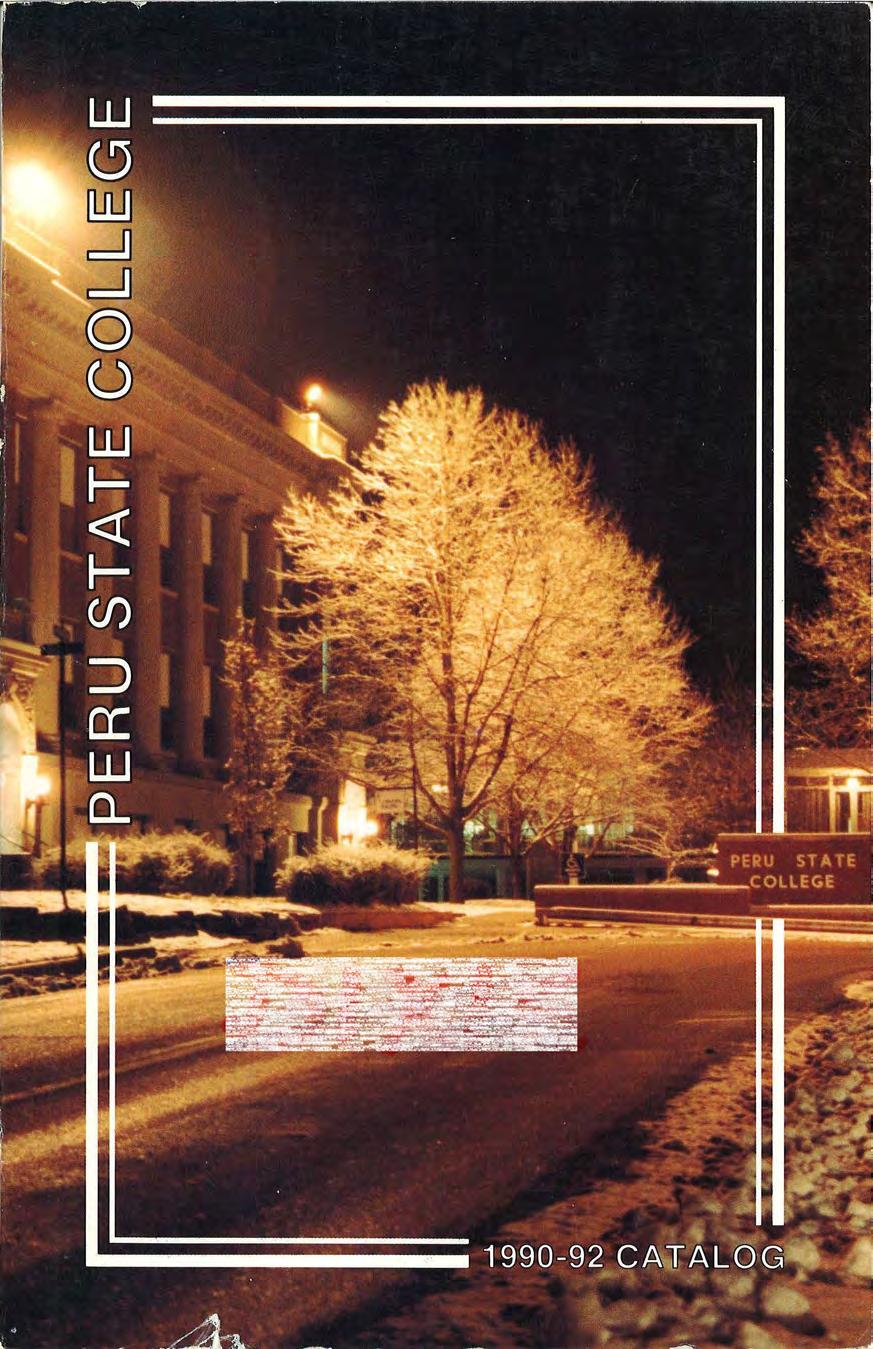
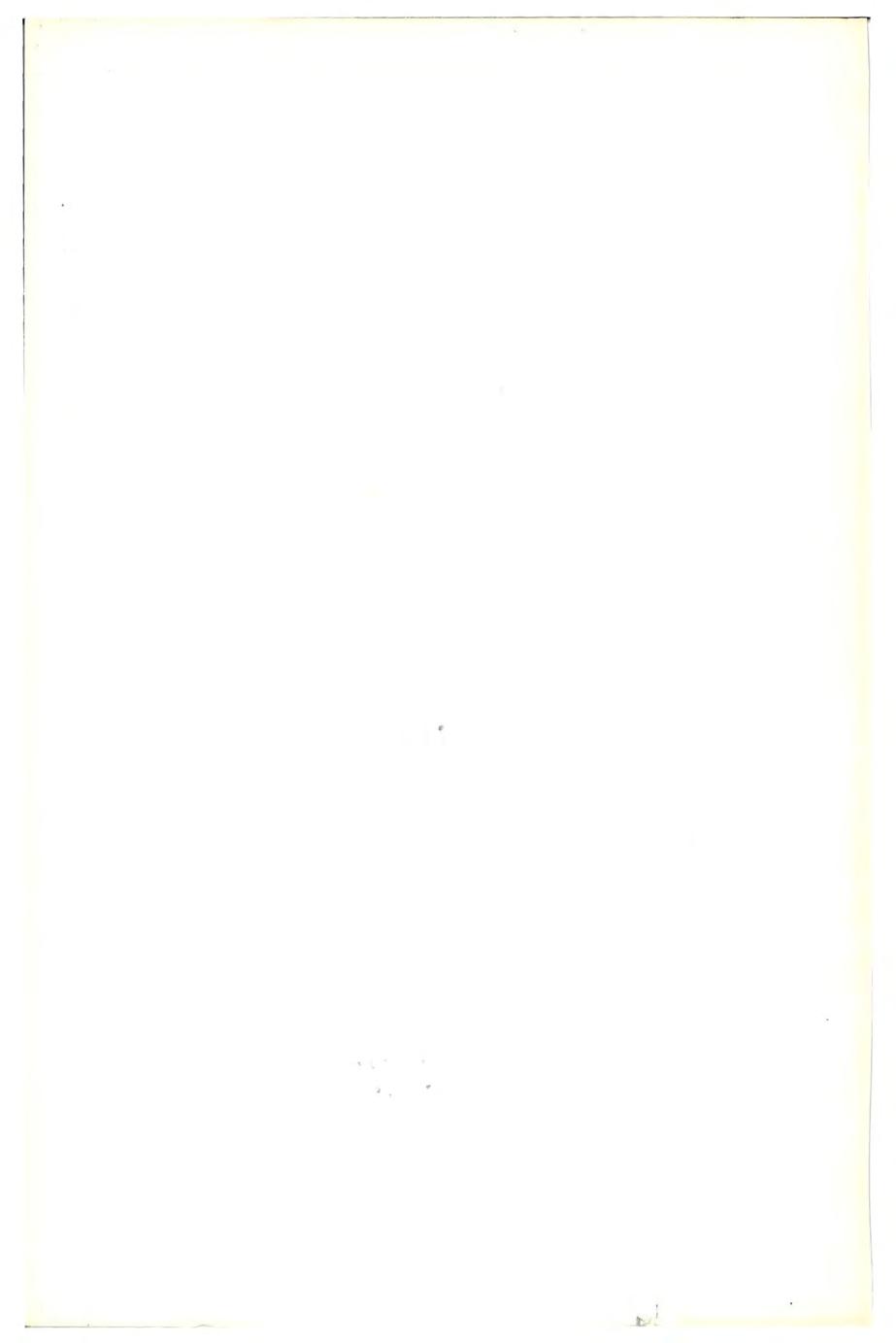
' J
Information about student retention and completion as required by the Higher Education Amendments of 1976 is available through the Dean of Student Affairs.
No person attending Peru State Co llege shall, on the grounds of race , color, national origin, handicap, or sex, be excluded from participation in, be denied of, or be subjected to discrimination under any program or activity receiving federal financial assistance. Inquiries regarding these matters s hould be directed to the Dean of Administrative Affairs. This catalog contains official information for the 1990-92 academic years. The College reserves the right to repeal, change, or amend rules, regulations, tuition and fees, and may withdraw , add to or modify courses and programs.
The catalog is published by Peru State College at Peru , Nebraska and entered under Bulk Permit Number 4 at Peru, Nebraska 68421.
The College phone numbers are: (402) 872-3815 (800) 742-4412
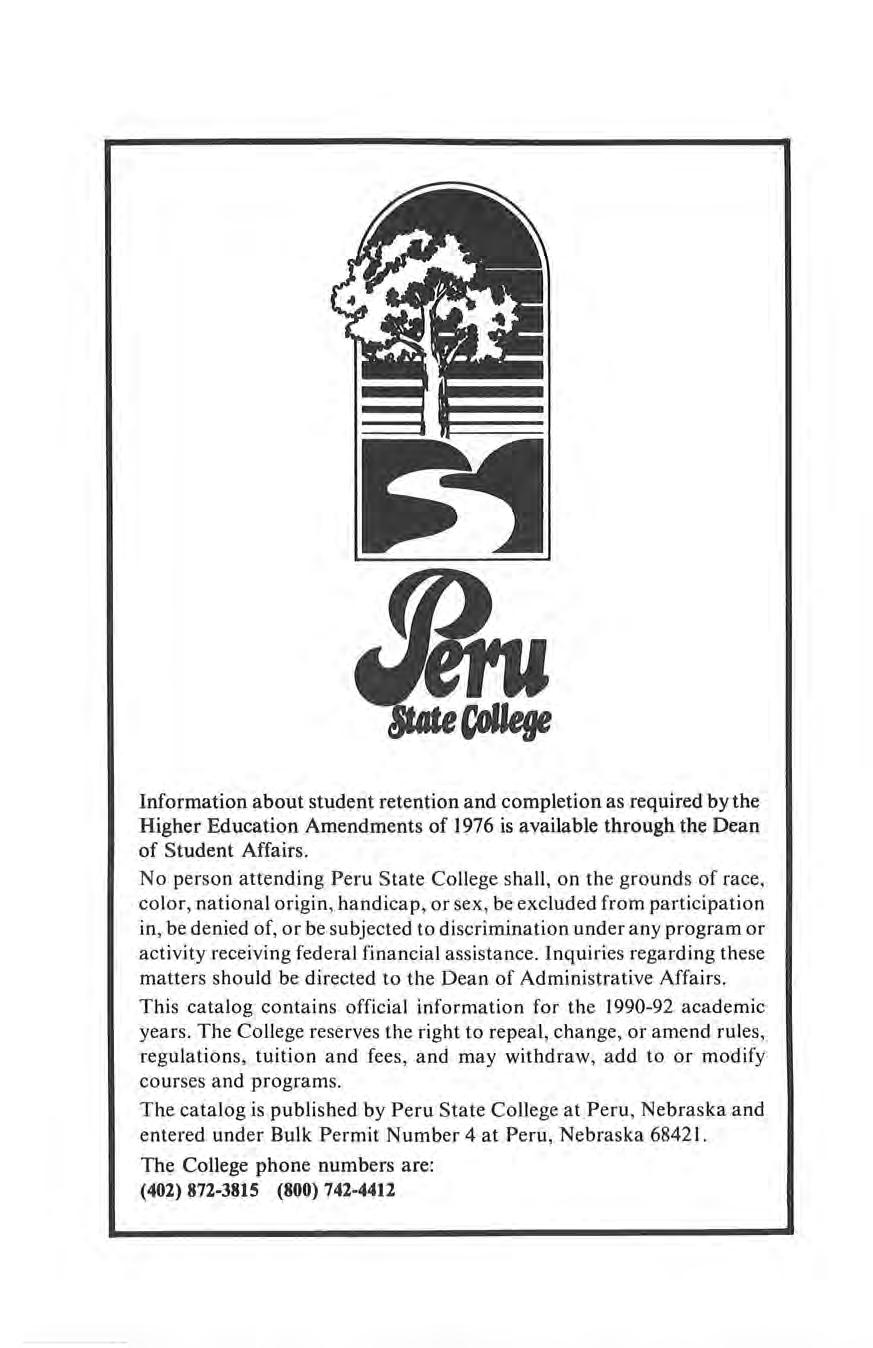
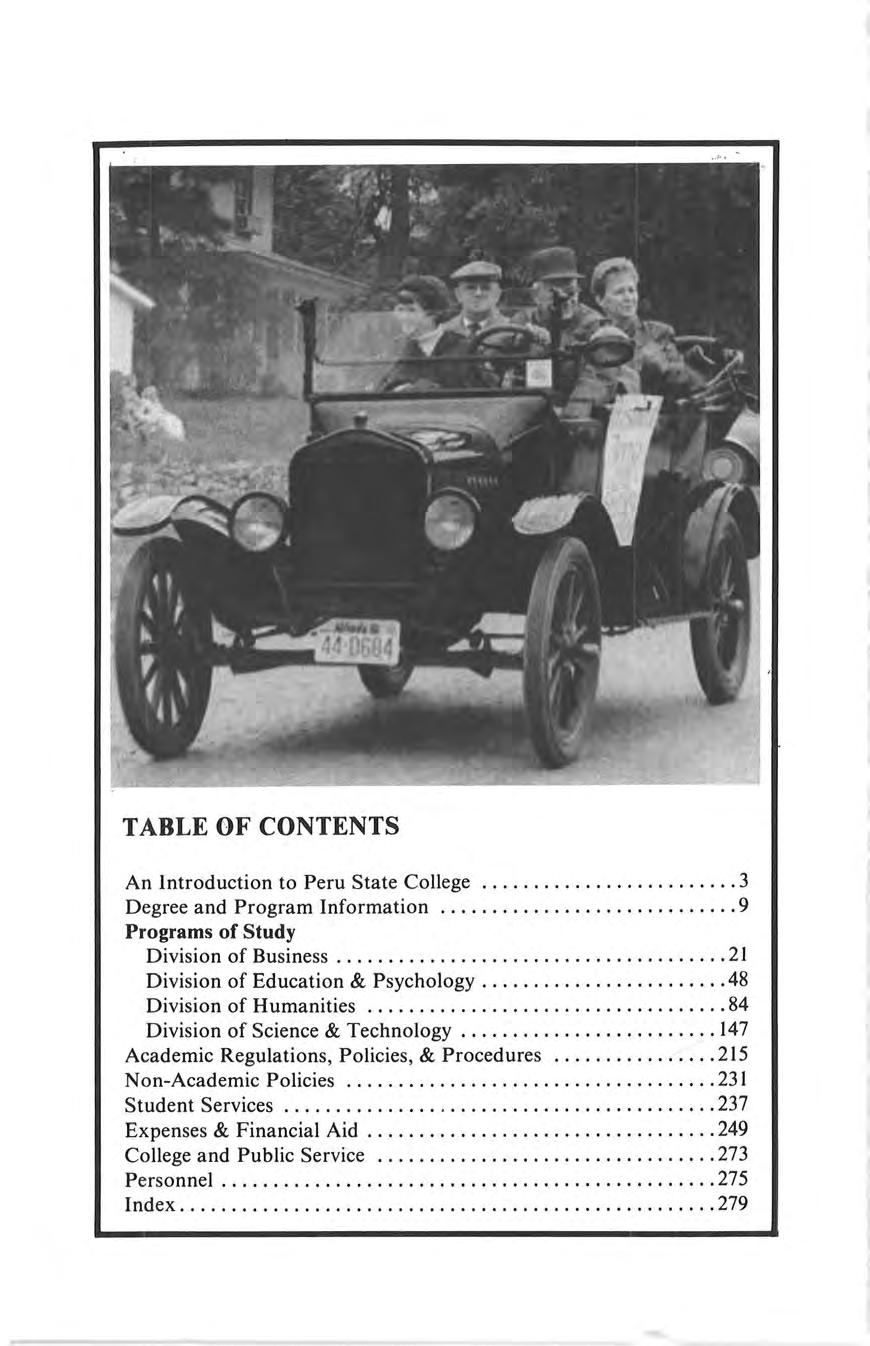
TABLE OF CONTENTS An Introduction to Peru State College 3 Degree and Program Information ............................. 9 Programs of Study Division of Business 21 Division of Education & Psychology ........................ 48 Division of Humanities ................................... 84 Division of Science & Technology ......................... 147 Academic Regulations, Policies, & Procedures 215 Non-Academic Policies .................................... 231 Student Services .......................................... 237 Expenses & Financial Aid .................................. 249 College and Public Service ................................. 273 Personnel ................................................ 275 Index .................................................... 279
1990-91 ACADEMIC CALENDAR
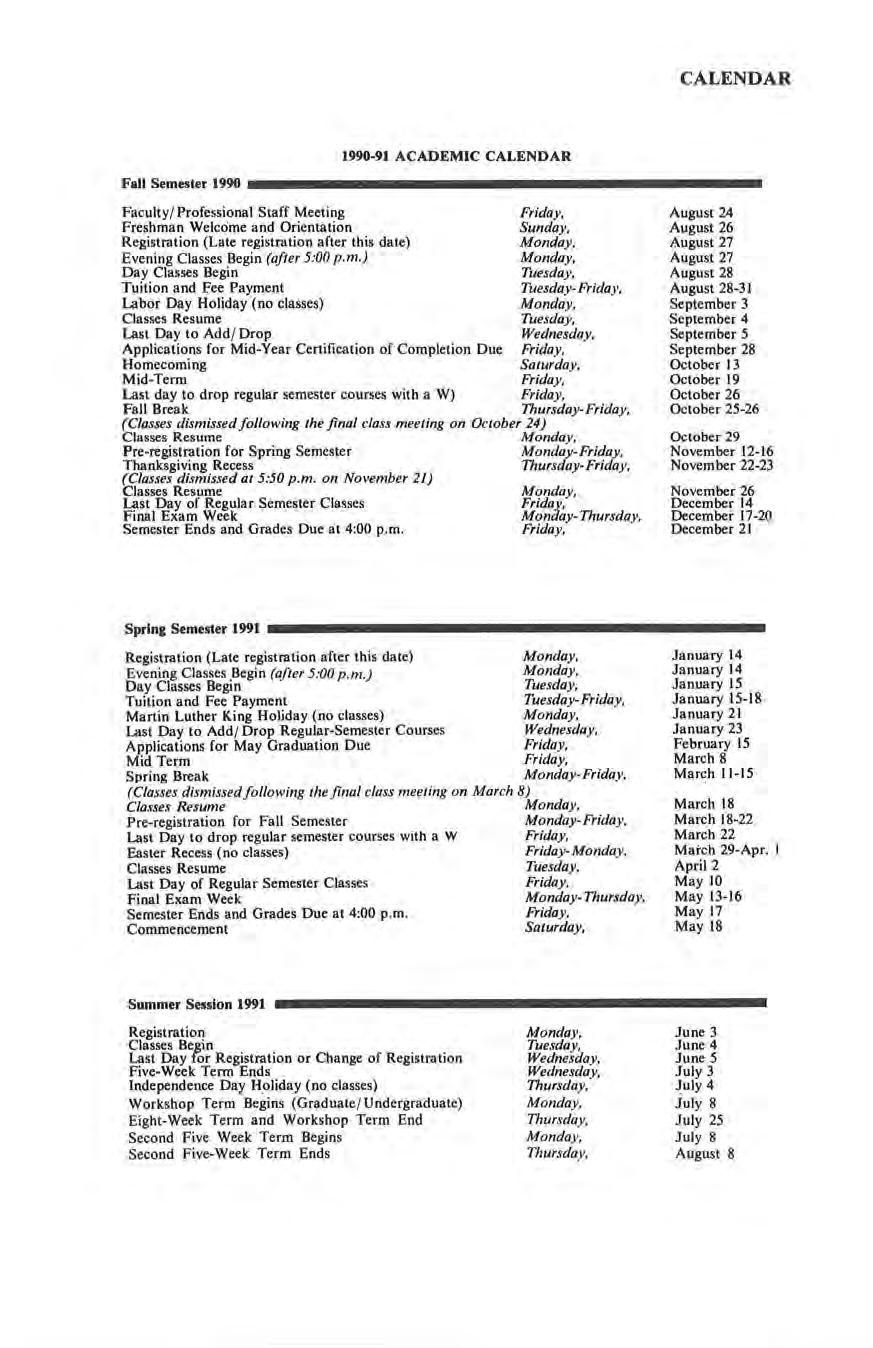
Fall Semester 1990
Friday, Freshman Welcome and Orientation
Faculty / Professional Staff Meeting
Sunday, Registration (Late registration after this date)
Monday, Evening Classes Begin (after 5:00 p.m.)
Monday, Day Classes Begin ·
Tuesday, Tuition and Fee Payment
Tuesday-Friday, Labor Day Holiday (no classes)
Monday, Classes Resume Tuesday, Last Day to Add / Drop Wednesday, Applications for Mid-Year Certification of Completion Due
Homecoming
Mid-Term Friday, Last day to drop regular semester courses with a W) Friday, Fall Break Thursday-Friday, (Classes dismissed following the final class meeting on October 24) Classes Resume
Monday , Pre-registration for Spring Semester
Monday-Friday, Thanksgiving Recess
Thursday-Friday, (Classes dismissed at 5:50 p.m. on November 21)
C lasses Resume Last Day of Regular Semester Classes Final Exam Week Semester Ends and Grades Due at 4:00 p.m.
Monday, Friday, Monday-Thursday, Friday,
August 24
August 26
August 27
August 27
August 28
August 28-31
September 3
September 4
September 5
September 28
October 13
October 19
October 26
October 25-26
October 29
November 12-16
November 22-23
November 26
December 14
December 17-20
December 21
Spring Semester 1991
Registration (Late registration after this date)
Monday, Evening Classes Begin (after 5:00 p m.) Monday, Day Classes Begin Tuesday , Tuition and Fee Payment
Tuesday-Friday, Martin Luther King Holiday (no classes)
Monday, Last Day to Add / Drop Regular-Semester Courses
Wednesday , Applications for May Graduation Due Friday, Mid Term Friday, Spring Break
Monday-Friday, (Classes dismissedfollowing the.final class meeting on March 8) ··
January 14
January 14
January 15
January 15-18
January 21
January 23
February 15
March 8
March 11-15
Monday, Pre-registration for Fall Semester
Classes Resume
Monday - Friday, Last Day to drop regular semester courses with a W
Friday , Easter Recess (no classes)
Friday-Monday, Classes Resume
Tuesday, Last Day of Regular Semester Classes
Friday, Final Exam Week
Monday-Thursday, Semester Ends and Grades Due at 4:00 p m
Friday, Commencement
Saturday,
Summer Session 1991
Registration Classes Begin
Last Day for Registration or Change of Registration
Five - Week Term Ends
Independence Da}' H oliday (no classe s)
Workshop Term Begins (Graduate / Undergraduate)
Eight-Week Term and Workshop Term End
Second Five Week Term Begins
Second Five - Week Term Ends
Monday, Tuesday, Wednesday,
March 18
March 18-22
March 22
Match 29-Apr. I
April 2
May 10
May 13-16
May 17
May 18
, Monday , Thursday ,
June 3
June 4
June 5
July 3
!uly 4
July 8
July 25
July 8
August 8
Friday,
Saturday,
Wednesday, Thursday, Monday, Thursday
CALENDAR
PERU STATE COLLEGE
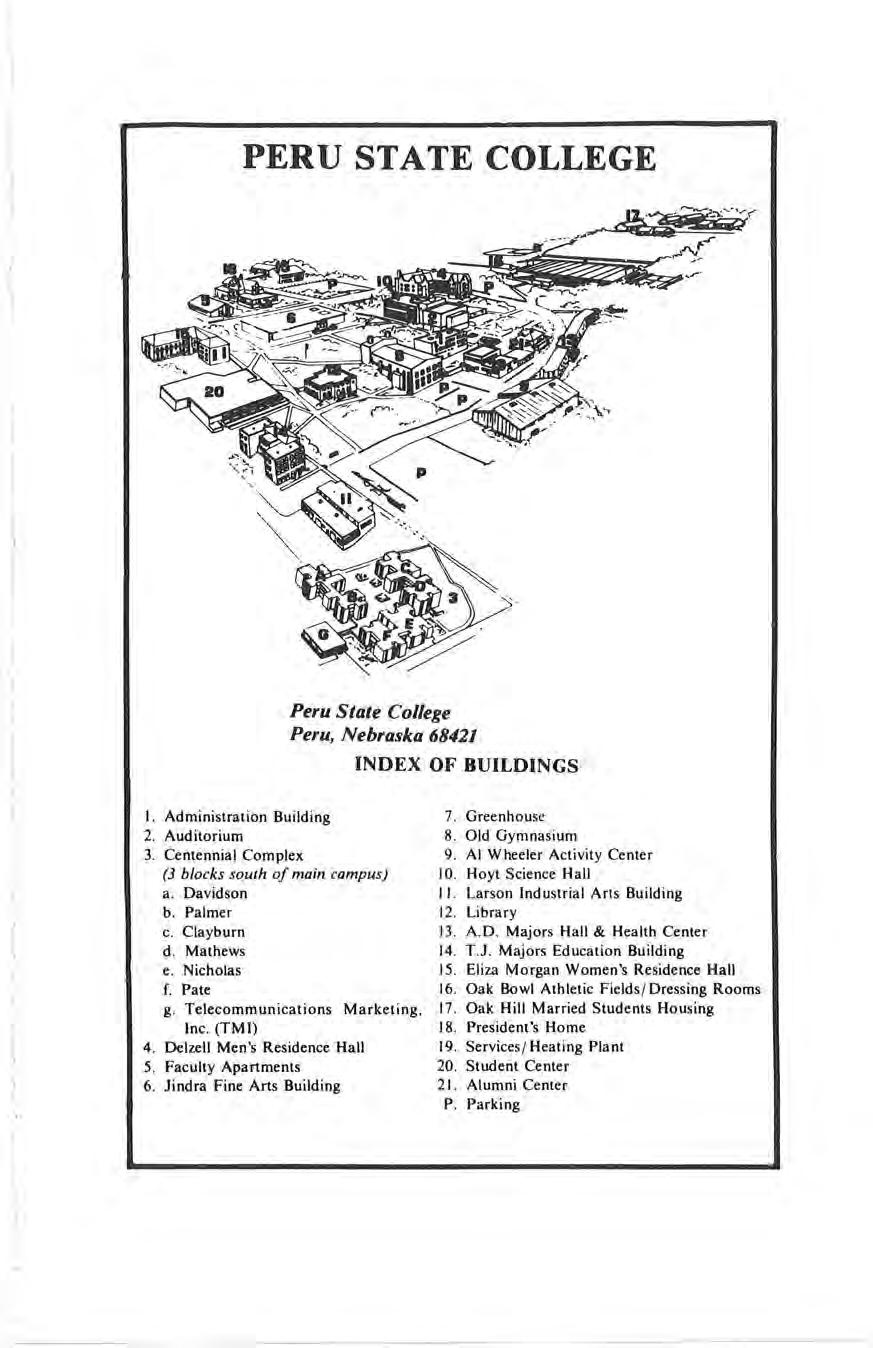
-·· ~--- &~" ,-,,,~, , r · · ~ p
State College
Nebraska 68421
Peru
Peru,
BUILDINGS I Administration Building 2 Auditorium 3: Centennial Complex (3 blocks south of main campus) a. Davidson b Palmer
Clayburn
Mathews
Nicholas
Pate
Te lecommuni cat ions Marketing, Inc. (TMI) 4 Delze ll Men's Residence Hall 5. Faculty Apartments 6. Jindra Fine Arts Building 7. Greenhouse 8. Old Gymnasium 9 Al Whee ler Activity Center 10. Hoyt Science Hall 11. Larson Industrial Arts Building 12 Library 13 A.D. Majors Hall & Health Center 14. T.J . Majors Education Building 15. Eliza Morgan Women's Residence Hall 16. Oak Bowl Athletic Fields / Dressing Rooms 17. Oak Hill Married Students Housing 18. President's Home 19 Services / Heating Plant 20. Student Center 21. Alumni Center P Parking
INDEX OF
c.
d.
e
f.
g
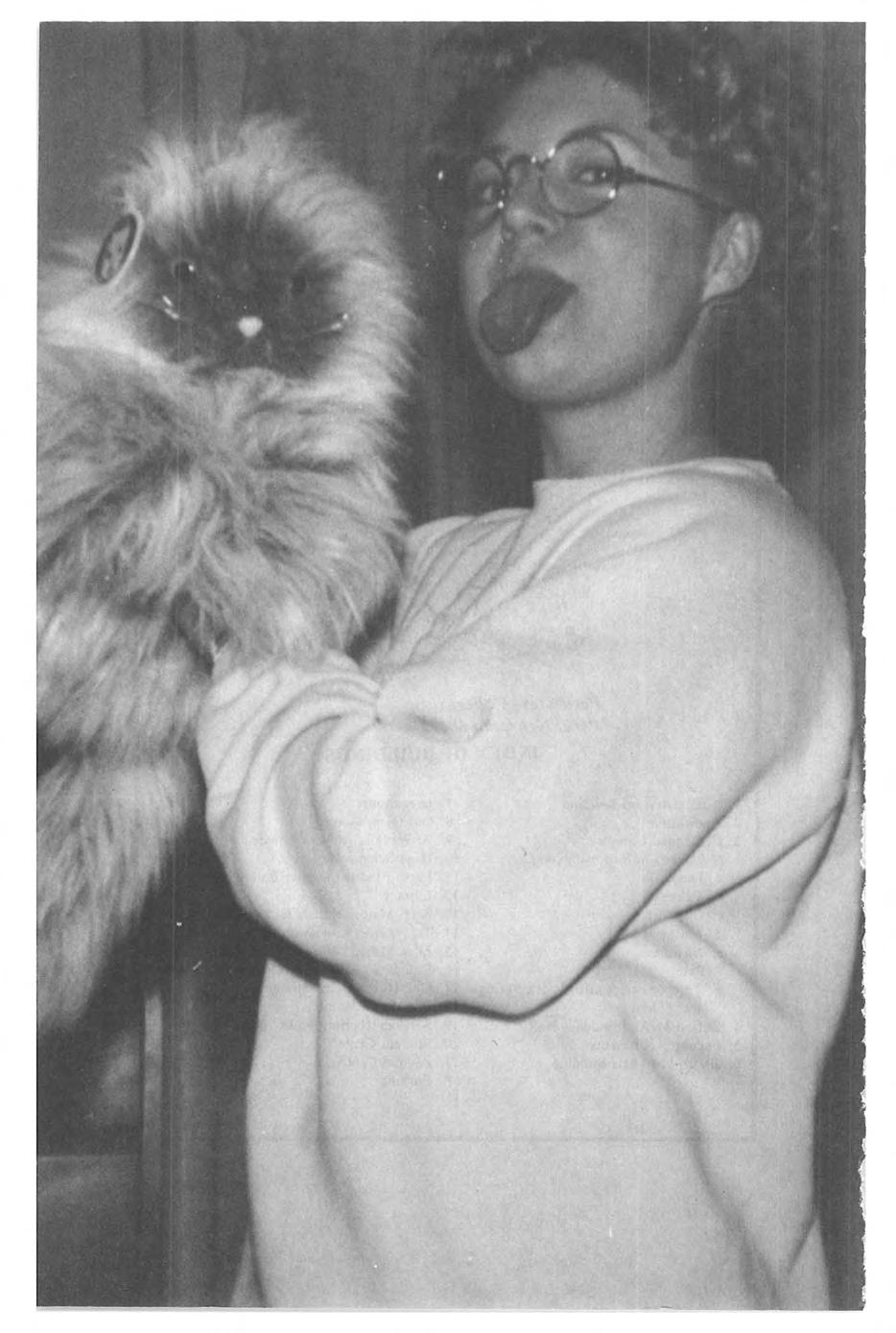
AN INTRODUCTION TO PERU STATE COLLEGE
Peru State College was founded in 1867 as Nebraska's first college and was the third teacher education institution established west of the Missouri River. For more than a century, thousands of young people have crossed the Campus of a Thousand Oaks to become teachers and leaders in Nebraska and throughout the nation.
The people of Nebraska have made the facilities of the College available to students at a minimum of personal cost. The taxpayers of the state bear the major portion of the cost of educating the College's students.
Peru State admits all graduates of accredited Nebraska high schools and qualified out-of-state students. The philosophy of the College is that each person is entitled to the opportunity to succeed at the collegiate level. All who have the ability and the willingness to work will have an excellent chance to succeed at Peru State.
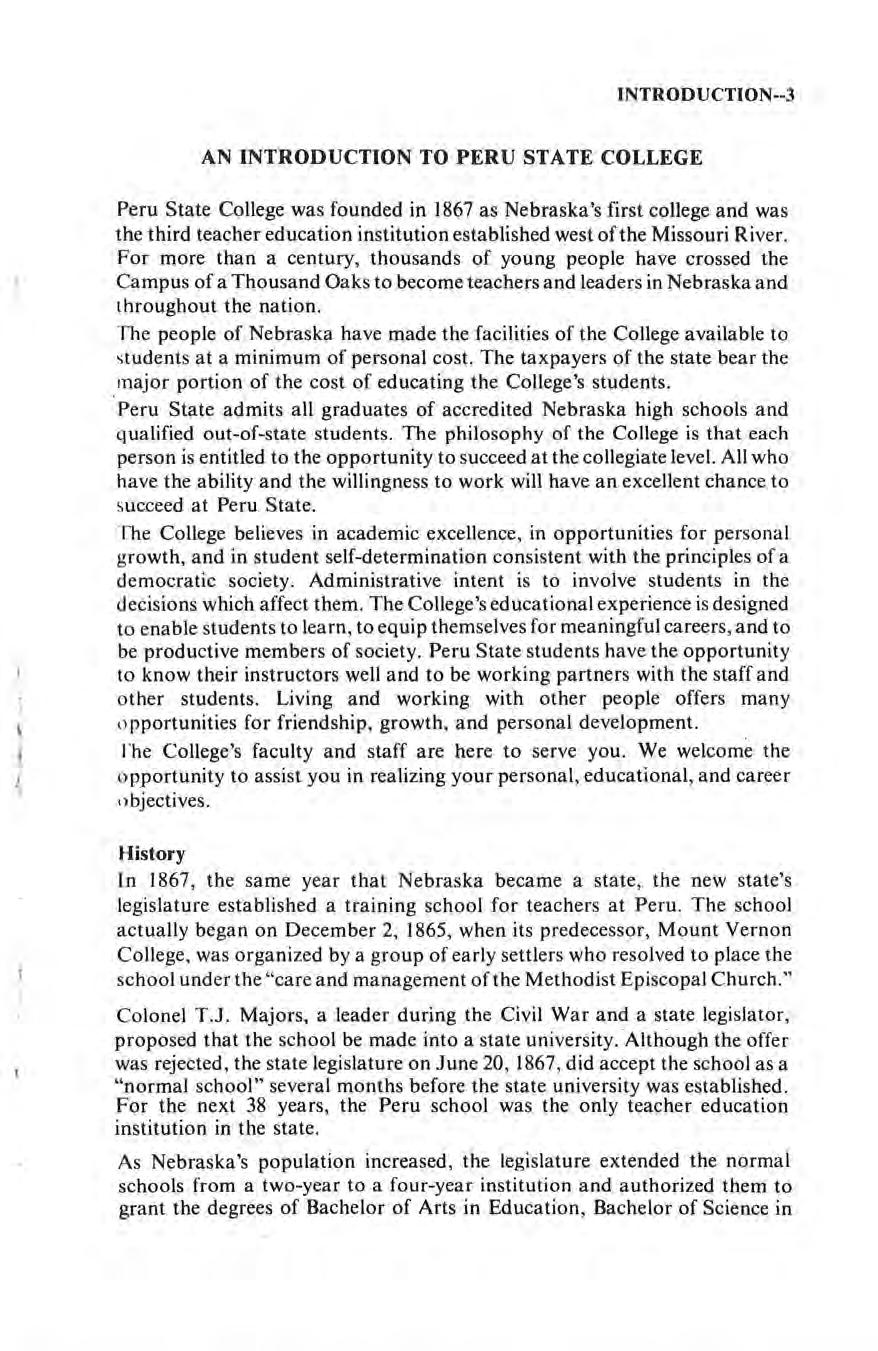
The College believes in academic excellence, in opportunities for personal growth, and in student self-determination consistent with the principles of a democratic society. Administrative intent is to involve students in the decisions which affect them. The College's educational experience is designed to enable students to learn, to equip themselves for meaningful careers, and to be productive members of society. Peru State students have the opportunity to know their instructors well and to be working partners with the staff and other students. Living and working with other people offers many lipportunities for friendship, growth, and personal development.
J"he College's faculty and staff are here to serve you. We welcome the opportunity to assist you in realizing your personal, educational, and career , 1 bjectives.
History
In 1867 , the same year that Nebraska became a state, the new state's legislature established a training school for teachers at Peru. The school actually began on December 2, 1865, when its predecessor, Mount Vernon College, was organized by a group of early settlers who resolved to place the school under the "care and management of the Methodist Episcopal Church."
Colonel T.J. Majors, a leader during the Civil War and a state legislator, proposed that the school be made into a state university. Although the offer was rejected , the state legislature on June 20, 1867, did accept the school as a "normal school" several months before the state university was established. For the next 38 years, the Peru school was the only teacher education institution in the state.
As Nebraska's population increased , the legislature extended the normal schools from a two-year to a four-year institution and authorized them to grant the degrees of Bachelor of Arts in Education , Bachelor of Science in
INTRODUCTION--3
Education, and Bachelor of Fine Arts in Education. At the same time, the name of the school was changed from State Normal School to State Teachers College. In 1963, Peru's name ~as changed to Peru State College. When the United States entered World War II, the College trained officers for the armed forces. The first unit of men in the Navy's V-12 program arrived on campus July l, 1943. During that time nearly 500 servicemen received their training, the College operated an accelerated program for both civilian students and naval trainees. Since then, many of the trainees have used the hours of college credit they earned to complete their degrees at Peru State or other institutions of higher learning throughout the nation.
In 1949, the legislature authorized the Nebraska State Colleges to confer the Bachelor of Arts degree. The Bachelor of Science degree was authorized in 1965 . Emerging from its role as a single-purpose teachers college, the College is now a regional state college offering a wide variety of programs to meet the changing needs of southeast Nebraska and beyond.
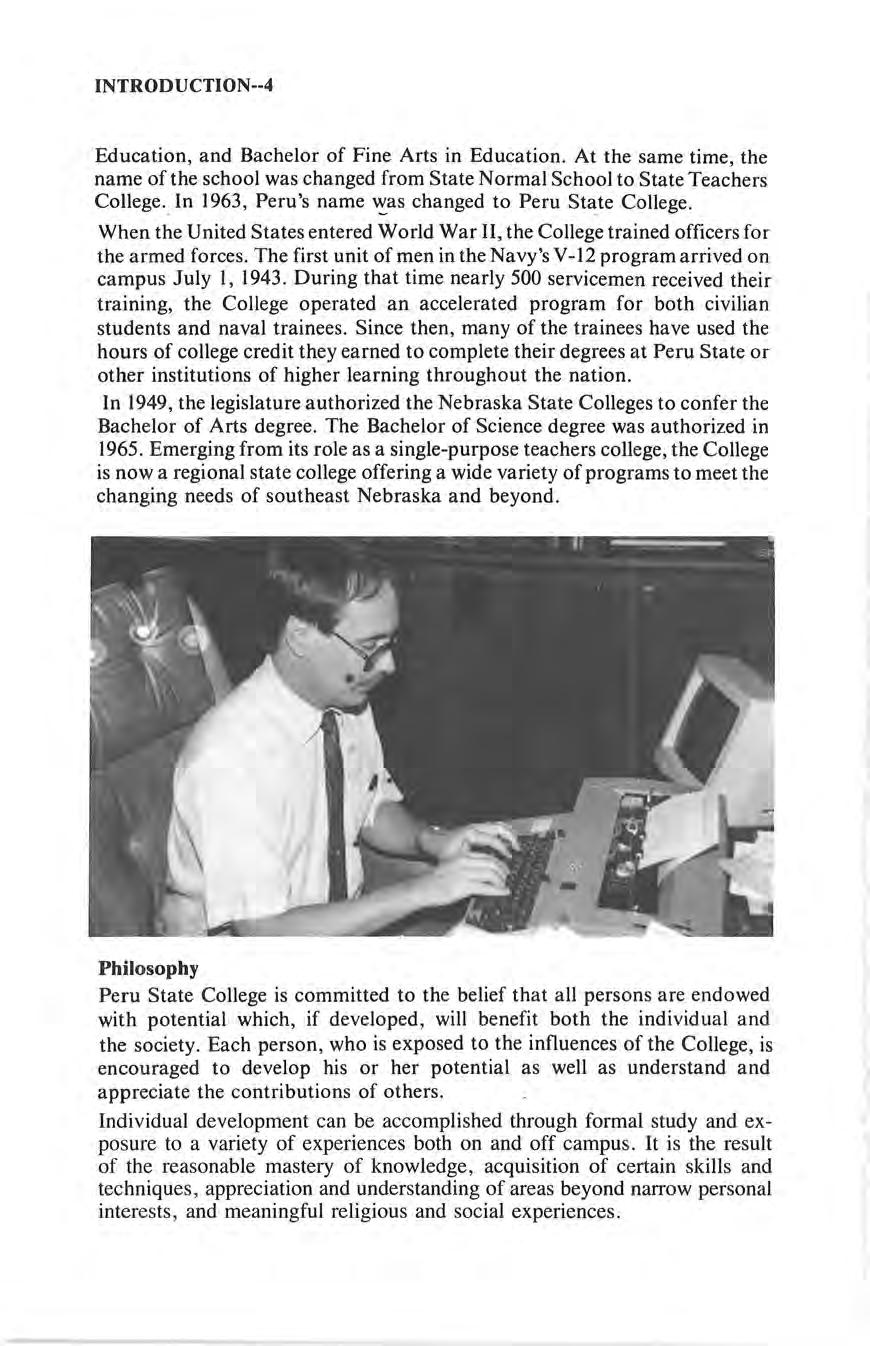
Philosophy
Peru State College is committed to the belief that all persons are endowed with potential which, if developed, will benefit both the individual and the society. Each person, who is exposed to the influences of the College, is encouraged to develop his or her potential as well as understand and appreciate the contributions of others.
Individual development can be accomplished through formal study and exposure to a variety of experiences both on and off campus. It is the result of the reasonable mastery of knowledge, acquisition of certain skills and techniques, appreciation and understanding of areas beyond narrow personal interests, and meaningful religious and social experiences.
INTRODUCTION--4
Mission
Peru State College is a multi-purpose, state- assisted, regional institution offering a variety of educational opportunities to the students of Nebraska and the nation. Founded in 1867 as Peru Normal School, the College is accredited by the North Central Association of Colleges and Schools and the National Council for Accreditation of Teacher Education.
Peru State is committed to providing high quality instruction, personalized attention, and a supportive learning environment for students of diverse abilities. Its principal baccalaureate programs in teacher education, business, and the liberal arts and sciences are complemented by numerous preprofessional, occupational, and continuing education programs . A Masters degree in Education emphasizing the innovative instructional technologies available to non-urban teachers is also offered.
The College believes in a strong, coherent general education program designed to ensure that its graduates l) can write, speak, and compute effectively, 2) are computer literate, 3) can think critically and independently, 4) are open to and have the capacity for change, 5) are prepared to assume their social and civic roles as leaders in an increasingly interdependent world, and 6) are equipped to pursue lives that are intellectually, ethically, aestheically, and physically rewarding.
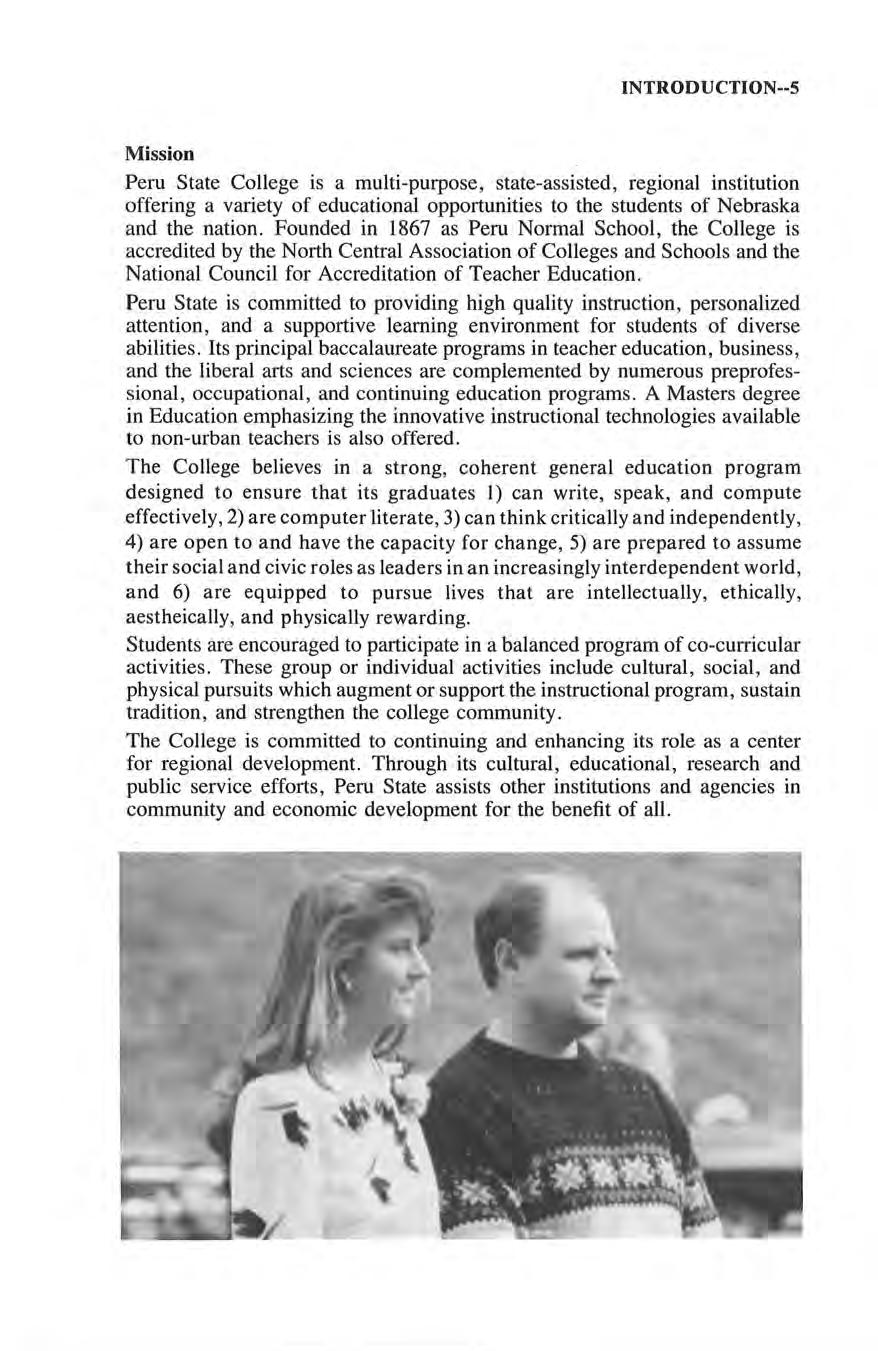
Students are encouraged to participate in a balanced program of co-curricular activities. These group or individual activities include cultural, social, and physical pursuits which augment or support the instructional program, sustain tradition, and strengthen the college community.
The College is committed to continuing and enhancing its role as a center for regional development. Through its cultural, educational, research and public service efforts, Peru State assists other institutions and agencies in community and economic development for the benefit of all.
INTRODUCTION--5
Goals
In order to fulfill its mission , Peru State has established the following goals:
* To increase the quality and diversity ofprograms to persons differing aptitudes, interests, and needs.
* To intensify its' milieu of academic excellence.
* To enhance the intellectual cooperation between the liberal and applied arts.
* To promote the involvement of both students and faculty in experimental and creative research .
* To strive to be a more effective public service institution
* To offer continuing and occupational edcuation for personal and career enrichment.
* To explore new and creative educational opportunities for students.
* To serve as a transitional educational institution for student's pursuing various occupational or professional objectives .
* To prepare students to be contributing members of a democratic society .
* To enhance student development outside the classroom.
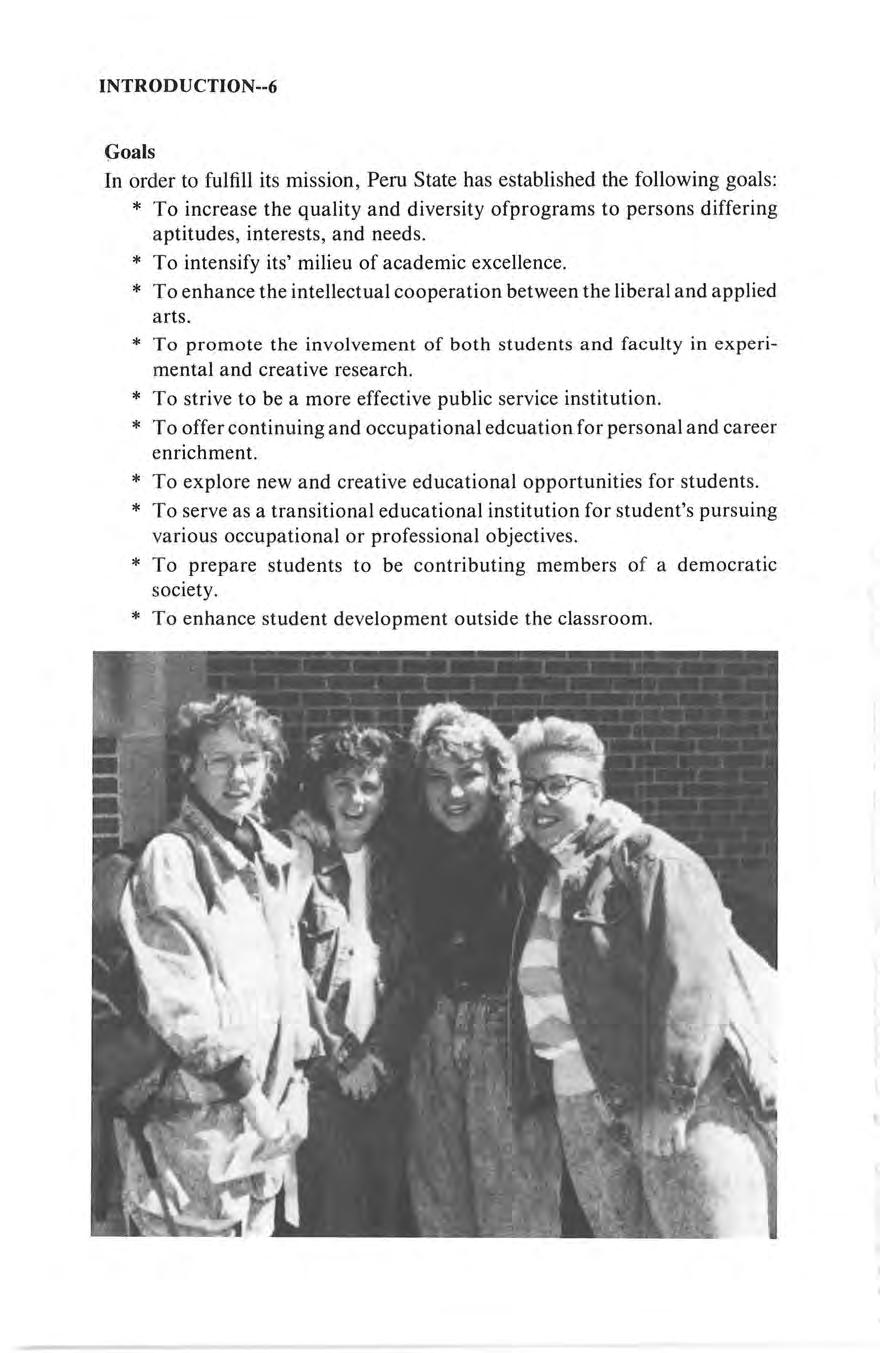
INTRODUCTION--6
Memberships and Accreditations
Peru State College is accredited by the Commission on Institutions of the North Central Association of Colleges and Schools and by the National Council for Accreditation of Teacher Education . Full membership is maintained in the American Association of Colleges for Teacher Education and the American Council on Education. The College also is a charter member of the Nebraska Council on Teacher Education.
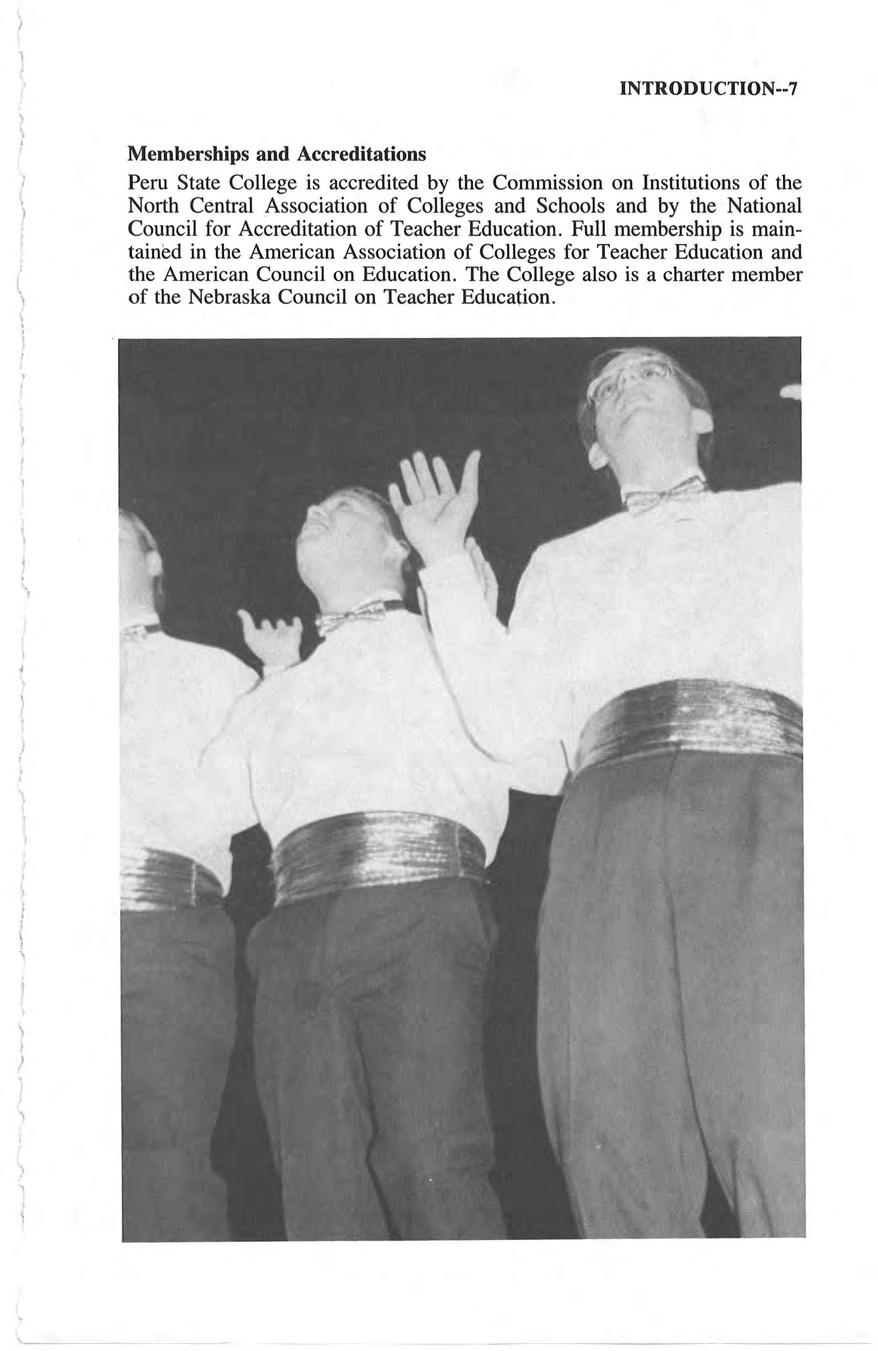
/ \ l INTRODUCTION--7
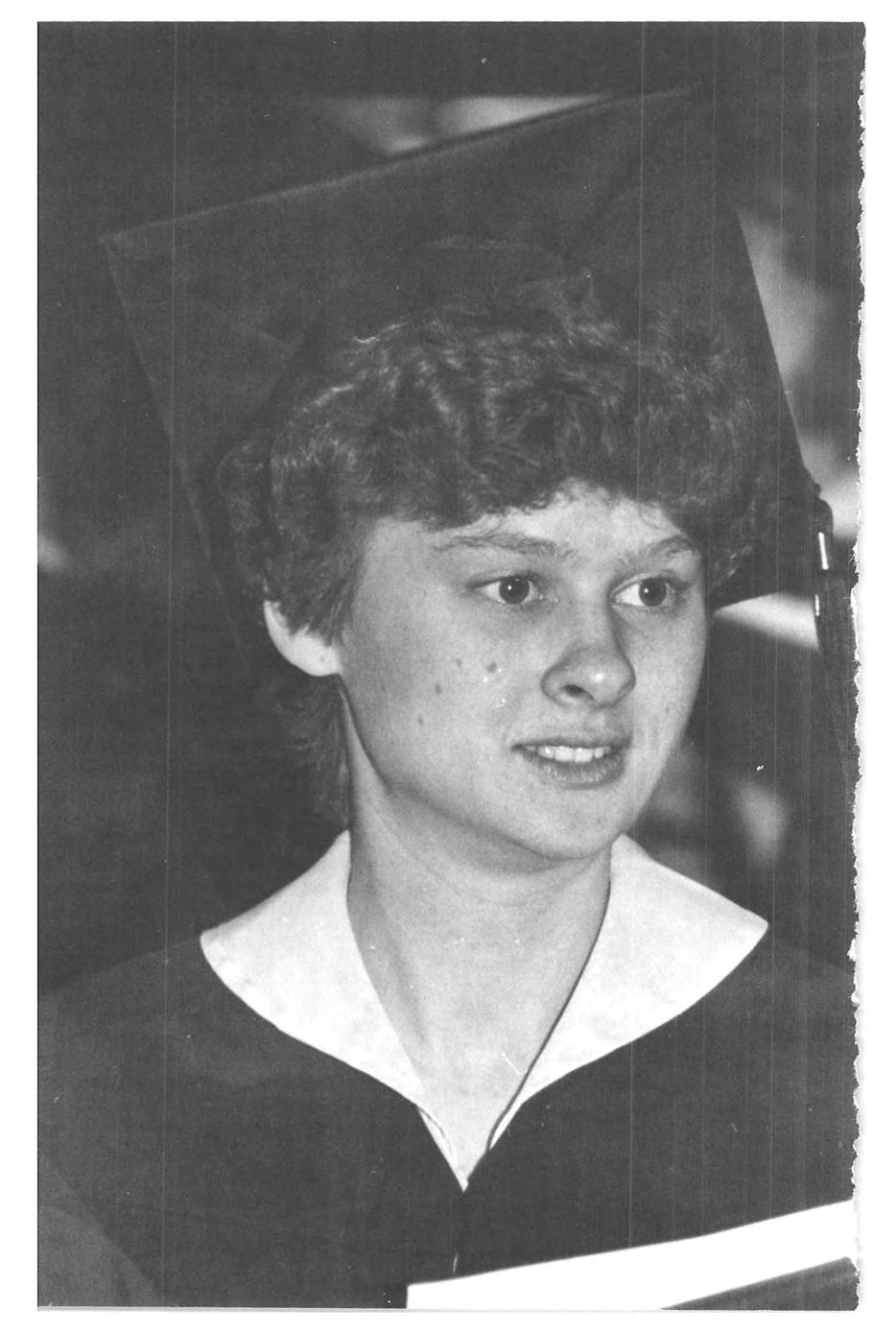
UNDERGRADUATE DEGREE AND PROGRAM INFORMATION
Peru State College is supported by the State of Nebraska for the purpose of meeting the post-secondary educational needs of its citizens. The College is a multi-purpose , regional institution offering a variety of programs in teacher education, the liberal arts and sciences, and selected occupations that culminate in several degree options. The College also provides instructional programs at extension sites throughout southeast Nebraska.
Degree and Program Selection
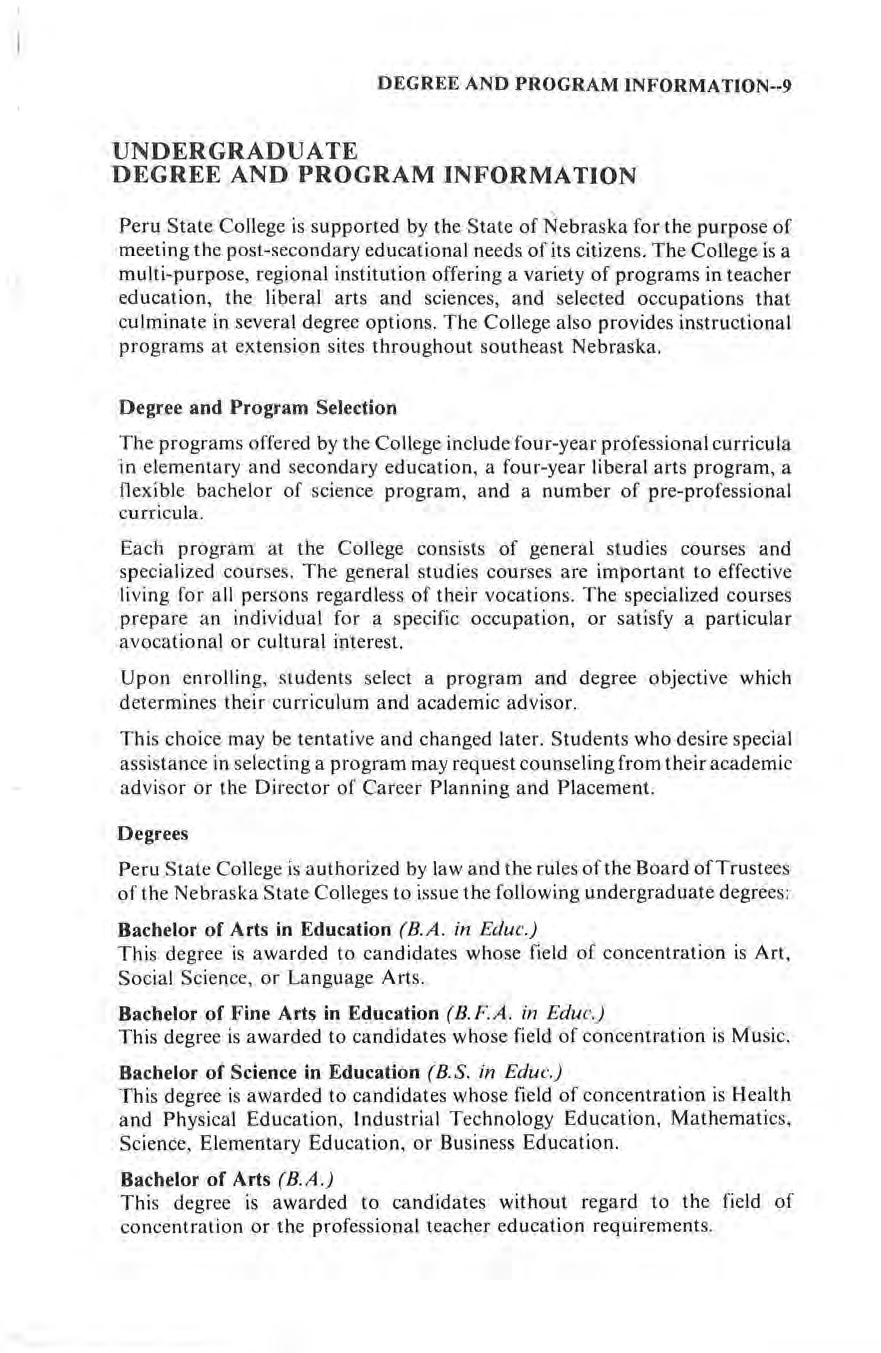
The programs offered by the College include four-year professional curricula in elementary and sec ondary education, a four-year liberal arts program, a flexible bachelor of science program , and a number of pre-professional curricula.
Each program at the College consists of general studies courses and specialized courses. The general studies courses are important to effective living for a ll persons regardless of their vocations. The specialized courses prepare an individual for a specific occupation, or satisfy a particular avocational or cultural interest.
Upon enrolling, students select a program and degree objective which determines their curriculum and academic advisor.
This choice may be tentative and changed later. Students who desire s pecial assistance in selecting a program may request counseling from their academic advisor or the Director of Career Planning and Placement.
Degrees
Peru State College is authorized by law and the rules of the Board of Trustees of the Nebraska State Colleges to issue the following undergraduate degrees:
Bachelor of Arts in Education (B.A. in Educ.)
This degree is awarded to candidates whose field of concentration is Art, Social Science, or Language Arts .
Bachelor of Fine Arts in Education (B.F.A. in Educ.)
This degree is awarded to candidates whose field of concentration is Music.
Bachelor of Science in Education (B.S in Educ.)
This degree is awarded to candidates whose field of concentration is Health and Physical Education, Industrial Technology Education, Mathematics , Science, Elementary Education, or Business Education.
Bachelor of Arts ( B . A.)
This degree is awarded to candidates without regard to the field of concentration or the professional teacher education requirements.
DEGREE AND PROGRAM INFORMATION--9
Bachelor of Science (B.S.)
This degree is awarded to candidates without regard to the field of concentration or the professional teacher education requirements.
Bachelor of Technology (B. T.)
This degree is awarded to candidates whose complementary area emphasis is Industrial Distribution or Industrial Supervision and who transfer from other institutions after having completed an associate technical degree program or equivalent.
Associate of Arts (A.A.)
This degree is awarded to candidates who complete a two-year program in Early Childhood Education.
Degree Requirements for Bachelor of Arts in Education, Bachelor of Fine Arts in Education, Bachelor of Science in Education, *Bachelor of Arts, Bachelor of Science.
The following are the minimum requirements for the above degrees:
Total Hours
Degree candidates must earn a minimum of 125 semester credit hours.
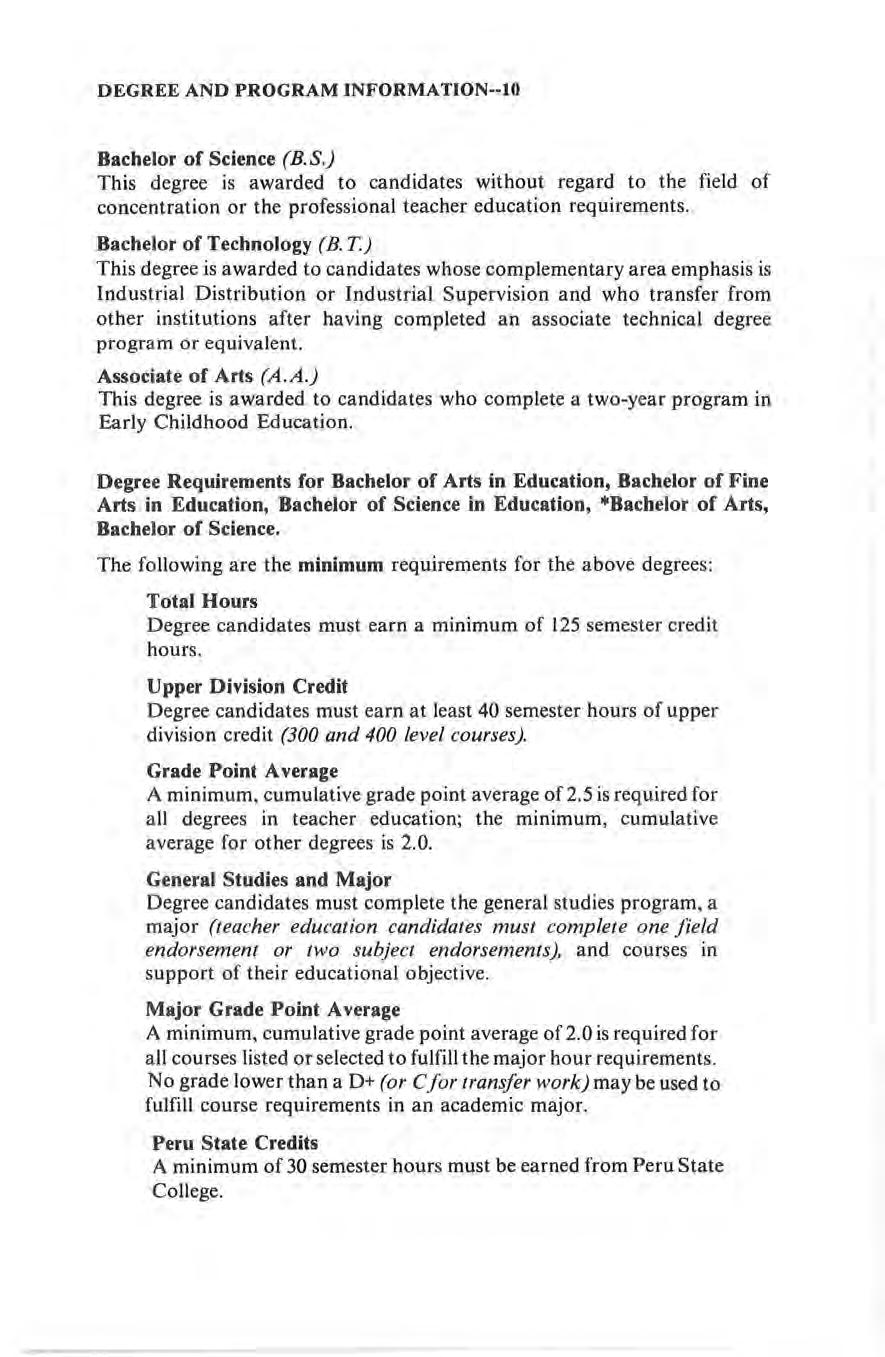
Upper Division Credit
Degree candidates must earn at least 40 semester hours of upper division credit (300 and 400 level courses).
Grade Point Average
A minimum, cumulative grade point average of 2.5 is required for all degrees in teacher education; the minimum, cumulative average for other degrees is 2.0.
General Studies and Major
Degree candidates must complete the general studies program, a major (teacher education candidates must complete one field endorsement or two subject endorsements), and courses in support of their educational objective.
Major Grade Point Average
A minimum, cumulative grade point average of 2.0 is required for all courses listed or selected to fulfill the major hour requirements . No grade lower than a D+ (or C for transfer work) may be used to fulfill course requirements in an academic major.
Peru State Credits
A minimum of 30 semester hours must be earned from Peru State Co llege.
DEGREE AND PROGRAM INFORMATION--10
Resident Credits
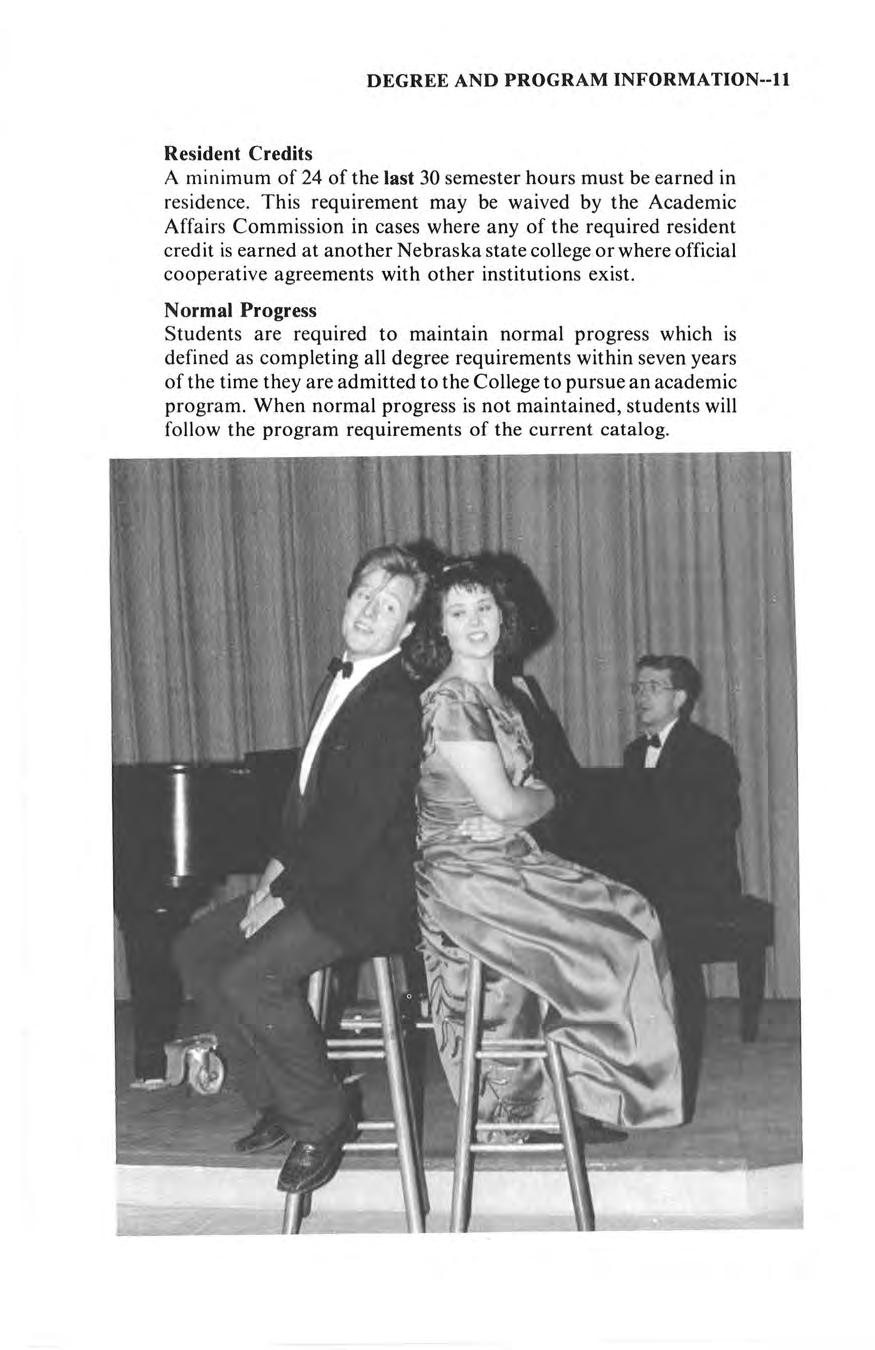
A minimum of 24 of the last 30 semester hours must be earned in residence. This requirement may be waived by the Academic Affairs Commission in cases where any of the required resident credit is earned at another Nebraska state college or where official cooperative agreements with other institutions exist.
Normal Progress
Students are required to maintain normal progress which is defined as completing all degree requirements within seven years of the time they are admitted to the College to pursue an academic program. When normal progress is not maintained, students will follow the program requirements of the current catalog .
DEGREE AND PROGRAM INFORMATION--11
• Additional Degree Requirements for Bachelor of Arts
The Bachelor of Arts degree requires the following additiona l coursework:
l 0 semester hours of a modern foreign language or IO semester hours of upper division credit outside of the student's major in an area of study approved by the appropriate Division Chairperson .
6 semester hours of Mathematics or 6 hours of Psychology.
Political Science 201 and 9 semester hours from History 113, 114, 201 , 202, or Sociology 201.
Degree Requirements for Bachelor of Technology
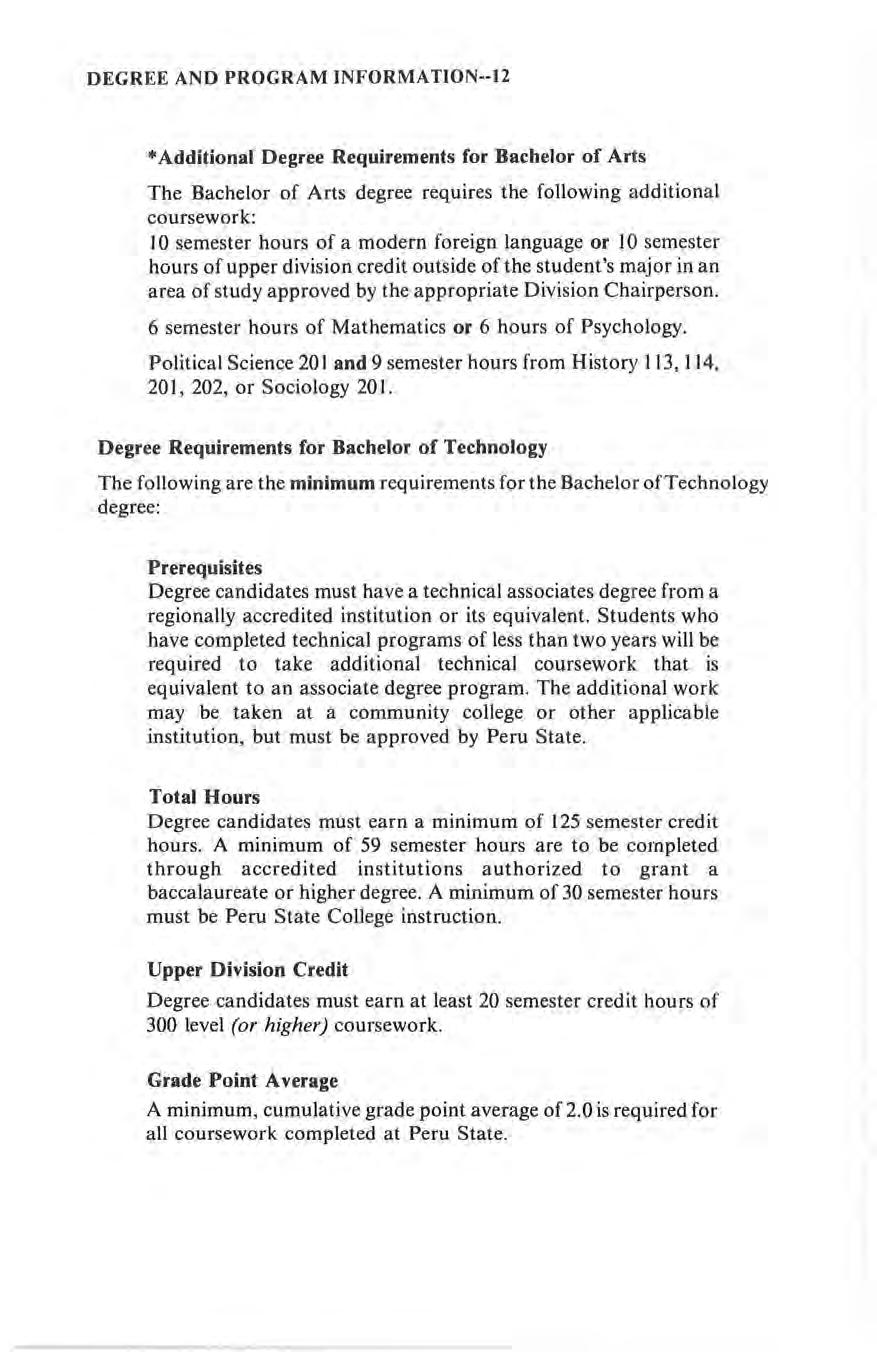
The following are the minimum requirements for the Bachelor of Technology degree:
Prerequisites
Degree candidates must have a technical associates deg r ee from a regionally accredited institution or its equivalent. Students who have completed technical programs of less than two years will be required to take additional technical coursework that is equivalent to an associate degree program. The additional work may be taken at a community college or other applicable institution, but must be approved by Peru State.
Total Hours
Degree candidates must earn a minimum of 125 semester credit hours. A minimum of 59 semester hours are to be comp leted through accredited institutions authorized to grant a baccalaureate or higher degree. A minimum of 30 semester hours must be Peru State College instruction.
Upper Division Credit
Degree candidates must earn at least 20 semester credit hours of 300 level (or higher) coursework.
Grade Point Average
A minimum, cumulative grade point average of 2.0 is required for all coursework completed at Peru State.
DEGREE AND PROGRAM INFORMATION--12
The Bachelor of Technology degree is designed for tran sfer students who have an a ssociate degree or its equivalent and a technical major. The degree is flexible enough to accomodate the transfer student who meets the following additional requirements :
Transfer Students with an Associate Degree
General Studies
Thirty semester credit hours are required. At least 3 hours must be selected from each area listed below and no more than 9 hours of the 30-hour total can be in any one area . Courses selected must be exclusive of those completed for the area of emphasis Courses selected are to be those listed in the General Studies Program required of all students seeking a Bachelor's degree.
English Composition
Communications(Sp eech)
Social and Behavioral Science Applied Arts(Bus, ITE, etc.)
Complementary Emphasis
Mathematics / Science
Literature / Fine Arts
Health and Hygiene/P.E.
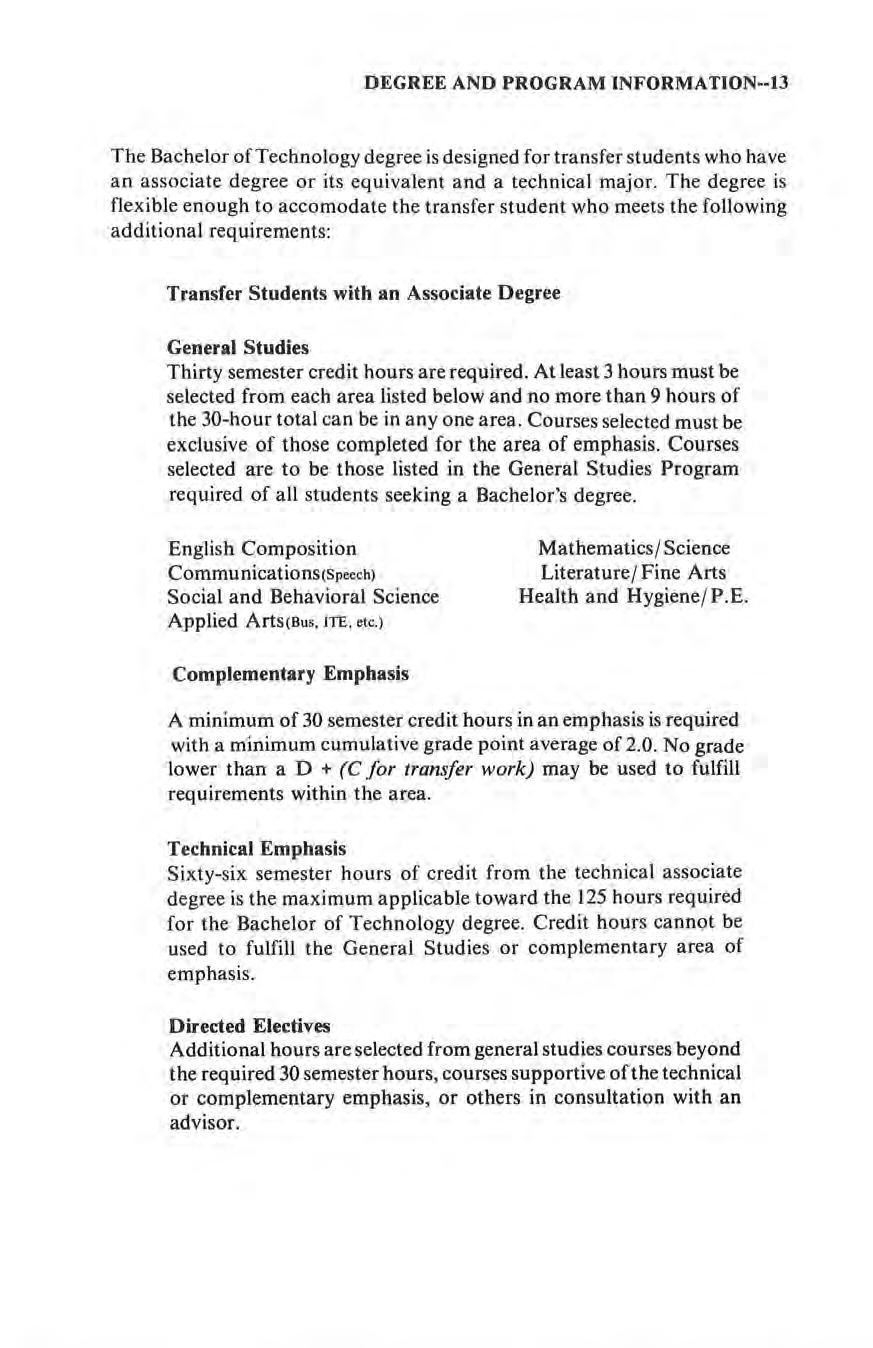
A minimum of 30 semester credit hours in an emphasis is required with a minimum cumulative grade point average of 2.0 No grade lower than a D + (C for transfer work) may be used to fulfill requirements within the area .
Technical Emphasis
Sixty-six semester hours of credit from the technical associate degree is the maximum applicable toward the 125 hours required for the Bachelor of Technology degree. Credit hours cannot be used to fulfill the General Studies or complementary area of emphasis.
Directed Electives
Additional hours are selected from general studies courses beyond the required 30 semester hours, courses supportive of the technical or complementary emphasis, or others in consultation with an advisor.
DEGREE AND PROGRAM INFORMATION--13
Degree Regulations
In addition to the above degree requirements, the following regulations apply to Peru State bachelor degrees:
Extra-institutional Credits
The semester credit hours awarded through the College's approved procedures for determining extra-institutional learning are considered transfer credits. Unless otherwise specified, a maximum of 66 transfer credits, awarded either individually or collectively, may be applied toward the 125 credit hour minimum r equired for a bachelor's degree.
Correspondence and Extension Credits
No more than one-eighth of the total credits required for a degree may be satisfied through correspondence courses, and no more than one-fourth of the total may be correspondence and extension credits. Extension or off-campus courses conducted by Peru State are considered resident credits.
Professional School Residence Credits
Pre-professional students, who have successfully completed three years in a specifically approved program, may transfer to an accredited professional school during their fourth y ear and qualify for a bachelor's degree provided they meet all other graduation requirements.
Varsity Sports Credits
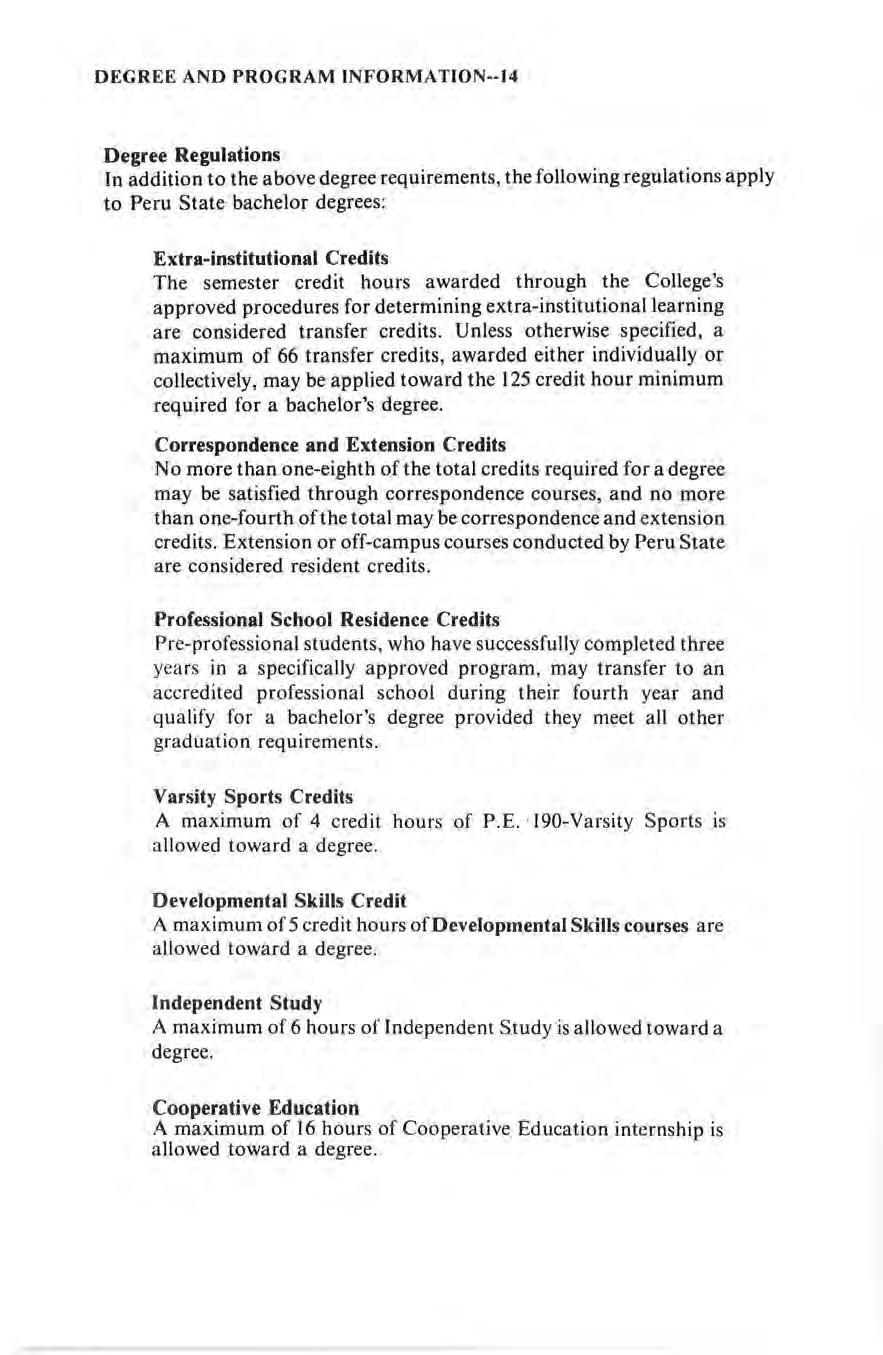
A maximum of 4 credit hours of P.E. ·190-Varsity Sports is allowed toward a degree .
Developmental Skills Credit
A maximum of 5 credit hours of Developmental Skills courses are allowed toward a degree.
Independent Study
A maximum of 6 hours of Independent Study is allowed toward a degree .
Cooperative Education
A maximum of 16 hours of Cooperative Education internship is allowed toward a degree.
DEGREE AND PROGRAM INFORMATION--14
Application for Degree
Peru State College has three gradµation dates: December, May and summer Degree candidates, upon enrolling for their final coursework must complete a degree application through the Registrar's Office. The application must be completed within the first five weeks of the semester or within the first two weeks of the first summer term. Students are expected to have completed all degree requirements on or before the planned date of graduation. December graduates receive a statement of completion. Diplomas are given at the subsequent May graduation
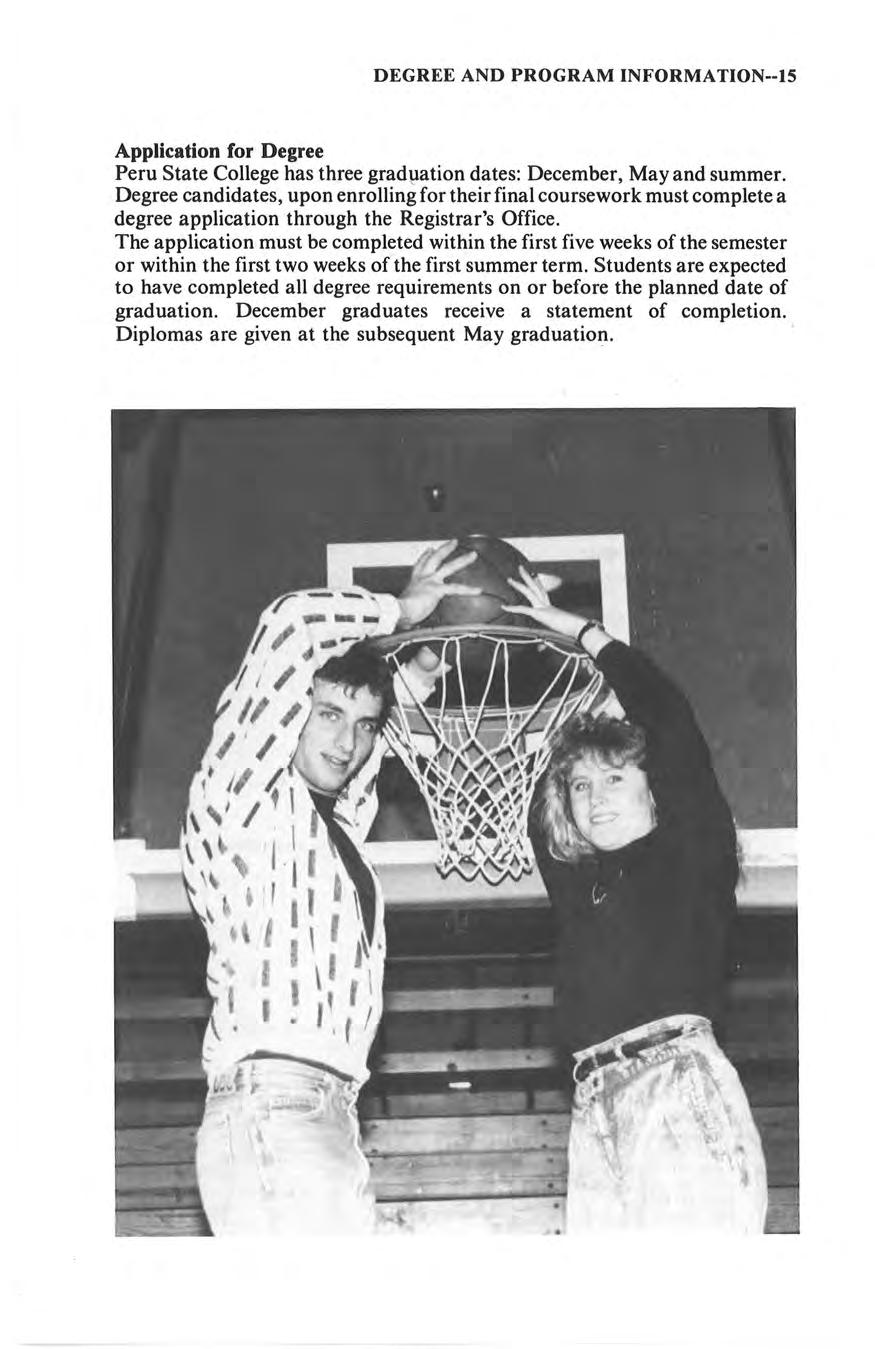
DEGREE AND PROGRAM INFORMA TION--15
General Studies Program
The purpose of the genera l studies program at Peru State is to prepare the student for advanced co ll ege work as well as for life long learning. The general studies program consists of specific courses that are designed to assist the student in acquiring the intellectual foundation that will last for a lifetime of learning.
The objective of the general studies program is established in the Role and Mission statement. This statement requires that our graduates I) can write, speak, and compute effectively; 2) are computer literate; 3) can think critically and independently; 4) are open to and have the capacity for change; 5) are prepared to assume their social and civic roles as leaders in an increasingly interdependent world; and 6) are equipped to pursue lives that are intelle c tually , ethica ll y, aesthetically, and physically rewarding. Listed below is the actual program designed to meet the above objectives
General Studies Courses
Courses may be used in only one category to satisfy general studies re quirement s.
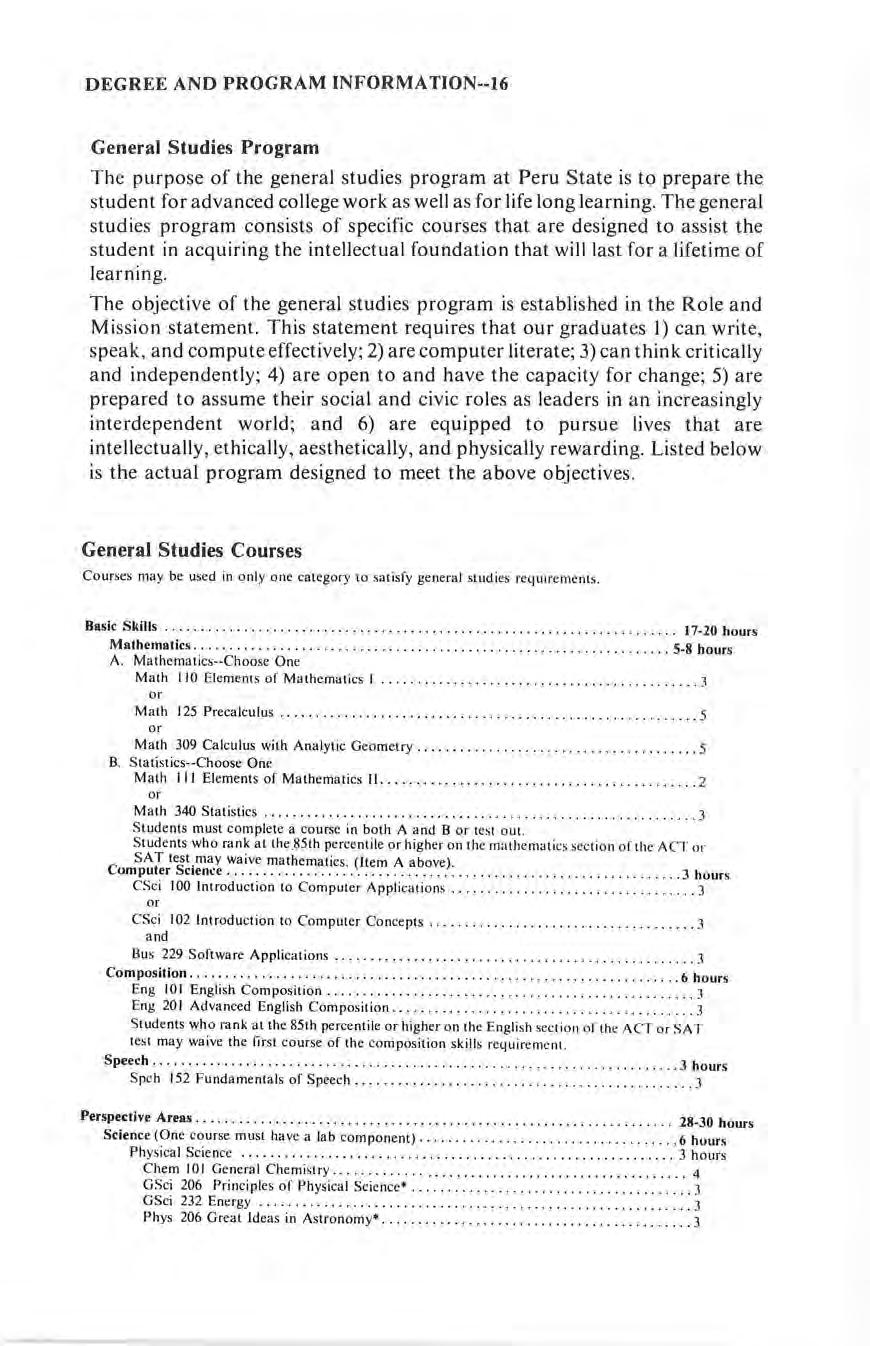
DEGREE AND PROGRAM INFORMATION--16
Basic Skills 17-20 hours Mathematics. 5-8 hours A. Mathematics--Choose One Math 110 E lements of Mathematics I •.•• .• • • •• • • ••.. or Math 125 Precalculus or 3 5 Math 309 Calculus with Analytic Geometry ..•. • 5 B. Statistics--Choose One Math 111 E lements of Mathematics II 2 or Math 340 Stat istics 3 Students must complete a course in both A and B or test out. Students who rank at the 85th percentile or high e r on the mathematics sec tion of the ACT or SAT test.may waive mathematics. (Item A above). Com put er Science ......... .. . .. ... .... ....... ... ... . CSci 100 Introduction to Computer Applications or CSci 102 Introduction to Computer Concepts ......•. and 3 hours J J Bus 229 Software Applications 3 Composition. 6 hours Eng 101 Eng li sh Composition........... 3 Eng 201 Advanced English Composition............. J S tud ents who rank at the 85th percentile or higher on the English sec tion of the ACT or SAT tes t may waive the first course of the composition ski ll s requirement. Speech · · · · · · · · · · · · • • • · · · · • • • • • • • • • 3 hours Speh 152 Fundamenta ls of Speech . . • • . • J Perspective Areas 28-30 hours Science (One course must have a lab component) .... . ...... .. . ....• . ... . . .. .. •. . ... . 6 hours Physica l Science 3 hours C hem IOI General Chemistry 4 GSci 206 Principles of Physical Science• ..•...... J GSci 232 Energy •.... 3 Phys 206 Great Ideas in Astronomy• ......• • 3
Pre-Professional Programs
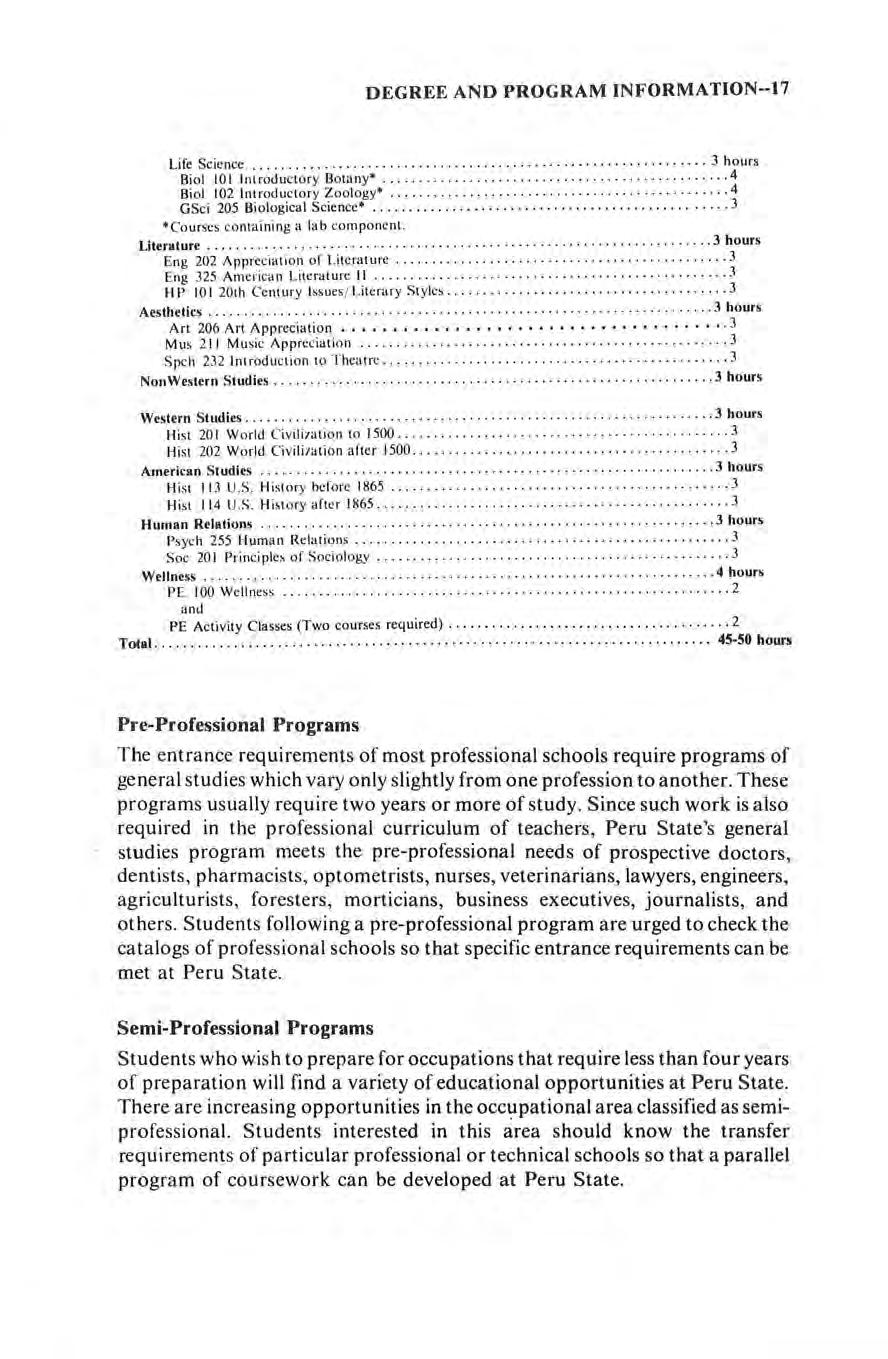
The entrance requirements of most professional schools require programs of general studies which vary only slightly from one profession to another. These programs usually require two years or more of study. Since such work is also required in the professional curriculum of teachers, Peru State's general studies program meets the pre-professional needs of prospective doctors, dentists, pharmacists , optometrists, nurses, veterinarians, lawyers, engineers, agriculturists, foresters, morticians, business executives, journalists, and others. Students following a pre-professional program are urged to check the catalogs of professional schools so that specific entrance requirements can be met at Peru State.
Semi-Professional Programs
Students who wish to prepare for occupations that require less than four years of preparation will find a variety of educational opportunities at Peru State. There are increasing opportunities in the occ~pational area classified as semiprofessional. Students interested in this area should know the transfer requirements of particular professional or technical schools so that a parallel program of coursework can be developed at Peru State.
DEGREE AND PROGRAM INFORMATION--17 Life Science , , , • • • 3 hour s Biol 101 Introductor y Botan y* , 4 Biol 10 2 Introductor y Zoology* 4 GSci 205 Biological Science* • • ....•..•....•.. 3 •cou rses con taining a lab com ponent. Literature 3 hours E ng 202 Appr eciat ion of Literature , • , • , •. , , • • • • • • • 3 Eng 325 American Literatu re 11 , , , , . •, , • • • • • • • 3 HP 10 I 20th Century Iss ues / Literary Styles .•. , 3 Aesthetics , • • • • • • • • • • • • • 3 hour s Art 206 Art Appreciation • , , , , ••• , , , , , , , , , , , , , , , , , , • • • , • • • • • • • · 3 Mus 2 11 Music Appreciation ....•.. • 3 Speh 232 Int roduction to Th eatre • • .•. 3 Non Western Studies ....•... •..• ..•... •..... 3 hours Western St udies ....•.... 3 hours Hist 201 World Civil irntion to 1500 •..... , • 3 Hist 202 World Civ ili zatio n after 1500 , .•... ...•.... 3 American Studies .•. •.. 3 hours Hist 113 U.S. Hi sto r y before 1865 3 Hi s t 114 U.S. Hi s t ory af t e r 1865........ 3 Human Re lations • • , • .• . 3 hours Psych 255 Human Relations ...•..• • .•... • 3 Soc 201 Principles of Sociology , , 3 Wellness ....•.... ....•... 4 hours PE I 00 W e llne ss , , , , •, • • • • • • • • • • • 2 and PE Activity Classes (Two courses required) ..•..•. .•. 2 Total. 45-50 hours
Honors Program
The purpose of the Honors Program is to challenge students, not with difficult examinations and heavy reading assignments, but with challenging ideas and new perspectives. An Honors course should be the beginning of a student's lifetime interest in the serious and difficult issues of our day.
The Honors Prog_ram is 15 semester hours consisting of two interdisciplinary courses 20th Century Issues (Introductory course) and Ethics and Social Justice (Capstone course) and 9 hours of Honor courses in a variety of disciplines.
Presidential Board of Trustee, and Non-resident scholarship students are required to enroll in one Honors course. They have the option to continue in or drop the program after the first semester.
Students who successfully complete the Honors Program are designated as Honors Program Graduates. They are recognized at commencement and on their permanent college record. Students apply to the Honors Program by making application through the Coord inator . Admission is based on the following criteria: (a) 24 ACT composite, or (b) a grade point average of 3.3 for at least 12 semester hours of college credit and a ranking in the top one-fourth of their high school graduating class, or (c) a grade point average of3.3 for at least 12 semester hours at Peru State as a non-traditional student, or (d) permission of the Honors Committee on written application for students with special abilities or achievements.
Continued eligibility depends upon high college grade point average.
General Agricultural Transfer Program
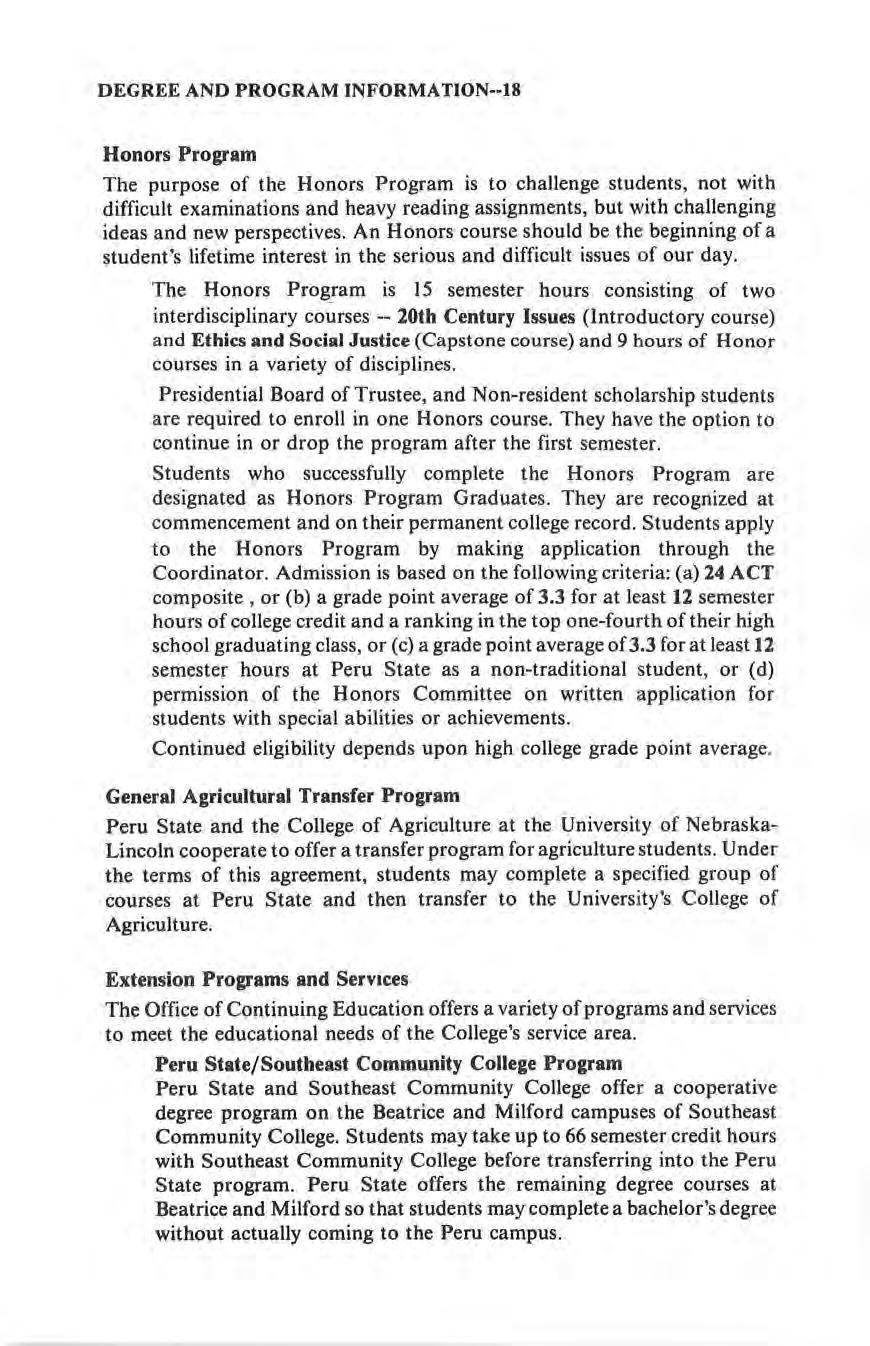
Peru State and the College of Agriculture at the University of NebraskaLincoln cooperate to offer a transfer program for agriculture students. Under the terms of this agreement, students may complete a specified group of courses at Peru State and then transfer to the Univers ity's College of Agriculture.
Extension Programs and Services
The Office of Continuing Education offers a variety of programs and services to meet the educational needs of the College's service area.
Peru State/Southeast Community College Program
Peru State and Southeast Community College offer a cooperative degree program on the Beatrice and Milford campuses of Southeast Community College. Students may take up to 66 semester credit hours with Southeast Community College before transferring into the Peru State program. Peru State offers the remaining degree courses at Beatrice and Milford so that students may complete a bachelor's degree without actually coming to the Peru campus.
DEGREE AND PROGRAM INFORMATION--18
The Transfer Guide assists both students and advisors . It lists the course equivalencies at both institutions, the specific course requirements for each degree, and the procedures for admission, registration, and payment of tuition and fees. Students who enter the program with a significant amount of credit toward their major will have their transcripts reviewed by the appropriate Division Chairperson, in consultation with the Vice President, to determine if a possible 6-15 credit hours of designated coursework in the major is required .
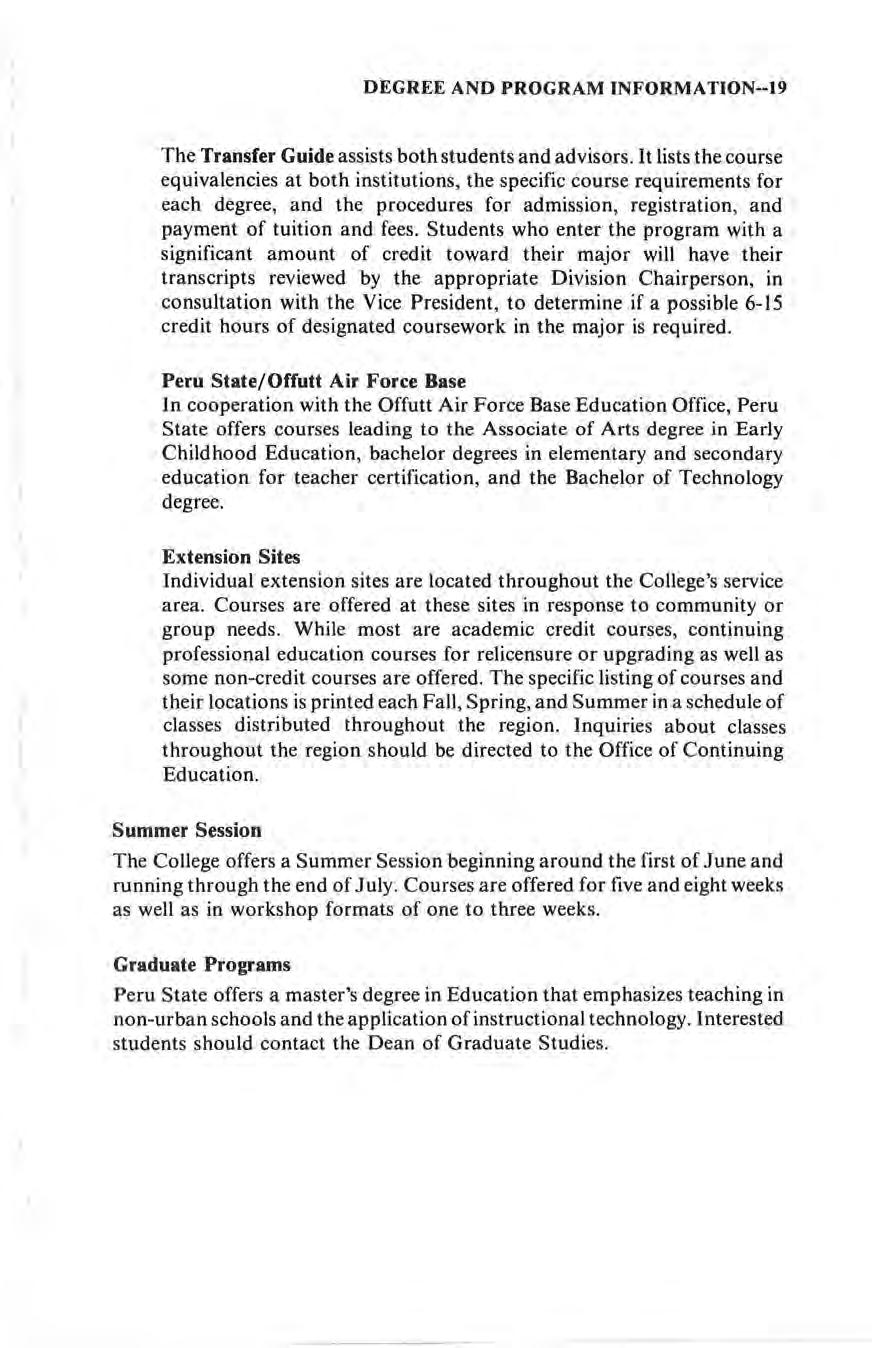
Peru State / Offutt Air Force Base
In cooperation with the Offutt Air Force Base Education Office, Peru State offers courses leading to the Associate of Arts degree in Early Childhood Education, bachelor degrees in elementary and secondary education for teacher certification, and the Bachelor of Technology degree.
Extension Sites
Individual extension sites are located throughout the College's service area. Courses are offered at these sites in response to community or group needs . While most are academic credit courses , continuing professional education courses for relicensure or upgrading as well as some non-credit courses are offered . The specific listing of courses and their locations is printed each Fall, Spring, and Summer in a schedule of classes distributed throughout the region Inquiries about classes throughout the region should be directed to the Office of Continuing Education.
Summer Session
The College offers a Summer Session beginning around the first of June and running through the end of July. Courses are offered for five and eight weeks as well as in workshop formats of one to three weeks .
Graduate Programs
Peru State offers a master's degree in Education that emphasizes teaching in non-urban schools and the application of instructional technology Interested students should contact the Dean of Graduate Studies .
DEGREE AND PROGRAM INFORMATION--19
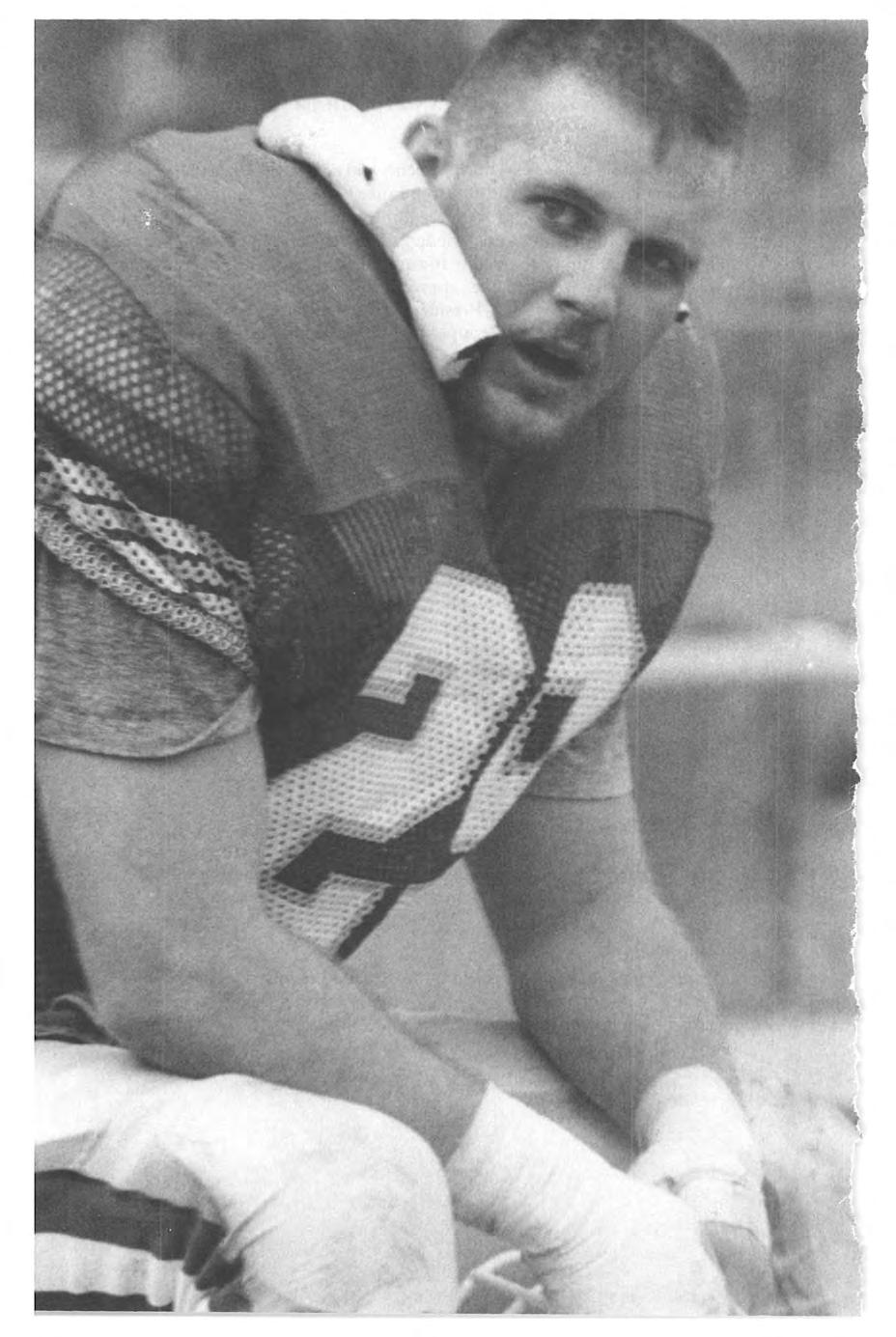
DIVISION OF BUSINESS
James E. Thomas, Chairperson
Professors: Snyder, Thomas
Associate Professor: Jacobs, Mowbray
Assistant Professors: Beldin, Hamilton, Lewellen, Ruck
Instructors: Shively, Tabata
NBDC Director: Holliday
The Division of Business offers programs to prepare students for a wide range of occupations in industry, business, community development, and business education. The programs are designed to provide marketable skills and knowledge, preparation for advancement on the job, and background for graduate study. B.A. and B.S. degrees are offered in Business Administration, Business Education, and the B.T. degree in Technology.
The Business Administration program offers a choice of options--Accounting, Management, Sales Management, and Economic Development. The Business Education degree is offered with subject endorsements in Basic Business, and General Office or as a field endorsement. The Technology program offers emphasis in Industrial Supervision and Industrial Distribution.
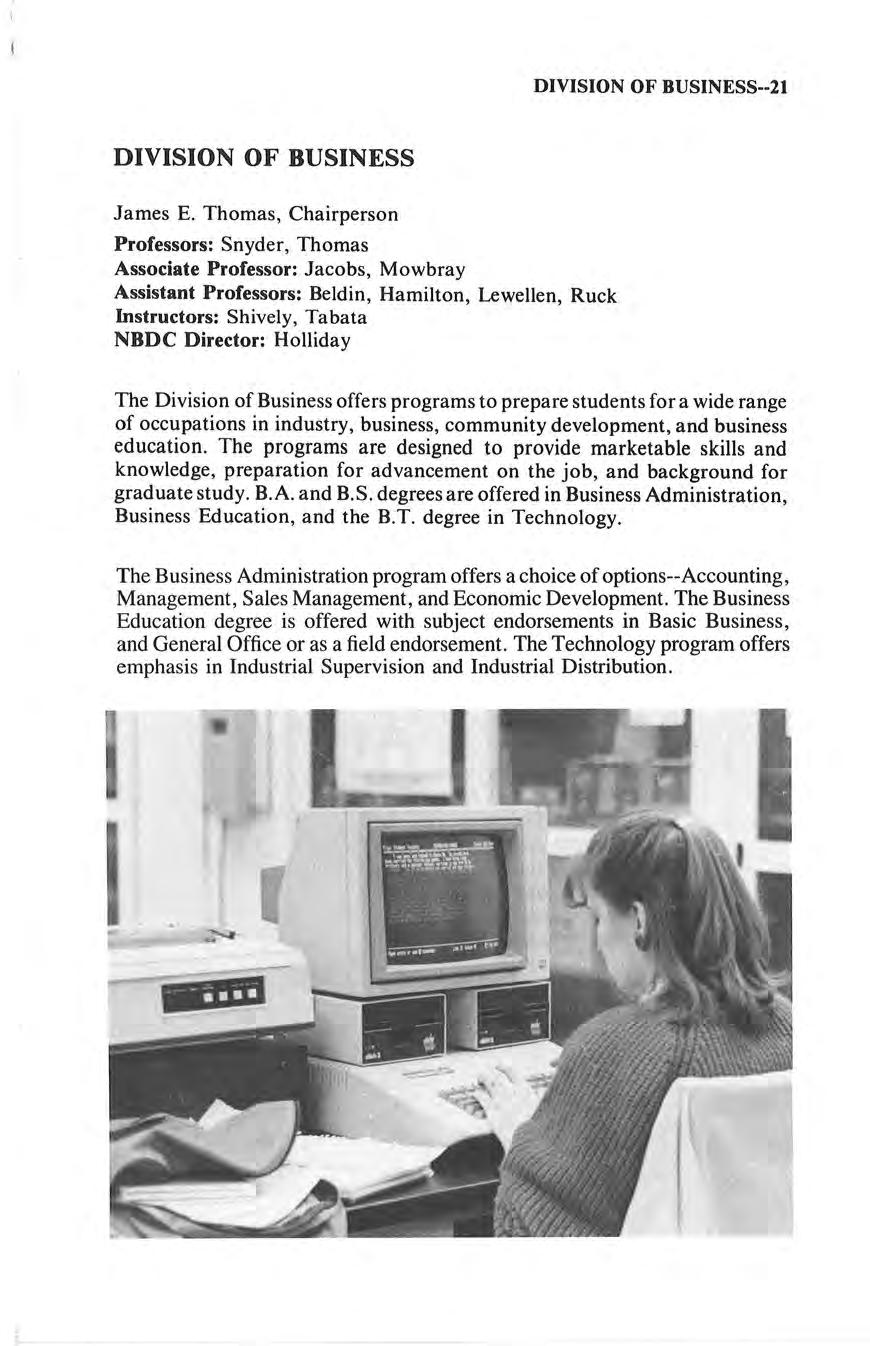
DIVISION OF BUSINESS--21
Business Administration-Accounting Option
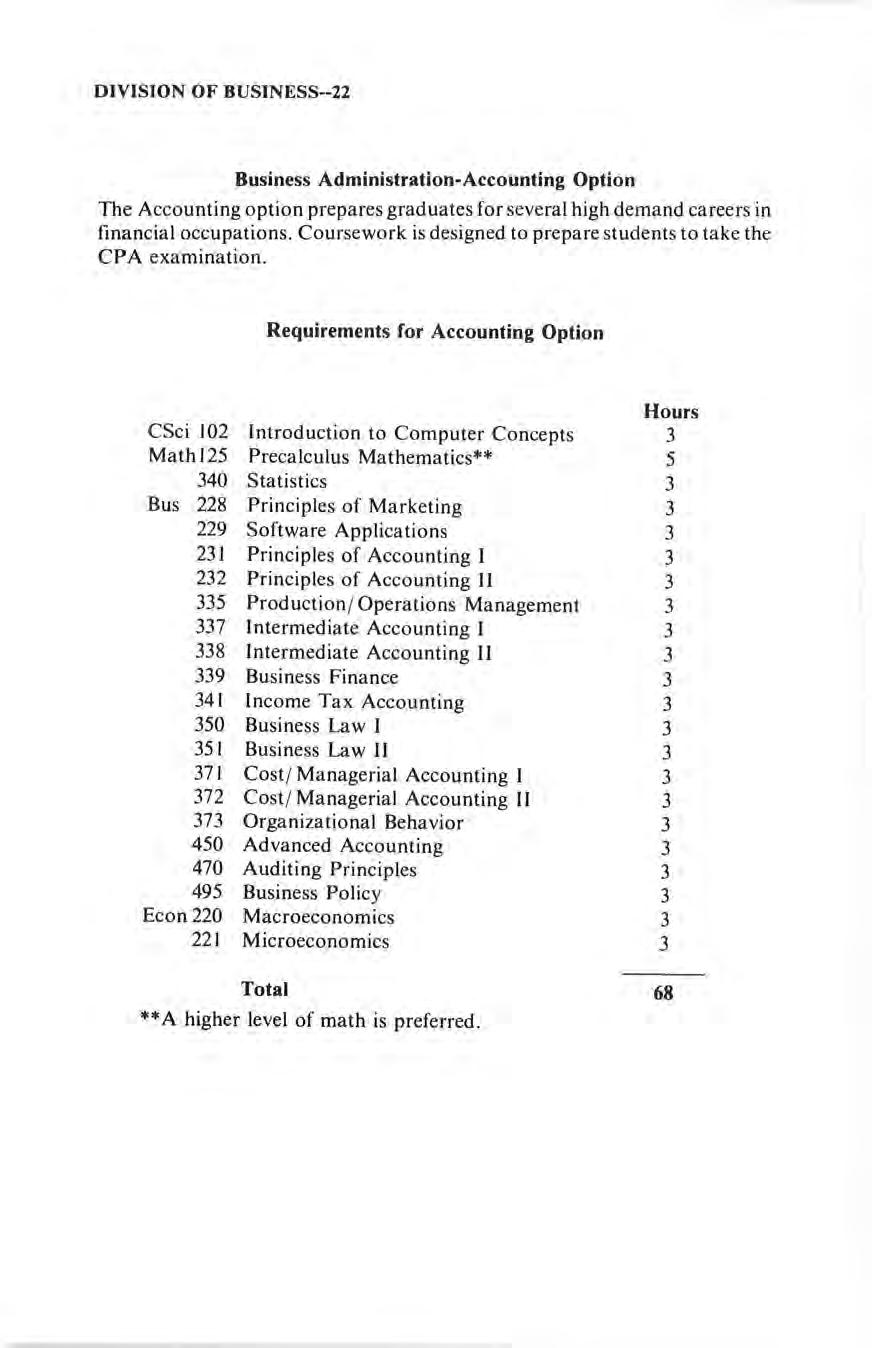
The Accounting option prepares graduates for several high demand careers in financial occupations. Coursework is designed to prepare students to take the CPA examination.
Requirements
** A higher level
DIVISION OF BUSINESS--22
CSci 102 Mathl25 340 Bus 228 229 231 232 335 337 338 339 341 350 351 371 372 373 450 470 495 Econ 220 221
for Accounting Option Introduction to Computer Concepts Precalculus Mathematics** Statistics Principles of Marketing Software Applications Principles of Accounting I Principles of Accounting II Production / Operations Management Intermediate Accounting I Intermediate Accounting II Business Finance Income Tax Accounting Business Law I Business Law II Cost / Managerial Accounting I Cost / Managerial Accounting II Organizational Behavior Advanced Accounting Auditing Principles Business Policy Macroeconomics Microeconomics Total
of
Hours 3 5 3 3 3 3 3 3 3 3 3 3 3 3 3 3 3 3 3 3 3 3 68
math is preferred.
Suggested Program for Accounting Option
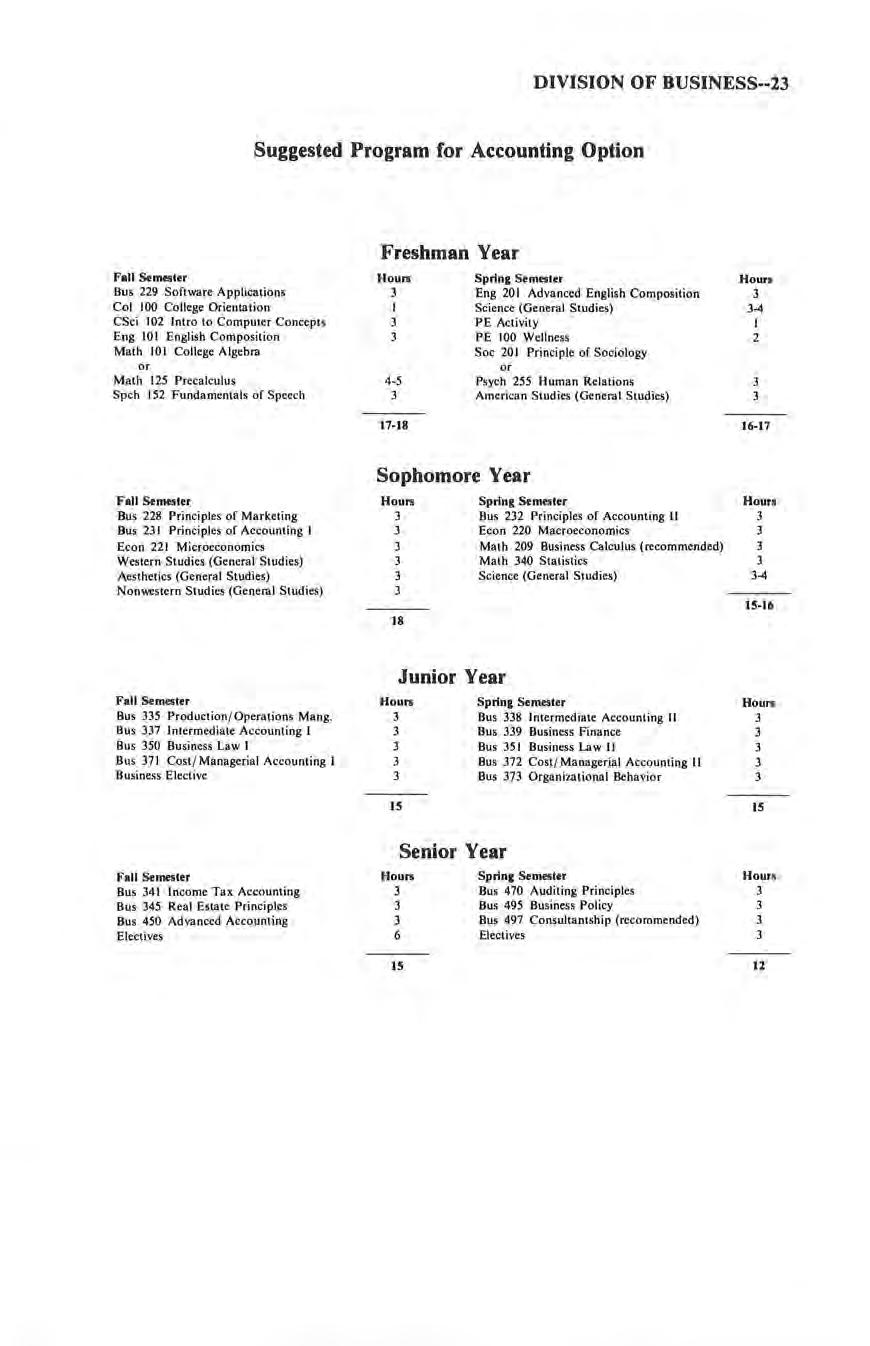
DIVISION OF BUSINESS--23
Fall Semester Bus 229 Software Applications Col 100 College Orientation CSci 102 Intro to Computer Concepts Eng IOI English Composition Math IOI College Algebra or Math 125 Precalculus Speh 152 Fundamentals of Speech Fall Semester Bus 228 Principles of Marketing Bus 231 Principles of Accounting I Econ 221 Microeconomics Western Studies {General Studies) Aesthetics (General Studies) Nonwestern Studies (General Studies) Fall Semester Bus 335 Production / Operations Mang. Bus 337 Intermediate Accounting I Bus 350 Business Law I Bus 371 Cost / Managerial Accounting I Business Elective Fall Semester Bus 341 Income Tax Accounting Bus 345 Real Estate Principles Bus 450 Advanced Accounting Electives Freshman Year Houn 3 4-5 3 17-18 Spring Semester Eng 20 I Advanced English Composition Science (Geneial Studies) PE Activity PE 100 Wellness Soc 201 Principle of Sociology or Psych 255 Human Relations American Studies (General Studies) Sophomore Year Hours 3 3 3 3 3 3 18 Spring Semester Bus 232 Principles of Accounting II Econ 220 Macroeconomics Math 209 Business Calculus (recommended) Math 340 Statistics ~cience (General Studies) Junior Year Hours 3 3 3 3 3 15 Spring Semester Bus 338 Intermediate Accounting II Bus 339 Business Finance Bus 351 Business Law II Bus 372 Cost / Managerial Accounting I I Bus 373 Organizational Behavior Senior Year Hours 3 3 3 6 15 Sprinc Semester Bus 470 Auditing Principles Bus 495 Business Policy Bus 497 Consultantship (recommended) Electives Hours 3 3-4 I 2 16-17 Hours 3 3 3-4 15-16 Hours 3 3 3 3 3 15 Hours 3 3 3 3 12
*The following courses are excluded: Bus 220, 222, 235, 334, and 425
** A higher level of math is preferred.
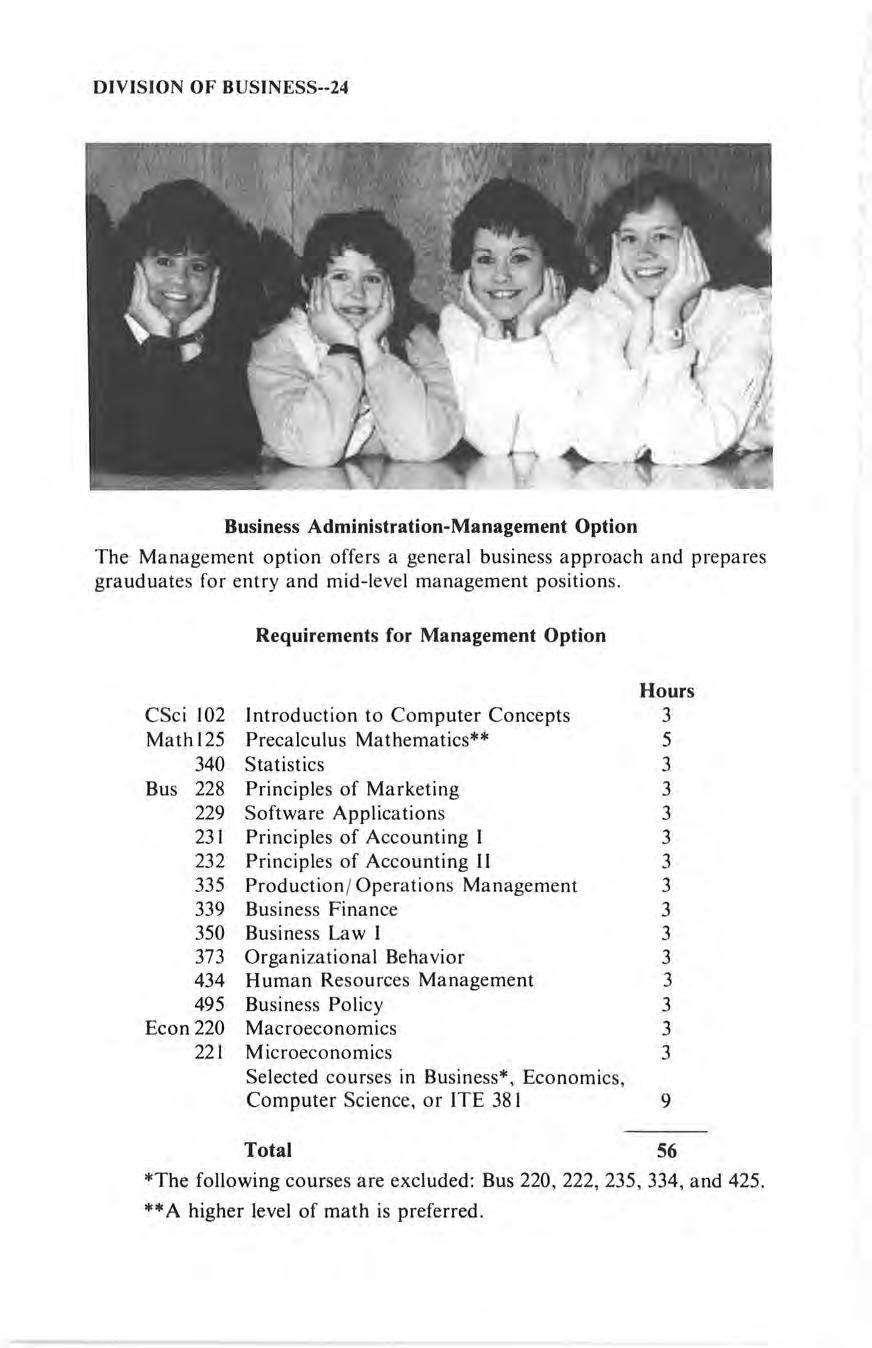
DIVISION OF BUSINESS--24 Business Administration-Management Option The Management option offers a general business approach and prepares grauduates for entry and mid-level management positions . CSci 102 Mathl25 340 Bus 228 229 231 232 335 339 350 373 434 495 Econ 220 221 Requirements for Management Option Introduction to Computer Concepts Precalculus Mathematics** Statistics Principles of Marketing Software Applications Principles of Accounting I Principles of Accounting II Production / Operations Management Business Finance Business Law I Organizational Behavior Human Resources Management Business Policy Macroeconomics Microeconomics Selected courses in Business*, Economics, Computer Science, or !TE 381 Total Hours 3 5 3 3 3 3 3 3 3 3 3 3 3 3 3 9 56
Suggested Program for Management Option
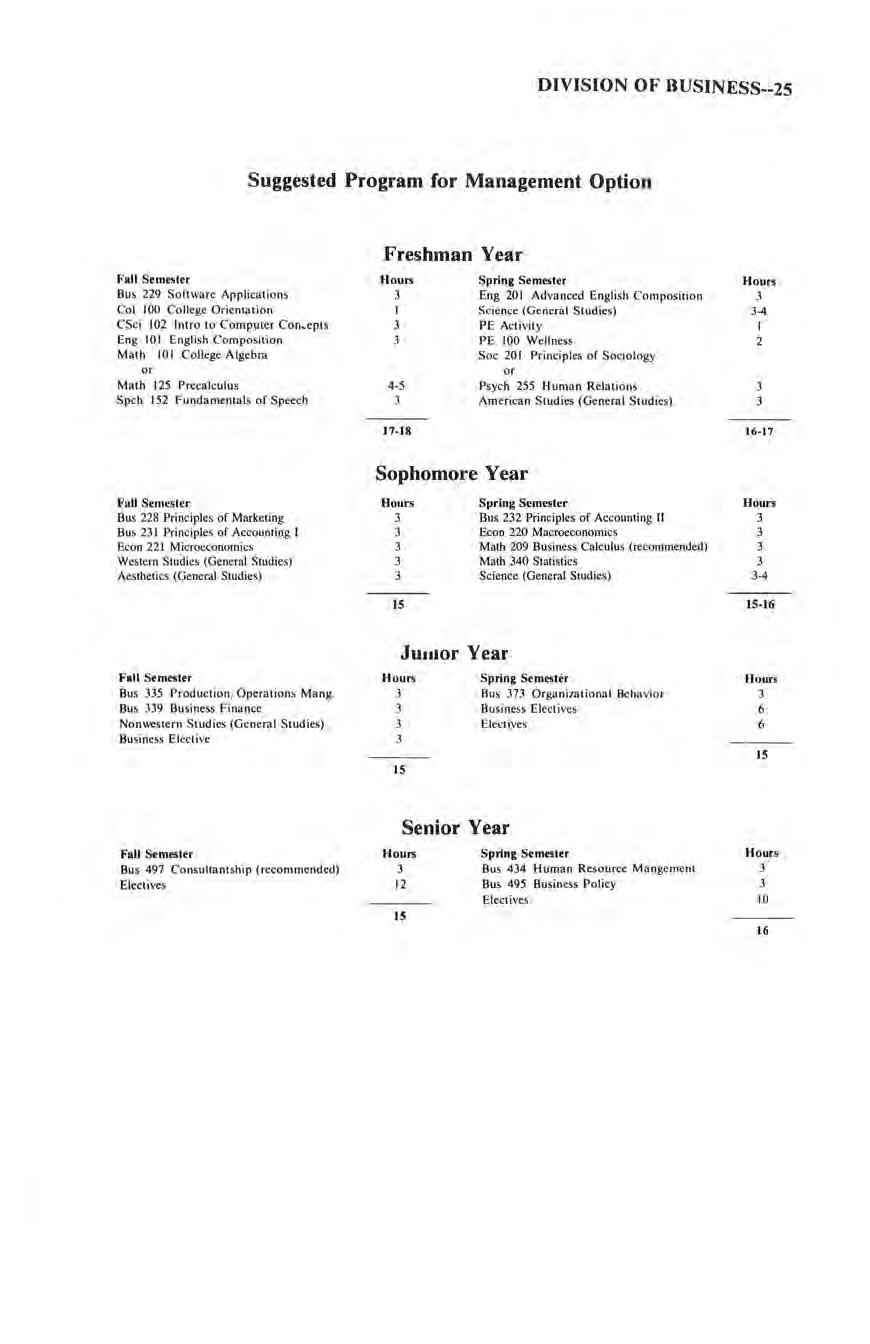
DIVISION OF llUSINESS--25
Fall Se mester Bus 229 Software Applications Co l 100 Co ll ege Orientation CSci 102 Intro to Compu ter Con epts Eng 101 Eng li sh Composi tion Math IOI College Algebra or Math 125 Precalculus Speh I 52 Fundamenta ls of Speech Fall Semester Bus 228 Principles of Marketing Bu s 23 1 Principles of Accounting I Econ 221 Microeconomics Western Studies (General Studies) Aesthetics (General Studies) Fall Semester Bu s 335 Production i Operations Mang. Bus 339 Business Finance Nonwestern Studies (General Studies) Business E lective Fall Semester Bu s 497 Consultan t sh ip (recommended) Electives Freshman Year Hours 3 4-5 3 17-18 Spring Semester Eng 201 Advanced English Compos iti on Scie nc e (General Stud ies) PE Activity PE IOO Wellness Soc 201 Principles or Sociolog y or Psych 255 Human Relations American Stud ie s (General S tudi es) Sophomore Year Hours 3 3 3 3 3 15 Spring Semester Bus 232 Principles of Accounting II Econ 220 Macroeconomics Math 209 Business Calc ulu s (recommended) Math 340 Statistics Science (General Studies) Ju111or Year Hours 3 3 3 3 15 Spring Semester Bus 373 Organi1.ational Behavior Business Electives Electives Senior Year Hours 3 12 15 Spring Semester Bus 434 Human Resource Mangemcnt Bus 495 Business Policy Electives· Hours 3-4 I 16-17 Hours 3 3 3 3 3-4 15-16 Hours 3 6 6 15 Hours 3 3 10 16
Business Administration-Sales Management Option
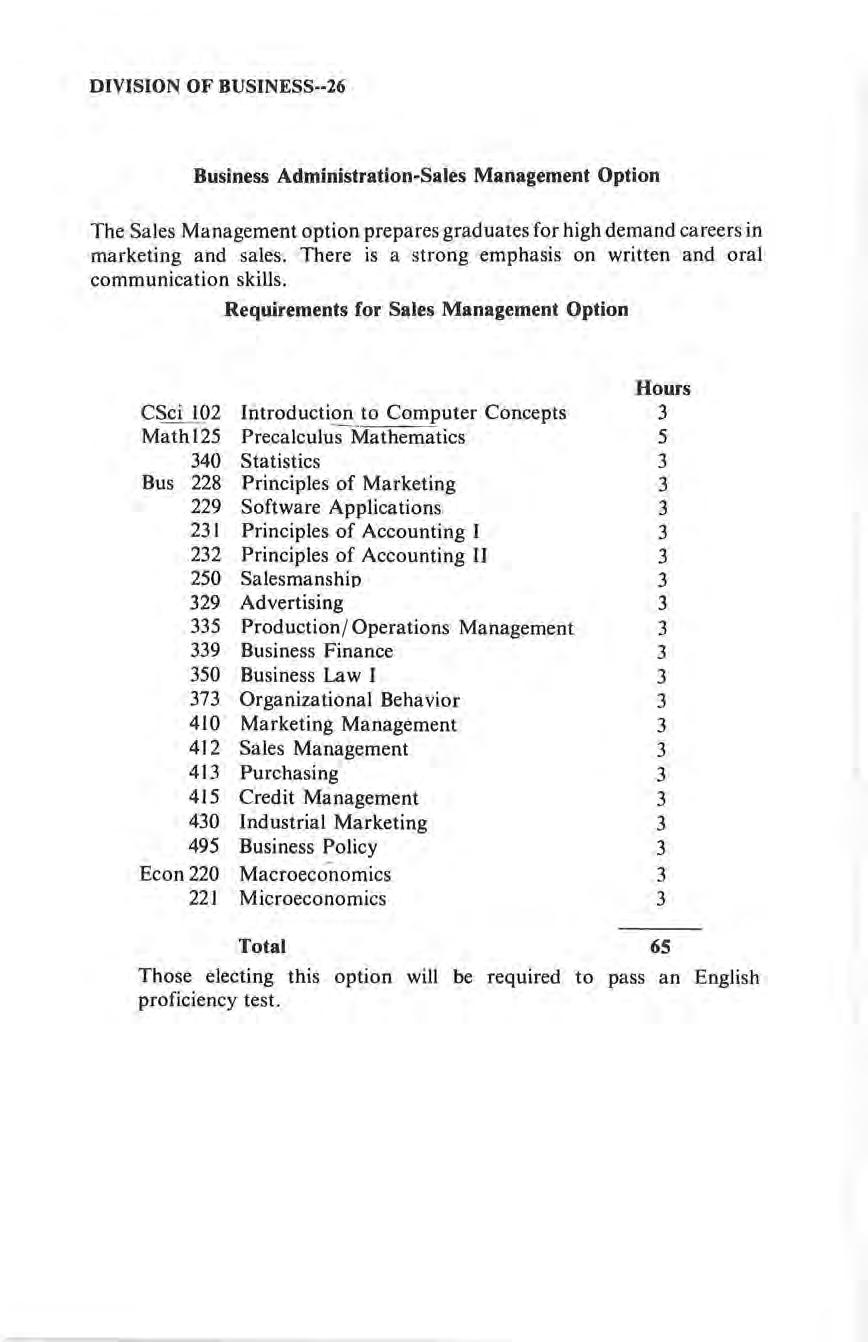
The Sales Management option prepares graduates for high demand careers in , marketing and sales. There is a strong emphasis on written and oral communication skills.
Those electing this option will be required to pass an English proficiency test.
DIVISION OF BUSINESS--26
CSci 102 Mathl25 340 Bus 228 229 231 232 250 329 335 339 350 373 410 412 413 415 430 495 Econ 220 221 Requirements
Introduction to Computer Concepts Precalculus Mathematics Statistics Principles of Marketing Software Applications Principles of Accounting I Principles of Accounting II Salesmanship Advertising Production / Operations Management Business Finance Business Law I Organizational Behavior Marketing Management Sales Management Purchasing Credit Management Industrial Marketing Business Policy Macroeconomics Microeconomics Total Hours 3 5 3 3 3 3 3 3 3 3 3 3 3 3 3 3 3 3 3 3 3 65
for Sales Management Option
Suggested Program for Sales Management Option
Freshman Year
Fa ll Se mester Bus 229 Software App li cations
Co l I00 Co llege Orientation
CSc i 102 Int ro to Computer Concepts
E ng I OI English Compos iti on
M
IOI Co llege Algebra
Speh 15 2 Fundamentals of Speech
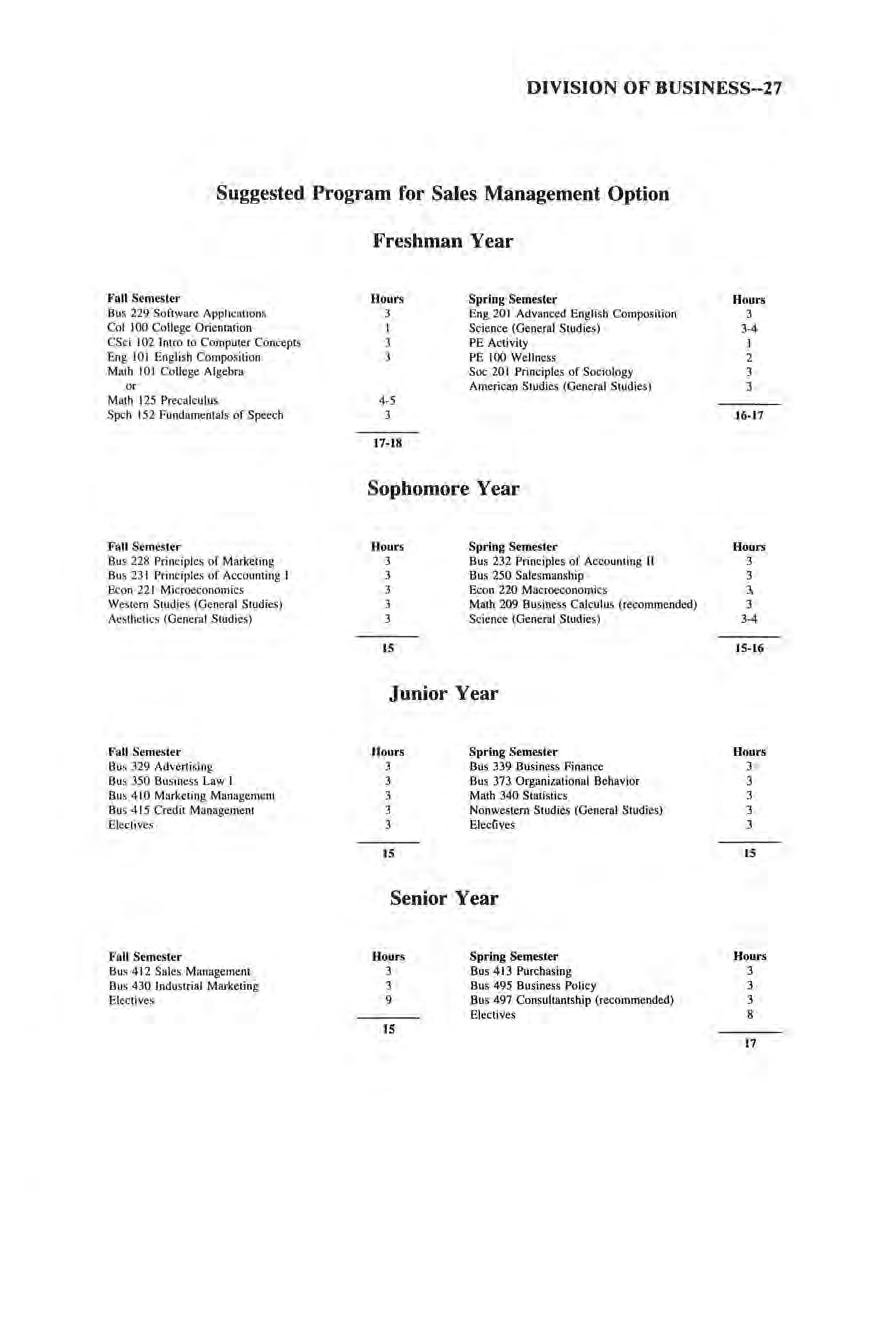
Fall Semeste r Bus 228 P rin cip les of Marketing
Bus 23 1 Princip les of Accoun tin g I Eco n 221 Mi c roeconomic s
DIVISION OF BUSINESS--27
or
ath
Math 125 Precalcu lus
Fall Se mester Bus 329 Advertising Bu s 350 Business Law I Bus 4 10 Marketing Management Bus 4 15 Cred it Management E lec tive s Fall Se mester Bu s 412 Sales Management Bu s 430 lndu st ri al Marketing Electives
We s tern Studies (General Studie s) Aesthetic s (General Studies)
Hours 3 I 3 4 5 3 17-18 Spring Semester Eng 20 1 Advanced Eng
Composition Science (General Studies) PE Activity PE 100 Wellne ss Soc 20 I Principles of Socio
American Studies (Ge neral Studies) Sophomore Year Hours 3 3 IS Spring Semester Bus 232 Principles of Accounting II Bus 250 Salesmanship Econ 220 Macroeconomics Math 209 Business Calcu lu s (recommended) Science (General Studies) Junior Year Hours 3 3 3 3 3 IS Spring Semester Bus 339 Business Finance Bus 373 Organizational Behavior Math 340 Statistics Nonwestern Studies (General Studie s) Elec five s Senior Year Hours 3 3 9 IS Spring Semester Bus 413 Purchasing Bus 495 Business Policy Bus 497 Consultantship (recommended) Electives Hours 3 3.4 16-17 Hours 3 3 l 3 3.4 15-16 Hours 3 3 3 3 3 IS Hours 3 17
li sh
logy
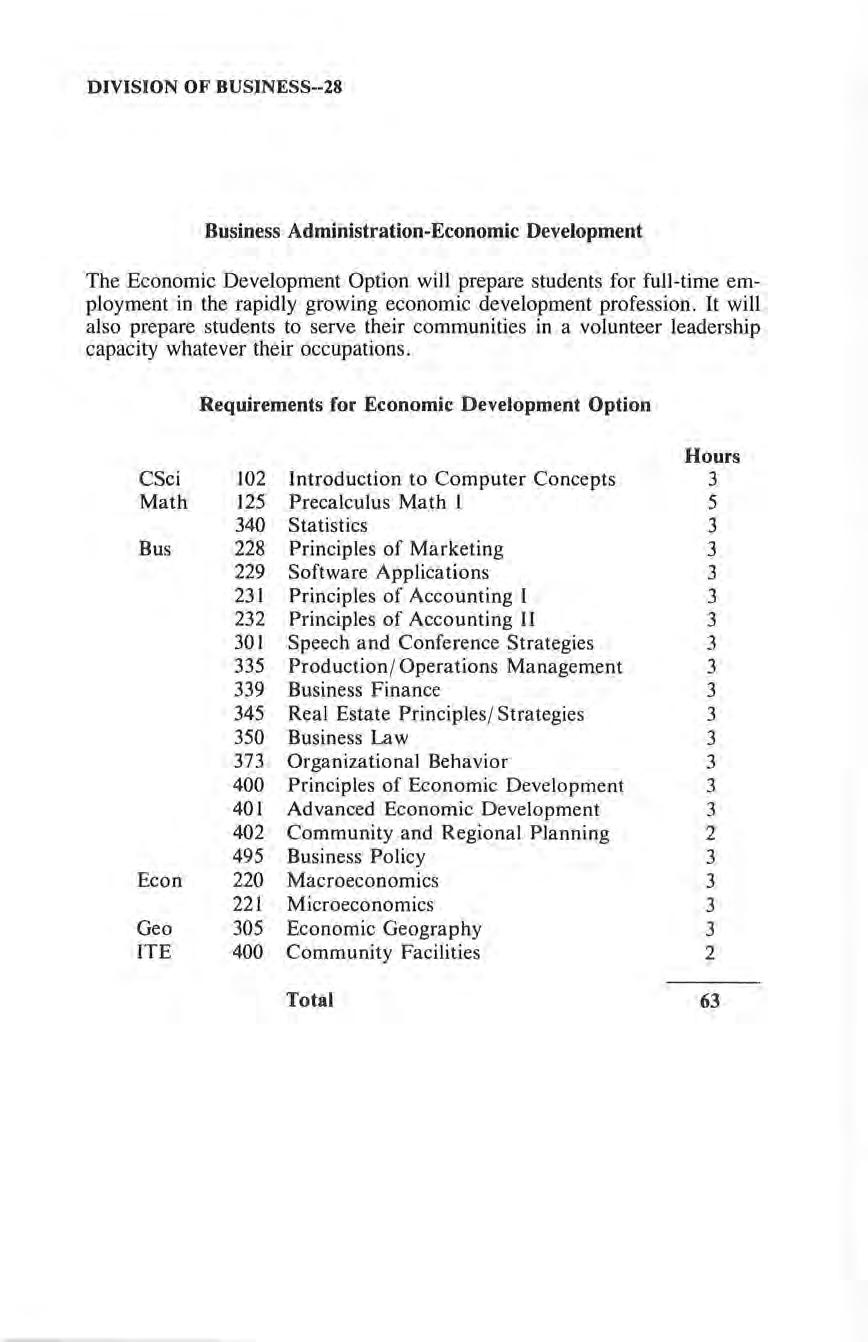
DIVISION OF BUSINESS--28 Business Administration-Economic Development The Economic Development Option will prepare students for full-time employment in the rapidly growing economic development profession . It will also prepare students to serve their communities in a volunteer leadership capacity whatever their occupations Requirements for Economic Development Option Hours CSci 102 Introduction to Computer Concepts 3 Math 125 Precalculus Math I 5 340 Statistics 3 Bus 228 Principles of Marketing 3 229 Software Applications 3 231 Principles of Accounting I 3 232 Principles of Accounting II 3 301 Speech and Conference Strategies 3 335 Production / Operations Management 3 339 Business Finance 3 345 Real Estate Principles / Strategies 3 350 Business Law 3 373 Organizational Behavior 3 400 Principles of Economic Development 3 401 Advanced Economic Development 3 402 Community and Regional Planning 2 495 Business Policy 3 Econ 220 Macroeconomics 3 221 Microeconomics 3 Geo 305 Economic Geography 3 ITE 400 Community Facilities 2 Total 63
Suggested Program for Economic Development Option
Sophomore Year
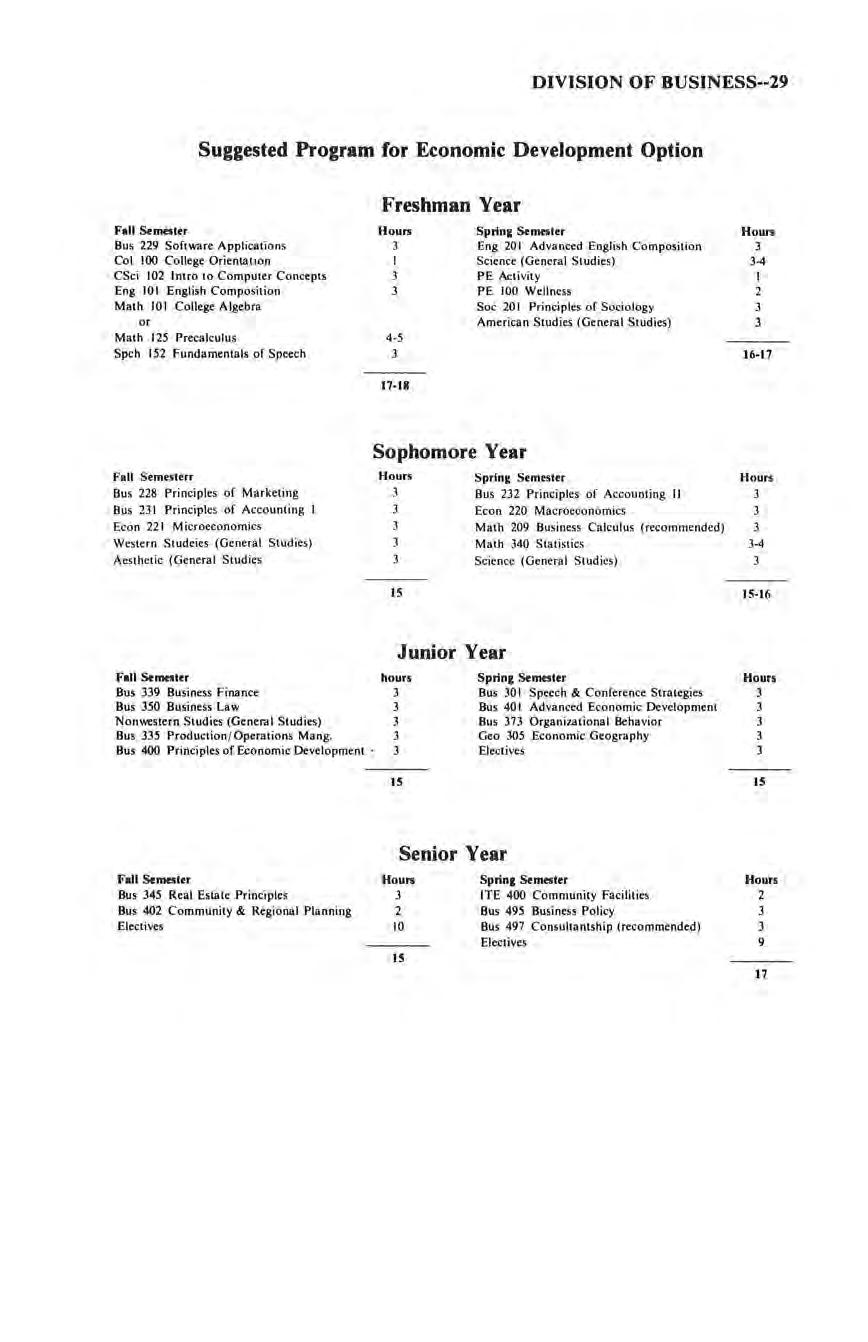
DIVISION OF BUSINESS--29
Fall Semester Bus 229 Software Applications Col 100 College Orientation CSci 102 Intro to Computer Concepts Eng 101 English Comp~sition Math IOI College Algebra or Math 125 Precalculus Speh 152 Fundamentals of Speech
Hours 3 4-5 3 17-18 Spring Semester Eng 201 Advanced English Co mposition Science (General Studies) PE Activity PE 100 Wellness Soc 20 I Principles of Sociology American Studies (General Studies) Hours 3 3-4 16-17
Freshman Year
fall Semesterr Bus 228 Principles of Marketing Bus 231 Principles of Accounting Econ 221 Microeconomics Western Studeies (General Studies) Aesthetic (General Studies Fall Semester Bus 339 Business Finance Bus 350 Business Law Nonwestern Studies (General Studies) Bus 335 Production / Operations Mang. Bus 400 Principles of Economic Development • Fall Semester Bus 345 Real Estate Principles Bus 402 Community & Regional Planning Electives Hours Spring Semester Hours IS Bus 232 Principles of Accounting II Econ 220 Macroeconomics Math 209 Business Calculus (recommended) Math 340 Statistic s Science (General Studies) Junior Year hours 3 3 3 3 3 15 Spring Semester Bus 301 Speech & Conference Strategies Bus 401 Ad vanced Economic Development Bus 373 Organizational Behavior Geo 305 Economic Geography Electives Senior Year Hours 3 2 10 15 Sprin& Semester ITE 400 Community Facilities Bus 495 Business Policy Bus 497 Consultantship (recommended) Electives 3-4 IS-16 Hours 3 3 3 3 3 15 Hours 2 3 3 9 17
Business Education-Field Endorsement
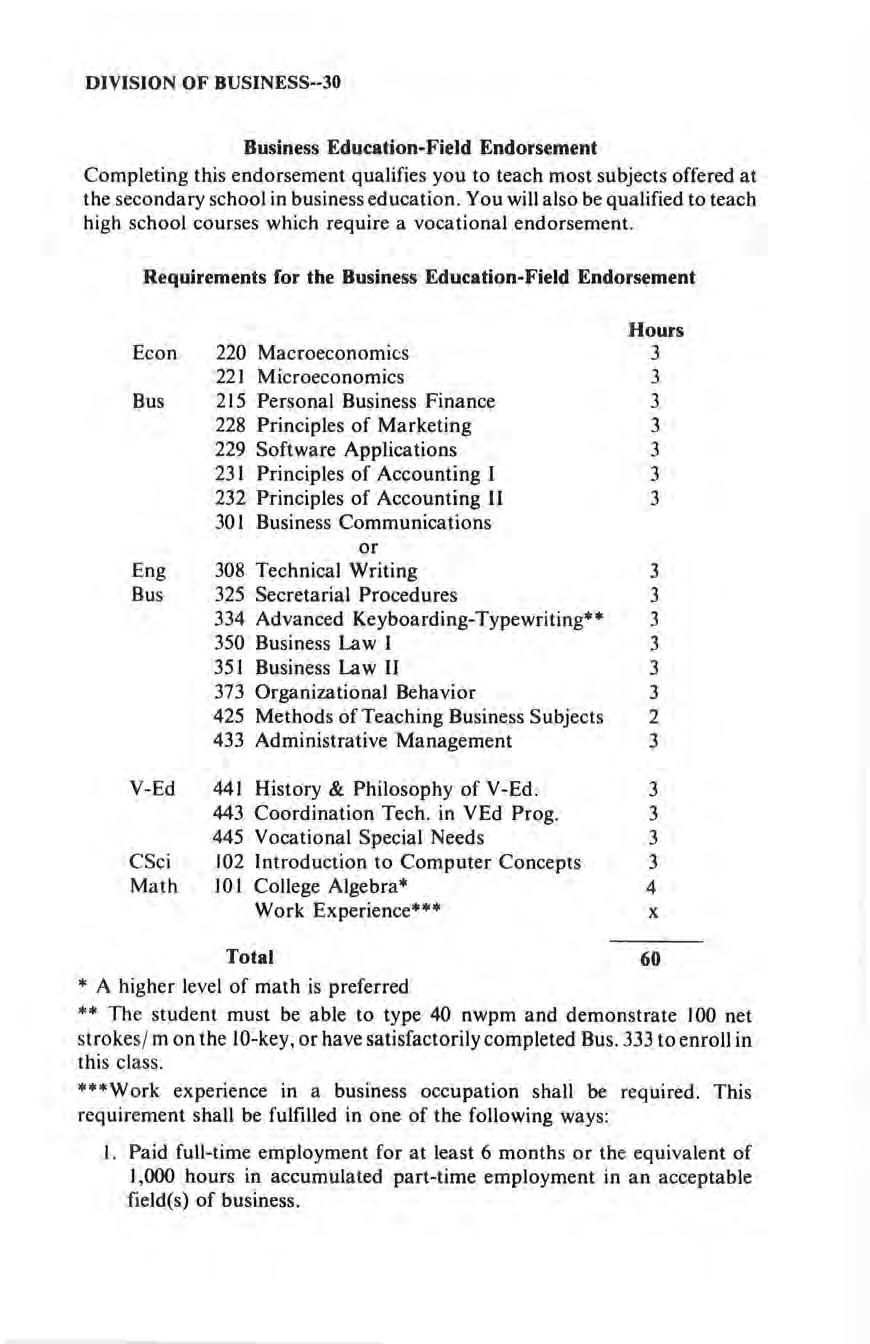
Completing this endorsement qualifies you to teach most subjects offered at the secondary school in business education. You will also be qualified to teach high school courses which require a vocational endorsement.
*
** The student must be able to type 40 nwpm and demonstrate 100 net stroke s/ m on the IO-key, or have satisfactorily completed Bus. 333 to enroll in this cl a ss .
***Work experience in a business occupation shall be required. This requirement shall be fulfilled in one of the following ways:
I . Paid full-time employment for at least 6 months or th e equivalent of 1,000 hours in accumulated part-time employment in an acceptable field(s) of business.
DIVISION OF BUSINESS--30
Requirements for the Business Education-Field Endorsement Econ Bus Eng Bus V-Ed C S ci Math 220 Macroeconomics 221 Microeconomic s 215 Personal Business Finance 228 Principles of Marketing 229 Software Applications 231 Principles of Accounting I 232 Principles of Accounting II 30 I Business Communications or 308 Technical Writing 325 Secretarial Procedures 334 Advanced Keyboarding-Typewriting** 350 Business Law I 351 Business Law II 373 Organizational Behavior 425 Methods of Teaching Business Subjects 433 Administrative Management 441 History & Philosophy of V- Ed. 443 Coordination Tech. in VEd Prog. 445 Vocational Special Needs 102 Introduction to Computer Concepts 10 I College Algebra* Work Experience* ** Total
A
of math is
Hours 3 3 3 3 3 3 3 3 3 3 3 3 3 2 3 3 3 3 3 4 X 60
higher level
preferred
2. At least 180 hours of employment in an acceptable field of business under the direction and supervision of a qualified, experienced vocational teacher educator.
3. An organized program of directed observation of work stations in a field of business under the direction and supervision of a qualified, experienced vocational teacher educator The program of direction observation must include 90 hours of observation.
Basic Business-Subject Endorsement
This endorsement, when taken with another subject endorsement, qualifies you to teach the basic business and the typewriting/ keyboarding courses taught in a Nebraska high school business curriculum. It does not qualify you to teach shorthand, secretarial procedures or other skill courses.
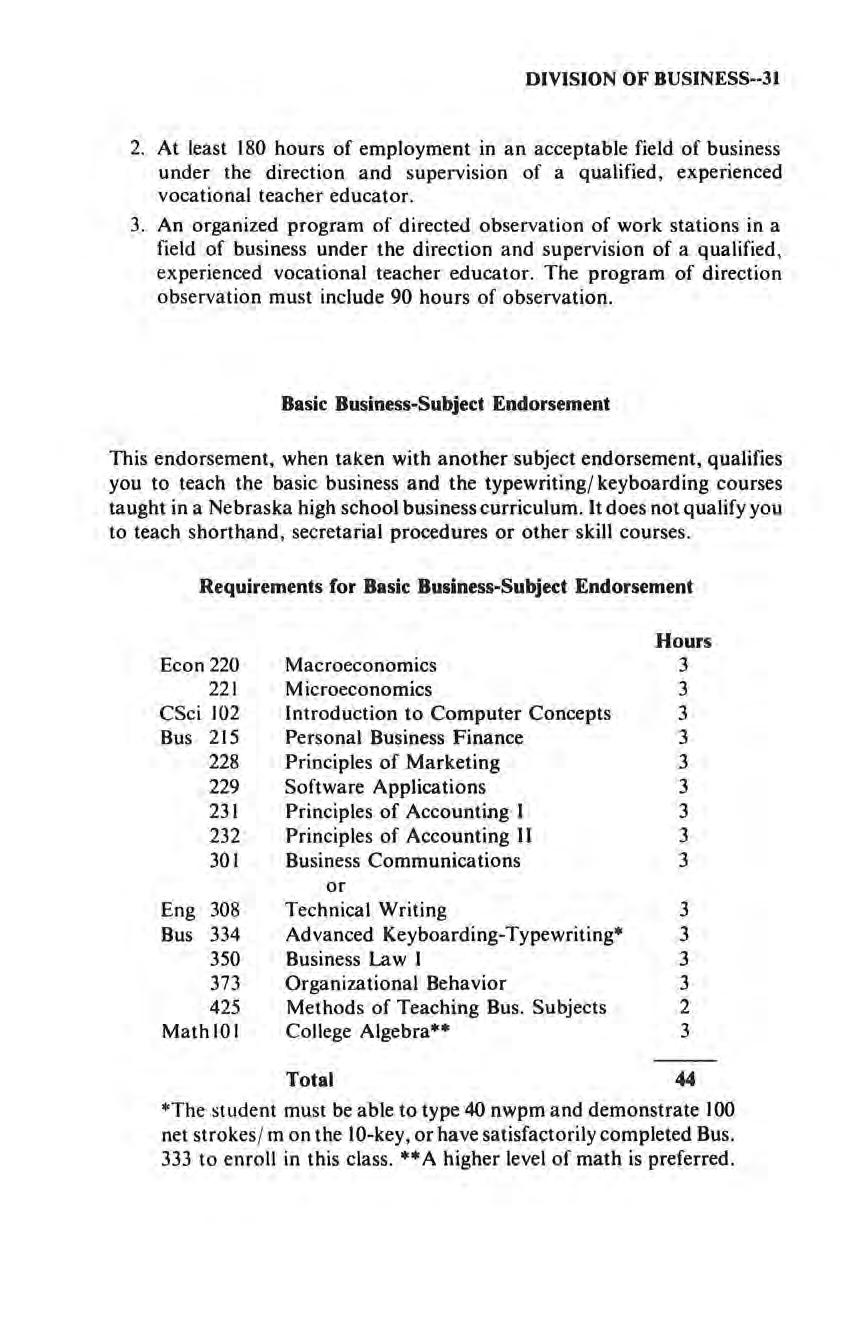
DIVISION OF BUSINESS--31
Requirements for Basic Business-Subject Endorsement Hours Econ 220 Macroeconomics 3 221 Microeconomics 3 CSci 102 Introduction to Computer Concepts 3 Bus 215 Personal Business Finance 3 228 Principles of Marketing 3 229 Software Applications 3 231 Principles of Accounting I 3 232 Principles of Accounting II 3 301 Business Communications 3 or Eng 308 Technical Writing 3 Bus 334 Advanced Keyboarding -Typewriting* 3 350 Business Law I 3 373 Organizational Behavior 3 425 Methods of Teaching Bus. Subjects 2 Math IOI College Algebra** 3 Total 44
to
*The student must be able to type 40 nwpm and demonstrate 100 net strokes / m on the 10-key, or have satisfactorily completed Bus. 333
enroll in this class. ** A higher level of math is preferred.
Suggested Program for Business Education Option
Freshman Year
Hours
Fall Semester
Bus 229 Software Applications
Col 100 College Orientation
CSci 102 Intro to Computer Concepts
Eng 10 I English Composition
Math 110 Elements of Math I
Speh I 52 Fundamentals of Speech
Sophomore
Spring Semester
Eng 202 Advanced English Composition
Science (General Studies)
PE Acti v ity
PE 100 Wellness
Soc 20 I Principles of Sociology
American Studies
Fall Semester
Bus 228 Principles of Marketing
Bus 23 I Principles of Accounting I
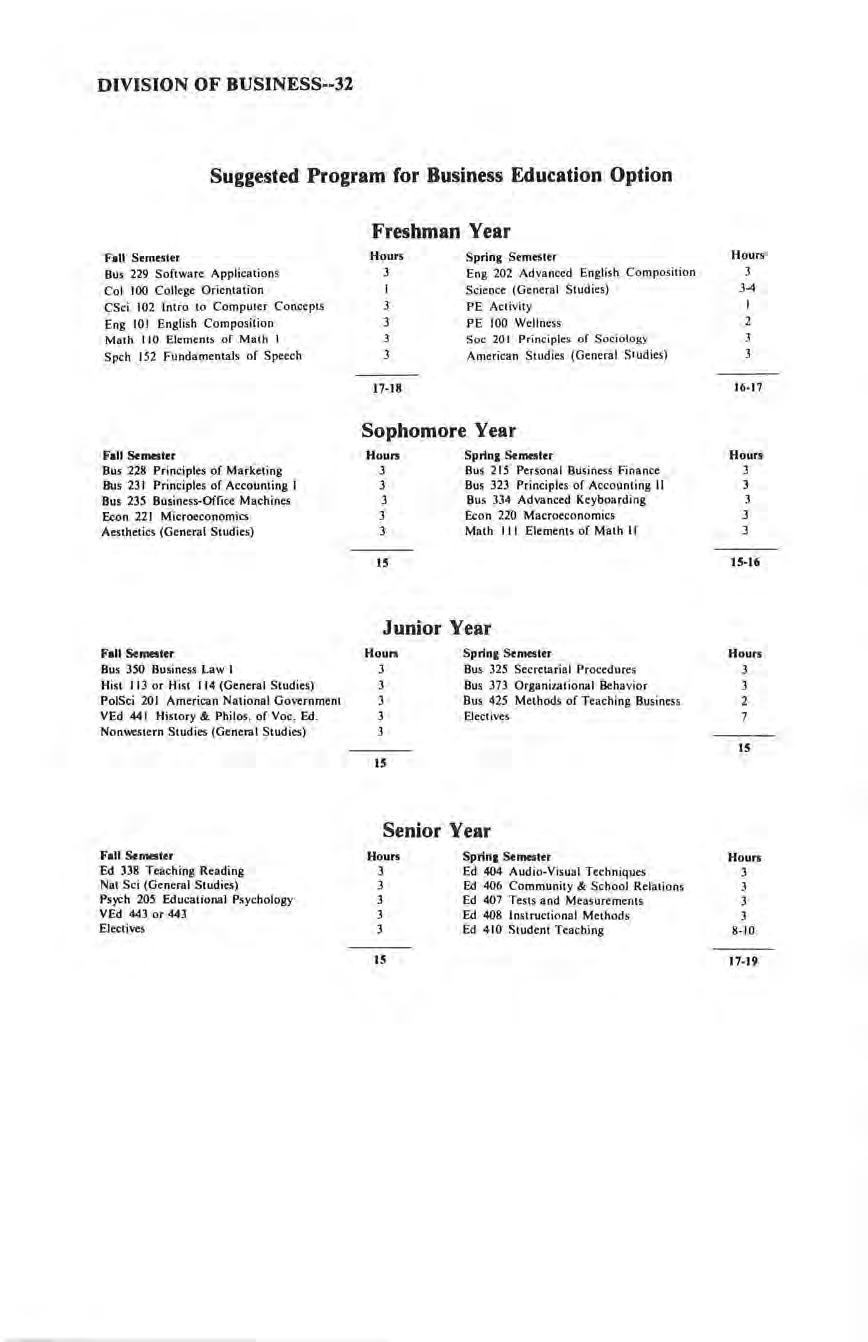
Bus 235 Business-Office Machines
Econ 221 Microeconomics
Aesthetics (General Studies)
Fall Semester
Bus 350 Business Law I
Hist 11 3 or Hist 114 (General Studies)
PoJSci 201 American National Government
VEd 441 History & Philos. of Voe. Ed.
Nonwcstern Studies (General Studies)
Bus 215 Personal Business Finance
Bus 323
of Accounting II
Bus 334 Advanced Keyboarding
Econ 220 Macroeconomics Math 111 Elements of Math 11
Fall Semester
Ed 338 Teaching Reading
Nat Sci (General Studies)
Psych 205 Educational Psychology
VEd 443 or 443
Elective s
DIVISION OF BUSINESS--32
17-18
(General Studies)
Year Houn 3 3 3 3 3 15 Sprin&
Semester
Principles
Year Houn 3 3 15 Sprin& Semester Bus 325 Secretarial Procedure s Bus 373 Organiz.ational Behavior Bus
Methods of Teaching Business Electives Senior Year Hours 3 3 3 3 3 15 Sprlnc Semester Ed 404 Audio-Visual Techniques Ed 406 Community & School Relations Ed 407 Tests and Measurements Ed 408 Instructional Methods Ed 410 Student Teaching Hours 3-4 16-17 Hours 3 3 3 3 15-16 Hours 15 Hours 3 3 3 3 8-IO 17-19
Junior
425
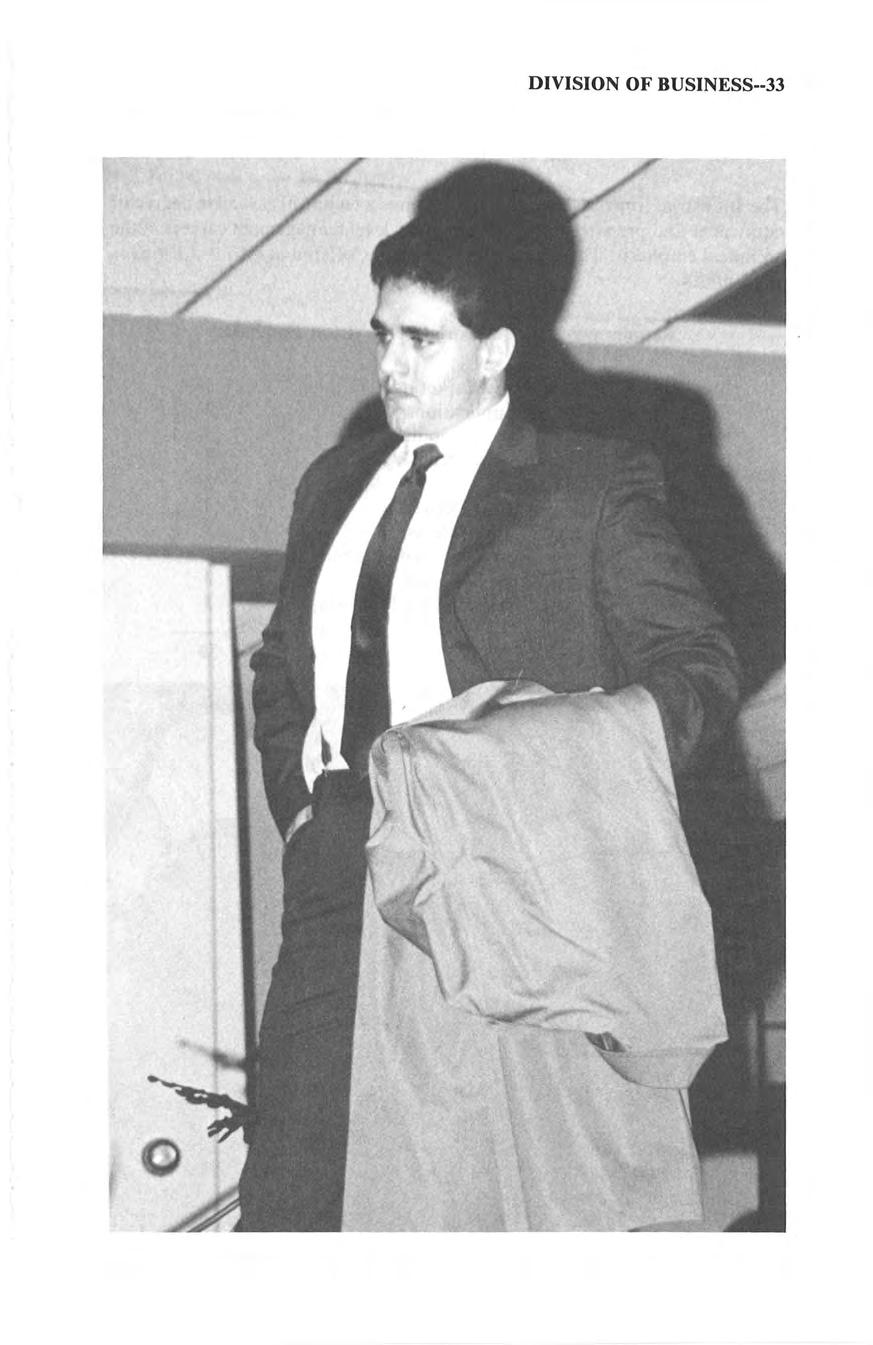
DIVISION OF BUSINESS--33
The Industrial Supervision emphasis requires a technical associate degree or equivalent and prepares graduates for entry level management careers in the technical emphasis. The equivalent coursework offered at Offutt AFB has a mgt. prefix.
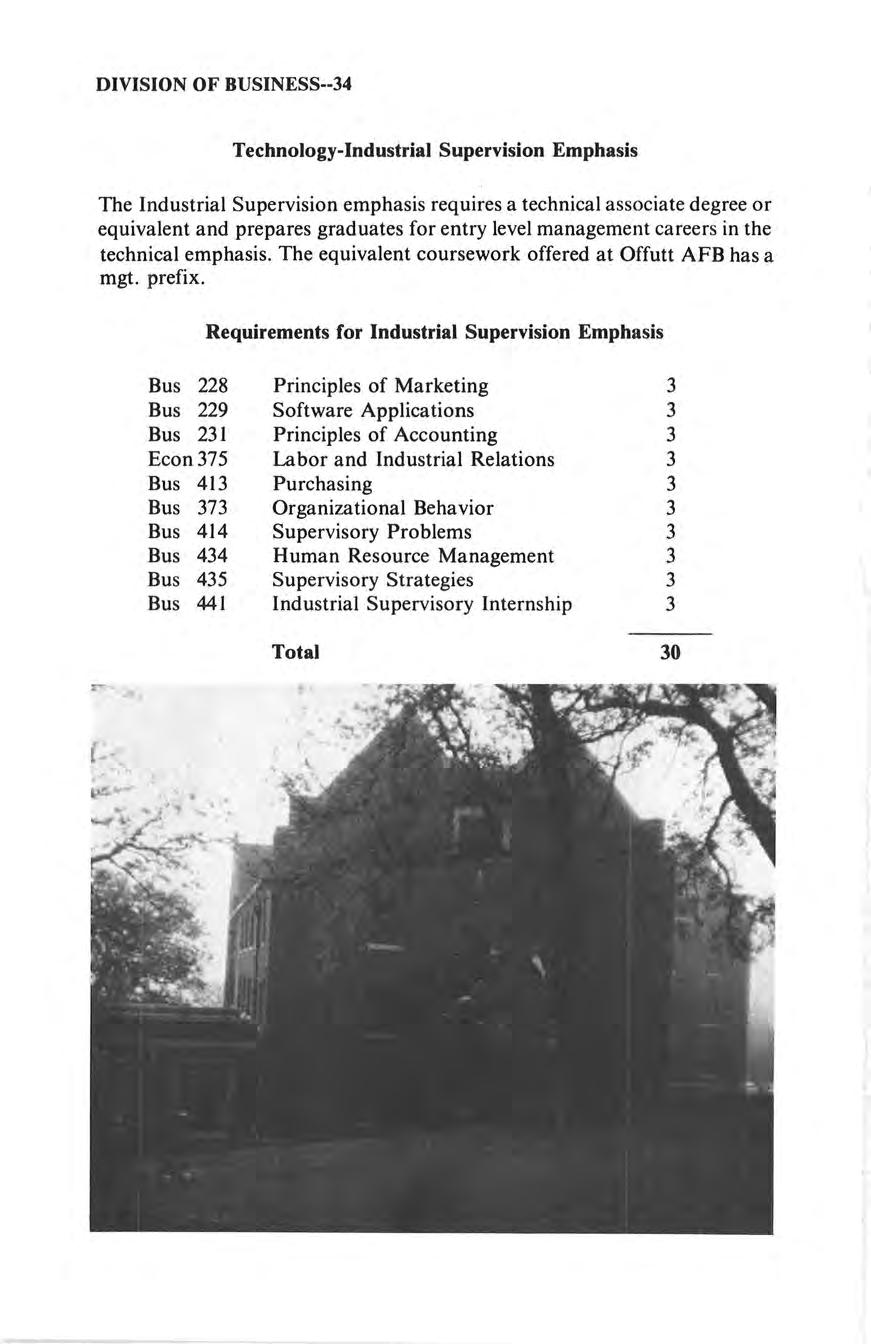
DIVISION OF BUSINESS--34
Technology-Industrial Supervision Emphasis
Requirements for Industrial Supervision Emphasis Bus 228 Principles of Marketing 3 Bus 229 Software Applications 3 Bus 231 Principles of Accounting 3 Econ 375 Labor and Industrial Relations 3 Bus 413 Purchasing 3 Bus 373 Organizational Behavior 3 Bus 414 Supervisory Problems 3 Bus 434 Human Resource Management 3 Bus 435 Supervisory Strategies 3 Bus 441 Industrial Supervisory Internship 3 Total 30
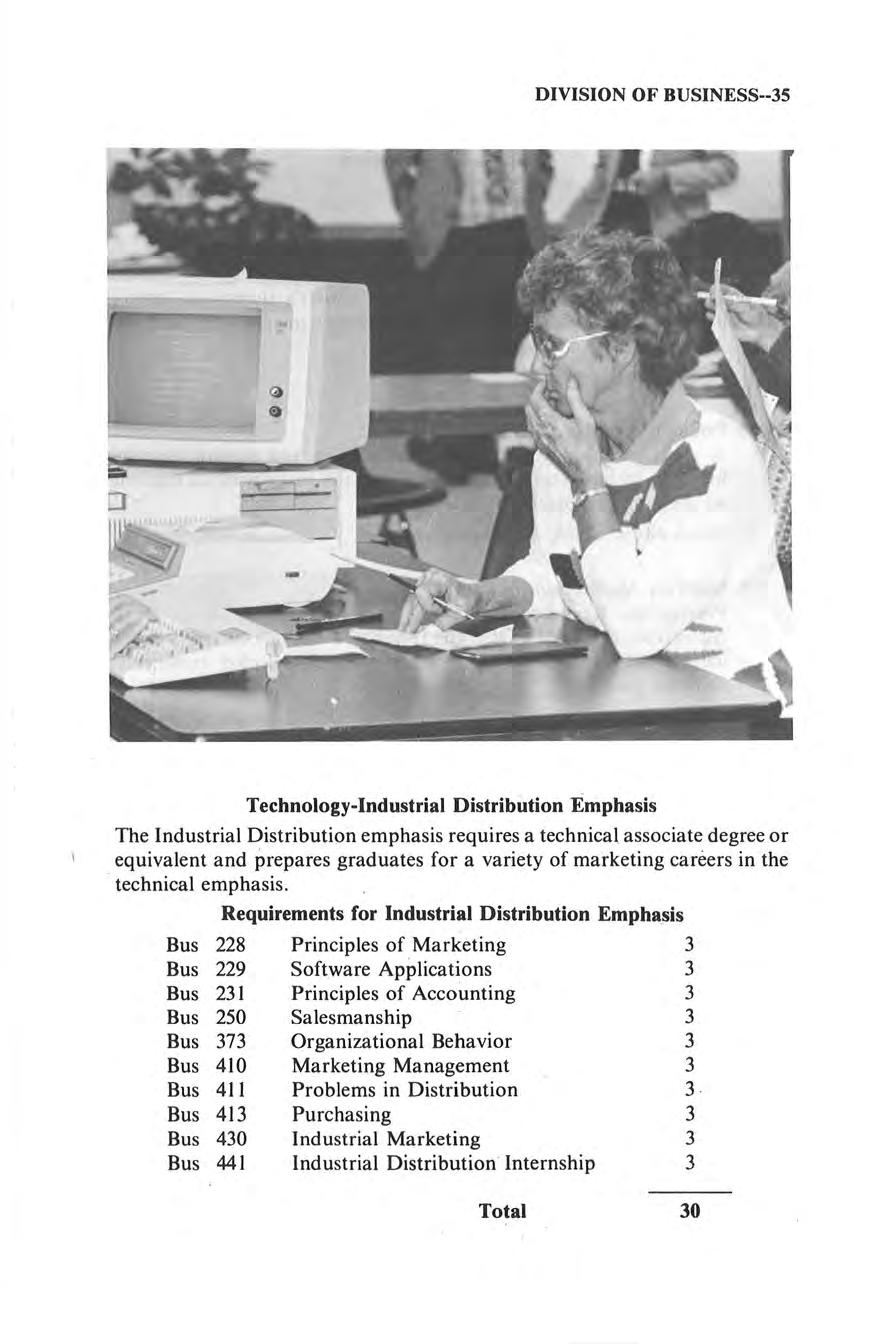
DIVISION OF BUSINESS--35 Technology-Industrial Distribution Emphasis The Industrial Distribution emphasis requires a technical as sociate degree or equivalent and prepares graduates for a variety of marketing careers in the · technical emphasis. Requirements for Industrial Distribution Empha sis Bus 228 Principles of Marketing 3 Bus 229 Software Applications 3 Bus 231 Principles of Accounting 3 Bus 250 Salesmanship 3 Bus 373 Organizational Behavior 3 Bus 410 Marketing Management 3 Bus 41 l Problems in Distribution 3 Bus 413 Purchasing 3 Bus 430 Industrial Marketing 3 Bus 441 Ind us trial Distribution · Internship 3 Total 30
Course Description
Business
215 Personal Business Finance (3 hours)
Fundamentals of personal finance--budgeting, home buying, banking, life insurance, auto insurance, homeowner's insurance , renter's insurance, health insurance, basic investments, income taxes, and other consumer economic topics.
(Spring semester, odd years)
228 Principles of Marketing (3 hours)
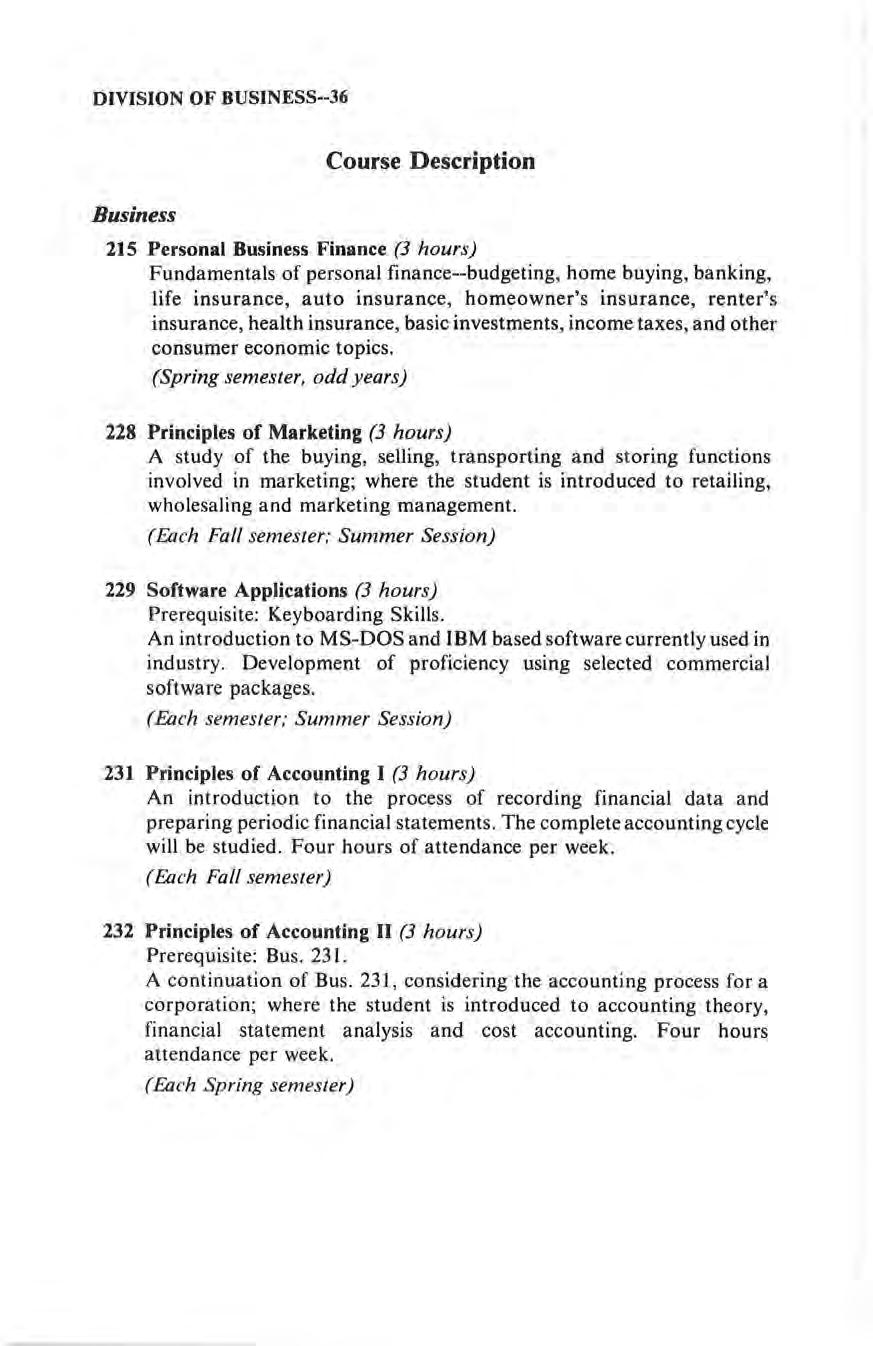
A study of the buying, selling, transporting and storing functions involved in marketing; where the student is introduced to retailing, wholesaling and marketing management.
(&ch Fall semester; Summer Session)
229 Software Applications (3 hours)
Prerequisite: Keyboarding Skills.
An introduction to MS-DOS and IBM based software currently used in industry Development of proficiency using selected commercial software packages.
(&ch semester; Summer Session)
231 Principles of Accounting I (3 hours)
An introduction to the process of recording financial data and preparing periodic financial statements. The complete accounting cycle will be studied. Four hours of attendance per week.
(&ch Fall semester)
232 Principles of Accounting II (3 hours)
Prerequisite: Bus. 231 .
A continuation of Bus. 231, considering the account ing process for a corporation; where the student is introduced to accounting theory, financial statement analysis and cost accounting. Four hours attendance per week.
(&ch Spring semester)
DIVISION OF BUSINESS--36
250 Salesmanship (3 hours)
Prerequisite: Bus 228.
A study of the skills and techniques used in selling and persuasion . The course is designed to help the student learn to sell products and ideas through a study of proven techniques used by successful salespeople.
(Each Fall semester)
298 Special Topics in Business (1-4 hours)
Freshman-Sophomore standing .
(Offered as needed)
301 Speech and Conference Strategies
Prerequisite: Speh 152 or 254.
The study and analysis of presentational methods in formal business speaking, sales and motivational strategies, the conducting of successful meetings, the use of visual aids in the business setting, and conducting and participating in interviews .
(Each Spring semester)
325 Secretarial Procedures and Communications (3 hours)
This course is designed to develop competencies in both the operational and managerial functions performed by the executive secretary. Operational functions involve an in-depth study of office and secretarial procedures. This will include records management and use of the word processing machines to solve office problems. Managerial functions involve the development of a high degree of competency in administrative secretarial skills . A considerable amount of time will be devoted to develop the ablity to compose various forms of business communications.
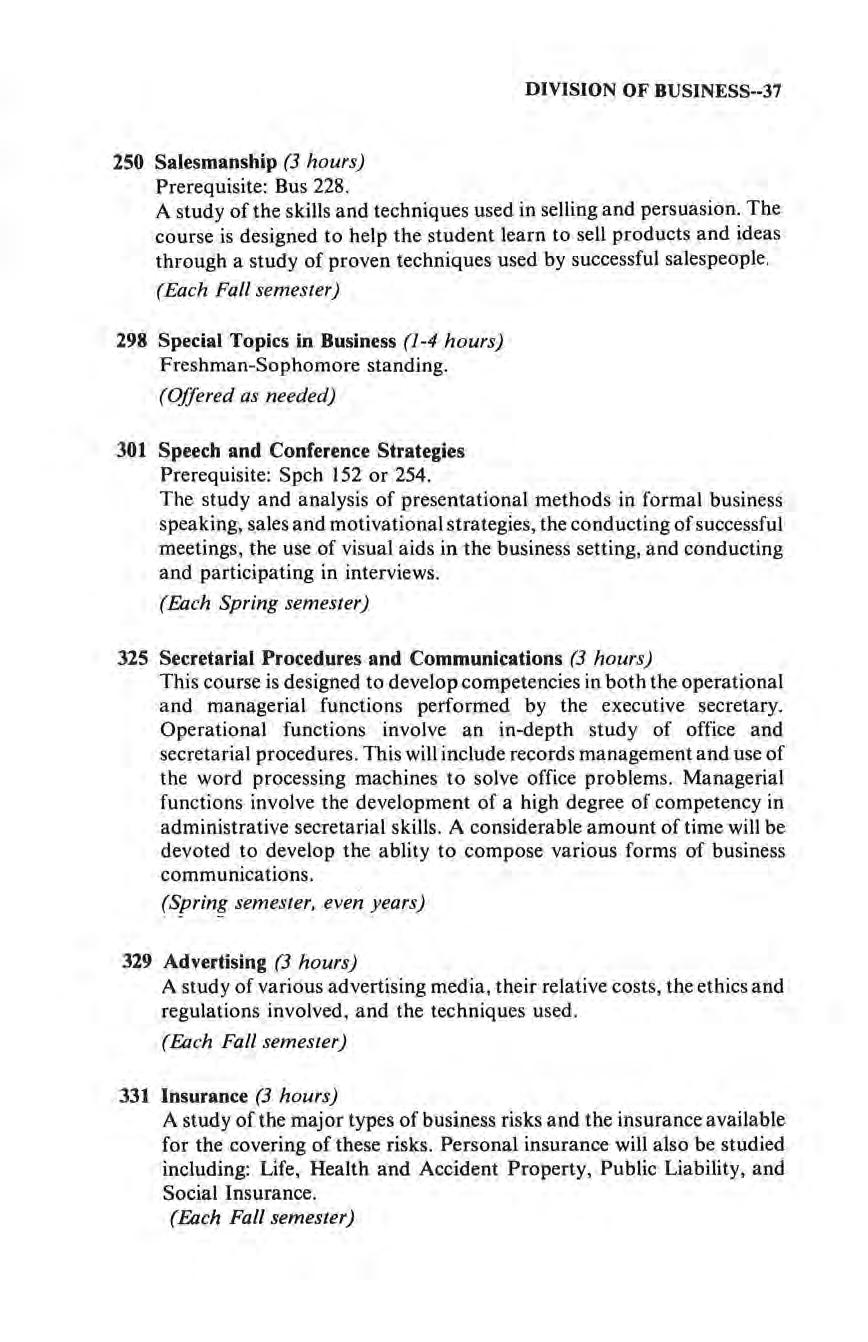
(Spring semester, even years)
329 Advertising (3 hours)
A study of various advertising media, their relative costs, the ethics and regulations involved, and the techniques used.
(Each Fall semester)
331 Insurance (3 hours)
A study of the major types of business risks and the insurance available for the covering of these risks . Personal insurance will also be studied including: Life, Health and Accident Property, Public Liability, and Social Insurance.
(Each Fall semester)
DIVISION OF BUSINESS -- 37
332 Investment (3 hours)
Prerequisite: Bus. 232 .
A study of the major uses of investment funds, including saving accounts in banks and other financial institutions , government bonds, corporate stocks and bonds, annuities and real estate.
(Each Spring semester)
333 Intermediate Keyboarding / Typewriting (3 hours)
Prerequisite: A beginning typewriting course . · Stresses speed and accuracy development in - typewriting letters, manuscripts, tabulations and other forms. Speed and accuracy on the IO-key keyboard is also an integral part of this class .
(Fall semester, even years & Spring semester, odd years)
334 Advanced Keyboarding/Typewriting (3 hours)
Prerequisite : Bus 333 or 40 nwpm for 5 minutes and 100 net strokes/ minute on the IO-key keyboard; This course is designed to - develop a high degret of proficiency in composition at the keyboard, machine transcription and production typewriting.
(Fall semester, even years & Spring semester, odd years)
335 Production / Operations Management(3 hours)
Prerequisite: Bus. 231, Math 125, and Math 340 required and Econ 221 recommended.
A study of the evolution of operational management and its relationship to the total enterprise. Decision making , production and plant planning, systems design, manpower planning, and control systems are considered.
(Each Fall semester)
337 Intermediate Accounting J (3 hours)
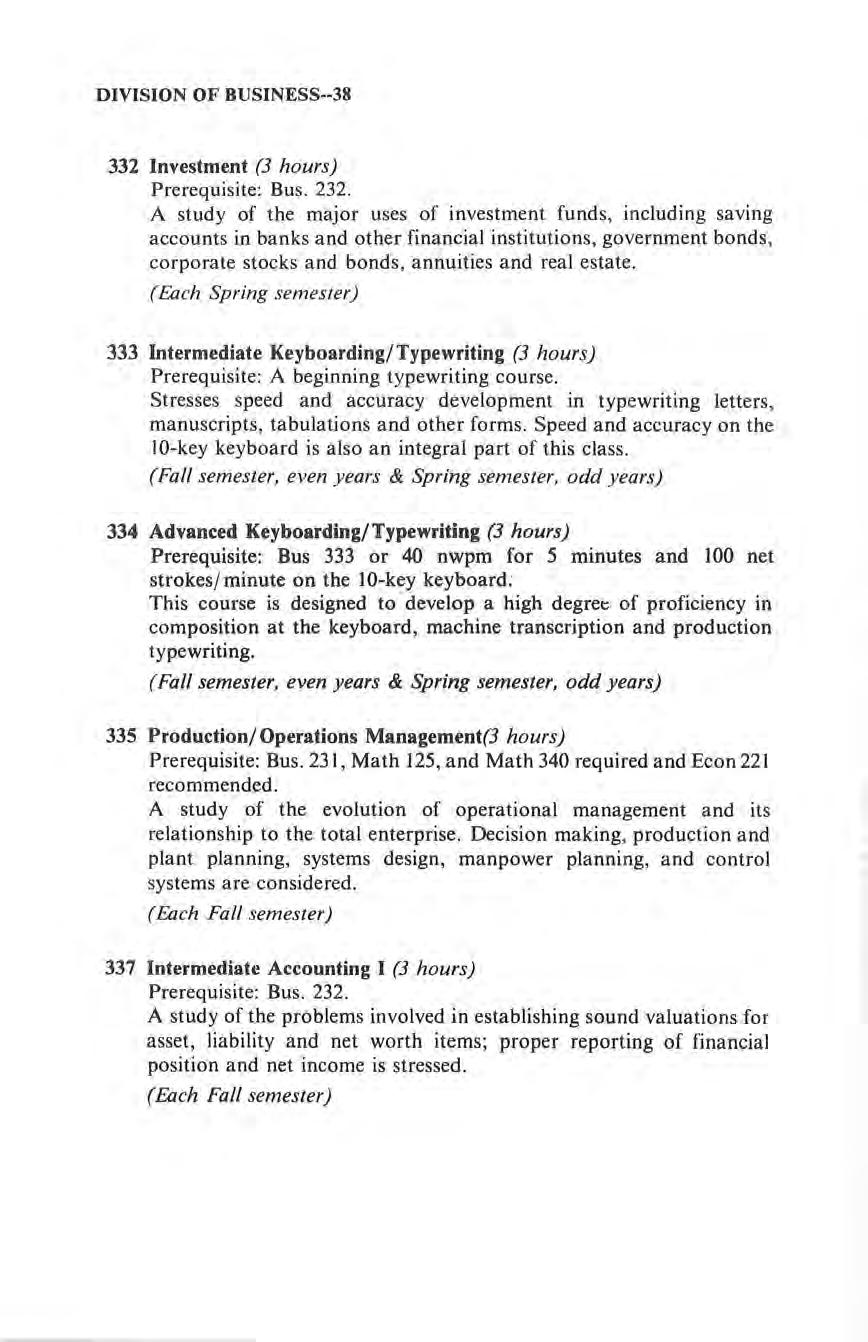
Prerequisite: Bus. 232 .
A study of the problems involved iri establishing sound valuations for asset, liability and net worth items; proper reporting of financial position and net income is stressed.
(Each Fall semester)
DIVISION OF BUSINESS--38
338 Intermediate Accounting II (3 hours)
Prerequisite : Bus. 337.
An in-depth continuation of Bus. 337 with special emphasis on longterm liabilitites, intangible assets, statement analysis, stockholders' equity, application of funds, and present value.
(F.ach Spring semester)
339 Business Finance (3 hours)
Prerequisite: Bus 232 and Econ 220, Math 125 and Math 340 recommended.
A study of the uses of funds to finance assets, internal and external sources of funds and the costs of funds obtained from alternative sources under various conditions.
( F.ach semester)
341 Income Tax Accounting (3 hours)
Prerequisite: Bus. 232.
The Federal Income Tax laws and regulations concerning taxable income, inclusions and exclusions, allowable deductions, and the basis of determining gain or loss of reporting purposes for individuals, businesses, and corporations are studied.
(F.ach Fall semester)
342 Accounting Information Systems (3 hours)
This course is designed to provide the student with the conceptual framework and body of knowledge required to be effective users, designers and evaluators of accounting information systems.
( F.ach Spring semester)
345 Real Estate Principles and Practices (3 hours)
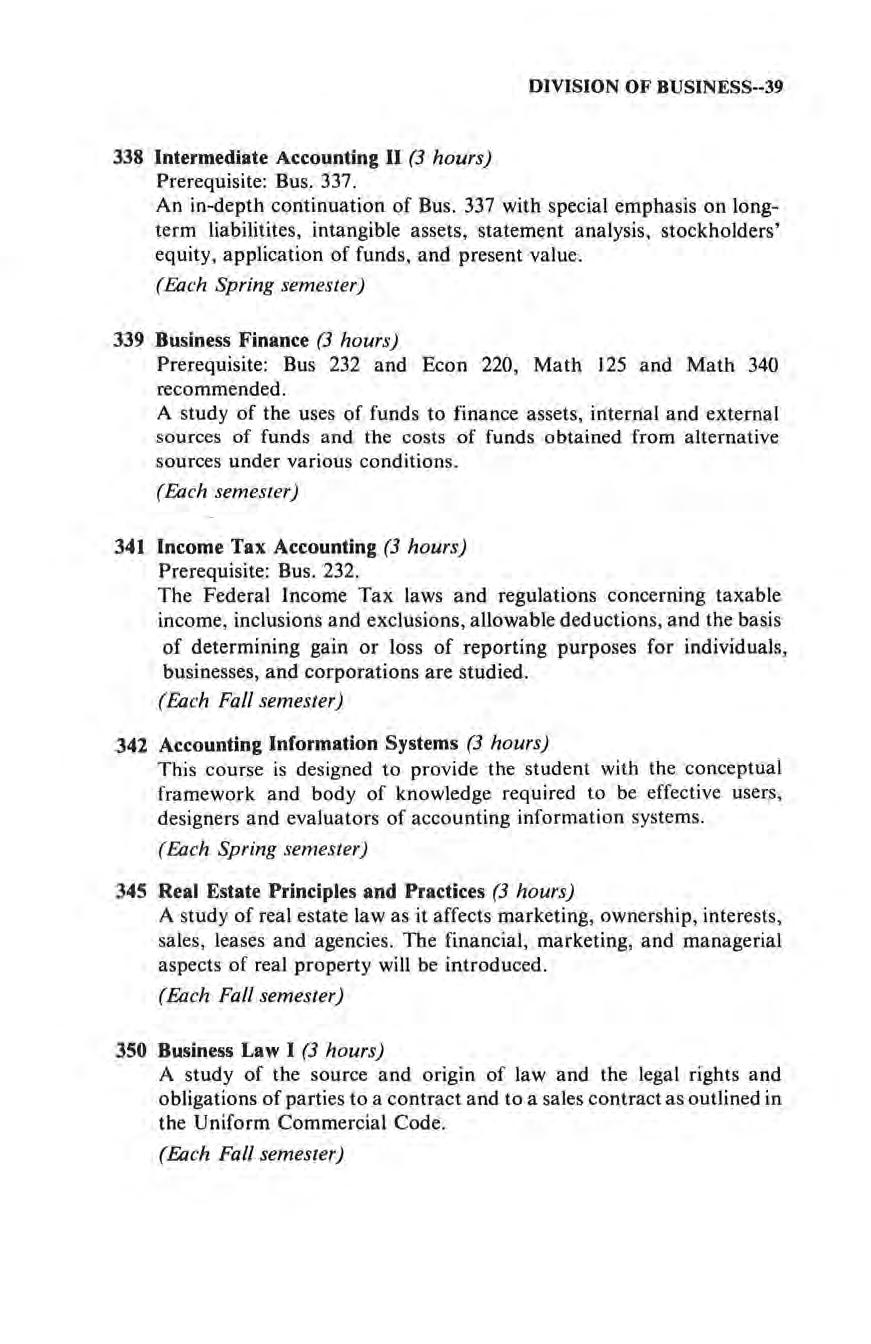
A study of real estate law as it affects marketing, ownership, interests, sales, leases and agencies. The financial, marketing, and managerial aspects of real property will be introduced
( F.ach Fall semester)
350 Business Law I (3 hours)
A study of the source and ongm of law and the legal rights and obligations of parties to a contract and to a sales contract as outlined in the Uniform Commercial Code.
(F.ach Fall semester)
OF BUSINESS--39
DIVISION
351 Business Law II (3 hours)
A study of legal principles covering agencies, negotiable instruments , bailments, corporate and partnership laws.
(F:ach Spring semester)
360 Real Estate Finance (3 hours)
Prerequisite: Bus. 345.
A detailed analysis of the methods and techniques of financing the purchase of real estate. Areas of study include fund sources, analysis of mortgage risk, FHA underwriting, other government influences and agencies, legal aspects, and the policies and procedures of lending institutions.
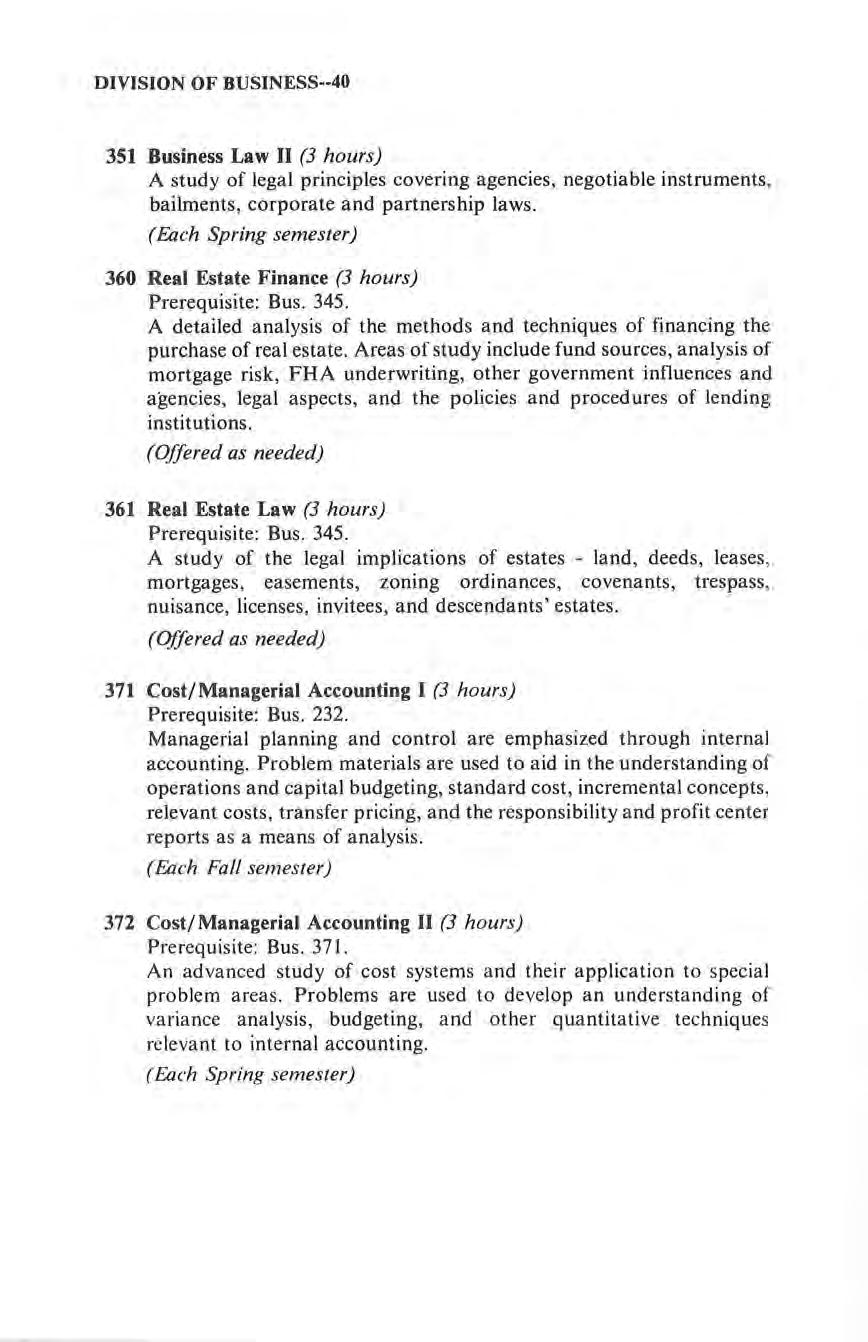
(Offered as needed)
361 Real Estate Law (3 hours)
Prerequisite: Bus. 345.
A study of the legal implications of estates - land , deeds, leases , mortgages, easements, zoning ordinances, covenants, trespass, nuisance, licenses, invitees, and descendants' estates.
(Offered as needed)
371 Cost/Managerial Accounting I (3 hours)
Prerequisite: Bus. 232.
Managerial planning and control are emphasized through internal accounting. Problem materials are used to aid in the understanding of operations and capital budgeting, standard cost, incremental concepts, relevant costs, transfer pricing, and the responsibility and profit center reports as a means of analysis.
(F:ach Fall semester)
372 Cost/Managerial Accounting II (3 hours)
Prerequisite: Bus. 371.
An advanced study of cost systems and their application to special problem areas. Problems are used to develop an understanding of variance analysis, budgeting, and other quantitative technique s relevant to internal accounting.
( Each Spring semester)
DIVISION OF BUSINESS--40
373 Organizational Behavior (3 hours)
Foundations of the history, theory, and applications of organizational behavior including personality, stress, motivation, job design, goal setting, learning theory, behavior modification, group behavior, power, leadership, organizational structure, decision-making, and control.
(Each Spring semester)
400 Principles of Economic Development (3 hours)
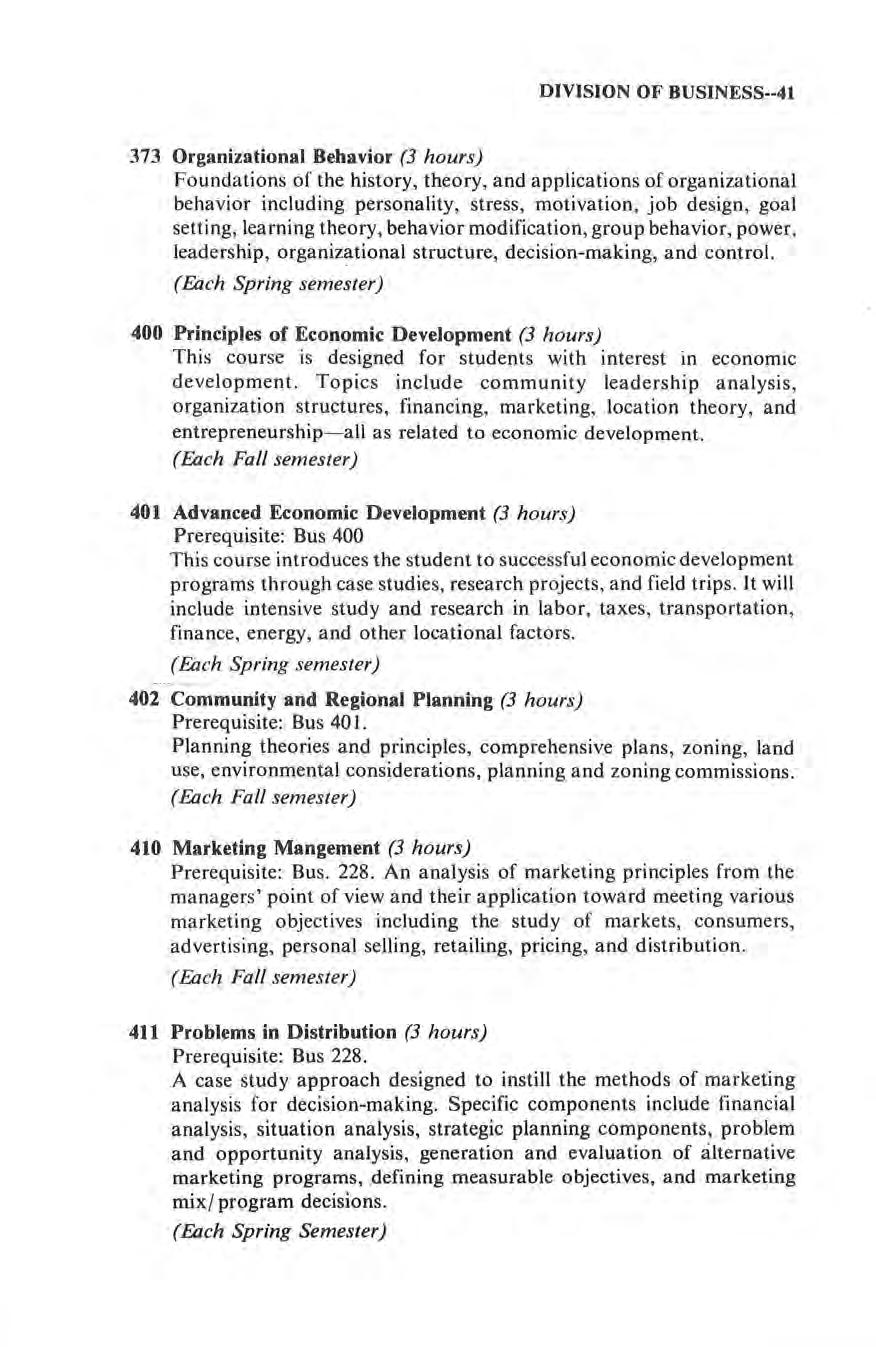
This course is designed for students with interest in economic development. Topics include community leadership analysis, organization structures, financing, marketing, location theory, and entrepreneurship-all as related to economic development.
(Each Fall semester)
401 Advanced Economic Development (3 hours)
Prerequisite: Bus 400
This course introduces the student to successful economic development programs through case studies, research projects, and field trips. It will include intensive study and research in labor, taxes , transportation, finance, energy, and other locational factors.
(Each Spring semester)
402 Community and Regional Planning (3 hours)
Prerequisite: Bus 40 I. Planning theories and principles, comprehensive plans, zoning, land use, environmental considerations, planning and zoning commissions.
(Each Fall semester)
410 Marketing Mangement (3 hours)
Prerequisite: Bus. 228. An analysis of marketing principles from the managers ' point of view and their application toward meeting various marketing objectives including the study of markets, consumers, advertising, personal selling, retailing, pricing, and distribution.
( Each Fall semester)
411 Problems in Distribution (3 hours)
Prerequisite: Bus 228.
A case study approach designed to instill the methods of marketing analysis for decision-making. Specific components include financial analysis, situation analysis, strategic planning components, problem and opportunity analysis, generation and evaluation of alternative marketing programs, defining measurable objectives, and marketing mix/ program decisions .
(Each Spring Semester)
DIVISION OF BUSINESS--41
412 Sales Management (3 hours)
Prere quisite: Bus. 250 and Bus. 237 or permission. This study of a management position in a sales career includes an analysis of such ,tasks as recruiting, interviewing, and hiring salespeople. Other areas of study are training and motivating, compensation methods, ·assigning territories , and coordinating with other managers.
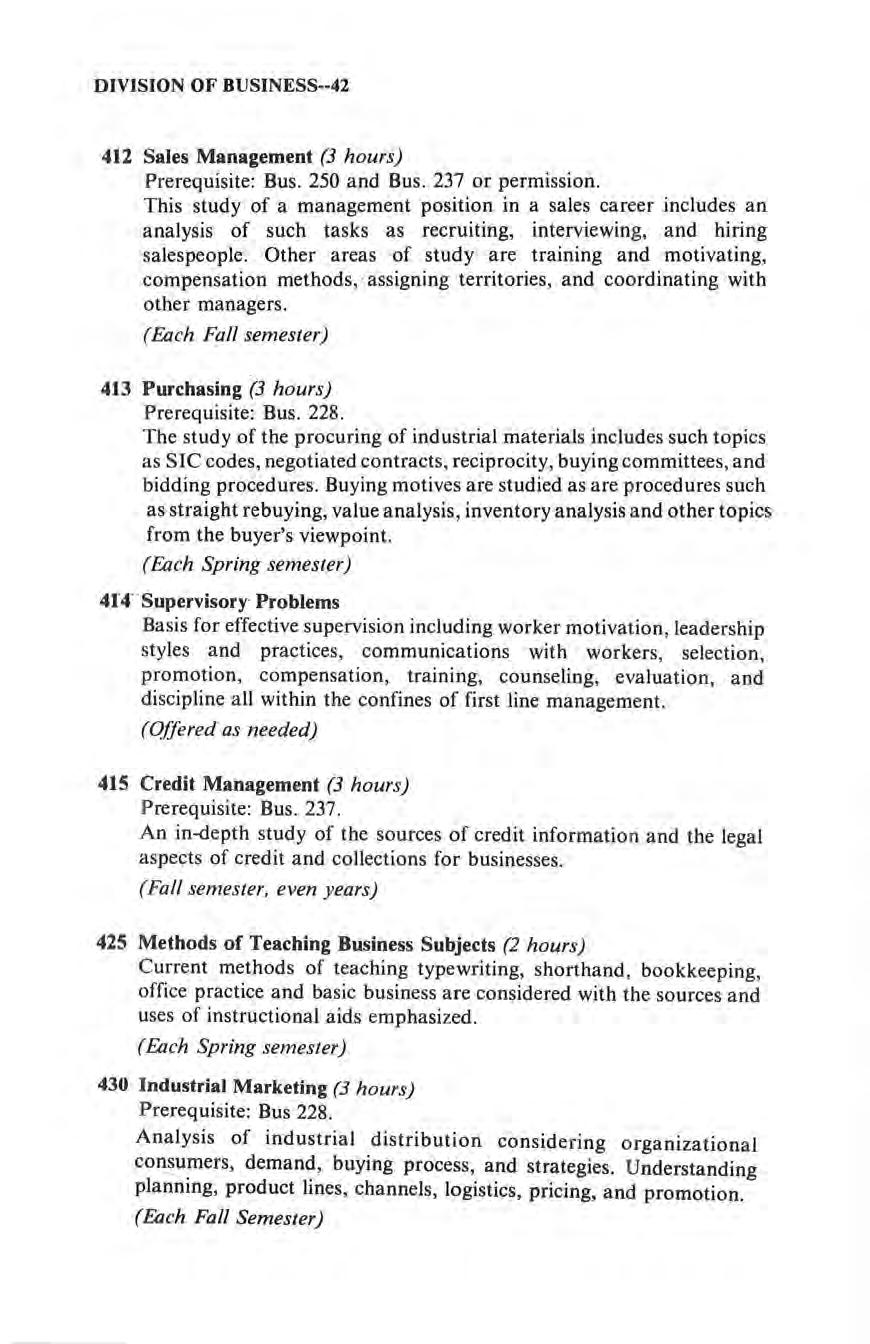
(Each Fall semester)
413 Purchasing (3 hours)
Prereq uisite: Bus. 228,
The study of the procuring of industrial materials includes such topics as SIC codes, negotiated contracts, reciprocity, buying committees, and bidding procedures. Buying motives are studied as are procedures such as straight rebuying, value analysis, inventory analysis an d other topics from the buyer's viewpoint.
(Each Spring semester)
414- Supervisory Problems
Basis for effective supervision including worker motivation, leadership sty les and practices, communications with workers, se lection , promotion, compensation, training, counseling, evaluation, and discipline all within the confines of first line management.
(Offered as needed)
415 Credit Management (3 hours)
Prerequisite: Bus. 237.
An in-depth study of the sources of credit informatio n and the legal aspects of credit and collections for businesses.
(Fall semester, even years)
425 Methods of Teaching Business Subjects (2 hours)
Current methods of teaching typewriting, shorthand, bookkeeping, office practice and basic business are considered with the sources and uses of instructional aids emphasized.
(Each Spring semester)
430 Industrial Marketing (3 hours)
Prerequisite: Bus 228 .
Analysis of industrial distribution considering organizational con~umers, demand, buying process, and strategies. Understanding planning, product lines, channels, logistics, pricing, and promotion.
(Each Fall Semester)
DIVISION OF BUSINESS--42
433 Administrative Management (3 hours)
Prerequisite : Bus 373
A study of the management of an office . Areas of study include location , layout , equipment, supplies , automation, controlling expenses, measuring efficiency of operation, establishing quantity and quality production standards, and the administration of personnel.
(Each Spring semester)
434 Human Resources Management (3 hours)
Prerequisite: Bus 373
A study of the management of employees and the efficient use of human resources for both the personnel manager and the operating manager. Recruiting, motivating, compensating are considered along with the current laws, career development, unions, and other topics. Case studies are used extensively.
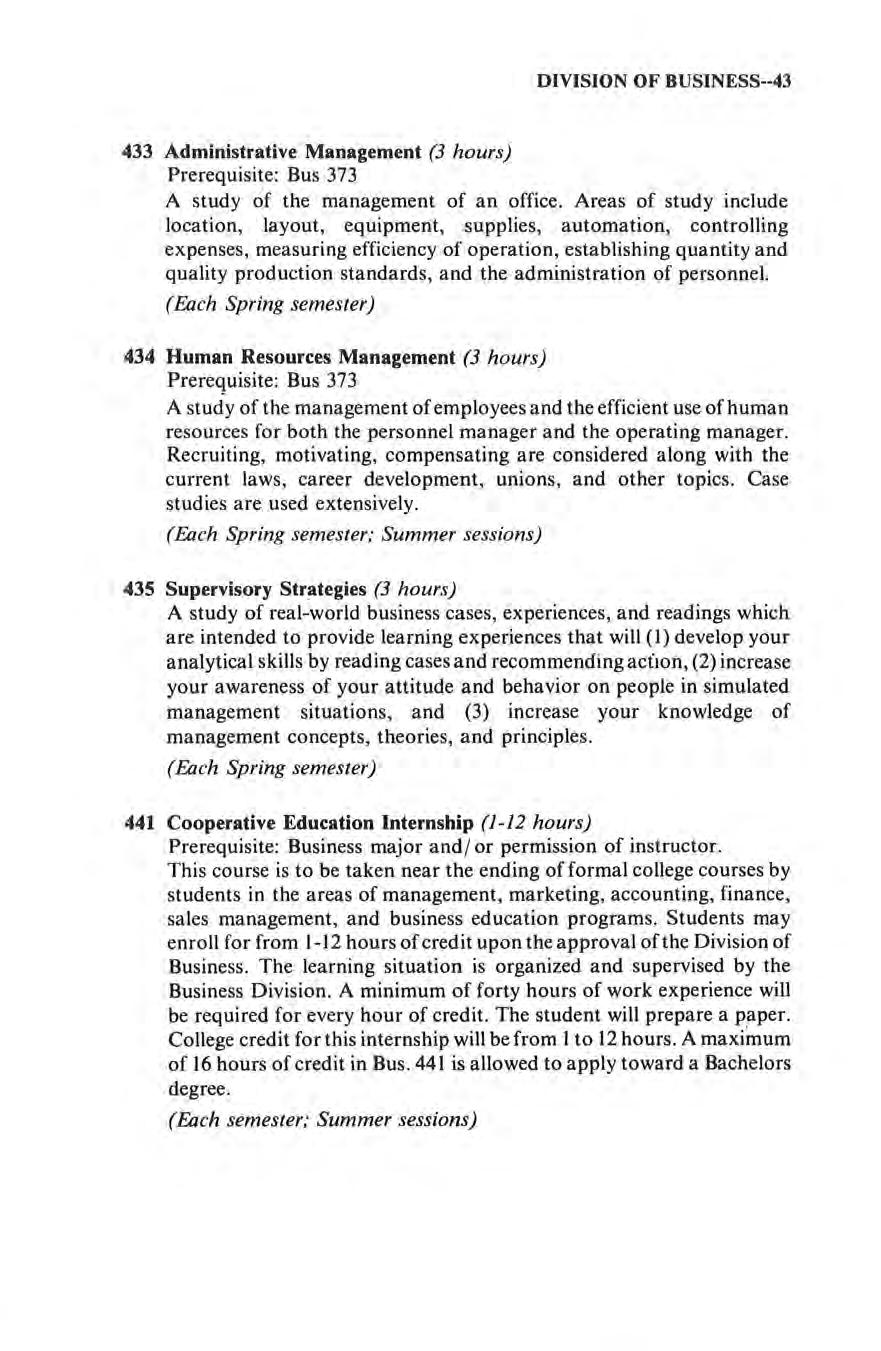
(Each Spring semester; Summer sessions)
435 Supervisory Strategies (3 hours)
A study of real-world business cases, experiences, and readings which are intended to provide learning experiences that will (1) develop your analytical skills by reading cases and recommending aci1ofi, (2) increase your awareness of your attitude and behavior on people in simulated management situations, and (3) increase your knowledge of management concepts , theories, and principles.
(Each Spring semester)
441 Cooperative Education Internship (1-12 hours)
Prerequisite: Business major and / or permission of instructor. This course is to be taken near the ending of formal college courses by students in the areas of management, marketing, accounting, finance , sales management, and business education programs . Students may enroll for from 1-12 hours of credit upon the approval of the Division of Business. The learning situation is organized and supervised by the Business Division. A minimum of forty hours of work experience will be required for every hour of credit. The student will prepare a paper. College credit for this internship will be from I to 12 hours . A maximum of 16 hours of credit in Bus . 441 is allowed to apply toward a Bachelors degree.
(Each semester; Summer sessions)
DIVISION OF BUSINESS--43
443 Quantitative Management (3 hours)
Prerequisite: Permission of instructor
The study of systems and management science. The course includes the development of analytical reasoning and set concepts , as well as such topics as decision processes, linear programming, waiting lines, stochastic processes, forecasting methods, inven t ory control, input / output analysis , and general modeling. (Spring semester, odd years)
450 Advanced Accounting (3 hours)
Prerequisite: Bus. 338 .
A detailed study of problems arising out of partnerships, combinations , installment sales , and the preparation of consolid a ted financial statements. Also includes home office and branc h accounting, governmental and not-for-profit accounting . (F,ach Fall semester)
470 A uditing Principles (3 hours)
Prerequisite: Bus . 338 and 371 or by permission. Generally accepted auditing standards and procedures with the philosophy supporting them. Auditing techniques a vailable to the independent public accountant are also studied . (F,a ch Spring semester)
490 CPA Review (3 hours)
Prerequisite: Bus 450.
An intensive presentation of overall accounting and re lated materials summarizing CPA examinations and solutions with an in-depth study of APB opinions and financial research bulletins stres sed.
(Each Spring ;emester)
495 Business Policy (3 hours)
Prerequisite: Senior business major. A case-study approach requiring in-depth analytical and communication skills. Requirements include a thorough review of all given and acquired data , formulation of well-defined problems , and structured plans of action to be presented in written and oral form. (Ea ch Semester)
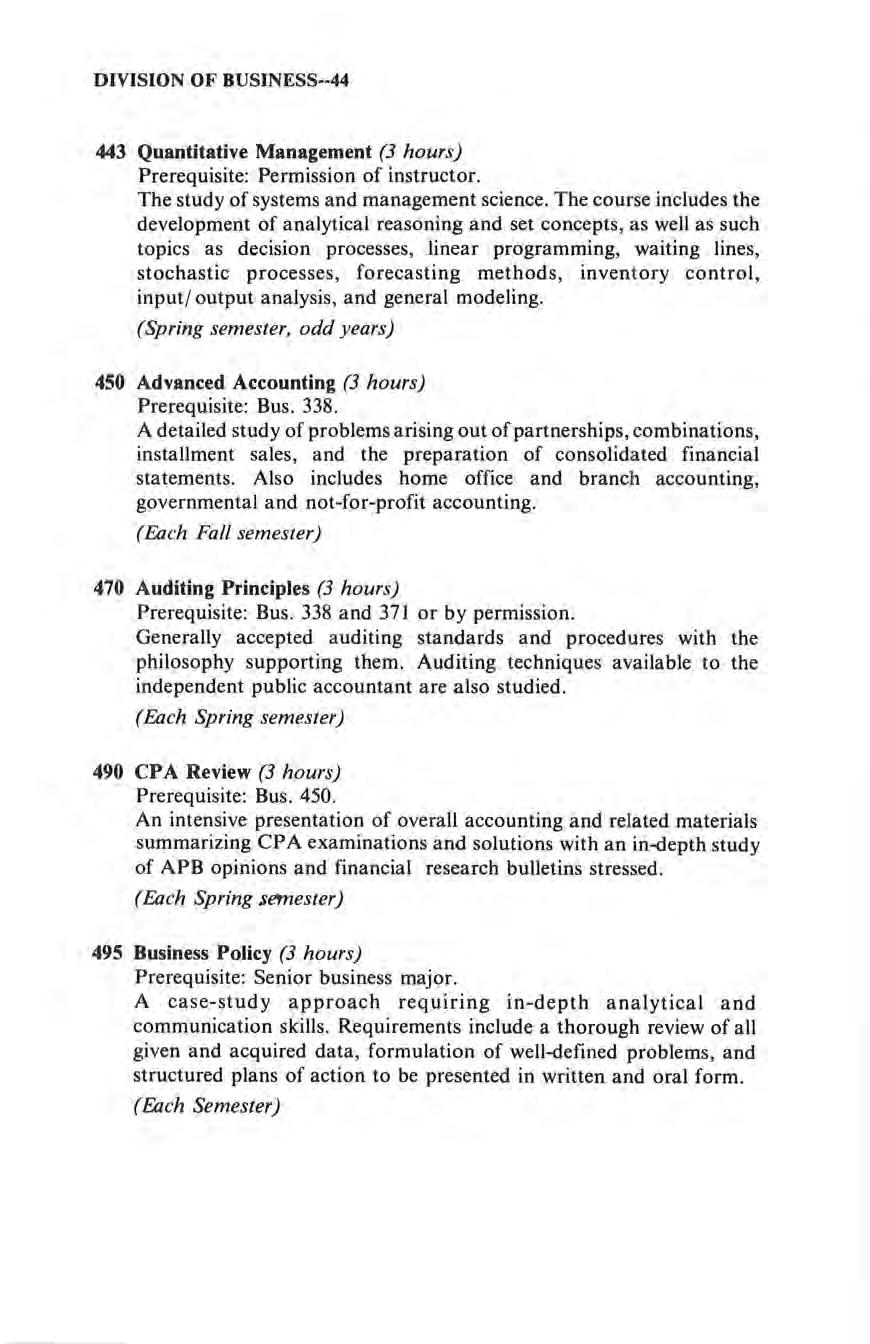
DIVISION OF BUSINESS--44
497/
597 Consultantship (3 hours)
Prerequisites: Senior business standing and permission of NBDC director is required.
This course provides the student with an opportunity to apply theory in a business environment. A general business analysis is conducted by the student and specific recommendations are reported to the management of the firm.
(Each semester, Summer session)
498 Special Topics in Business (1 -4 hours)
Junior -Senior standing
(Offered as needed)
499 Independent Study in Business (1-3 hours)
Prerequisite: Junior standing; Permission of the instructor and prior approval of chairperson.
(&ch semester)
699 Independent Study in Business (1-2 hours)
Economics
220 Macroeconomics (3 hours)
Elementary concepts of macroeconomics with an emphasis on equilibrium analysis , monetary and fiscal policy , banking and developmental economics.
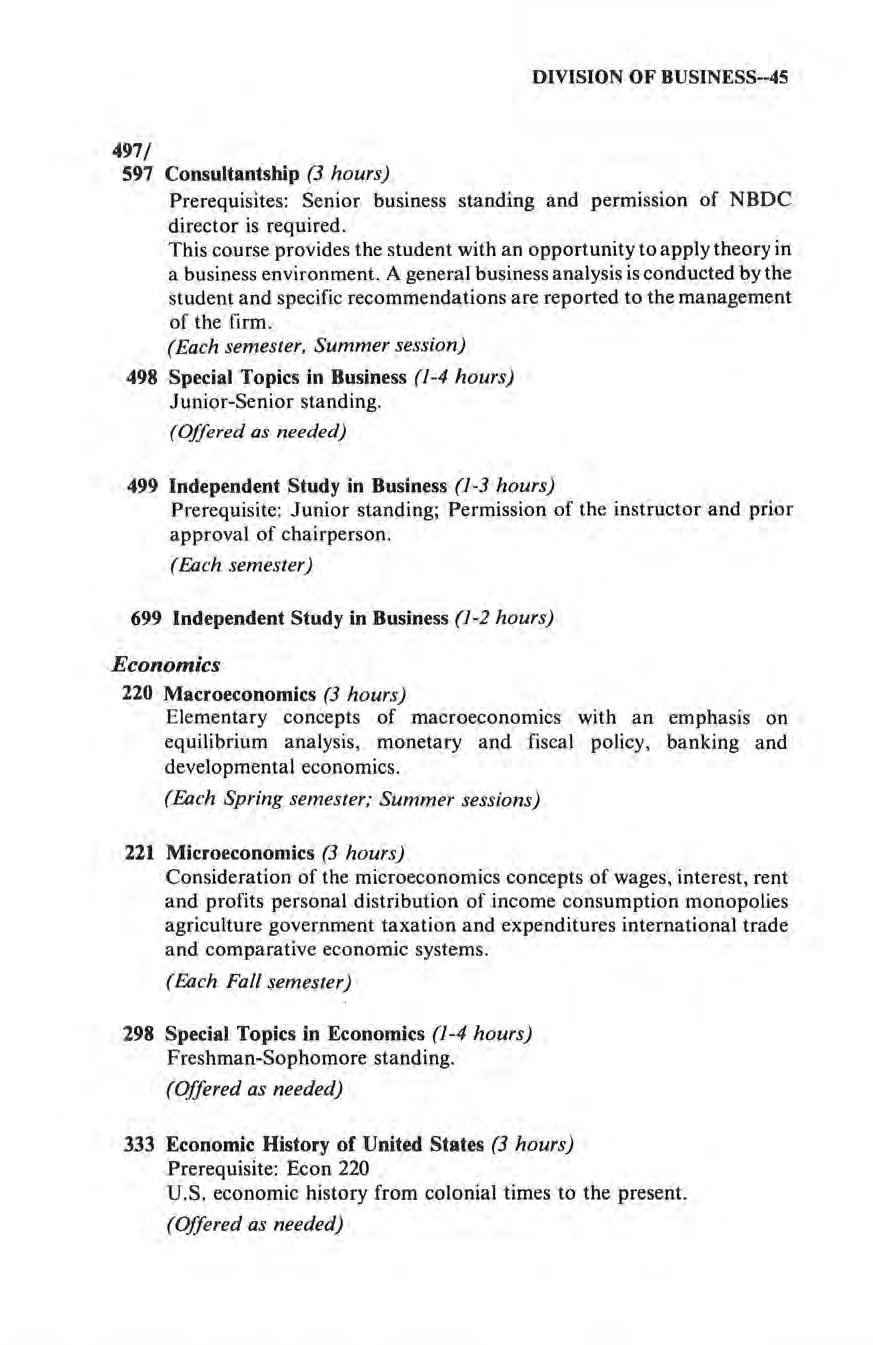
(&ch Spring semester; Summer sessions)
221 Microeconomics (3 hours)
Consideration of the microeconomics concepts of wages, interest, rent and profits personal distribution of income consumption monopolies agriculture government taxation and expenditures international trade and comparative economic systems.
(&ch Fall semester)
298 Special Topics in Economics (1-4 hours)
Freshman-Sophomore standing.
(Offered as needed)
333 Economic History of United States (3 hours)
Prerequisite: Econ 220
U.S. economic history from colonial times to the present.
(Offered as needed)
DIVISION OF BUSINESS--45
346 Money and Banking (3 hours)
Prerequisite: Econ . 220 .
A study of the origins and present roles of our monetary system, credit, commercial banking and the Federal Reserve System. The course is organized for students whose principal interest lies outside of going into bank management.
(Each Spring semester)
350 Public Finance (3 hours)
Prerequisite: Econ. 220 and 221.
The role of government in the economy as it pertains to raising revenue, expenditures, regulations, and income redistribution is studied .
(Offered as needed)
375 Labor and Industrial Relations (3 hours)
Prerequisite: Economics 221.
Labor, management and government as they involve collective bargaining, labor laws, and wage theories. (Offered as needed)
498 Special Topics in Economics (1-4 hours)
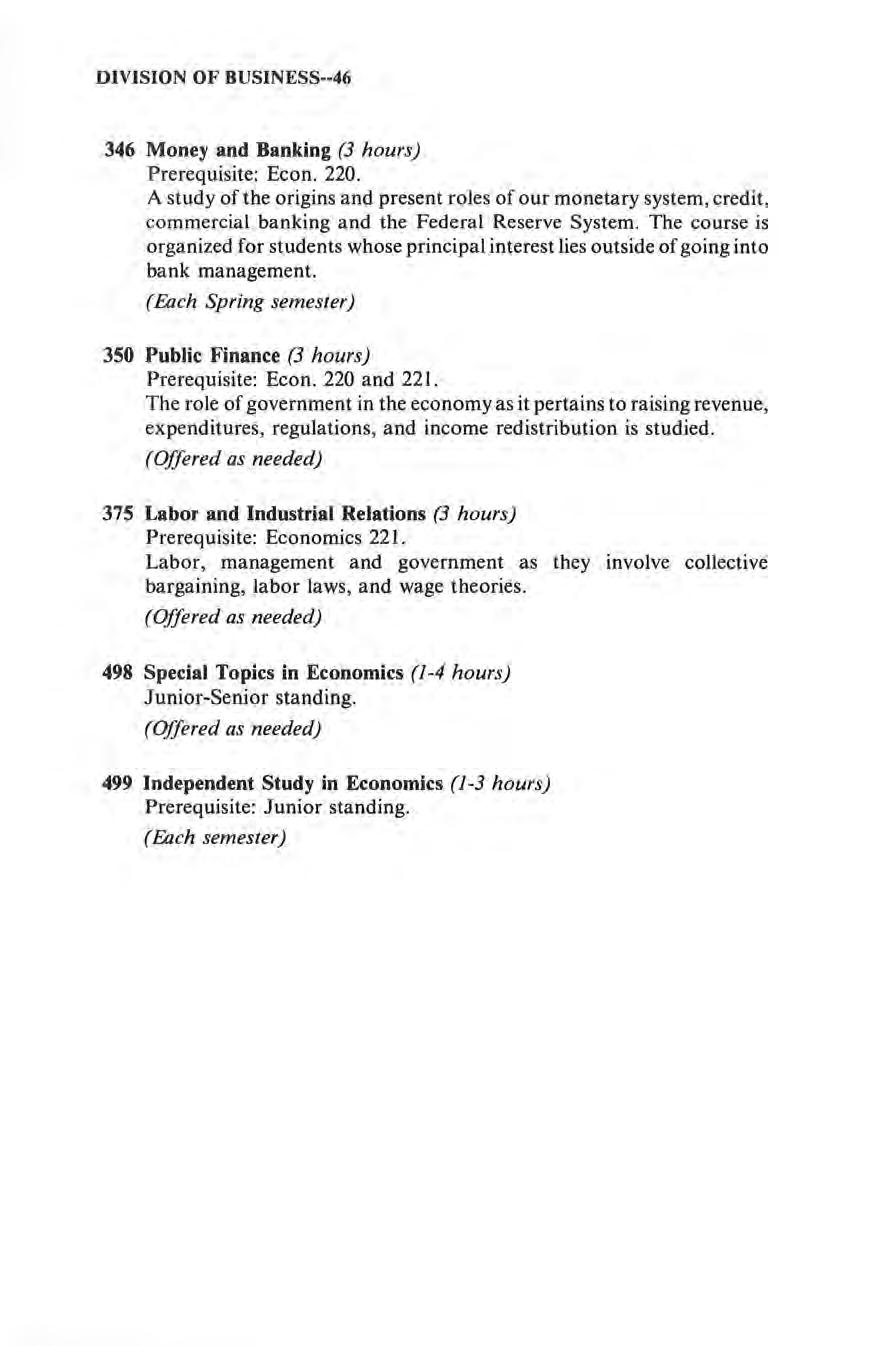
Junior-Senior standing.
(Offered as needed)
499 Independent Study in Economics (1-3 hours)
Prerequisite: Junior standing. (Each semester)
DIVISION OF BUSINESS--46
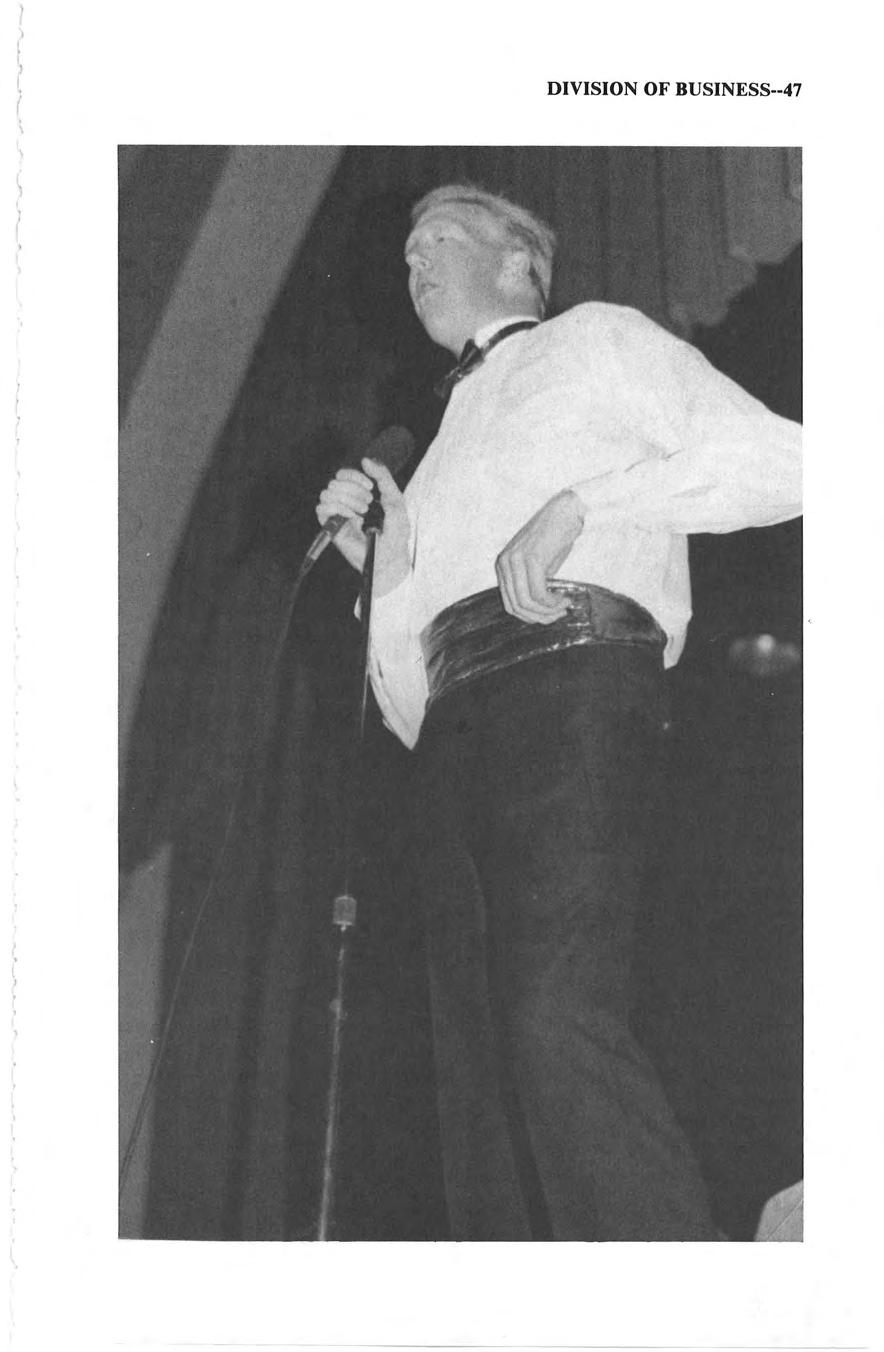
I I / ) I ( DIVISION OF BUSINESS--47
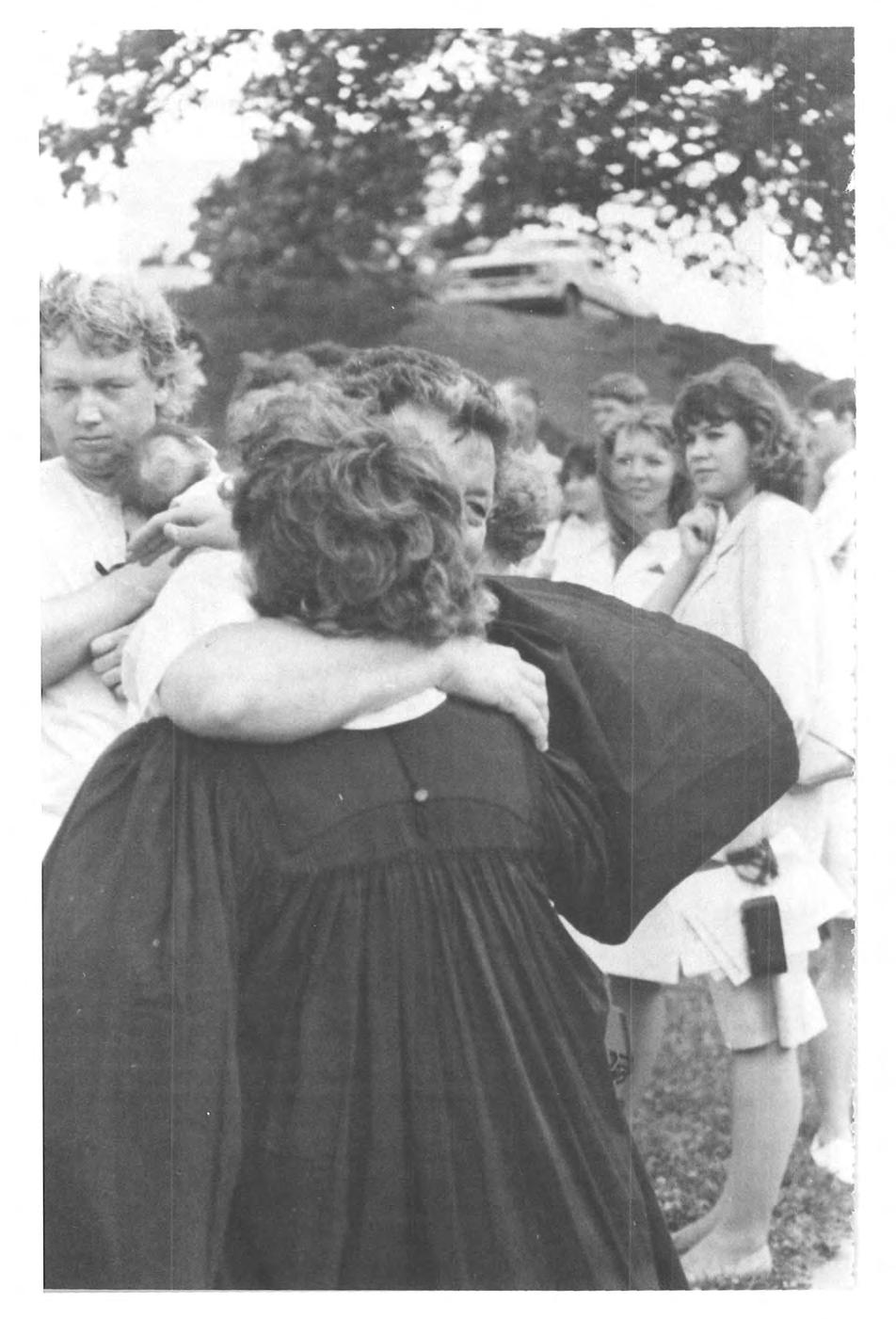
DIVISION OF EDUCATION AND PSYCHOLOGY
Dr. Jerrold T. Hanson, Chairperson
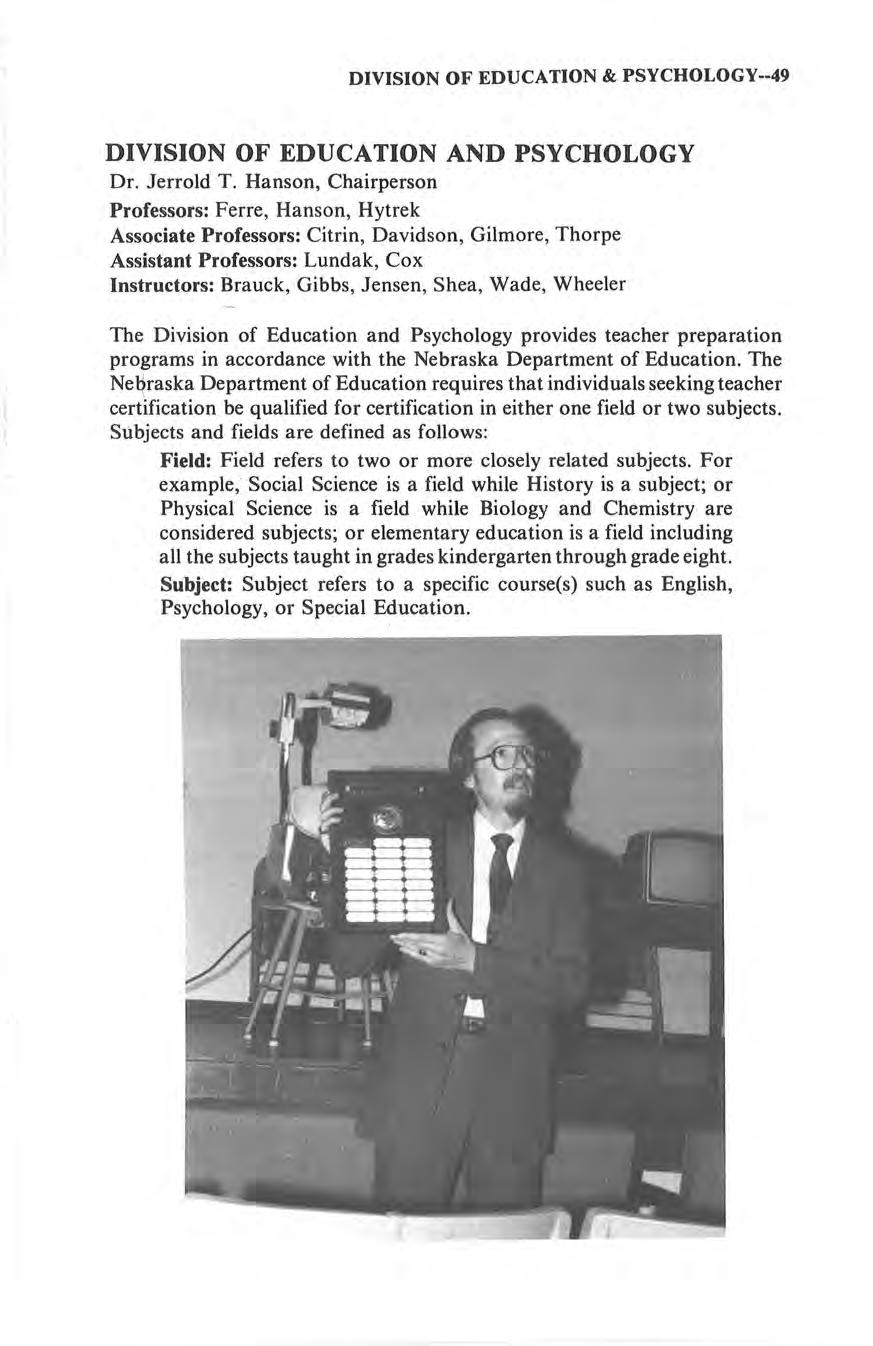
Professors: Ferre, Hanson, Hytrek
Associate Professors: Citrin, Davidson, Gilmore, Thorpe
Assistant Professors: Lundak, Cox
Instructors: Brauck, Gibbs, Jensen, Shea, Wade, Wheeler
The Division of Education and Psychology provides teacher preparation programs in accordance with the Nebraska Department of Education. The Neqraska Department of Education requires that individuals seeking teacher certification be qualified for certification in either one field or two subjects. Subjects and fields are defined as follows:
Field: Field refers to two or more closely related subjects. For example, Social Science is a field while History is a subject; or Physical Science is a field while Biology and Chemistry are considered subjects; or elementary education is a field including all the subjects taught in grades kindergarten through grade eight.
Subject: Subject refers to a specific course(s) such as English, Psychology, or Special Education .
DIVISION OF EDUCATION & PSYCHOLOGY--49
The Division of Education and Psychology offers teacher preparation programs in the following fields and subjects:
Teaching Fields
(One is required)
Elementary Education (K-8)
Art (K-12)
Vocational Bus . Ed (K-12)
Health & Physical Ed. (K-12)
Industrial Tech. (7-12)
Language Arts (7-12)
Mathematics (7-12)
Music (K-12)
Natural Science (7-12)
Physical Science (7-12)
Social Science (7-12)
Teaching Subjects
(Two are required)
Basic Business (7-12)
Biology (7-12)
Early Childhood Education (P-3)
English (7-12)
History (7-12)
Physical Education (K-6, 7-12)
Psychology (7-12) .
Special Ed. (K-9, 7-12)
(Elem. or Sec. Mild/ Moderately Handicapped)
Sociology (7-12)
Speech/ Drama (7-12)
Music (K-6) Vocal
(Taken wilh Elemenlary Education)
Additional supplemental teaching endorsements in Computer Science, Coaching, and Driver's Education are available with any of the above areas. The Division also offers a two-year program in Early Childhood Education leading to the Associate of Arts degree; however, this is not a teacher certification program.
For complete information regarding teacher education requirements and teacher certification, contact the Director of Teacher Education at Peru State College or the Director of Teacher Certification, State Department of Education, Lincoln, Nebraska 68509.
The Division also offers a Masters of Science in Education Degree. For complete information regarding the Master's Degree Program, contact the Dean of Graduate Studies or refer to the Graduate Catalog.
Admission to Teacher Education
Admission to Peru State College does not automatically permit admission to teacher education. Students planning to enter teacher education are required to file a formal application with the Teacher Education Committee.
Application for admission to teacher education will be made during the sophomore year in conjunction with enrollment in Ed 200: Foundations of Education. Students who transfer credit which includes this course will be required to make application during their first semester on campus. The following criteria and conditions must be met by applicants for admission to teacher education:
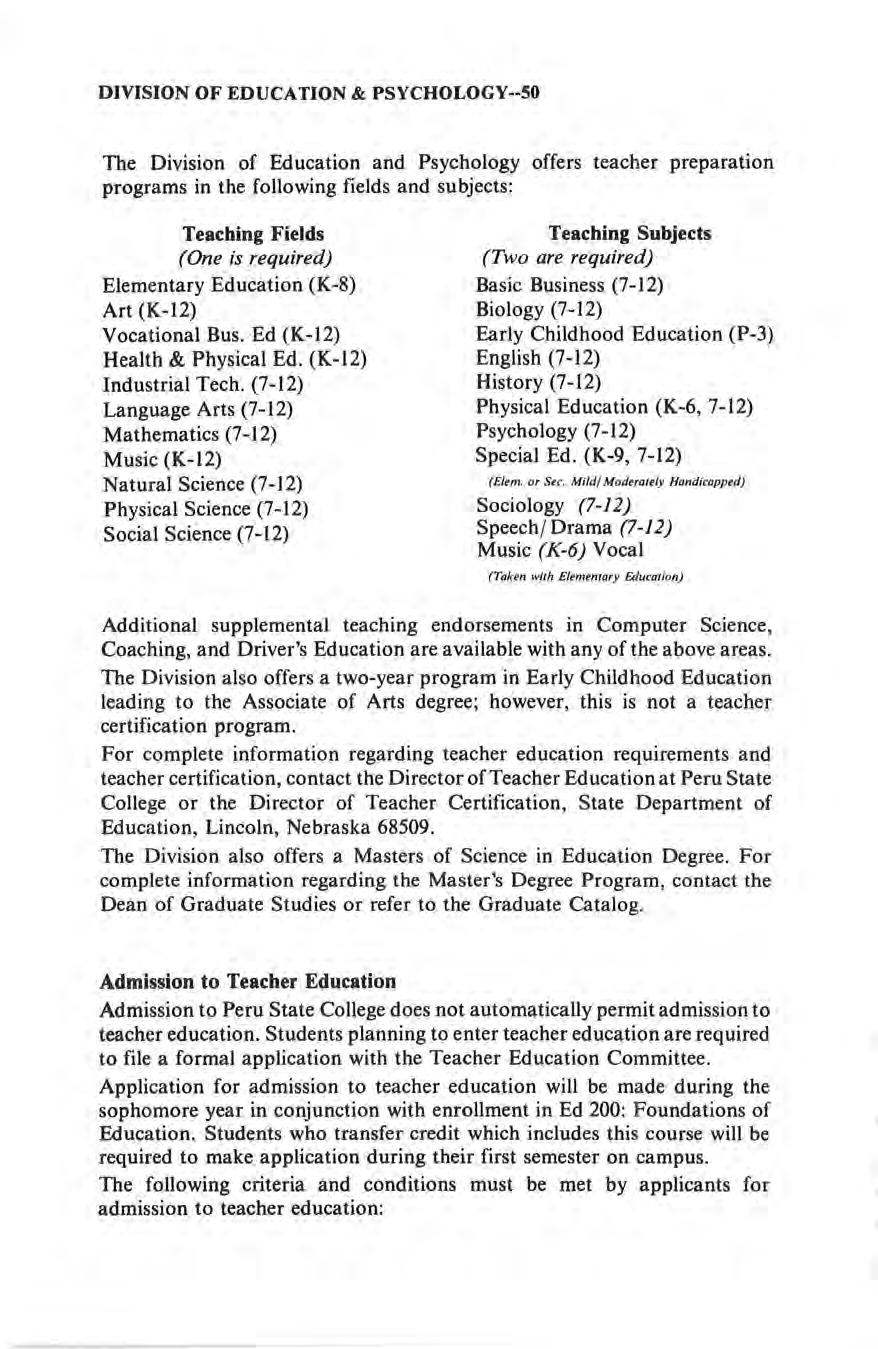
DIVISION OF EDUCATION & PSYCHOLOGY--50
l . Free from social probation.
2. Overall grade point average of at least 2 .5.
3 . Minimum score of 170 - reading comprehension ; 171-math; and 172composition on the Pre-Professional Skills Test (PPST).
4 Recommendations from three instructors who are in a position to assess the student as a prospective teacher. ,
5. Interview conducted by a representative of the Division of major emphasis.
6. Evide nce of proficiency in English and Mathematics as indicated by a grade of D -plus or above in college level courses (Elementary Education majors must have a D-plus or higher in Math 110 or a higher level course) or scores at or above the fiftieth percentile on the ACT. No student will be admitted to teacher education until all of the above criteria have been met.
After consideration by the Teacher Education Committee , the applicant will be approved or disapproved for admission to teacher education . Applicants approved for admission will be notified by letter from the Teacher Education Committee
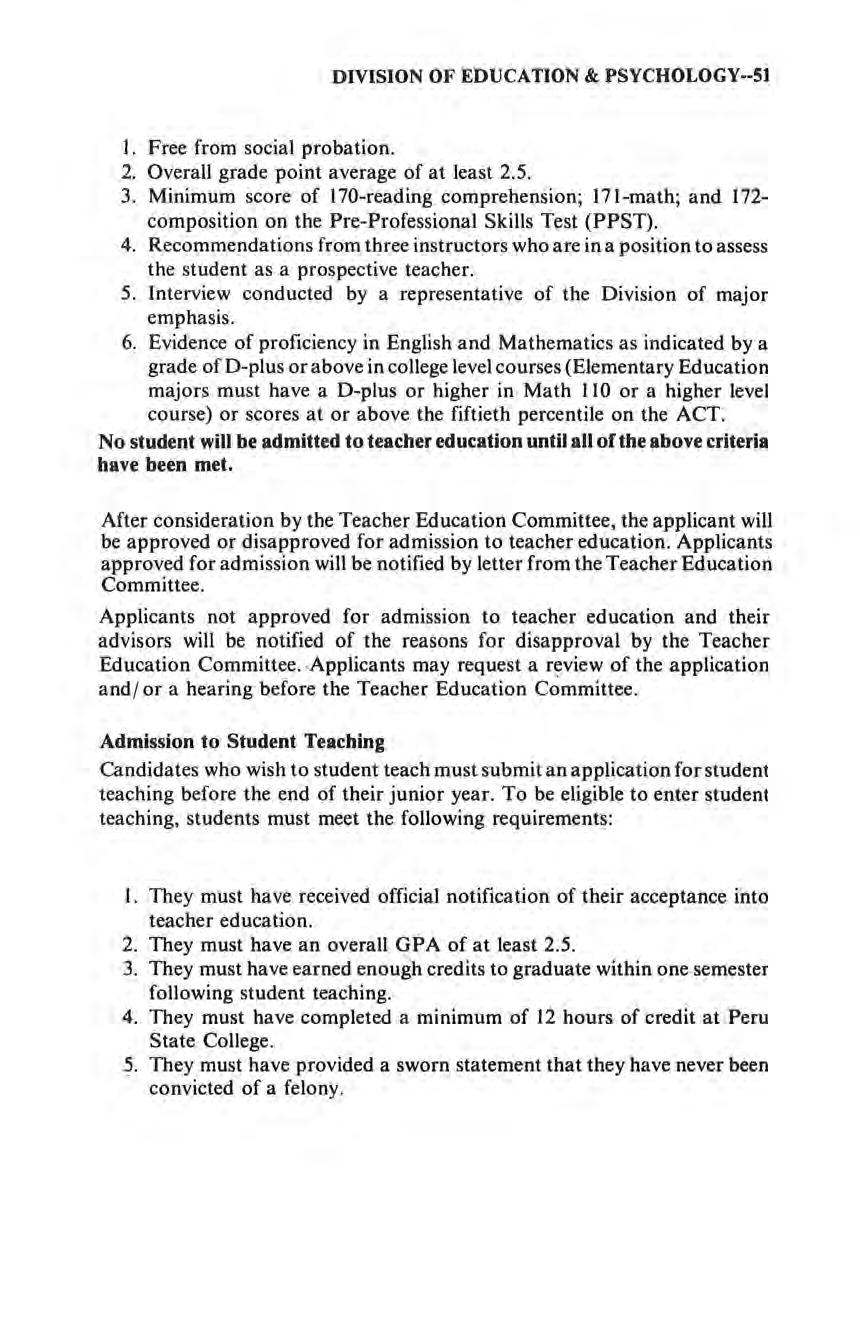
Applicants not approved for admission to teacher education and their advisors will be notified of the reasons for disapproval by the Teacher Education Committee. -Applicants may request a rl;!view of the application and / or a hearing before the Teacher Education Committee.
Admission to Student Teaching
Candidates who wish to student teach must submit an application for student teaching before the end of their junior year. To be eligible to enter student teaching, students must meet the following requirements :
l. They must have received official notification of their acceptance into teacher education.
2 They must have an overall GPA of at least 2 5
3. They must have earned enough credits to graduate within one semester following student teaching .
4 . They must have completed a minimum of 12 hours of credit at Peru State College.
5. They must have provided a sworn statement that they have never been convicted of a felony .
DIVISION OF EDUCATION & PSYCHOLOGY--51
Persons successfully completing this program will be en d orsed to teach child r en in all elementary subjects in kindergarten through grade 8 .
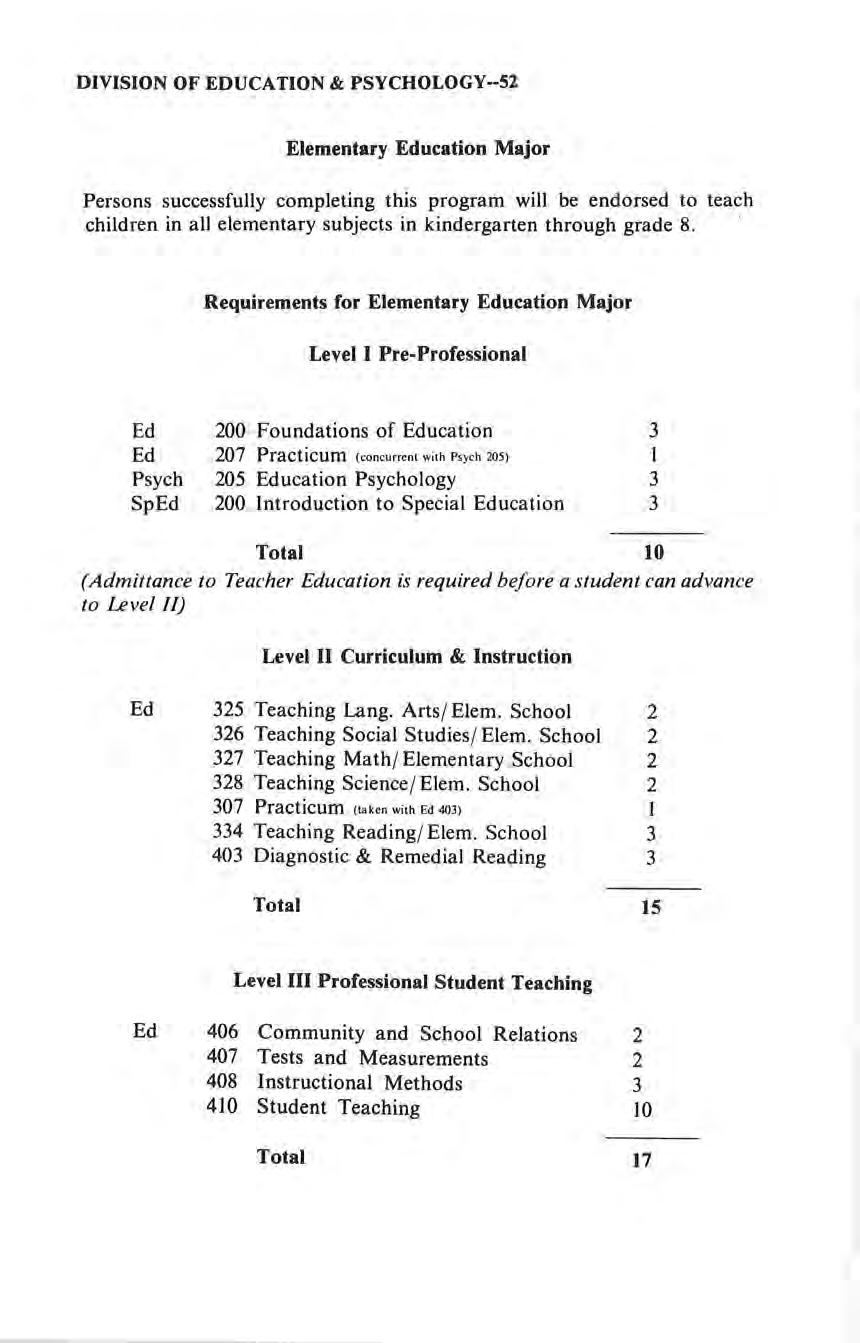
DIVISION OF EDUCATION & PSYCHOLOGY--52 Elementary Education Major
Ed Ed Psych SpEd Requirements for Elementary Education Major Level I Pre-Professional 200::.--Foundations of Education 207 Practicum (concurre nt with Ps yc h 205) 205 Education Psychology 200 Introduction to Special Education Total 3 I 3 3 (Admittance to Teacher Education is required
student can advance to Level II) Level II Curriculum & Instruction Ed 325 Teaching Lang . Arts / Elem . School 2 326 Teaching Social Studies / Elem . School 2 327 Teaching Math / Elementary School 2 328 Teaching Science / Elem. School 2 307 Practicum (tak e n with Ed 403) 1 334 Teaching Reading / Elem School 3 403 Diagnostic & Remedial Reading 3 Total 15 Level III Professional Student Teaching Ed 406 Community and School Relations 2 407 Tests and Measurements ' 2 408 Instructional Methods 3 410 Student Teaching 10 Total 17
before a
In addition to the above requirements, students must take Psych 255: Human Relations and complete the Peru State College general studies requirements distributing courses among American Studies (literature, cultural, history, or government).
Education candidates are required to successfully complete the following courses:
Elementary Education candidates must earn 24 semester hours in one of the following concentrations and 15 hours in each of two additional areas commoniy taught in elementary schools. Courses taken in the general studies program may be counted toward satisfying this requirement. An endorsement in Special Education may also be substituted for the 24 hour block.
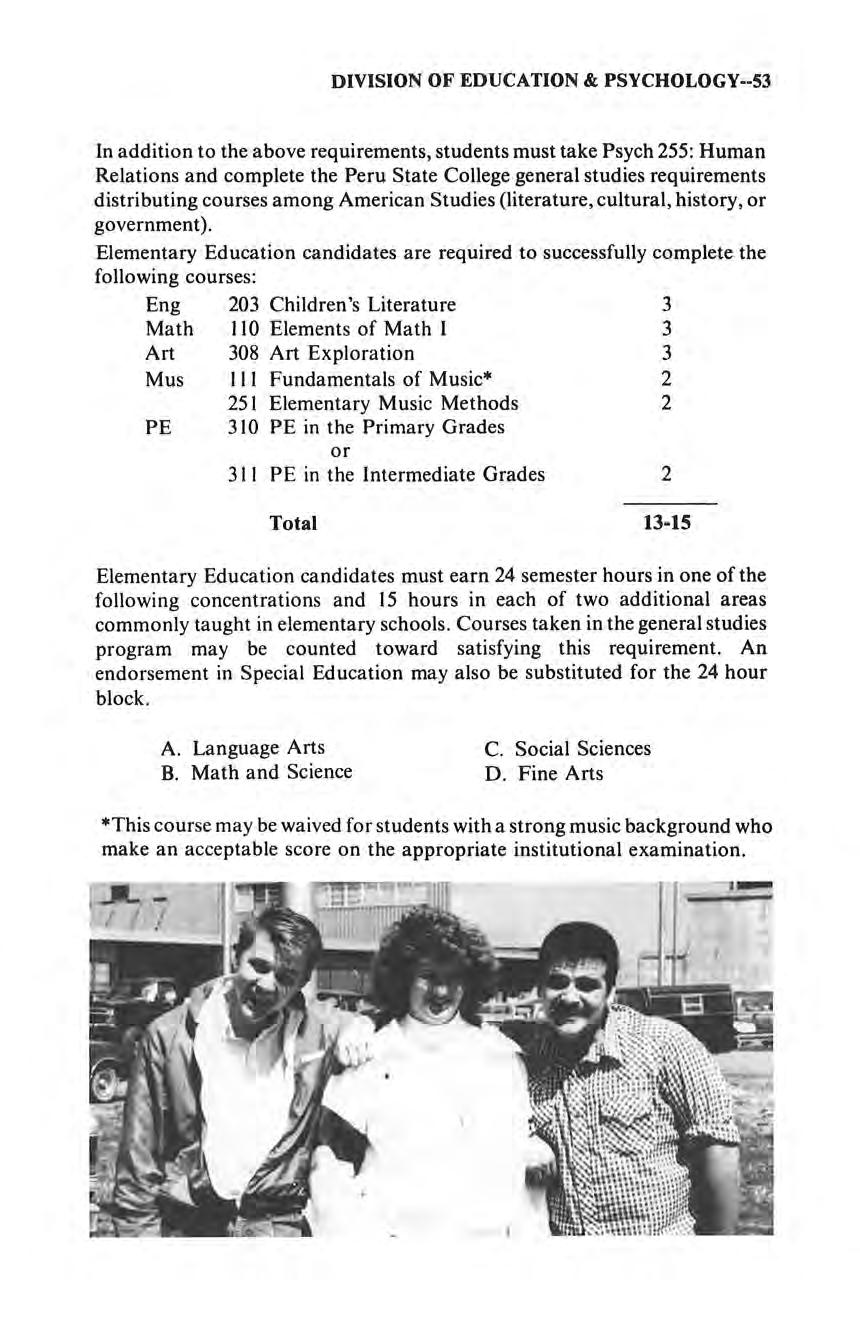
D. Fine Arts
*This course may be waived for students with a strong music background who make an acceptable score on the appropriate institutional examination.
DIVISION OF EDUCATION & PSYCHOLOGY--53
Eng 203 Children's Literature 3 Math 110 Elements of Math I 3 Art 308 Art Exploration 3 Mus 111 Fundamentals of Music* 2 251 Elementary Music Methods 2 PE 310 PE in the Primary Grades or 311 PE in the Intermediate Grades 2 Total 13-15
Elementary
A. Language Arts
C. Social Sciences
B. Math and Science
Suggested Program for Elementary Education Majors
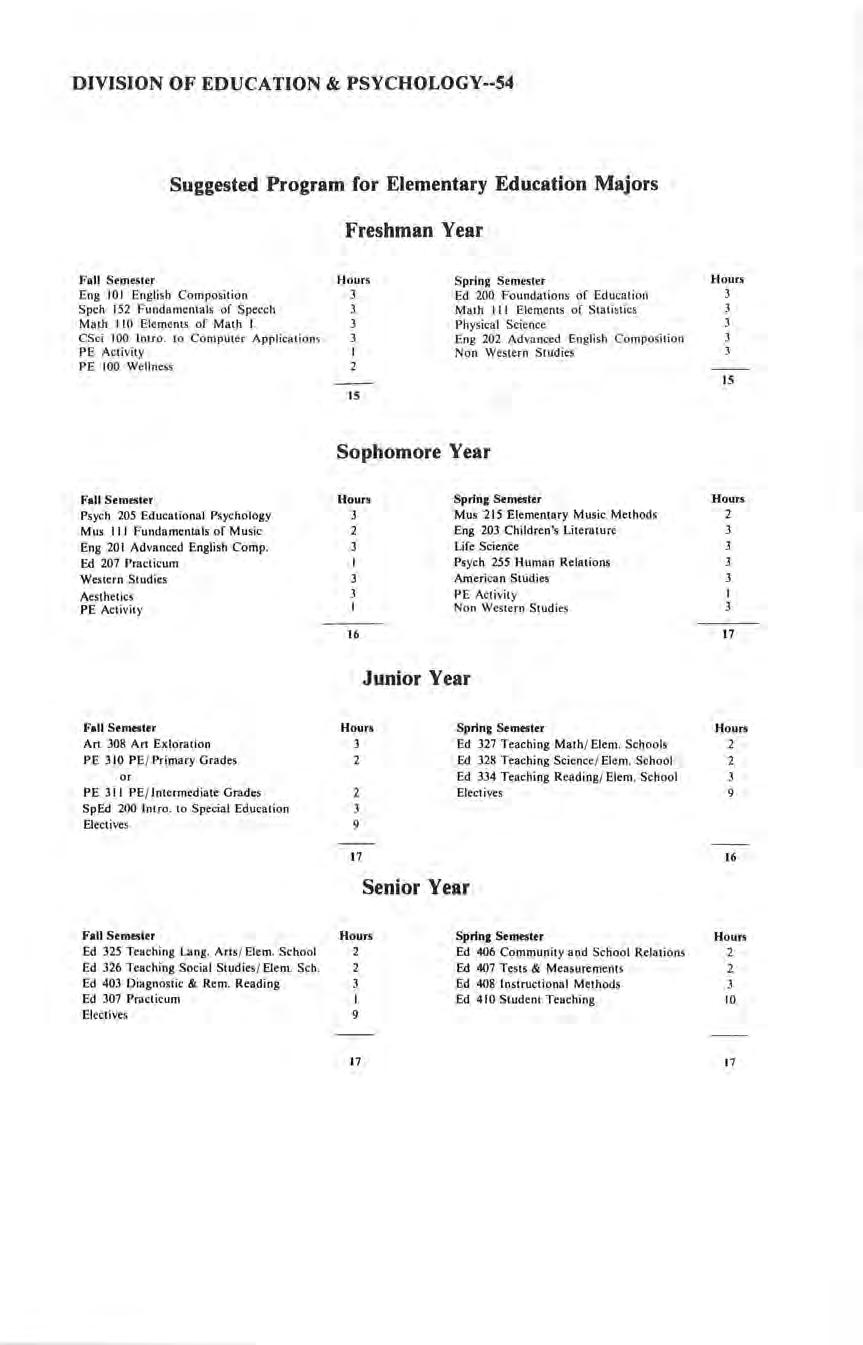
Speh 15 2 Fundamenta ls of Speech Math 110 E lemen ts of Ma th I
CSci 100 Intr o to Com puter Appli ca ti ons PE
OF EDUCATION & PSYCHOLOGY--54
DIVISION
Fa ll S emester Eng 101 Englis h Compos ition
Activity
Semester
Educat
Fundamentals
Studies
PE Activity Fall Semester Art 308 Art Exloration PE 3 10 PE / Primary Grades or PE 311 PE / Int e rmediate Grades SpEd 200 Int ro. to Special Education Electives Fall Semester Ed 325 Teaching Lang Arts / Elem School Ed 326 Teachi ng Socia l Studies / Elem Sch. Ed 403 Diagnostic & Rem. Reading Ed 307 Practicum Elective s Freshman Year Hours 3 3 3 15 Spr ing Semes ter Ed 200 Foundation s of Educa ti on Math 111 Elements of Stati stics Ph ys ical Science Eng 202 Advanced E ngli sh C o mp os ition Non Western Studies Sophomore Year Hours 3 2 3 16 Spring Semester Mus 215 Elementary Music Methods Eng 203 Children's Literature Life Science Psych 255 Human Relations American Studies PE Activity Non Western Studies Junior Year Hours 17 Spring Semester Ed 327 Teaching Math / Elem. Schools Ed 328 Teaching Science / Ele m School Ed 334 Teaching Reading / E lem. Schoo l Elec tive s Senior Year Hours 2 2 17 Spri n1 Semester Ed 406 Community and Schoo l Relations Ed 407 Tests & Measurement s Ed 408 In structional Methods Ed 410 Student Teaching Hours 3 15 Hours 2 17 Hours 2 16 Hours 2 2 10 17
PE 100 We lln ess Fall
Psych 205
ion al Psychology Mus 111
of Music Eng 201 Advanced English Comp. Ed 207 Prac ticum Western
Aesthetics
Secondary Education Major
This program is for individuals seeking endorsement to teach in grades 7 through 12.
(Admittance to Teacher Education is required before a student can advance to Level II)
In addition to the above requirements, students must take, Psych 255: Human Relations and complete the Peru State College general studies requirements distributing courses among American Studies (literature, culture, history or government).
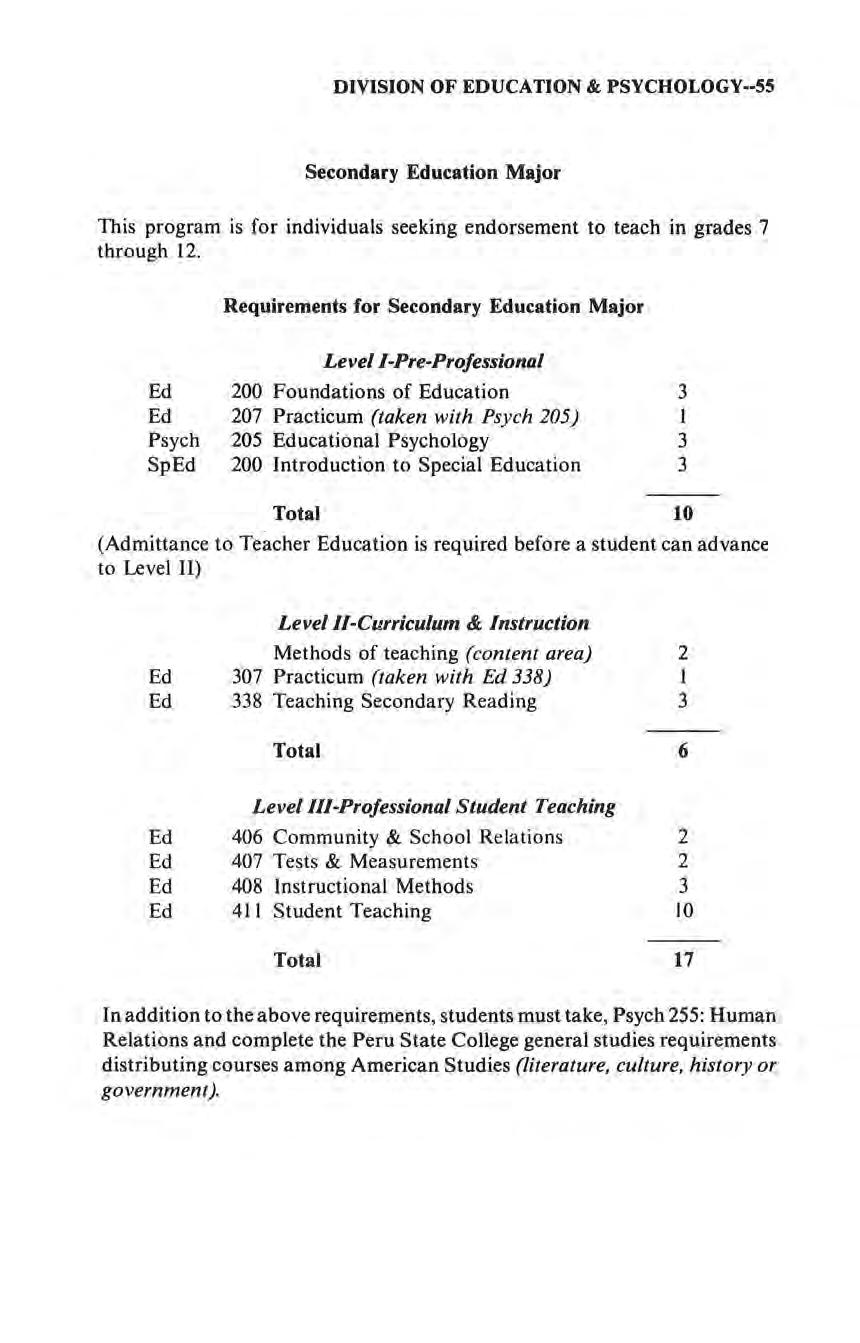
DIVISION OF EDUCATION & PSYCHOLOGY--55
Ed Ed Psych SpEd Requirements for Secondary Education Major Level I-Pre-Professional 200 Foundations of Education 207 Practicum (taken with Psych 205) 205 Educational Psychology 200 Introduction to Special Education Total 3 I 3 3
Level II-Curriculum & Instruction Methods of teaching (content area) 2 Ed 307 Practicum (taken with Ed 338) I Ed 338 Teaching Secondary Reading 3 Total 6 Level III-Professional Student Teaching Ed 406 Community & School Relations 2 Ed 407 Tests & Measurements 2 Ed 408 Instructional Methods 3 Ed 411 Student Teaching 10 Total 17
K-12 Teacher Education Programs
Pern State College offers programs to prepare individuals to teach from kindergarten through the twelfth grade in the areas of Art, Music, and Physical Education.
Students working toward K-12 certification must meet the same requirements and follow the same professional teacher education program as secondary education candidates with the exception of student teaching which must include experiences with both elementary and secondary students .
Special Education-Mild / Moderately Handicapped (Elementary or Secondary)
This program prepares individuals to teach mild/moderately handicapped students. It may be used in lieu of the 24 hour block requirement in elementary education or as one of the subject areas in secondary education. All K-9 Special Education students must also have an endorsement in Elementary Education. All 7-12 Special Education students must also have an additional endorsement in another 7-12 subject or field.
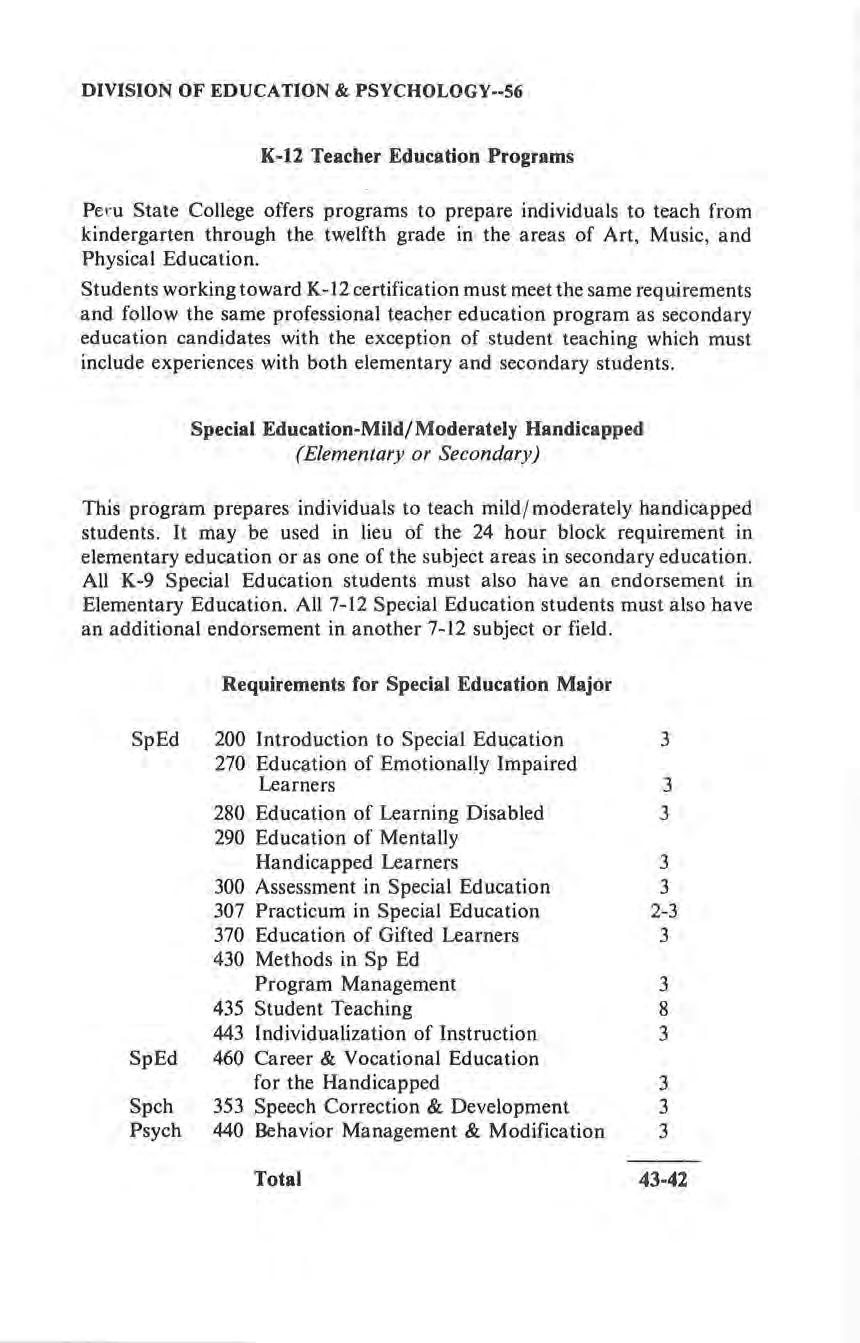
DIVISION OF EDUCATION & PSYCHOLOGY--56
Requirements for Special Education Major SpEd 200 Introduction to Special Education 3 270 Education of Emotionally Impaired Learners 3 280 Education of Learning Disabled 3 290 Education of Mentally Handicapped Learners 3 300 Assessment in Special Education 3 307 Practicum in Special Education 2-3 370 Education of Gifted Learners 3 430 Methods in Sp Ed Program Management 3 435 Student Teaching 8 443 Individualization of Instruction 3 SpEd 460 Career & Vocational Education for the Handicapped 3 Speh 353 Speech Correction & Development 3 Psych 440 Behavior Management & Modification 3 Total 43-42
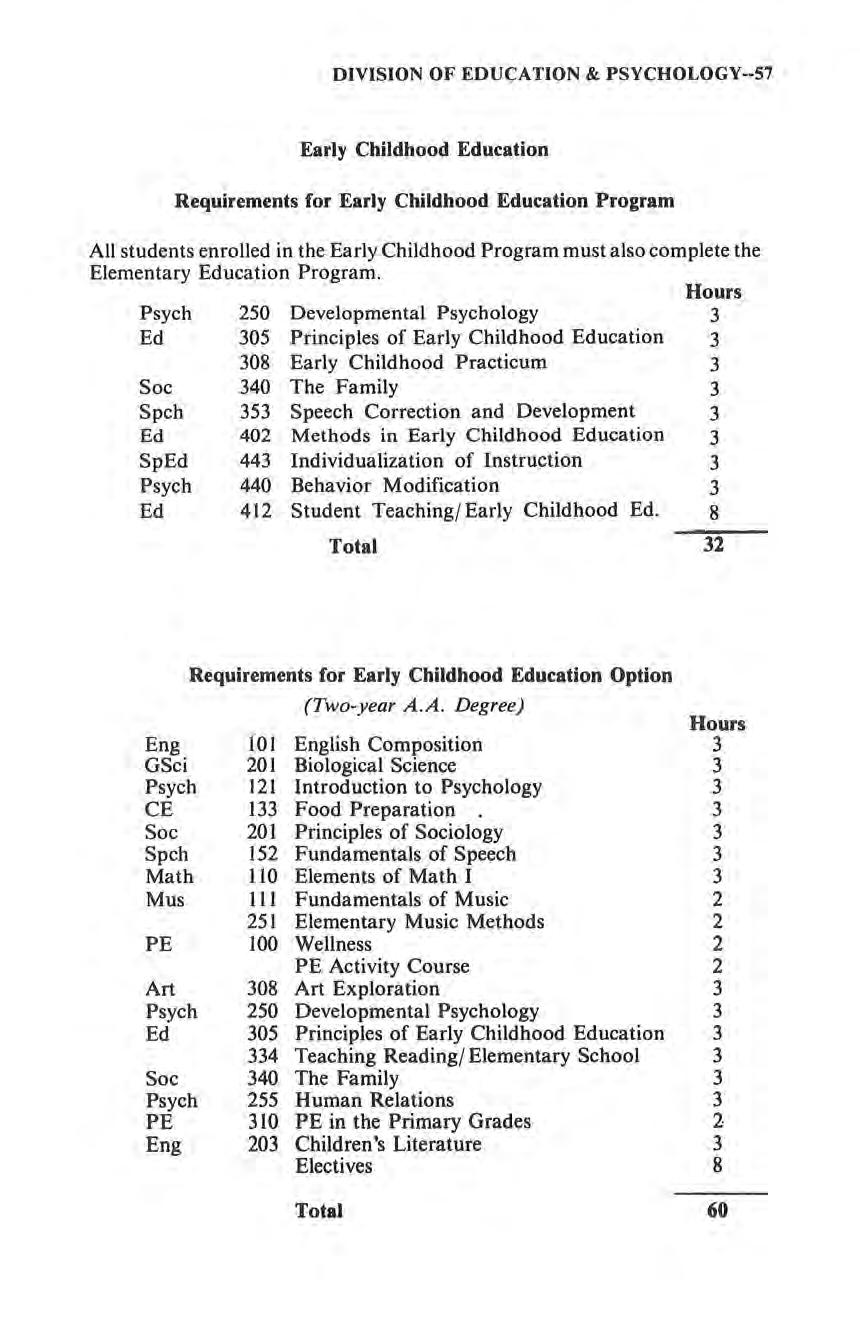
DIVISION OF EDUCATION & PSYCHOLOGY--57
Childhood Education Requirements for Early Childhood Education Program All students enrolled in the Early Childhood Program must also complete the Elementary Education Program. Hours Psych 250 Developmental Psychology 3 Ed 305 Principles of Early Childhood Education 3 308 Early Childhood Practicum 3 Soc 340 The Family 3 Speh 353 Speech Correction and Development 3 Ed 402 Methods in Early Childhood Education 3 SpEd 443 Individualization of Instruction 3 Psych 440 Behavior Modification 3 Ed 412 Student Teaching/ Early Childhood Ed. 8 Total 32 Requirements for Early Childhood Education Option (Two-year A.A. Degree) Hours Eng 101 English Composition 3 GSci 201 Biological Science 3 Psych 121 Introduction to Psychology 3 CE 133 Food Preparation 3 Soc 201 Principles of Sociology 3 Speh 152 Fundamentals of Speech 3 Math 110 Elements of Math I 3 Mus 111 Fundamentals of Music 2 251 Elementary Music Methods 2 PE 100 Wellness 2 PE Activity Course 2 Art 308 Art Exploration 3 Psych 250 Developmental Psychology 3 Ed 305 Principles of Early Childhood Education 3 334 Teaching Reading/ Elementary School 3 Soc 340 The Family 3 Psych 255 Human Relations 3 PE 310 PE in the Primary Grades 2 Eng 203 Children's Literature 3 Electives 8 Total 60
Early
The field endorsement in Health and Physical Education (K-12) will meet state requirements to teach both Health and Physical Education.
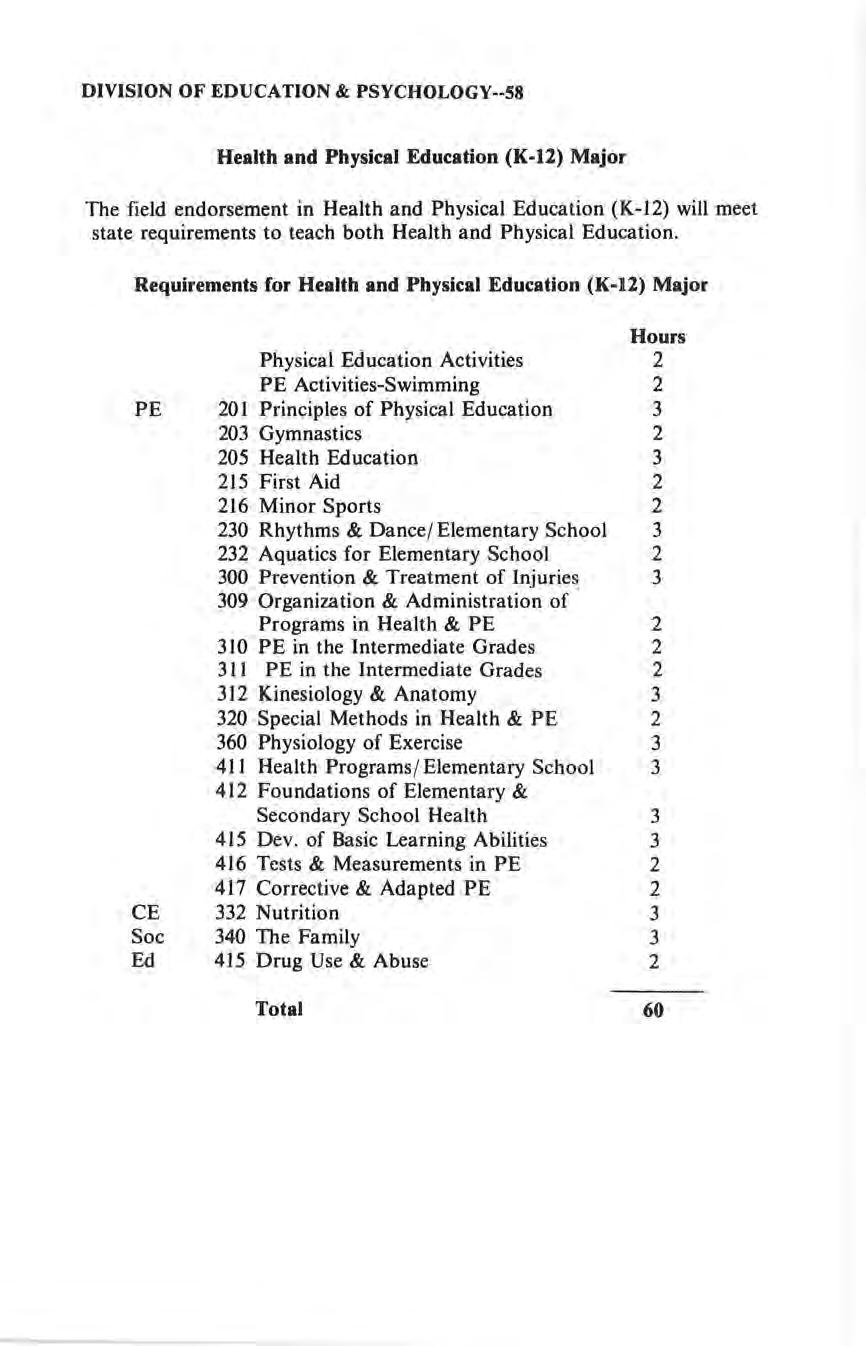
DIVISION OF EDUCATION & PSYCHOLOGY--58
and Physical Education
Major
Health
(K-12)
Requirements for Health and Physical Education (K- 12) Major PE CE Soc Ed Physical Education Activities PE Activities-Swimming 201 ~rinciples of Physical Education 203 Gymnastics 205 Health Education 215 First Aid 216 Minor Sports 230 Rhythms & Dance / Elementary School 232 Aquatics for Elementary School 300 Prevention & Treatment of Injuries, 309 Organization & Administration of Programs in Health & PE 3 IO PE in the Intermediate Grades 311 PE in the Intermediate Grades 312 Kinesiology & Anatomy 320 Special Methods in Health & PE 360 Physiology of Exercise 411 Health Programs / Elementary School 412 Foundations of Elementary & Secondary School Health 415 Dev . of Basic Learning Abilities 416 Tests&. Measurements in PE 417 Corrective & Adapted PE 332 Nutrition 340 The Family 415 Drug Use & Abuse Total Hours 2 2 3 2 3 2 2 3 2 3 2 2 2 3 2 3 3 3 3 2 2 3 3 2 60
Suggested Program for Health and Physical Education (K-12) Major
Freshman Year
Fall Semester
PE 201 Principles of Physical Education
PE 216 Minor Sports
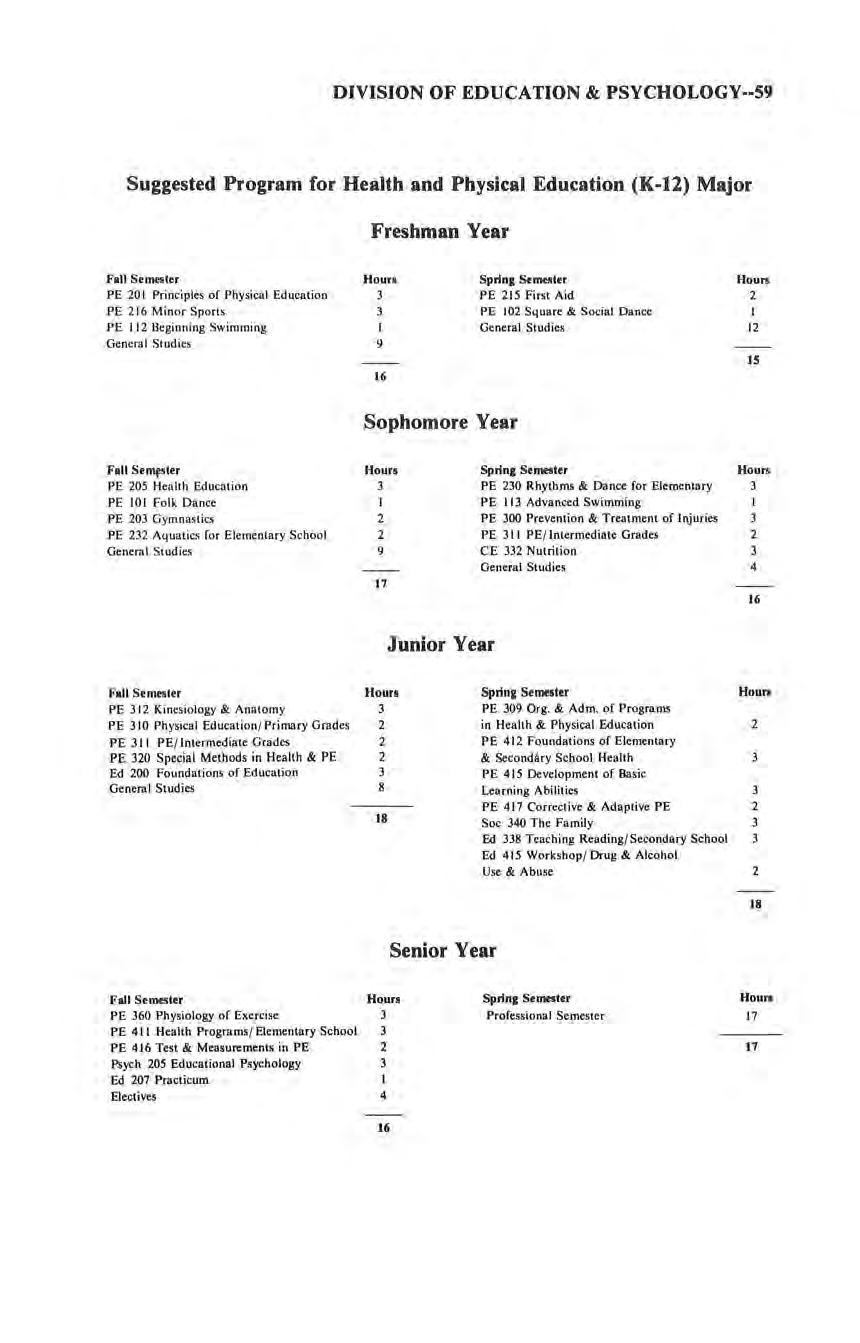
PE 112 Beginning Swimming
General Studies
Hours 3 16
Fall SeJnfSler
PE 205 Health Education
PE IOI Folk Dance
PE 203 Gymnastics
PE 232 Aquatics for Elementary School
General Studies
Spring Semester
PE 215 First Aid
PE 102 Square & Social Dance
General Studies
Sophomore Ye.-r
Hours 17
Sprinc Semester
PE 230 Rhythms & Dance for Elementary
PE 113 Advanced Swimming
PE 300 Prevention & Treatment of Injuries
PE 311 PE / Intermediate Grades
CE 332 Nutrition
General Studies
Junior Year
Fall Semester Hours Spring Semester
PE 312 Kinesiology & Anatomy
PE 310 Physical Education / Primary Grades 2
PE 311 PE / Intermediate Grades ·
PE 320 Special Methods in Health & PE
Ed 200 Foundations of Education
General Studies
PE 309 Org. & Adm. of Programs in Health & Physical. Education
PE 412 Foundations of Elementary & Secondi\ry School Health
PE 415 Development of Basic
Learning Abilities
PE 417 Corrective & Adaptive PE
Soc 340 The Family
Ed 338 Teaching Reading / Secondary School
Ed 415 Workshop / Drug & Alcohol Use & Abuse
Senior Year
Fall Semester
PE 360 Physiology of Exercise
PE 411 Health Programs / Elementary School
PE 416 Test & Measurements in PE
Psych 205 Educational Psychology
Ed 207 Practicum
DIVISION OF EDUCATION & PSYCHOLOGY--59
Electives 18
Hours 3 3 2 16 Spring Semester Professional Semester Hours 2 I 12 15 Hours 3 16 Hours 18 Houn 17 17
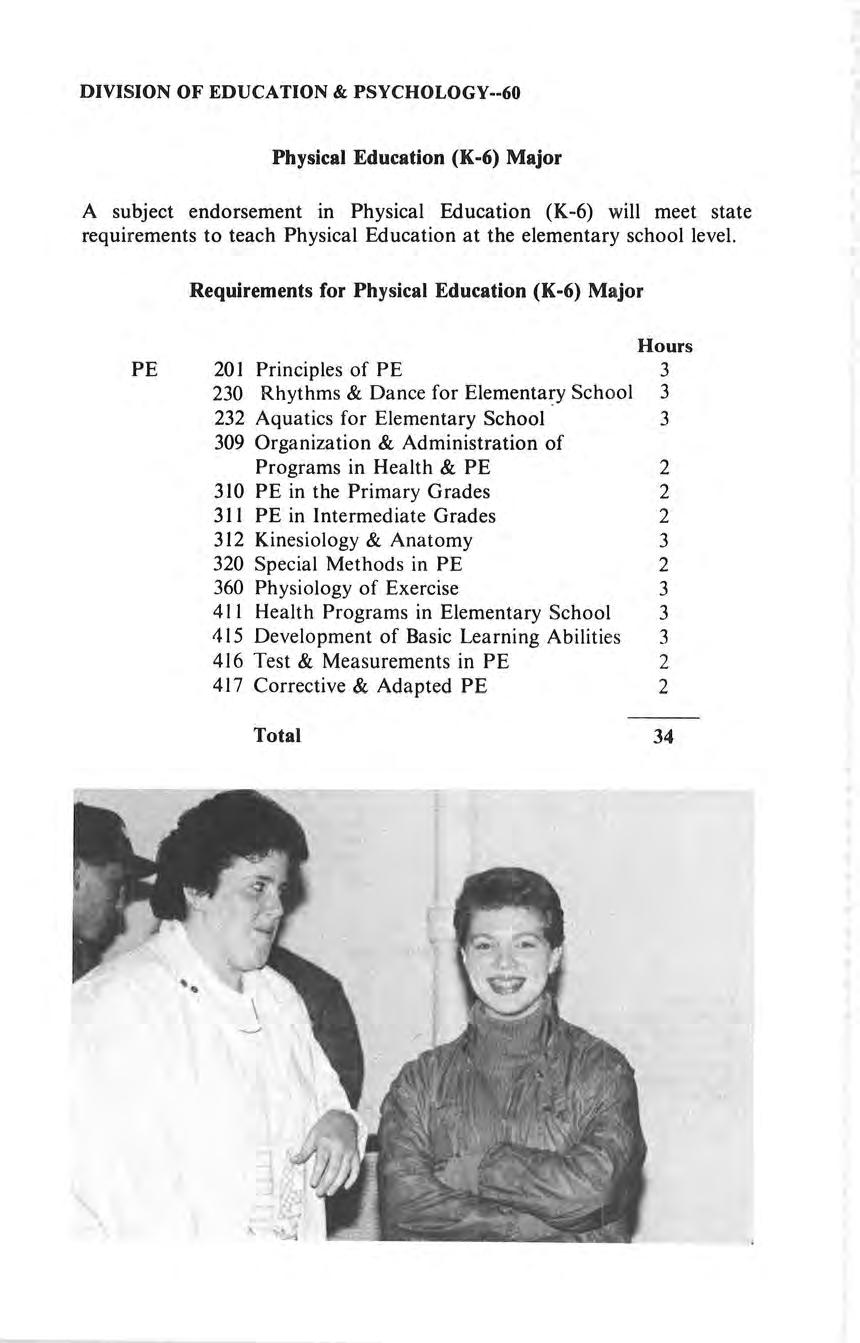
DIVISION OF EDUCATION &
Physical Education (K-6) Major A subject endorsement in Physical Education (K-6) will meet state requi r ements to teach Physical Education at the elementary school level. Requirements for Physical Education (K-6) Major Hours PE 20 I Principles of PE 3 230 Rhythms & Dance for Elementary School 3 232 Aquatics for Elementary School 3 309 Organization & Administration of Programs in Health & PE 2 310 PE in the Primary Grades 2 311 PE in Intermediate Grades 2 312 Kinesiology & Anatomy 3 320 Special Methods in PE 2 360 Physiology of Exercise 3 411 Health Programs in Elementary School 3 415 Development of Basic Learning Abilities 3 416 Test & Measurements in PE 2 417 Corrective & Adapted PE 2 Total 34
PSYCHOLOGY--60
Suggested Program for Physical Education (K-6) Major
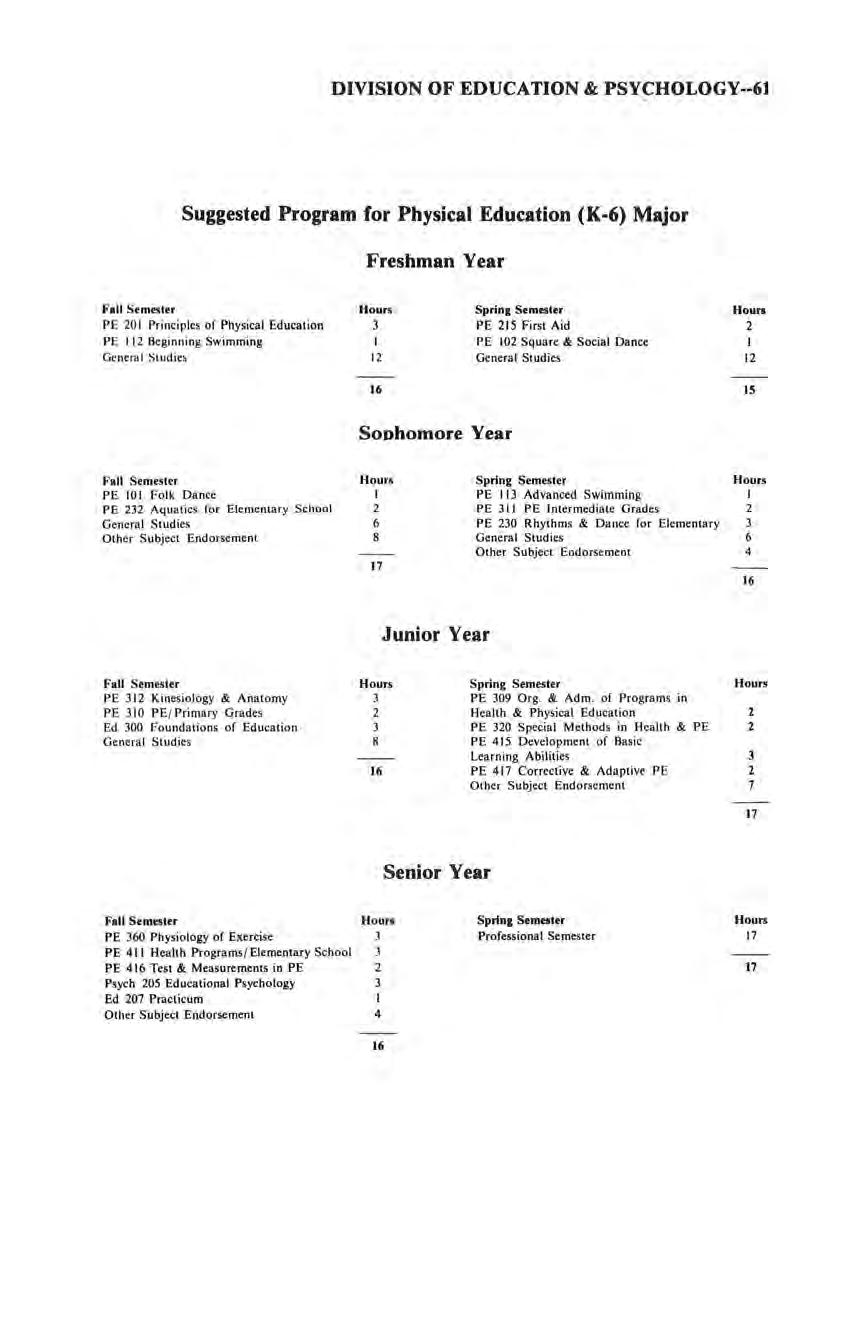
DIVISION OF EDUCATION & PSYCHOLOGY--61
Fall Semester PE 20 1 Principles of Physical Education PE 11 2 Beginning Swimming Gcnernl Studies Fa ll Semester PE 101 Folk Dance PE 232 Aquatics for Elementary School General Studies Other Subject Endorsement Fall Semester PE 312 Kin esio log y & Anatomy PE 310 PE / Primary Grades Ed 300 Foundations of Education General Studies Freshman Year Hours 12 16 Spring Semester PE 215 First Aid PE 10 2 Square & Socia l Dance Genera l Studies Soohomore Year Hours I 2 6 8 17 Spring Semester PE I 13 Advanced Swimming PE 311 PE Intermediate Grades PE 230 Rhythm s & Dance for Elementary General Studies Other Subject Endorsement Junior Year Hours 3 2 3 8 16 Spring Semester PE 309 Org. & Adm. of Prog rams in Health & Physical Education PE 320 Special Method s in Hea lth & PE PE 415 Development of Basic Learning Abilities PE 417 Corrective & Adaptive PE Other Subject Endorsement Senior Year Fall Semester Hours Sprin& Semester Professional Semester PE 360 Physiology of Exercise PE 4 11 Health Programs / Elementary School PE 416 Test & Measurements in PE Psyc h 205 Educational Psychology Ed 207 Practicum Other Subject Endorsement 16 Houn 2 12 15 Hours I 2 3 6 4 16 Hours 17 Hours 17 17
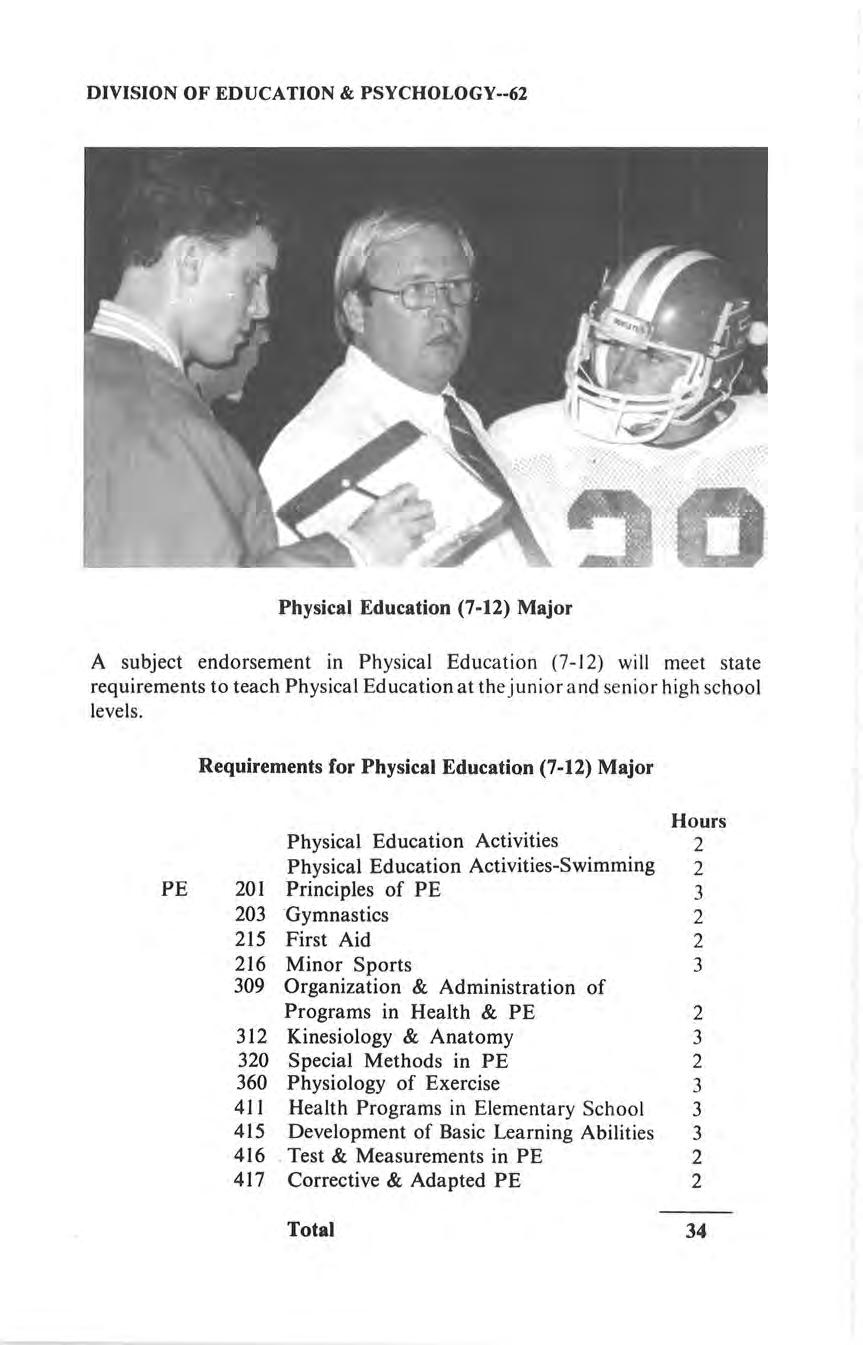
DIVISION OF EDUCATION & PSYCHOLOGY--62 Physical Education (7-12) Major A
Physical Education
PE Requirements for Physical Education (7-12) Major Physical Education Activities Physical Education Activities-Swimming 201 Principles of PE 203 Gymnastics 215 First Aid 216 Minor Sports 309 Organization & Administration of Programs in Health & PE 312 Kinesiology & Anatomy 320 Special Methods in PE 360 Physiology of Exercise 411 Health Programs in Elementary School 415 Development of Basic Learning Abilities 416 . Test & Measurements in PE 417 Corrective & Adapted PE Total Hours 2 2 3 2 2 3 2 3 2 3 3 3 2 2 34
subject endorsement in
(7-12) will meet state requirements to teach Physical Education at the junior and senior high school levels.
Suggested Program for Physical Education (7-12) Major
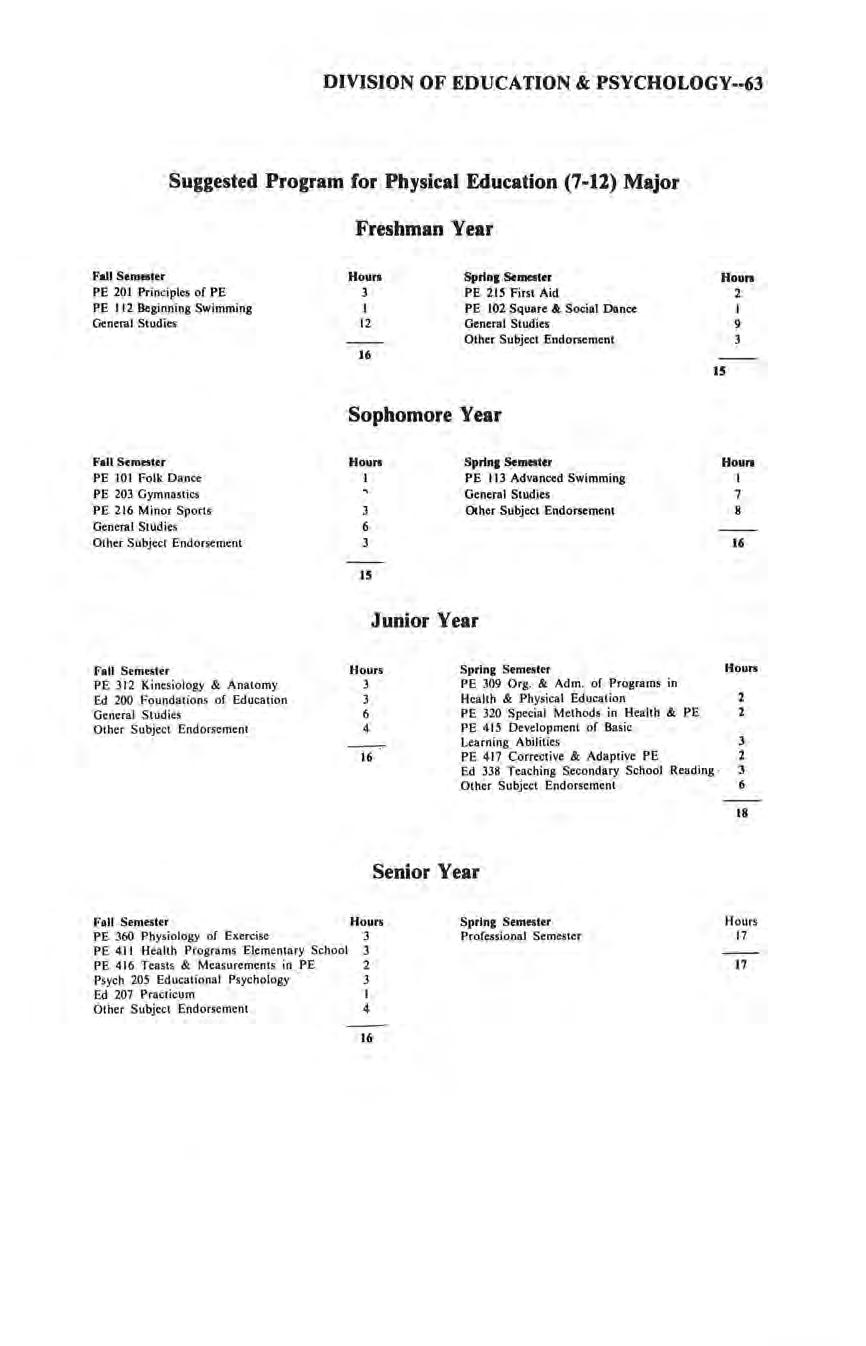
DIVISION OF EDUCATION & PSYCHOLOGY--63
Fall Semester PE 20 I Prin c iples of PE PE 112 Beginning Swimming General Studies Fall Semester PE IO I Folk Dance PE 203 Gymnastics PE 216 Minor Sports General Studies Other Subject Endorsement Fall Semester PE 312 Kin esio log y & Anatomy Ed 200 Foundations of Education General Studies Other Subject Endorsemen t Fall Semester PE 360 Phys iol ogy o f Exercise PE 411 Health Program s Elementary School PE 416 Teasts & Mea surement s in PE Psych 205 Educational Psychology Ed 207 Practicum Other Subject E ndorsement Freshman Year Houn 3 I 12 16 Sprtn1 Semaler PE 215 First Aid PE I02 Square & Social Dance General Studies Other Subject Endorsement Houn 2 I 9 3 15 Sophomore Year Houn I 15 Sprtn1 Semester PE 113 Advanced Swimming General Studies Other Subject Endorsement Houn I 16 Junior Year Hours 3 3 6 4 16 Spring Semester Hours PE 309 Org & Adm. of Programs in Hea lth & Phy sica l Education 2 PE 320 Special Me thod s in Health & PE 2 PE 415 Development of Basic Learning Abilities 3 PE 417 Corrective & Adaptive PE 2 Ed 338 Teaching Secondary School Reading · 3 Other Subject Endorsement 6 18 Senior Year Hours 3 3 2 3 I 4 16 Spring Semester Professional Semester Hours 17 17
Athletic Coaching Endorsement for Physical Education Majors
The following program is provided for those students inters t ed in coaching interscholastic sports. It is designed to fit the needs of the high school coach and leeads to an institutional recommendation for endorsement. Students completing this program are required to have a major in Physical Education
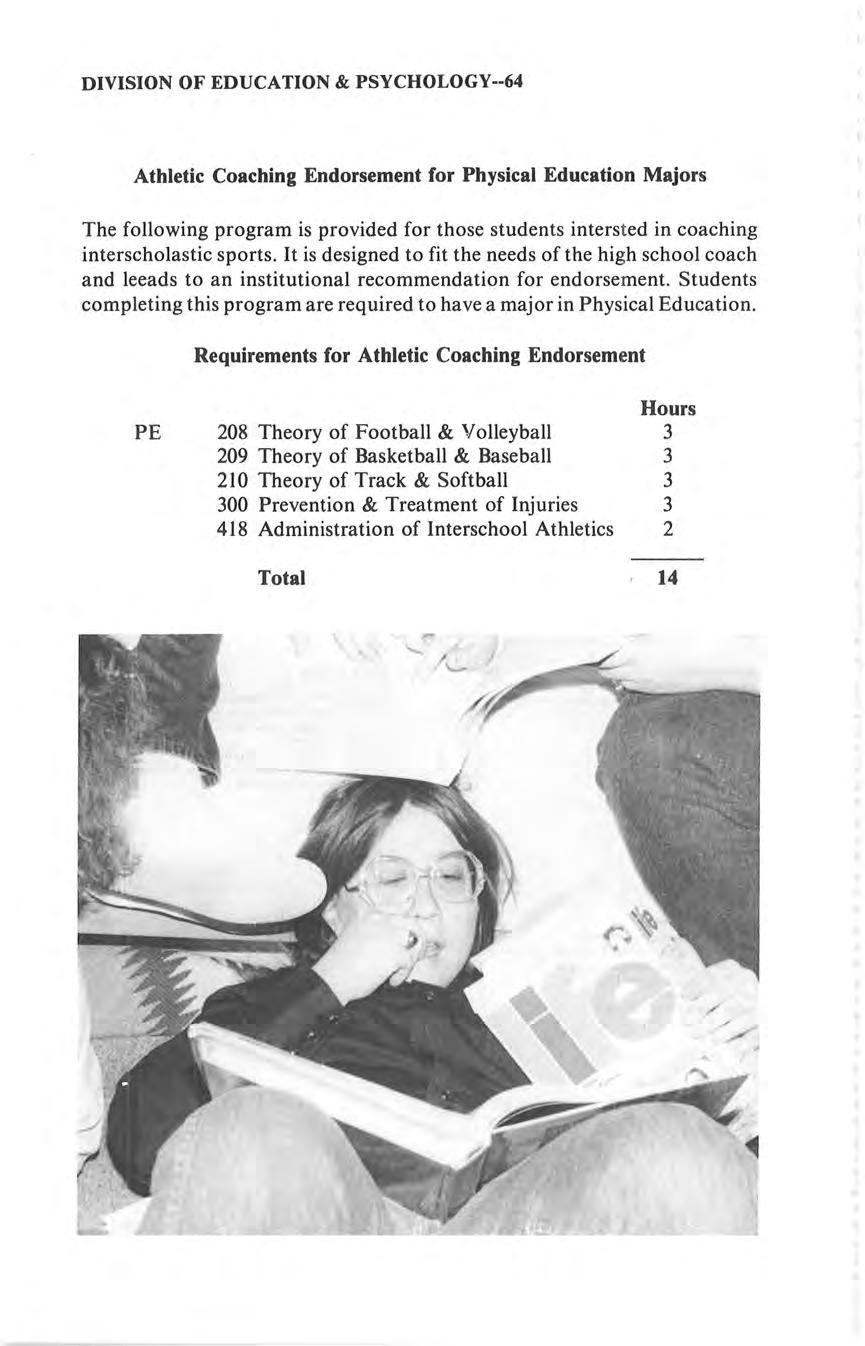
DIVISION OF EDUCATION & PSYCHOLOGY--64
PE Requirements for Athletic Coaching Endorsement 208 Theory of Football & Volleyball 209 Theory of Basketball & Baseball 210 Theory of Track & Softball 300 Prevention & Treatment of Injuries 418 Administration of lnterschool Athletics Total Hours 3 3 3 3 2 14
Athletic Coaching Endorsement for Non-Physical Education Majors
The following program is provided for those students interested in coaching interscholastic sports and who do not have a major in Physical Education . It is designed to fit the needs of the high school coach and leads to an institutional recommendation for endorsement. Students completing this program are required to have a major in an area other than Physical Education.
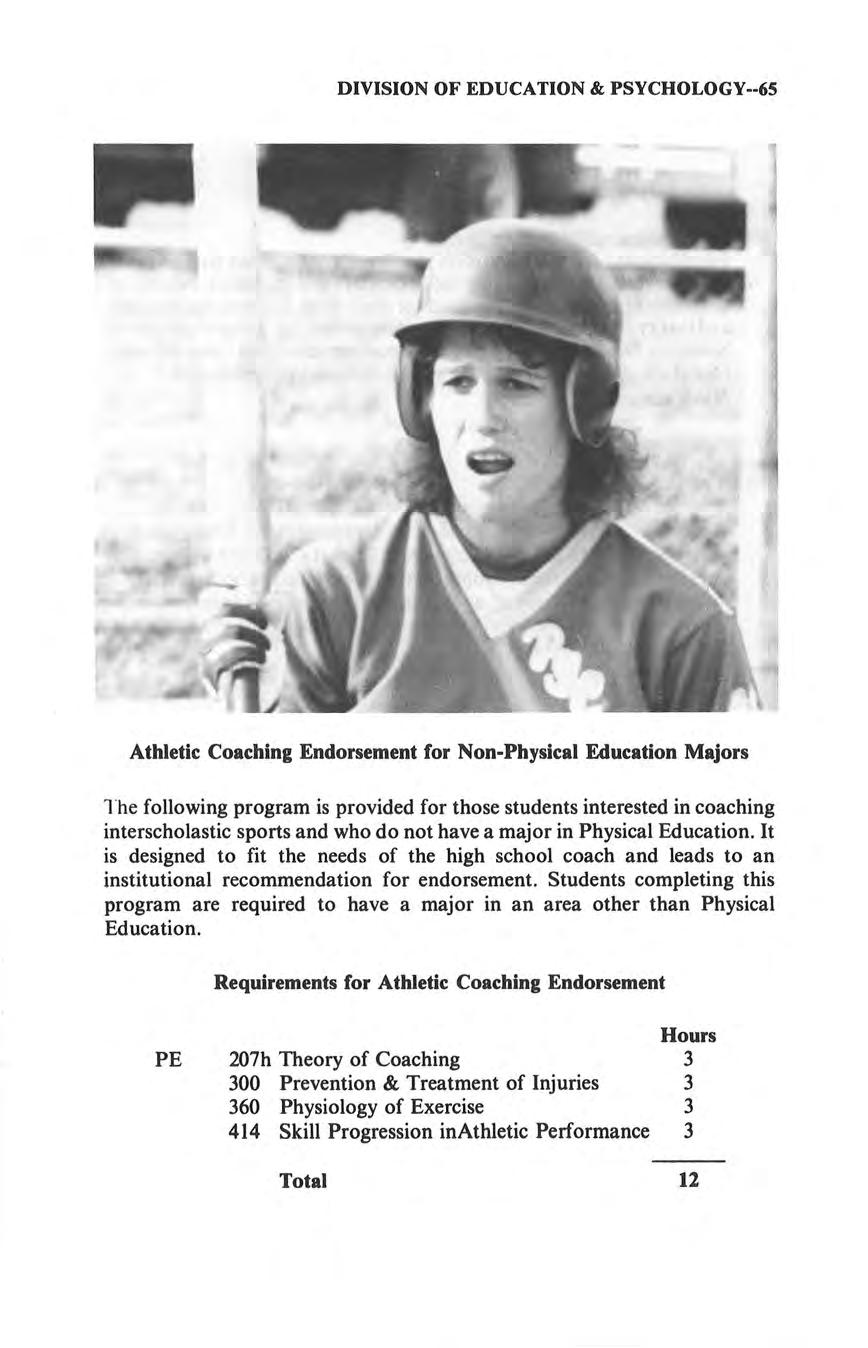
DIVISION OF EDUCATION & PSYCHOLOGY--65
PE Requirements for Athletic Coaching Endorsement 207h Theory of Coaching 300 Prevention & Treatment of Injuries 360 Physiology of Exercise 414 Skill Progression inAthletic Performance Total Hours 3 3 3 3 12
Course Descriptions
Education
200 Foundations of Education (3 hours)
Foundations of Education refers to a broadly-conceived field of study that derives its characters and fundamental theories from a number of academic disciplines, combinations of disciplines, and area studies such as History, Philosophy, Sociology, Anthropology, Religion, Political Science, Economics, Psychology, comparative and international education, educational studies, and educational policy studies.
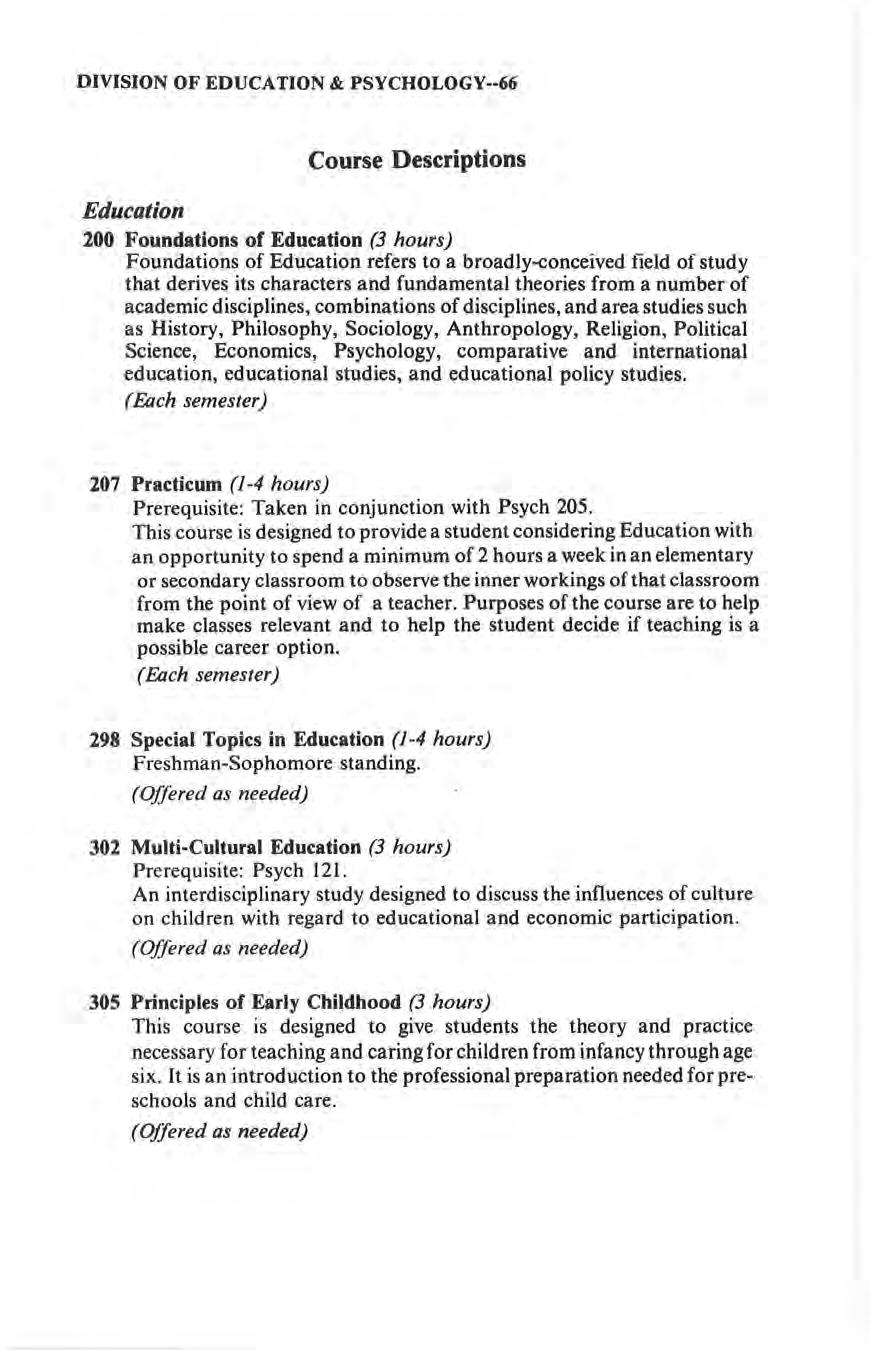
(Each semester)
207 Practicum (1-4 hours)
Prerequisite: Taken in conjunction with Psych 205. This course is designed to provide a student considering Education with an opportunity to spend a minimum of 2 hours a week in an elementary or secondary classroom to observe the inner workings of that classroom from the point of view of a teacher. Purposes of the course are to help make classes relevant and to help the student decide if teaching is a possible career option.
(E:ach semester)
298 Special Topics in Education (1-4 hours)
Freshman-Sophomore standing.
(Offered as needed)
302 Multi-Cultural Education (3 hours)
Prerequisite: Psych 121. An interdisciplinary study designed to discuss the influences of culture on children with regard to educational and economic participation.
(Offered as needed)
305 Principles of Early Childhood (3 hours)
This course is designed to give students the theory and practice necessary for teaching and caring for children from infancy through age six. It is an introduction to the professional preparation needed for preschools and child care.
(Offered as needed)
DIVISION OF EDUCATION & PSYCHOLOGY--66
307 Practicum (1-4 hours)
Prerequisite: Taken in conjunction with Ed 388 or Ed 403; admission to Teacher Education.
This course is designed to provide students an opportunity to observe the specific methods being used in methods classes and to begin to practice those methods. It is offered for credit/ no credit.
(F.ach semester)
308 Early Childhood Education (3 hours)
Prerequisite: Admission to Teacher Education; concurrent registration in Ed 402.
This course is designed to provide students an opportunity to observe the specific methods being used in the Methods class and to begin to practice those methods.
(&ch semester)
325 Teaching Language Arts in the Elementary School (2 hours)
Prerequisite: Admission to Teacher Education. This course investigates goals, methods, materials, and evaluation techniques in the area of elementary language arts.
(&ch semester)
326 Teaching Social Studies in the Elementary School (2 hours)
Prerequisite: Admission to Teacher Education. This course is designed to make the prospective elementary teacher aware of the methods, materials, resources, and techniques used to teach Social Studies in an elementary school. Students will also discuss the importance of Social Studies and the makeup of an elementary Social Studies curriculum.
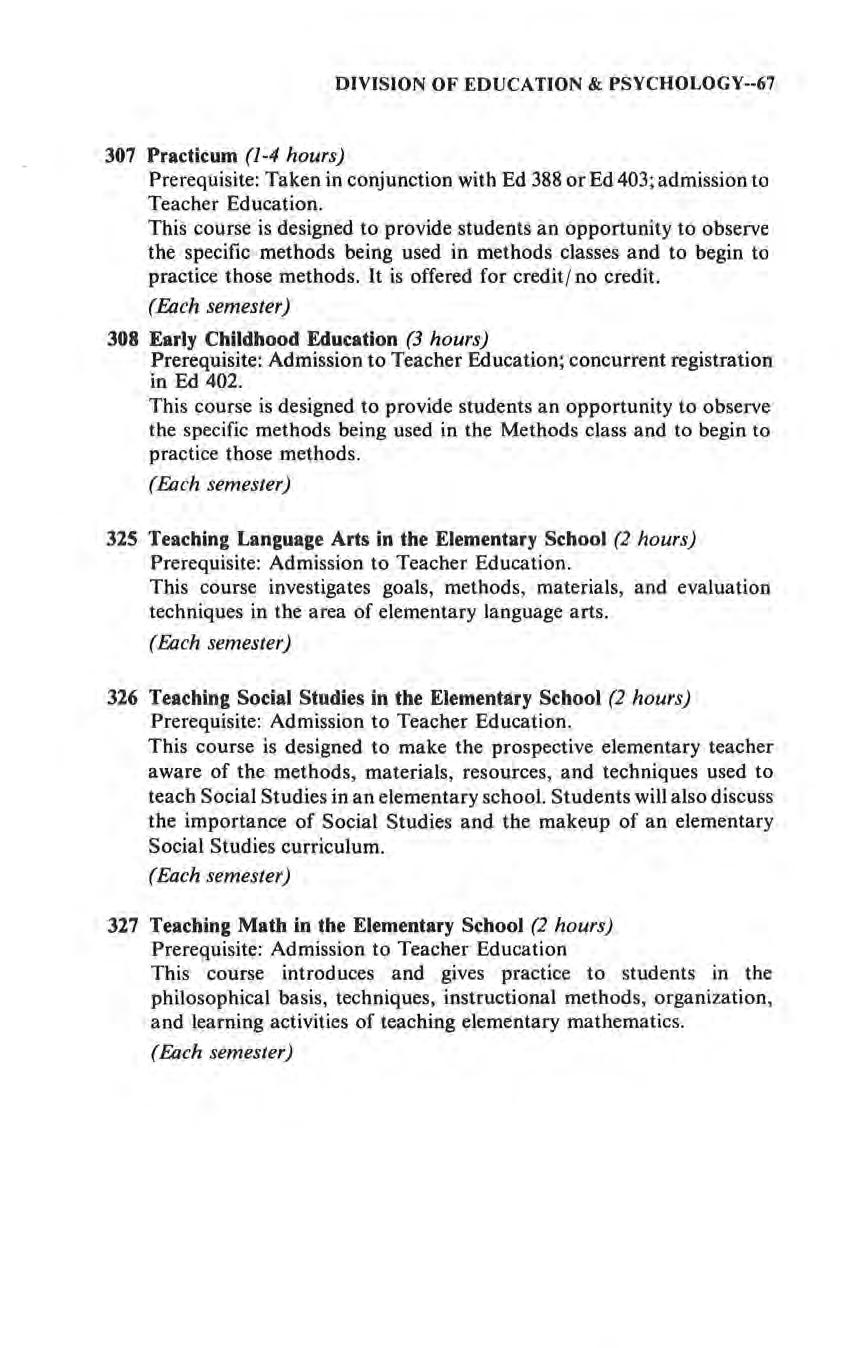
(Each semester)
327 Teaching Math in the Elementary School (2 hours)
Prerequisite: Admission to Teacher Education
This course introduces and gives practice to students in the philosophical basis, techniques, instructional methods, organization, and learning activities of teaching elementary mathematics.
(F.ach semester)
DIVISION OF EDUCATION & PSYCHOLOGY--67
328 Teaching Science in the Elementary School (2 hours)
Prerequisite: Admission to Teacher Education. The purposes of the course are to: (I) give direction to prospective teachers on how to organize and conduct meaningful sc ience le arning experie nces in the elementary school, (2) to provide simple and easy to under sta nd outlines of science concepts and conceptual sc hemes for eac h area of science, and (3) to present appropriate learning exper iences
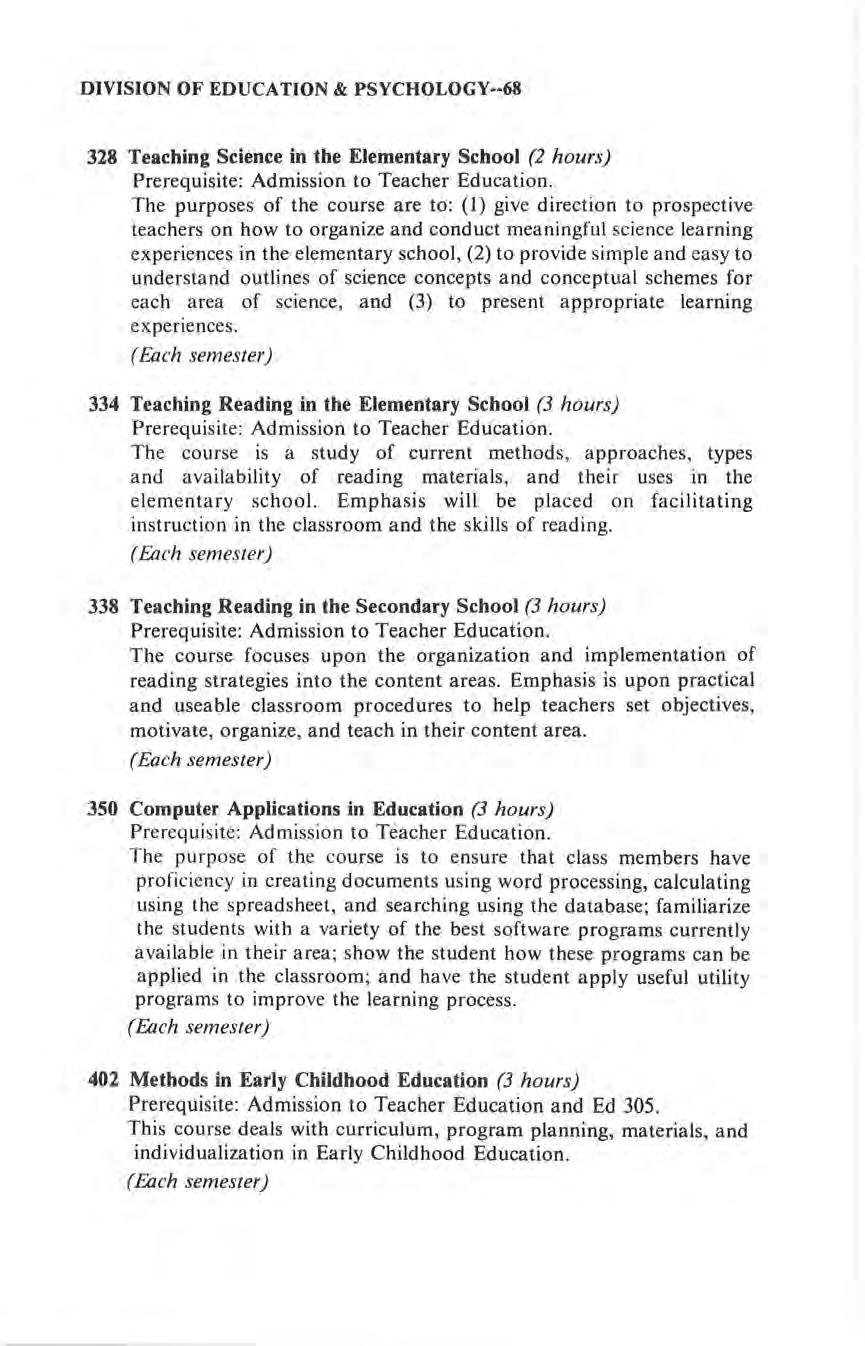
(E.ach semester)
334 Teaching Reading in the Elementary School (3 hours)
Prerequisite : Admission to Teacher Education. The course is a study of current methods, approaches, types and availability of reading materials , and their uses in the e lementar y school. Emphasis will be placed on facilitating instruction in the classroom and the skills of reading. ( E.ach semester)
338 Teaching Reading in the Secondary School (3 hours)
Prerequisite: Admission to Teacher Education. The course focuses upon the organization and implementation of reading strategies into the content areas. Emphasis is upon practical and useable classroom procedures to help teachers set objectives, motivate, organize, and teach in their content area. (Each semester)
350 Computer Applications in Education (3 hours)
Prerequisite: Admission to Teacher Education. The purpose of the course is to ensure that class members have proficiency in creating documents u si ng word processing, calculating using the spreadsheet, and searching us ing the database; familiarize the students with a variety of the best software programs currently available in their area ; show the student how these programs can be applied in the classroom; and have the student apply useful utility programs to improve the learning process . (E.ach semester)
402 Methods in Early Childhood Education (3 hours)
Prerequisite: Admission to Teacher Education and Ed 305. This course deals with curriculum, program planning, materials, and individualization in Early Childhood Education . ( E.ach semeste r)
DIVISION OF
& PSYCHOLOGY--68
EDUCATION
403 Diagnostic and Remedial Reading (3 hours)
Prerequisite: Admission to Teacher Education and Ed 334. This course is designed for students and practicing teachers who want to broaden their knowledge and skill in diagnostic and remedial reading techniques . The course will include the administration and interpretation of diagnostic instruments, the causes of reading problems, remedial techniques, and administrative procedures with which reading teachers s hould become familiar. A continuation course of Ed 334 and 338.
(&ch semester)
404 Audio-Visual Techniques (2 hours)
Through class lectures, demonstrations, and laboratory practice, the student will develop the ability to design, construct and evaluate media as well as learning packages.
(Offered as needed)
406 Community and School Relations (2 hours)
Prerequisite: Admission to Student Teaching. This course is designed to provide the professional semester student with information related to (I) relations with parents, (2) relations with the community, (3) rights and responsibilities of teachers, (4) mainstreaming, and other topics so that the student will be prepared to begin st udent teaching.
(&ch semester)
407 Tests and Measurements (2 hours)
Prerequisite: Admission to Student Teaching. The course emphasizes the procedures for constructing tests, analyzing teacher made tests, and applying the results of testing to grading and reporting of pupil progress. The course also presents the basic statistics which are used in the analysis, interpretation , and use of tei,t results.
(&ch semester)
408 Instructional Methods (3 hours)
Prerequisite: Admission to Student Teaching .
A synt hesis of teaching competencies involving planning, preparation, and presentation. The development of a complete teaching unit containing unit plans, daily lesson plans, calendar of events, objectives, and materials for instruction procedures is required. Students will be videotaped in a microteaching situation.
(&ch semester)
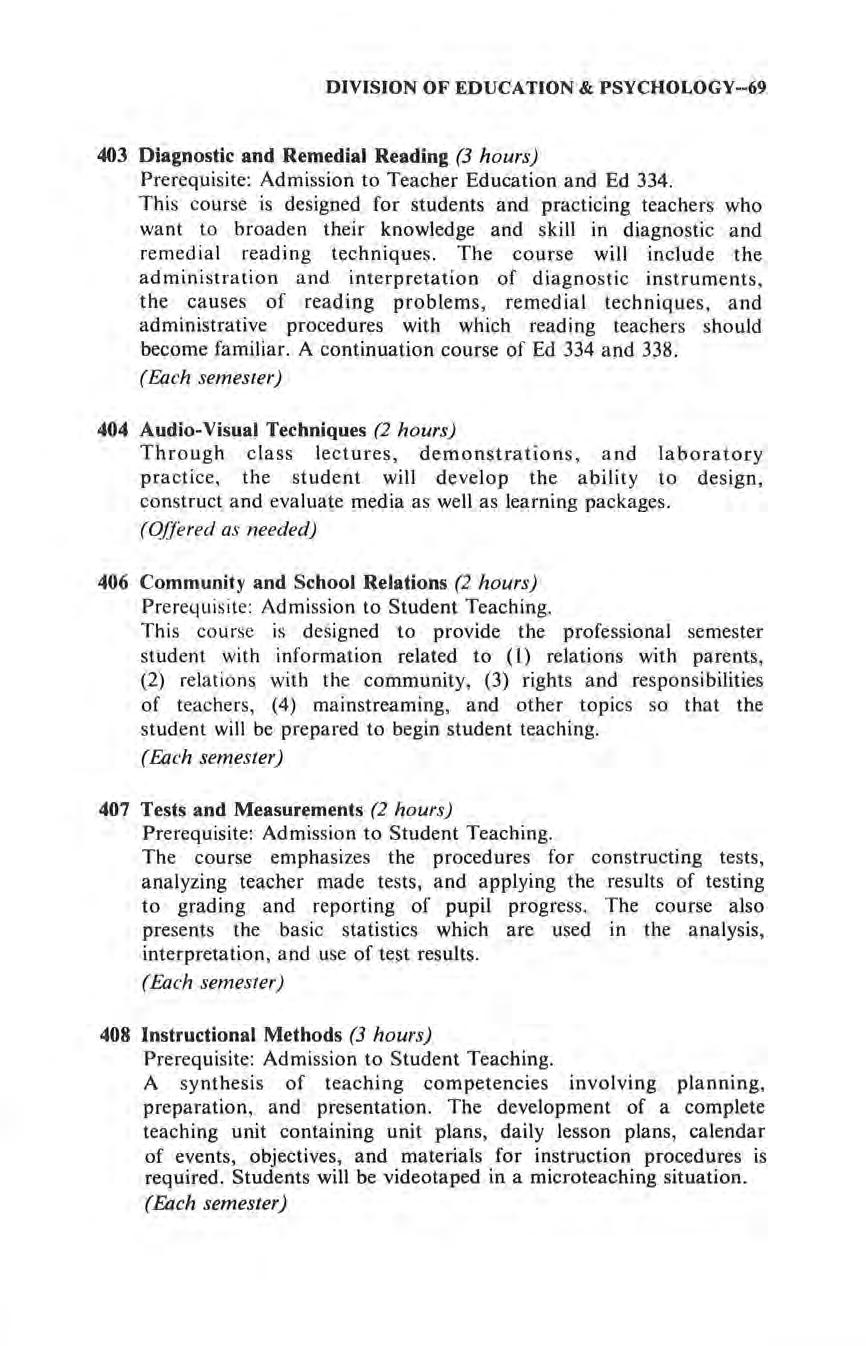
DIVISION OF EDUCATION & PSYCHOLOGY--69
410 Student Teaching (Elementary) (8-10 hours)
Prerequisite: Admission to Student Teaching. A practical application of the principles of learning in the classroom with a progressive induction into full teaching responsibilities at the elementary level. Students teach fulltime for eight or ten weeks.
(E:ach semester)
411 Student Teaching (Secondary) (5-10 hours)
Prerequisite: Admission to Student Teaching
This is a practical application of learning principles in the classroom with a progressive introduction into full teaching responsibility at the secondary level.
(Each semester)
412 Student Teaching (Early Childhood) (8 hours)
Prerequisite: Admission to Student Teaching. Observations, laboratory and teaching experience in directing the learning activities of children in Pre-Kindergarten through grade 3. During the student teaching experience, the student applies the theories and principles of learning and instruction
(E:ach semester)
415 Drug Use and Abuse (2 hours)
This course is a study of the different types of drugs that are prevalent in our American society. Emphasis will be placed on the origins of drug-taking behavior, the problems that drugs create in our society, and the allure that drugs have in our culture today.
(Offered as needed)
441 Cooperative Education Internship (1-12 hours)
Prerequisite: Upperclass standing, permission of Director or Cooperative Education and Chairperson of Education Division. This course is designed for any student majoring in any discipline listed within the Education Division and is to be taken near the end of the formal college course requirements. Students may enroll for 1-12 hours of credit upon approval of the Director of Cooperative Education and the Chairperson of the Education Division . The learning situation will be organized and supervised by the Director of Cooperative Education. A minimum of forty hours of work experience will be required for each hour of credit for which the student enrolls.
(Each semester, summer)
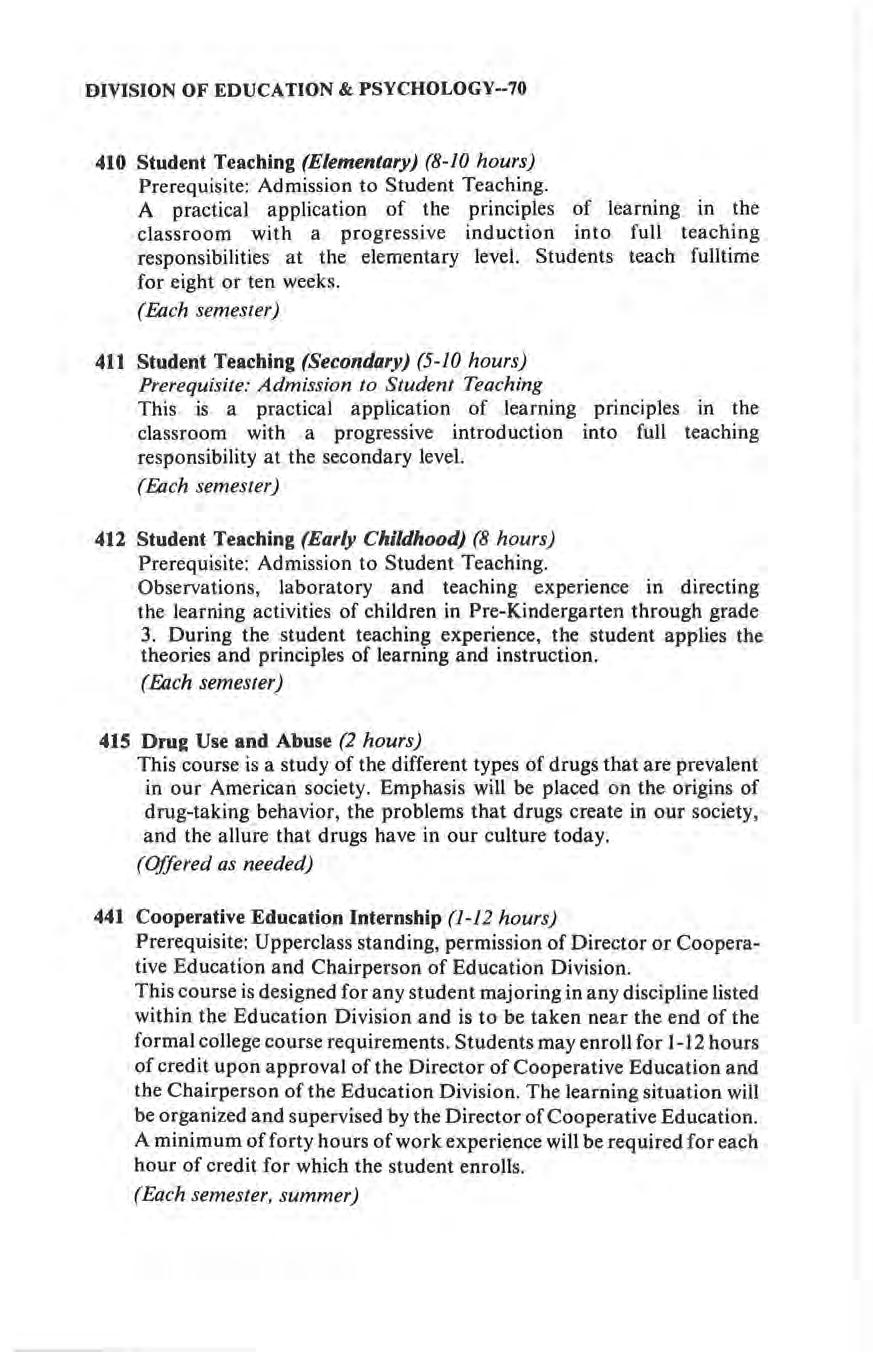
DIVISION OF EDUCATION & PSYCHOLOGY--70
443 Individualization of Instruction (3 hours)
Several models for individualization are investigated. The student will design a topic of instruction following one of the models. The students experience this individualized design by the way the course is managed.
(Offered as needed)
498 Special Topics in Education (1-4 hours) Junior-Senior standing.
(Offered as needed)
499 Independent Study in Education (1-3 hours) Junior standing.
(Each semester)
Physical Education
Physical Education activities courses (PE IO 1-123) require two hours of attendance. Each student will be required to enroll in PE 100 Wellness. It will be followed by two activity courses, of which one will be developmental.
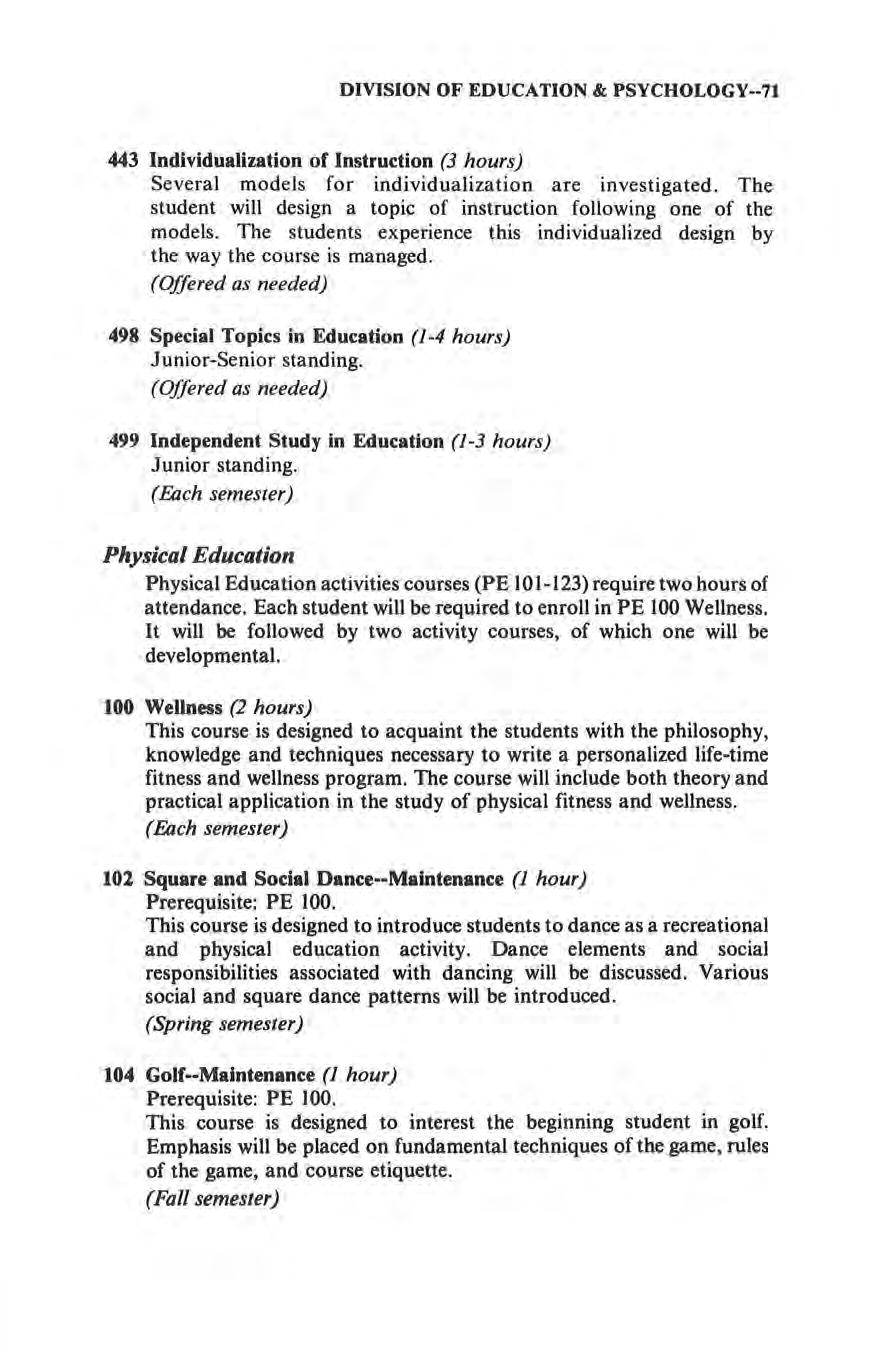
100 Wellness (2 hours)
This course is designed to acquaint the students with the philosophy, knowledge and techniques necessary to write a personalized life-time fitness and wellness program. The course will include both theory and practical application in the study of physical fitness and wellness.
(Each semester)
102 Square and Social Dance--Maintenance (] hour)
Prerequisite: PE 100.
This course is designed to introduce students to dance as a recreational and physical education activity. Dance elements and social responsibilities associated with dancing will be discussed. Various social and square dance patterns will be introduced.
(Spring semester)
104 Golf--Maintenance (] hour)
Prerequisite: PE 100.
This course is designed to interest the beginning student in golf. Emphasis will be placed on fundamental techniques of the game, rules of the game, and course etiquette .
(Fall semester)
DIVISION OF EDUCATION & PSYCHOLOGY--71
110 Tennis--Maintenance (1 hour)
Prerequisite: PE 100.
This course is designed to interest the beginning tennis player. Emphasis will be placed on basic fundamental skills of the game, rules of the game and court etiquette.
(Each semester)
111 Intermediate Tennis--Maintenance (1 hour)
,Prerequisite: PE 100
This course is designed to allow students to become more proficient in the game of tennis Emphasis will be placed on advanced fundamental techniques, strategy, and skill analysis.
(Each semester)
112 Beginning, Advanced Beginning Swimming & Basic Water Stafety
Developmental (1 hour)
Prerequisite: PE 100.
This course is designed to introduce the studen t to the basic fundamentals of swimming. Emphasis will be placed on basic strokes, advanced beginning strokes, rhythmic breathing, endurance, stroke modification and basic water safety.
(Fall semester)
113 Intermediate Swimmer & Basic Rescue--Developmental (1 hour)
Prerequisite: PE 100
This course is designed to help students become more proficient at swimming, techniques and rescue skills. Emphasis will be on endurance, versatility of swimming skills and aquatic emergencies.
(Spring semester)
114 Advanced Swimming & Lifeguard Training--Developmental (I hour)
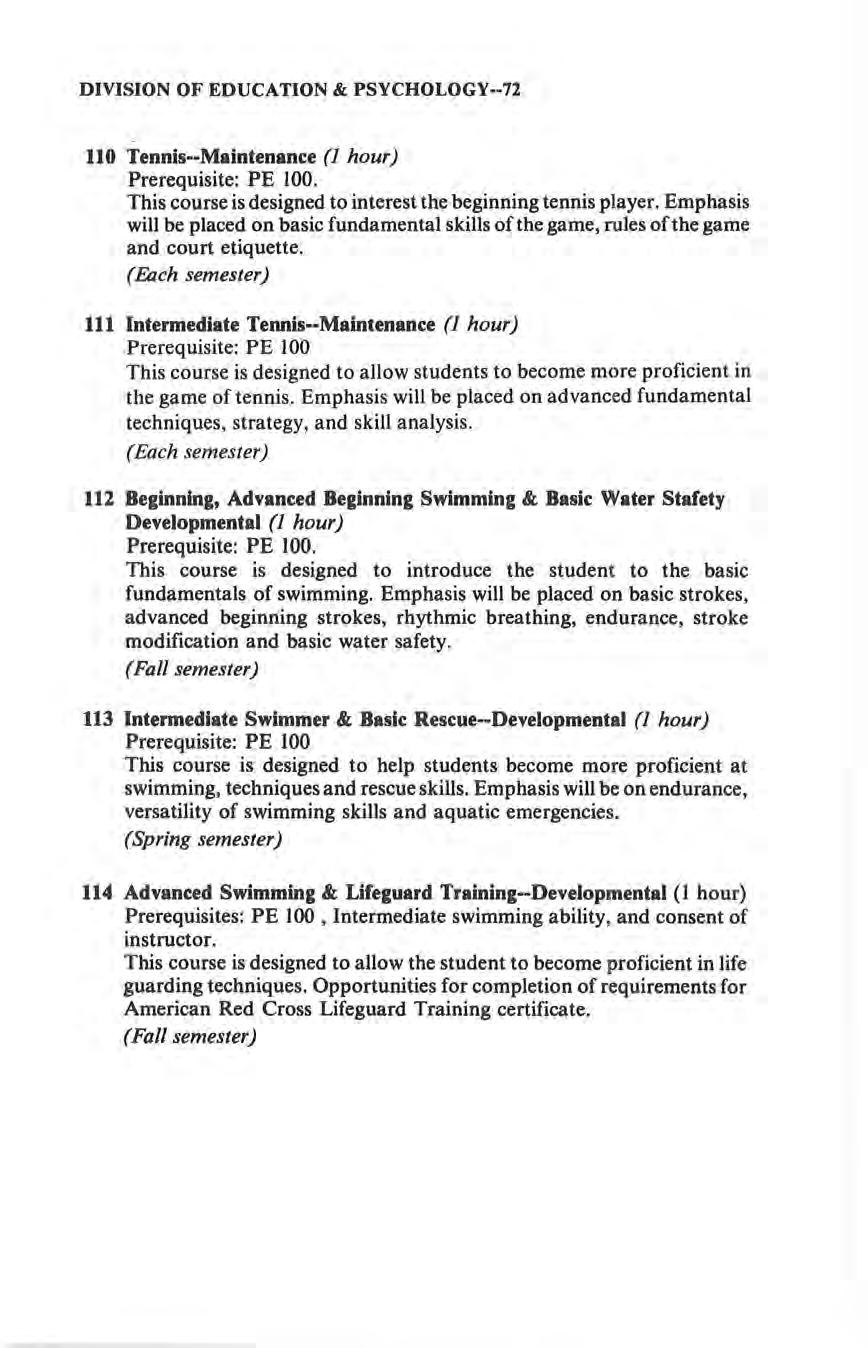
Prerequisites: PE 100, Intermediate swimming ability , and consent of instructor.
This course is designed to allow the student to become proficient in life guarding techniques. Opportunities for completion of requirements for American Red Cross Lifeguard Training certificate.
(Fall semester)
DIVISION OF EDUCATION & PSYCHOLOGY--72
115 Water Saftey Instructor--Developmental (] hour)
Prerequisites: PE l00 and ·114 .
This course is designed to train students to instruct others in swimming skills. Emphasis will be placed on stroke analysis, movement in water, teaching styles, demonstration ability, and endurance capabilities.
(Spring semester)
116 Volleyball--Maintenance (] hour)
Prerequisite: PE l00.
This course is designed to introduce the student to volleyball as a coed recreational and physical education activity. Emphasis will be placed on volleyball skill techniques, playing strategies and rules of the game.
(Fall semester)
117 Weight Training--Developmental (] hour)
Prerequisite: PE l00.
This course is designed to introduce students to a variety of philosopies and strength development techniques. Emphasis will be placed on strength development, toning and endurance. Programs will be developed to meet individual needs.
(Each semester)
119 Restricted Activities--Developmental (] hour)
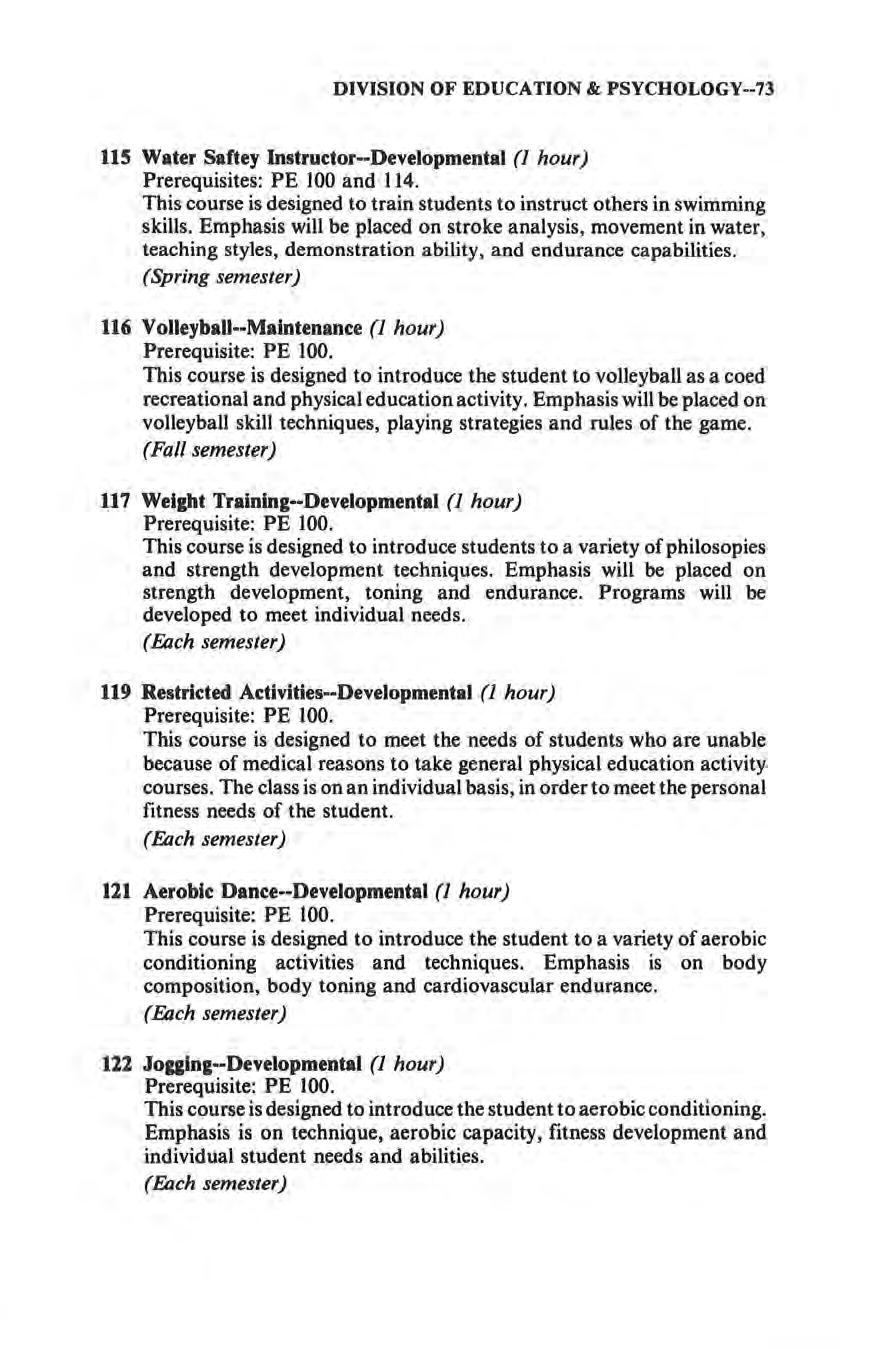
Prerequisite: PE l00.
This course is designed to meet the needs of students who are unable because of medical reasons to take general physical education activity courses. The class is on an individual basis, in order to meet the personal fitness needs of the student.
(Each semester)
121 Aerobic Dance--Developmental (] hour)
Prerequisite: PE l00.
This course is designed to introduce the student to a variety of aerobic conditioning activities and techniques. Emphasis is on body composition, body toning and cardiovascular endurance. (Each semester)
122 Jogging--Developmental (] hour)
Prerequisite: PE l00.
This course is designed to introduce the student to aerobic conditioning. Emphasis is on technique, aerobic capacity, fitness development and individual student needs and abilities.
(Each semester)
DIVISION OF EDUCATION & PSYCHOLOGY--73
123 Aquatic Fitness--Developmental (1 hour)
Prerequisite : PE 100
This course is designed to introduce the student to a variety of aquatic fitness activities and techniques. Emphasis is on aerobic capacity , strength and flexibility.
(Each semester)
190 Varsity Sports (1 hour)
Requires successful participation in a varsity sport.
(.Each semester)
201 Principles of Physical Education (3 hours)
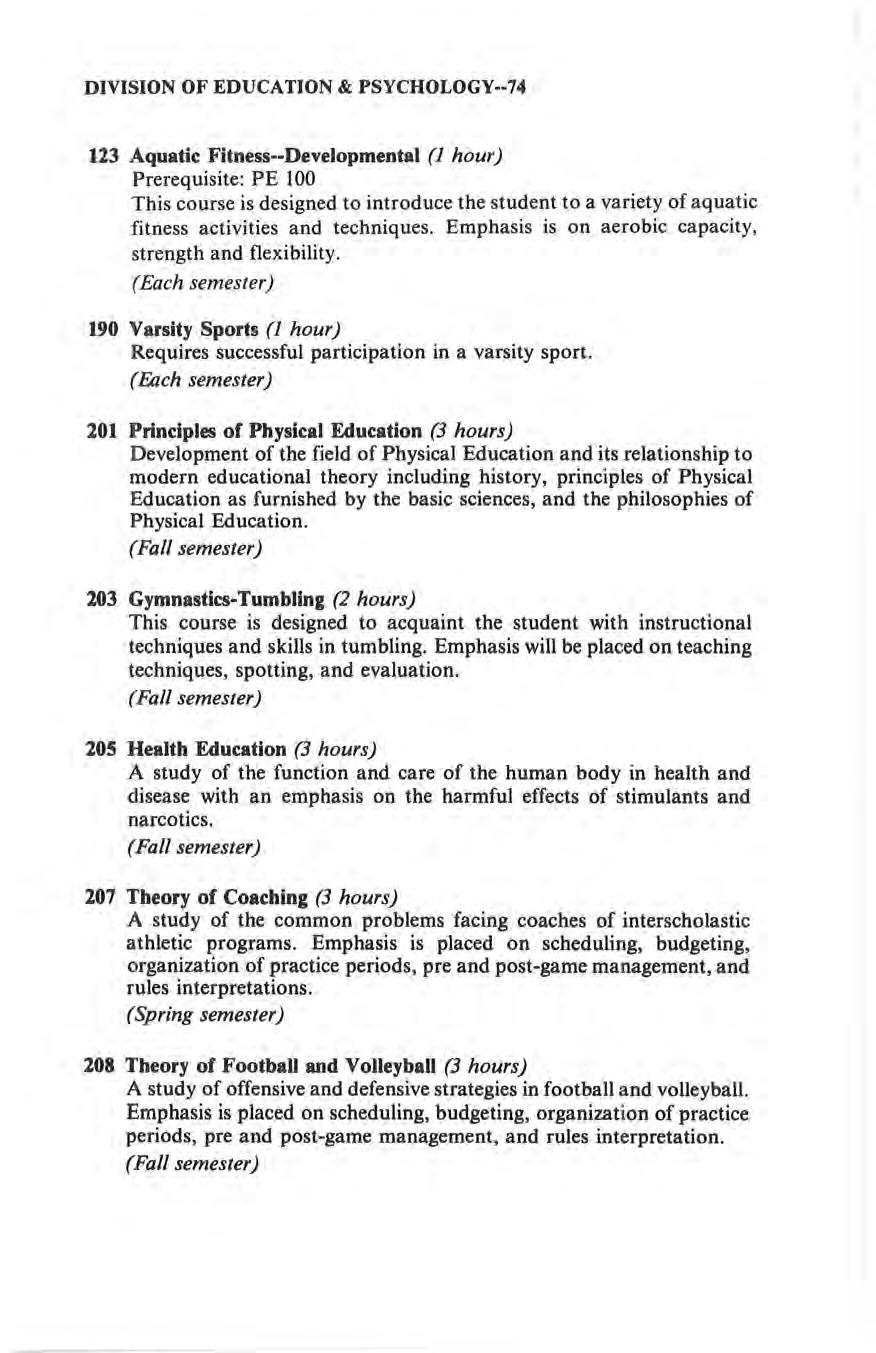
Development of the field of Physical Education and its relationship to modern educational theory including history, principles of Physical Education as furnished by the basic sciences, and the philosophies of P hysical Education .
(Fall semester)
203 Gymnastics-Tumbling (2 hours)
This course is designed to acquaint the student with instructional techniques and skills in tumbling. Emphasis will be placed on teaching techniques, spotting, and evaluation.
(Fall semester)
205 Health Education (3 hours)
A study of the function and care of the human body in health and disease with an emphasis on the harmful effects of stimulan t s and narcotics.
(Fall semester)
207 Theory of Coaching (3 hours)
A study of the common problems facing coaches of interscholastic athletic programs. Emphasis is placed on scheduling, budgeting, organization of practice periods, pre and post-game management, and rules interpretations.
(Spring semester)
208 Theory of Football and Volleyball (3 hours)
A study of offensive and defensive strategies in football and volleyball
Emphasis is placed on scheduling, budgeting, organizat ion of practice periods, pre and post-game management , and rules int erpretation. (Fall semester)
DIVISION OF EDUCATION & PSYCHOLOGY--74
209 Theory of Basketball and Baseball (3 hours)
A study of offensive and defensive strategies in basketball and baseball. Emphasis is placed on scheduling, budgeting, organization of practice periods, pre and post-game management, and rules interpretation. (Spring semester)
210 Theory of Track and Softball (3 hours)
A study of techniques and skills required for events, organization of practice periods, management of meets and games, and rules interpretation (Spring semester)
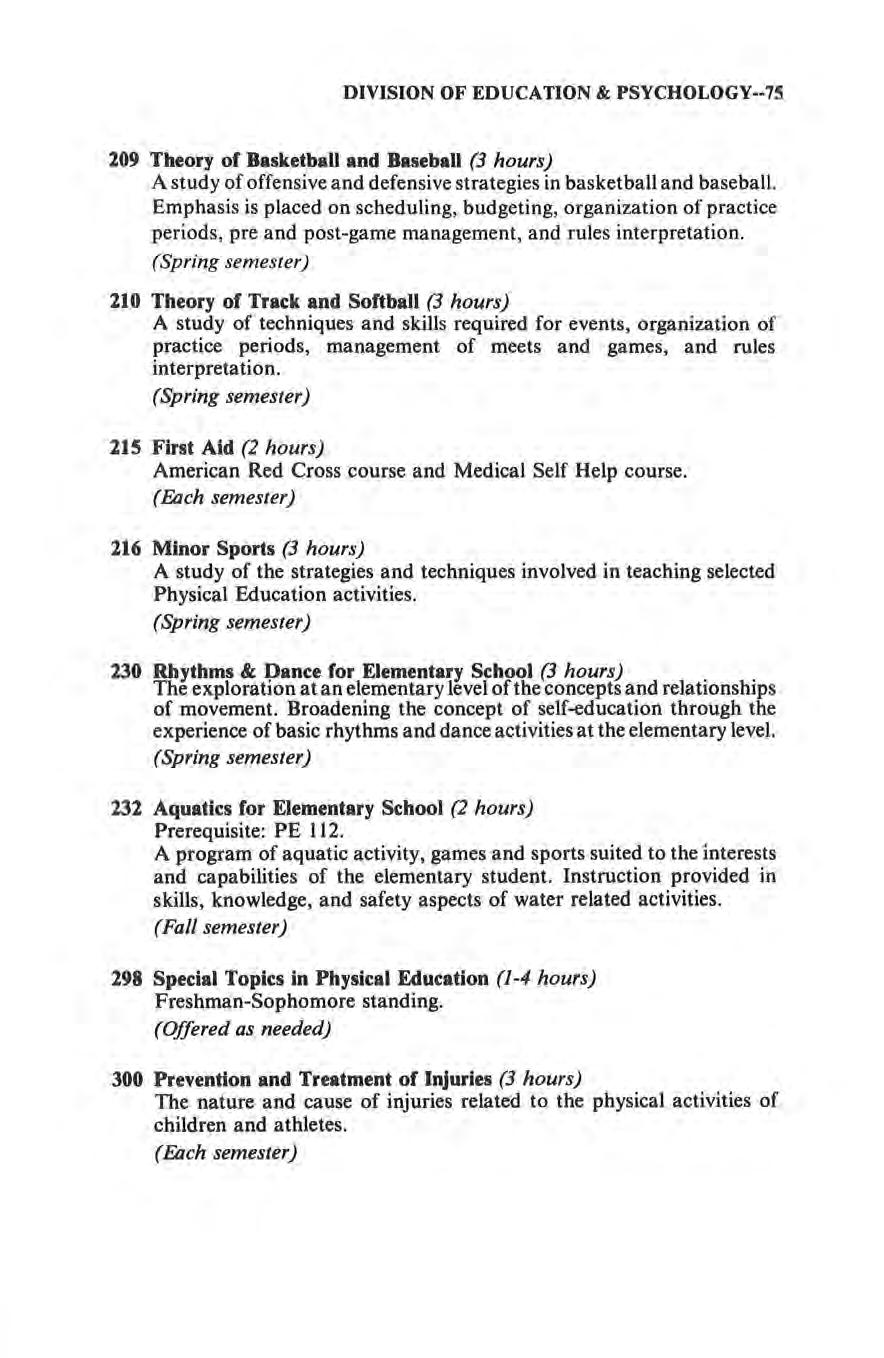
215 First Aid (2 hours)
American Red Cross course and Medical Self Help course. (Each semester)
216 Minor Sports (3 hours)
A study of the strategies and techniques involved in teaching selected Physical Education activities. (Spring semester)
230 Rhythms & Dance for Elementary School (3 hours)
The exploration at an elementary level of the concepts and relationships of movement. Broadening the concept of self-education through the experience of basic rhythms and dance activities at the elementary level. (Spring semester)
232 Aquatics for Elementary School (2 hours)
Prerequisite: PE 112.
A program of aquatic activity, games and sports suited to the interests and capabilities of the elementary student. Instruction provided in skills, knowledge, and safety aspects of water related activities. (Fall semester)
298 Special Topics in Physical Education (1-4 hours)
Freshman-Sophomore standing. (Offered as needed)
300 Prevention and Treatment of Injuries (3 hours)
The nature and cause of injuries related to the physical activities of children and athletes. (Each semester)
DIVISION OF EDUCATION & PSYCHOLOGY--75
309 Organization & Administration of Programs in Health & PE (2 hours)
Consideration of general principles of administrative techniques and responsibilities for the field of Health and Physical Education.
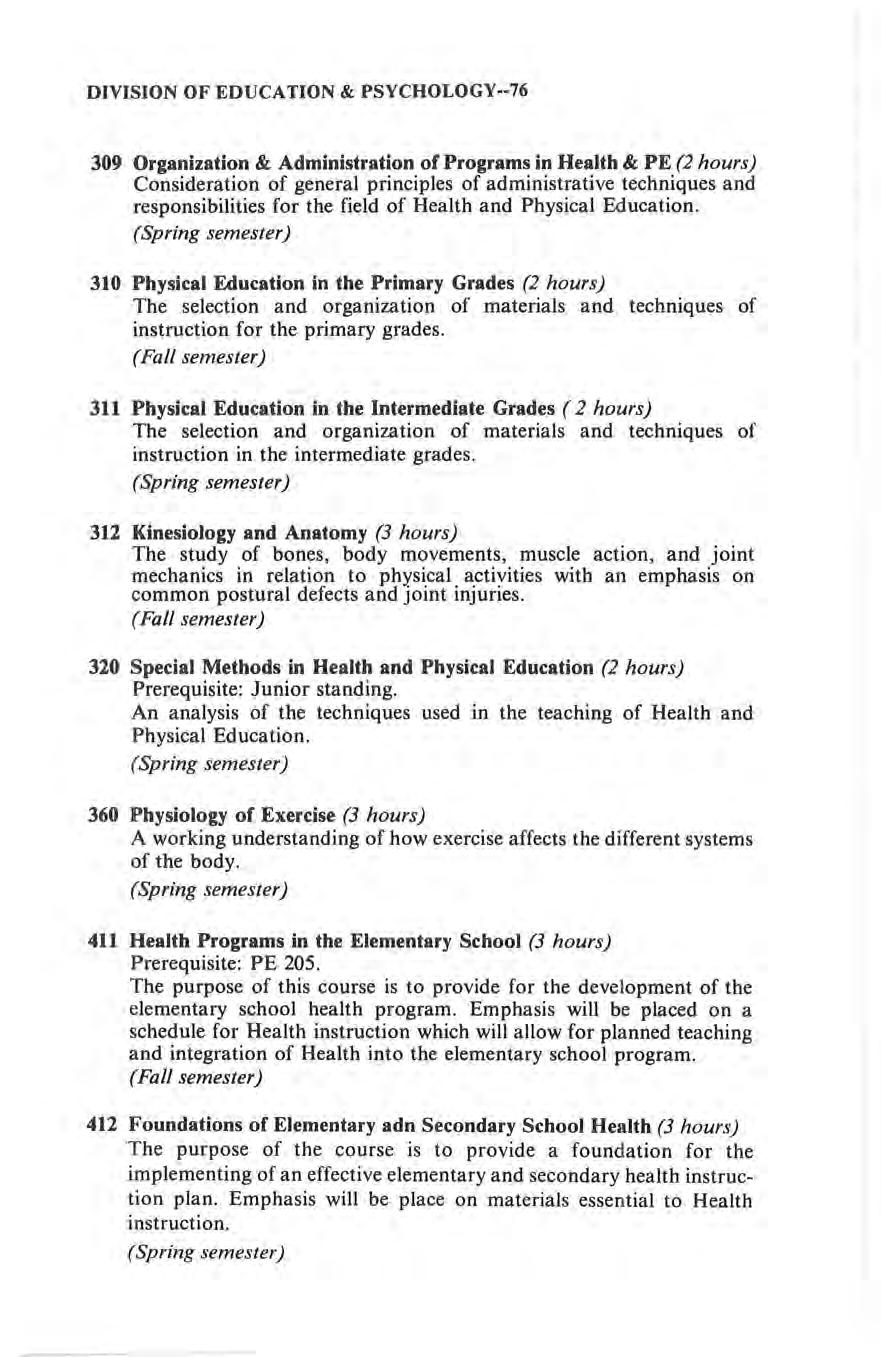
(Spring semester)
310 Physical Education in the Primary Grades (2 hours)
The selection and organization of materials and techniques of instruction for the primary grades.
(Fall semester)
311 Physical Education in the Intermediate Grades ( 2 hours)
The selection and organization of materials and techniques of instruction in the intermediate grades.
(Spring semester)
312 Kinesiology and Anatomy (3 hours)
The study of bones, body movements, muscle action, and joint mechanics in relation to physical activities with an emphasis on common postural defects and joint injuries .
(Fall semester)
320 Special Methods in Health and Physical Education (2 hours)
Prerequisite : Junior standing .
An analysis of the techniques used in the teaching of Health and Physical Education
(Spring semester)
360 Physiology of Exercise (3 hours)
A working understanding of how exercise affects the different systems of the body.
(Spring semester)
411 Health Programs in the Elementary School (3 hours)
Prerequisite: PE 205.
The purpose of this course is to provide for the development of the e lementary school health program. Emphasis will be placed on a schedu le for Health instruction which will allow for planned teaching and integration of Health into the elementary school program.
(Fall semester)
412 Foundations of Elementary adn Secondary School Health (3 hours)
The purpose of the course is to provide a foundation for the implementing of an effective elementary and secondary health instruction plan. Emphasis will be place on materials essential to Health instruction.
(Spring semester)
DIVISION OF EDUCATION & PSYCHOLOGY--76
414 Skill Progression in Athletic Performance (3 hours)
A study of the physical, psychological , and sociological factors governing the development of athletic skills from the time of birth to the utilization of these skills in interscholastic athletic competition. (Fall semester)
415 The Development of Basic Learning Abilities (3 hours)
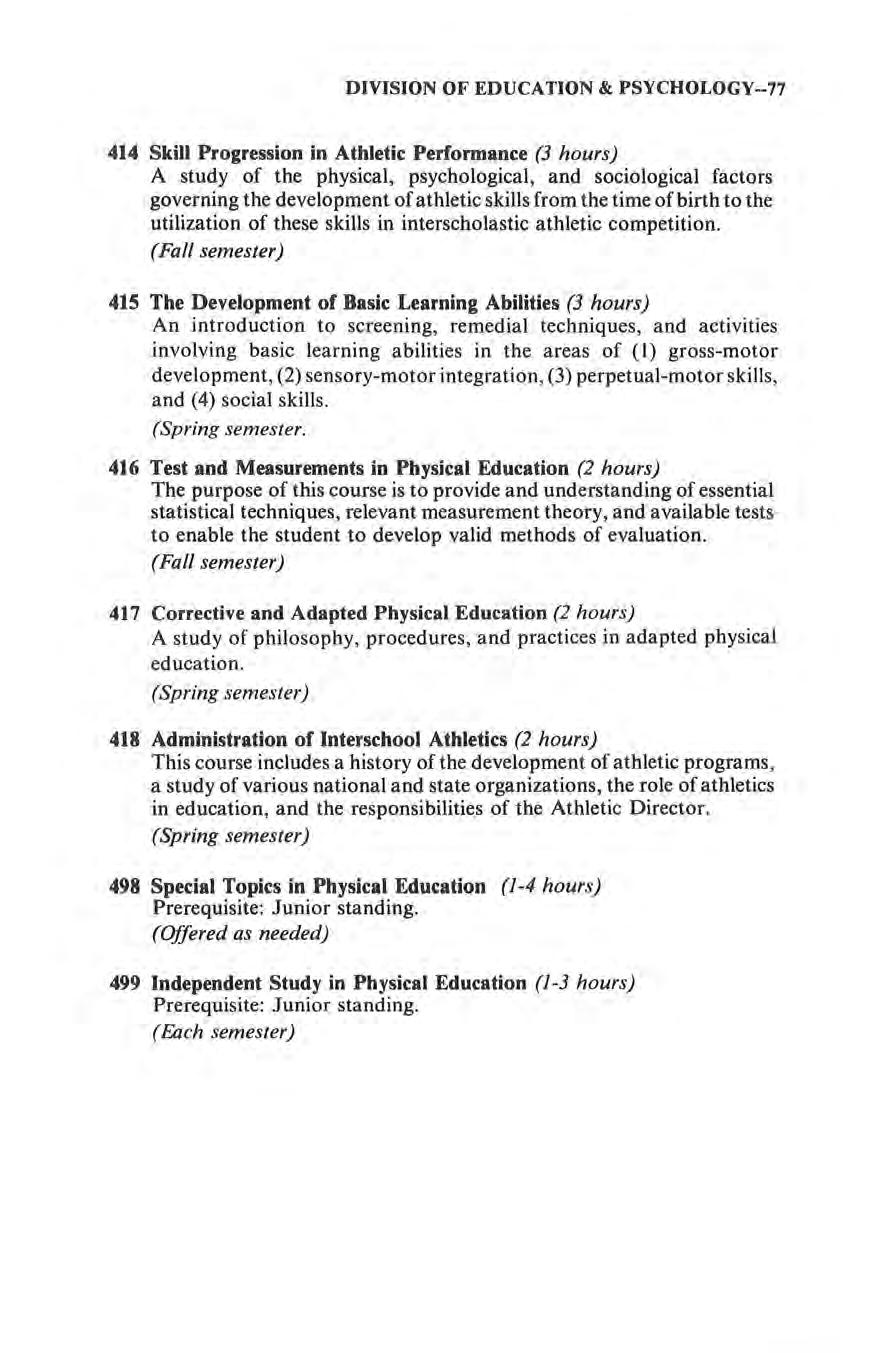
An introduction to screening, remedial techniques, and act1v1t1es involving basic learning abilities in the areas of (I) gross-motor development , (2) sensory-motor integration , (3) perpetual-motor skills, and (4) social skills .
(Spring semester.
416 Test and Measurements in Physical Education (2 hours)
The purpose of this course is to provide and understanding of essential statistical techniques, relevant measurement theory, and available tests to enable the student to develop valid methods of evaluation. (Fall semester)
417 Corrective and Adapted Physical Education (2 hours)
A study of philosophy, procedures, and practices in adapted physical education .
(Spring semester)
418 Administration of Interschool Athletics (2 hours)
This course includes a history of the development of athletic programs, a study of various national and state organizations, the role of athletics in education, and the responsibilities of the Athletic Director. (Spring semester)
498 Special Topics in Physical Education (1-4 hours)
Prerequisite : Junior standing. (Offered as needed)
499 Independent Study in Physical Education (1-3 hours)
Prerequisite: Junior standing. ( Each semester)
DIVISION OF EDUCATION & PSYCHOLOGY --77
Psychology
121 Introduction to Psychology (3 hours)
This course is a general introduction to contempora r y psychology focusing on basic concepts, principles, terminology, trends in psychological research, and the application of this knowledge.
(Each semester)
205 Educational Psychology (3 hours)
Prerequisite: Psych 121.
This course will focus ori the psychological principles underlying learning and effective teaching, the effect of social and personality factors on the learning process, and the application oflearning theory to teaching.
(Each semester)
245 Human Psychology (3 hours)
This course will focus on the process of personalit y growth and adjustment. Through an examination of selected theoretical systems, different interpretations of this process will be presented .
(Fall semester, odd years)
250 Developmental Psychology (3 hours)
This course will focus on the physical, cognitive, social, and emotional aspects of growth from birth through old age. In addition, factors thought to influence this growth will also be examined.
(Fall semester, even years)
255 Human Relations (3 hours)
Students will study issues of sensitivity to biases, perpetuation of biases in the use of language, critical examination of test books and other printed material for biases; contributions to our culture which have accompanied changes in demographic composition of the nation and leadership issues related to multi cultural issues and appreciat ion of diversity in values, customs and styles, and personal interaction.
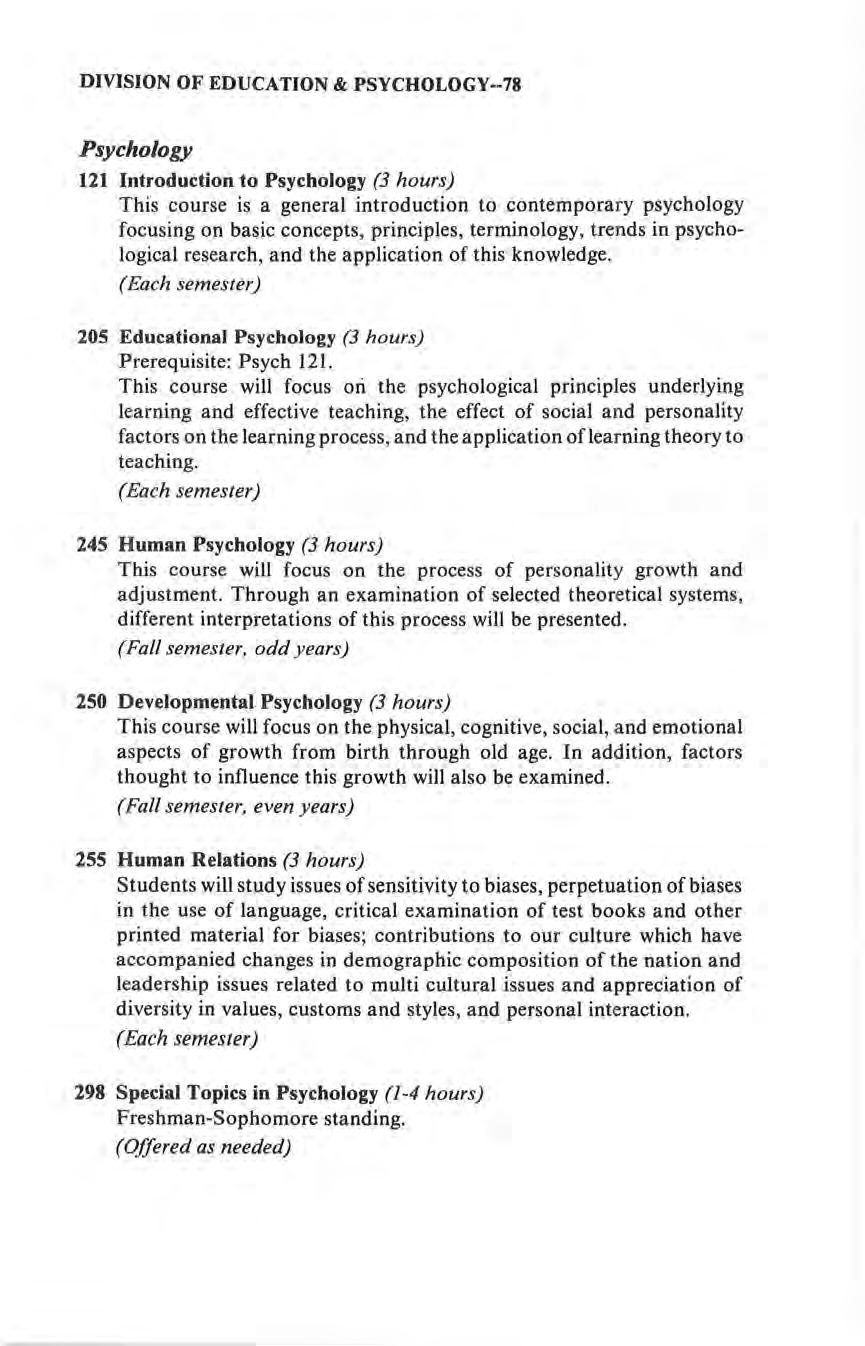
(Each semester)
298 Special Topics in Psychology (1-4 hours)
Freshman-Sophomore standing.
(Offered as needed)
DIVISION OF EDUCATION & PSYCHOLOGY--78
304 Experimental Psychology (3 hours)
Prerequisite: Psych 121 and Math 340 . The course is designed to assist students in the comprehension and use of experimental methods, basic statistical analysis, and experimental literature. Research exercises are provided to illustrate course content.
(Spring semester, even years)
305 Social Psychology (3 hours)
Prerequisite: Psych 121 or Soc 101. This course will focus on the effects of culture , society, social institutions, and social learning on the social attitudes and behavior of individuals within groups .
(Spring semester, odd years)
320 Psychology of Learning (3 hours)
Prerequisite: Psych 121. This course will provide students with a broad, eclectic coverage of the field of learning and memory by addressing the wide range of issues and problems within the field from stimulus-response to cognitive psychology.
(Spring semester, odd years)
431 Psychological Tests and Measurements (3 hours)
Prerequisite: Psych 121 and Math 340 or permission of the instructor.
The course will focus on the issues and problems surrounding psychological testing. Topics to be discussed include reliability, validity, construction, administration, norms, and interpretation as well as a survey of current psychological tests.
(Fall semester, odd years)
437 Techniques of Counseling (3 hours)
Prerequisite: Psych 121. The content, process, and practice of various counseling techniques will be examined for their applicability to education, psychology and social work. Practical experience in the use of these techniques will also be provided.
(Spring semester, even years)
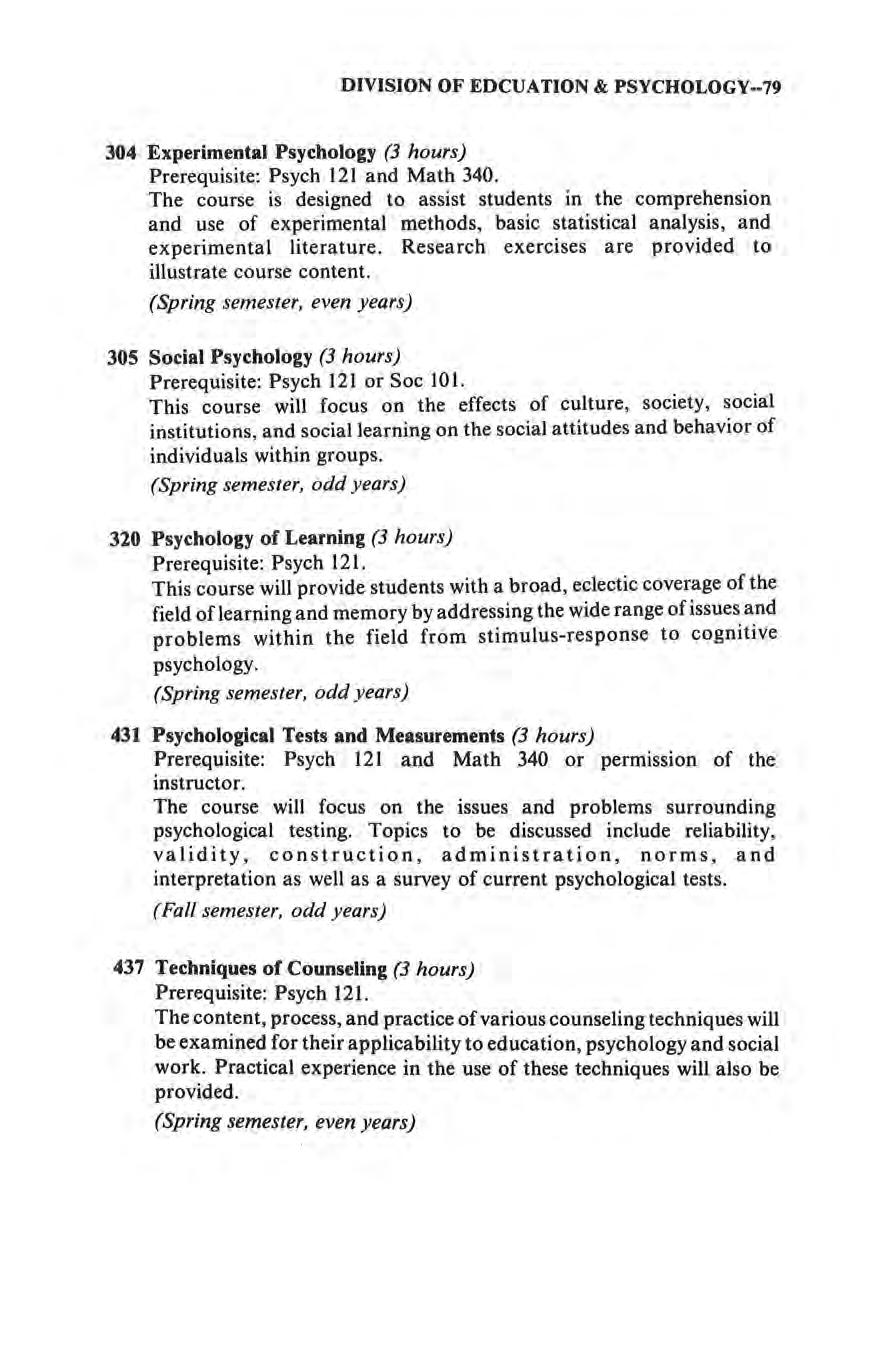
DIVISJON OF EDCUATION & PSYCHOLOGY--79
440 Behavior Modification (3 hours)
Prerequisite: Psych 121.
T he course will focus on the basic principles of behavior modification as well as survey some of the practical applications of this general approach to behavior change.
(Fall semester, even years)
450 Abnormal Psychology (3 hours)
Prerequisite: Psych 121, 250 and junior standing
Focusing on personality disorders, schizophrenia and manic depressives; this course would deal extensively with DSM - III-R categories of abnormal psychology.
(Spring, odd years)
4'8 Special Topics in Psychology (1-4 hours)
Junior-Senior standing.
(Offered as needed)
499 Independent Study in Psychology (1-3 hours) Junior standing.
(Each semester)
Spec ial Education
200 Introduction to Special Education (3 hours)
T his course is designed to provide a historical , political and sociological survey of the areas of exceptionality in the field of special education. T he course will identify significant changes which have occurred in the education of exceptional populations and provide an introductory experience concerning the various disability groupings
(Each semester)
270 Education of Emotionally Impaired Learners (3 hours)
Prerequisite: SpEd 200 or concurrent enrollment . This course is designed to present to the pre-service special education te acher a continuum of authorities in the field of the emotionally impaired. Residential, as welt as public school facilities, characteristics of the child, treatment programs, their styles and teaching techniques are explored.
(Each Spring semester)
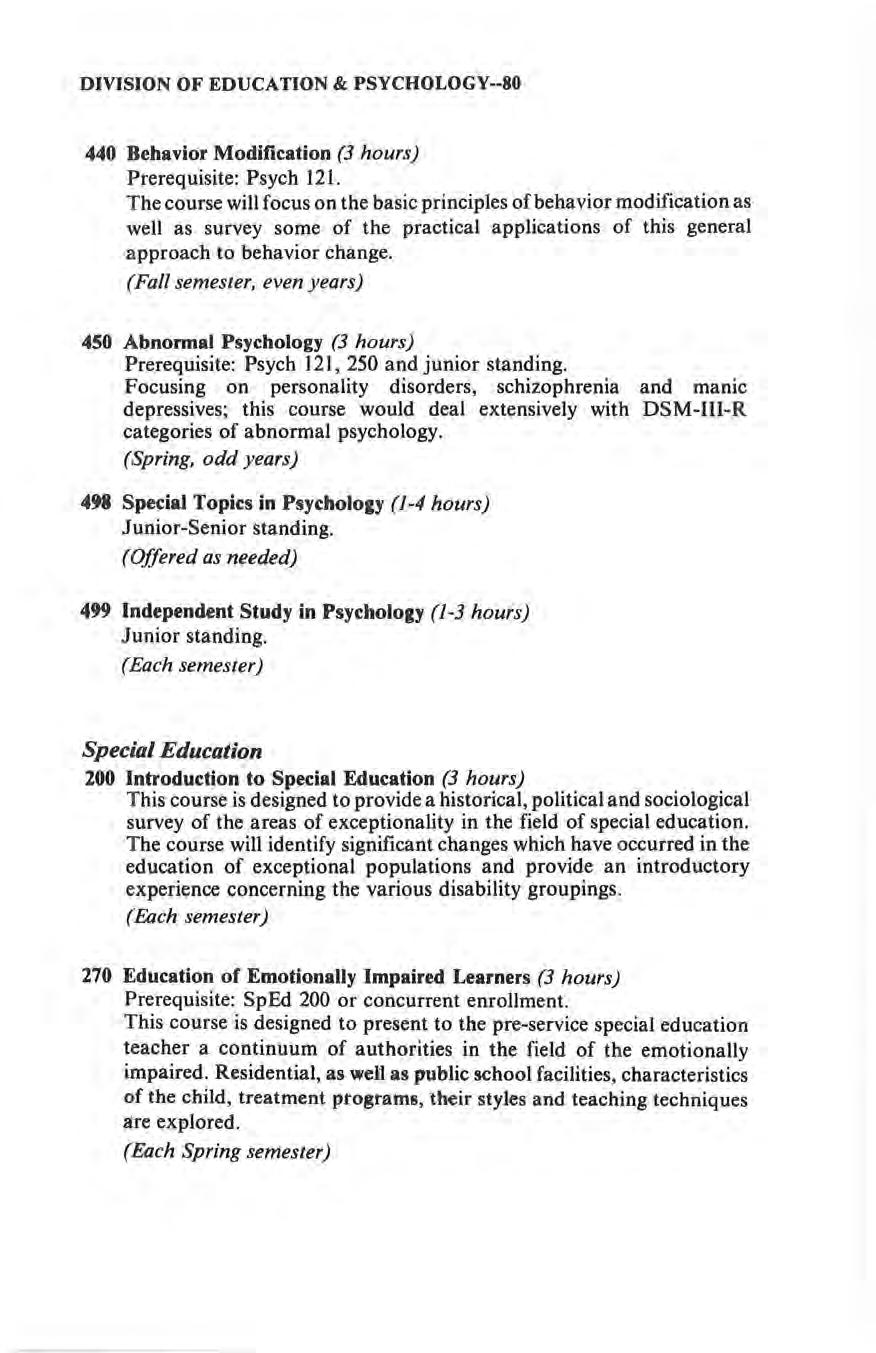
DIVISION OF EDUCATION & PSYCHOLOGY- -80
280 Education of Learning Disabled (3 hours)
Prerequisite: SpEd 200 or concurrent enrollment. This course has been designed to prepare the prospective teacher with the ability to diagnose deficit areas and areas of strengths , and to be able to know and implement various instructional procedures and appropriate educational materials for the L.D. child.
(&ch Spring semeter)
290 Education of Mentally Handicapped Learners (3 hours)
Prerequisite: SpEd 200 or concurrent enrollment. This course is designed to provide a survey of the characteristics, abilities, needs, the psychological and environmental, and cultural factors which contribute to retardation
(&ch Fall semester)
300 Assessment in Special Education (3 hours)
Prerequisite: SpEd 200 or concurrent enrollment. Tests commonly used for children with suspected handicaps are interpreted.
(&ch Fall semester)
307 Practicum (2-3 hours)
Prerequisite: Admission to Teacher Education. The purpose of the course is to provide a classroom experience that will go beyond the observations provided in Ed. 207. The student should be enrolled in a methods and/ or reading class while taking this practicum and should be a junior or senior, therefore, should be ready to take an active role in the classroom.
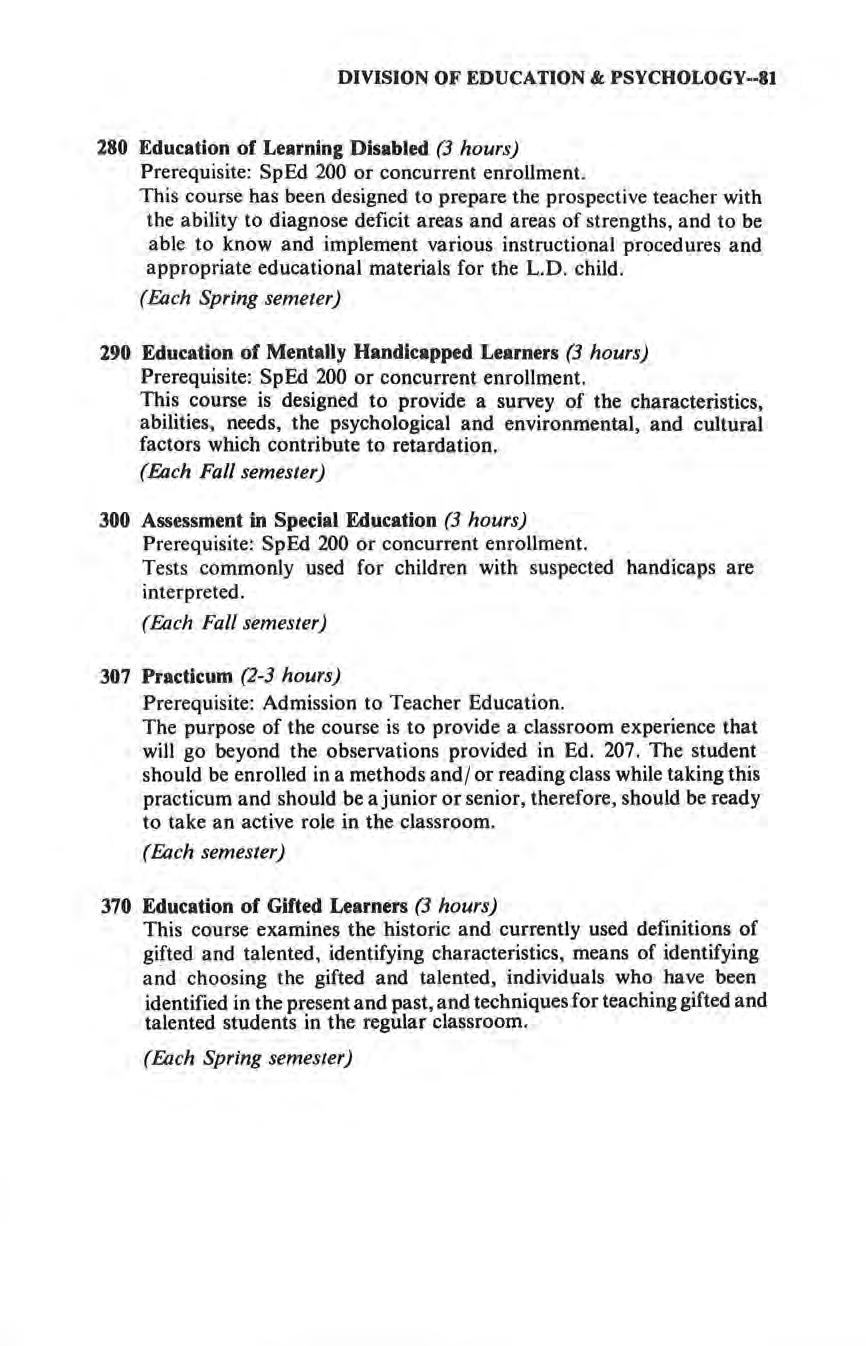
(&ch semester)
370 Education of Gifted Learners (3 hours)
This course examines the historic and currently used definitions of gifted and talented , identifying characteristics, means of identifying arid choosing the gifted and talented, individuals who have been identified in the present and past, and techniques for teaching gifted and talented students in the regular classroom.
(&ch Spring semester)
DIVISION OF EDUCATION & PSYCHOLOGY--81
430 Methods in Special Education Program Management (3 hours)
Prerequisite: SpEd 240
This course is designed to develop appropriate materials in the major areas of academic study. Emphasis is on developing knowledge, skills, and techniques for successful teaching in special education.
(FAch Fall semester)
435 Student Teaching (8 hours)
Prerequisite: Admission to Student Teaching. Observation, laboratory and teaching experience in the special education classroom. The student assumes full teaching responsibilities.
(FAch semester)
443 Individualization of Instruction (3 hours)
Prerequisite: SpEd 200 or concurrent enrollment. Several models for individualization are investigated. The student will design a learning center emphasizing one topic and following one of the models. The students experience alI of the models of individualization by sharing the demonstration of all the learning centers at the end of the course .
(FAch Spring semester)
460 Career and Vocational Education for the Handicapped (3 hours)
Prerequisite: SpEd 200 or concurrent enrollment. The curriculum is designed to provide background information in vocational/ career education for the mild/ moderately handicapped. Vocational services, vocational evaluation, vocational counseling, work-study programs, job placement and follow-up, lesson plans and current models and materials used are included in the curriculum .
(FAch Spring semester)
498 Special Topics in Special Education (1-4 hours) Junior-Senior standing. (Offered as needed)
499 Independent Study in Special Education (1-3 hours) Junior standing. (FAch semester)
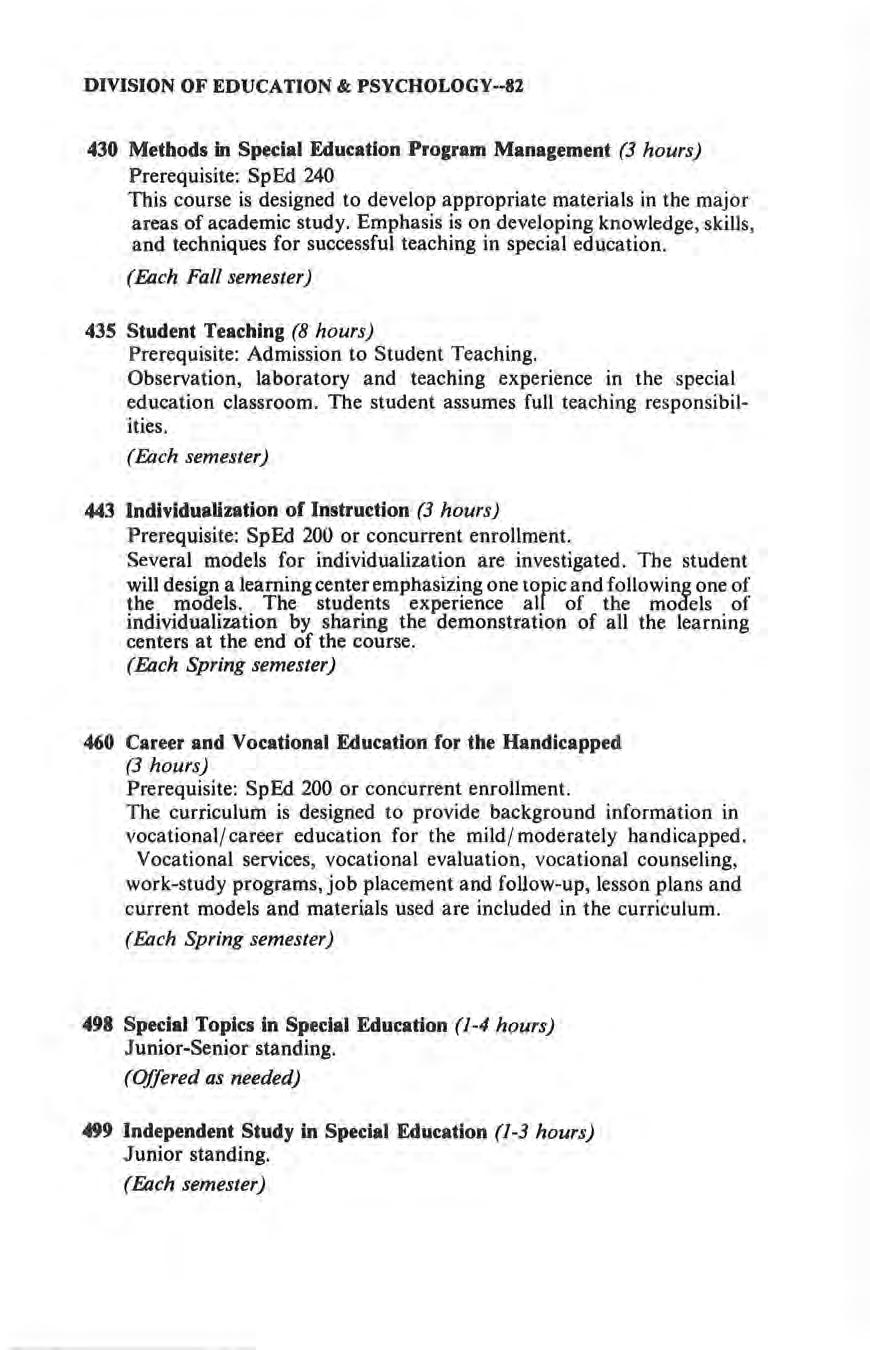
DIVISION OF EDUCATION & PSYCHOLOGY--82
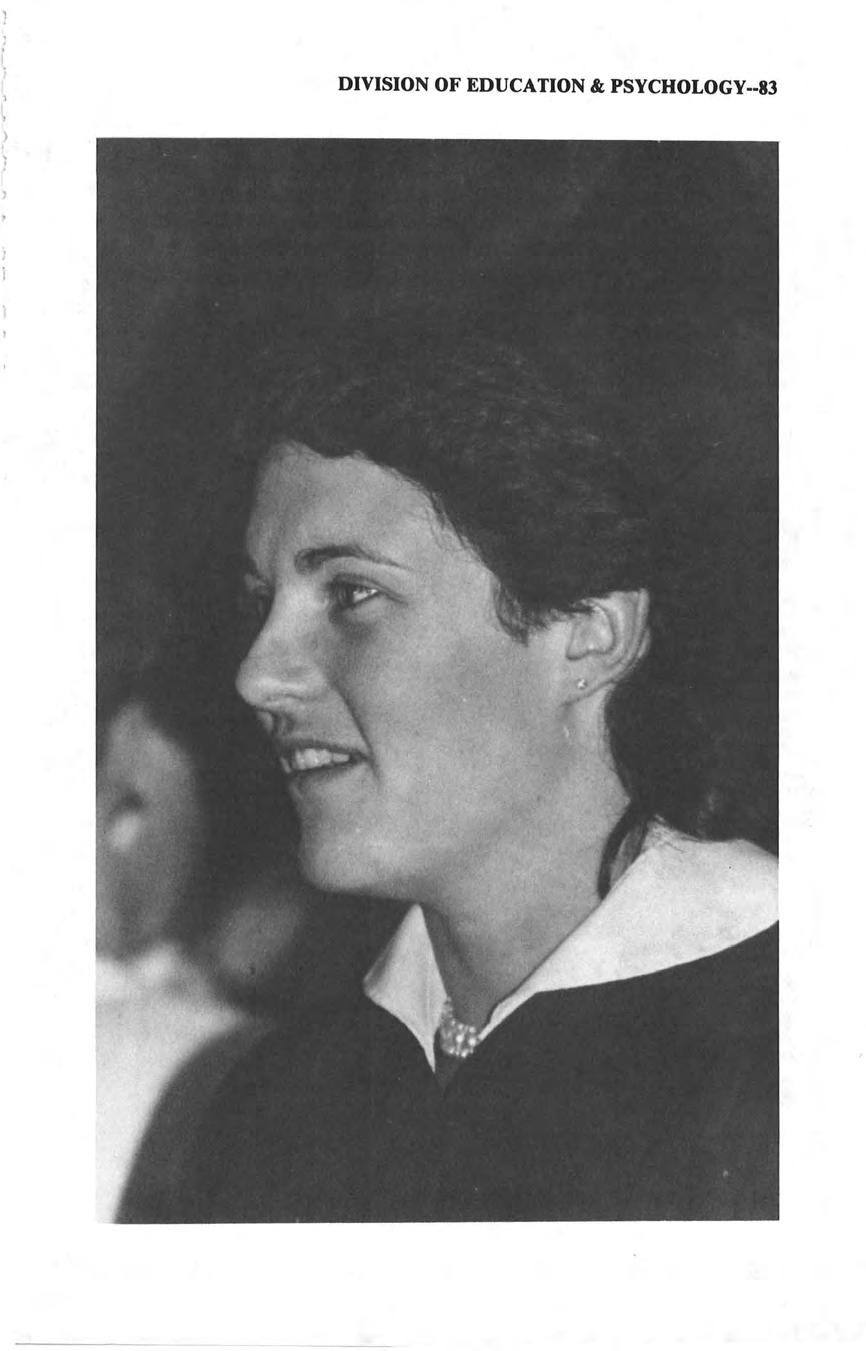
DIVISION OF EDUCATION & PSYCHOLOGY--83
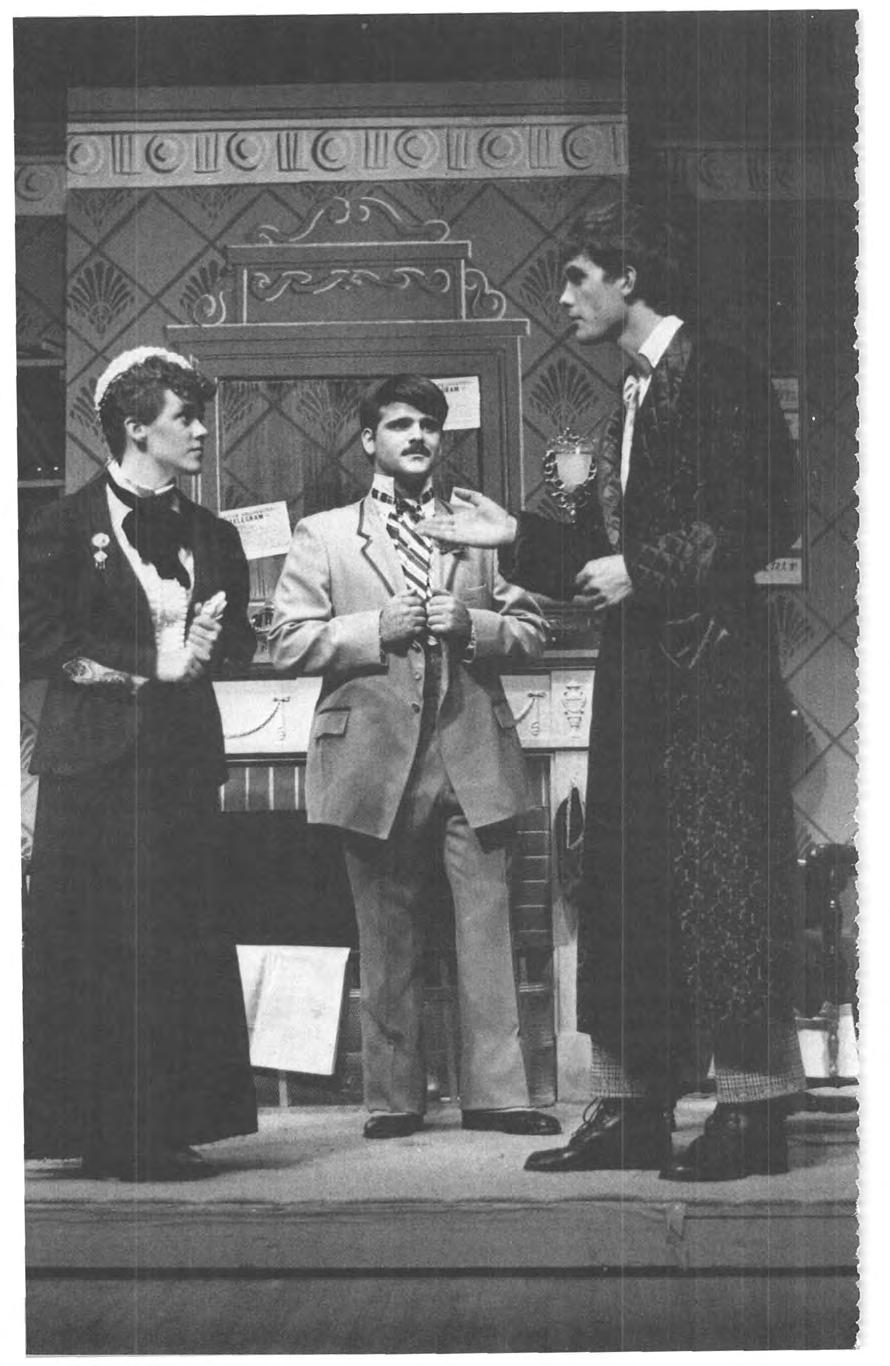
DIVISION OF HUMANITIES--85
DIVISION OF HUMANITIES
Dr. David Edris, Chairperson
Professors: Barrett, Eckert, Ediger, Edris, Hahn, Harper, Sherwood
Associate Professors: Anderson, Davis
Assistant Professors: Holtz, Kruse, McCrann
Instructors: Emerson, Van Oyen
The Division of Humanities offers programs in the Language Arts, Social Sciences, and the Visual and Performing Arts . A curriculum has been developed for each of these three areas and is designed to meet specific requirements and provide for a background for teaching or for a career in a variety of professions . The Language Arts area includes English and the broader area of Language Arts discipline. The Social Sciences include, in addition to the general Social Sciences area, options in History, Psychology, Sociology, and Social Work. The Visual and Performing Arts area provides opportunities to specialize in Art, Music or Speech and Drama .
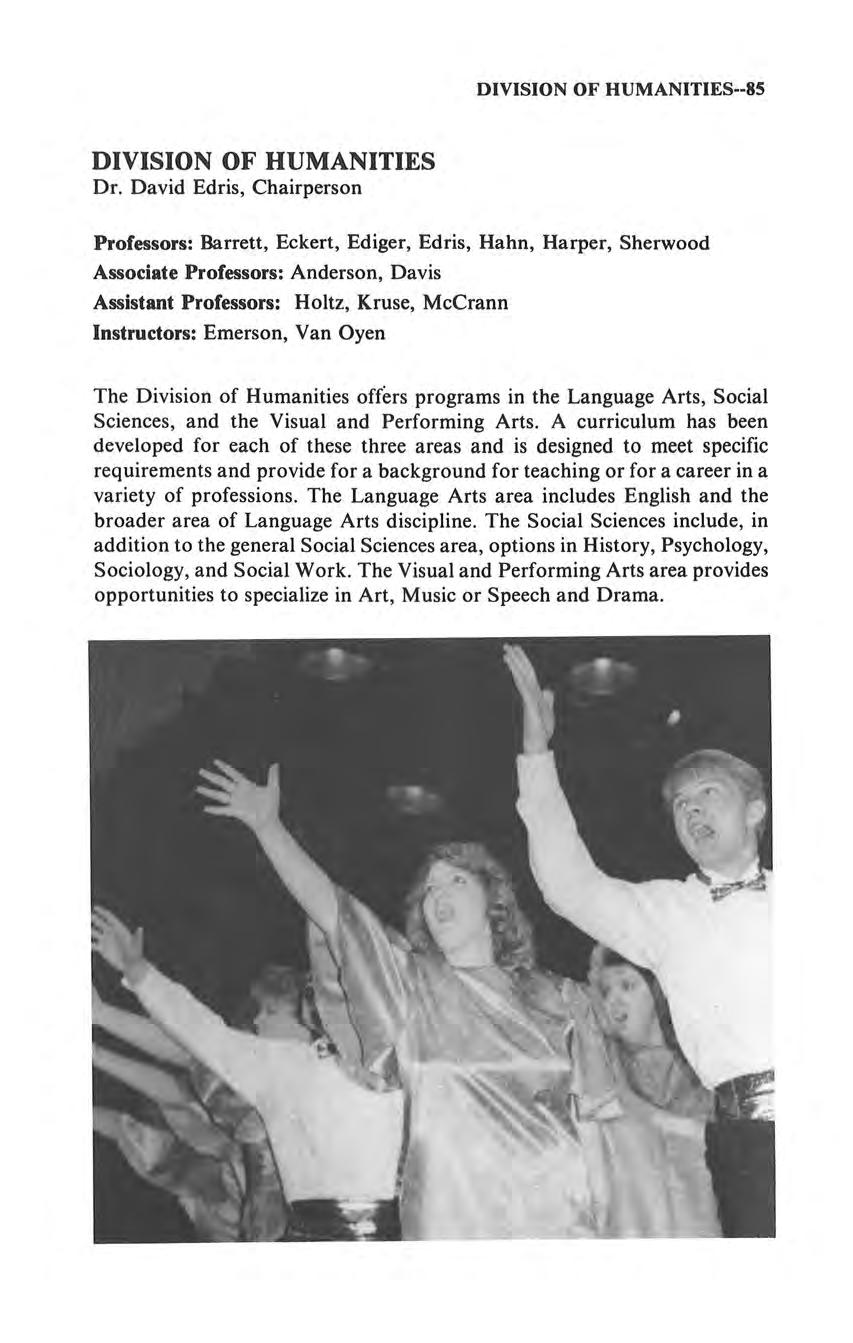
DIVISION OF HUMANITIES--86
Language Arts
The Language Arts program provides for either a field endorsement or subject endorsement in English. Students planning to teach only English might well seek the field endorsement. Those wishing to includ e a related area in addition to English might choose the subject endorsemen t.
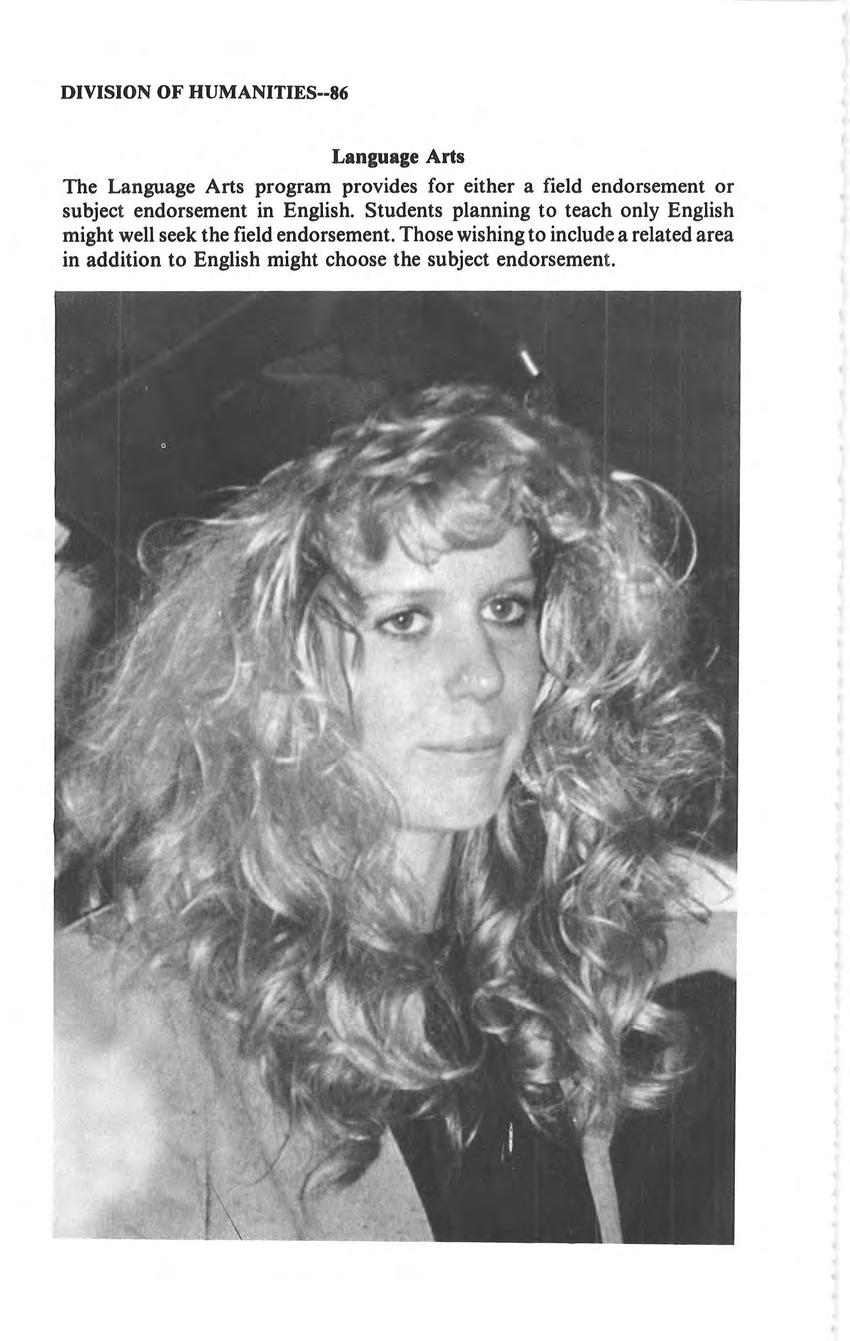
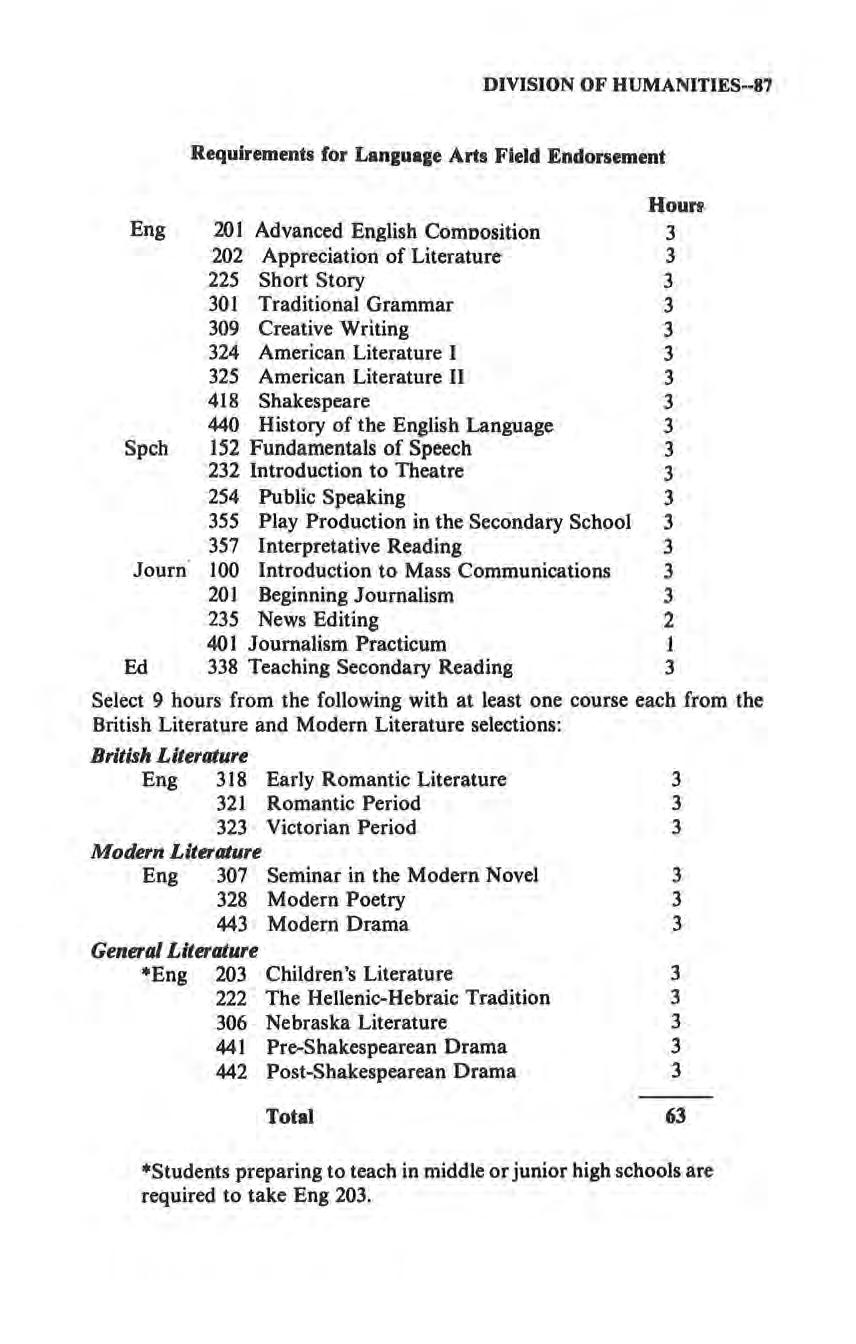
DIVISION OF HUMANITIES--87 Requirements for Language Arts Field Endorsement Eng 201 Advanced English Comoosition 202 Appreciation of Literature 225 Short Story 301 Traditional Grammar 309 Creative Writing 324 American Literature I 325 American Literature II 418 Shakespeare 440 History of the English Language Speh 152 Fundamentals of Speech 232 Introduction to Theatre 254 Public Speaking 355 Play Production in the Secondary School 357 Interpretative Reading Journ · 100 Introduction to Mass Communications 201 Beginning Journalism 235 News Editing 401 Journalism Practicum Ed 338 Teaching Secondary Reading Houn 3 3 3 3 3 3 3 3 3 3 3 3 3 3 3 3 2 I 3 Select 9 hours from the following with at least one course each from the British Literature and Modern Literature selections: British Literature Eng 318 Early Romantic Literature 3 321 Romantic Period 3 323 Victorian Period 3 Modern Literature Eng 307 Seminar in the Modern Novel 3 328 Modern Poetry 3 443 Modern Drama 3 General Literature *Eng 203 Children's Literature 3 222 The Hellenic-Hebraic Tradition 3 306 Nebraska Literature 3 441 Pre-Shakespearean Drama 3 442 Post-Shakespearean Drama 3 Total 63
Eng
*Students preparing to teach in middle or junior high schools are required to take
203.
Select 9 hours from the following with at least one course each from the British Literature and Modern Literature selections.
*Students preparing to teach middle or junior high schools are required to take Eng 203.
••students taking a nonteaching major in English may substitute for English 305 and Education 338 any course from the English electives.
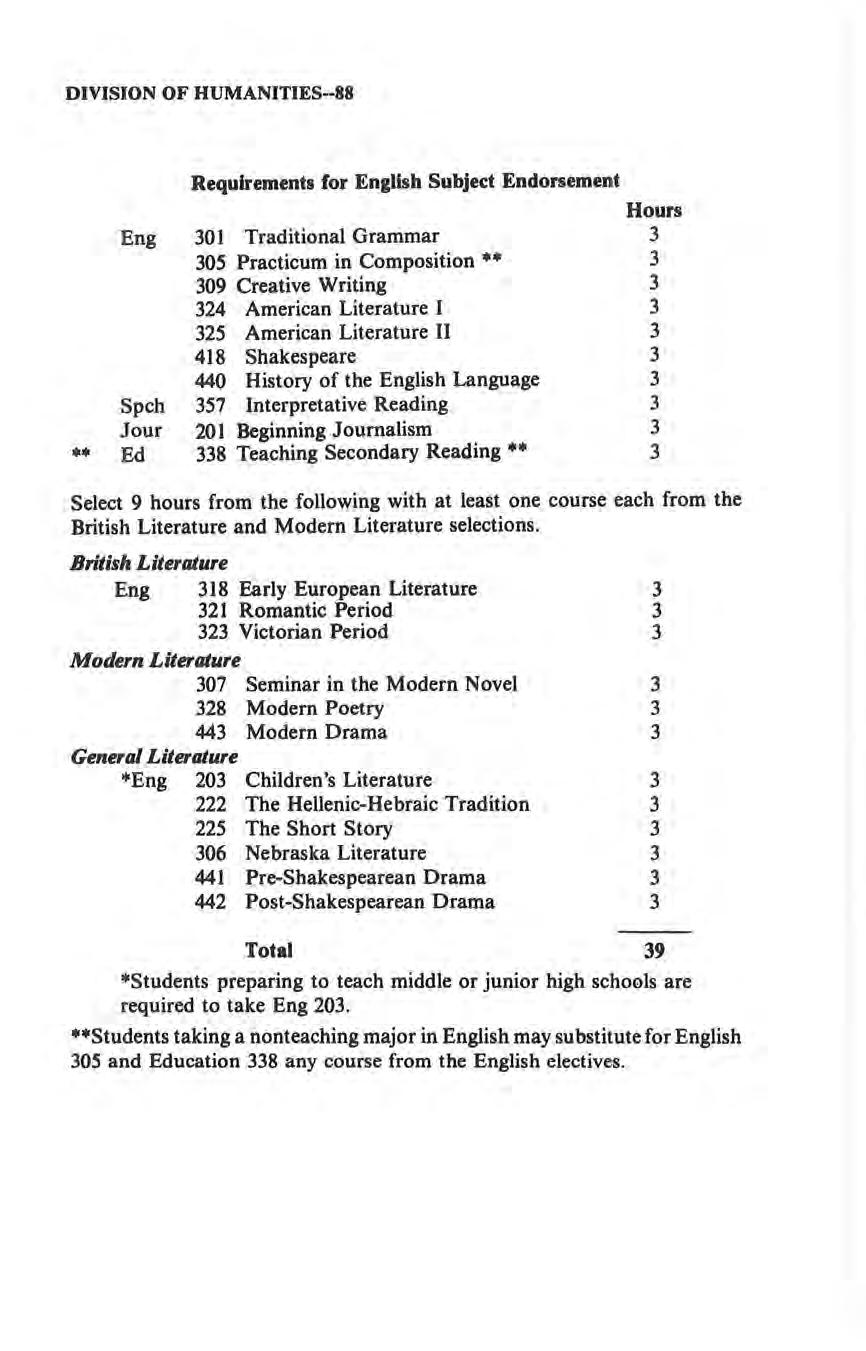
DIVl~ION OF HUMANITIES--88 •• Eng Speh Jour Ed Requirements for English Subject Endorsement 30 I Traditional Grammar 305 Practicum in Composition •• 309 Creative Writing 324 American Literature I 325 American Literature II 418 Shakespeare 440 History of the English Language 357 Interpretative Reading 20 I Beginning Journalism 338 Teaching Secondary Reading •• Hours 3 3 3 3 3 3 3 3 3 3
British Literature Eng 318 Early European Literature 321 Romantic Period 323 Victorian Period Modern Literature 307 Seminar in the Modern Novel 328 Modern Poetry 443 Modern Drama General Literature *Eng 203 Children's Literature 222 The Hellenic-Hebraic Tradition 225 The Short Story 306 Nebraska Literature 441 Pre-Shakespearean Drama 442 Post-Shakespearean Drama Total 3 3 3 3 3 3 3 3 3 3 3 3 39
Suggested Program for English Subject Endorsement
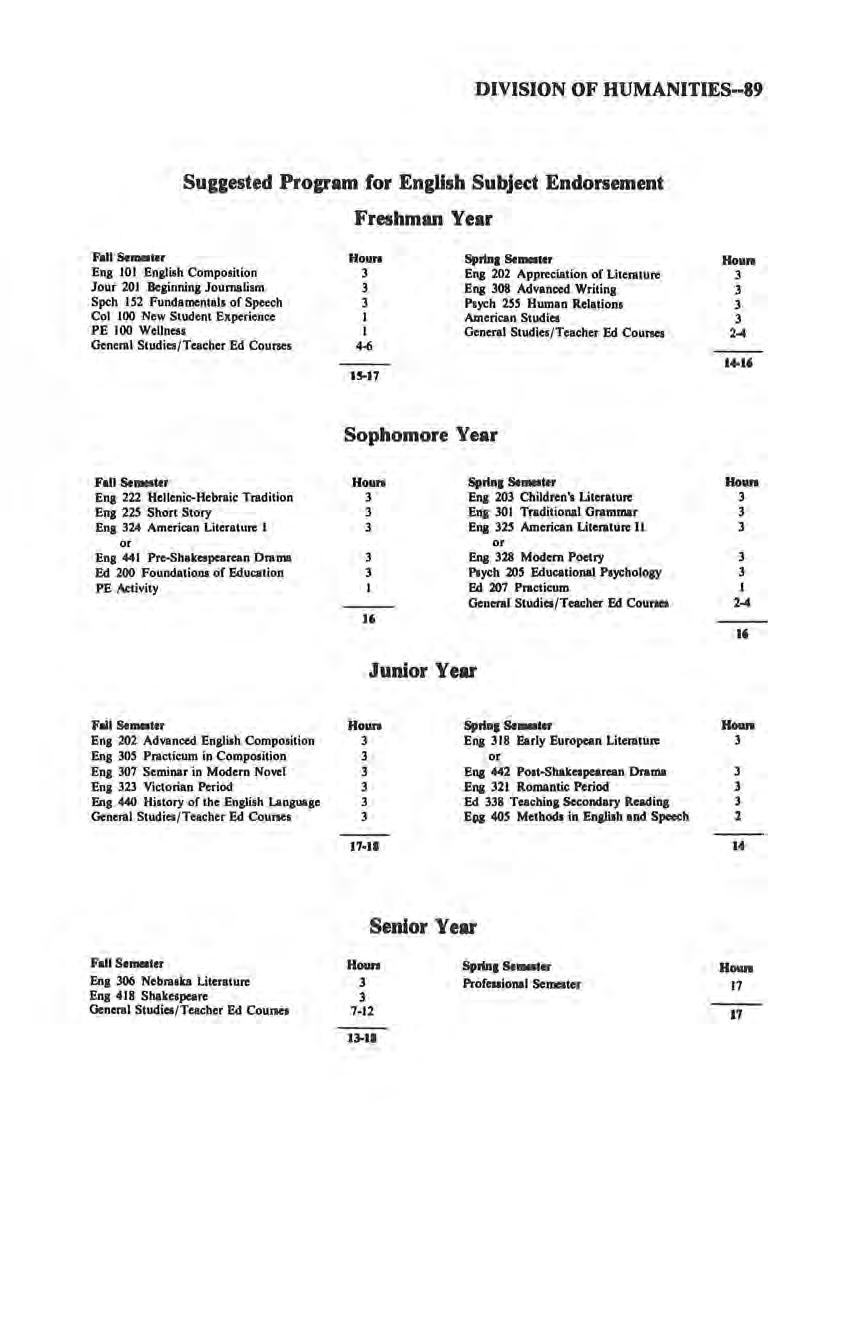
Freshman Year
Sophomore Year
DIVISION OF HUMANITIES--89
Fall Se-ter Eng IO I English Composition
201 Beginning Journalism
152 Fundamentals of Speech Col 100 New Student Experience PE I 00 Wellness General Studies/Teacher Ed Counes Fall Se-ter Eng 222 Hellenic-Hebraic Tradition Eng 225 Short Story Eng 324 American Literature I or Eng 441 Pre-Shakespearean Drama Ed 200 Foundation, of Education PE Activity Fall Se-ter Eng 202 Advanced English Composition Eng 305 Practicum in Composition Eng 307 Seminar in Modem Novel Eng 323 Victorian Period Eng 440 History of the English Language General Studies/Teacher Ed Counes FallSe-ter Eng 306 Nebraska Literature Eng 418 Shakespeare General Studies/Teacher Ed Counes Hours 3 3 3 I I 4-6 15-17 Sprtna Se-ter Eng 202 Appreciation of Literature E1111 308 Advanced Writing Psych 255 Human Relations American Studies General Studies/Teacher Ed Counes
Jour
Speh
Houn 3 3 3 16 Sprlna Se-ter Eng 203 Children's Literature Eng 30 I Traditional Grammar E1111 325 American Literature II or EJ18 328 Modem Poetry Psych 205 Educational Paychology Ed 207 Practicum General Studies/Teacher Ed Counes Junior Year Houn 3 3 3 3 3 3 17-11 Sprtn1 s.-1er E1111 318 Early European Literature or E1111 442 Poat-Shakeapearean Drama E1111 321 Romantic Period Ed 338 Teachina Secondary Reading E111 405 Methoda in Ena)iah and Speech Senior Year Houn 3 3 7-12 13-11 Sprtn1 s.-.. Profe11ional Semeater Houn 3 3 3 3 2-4 1+16 Houn 3 3 3 3 3 I 2-4 1, Houn 3 3 3 3 2 14 Houn 17 17
Social Sciences
The Social Sciences area offers a wide range of degree programs in both the teaching and nonteaching professions. Students who wish to teach may specialize in History, Social Science, Psychology, or Sociology, while those seeking nonteaching degrees may select majors in History, PsychologySociology, or Social Work.
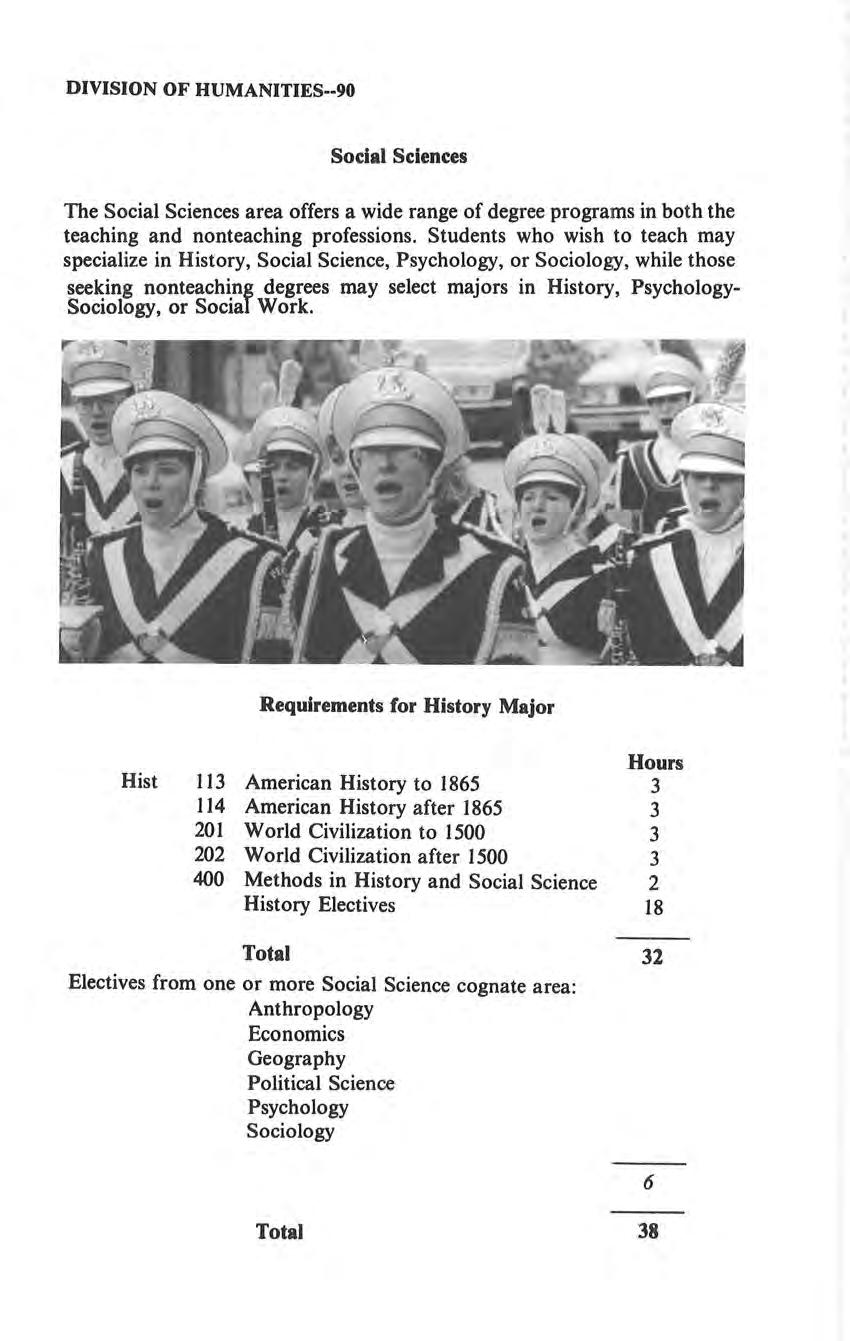
DIVISION OF HUMANITIES--90
Hist Requirements for History Major I 13 American History to 1865 114 American History after 1865 20 I World Civilization to 1500 202 World Civilization after 1500 400 Methods in History and Social Science History Electives Total Electives from one or more Social Science cognate area: Anthropology Economics Geography Political Science Psychology Sociology Total Hours 3 3 3 3 2 18 32 6 38
Suggest~ Program for History Major
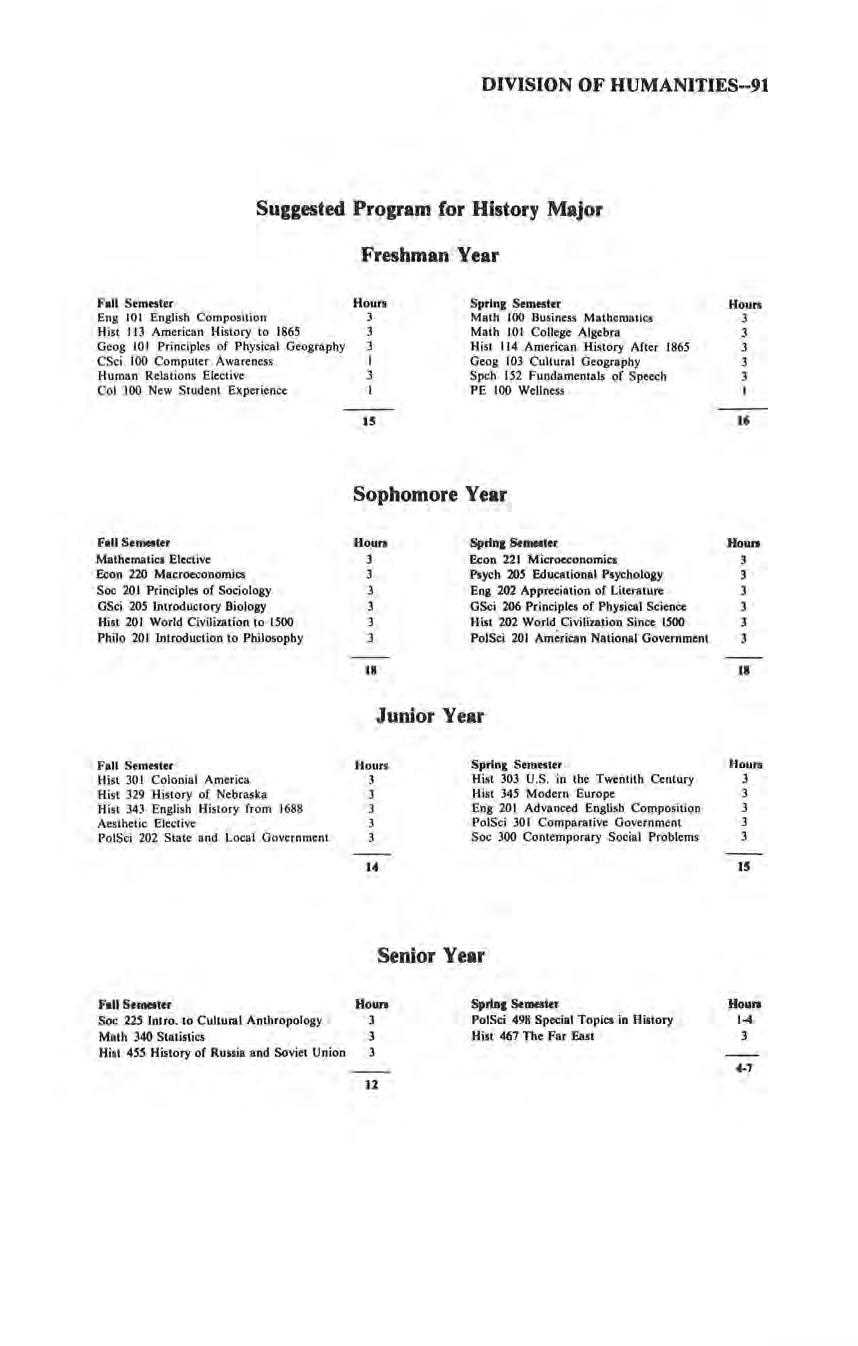
DIVISION OF HUMANITIES--91
Freshman Year Foll Semester Eng IOI English Composition Hist I 13 American History to 1865 Geog IOI Principles of Physical Geography CSci 100 Computer Awareness Human Relations Elective Col 100 New Student Experience Fall Semester Mathematics Elective Econ 220 Macroeconomics Soc 201 Principles of Sociology GSci 205 Introductory Biology Hist 201 World Civilization to 1500 Philo 201 Introductio n to Philosophy Fall Semester Hist 301 Colonial America Hist 329 History of Nebraska Hist 343 E ngl ish History from 1688 Aesthetic Elective PolSci 202 State a nd Local Government Fall Semester Soc 225 Intro. to Cultural Anthropology Math 340 Statistics Hist 455 History of Russia and Soviet Union Hours 3 3 3 I 3 I 19 Spring Semester Math 100 Business Mathematics Math IO I College Algebra Hist 114 American History After 1865 Geog 103 Cultural Geography Speh 152 Fundamentals of Speech PE 100 Wellness Sophomore Year Houn 3 3 3 3 18 Sprlna Semester Econ 221 Microeconomics Psych 205 Educational Psychology Eng 202 Appreciation of Literat ure GSci 206 Principles of Physical Science Hist 202 World Civiliution Since 1500 PolSci 201 Am~rican National Government Junior Year Hours 3 3 3 3 3 14 Sp ring Semester Hist 303 U.S. in the Twentith Century Hist 345 Modern Europe Eng 20 I Advanced English Composition PolSci 30 I Comparative Government Soc 300 Co ntemporary Social Problems Senior Year Houn 3 3 3 12 Sprlna Semester PolSci 498 Special Topics in History Hist 467 The Far East Hours 3 3 3 3 3 I 16 Houn 3 3 3 3 3 3 18 Haun 3 3 3 3 3 19 Houn 1-4 3
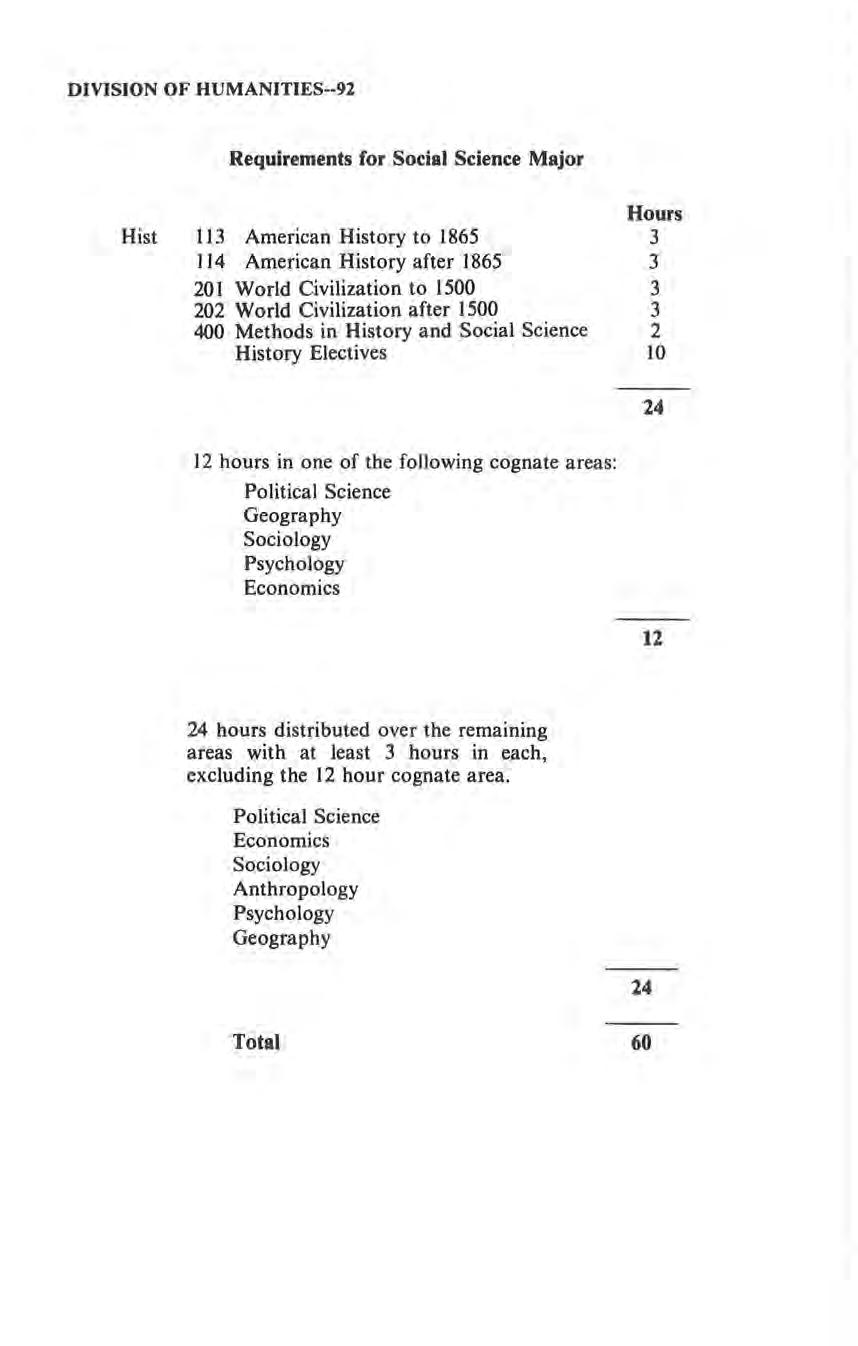
DIVISION OF HUMANITIES--92 Hist Requirements for Social Science Major 113 American History to 1865 114 American History after 1865 201 World Civilization to 1500 202 World Civilization after 1500 400 Methods in History and Social Science History Electives 12 hours in one of the following cognate areas: Political Science Geography Sociology Psychology Economics 24 hours distributed over the remaining areas with at least 3 hours in each, excluding the 12 hour cognate area. Political Science Economics Sociology Anthropology Psychology Geography Total Hours 3 3 3 3 2 IO 24 12 24 60
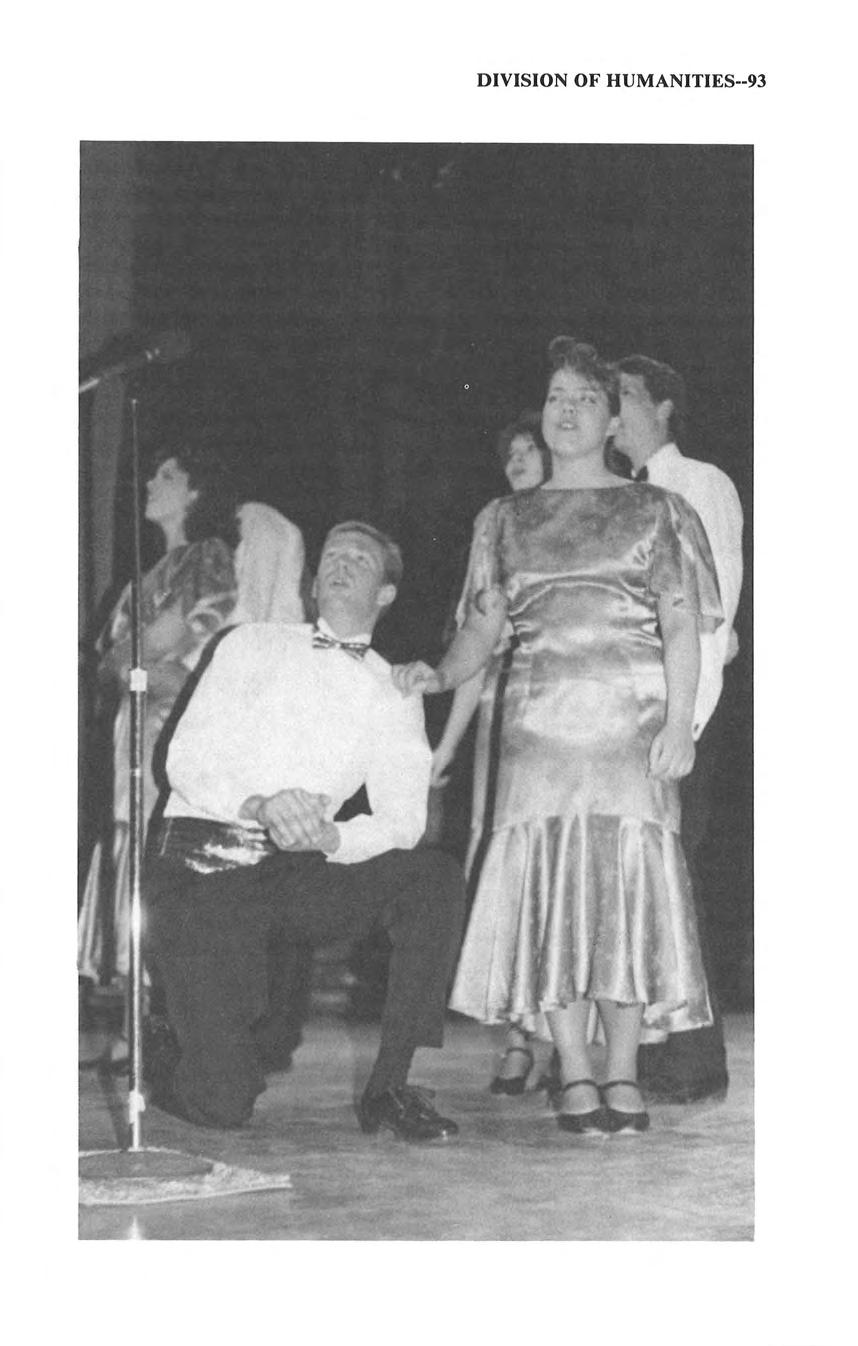
DIVISION OF HUMANITIES--93
Psychology-Sociology
The degree in Psychology-Sociology is suitable for those students who wish to prepare for a wide range of careers in human services. This major provides students with an understanding of both individual and group behavior as well as the opportunity to apply this knowledge in contemporary situations .
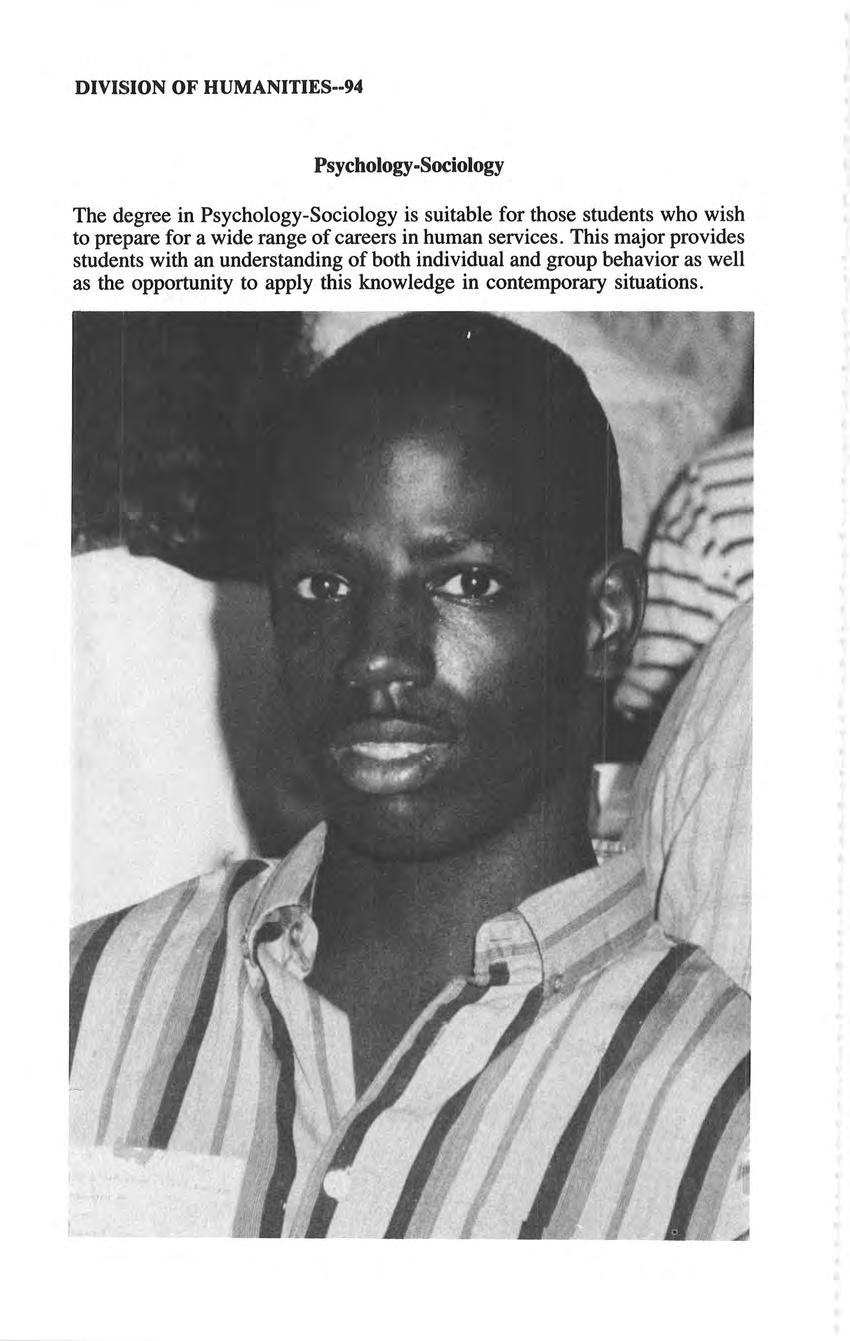
DIVISION OF HUMANITIES--94
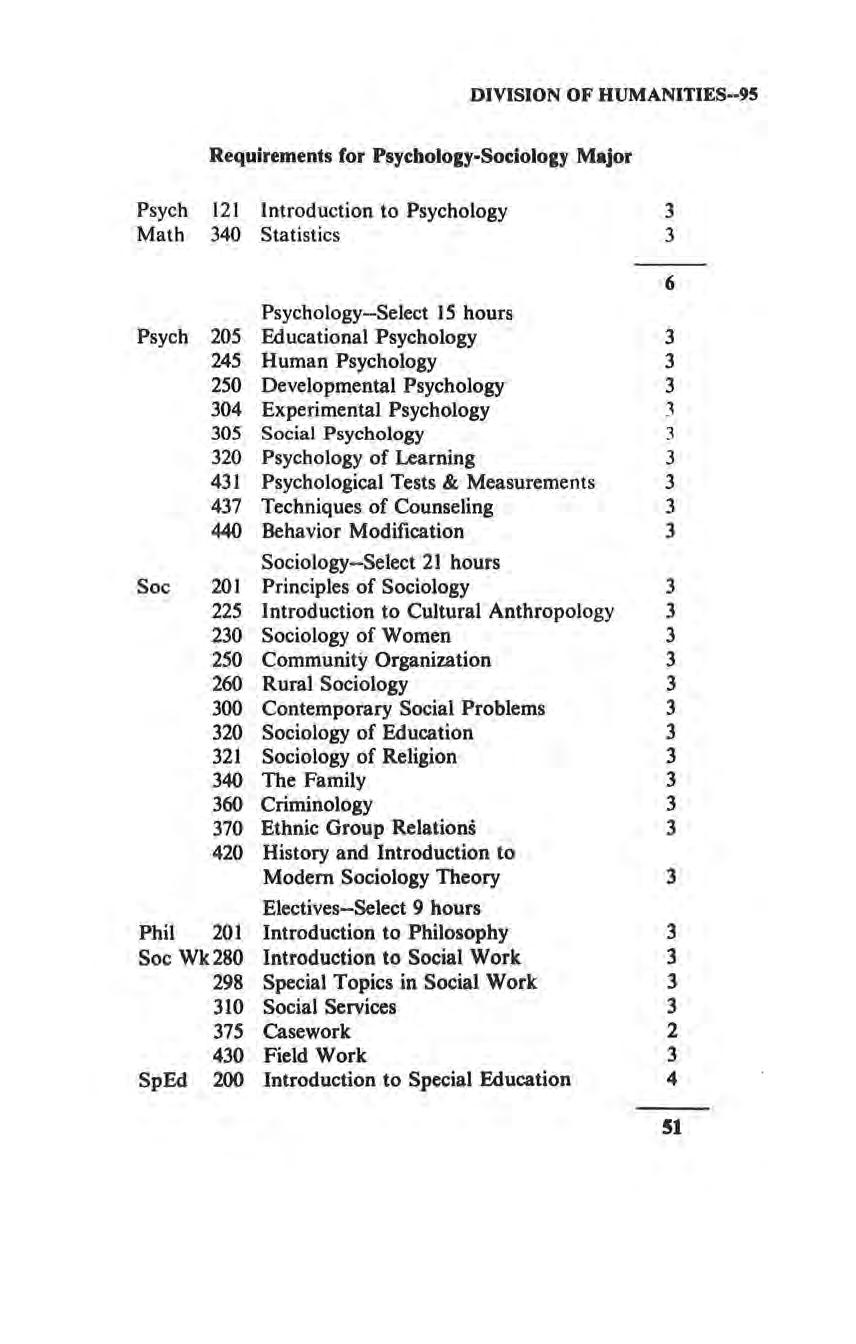
DIVISION OF HUMANITIES--95 Requirements for P~ychology-Sociology Major Psych 121 Introduction to Psychology 3 Math 340 Statistics 3 6 Psychology-Select 15 hours Psych 205 Educational Psychology 3 245 Human Psychology 3 250 Developmental Psychology 3 304 Experimental Psychology 1 305 Social Psychology 3 320 Psychology of Learning 3 431 Psychological Tests & Measurements 3 437 Techniques of Counseling 3 440 Behavior Modification 3 Sociology-Select 21 hours Soc 201 Principles of Sociology 3 225 Introduction to Cultural Anthropology 3 230 Sociology of Women 3 250 Community Organization 3 260 Rural Sociology 3 300 Contemporary Social Problems 3 320 Sociology of Education 3 321 Sociology of Religion 3 340 The Family 3 360 Criminoiogy 3 370 Ethnic Group Relations 3 420 History and Introduction to Modern Sociology Theory 3 Electives-Select 9 hours Phil 201 Introduction to Philosophy 3 Soc Wk280 Introduction to Social Work 3 298 Special Topics in Social Work 3 310 Social Services 3 375 Casework 2 430 Field Work 3 SpEd 200 Introduction to Special Education 4 SI
Suggested Program for Psychology-Sociology Major
Students seeking teacher certification ~ill need to use the Open slots to take general studies courses and the two 300 or 400 level Psychology or Sociology courses scheduled for the Spring semeste r of the 4th year so they will be able to take the professional education requirements during that semester. _
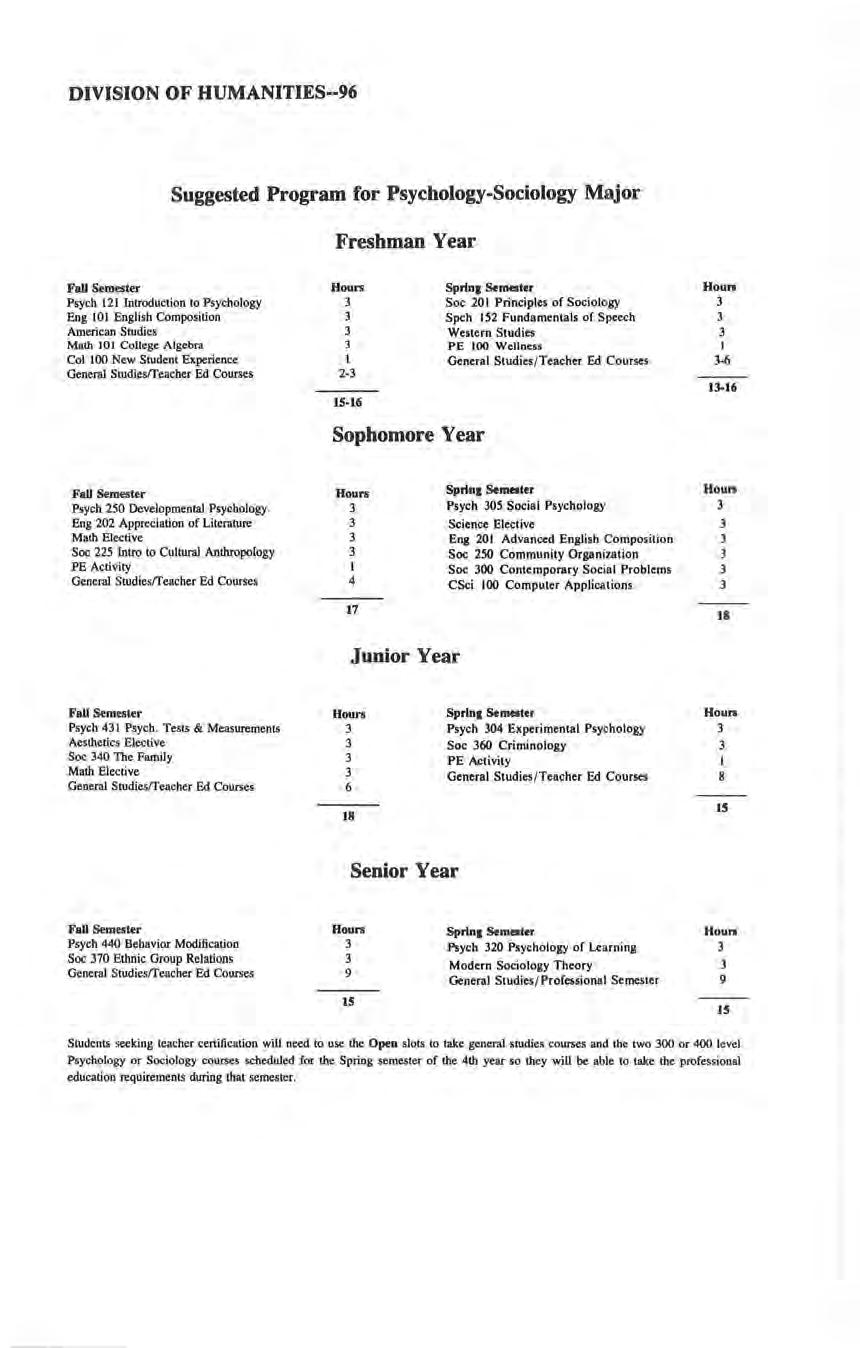
DIVISION OF HUMANITIES--96
Fall Semester Psych 121 Introduction to Psychology Eng IOI Eng li sh Composition American Studies Math 10 I College Algebra Col 100 New Student Experience General Studiesffeacher Ed Courses Fall Semester Psych 250 Developmental Psychology Eng 202 Appreciation of Literature Math Elective Soc 225 Intro to Cultural Anthropology PE Activity General Studiesffeacher Ed Courses Fall Semester Psych 431 Psych Tests & Measurements Aesthetics Elective Soc 340 The Family Math Elective General Studiesffeacher Ed Courses Fall Semester Psych 440 Behavior Modification Soc 370 Ethnic Group Relations General Studies/Teacher Ed Courses Freshman Year Hours 3 3 3 3 I 2-3 15-16 Sprln1 Semester Soc 20 I Principles of Sociology Speh 152 Fundamentals of Speech Western Studies PE JOO Wellness General Studies/Teac her Ed Courses Sophomore Year Hours 3 3 3 3 I 4 17 Sprln1 Semester Psych 305 Social Psychology Science Elective Eng 201 Advanced English Composition Soc 250 Community Organization Soc 300 Contemporary Soc ia l Problems CSci 100 Computer Applications Junior Year Hours 3 3 3 3 6 18 Sprln1 Semester Psych 304 Experimental Psychology Soc 360 Criminology PE Activity General Studies /Teacher Ed Courses Senior Year Hours 3 3 9 15 Sprln1 Semester Psych 320 Psychology of u:arning Modern Sociology Theory General Studies / Professional Semester Haun 3 3 3 I 3~ 13-16 Houn 3 3 3 3 3 3 18 Houn 3 15 Houn 3 j 9 15
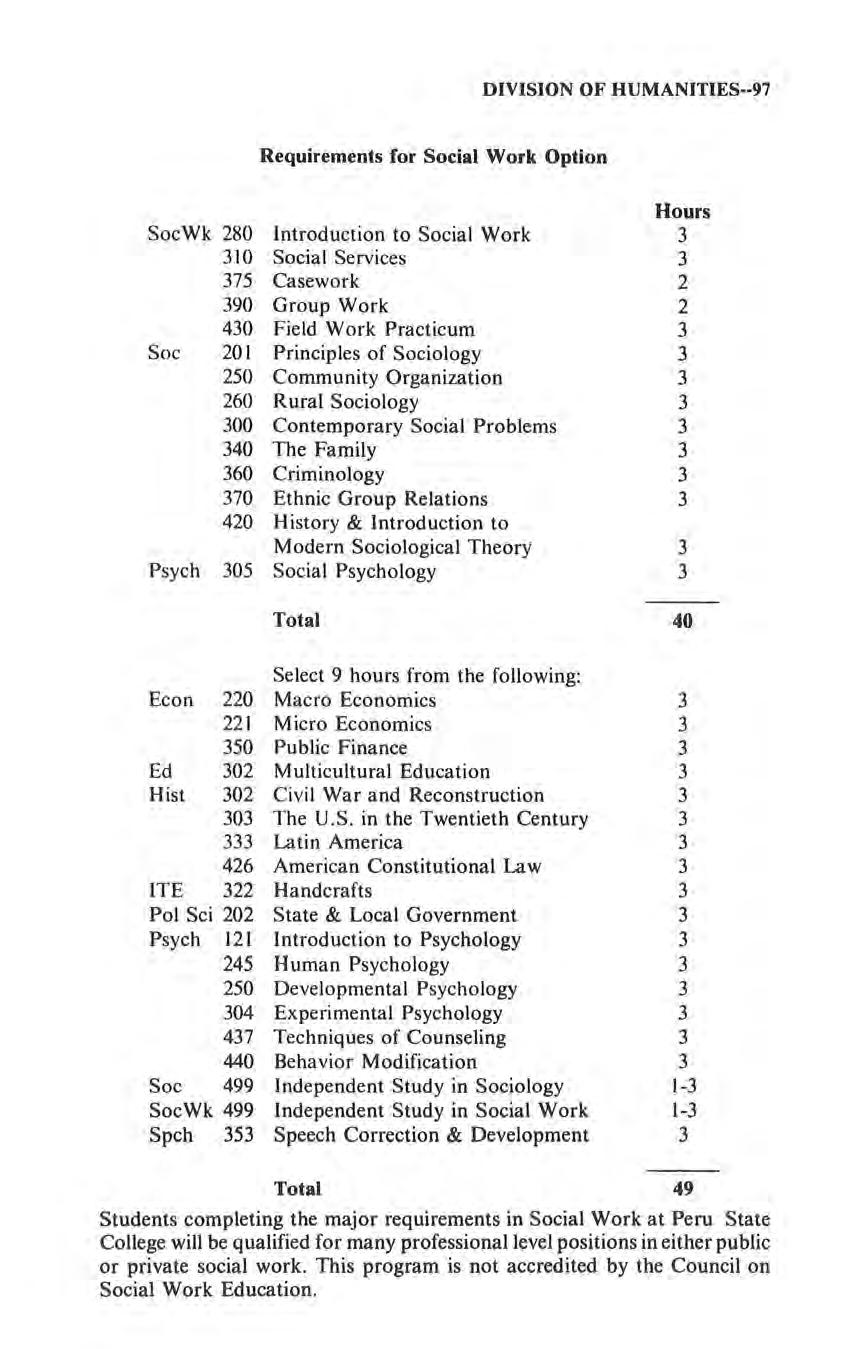
DIVISION OF HUMANITIES--97 Requirements for Social
Hours SocWk 280 Introduct ion to Socia l Work 3 3 10 Socia l Serv ices 3 375 Casework 2 390 Group Work 2 430 Fie ld Work Practicum 3 Soc 20 1 Princip les of Socio logy 3 250 Community Organization 3 260 Rura l Sociology 3 300 Contemporary Social Problems 3 340 The Family 3 360 Criminology 3 370 Ethnic Group Relations 3 420 History & Introduction to Modern Sociological Theory 3 Psych 305 Social Psychology 3 Total 40 Select 9 hours from the following: Econ 220 Macro Economics 3 221 Micro Economics 3 350 Public Finance 3 Ed 302 Multicultural Education 3 Hist 302 Civil War and Reconstruction 3 303 The U .S . in the Twentieth Century 3 333 Latin America 3 426 American Constitutional Law 3 ITE 322 Handcrafts 3 Pol Sci 202 State & Local Government 3 Psych 121 Introduction to Psychology 3 245 Human Psychology 3 250 Deve lopmenta l Psychology 3 304 Experimental Psychology 3 437 Techniques of Counseling 3 440 Behavior Modification 3 Soc 499 Independent Study in Sociology 1-3 SocWk 499 Independent Study in Social Work 1-3 Speh 353 Speech Correction & Development 3 Total 49 Students completing the major requirements in Social Work at Peru State College will be qualified for many professional level positions in either public or private social work . This program is not accredited by the Council on Social Work Education.
Work Option
Requirements for Psychology Option
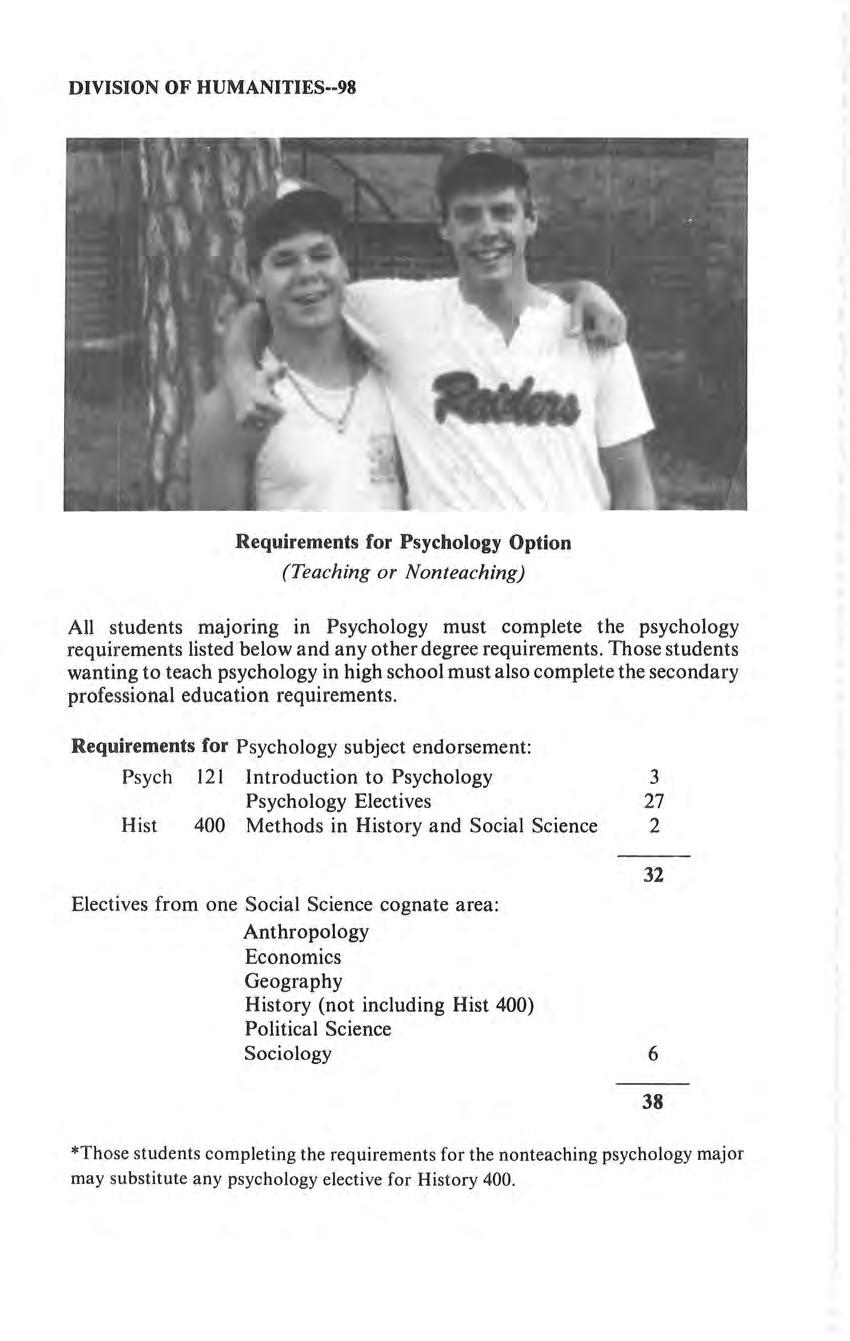
All students majoring in Psychology must complete the psychology requi r ements listed below and any other degree requirements . Those students wanting to teach psychology in high school must also complete the secondary professional education requirements.
*Those students completing the requirements for the nonteaching psychology major may substitute any psychology elective for History 400.
DIVISION OF HUMANITIES--98
(Teaching or Nonteaching)
Requirements for Psychology subject endorsement: Psych 121 Introduction to Psychology 3 Psychology Electives 27 Hist 400 Methods in History and Social Science 2 Electives from one Social Science cognate area: Anthropology Economics Geography History (not including Hist 400) Political Science Sociology 32 6 38
Requirements for Sociology Option
All students majoring in Sociology must complete the sociology requirements listed below and any other degree requirements. Those students wanting to teach sociology in high school must also complete the secondary professional education requirement.
*Those students completing the requirements for the nonteaching sociology major may substitute any sociology elective for History 400
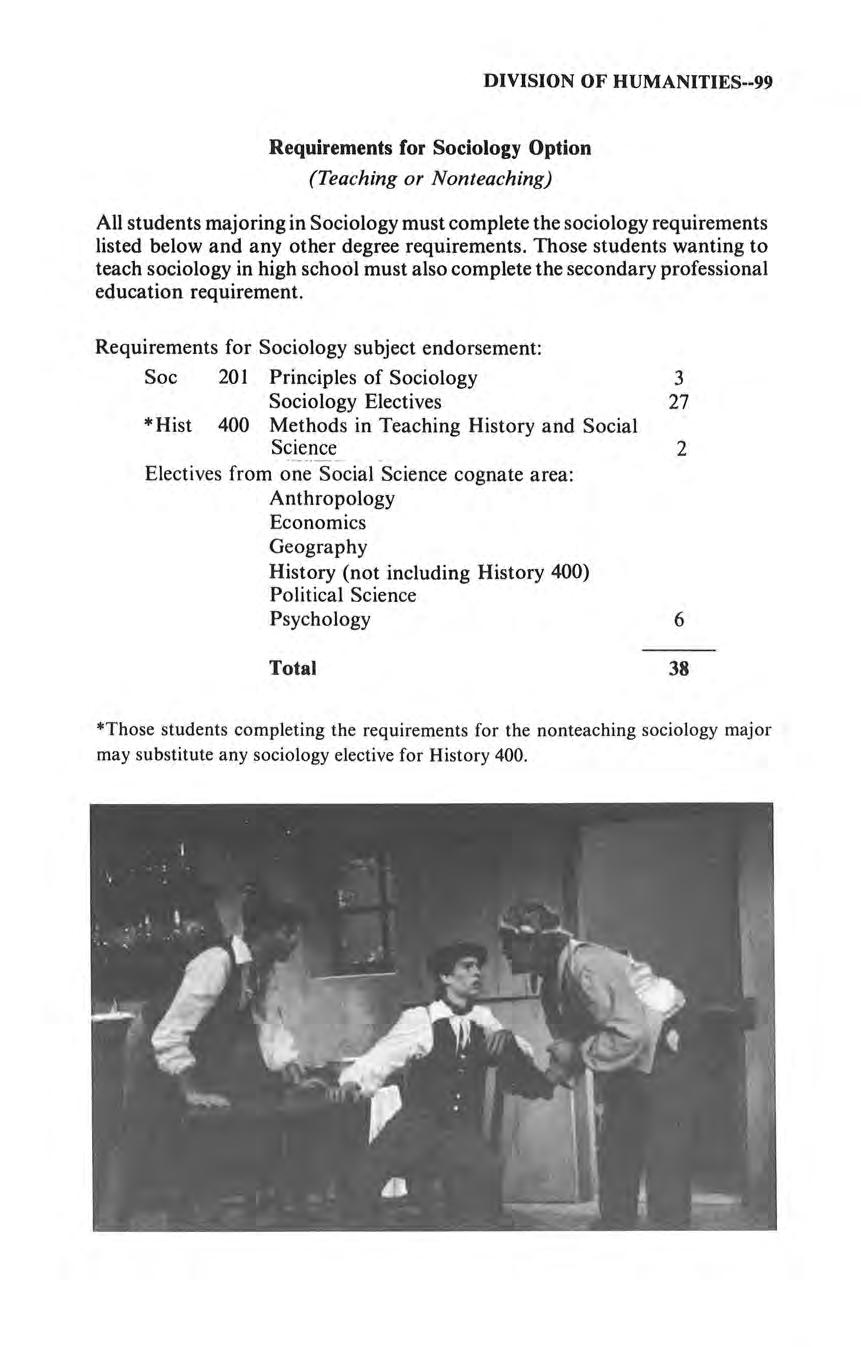
DIVISION OF HUMANITIES--99
(Teaching or Nonteaching)
Requirements for Sociology subject endorsement: Soc 201 Principles of Sociology 3 Sociology Electives 27 * Hist 400 Methods in Teaching History and Social Science 2 Electives from one Social Science cognate area : Anthropology Economics Geography History (not including History 400) Political Science Psychology 6 Total 38
Visual and Performing Arts
Options available through the Visual and Performing Arts provide opportunities for students to develop skills in Art, Speech and Drama, or Music Degrees may vary depending upon the type of profession. The Bachelor of Arts in Education degree offered in Art and in Speech and Drama while the Bachelor of Fine Arts degree is offered in Music . Each program is designed to provide the student with a variety of experiences and means of self expression through the arts.
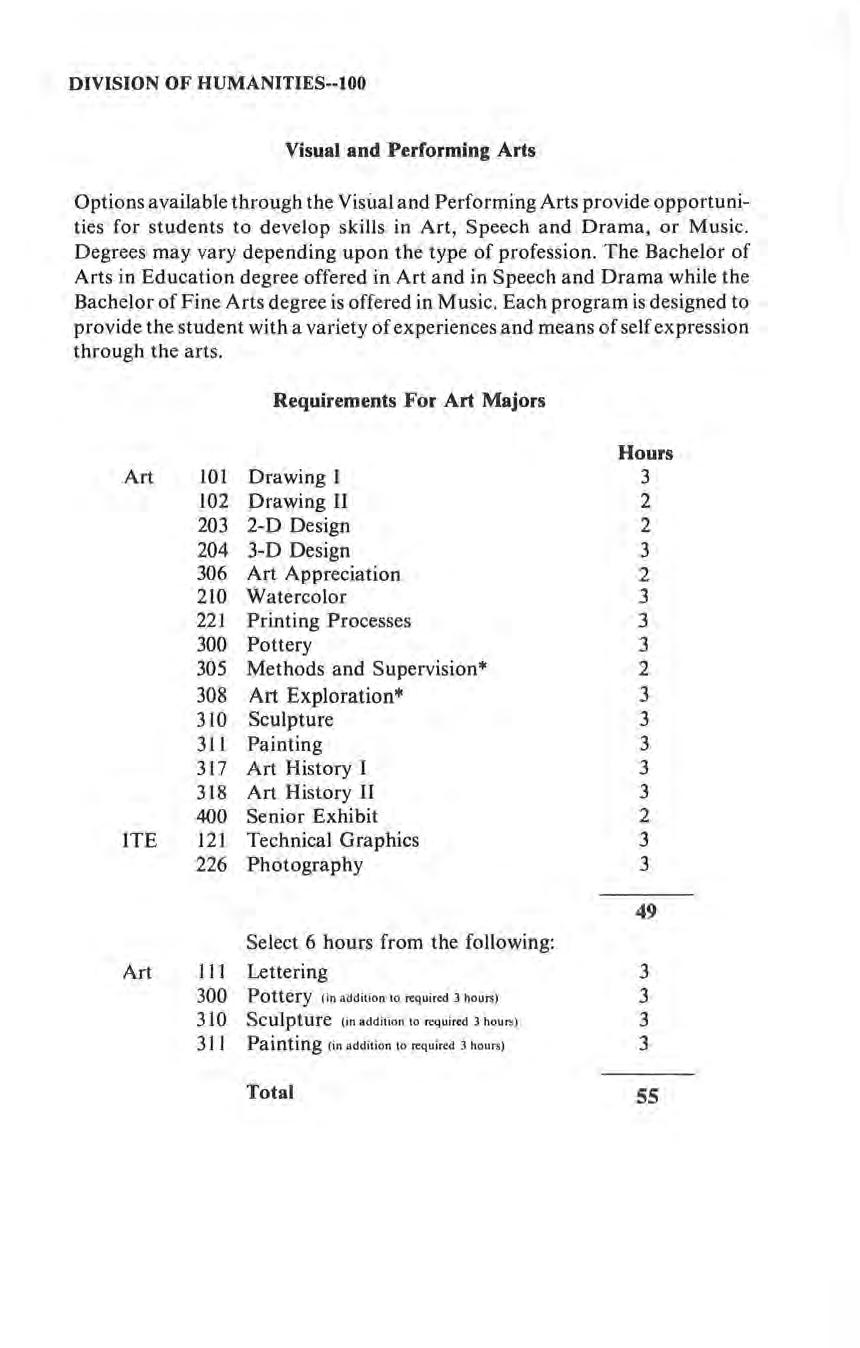
DIVISION OF HUMANITIES--100
Art ITE Art Requirements For Art Majors IOI Drawing I 102 Drawing II 203 2-D Design 204 3-D Design 306 Art Appreciation 210 Watercolor 221 Printing Processes 300 Pottery 305 Methods and Supervision* 308 Art Exploration* 310 Sculpture 311 Painting 317 Art History I 318 Art History II 400 Senior Exhibit 121 Technical Graphics 226 Photography Select 6 hours from the following: 111 Lettering 300 Pottery ( i n a ddition to required 3 ho u rs ) 310 Sculpture (in addition t o required 3 hours) 311 Painting (in a ddition t o required 3 ho urs) Total Hours 3 2 2 3 2 3 3 3 2 3 3 3 3 3 2 3 3 49 3 3 3 3 55
Art majors are required to have a senior show of works produced as a student at Peru State. The Art Department may retain for the files one piece of art work from each student.
*Students not in art education may choose 5 hours of special topics in art, (Art 499) to fulfill the Art 305 and Art 308 requirements.
Suggested Program for Art Major
Freshman Year
Fall Semester
Art IOI Drawing I
Art 111 Lettering
Eng IOI English Composition
LSci 100 Introduction to Media & Library
Elective
Hours
3 16
Fall Semester
Art 203 2-D Design
ITE 226 Photography
Human Relations Elective
Math 100 Business Mathematics
Ed 200 Foundations of Education
Ed 207 Practicum
Fall Semester
Art 300 Pottery
Art 311 Painting I
Ed 338 Teaching Secondary Reading
Western Studies
PE Activity
General Studies / Elective
Fall Semester
Art 317 Art History I
Art 318 Art History II
Art 499 Independent Study in Art
400
Spring Semester
Art 102 Drawing II
Art 204 3-D Design
CSci 100 Computer Awareness
Spech 152 Fundamentals of Speech
GSci 232 Energy
Elective
Sophomore Year
Hours
Spring Semester
Art 210 Watercolor
Art 221 Printing Processes
Eng 201 Advanced English Composition
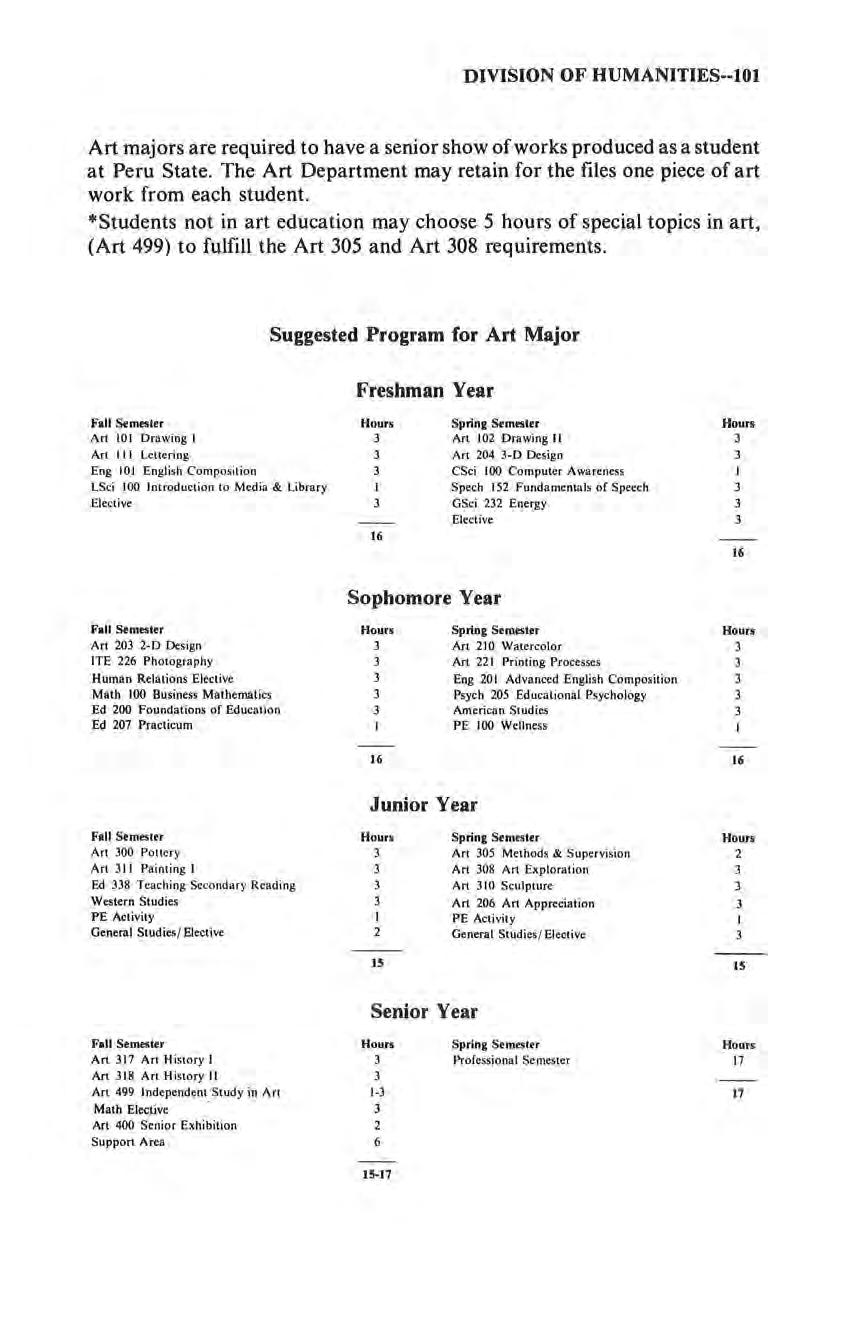
Psych 205 Educational Psychology
American Studies
PE 100 Wellness Junior
Art 305 Methods & Supervision
Art 308
310
206
DIVISION OF HUMANITIES--101
Exhibition Support Area
Math Elective · Art
Senior
16
Year Hours 15 Spring
Semester
Activity General Studies / Elective Senior Year Hours 1-3 3 2 6 15-17 Spring Semester Professional Semester Hours 3 3 16 Hours 16 Hours 2 3 15 Hours 17 17
Art Exploration Art
Sculpture Art
Art Appreciation PE
Requirements for B.F .A. in Education
NOTE: Candidates for the K-12 Vocal/ Instrumental Field Endorsement must (I) give a 30 minute recital at the conclusion of the junior level of applied music studies, (2) pass a piano proficiency examination prior to the "professional semester", and (3) have formal experience on a wind instrument , a keyboard instrument and voice .
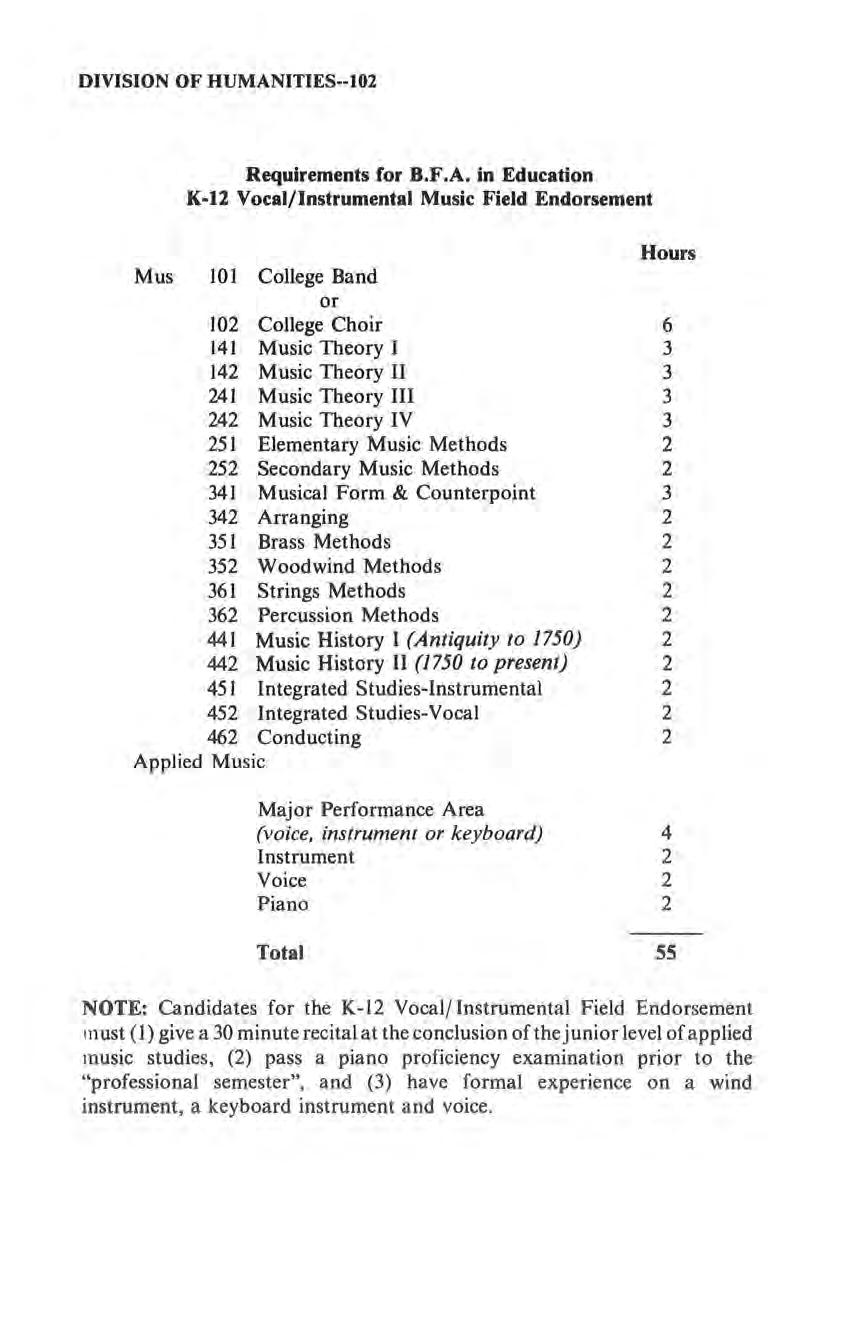
DIVISION OF HUMANITIES--102
K-12 Vocal/Instrumental Music Field Endorsement Mus 10 I College Band or 102 College Choir 141 Music Theory I 142 Music Theory II 241 Music Theory III 242 Music Theory IV 251 Elementary Music Methods 252 Secondary Music Methods 341 Musical Form & Counterpoint 342 Arranging 351 Brass Methods 352 Woodwind Methods 361 Strings Methods 362 Percussion Methods 441 Music History I (Antiquity to 1750) 442 Music History II (1750 to present) 451 Integrated Studies-Instrumental 452 Integrated Studies-Vocal 462 Conducting Applied Music Major Performance Area (voice, instrument or keyboard) Instrument Voice Piano Total Hours 6 3 3 3 3 2 2 3 2 2 2 2 2 2 2 2 2 2 4 2 2 2 55
NOTE: Candidates for the K-6 Vocal / Elementary Music Subject Endorsement must pass a piano proficiency examination prior to the "professional semester".
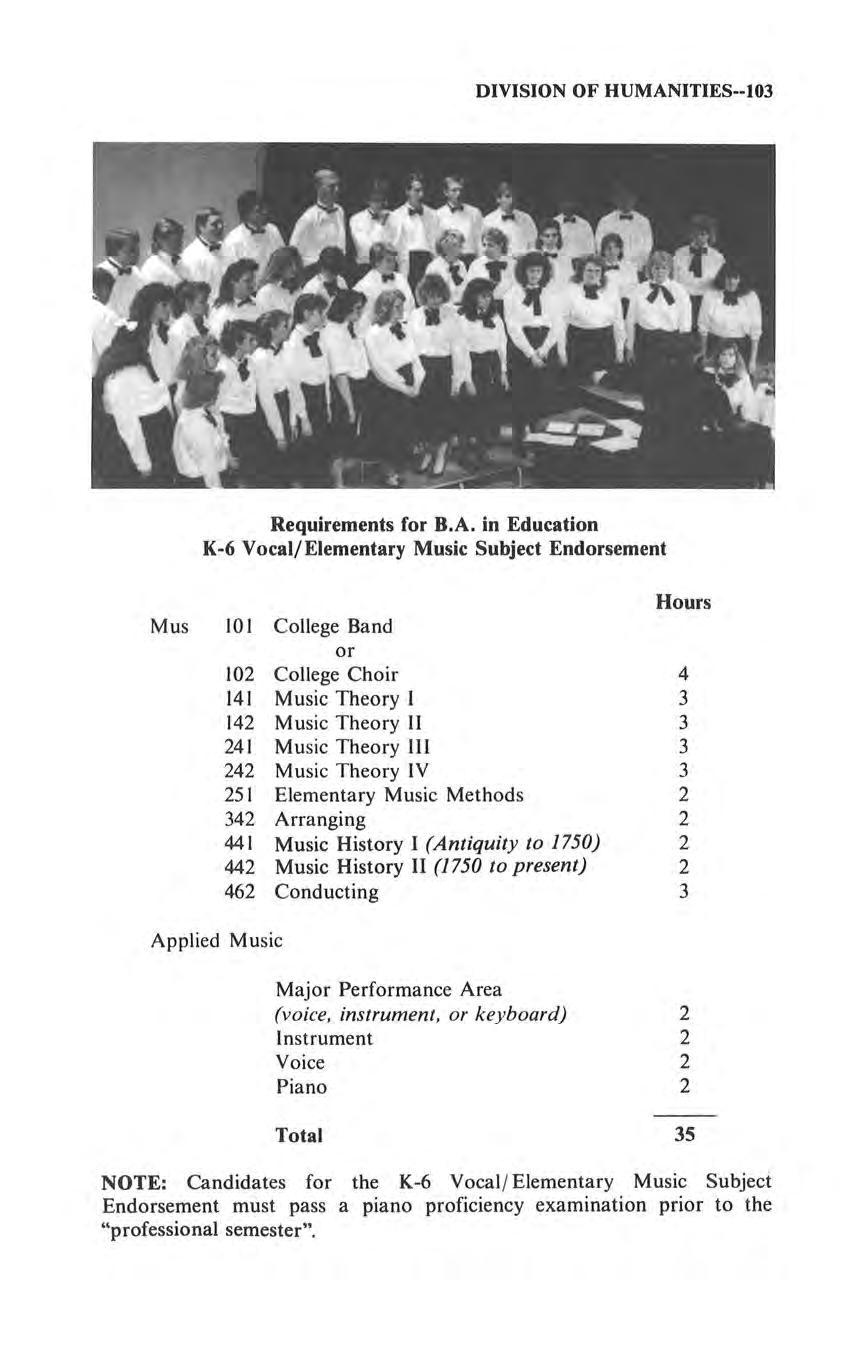
DIVISION OF HUMANITIES--103 Requirements for B.A. in Education K-6 Vocal / Elementary Music Subject Endorsement Hours Mus IOI College Band or 102 College Choir 4 141 Music Theory I 3 142 Music Theory II 3 241 Music Theory III 3 242 Music Theory IV 3 251 Elementary Music Methods 2 342 Arranging 2 441 Music History I (Antiquity to 1750) 2 442 Music History II (1750 to present) 2 3 Applied Music Major Performance Area (voice, instrument, or keyboard) Instrument Voice Piano Total 2 2 2 2 35
All students selecting the B.A . or B. S. with Emphasis in Performance must complete the above music requirements in addition to completing one of the following options.
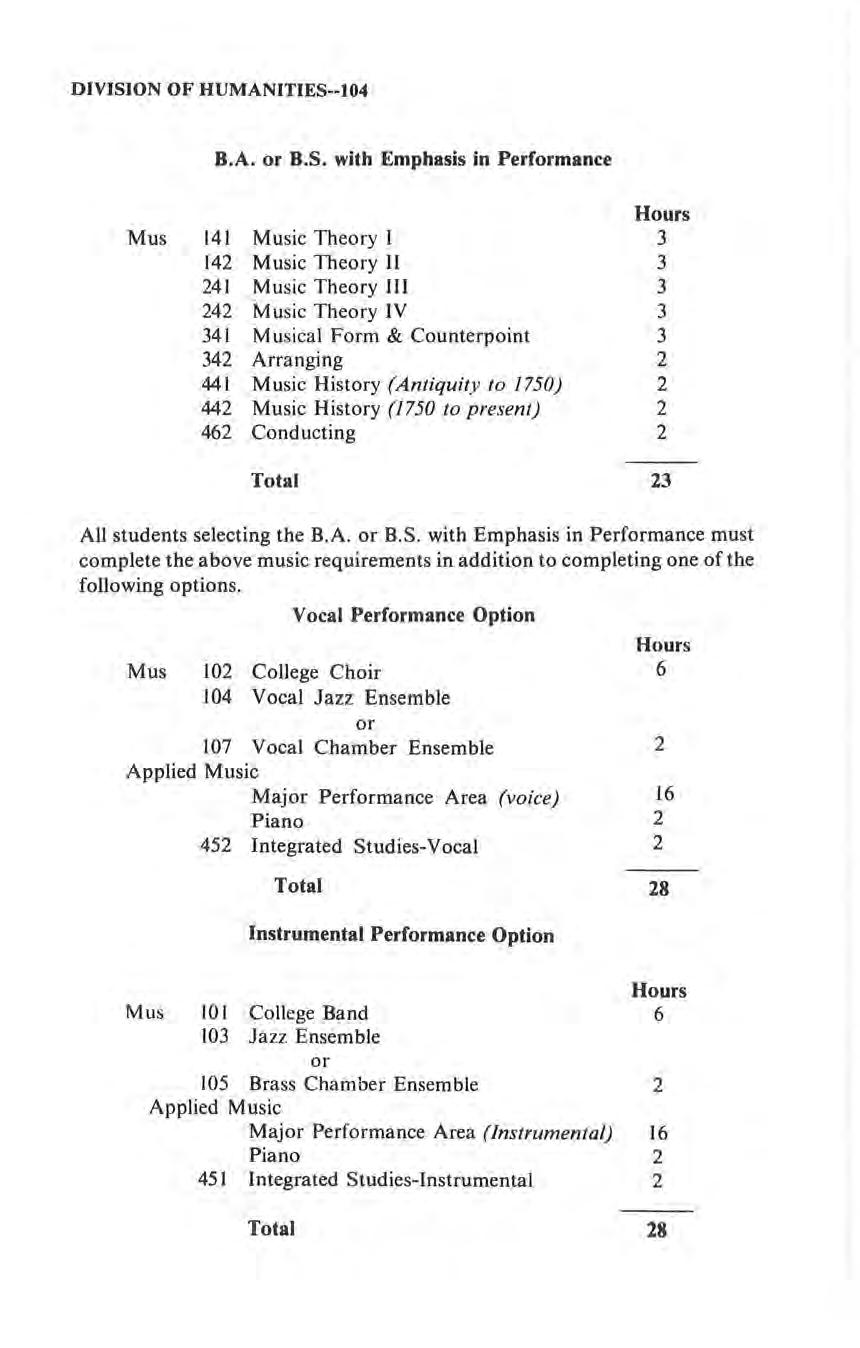
DIVISION OF HUMANITIES--104 B.A. or B.S. with Emphasis in Performance Mus 141 Music Theory I 142 Music Theory II 241 Music Theory Ill 242 Music Theory IV Hours 3 3 3 3 341 Musical Form & Counterpoint 342 Arranging 441 Music History (Antiquity to 1750) 442 Music History (1750 to present) 462 Conducting Total 3 2 2 2 2 23
Mus Vocal Performance Option 102 College Choir I04 Vocal Jazz Ensemble or Hours 6 107 Vocal Chamber Ensemb le 2 Applied Music Mus Major Performance Area (voice) 16 Piano 2 452 Integrated Studies-Vocal 2 Total Instrumental Performance Option 10 I College Band 103 Jazz Ensemble or 28 Hours 6 105 Brass Chamber Ensemble 2 Applied Music Major Performance Area (Instrumental) 16 Piano 2 451 Integrated Studies-Instrumental 2 Total 28
NOTE: Candidates for the B.A. or B.S. with Emphasis in Performance must present a 30 minute recital at the conclusion of the junior level of applied music studies and a 60 minute recital at the conclusion of the senior level of applied music studies.
NOTE: It is the policy of the Music Department that all Music majors participate in band or choir each semester .
Music students are required to attend recitals and concerts in partial fulfillment of their graduation requirements . Music majors working toward a Bachelor of Fine Arts degree in Education are required to give a junior recital. Music majors working toward a Bachelor of Science or a Bachelor of Arts degree are required to give a junior and senior recital.
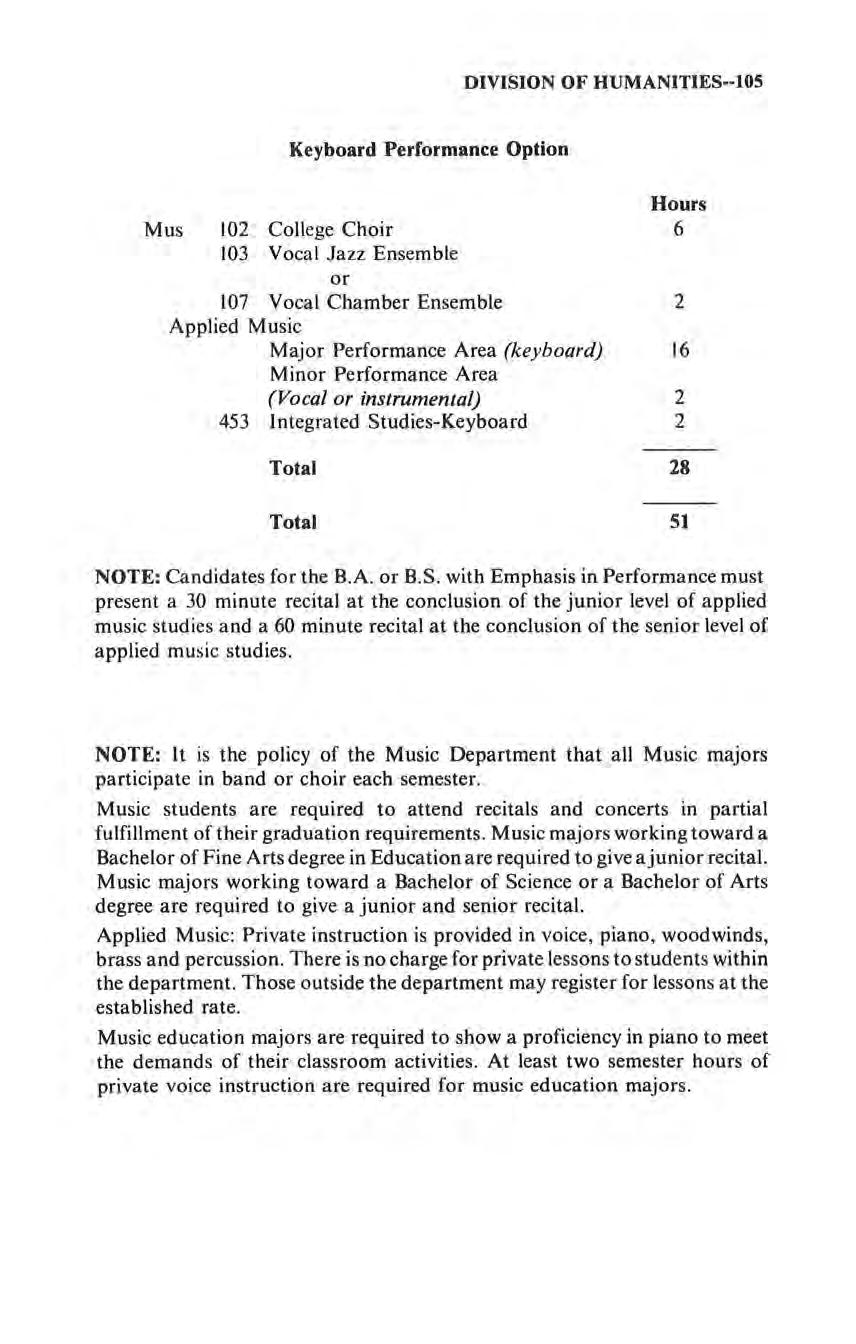
Applied Music: Private instruction is provided in voice, piano, woodwinds, brass and percussion. There is no charge for private lessons to students within the department. Those outside the department may register for lessons at the established rate.
Music education majors are required to show a proficiency in piano to meet the demands of their classroom activities. At least two semester hours of private voice instruction are required for music education majors.
DIVISION OF HUMANITIES--105 Mus Keyboard Performance Option 102 College Choir 103 Vocal Jazz Ensemble or 107 Vocal Chamber Ensemble Applied Music Major Performance Area (keyboard) Minor Performance Area (Vocal or instrumental) 453 Integrated Studies-Keyboard Total Total Hours 6 2 16 2 2 28 51
Music Marketing Option
All students who select the Bachelor of Arts or Bachelor of Science with Emphasis in Performance may also combine the fifty-one hours of music required with selected studies in business in order to prepare for a career in the music industry. Below are suggested business courses: however, the business requirements may be selected through consultation with the business advisor, tailoring the program to meet each student's career needs or special business interests. Twenty-one hours of business are required.
Suggested Business Requirements
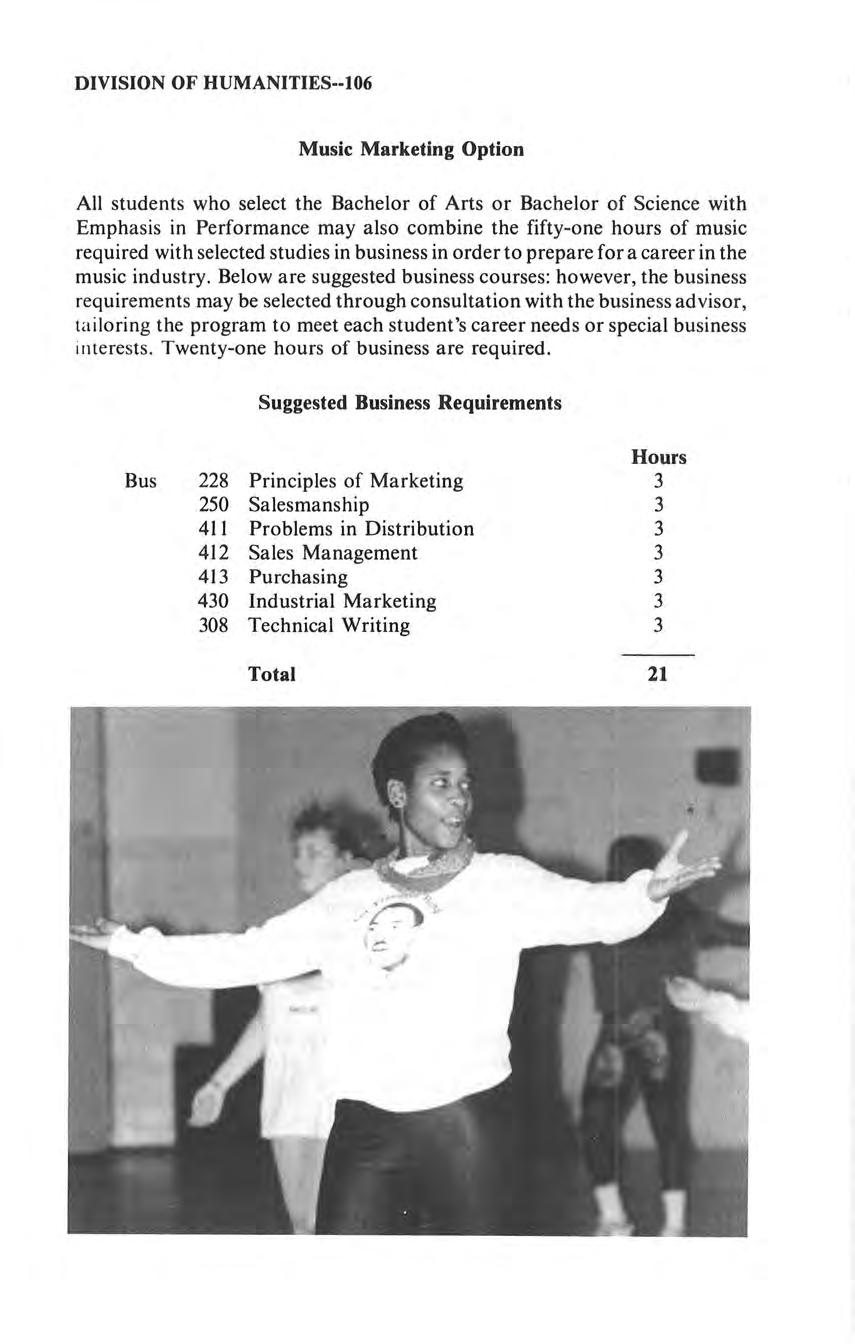
DIVISION OF HUMANITIES--106
Bus
228 Principles of Marketing 250 Salesmanship 411 Problems in Distribution 412 Sales Management 413 Purchasing 430 Industrial Marketing 308 Technical Writing Total Hours 3 3 3 3 3 3 3 21
Suggested Program for K-12 Vocal/Instrumental Music Field Endorsement
Freshman Year
Fa ll Semes ter
Mus 101 College Band or
Mu s I02 College Choir
Mus 112 Beginning Class Piano
Mus 12 1 Applie d Mu sic
Mu s 141 Mu sic Theory I
Mus 362 Percu ss io n Methods
Eng 101 English Composition
American Studies
Co l 100 New Student Experience
PE I00 Wellness
Fall Semester
Mus IO I Co ll ege Band or
Mu s 102 College Choir
Mus 221 Applied Mu sic
Mu s 241 Music Theory III
Mu s 252 Secondary Mu sic Methods
Mu s 341 String Methods
Human Re lation s Elective
Mathematic s Elective
PE Ac ti vi ty
Fa ll Semester
Mus IOI Co ll ege Band o r
Mus I02 Co ll ege Choir
Mus 321 Appli ed Mu sic
Mu s 34 1 Form and Counterpoint
Mus 44 1 Music Hi story I
Mus 45 I Integrated Studies~ Instrument
Math 100 Bu sine ss Mathematics
GSc i 205 Introductory Biology
Mu s 122 App li ed Music (2nd Area)
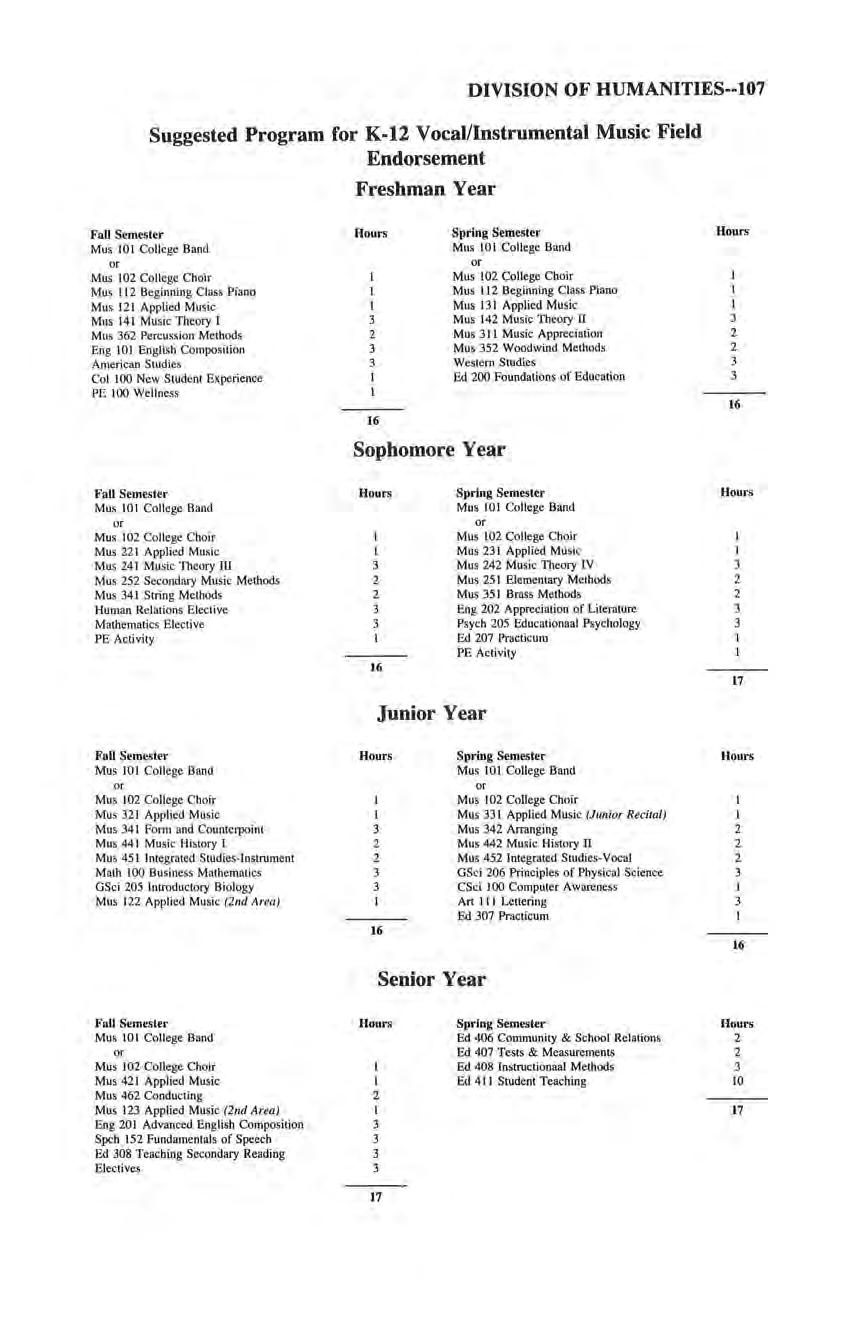
Hours 16
Spring Semester
Mus IOI College Band or
Mu s I02 College Choir
Mus 112 Beginning Class Piano
Mu s 13 I Applied Music
Mu s 14 2 Music Theory II
Mus 3 11 Music Appreci ation
Mu s 352 Woodwind Methods
Weste rn Studies
Ed 200 Foundations of Education
Sophomore Year
Spring Semester
Mus lO I College Band or
Mu s I02 College Choir
Mus 23 1 Applied Mu sic
Mu s 242 Music Theory IV
Mus 251 Elementary Methods
Mus 351 Brass Methods
Eng 202 Appreciation of Literature
Psych 205 Educationaal Psychology
Ed 207 Practicum
PE Activity
Junior Year Hours
Mus IOI College Band or
Mus l02 College Choi r
Mus 33 1 Applied Mu sic (Junior Recital)
Mu s 342 Arranging
Mu s 442 Mu sic History II
Mus 452 Inte grated Studies-Vocal
GSci 206 Principle s of Physical Science
CSci I00 Computer Awareness
Art 111 Lettering
Ed 307 Practicum
Senior Year
Fa ll Semester
Mus 101 Co ll ege Band or
Mus I02 College Choi r
Mu s 421 Applied Music
Mus 462 Conducting
Mus 123 Applied Music (2nd Area)
Eng 201 Advanced Eng li sh Composition
Speh 152 Fundamentals of Speech
Ed 308 Teaching Secondary Reading
Electives
DIVISION OF HUMANITIES--107
I 3 2 2 16
Hours
16
Spring Semester
Hours 17 Spring Semester Ed 406 Community & School Relations Ed 407 Tests & Measurements Ed 408 Instructionaal Methods Ed 411 Student Teac hin g Hours 16 Hours 17 Hours 16 Hours 2 2 3 IO 17
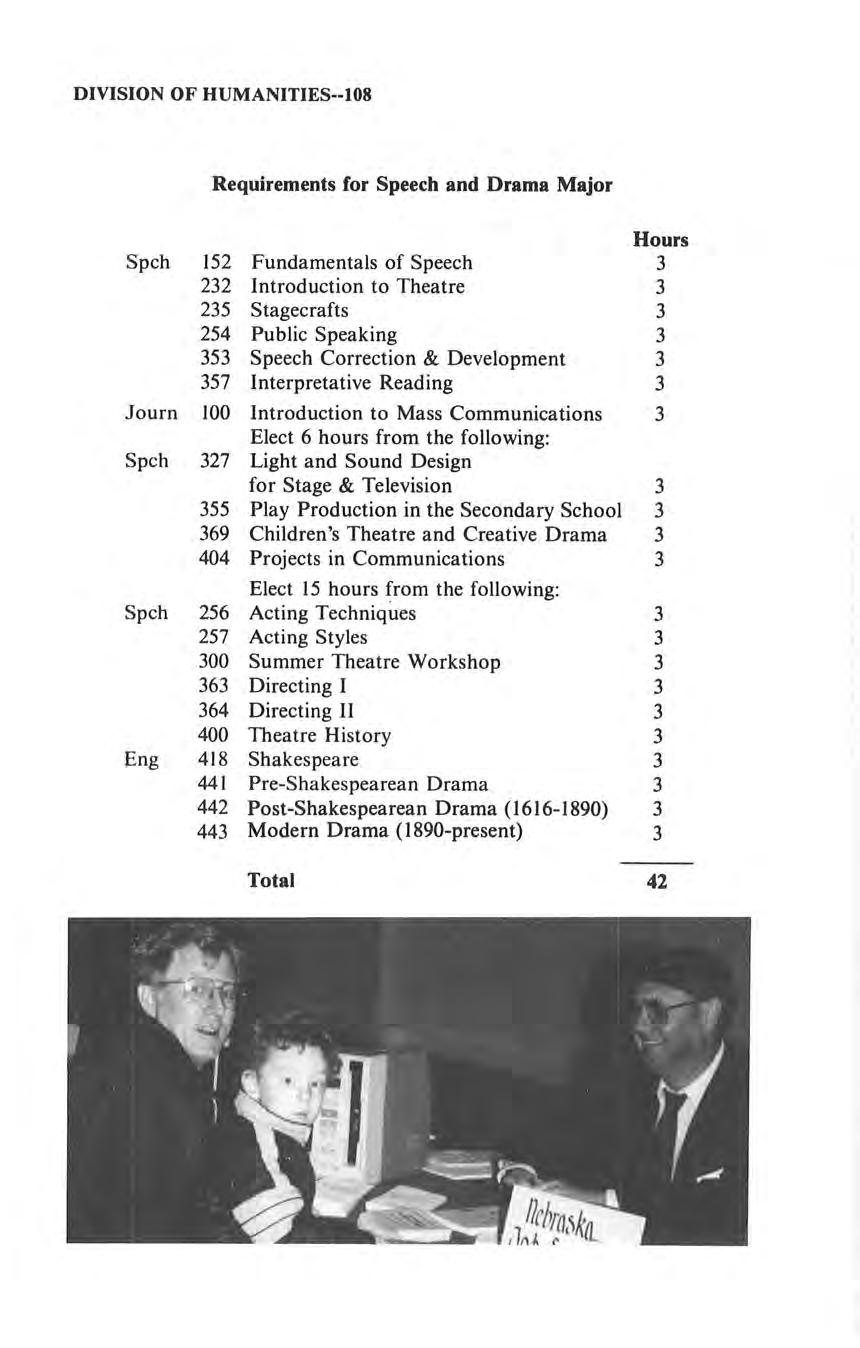
DIVISION OF HUMANITIES--108 Requirements for Speech and Drama Major Hours Speh 152 Fundamentals of Speech 3 232 Introduction to Theatre 3 235 Stagecrafts 3 254 Public Speaking 3 353 Speech Correction & Development 3 357 Interpretative Reading 3 Journ JOO Introduction to Mass Communications 3 Elect 6 hours from the following: Speh 327 Light and Sound Design for Stage & Television 3 355 Play Production in the Secondary School 3 369 Children's Theatre and Creative Drama 3 404 Projects in Communications 3 Elect 15 hours from the following: Speh 256 Acting Techniques 3 257 Acting Styles 3 300 Summer Theatre Workshop 3 363 Directing I 3 364 Directing II 3 400 Theatre History 3 Eng 418 Shakespeare 3 441 Pre-Shakespearean Drama 3 442 Post-Shakespearean Drama ( 1616-1890) 3 443 Modern Drama (1890-present) 3 Total 42
Suggested Program for Speech and Drama Major
Fall Semester
Speh 152 Fundamental s of Speech
Speh 232 Introduction t o Theatre
Eng IOI English Composition
Western Studies
Col 100 New Student Experience
General Studies / Electives
Fall Semester
Spe h 256 Acting Techniques
Speh 360 Scenery and Costume Design or
Speh 369 Children's Theatre & Creative Drama
Ed 200 Foundations of Education
Ed 207 Practicum
Science Elective
General Studies / Electives
Fall Semester
Speh 257 Acting Styles
Speh 353 Speech Correction & Deve lopment
Eng 441 Pre•Shakespearea n Drama
Eng 201 Advanced English Composition
General Studies / Elect ivies
Fall Semester
Speh 400 Theatre History or
Speh 404 Projects in Communications
Eng 442 Post-Shakespearean
Eng 405
English &
Speh 235
Speh 254 Public Speaking
Aesthetics Elective
American Studies
PE 100 Wellness
General Studies/ Electives
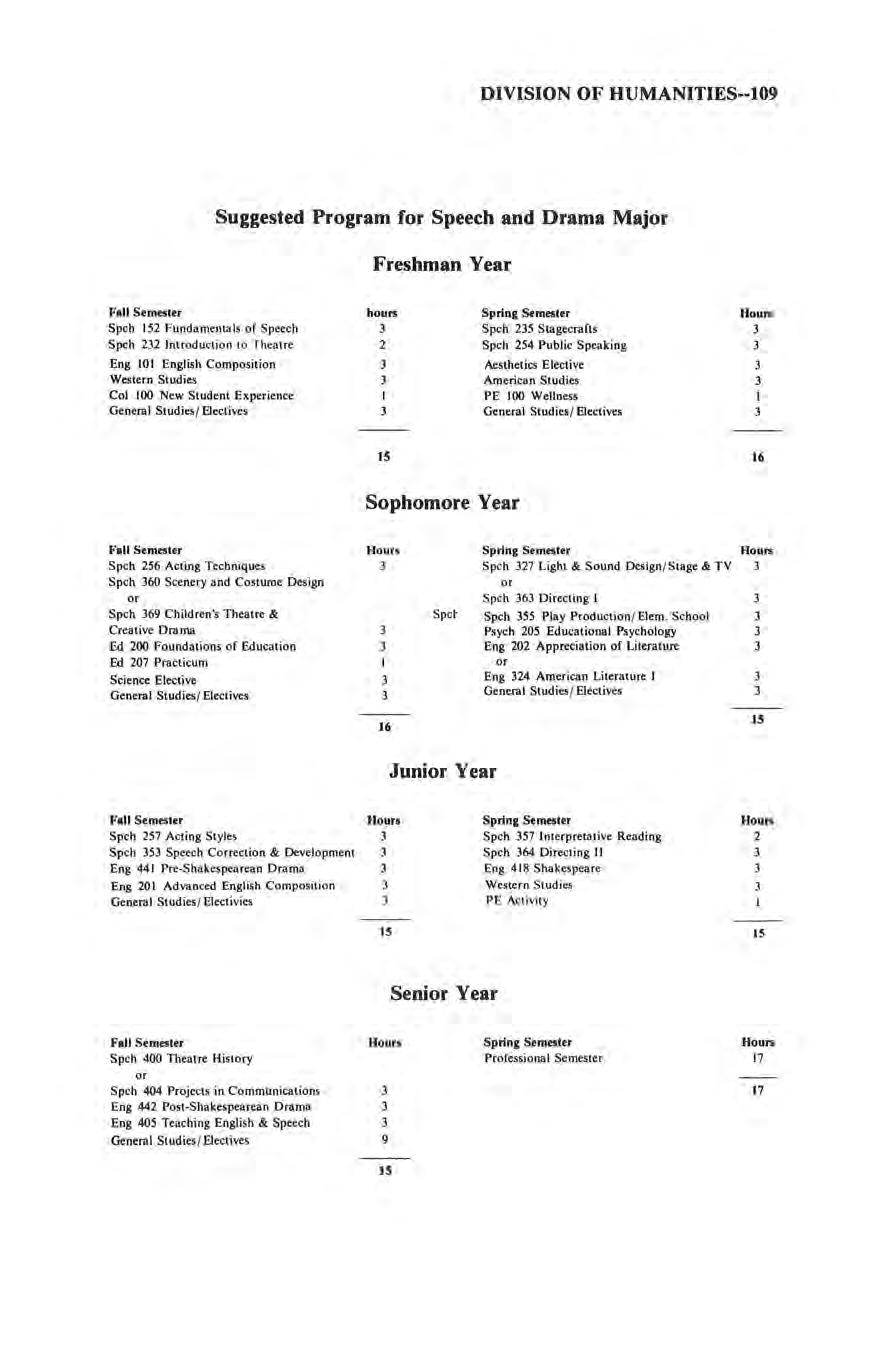
Sophomore Year
Hours
Spring Semester
Speh 327 Light & Sound Design / Stage & TV or
Speh 363 Directing I
Spct Speh 355 Play Production / Elem. School
Psych 205 Educational Psychology
Eng 202 Appreciation of Literature or
Eng 324 American Literature I
General
DIVISION OF HUMANITIES--109
Drama
Teaching
Speech General Studies / Electives Freshman Year hours 3 2 3 3 15 Spring Semester
Stagecrafts
Studies
Electives 16 Junior Year Hours 3 IS Spring Sem..ter Speh 3S7 Interpretative Reading
364 Directing II
4 I8 Shakespeare Western Studies PE Activity Senior Year Hours 15 Spring Semester Professional Semester Hours 3 3 3 16 Hours 3 15 Hours 2 3 IS Hours 17 17
/
Speh
Eng
Pre-Legal Study
Adequate preparation for entrance into a ranking law school requires a bachelor's degree. Although law schools require a bachelor's degree for admission, neither the committee on pre-legal education of the American Bar Assoc iation nor leading law schools specify a particular undergraduate major or prescribe a specific pre-law program, but they do stress the ability to read perceptively, to write intelligently, to use a library, and to evaluate evidence.
Success in law school requires intellectual depth and breadth as well as certain skills and insights relevant to law study. Since many of the goals of legal education are also the goals of liberal education, law schools recommend that pre-law students obtain the widest possible undergraduate experience consistent with their professional objectives. Literate, well-informed students with broad general educations tend to succeed in law school. Those students aspiring to enter law school , then, may major and / or minor in any number of fields t hat will aid them in attaining the following skills:
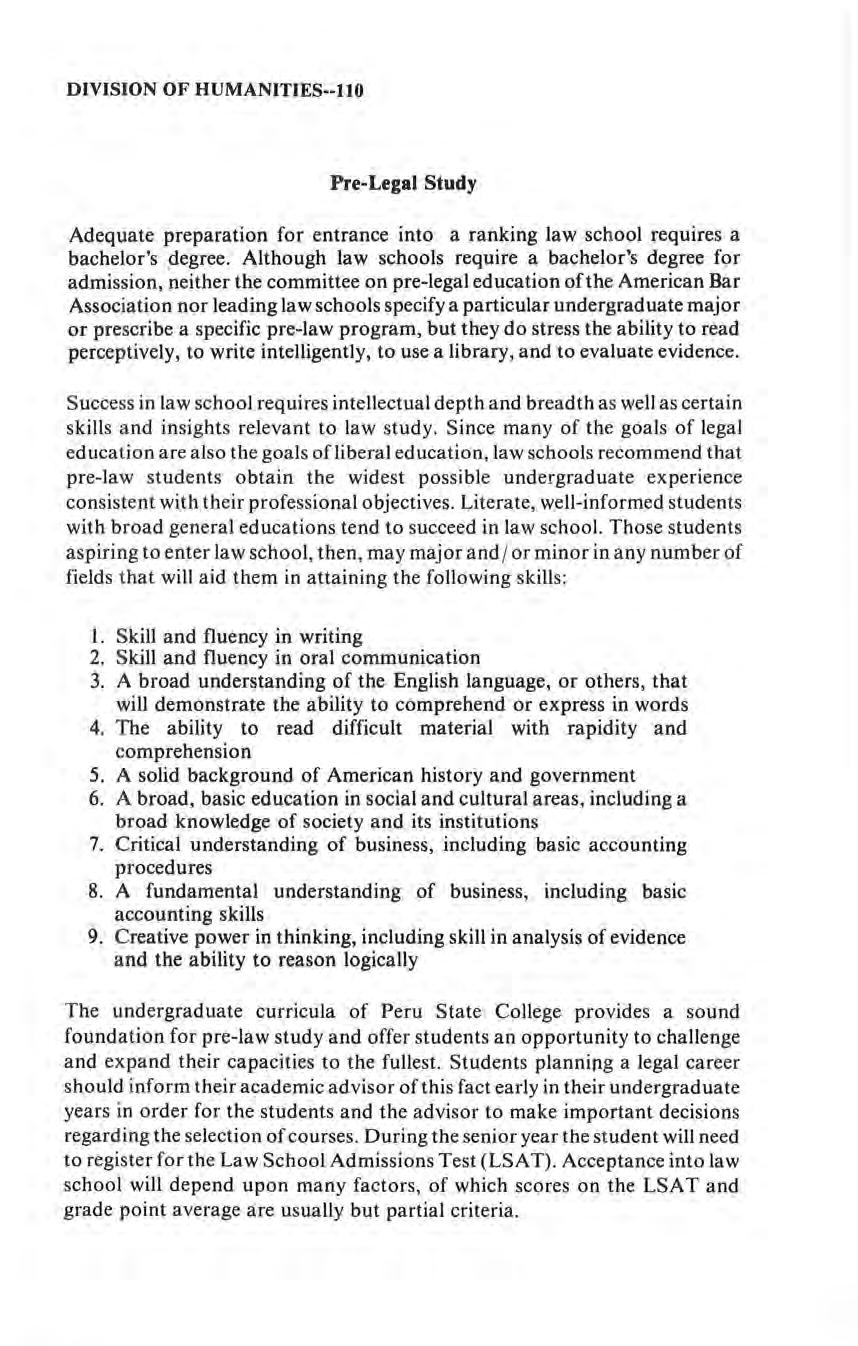
1. Skill and fluency in writing
2. Skill and fluency in oral communication
3. A broad understanding of the English language, or others, that will demonstrate the ability to comprehend or express in words
4. The ability to read difficult material with rapidity and comprehension
5. A solid background of American history and government
6. A broad, basic education in social and cultural areas, including a broad knowledge of society and its institutions
7. Critical understanding of business, including basic accounting procedures
8. A fundamental understanding of business, including basic accounting skills
9. Creative power in thinking, including skill in analysis of evidence and the ability to reason logically
The undergraduate curricula of Peru State, College provides a sound foundation for pre-law study and offer students an opportunity to challenge and expand their capacities to the fullest . Students planning a legal career should inform their academic advisor of this fact early in their undergraduate years in order for the students and the advisor to make important decisions regarding the selection of courses. During the senior year the student will need to register for the Law School Admissions Test (LSAT). Acceptance into law school will depend upon many factors, of which scores on the LSA T and grade point average are usually but partial criteria.
DIVISION OF HUMANITIES--110
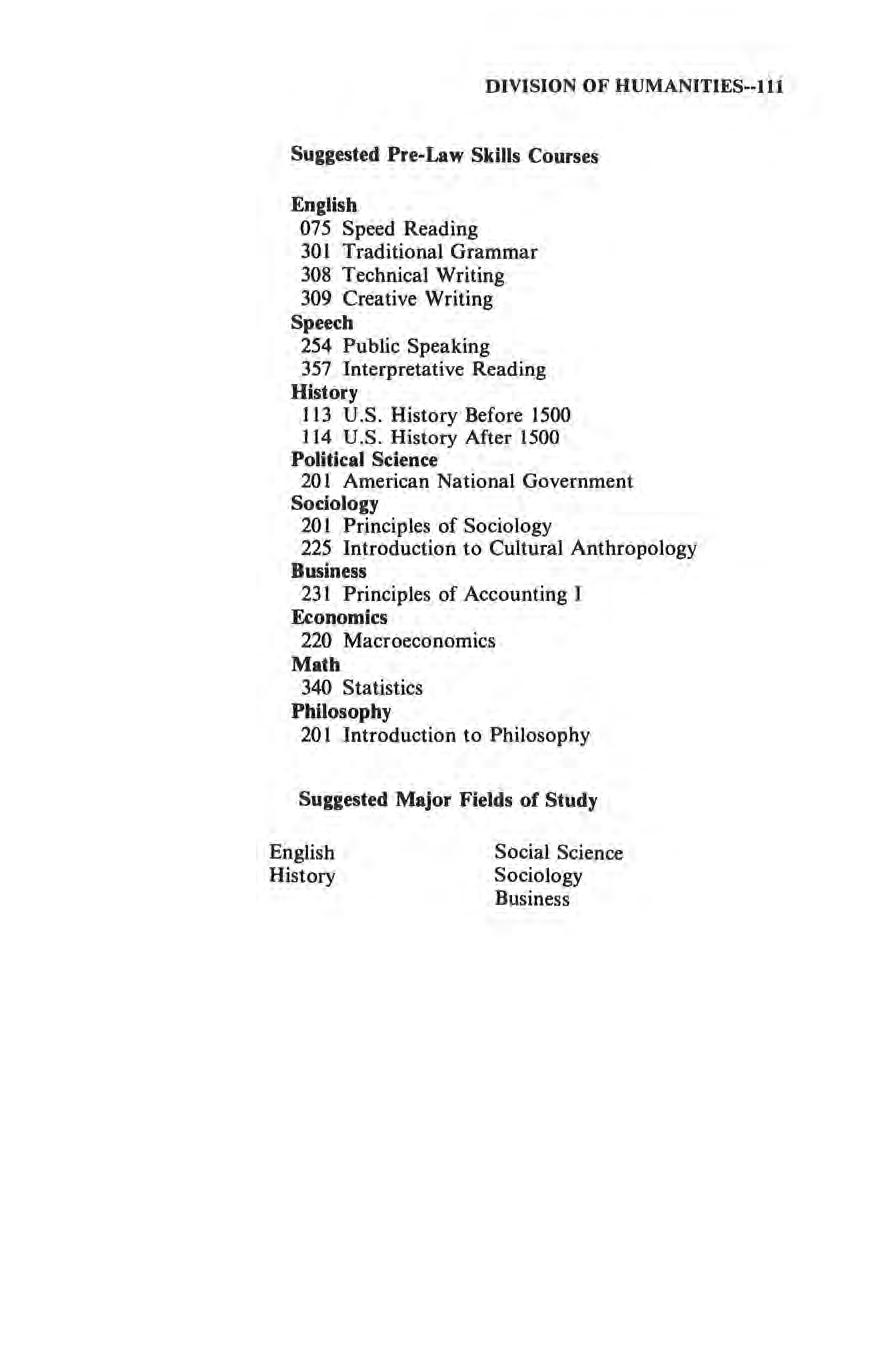
DIVISION OF HUMANITIES--111 Suggested Pre-Law Skills Courses English 075 Speed Reading 301 Traditional Grammar 308 Technical Writing 309 Creative Writing Speech 254 Public Speaking 357 Interpretative Reading History 113 U.S. History Before 1500 114 U.S. History After 1500 Political Science 20 I American National Government Sociology 20 I Principles of Sociology 225 Introduction to Cultural Anthropology Business 231 Principles of Accounting I Economics 220 Macroeconomics Math 340 Statistics Philosophy 20 I Introduction to Philosophy Suggested Major Fields of Study English History Social Science Sociology Business
Course Descriptions
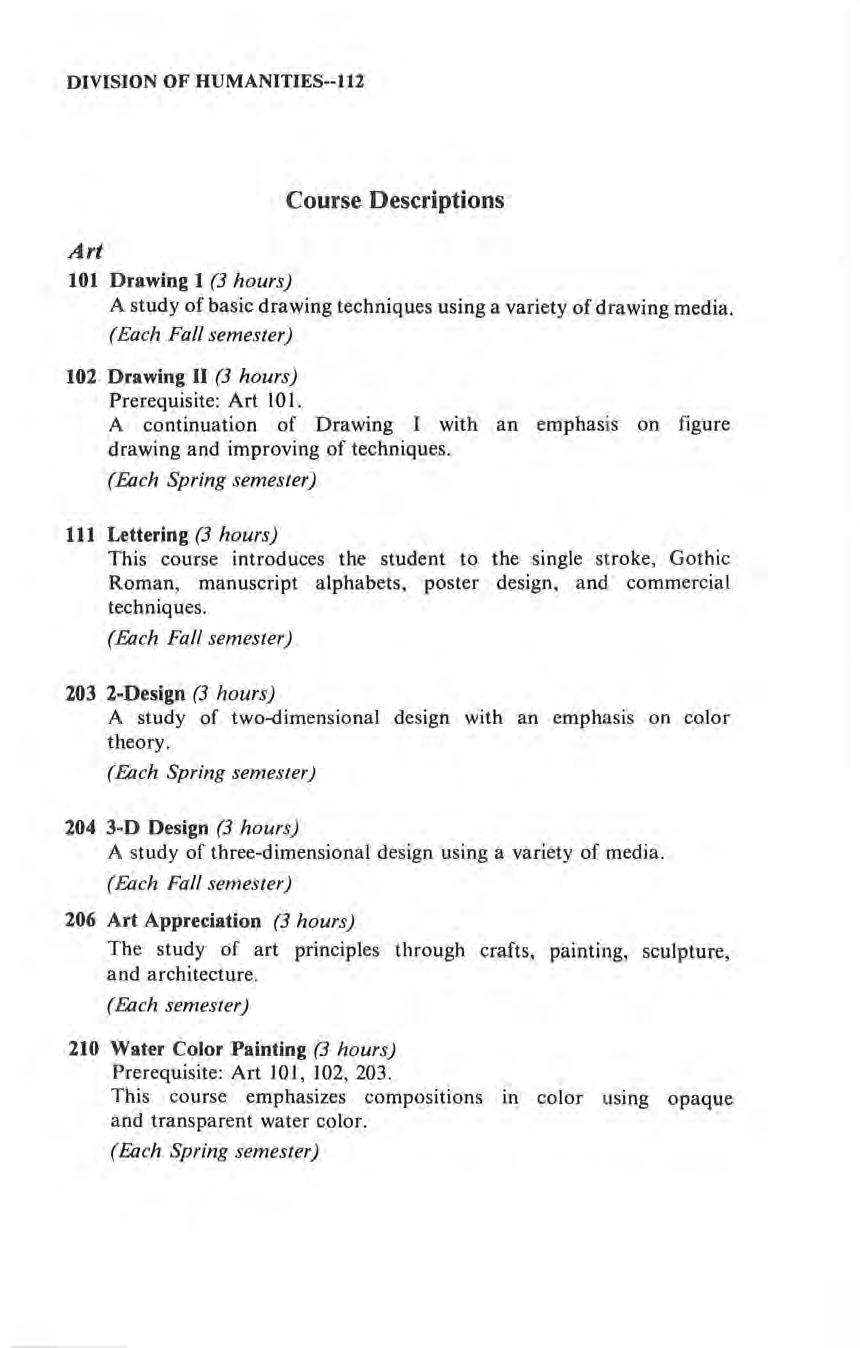
Art
101 Drawing 1 (3 hours)
A study of basic drawing techniques using a variety of drawing media . (Each Fall semester)
102 Drawing II (3 hours)
Prerequisite: Art 10 I.
A continuation of Drawing I with an emphas is on figure drawing and improving of techniques.
(E:ach Spring semester)
111 Lettering (3 hours)
This course introduces the student to the single st roke, Gothic Roman, manuscript alphabets, poster design, and commercial techniques.
(E:ach Fall semester)
203 2-Design (3 hours)
A study of two-dimensional design with an emphasi s on color theory.
(E:ach Spring semester)
204 3-D Design (3 hours)
A study of three-dimensional design using a variety of media
(E:ach Fall semester)
206 Art Appreciation (3 hours)
The study of art principles through crafts , painting, sculpture , and architecture
(E:ach semester)
210 Water Color Painting (3 hours)
Prerequisite: Art IOI, 102, 203 .
T his course emphasizes compositions in color u sing opaque a nd transparent water color.
(E:ach Spring semester)
DIVISION OF HUMANITIES--112
221 Printing Processes (3 hours)
This course introduces the history and techniques of the graphic arts of block printing, etching, lithography , and silk screen printing
(Each Spring semester)
298 Special Topics in Art (1-4 hours)
Freshman - Sophomore standing .
(Offered as needed)
300 Pottery (3 hours)
Prerequisite: Art 204
This course offers experiences in hand - built and thrown projects including a basic study of glaze preparation and clay analysis . Students are limited to 3 hours credit per semester. The course may be repeated for a total of 6 hours.
(Each Fall semester)
305 Methods and Supervision (2 hours)
Prerequisites: Art 101 , 103, and 203 or 204. The study of contemporary art education teaching techniques, lesson plans , teaching experiences, and the ordering of materials with an emphasis upon the use of materials in the school art program.
(Ea ch Spring semester)
308 Art Exploration (3 hours)
A study of the purpose of art education in the elementary school program . The student is presented with a survey of the history and philosophy of art in the elementary school and becomes actively involved in art activities designed for the elementary school classroom.
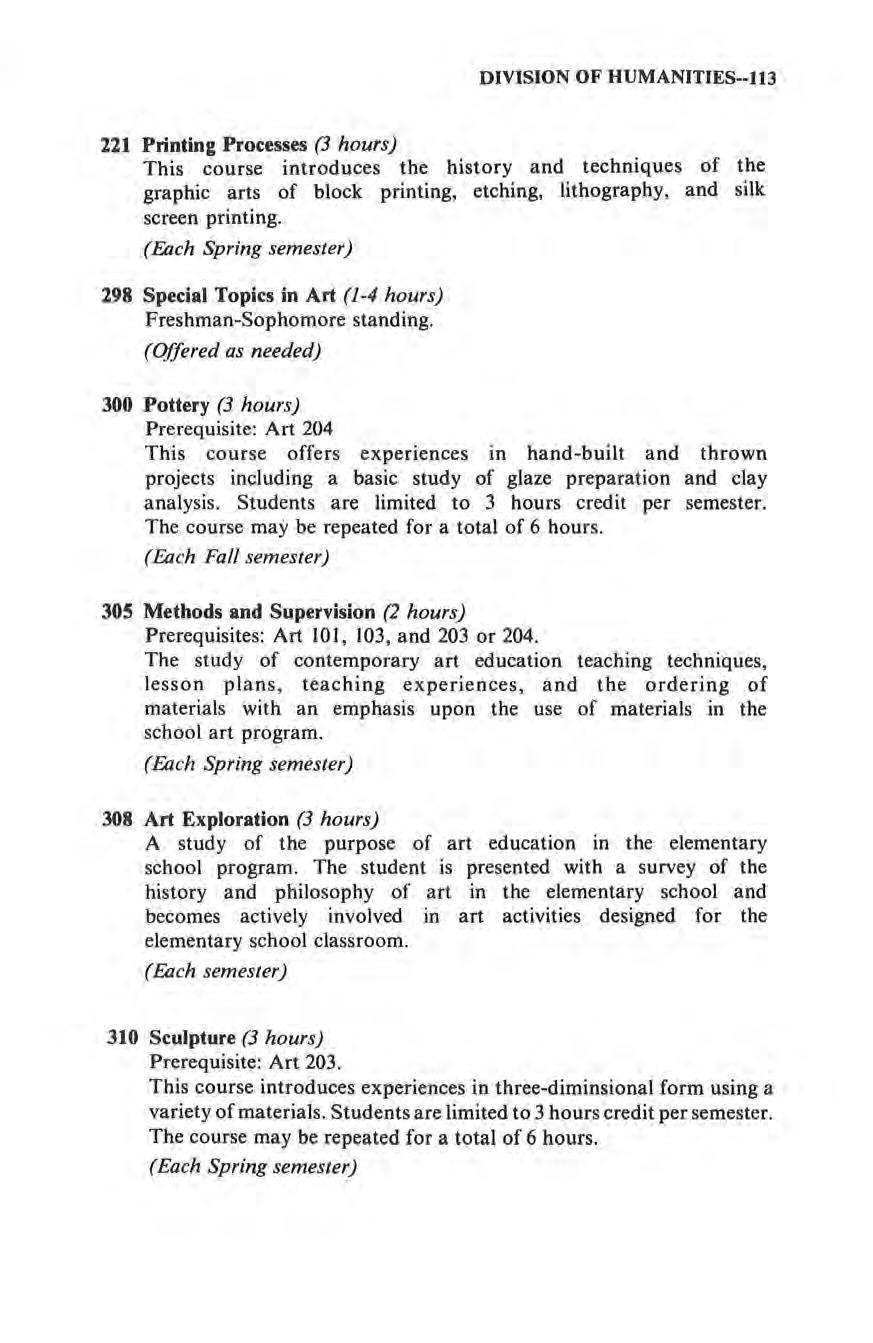
(Each semester)
310 Sculpture (3 hours)
Prerequisite: Art 203.
This course introduces experiences in three-diminsional form using a variety of materials. Students are limited to 3 hours credit per semester. The course may be repeated for a total of 6 hours .
(Each Spring semester)
DIVISION OF HUMANITIES--113
311 Painting (6 hours)
Prerequisite: Art IO I, 203. This course introduces studio act1v1t1es in acrylic painting techniques. Students are limited to 3 hours credi t per semester. The course may be repeated for a total of 6 hours.
(Each Fall semester)
317 Art History I (3 hours)
A study of painting, sculpture, and architecture from ancient times to the Baroque. (Fall semester, even years)
318 Art History II (3 hours)
A study of art from the 1800s through contemporary art trends. (Fall semester, odd years)
325 Figure Drawing (3 hours)
Prerequisite: Art IOI , 102, 203. Figure Drawing is a course that deals with drawing of the human anatomy from live models.
(Each Fall semester)
400 Senior Exhibition (2 hours)
Prerequisite: Senior Standing (Each semester)
498 Special Topics in Art (1-4 hours) J unior-Senior standing.
(Offered as needed)
499 Independent Study in Art (1-3 hours) J unior standing .
(Offered as needed)
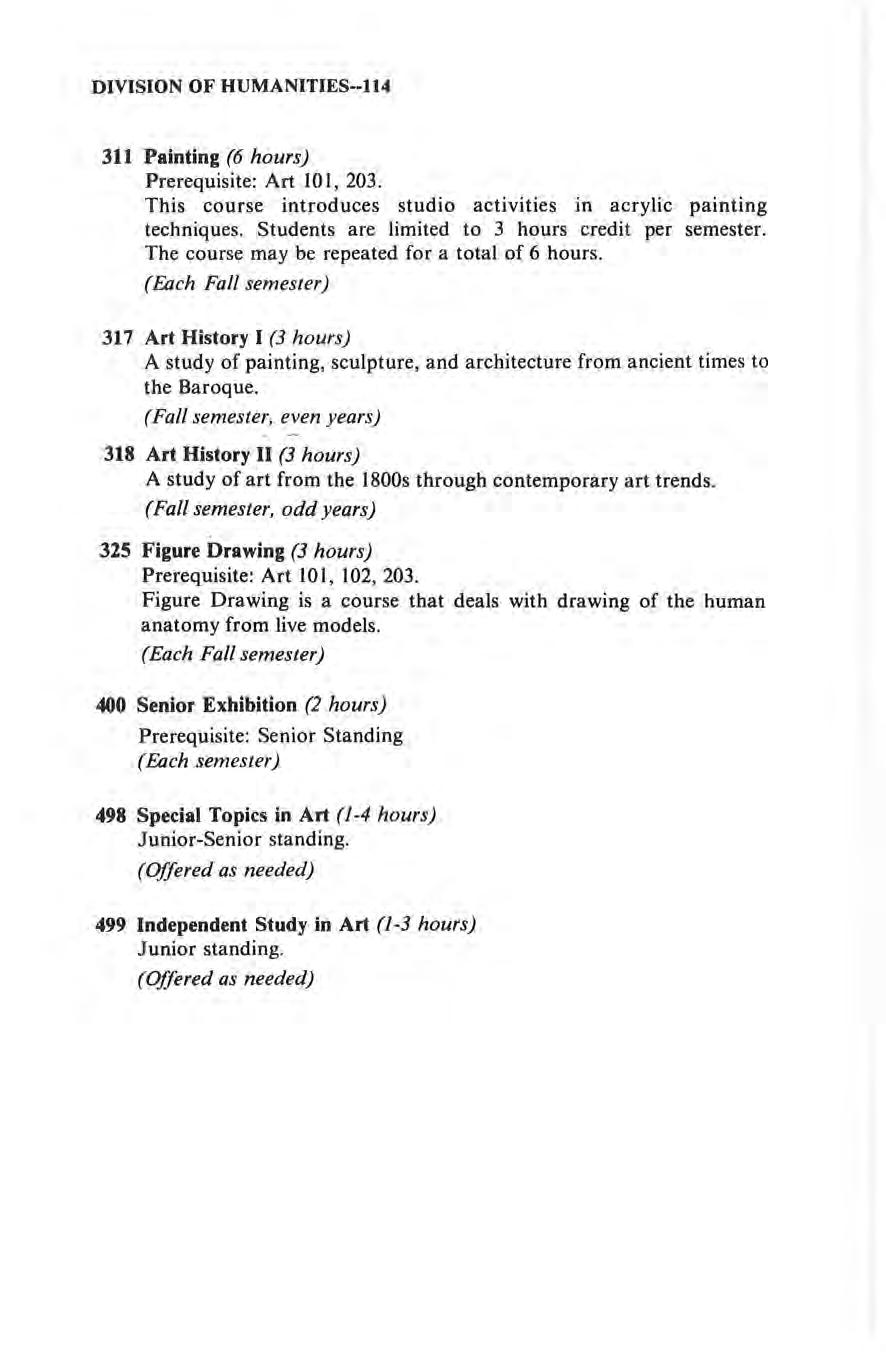
DIVISION OF HUMANITIES--114
College
100 New Student Experience (1 hour)
All degree seeking students enrolled on campus with less than 30 hours at the time of admission are required to take the New Student Experience Course-College 100 .
(&ch semester)
400 Career Strategies (1 hour)
This is a one hour course, open to all majors, designed to teach job hunting techniques: an educational approach for professional development.
(&ch semester)
English
060 Study Skills (1 hour, credit/no credit)
This course is designed to help students improve their time management skills and college-level study habits. Units to be covered will include note-taking, essay exams, time management, and multiple choice and true / false exams. This course is required of all freshman probationary students.
(&ch semester)
070 Basic Reading (1 hour, credit/ no credit)
This course is designed to make use of individual conferences and computer assisted instruction . The course will emphasize reading comprehension and vocabulary improvement with units on content clues, memory, and textbook reference skills. This course is required of students scoring below a 65 on the reading portion of the College Placement Test.
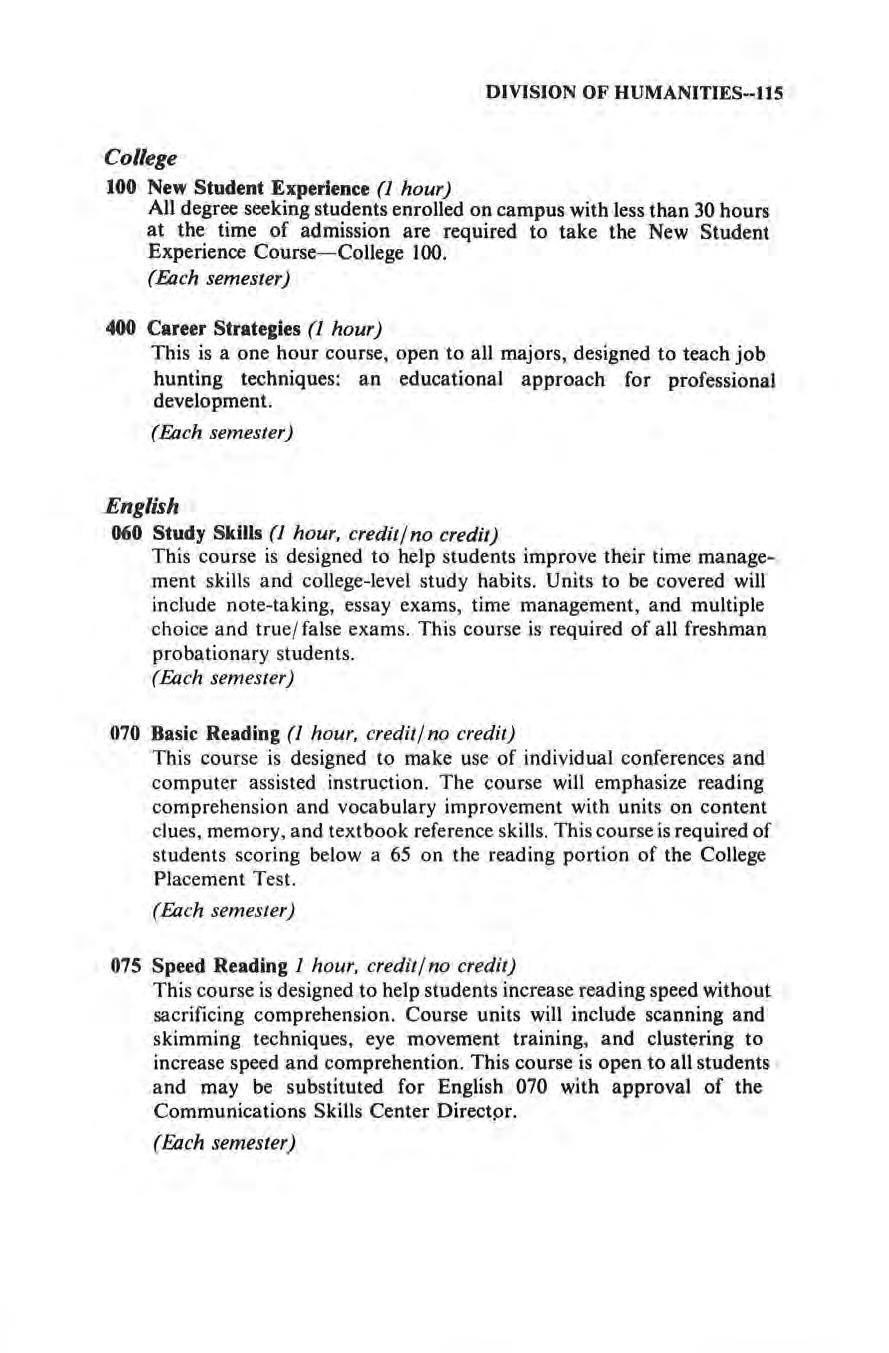
(&ch semester)
075 Speed Reading J hour, credit/ no credit)
This course is designed to help students increase reading speed without sacrificing comprehension. Course units will include scanning and skimming techniques, eye movement training, and clustering to increase speed and comprehention This course is open to all students and may be substituted for English 070 with approval of the Communications Skills Center Directpr.
(F.ach semester)
DIVISION OF HUMANITIES--115
080 Basic Writing (] hour, credit/ no credit)
This course is designed as a review of basic writing skills, including sentence structure, punctuation, and grammar. Through individual conferences and computer assisted instruction, students required to take this course will achieve college-level writing success before they are given a passing grade . This course is required o f all students scoring below a 75 on the College Placement Test or an ACT Rhetorical Skills Score below 6.
(F.ach semester)
101 English Composition (3 hours)
A study of the principles of clear and effective expression as applied to the sentence, paragraph, and the whole composition. A review of grammar, mechanics, and correct usage. Training in organization, and the writing of short and long papers. Required course for all freshmen. (Note: Students who rank at the 85th percentile or higher on the English portion of the ACT may be excused from English IOI)
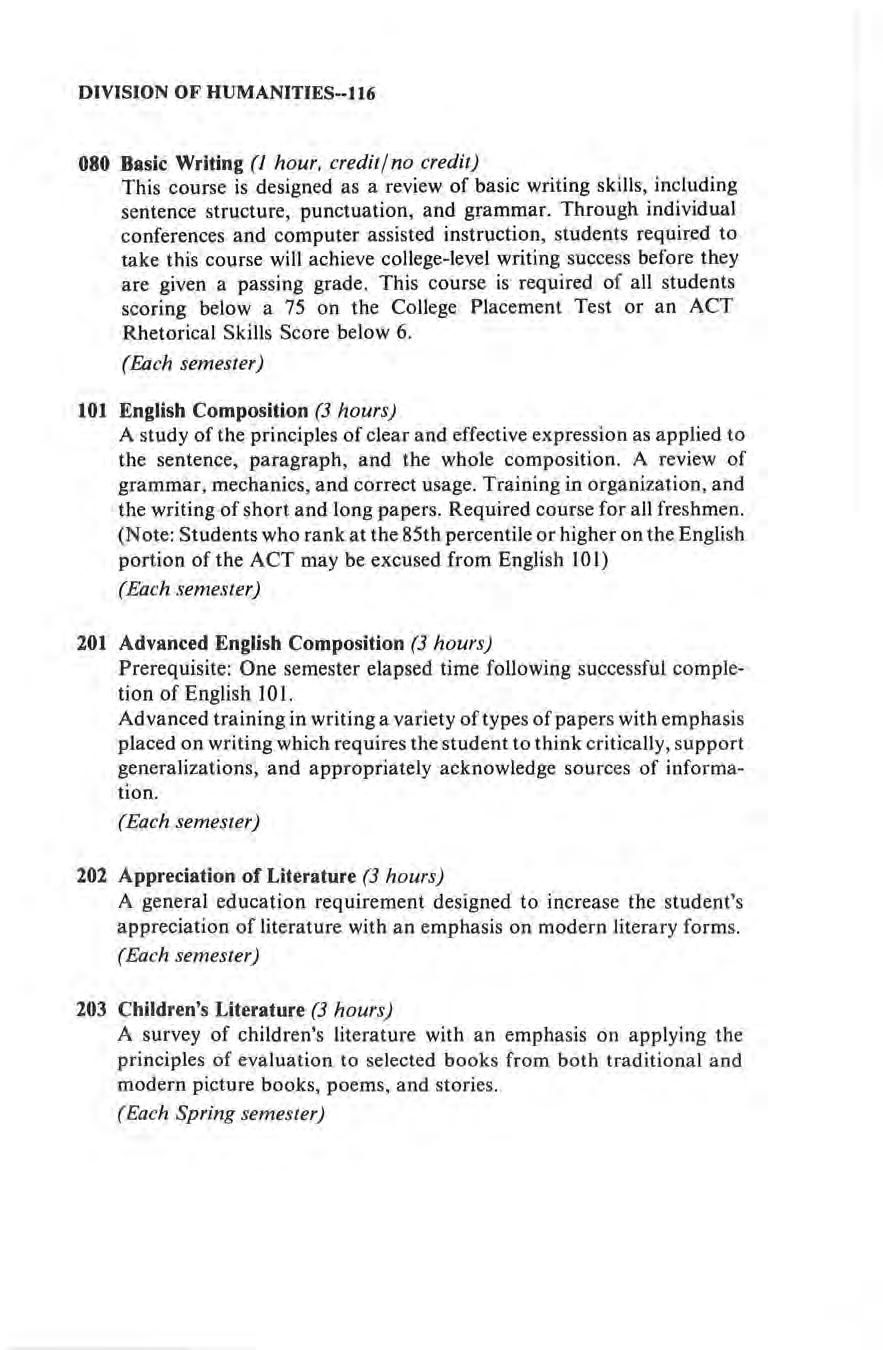
(Each semester)
201 Advanced English Composition (3 hours)
Prerequisite: One semester elapsed time following successful completion of English IO l.
Advanced training in writing a variety of types of papers with emphasis placed on writing which requires the student to think critically, support generalizations, and appropriately acknowledge sources of information.
(Each semester)
202 Appreciation of Literature (3 hours)
A general education requirement designed to increase the student's appreciation of literature with an emphasis on modern literary forms .
(Each semester)
203 Children's Literature (3 hours)
A survey of children's literature with an emphasis on applying the principles of evaluation to selected books from both traditional and modern picture books, poems, and stories
(Each Spring semester)
DIVISION OF HUMANITIES--116
222 The Hellenic-Hebraic Tradition (3 hours)
Prerequisite: English 202.
An introduction to the roots of English literature m Greek, Roman, and Hebrew literature .
(Offered as needed)
225 Short Story (2 hours)
The major emphasis of this course is on the development of the short story in American literature .
(Fall semester, even years)
275 Film Criticism (3 hours)
Prerequisite: English 202 or permission of instructor. An examination of the several points of view from which film may be criticized with an emphasis on authorship and techniques of the film-maker.
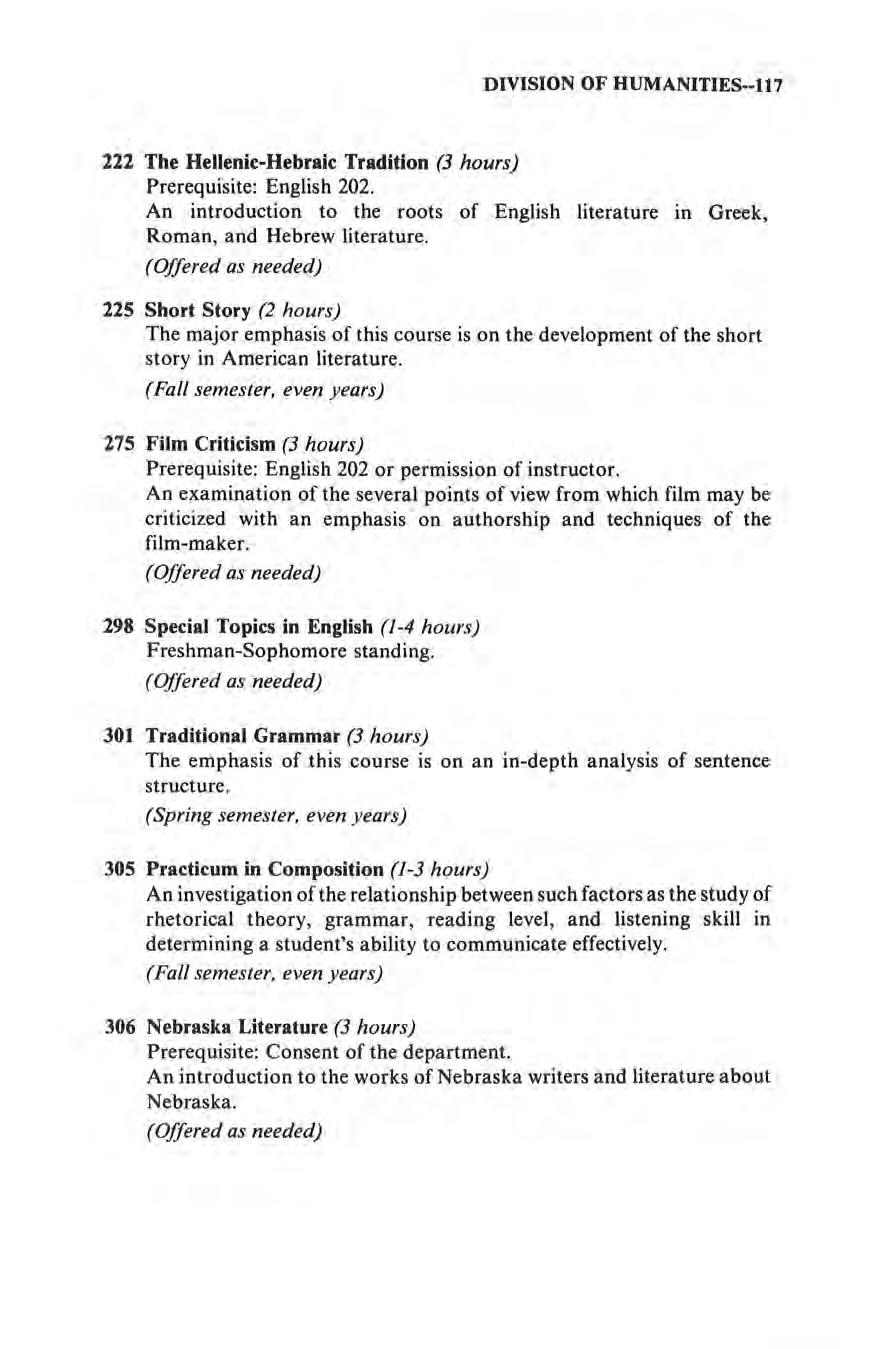
(Offered as needed)
298 Special Topics in English (1 -4 hours)
Freshman-Sophomore standing
(Offered as needed)
301 Traditional Grammar (3 hours)
The emphasis of this course is on an in-depth analysis of sentence structure .
(Spring semester, even years)
305 Practicum in Composition (1-3 hours)
An investigation of the relationship between such factors as the study of rhetorical theory, grammar, reading level, and listening skill in determining a student's ability to communicate effectively.
(Fall semester, even years)
306 Nebraska Literature (3 hours)
Prerequisite : Consent of the department. An introduction to the works of Nebraska writers and literature about Nebraska .
(Offered as needed)
DIVISION OF HUMANITIES--117
307 Seminar in the Modern Novel (3 hours)
A study of modern fiction as it mirrors the philosophical, sociological, psychological, and scientific thought of the twentieth century.
(Fall semester, odd years)
308 Technical Writing (3 hours)
Prerequisite: Ability to type.
A study of business English and communication as well as a study of how to compose and produce the various types of letters used in the business world. This course is approved as an elective for business majors.
(F.ach Spring semester)
309 Creative Writing (3 hours)
A study of description, narration, expos1t10n, and poetry as rhetorical forms with extensive practice in writing .
(Spring semester, even years)
318 Early European Literature (3 hours)
A survey of representative works of European writers from the Norman conquest to the start of the English Romantic period. Emphasis will be placed on English writers.
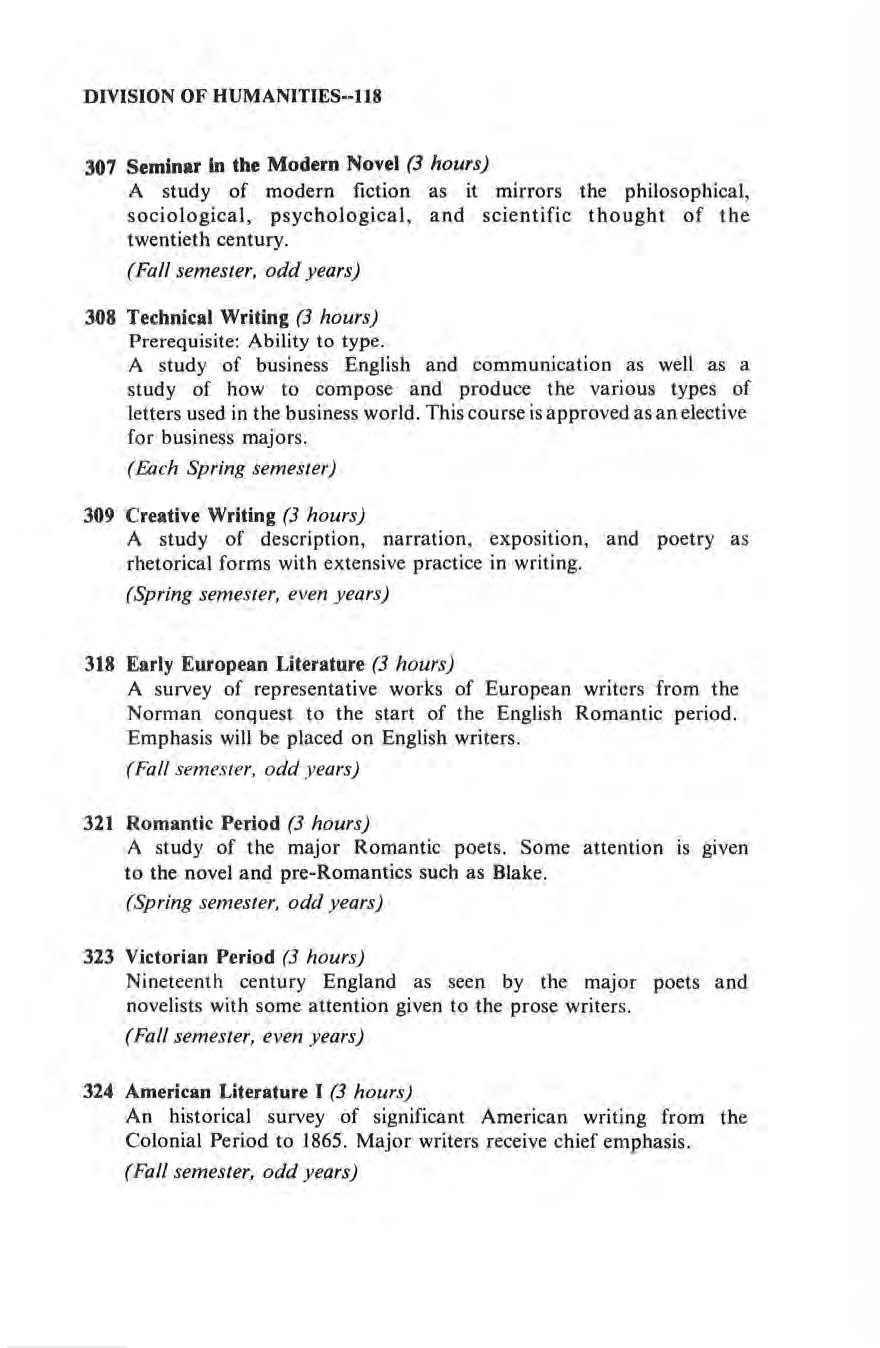
(Fall semester, odd years )
321 Romantic Period (3 hours)
A study of the major Romantic poets. Some attention 1s given to the novel anq pre-Romantics such as Blake.
(Spring semester, odd years)
323 Victorian Period (3 hours)
Nineteenth century England as seen by the major poets and novelists with some attention given to the prose writers.
(Fall semester, even years)
324 American Literature I (3 hours)
An historical survey of significant American wntmg from the Colonial Period to 1865. Major writers receive c hief emphasis.
(Fall semester, odd years)
DIVISION OF HUMANITIES--118
325 American Literature II (3 hours)
A continuation of English 324 from 1865 to present. (Spring semester, even years)
328 Modern Poetry (3 hours)
A study of British and American poetry of this century and its relevance to contemporary literature and life. (Spring semester, even years)
405 Teaching English and Speech (2 hours)
A study of the basic objectives and the scope of English , speech, and debate in the secondary curriculum. Current techniques used in teaching the three areas are examined and evaluated . (Spring semester, even years)
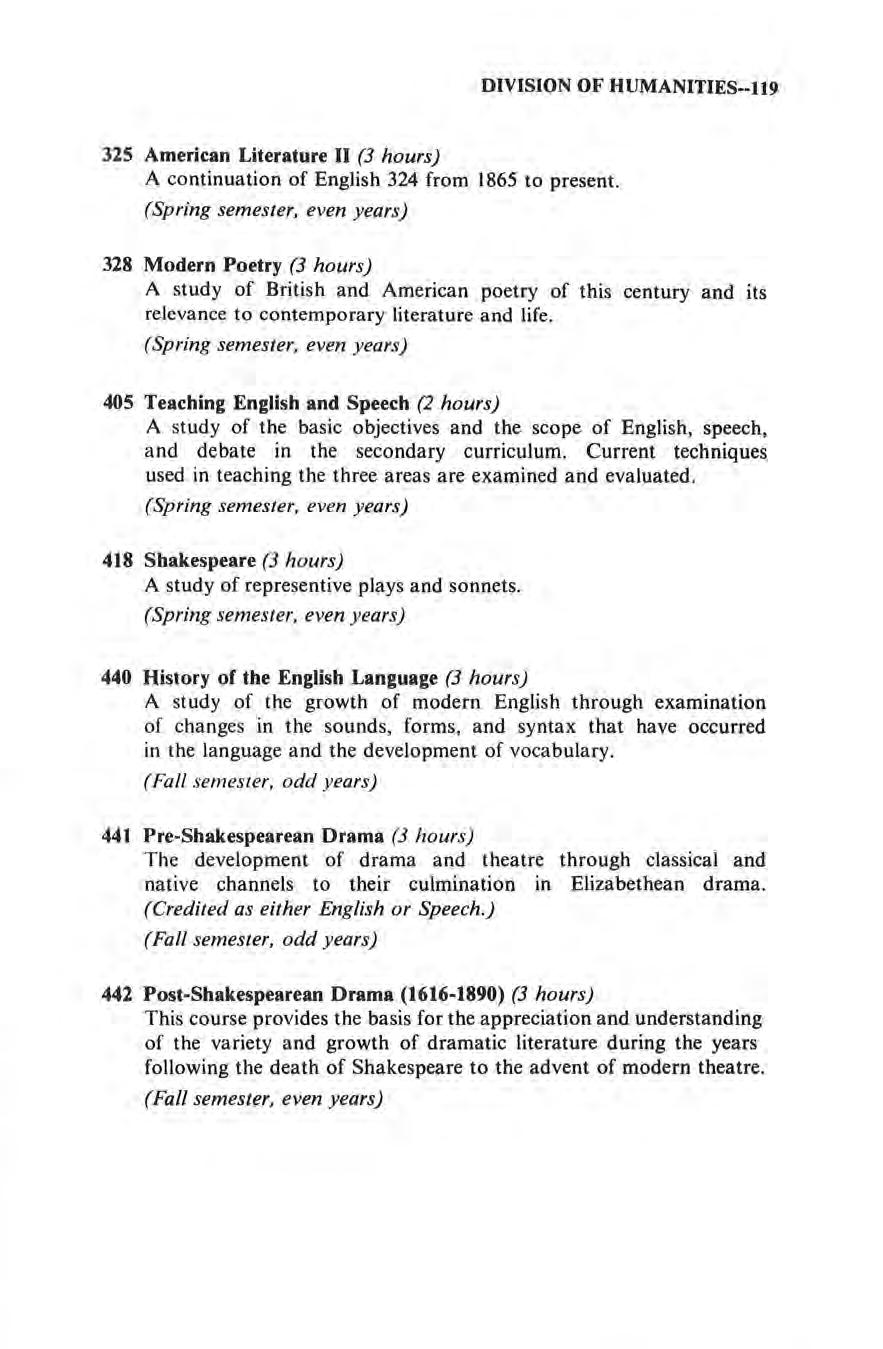
418 Shakespeare (3 hours)
A study of representive plays and sonnets. (Spring semester, even y ears)
440 History of the English Language (3 hours)
A study of the growth of modern English through examination of changes in the sounds, forms, and syntax that have occurred in the language and the development of vocabulary (Fall semester, odd years)
441 Pre-Shakespearean Drama (3 hours)
The development of drama and theatre through classical and native channels to their culmination in Elizabethean drama . (Credited as either English or Speech.) (Fall semester, odd years)
442 Post-Shakespearean Drama (1616-1890) (3 hours)
This course provides the basis for the appreciation and understanding of the variety and growth of dramatic literature during the years following the death of Shakespeare to the advent of modern theatre. (Fall semester, even years)
DIVISION OF HUMANITIES--119
443 Modern Drama 1890-present (3 hours)
This course provides the student the opportunity to follow the growth of modern dramatic techniques in the western world, the interaction of these techniques with the modern movements in art, music and other art forms, and to make the student aware of his recent heritage of dramatic literature and its position in the world of thought and emotion.
(Spring semester, odd years)
498 Special Topics in English (1-4 hours)
Junior-Senior standing.
(Offered as needed)
499 Independent Study in English (1-3 hours) Junior standing.
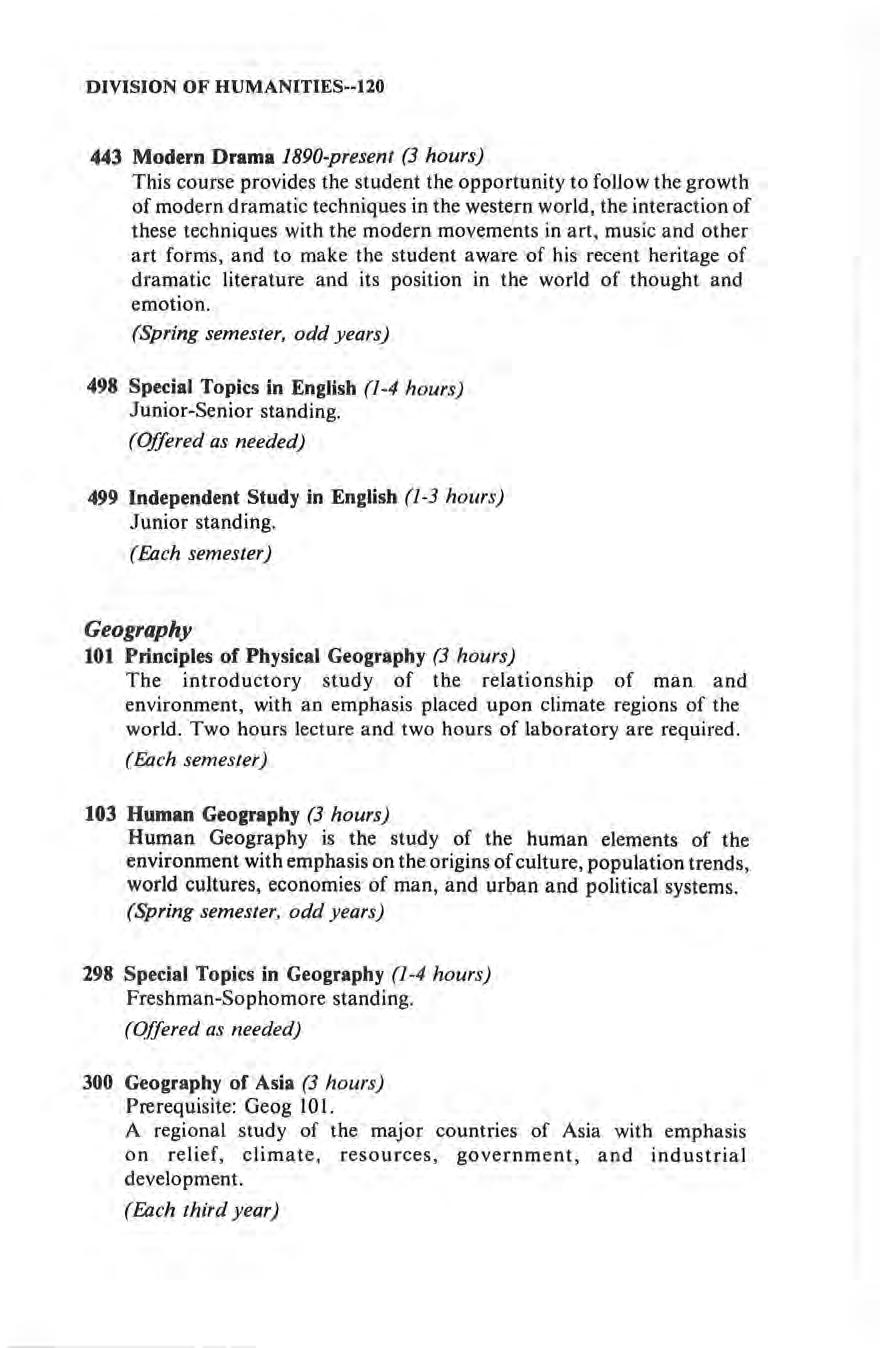
(F.ach semester)
Geography
101 Principles of Physical Geography (3 hours)
The introductory study of the relationship of man and environment, with an emphasis placed upon climate regions of the world. Two hours lecture and two hours of laboratory are required.
(F.ach semester)
103 Human Geography (3 hours)
Human Geography is the study of the human elements of the environment with emphasis on the origins of culture, population trends, world cultures, economies of man, and urban and political systems.
(Spring semester, odd years)
298 Special Topics in Geography (1-4 hours)
Freshman-Sophomore standing.
(Offered as needed)
300 Geography of Asia (3 hours)
Prerequisite: Geog IO I. A regional study of the major countries of Asia with emphasis on relief, climate, resources, government, and industrial development.
(F.ach third year)
DIVISION OF HUMANITIES--120
305 Economic Geography (3 hours)
Prerequisite: Geog IOI and 103 .
An analysis of world land resources, agricultural products, forest and marine resources , basic mining industries, manufacturing, trade patterns, and transportation routes.
(Spring semester, odd years)
310 Geography of Africa (3 hours)
Prerequisite: Geog IO I.
A geographical analysis of the continent. Emphasis is placed upon the recent spirit of nationalism and the economic and physical base of selected nations.
(Offered as needed)
311 Urban Geography (3 hours)
Study of the origin, distribution ; internal structure and functions of urban developments with an , emphasis on location features of economics and cultural phenomena. (Fall semester, each third year)
312 Geography of Anglo-America (3 hours)
Prerequisite: Geog IO I or senior standing. A study of the United States and Canada by natural regions. In each case an evaluation of the physical and economic base will be made in the light of the present economic condition.
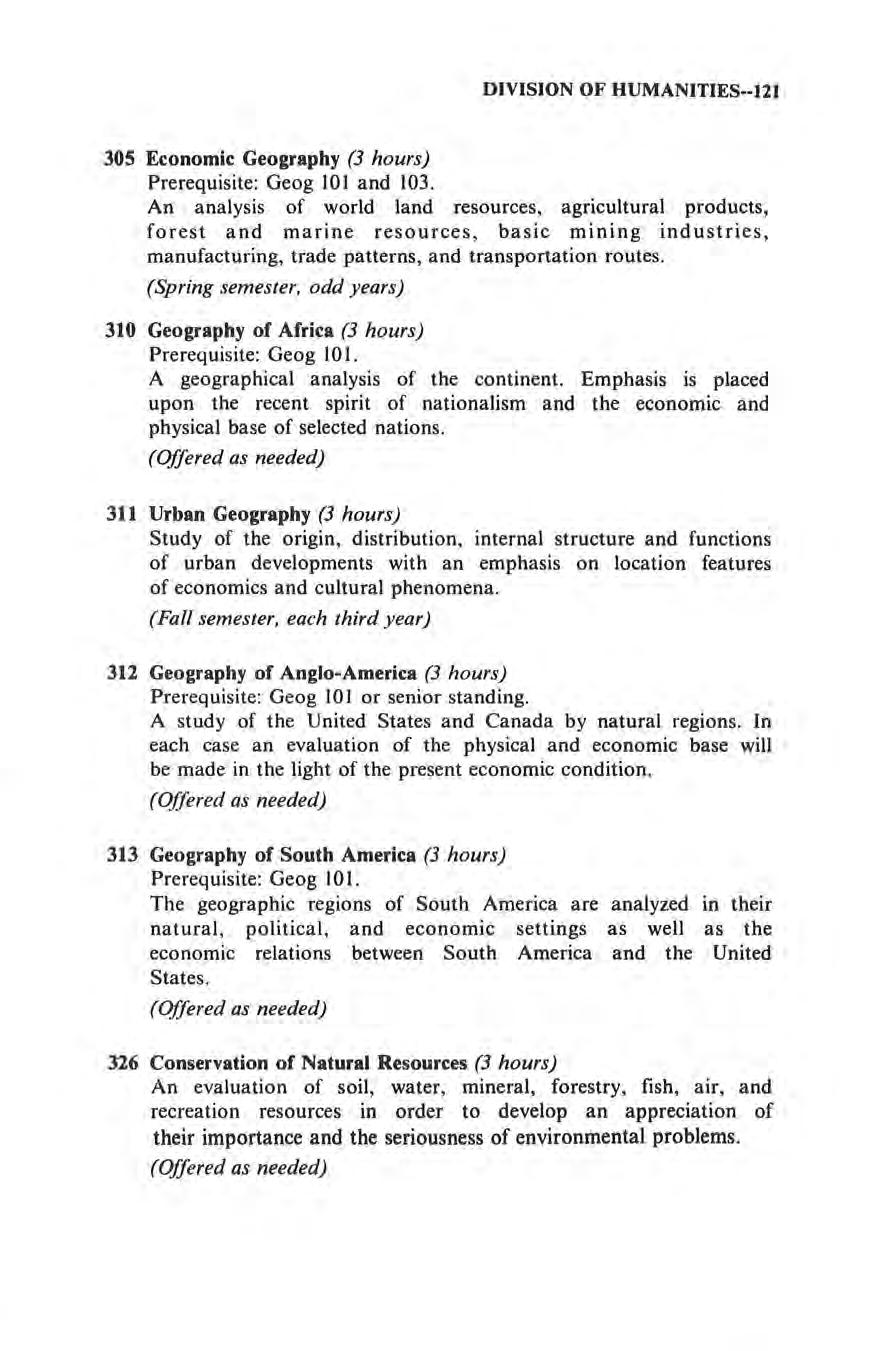
(Offered as needed)
313 Geography of South America (3 hours)
Prerequisite: Geog 10 I.
The geographic regions of South America are analyzed in their natural , political, and economic settings as well as the economic relations between South America and the United States,
(Offered as needed)
326 Conservation of Natural Resources (3 hours)
An evaluation of soil, water, mineral, forestry, fish, air, and recreation resources in order to develop an appreciation of their importance and the seriousness of environmental problems. (Offered as needed)
DIVISION OF HUMANITIES--121
404 History and Philosophy of Geography (2 hours)
Prerequisite: Geog IOI and 103.
A study of the basic philosophies of geography including the study of the basic geographic thought from ancient to modern times. Independent study through readings and research papers. (Spring semester, each third year)
497 Political Geography (3 hours)
Prerequisites: Geog IOI and 103 .
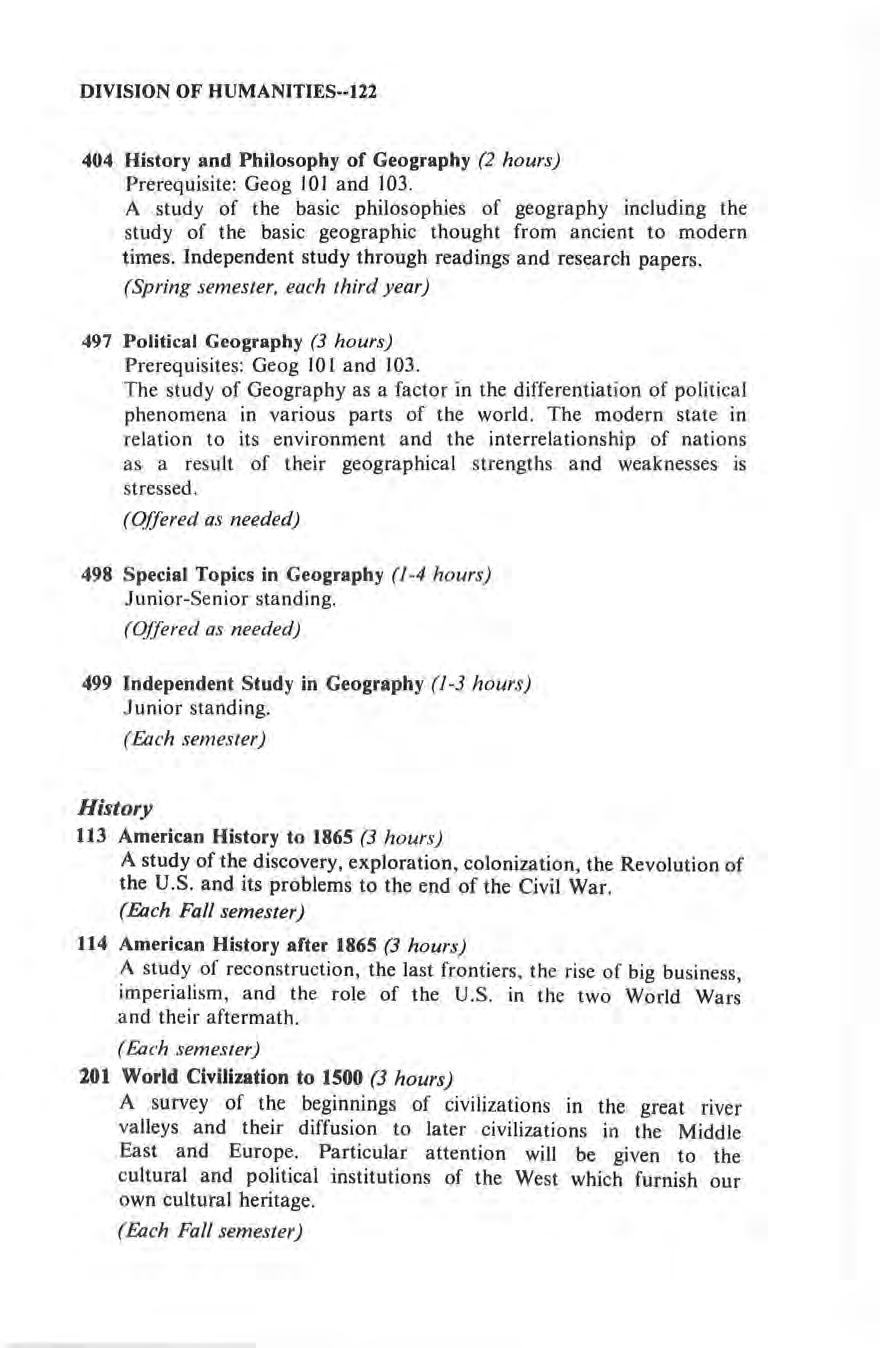
T he study of Geography as a factor in the differentiat ion of political phenomena in various parts of the world. The modern state in relation to its environment and the interrelationship . of nations as a result of their geographical strengths and weaknesse s is stressed.
(Offered as needed)
498 Special Topics in Geography (1-4 hours) Junior-Senior standing.
(Offered as needed)
499 Independent Study in Geography (1-3 hours) Junior standing. ( &ch semester)
History
113 American History to 1865 (3 hours)
A study of the discovery, exploration, colonization, the Revolution of the U.S and its problems to the end of the Civil War (&ch Fall semester)
114 American History after 1865 (3 hours)
A study of reconstruction, the last frontiers, the rise of big business, imperialism , and the role of the U.S. in · the two World Wars and their aftermath .
(& ch semester)
201 World Civilization to 1500 (3 hours)
A survey of the beginnings of civilizations in the great river valleys and their diffusion to later civilizations in the Middle East and Europe. Particular attention will be given to the cultural and political institutions of the West which furnish our own cultural heritage.
(& ch Fall semester)
DIVISION OF HUMANITIES--122
202 World Civilization Since 1500 (3 hours)
The rise and decline of European predominance will be analyzed with emphasis upon the major social, political, and economic ideologies and institutions that evolved.
( Each Spring semester)
298 Special Topics in History (1 -4 hours)
Freshman-Sophomore standing.
(Offered as needed)
301 Colonial America (3 hours)
Prerequisite: History 113 or instructor's permission. A study of colonial rivalry between the Spanish, French, English, and Dutch in North America, the Revolution, and U.S. history to 1823.
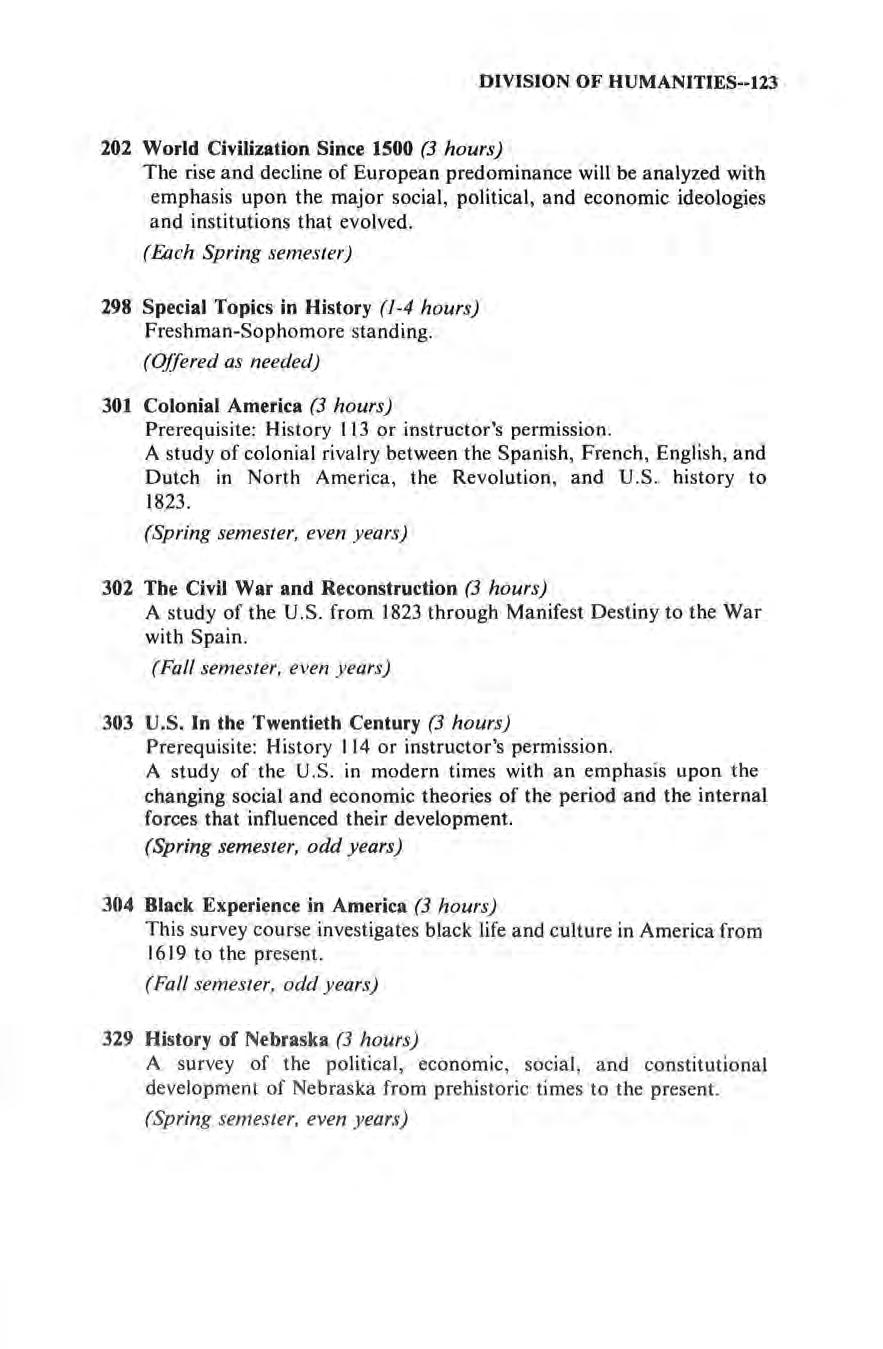
(Spring semester, even years)
302 The Civil War and Reconstruction (3 hours)
A study of the U.S. from 1823 through Manifest Destiny to the War with Spain.
(Fall semester, even years )
303 U.S. In the Twentieth Century (3 hours)
Prerequisite: History 114 or instructor's permission.
A study of the U.S. in modern times with an emphasis upon the changing social and economic theories of the period and the internal forces that influenced their development.
(Spring semester, odd years)
304 Black Experience in America (3 hours)
This survey course investigates black life and culture in America from 1619 to the present.
(Fall semester, odd years)
329 History of Nebraska (3 hours)
A survey of the political, economic , social, and constitutional development of Nebraska from prehistoric times to the present.
(Spring semester, even years)
DIVISION OF HUMANITIES--123
343 English History from 1688 (3 hours)
Prerequisite: History 202 or instructor's permission. A survey of the social, political, and economic development of England since the Glorious Revolution. The course covers the social and religious impact of the English Parliamentary system, the effects of the Industrial Revolution upon the British Empire, and the prospects of the modern welfare state of contemporary England.
(Spring semester, odd years)
345 Modern Europe (3 hours)
Prerequisite: History 202 or instructor's permission. A comparative historical analysis of the ongoing process of modernization in Europe. The emphasis is on movements and institutions such as Liberalism, Conservatism, Romanticism, Socialism, Imperialism, and Totalitarianism from 1815 to the present.
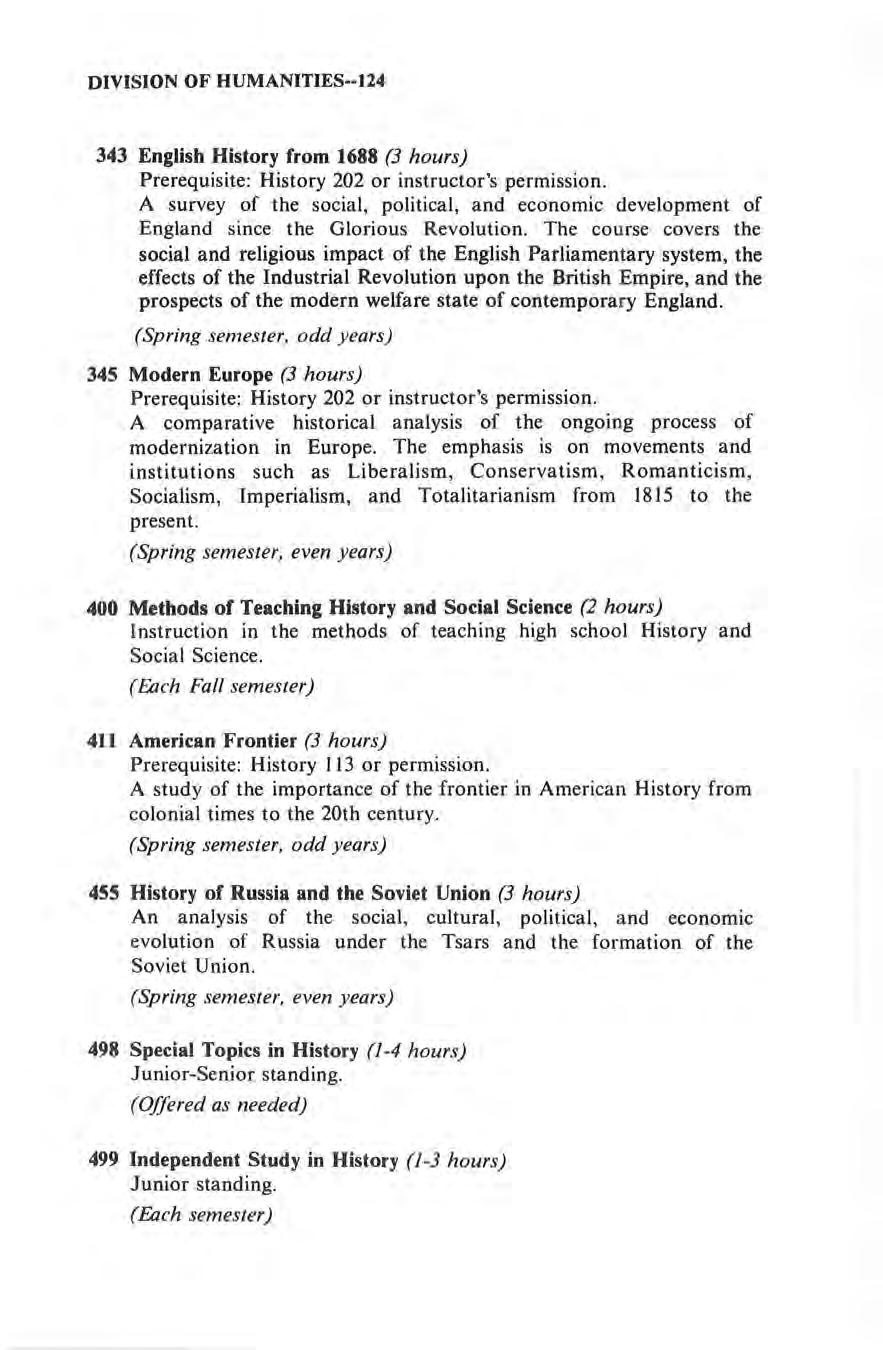
(Spring semester, even years)
400 Methods of Teaching History and Social Science (2 hours)
Instruction in the methods of teaching high school History and Social Science.
(&ch Fall semester)
411 American Frontier (3 hours)
Prerequisite: History 113 or permission. A study of the importance of the frontier in American History from colonial times to the 20th century.
(Spring semester, odd years)
455 History of Russia and the Soviet Union (3 hours)
An analysis of the social , cultural, political, and economic evo lution of Russia under the Tsars and the formation of the Soviet Union.
(Spring semester, even years)
498 Special Topics in History (1-4 hours) Junior-Senior standing. (Offered as needed)
499 Independent Study in History (1-3 hours) Junior standing. (E,ach semester)
DIVISION OF HUMANITIES--124
Humanities
441 Cooperative Education Internship (1-12 hours)
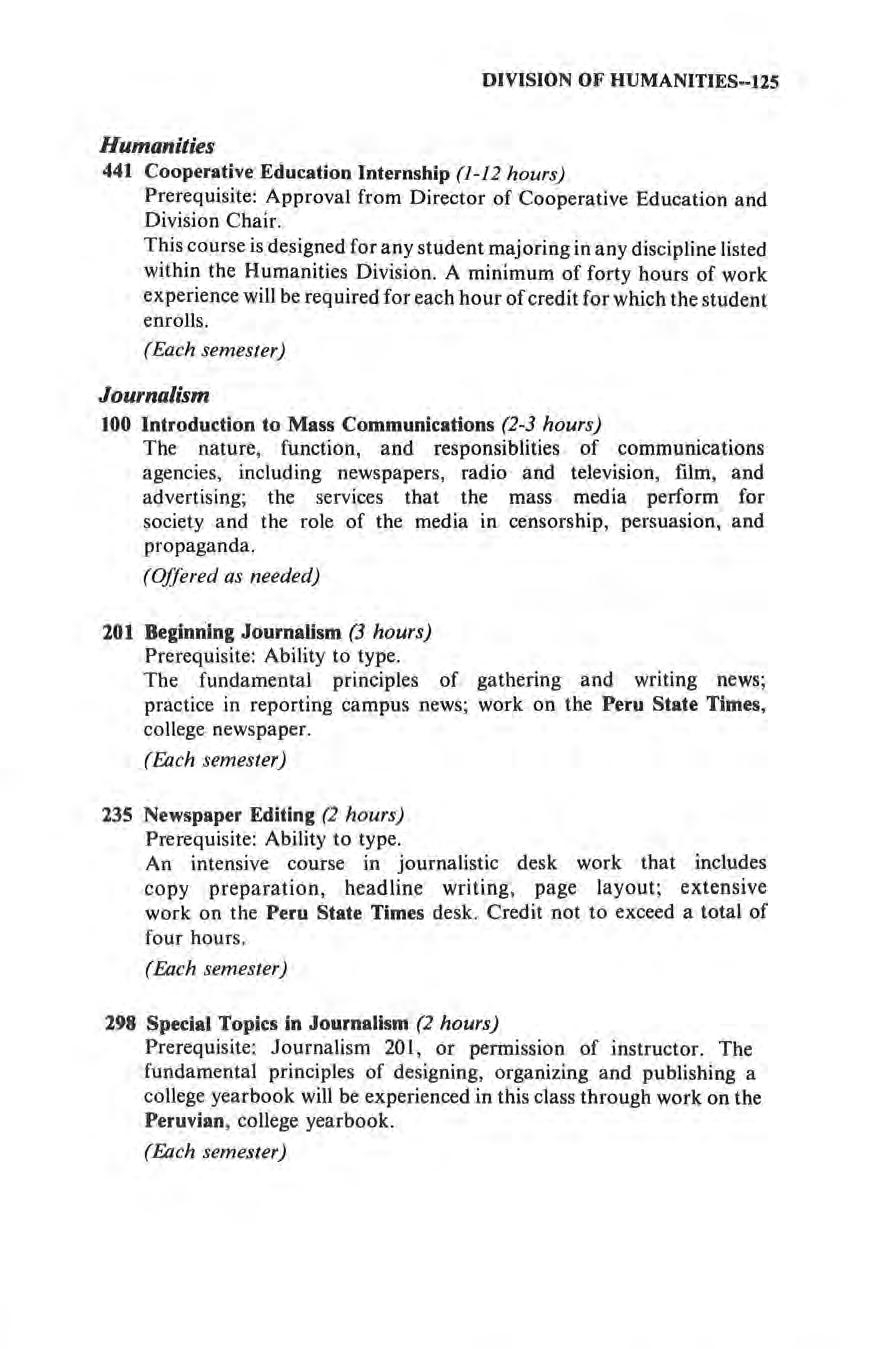
Prerequisite: Approval from Director of Cooperative Education and Division Chair .
This course is designed for any student majoring in any discipline listed within the Humanities Division . A minimum of forty hours of work experience will be required for each hour of credit for which the student enrolls.
(Each semester)
Journalism
100 Introduction to Mass Communications (2-3 hours)
The nature, function, and responsiblities of communications agencies, including newspapers, radio and television, film, and advertising; the services that the mass media perform for society and the role of the media in censorship, persuasion, and propaganda.
(Offered as needed)
201 Beginning Journalism (3 hours)
Prerequisite: Ability to type. The fundamental principles of gathering and wntmg news; practice in reporting campus news; work on the Peru State Times, college newspaper.
(F.ach semester)
235 Newspaper Editing (2 hours)
Prerequisite: Ability to type.
An intensive course in journalistic desk work that includes copy preparation, headline writing, page layout; extensive work on the Peru State Times desk. Credit not to exceed a total of four hours.
(F.ach semester)
298 Special Topics in Journalism (2 hours)
Prerequisite : Journalism 20 l, or permission of instructor. The fundamental principles of designing, organizing and publishing a college yearbook will be experienced in this class through work on the Peruvian, college yearbook.
(F.ach semester)
DIVISION OF HUMANITIES--125
300 Communications Law (3 hours)
A study of the media's legal context with an emphasis on the iss ues of libel, contempt, access to public records, invasion of privacy, criticism, and copyright.
(Spring semester, odd years)
401 Journalism Practicum (1-6 hours)
Prerequisite: Ability to type, Journ 201,235, 298, 498. Practicum students will be involved in the production of the college newspaper and / or college yearbook. Credit not to exceed one credit hour each semester.
(E:ach semester)
498 Special Topics in Journalism (2 hours)
Prerequisite: Journalism 298. A continuation of Journalism 298 involving advanced techniques in layout and design.
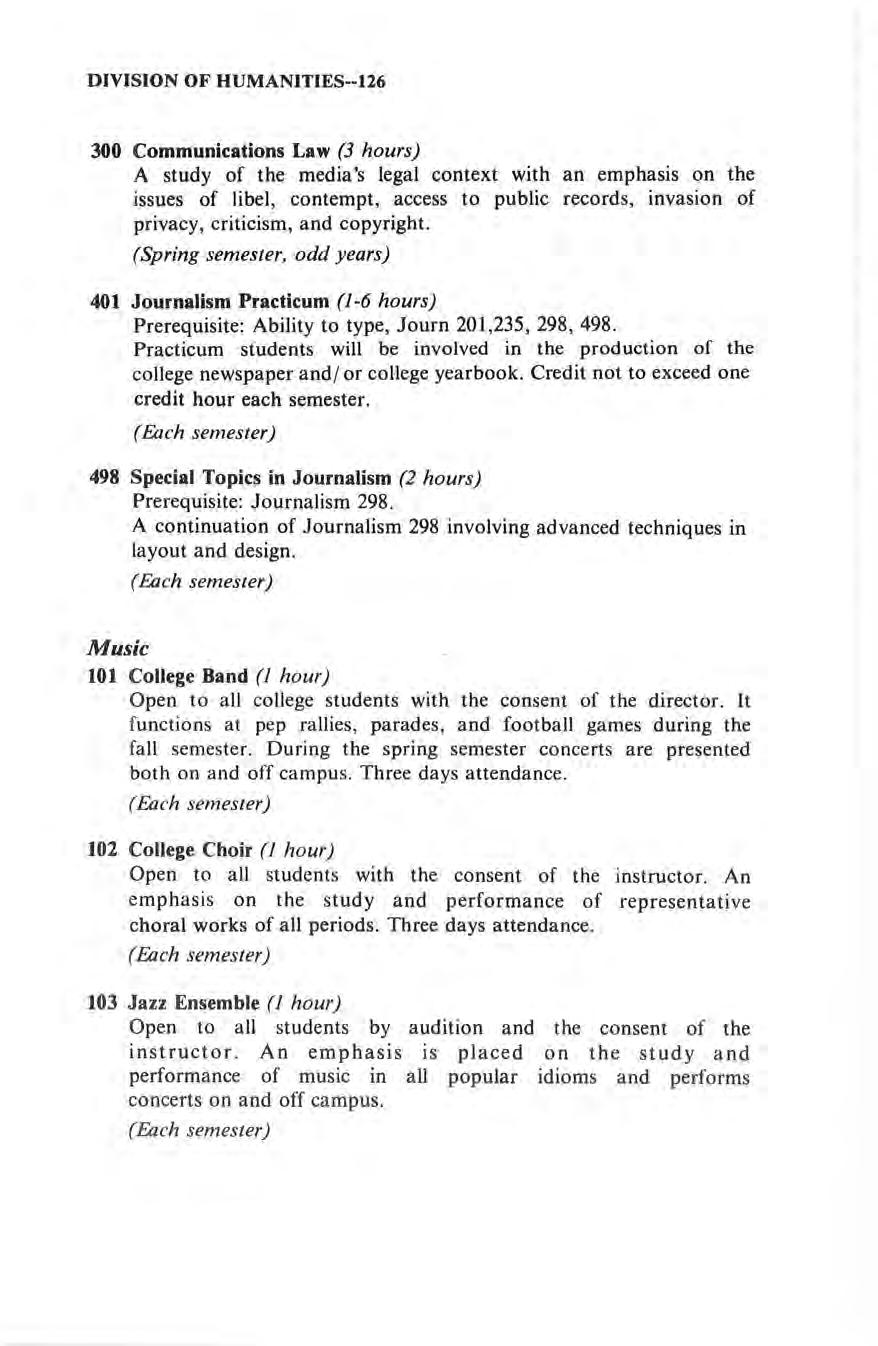
(E:ach semester)
Music
101 College Band (1 hour)
Open to all college students with the consent of the director It functions at pep rallies, parades, and football games during the fall semester. During the spring semester concerts are presented both on and off campus. Three days attendance.
( E:ach semester)
102 College Choir (1 hour)
Open to all students with the consent of the instructor. An e mphasis on the study and performance of representative choral works of all periods. Three days attendance.
( E:ach semester)
103 Jazz Ensemble (1 hour)
Open to all st udent s by audition and the consent of the instructor. An emphasis is placed on the study and performance of music in all popular idioms and performs concerts on and off campus.
(E:ach semester)
DIVISION OF HUMANITIES- - 126
104 Vocal Jazz Ensemble (1 hour)
Open to all students by audition and consent of the instructor
An emphasis is placed on study and performance of vocal music in all popular idioms and performs concerts on and off campus.
(Each semester)
105 Brass Chamber Ensemble (] hour)
Open to all students with the consent of the instructor. An emphasis is placed upon the study and performance of brass literature in all the chamber music idioms and concerts are performed on and off campus.
(Each semester)
106 Woodwind Chamber Ensemble(] hour)
Open to all students with the consent of the instructor. An emphasis is placed upon the study and performance of woodwind literature in all the chamber music idioms and concerts are performed on and off campus.
( Each semester)
107 Vocal Chamber Ensemble(] hour)
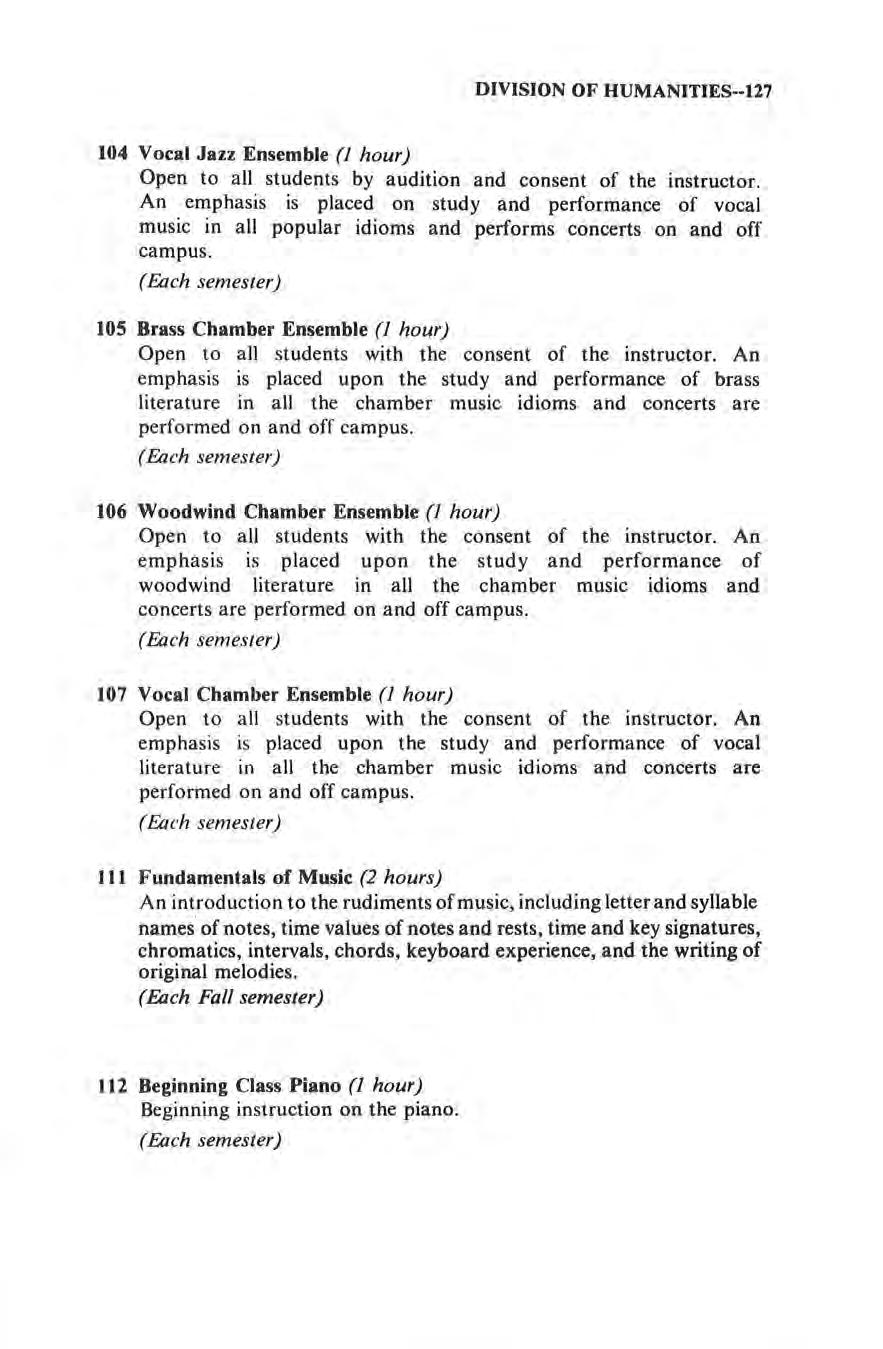
Open to all students with the consent of the instructor. An emphasis is placed upon the study and performance of vocal literature in all the chamber music idioms and concerts are performed on and off campus.
(Each semester)
111 Fundamentals of Music (2 hours)
An introduction to the rudiments of music, including letter and syllable names·of notes, time values of notes and rests, time and key signatures, chromatics, intervals, chords, keyboard experience, and the writing of original melodies.
(Each Fall semester)
112 Beginning Class Piano (] hour)
Beginning instruction on the piano.
(Each semester)
DIVISION OF HUMANITIES--127
113 Beginning Class Guitar (] hour)
An introduction to the basic chords, melodies, note reading, tuning, and styles of performance for the beginning guitarist. (Each semester)
121 Applied Music-Voice (1-2 hours)
Private voice instruction on the freshman level. (&ch semester)
122 Applied Music-Woodwinds (1-2 hours)
Private woodwind instruction on the freshman level. (Each semester)
123 Applied Music-Brass (1-2 hours)
Private brass instruction on the freshman level. (Each semester)
124 Applied Music-Percussion (1-2 hours)
Private percussion instruction on the freshman level. (Each semester)
125 Applied Music-Keyboard (1-2 hours)
Private keyboard instruction on the freshman level. (Each semester)
131 Applied Music-Voice (1-2 hours)
Prerequisite: Music 121.
Continuation of private voice instruction on the advanced freshman level. (Each semester)
132 Applied Music-Woodwinds (1-2 hours)
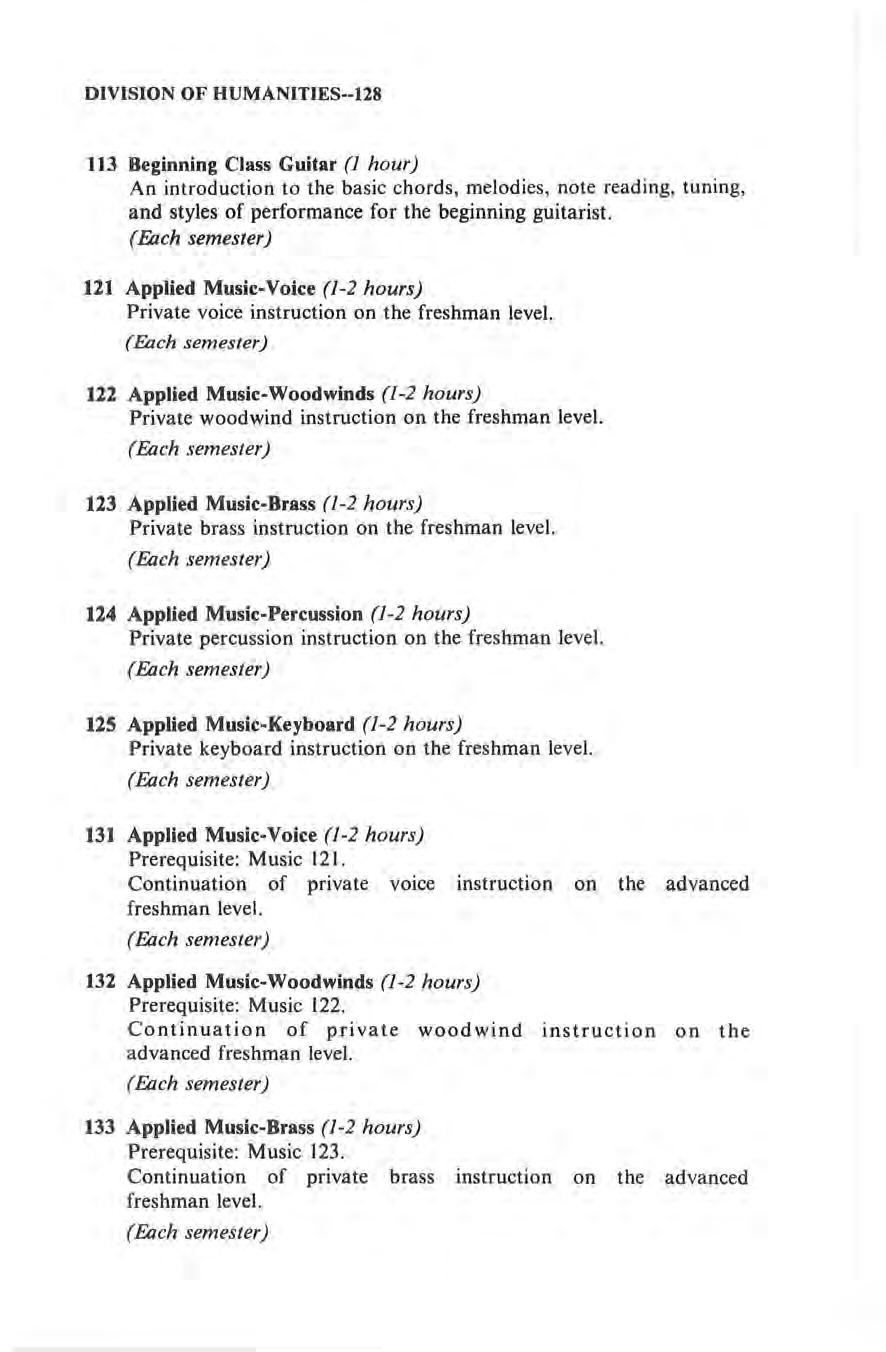
Prerequisite: Music 122 .
Continuation of private woodwind instruction on the advanced freshman level. (Each semester)
133 Applied Music-Brass (1-2 hours)
Prerequisite: Music 123.
Continuation of private brass instruction on the advanced freshman level. (Each semester)
DIVISION OF HUMANITIES--128
134 Applied Music-Percussion (1-2 hours)
Prerequisite: Music 124
Continuation of private percussion instruction on the advanced freshman level.
(Each semester)
135 Applied Music-Keyboard (1-2 hours)
Prerequisite: Music 125.
Continuation of private keyboard instruction on the advanced freshman level.
(Each semester)
141 Music Theory I (3 hours)
This course is an integrated study of the theoretical practices of the 18th and 19th centuries. It includes a review of clefs, scales, key signatures, intervals, triads, and basic rhythmic notation, studies in melodic, rhythmic, and harmonic dictation, and sightsinging
(Each Fall semester)
142 Music Theory II (3 hours)
Prerequisite: Music 141
This course is an integrated study of the theoretical practices of the 18th and 19th centuries. It includes the study of secondary triads, six-four chords, dominant and supertonic sevenths, elementary modulation, studies in melodic rhythmic and harmonic dictation and sightsinging .
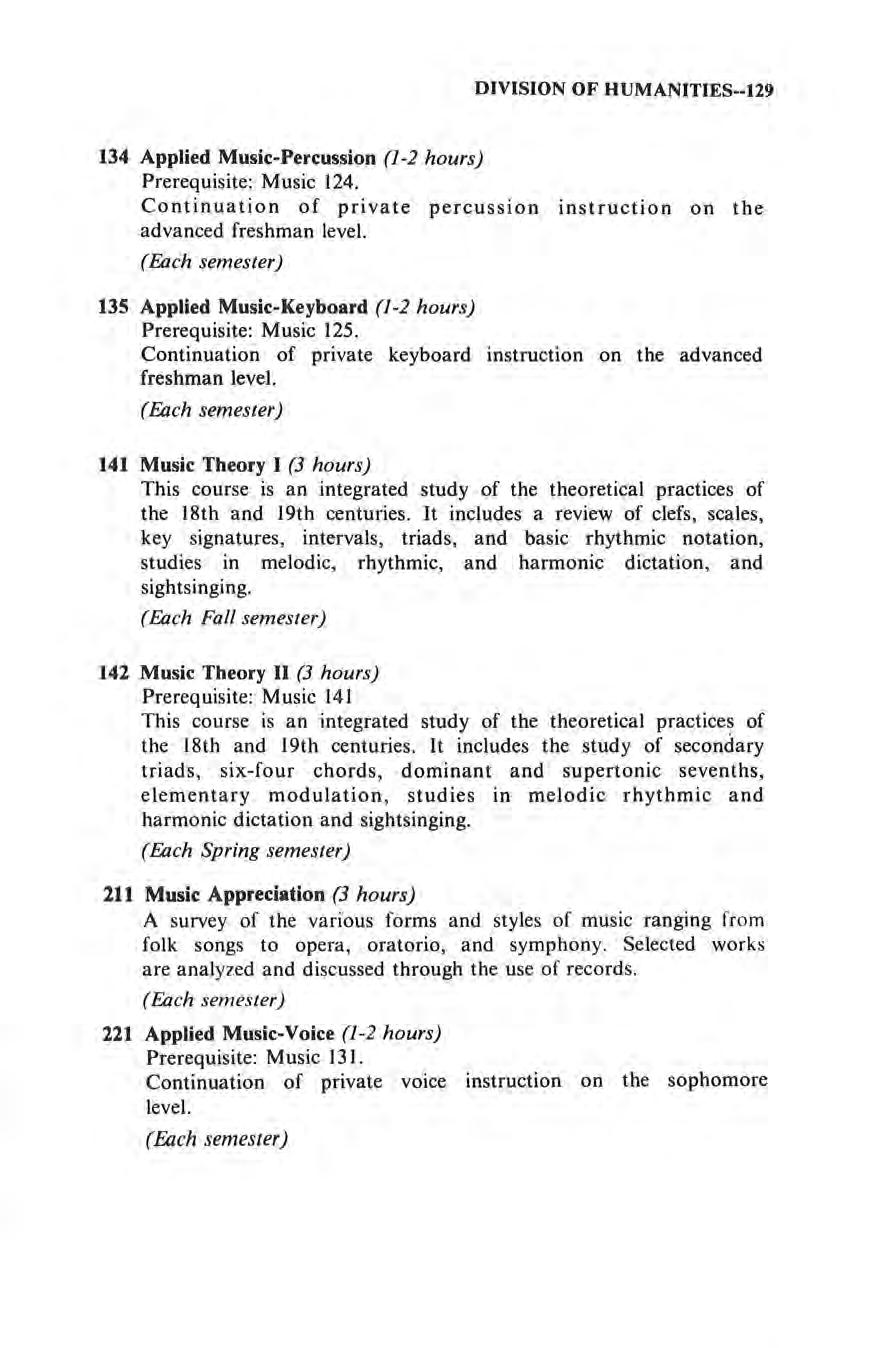
(Each Spring semester)
211 Music Appreciation (3 hours)
A survey of the various forms and styles of music ranging from folk songs to opera, oratorio, and symphony. Selected works are analyzed and discussed through the use of records.
( Each semester)
221 Applied Music-Voice (1-2 hours)
Prerequisite: Music 131.
Continuation of private voice instruction on the sophomore level.
(Each semester)
DIVISION OF HUMANITIES--129
DIVISION OF HUMANITIES--130
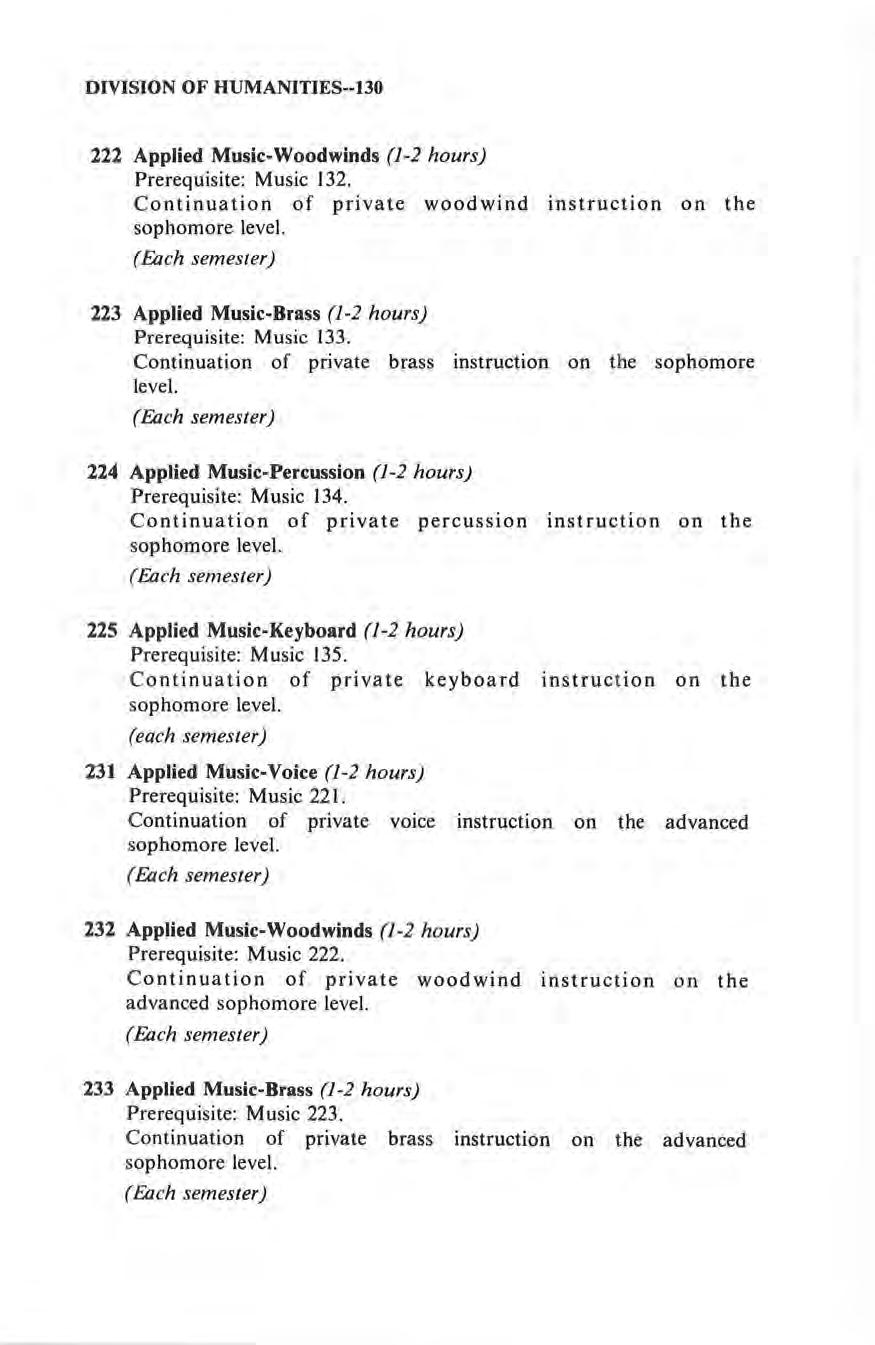
222 Applied Music-Woodwinds (1-2 hours)
Prerequisite: Music 132.
Continuation of private woodwind instruction on the sophomore level. (&ch semester)
223 Applied Music-Brass (1-2 hours)
Prerequisite: Music 133
Continuation of private brass instruction on the sophomore level. (&ch semester)
224 Applied Music-Percussion (1-2 hours)
Prerequisite: Music 134.
Continuation of private percussion instruction on the sophomore level. (&ch semester)
225 Applied Music-Keyboard (1-2 hours)
Prerequisite: Music 135.
Continuation of private keyboard instruc t ion on the sophomore level. (each semester)
231 Applied Music-Voice (1-2 hours)
Prerequisite: Music 221.
Continuation of private voice instruction on the advanced sophomore level. (&ch semester)
232 Applied Music-Woodwinds (1-2 hours)
Prerequisite: Music 222.
Continuation of private woodwind instruction on the advanced sophomore level. (&ch semester)
233 Applied Music-Brass (1-2 hours)
Prerequisite: Music 223.
Continuation of private brass instruction on the advanced sophomore level. (&ch semester)
234 Applied Music-Percussion (1-2 hours)
Prerequsite: Music 224 .
Continuation of private percussion instruction on the advanced sophomore level.
(E:ach semester)
235 Applied Music-Keyboard (1-2 hours)
Prerequisite: Music 225 .
Continuation of private keyboard instruction on the advanced sophomore level.
(E:ach semester)
241 Music Theory III (3 hours)
Prerequisite: Music 142 .
This course is an integrated study of the theoretical practices of the 18th and 19th centuries. It includes a detailed study of the chromatic harmonic practices of the 19th century, a survey of 20th century theoretical practices, studies in melodic, rhythmic, and harmonic dictation, and sightsinging.
(E:ach Fall semester)
242 Music Theory IV (3 hours)
Prerequsite: Music 241.
This course is an integrated study of the theoretical practices of the 18th and 19th centuries. It includes a detailed study of the chromatic harmonic practices of the 19th century, a survey of 20th century theoretical practices and studies in melodic, rhythmic, and harmonic dictation and sightsinging.
(E:ach Spring semester)
251 Elementary Music Methods (2 hours)
Prerequisite : Music 111 or music major. A study of modern teaching techniques for children's music literature.
(E:ach Spring semester)
252 Secondary Music Methods (2 hours)
A study of vocal materials and vocal conducting as presented m secondary schools.
(Fall semester, even years)
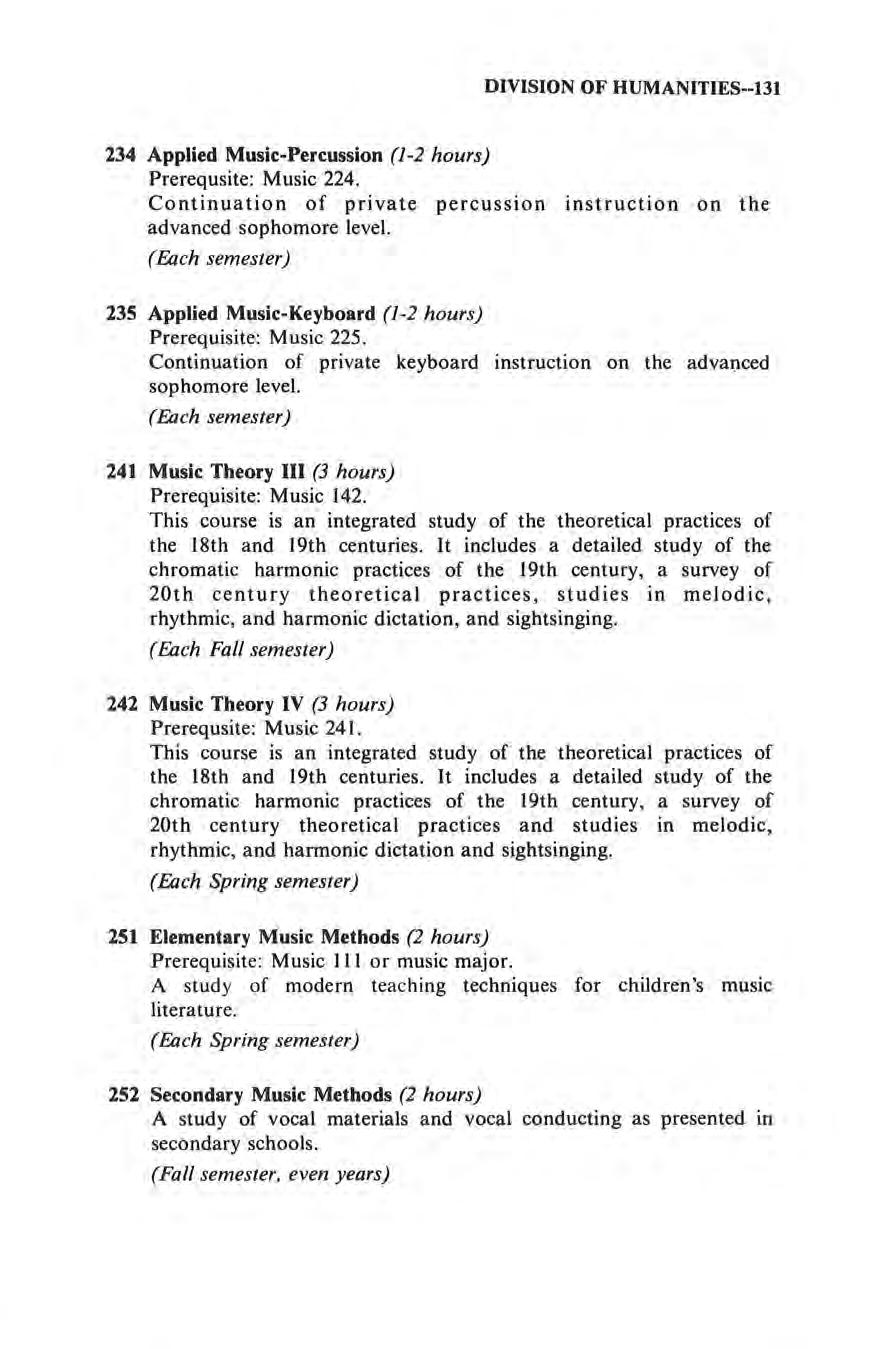
DIVISION OF HUMANITIES--131
DIVISION OF HUMANITIES--132
298 Special Topics in Music (1 -4 hours)
Freshman-Sophomore standing. (Offered as needed)
321 Applied Music-Voice (1-2 hours)
Prerequisite: Music 231 .
Continuation of private voice instruction on the junio r level. (&ch semester)
322 Applied Music-Woodwinds (1-2 hours)
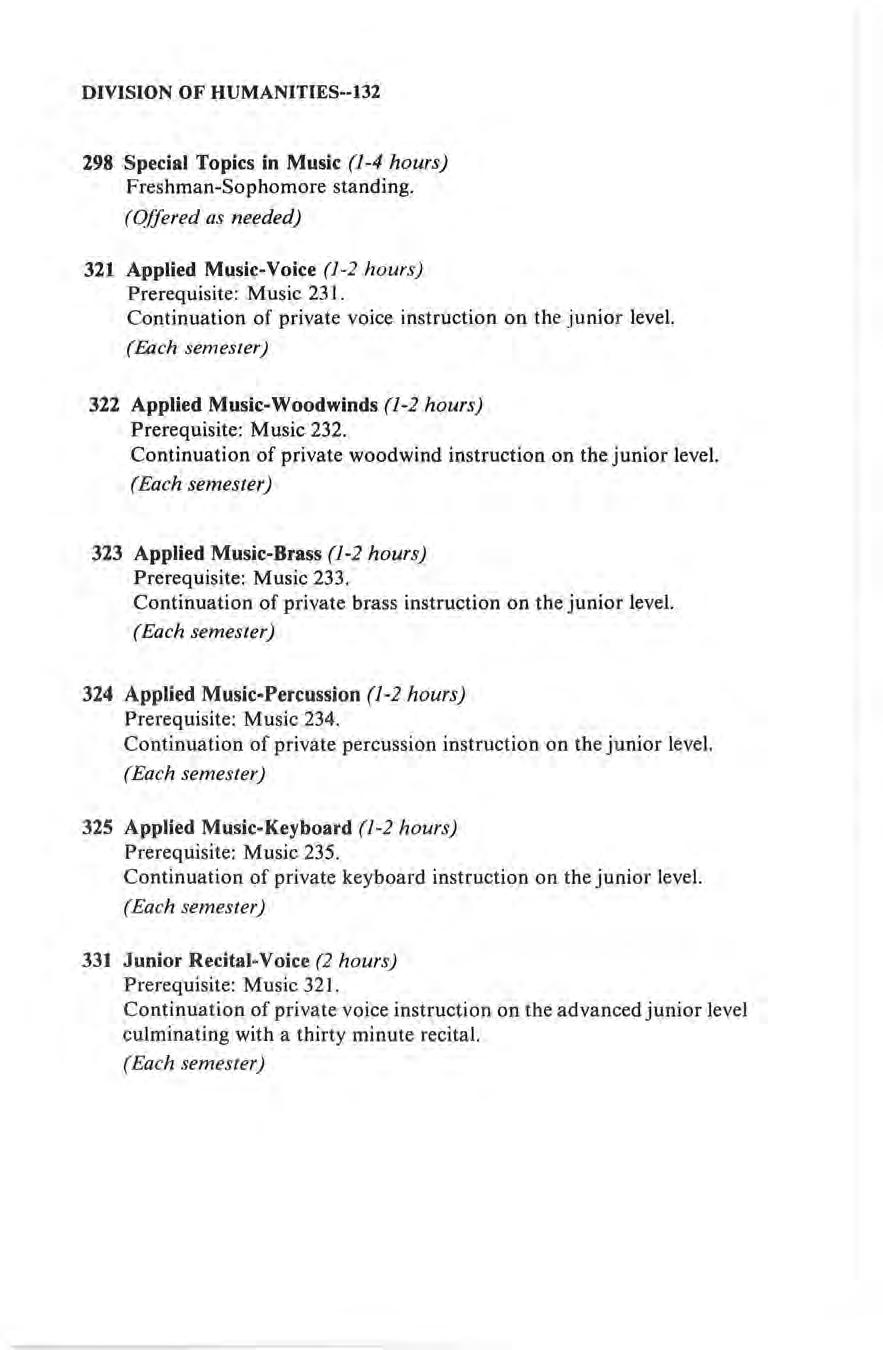
Prerequisite: Music 232.
Continuation of private woodwind instruction on the junior level. (Each semester)
323 Applied Music-Brass (1-2 hours)
Prerequisite: Music 233.
Continuation of private brass instruction on the junior level. (Each semester)
324 Applied Music-Percussion (1-2 hours)
Prerequisite: Music 234 .
Continuation of private percussion instruction on the junior level. (Each semester)
325 Applied Music-Keyboard (1-2 hours)
Prerequisite : Music 235.
Continuation of private keyboard instruction on the junior level. (Each semester)
331 Junior Recital-Voice (2 hours)
Prerequisite: Music 321.
Continuation of private voice instruction on the advanced junior lev el culminating with a thirty minute recital. (Each semester)
332 Junior Recital-Woodwinds (2 hours)
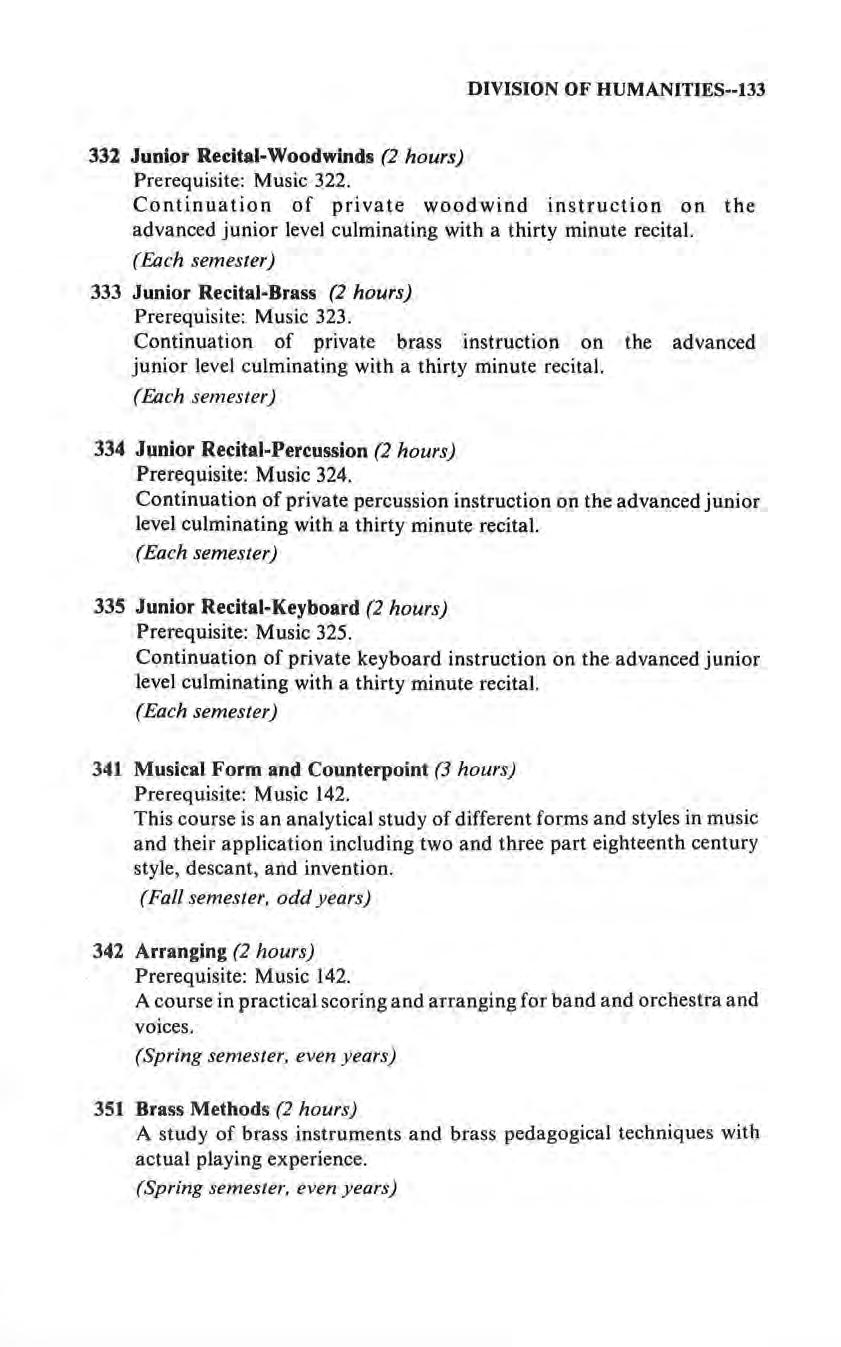
Prerequisite: Music 322.
Continuation of private woodwind instruction on the advanced junior level culminating with a thirty minute recital.
(&ch semester)
333 Junior Recital-Brass (2 hours)
Prerequisite: Music 323.
Continuation of · private brass instruction on the advanced junior level culminating with a thirty minute recital. (&ch semester)
334 Junior Recital-Percussion (2 hours)
Prerequisite: Music 324.
Continuation of private percussion instruction on the advanced junior level culminating with a thirty minute recital. (Each semester)
335 Junior Recital-Keyboard (2 hours)
Prerequisite: Music 325.
Continuation of private keyboard instruction on the advanced junior level culminating with a thirty minute recital. (Each semester)
341 Musical Form and Counterpoint (3 hours)
Prerequisite : Music 142.
This course is an analytical study of different forms and styles in music and their application including two and three part eighteenth century style, descant, and invention . (Fall semester, odd years)
342 Arranging (2 hours)
Prerequisite: Music 142.
A course in practical scoring and arranging for band and orchestra and voices.
(Spring semester, even years)
351 Brass Methods (2 hours)
A study of brass instruments and brass pedagogical techniques with actual playing experience.
(Spring semester, even years)
DIVISION OF HUMANITIES--133
352 Woodwind Methods (2 hours)
A study of woodwind instuments and woodwind pedagogical techniques with actual playing experience. (Spring semester, odd years)
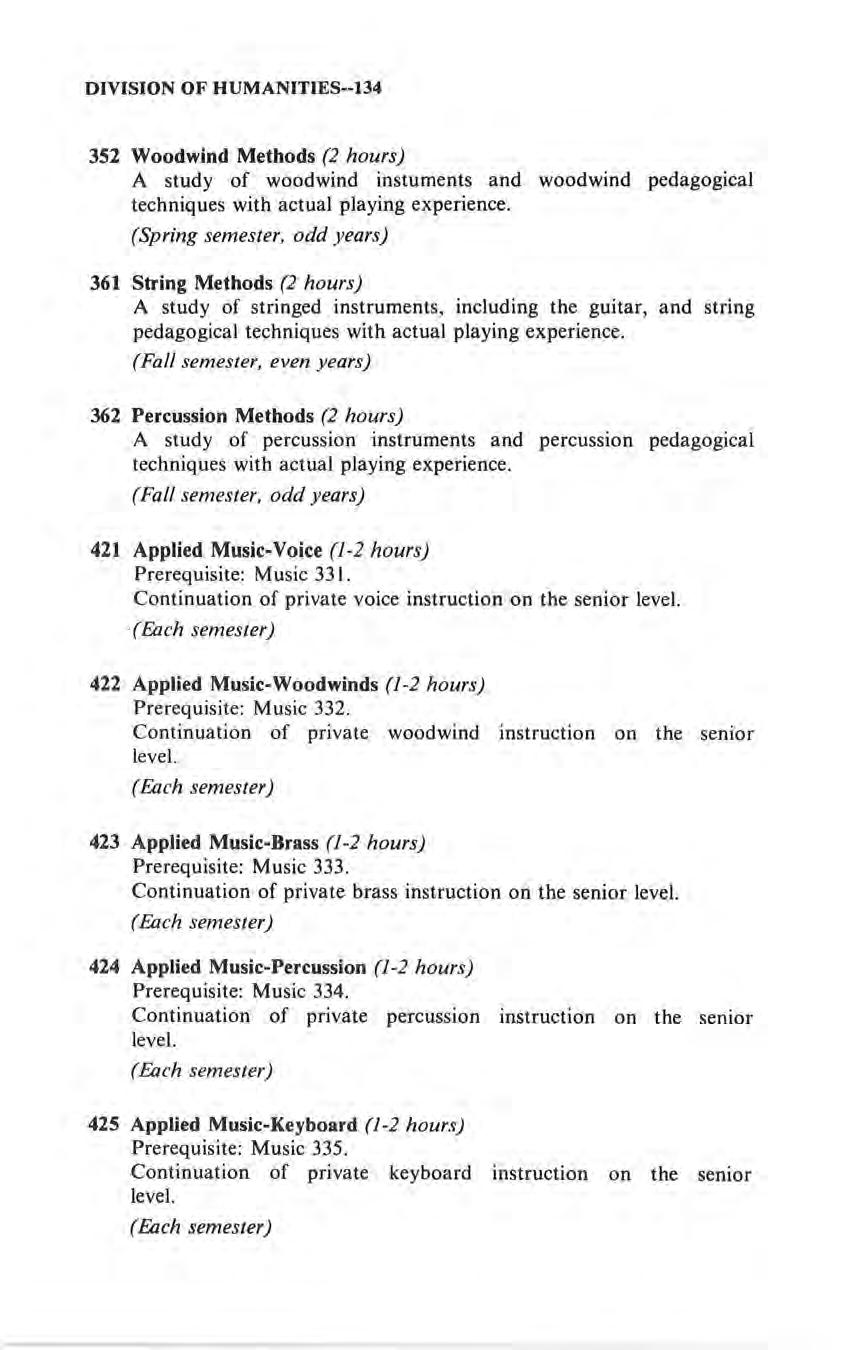
361 String Methods (2 hours)
A study of stringed instruments, including the guitar, and string pedagogical techniques with actual playing experience. (Fall semester, even years)
362 Percussion Methods (2 hours)
A study of percussion instruments and percussion pedagogical techniques with actual playing experience (Fall semester, odd years)
421 Applied Music-Voice (1-2 hours)
Prerequisite: Music 331
Continuation of private voice instruction on the senior level. ( E:ach semester)
422 Applied Music-Woodwinds (1-2 hours)
Prerequisite: Music 332.
Continuation of private woodwind instruction on the senior level.
( E:ach semester)
423 Applied Music-Brass (1-2 hours)
Prerequi site: Music 333.
Continuation of private brass instruction on the senior level.
( E:ach semester)
424 Applied Music-Percussion (1-2 hours)
Prerequisite: Music 334.
Continuation of private percussion instruction on the senior level.
( E:ach semester)
425 Applied Music-Keyboard (1-2 hours)
Prerequisite: Music 335.
Continuation of private keyboard instruction on the senior level.
(E:ach semester)
DIVISION OF HUMANITIES--134
431 Senior Recital-Voice (2 hours)
Prerequisite: Music 421.
Continuation of private voice instruction on the advanced senior level culminating with a sixty minute recital. (F.ach semester)
432 Senior Recital-Woodwinds (2 hours)
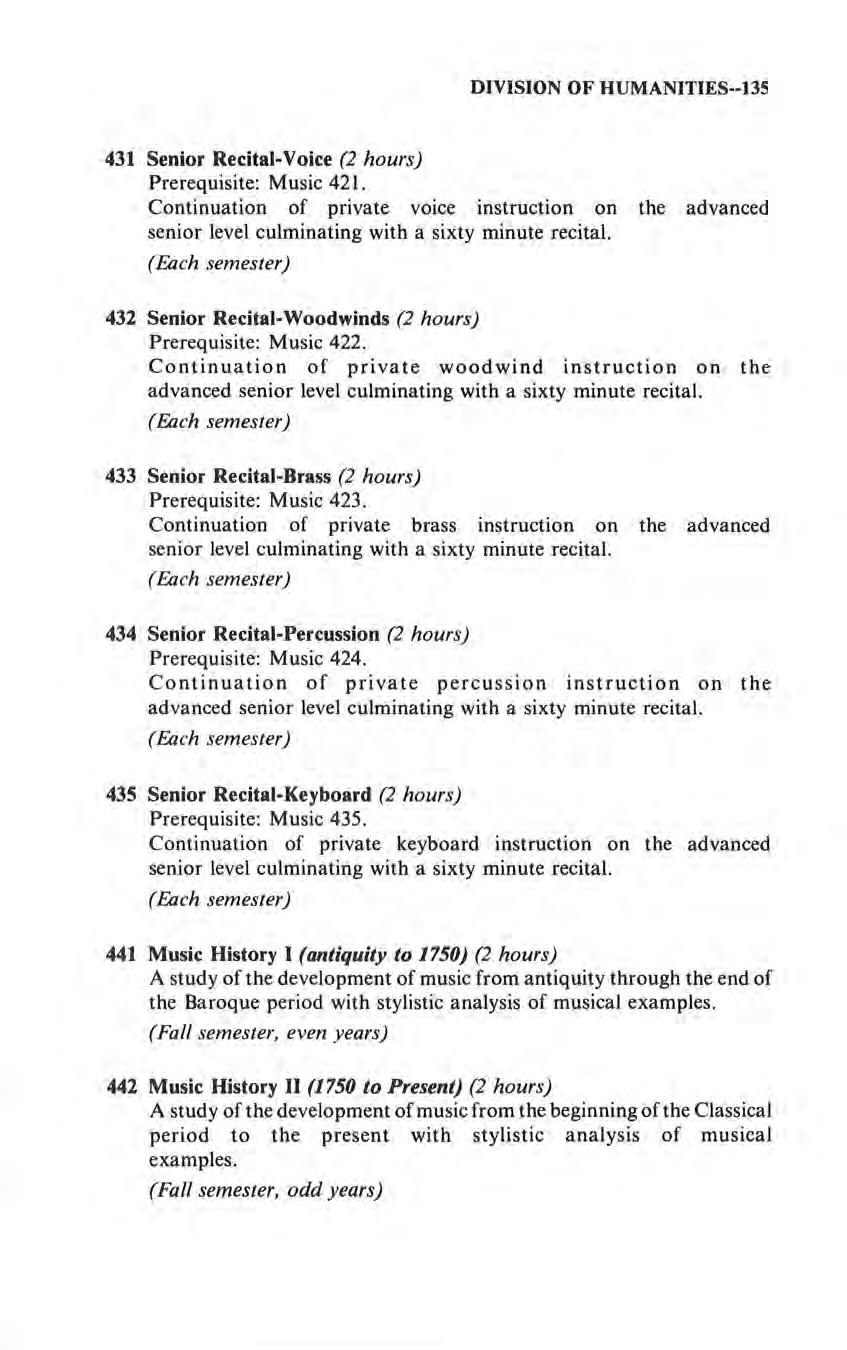
Prerequisite: Music 422.
Continuation of private woodwind instruction on the advanced senior level culminating with a sixty minute recital. ( F.ach semester)
433 Senior Recital-Brass (2 hours)
Prerequisite: Music 423.
Continuation of private brass instruction on the advanced senior level culminating with a sixty minute recital. (F.ach semester)
434 Senior Recital-Percussion (2 hours)
Prerequisite: Music 424.
Continuation of private percussion instruction on the advanced senior level culminating with a sixty minute recital. (F.ach semester)
435 Senior Recital-Keyboard (2 hours)
Prerequisite: Music 435 .
Continuation of private keyboard instruction on the advanced senior level culminating with a sixty minute recital. ( F.ach semester)
441 Music History I (antiquity to 1750) (2 hours)
A study of the development of music from antiquity through the end of the Baroque period with stylistic analysis of musical examples . (Fall semester, even years)
442 Music History II (1750 to Present) (2 hours)
A study of the development of music from the beginning of the Classical period to the present with stylistic analysis of musical examples . (Fall semester, odd years)
DIVISION OF HUMANITIES--135
451 Integrated Studies-Instrumental (2 hours)
Prerequisite: Junior standing
An introductory study of different organizational and pedagogical techniques for various wind instrument ensembles and their respective repertoires.
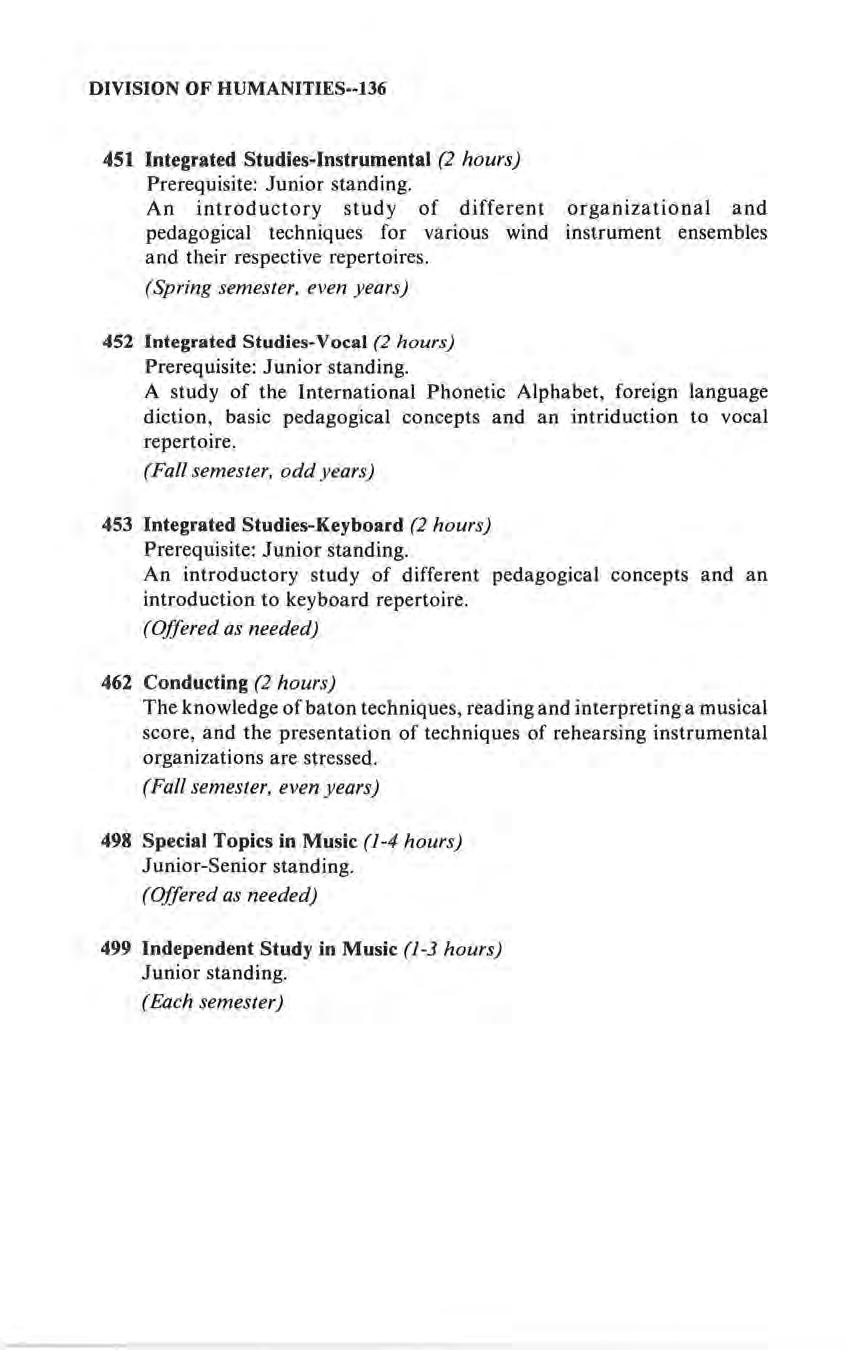
(Spring semester, even years)
452 Integrated Studies-Vocal (2 hours)
Prerequisite: Junior standing.
A study of the International Phonetic Alphabet, foreign language diction, basic pedagogical concepts and an intriduction to vocal repertoire.
(Fall semester, odd years)
453 Integrated Studies-Keyboard (2 hours)
Prerequisite: Junior standing .
An introductory study of different pedagogical concepts and an introduction to keyboard repertoire.
(Offered as needed)
462 Conducting (2 hours)
The knowledge of baton techniques, reading and interpreting a musical score, and the presentation of techniques of rehearsing instrumental organizations are stressed. (Fall semester, even years)
498 Special Topics in Music (1-4 hours)
Junior-Senior standing .
(Offered as needed)
499 Independent Study in Music (1-3 hours) Junior standing. (Each semester)
DIVISION OF HUMANITIES--136
Philosophy
201 Introduction to Philosophy (3 hours)
An introduction to philosophy through the selected wntmgs of outstanding philosophers. Lectures and class discussions on such topics as ethics, philosophy of history, philosophy of religion, and metaphysics are stressed.
(Fall semester, odd years)
Political Science
201 American National Government (3 hours)
A thorough introduction to the U.S. political system, its institutions and processes. Topics will include the constitutional founding, federalism, political culture, Congress, the Presidency, judiciary, bureaucracy, public opinion and the media, the electoral process, and civil liberties.
(Each semester)
202 State and Local Government (3 hours)
Description and analysis of political institutions and behavior in American states with interstate comparisons and comparisons between state and national political systems. Lecture topics include the development and role of American local government, its forms and structures, and the relationship to the federal government.
(Fall semester, even years)
298 Special Topics in Political Science (1-4 hours)
Freshman-Sophomore standing.
(Offered as needed)
301 Comparative Government (3 hours)
A comparative analysis of political systems and institutions of Great Britain, France, the Federal Republic of Germany, and the Soviet Union. The course emphasis is on political culture, comparative political history, chief executives, legislatures, political parties, interest groups, courts, and policy making with ample comparisons to the U.S.
(Spring semester, odd years)
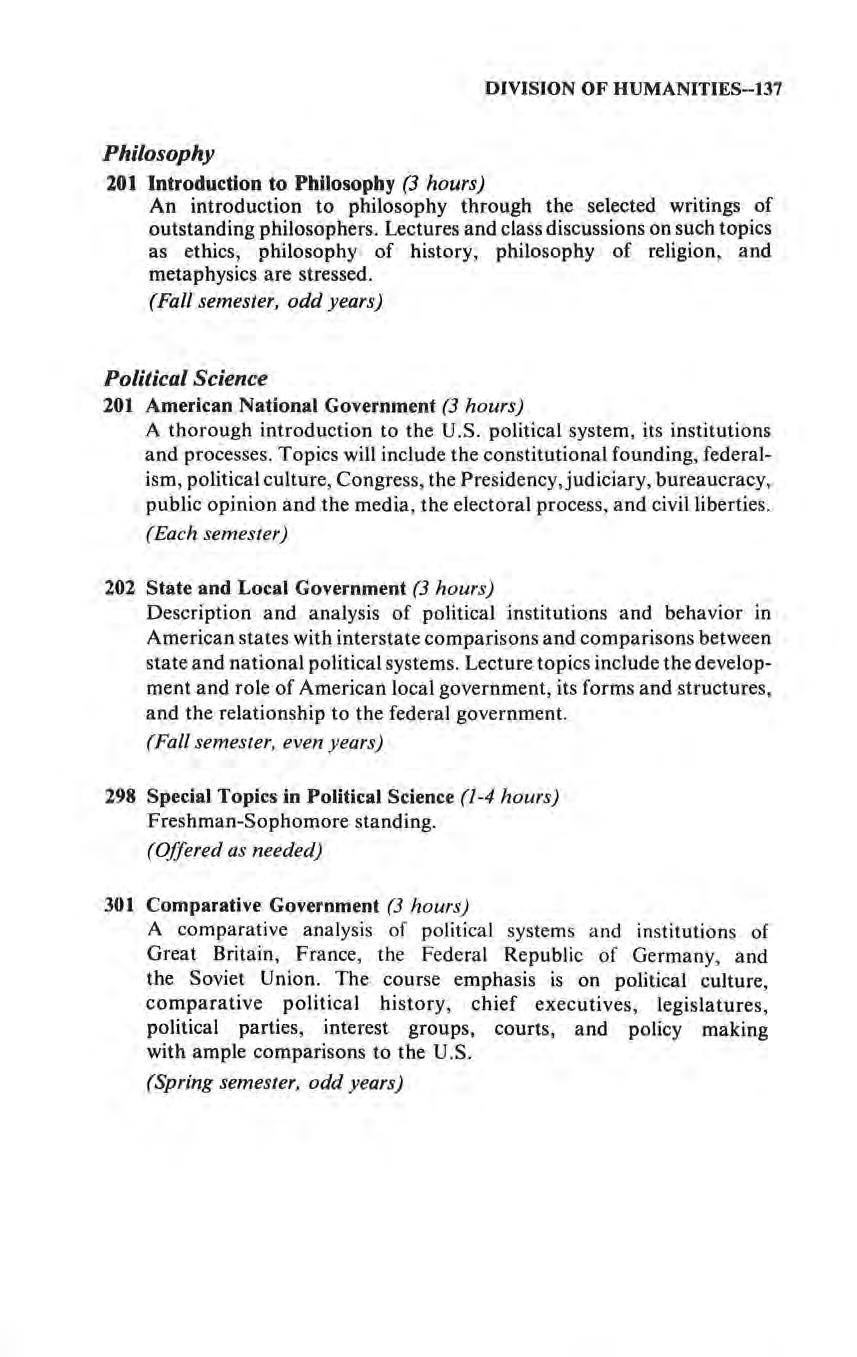
DIVISION OF HUMANITIES--137
•426 American Constitutional Law (3 hours)
Prerequisite: Pol.Sci 20 I or 202 or instructor's perm ission. A study of the historical and political context of constitutional doctrine through major decisions. The emphasis is on constitutional growth as it relates to the fundamental structure of American government and the social order.
(Spring semester, even years)
467 The Far East (3 hours)
This course is concerned with the political traditions and historical evolution of the area, the impact of the West and its profound influences on the political order , and today's revolutionary situation.
(Fall semster, odd years)
498 Special Topics in Political Science (1-4 hours)
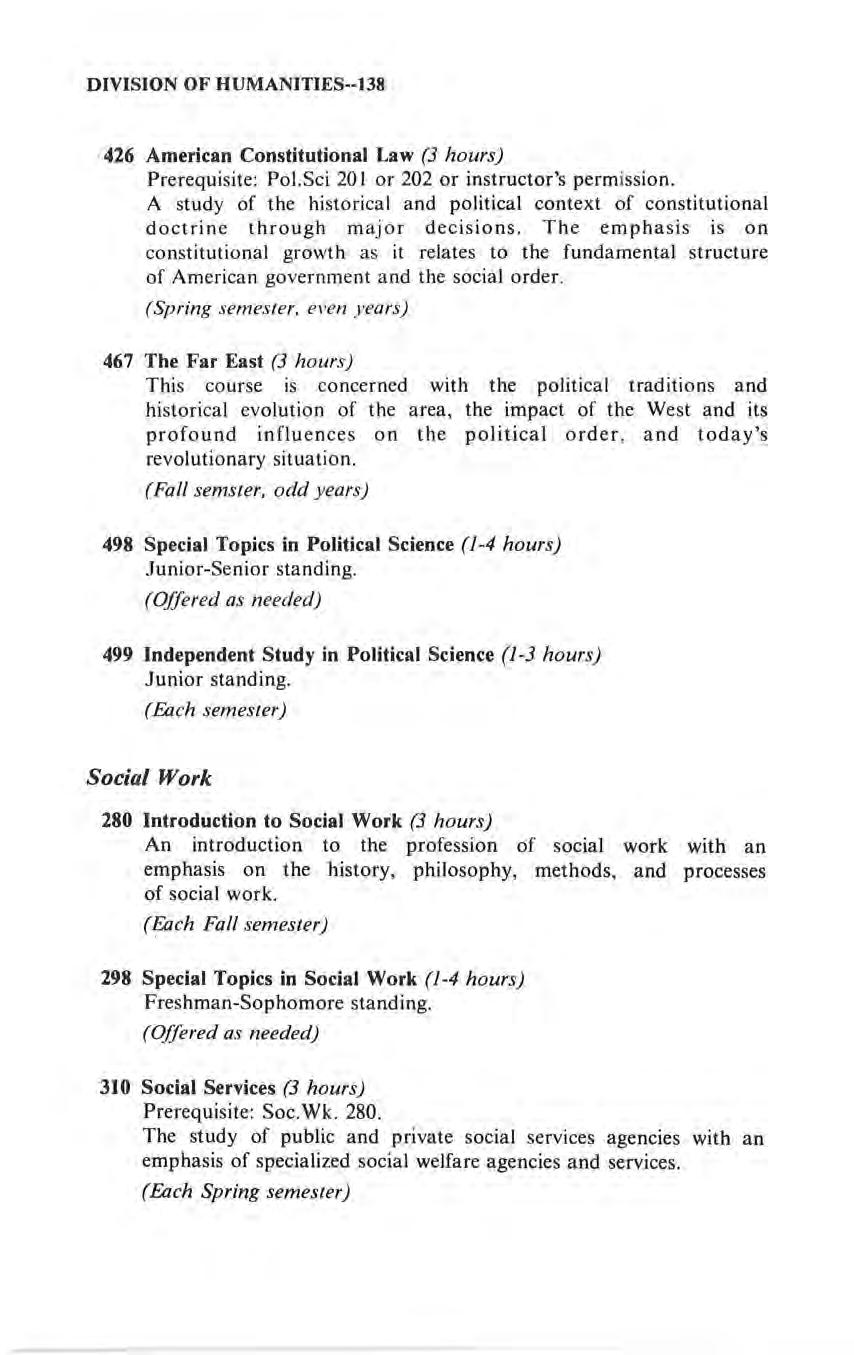
Junior-Senior standing.
(Offered as needed)
499 Independent Study in Political Science (1-3 hours) Junior standing.
(F.ach semester)
Social Work
280 Introduction to Social Work (3 hours)
An introduction to the profession of social work with an emphasis on the history , philosophy, methods, and processes of social work.
(F,ach Fall semester)
298 Special Topics in Social Work (1-4 hours)
Freshman-Sophomore standing.
(Offered as needed)
310 Social Services (3 hours)
Prerequisite : Soc. Wk . 280. The study of public and private social services agencies with an emphasis of specialized social welfare agencies and services.
(F,ach Spring semester)
DIVISION OF HUMANITIES--138
375 Casework (2 hours)
Prerequisite: Soc.Wk. 280
The art, theory, and practice of the dynamics of case work with an emphasis on current social work techniques used to meet group and individual needs.
(&ch Fall semester)
390 Group Work (2 hours)
Prerequisite : Soc.Wk. 280
The theory and practice of the dynamics of group work with an emphasis on techniques used in meeting group and individual needs.
(&ch Spring semester)
430 Field Work Practicum (3 hours)
Prerequisite : 10 hours of Soc.Wk. and permission.
Supervised experience in social work.
(Offered as needed)
498 Special Topics in Social Work (1 -4 hours)
Junior-Senior standing.
(Offered as needed)
499 Independent Study in Social Work (1-3 hours) Junior standing.
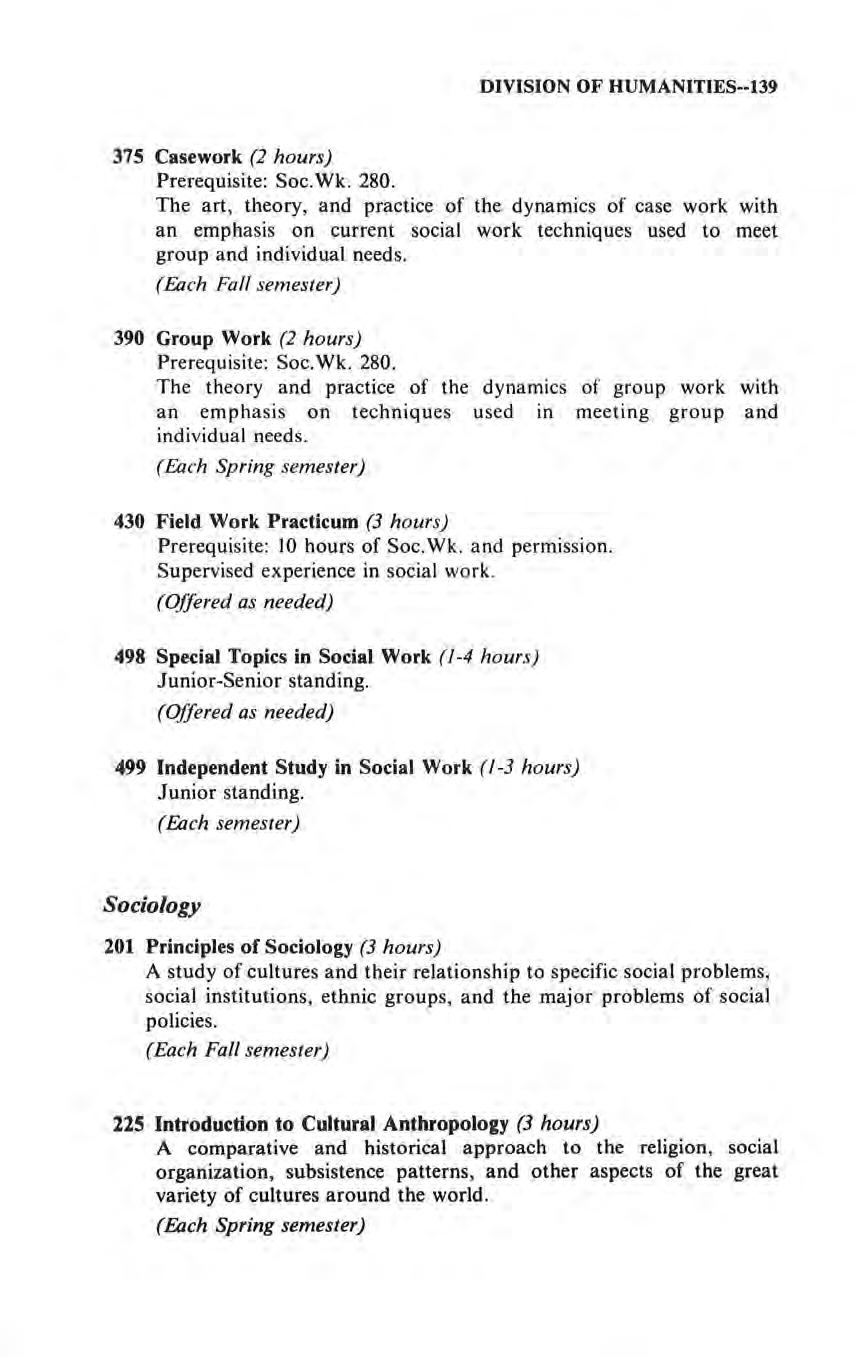
(&ch semester)
Sociology
201 Principles of Sociology (3 hours)
A study of cultures and their relationship to specific social problems , social institutions, ethnic groups, and the major problems of social policies.
(Each Fall semester)
225 Introduction to Cultural Anthropology (3 hours)
A comparative and historical approach to the religion, social organization, subsistence patterns, and other aspects of the great variety of cultures around the world.
(&ch Spring semester)
DIVISION OF HUMANITIES--139
230 Sociology of Women (3 hours)
A brief history of women's role and status as well as society's attitude toward women
(Fall semester, even years)
250 Community Organization (3 hours)
Prerequisite: Soc. 201.
The focus of this course is on the urban community, basic patterns of social and ecological organization, and factors contributing to community integration and disorganization.
(Fall semester, odd years)
260 Rural Sociology (3 hours)
Prerequisite: Soc. 201.
An examination of rural societies with an analysis of rural groups, institutions, and rural-urban relations.
(Spring semester, even years)
298 Special Topics in Sociology (1-4 hours)
Freshman-Sophomore standing.
(Offered as needed)
300 Contemporary Social Problems (3 hours)
An introduction to the causes, treatment, and p revention of selected social problems with particular emphasis on the problems of conflict and inequality .
(Each Fall semester)
320 Sociology of Education (3 hours)
Prerequisite : Soc. 20 I.
An application of sociological principles to the education process. The relationship between stratification and education, the importance of interaction patterns on the educational process, the effect of other institutions on educa t ion, and the role of education as a dynamic institution in a changing society are stressed.
(Spring semester, even years)
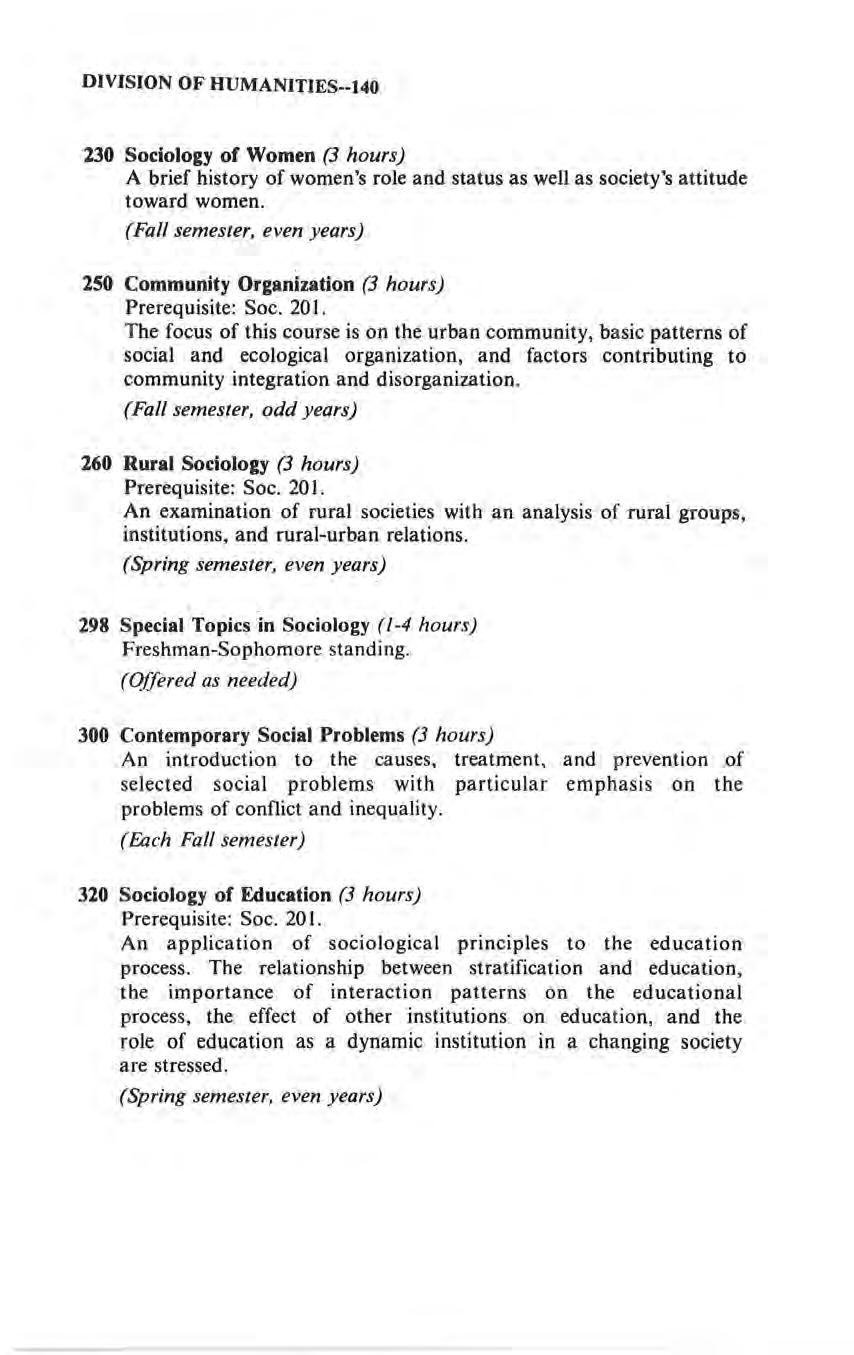
DIVISION OF HUMANITIES--140
321 Sociology of Religion (3 hours)
A study of the role of religion in life, from early societies to the present. The course stresses Sociological Theory of Religion and includes materials from Anthropology, Archeology, Macrosociology, History, and comparative religions
(Offered as needed)
340 The Family (3 hours)
Prerequisite: Soc. 20 I.
An examination of the role of the family in contemporary society with an emphasis on the factors influencing the family structure, functions, and roles, and their implications for both the community and individuals at varying stages of the family life cycle.
(&ch Spring semester)
360 Criminology (3 hours)
An examination of the nature and causes of crime as a social phenomenon.
(Fall semester, odd years)
370 Ethnic-Group Relations (3 hours)
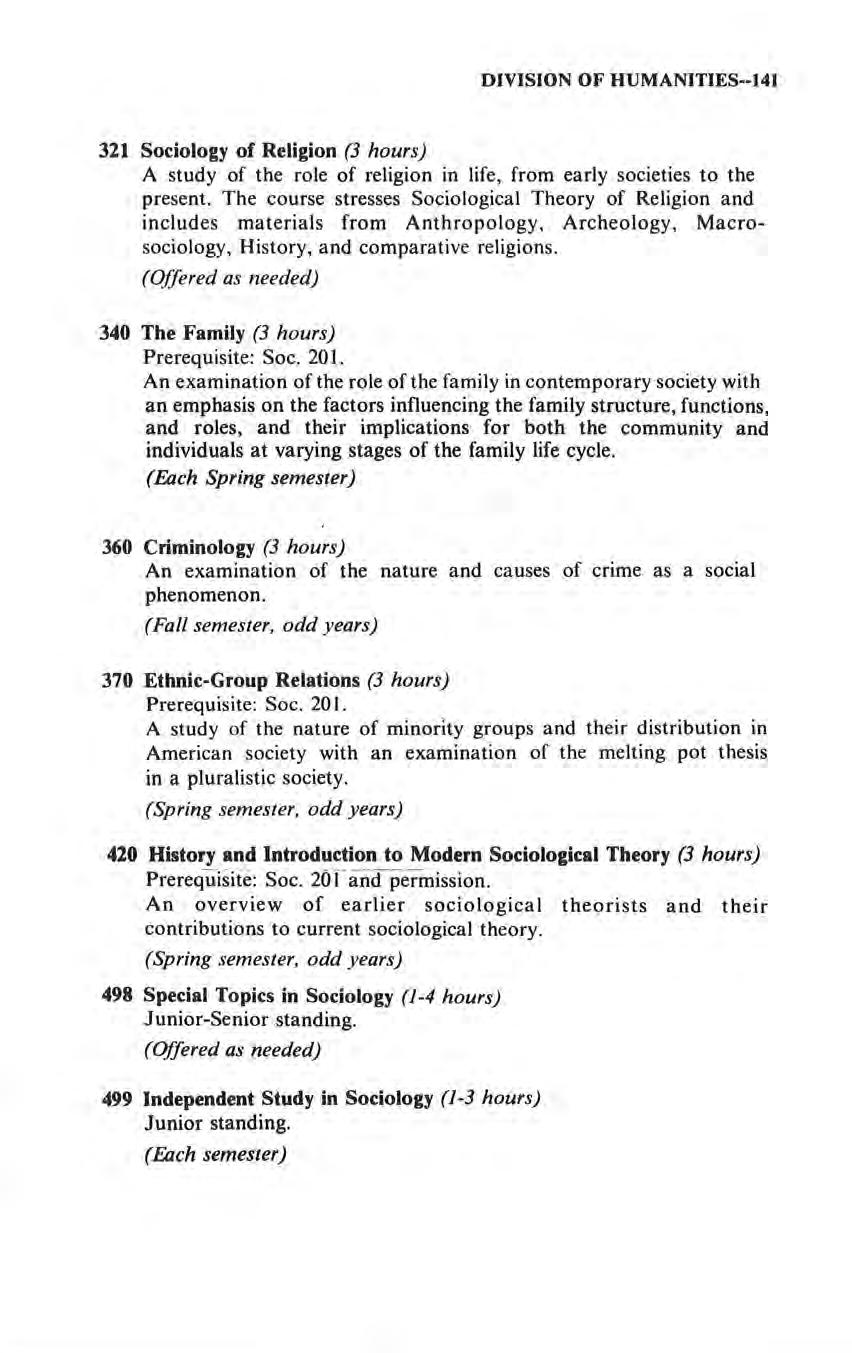
Prerequisite: Soc. 20 I .
A study of the nature of minority groups and their distribution in American society with an examination of the melting pot thesis in a pluralistic society.
(Spring semester, odd years)
420 History and Introduction to Modern Sociological Theory (3 hours)
Prerequisite: Soc. 20 I and permission
An overview of earlier sociological theorists and their contributions to current sociological theory.
(Spring semester, odd years)
498 Special Topics in Sociology (1-4 hours)
Junior-Senior standing.
(Offered as needed)
499 Independent Study in Sociology (1-3 hours)
Junior standing.
(&ch semester)
DIVISION OF HUMANITIES--141
Spanish
101 Introductory Spanish (5 hours)
An introductory course in Spanish dealing with grammar reading, writing, and conversing.
(Each Fall semester)
102 Spanish I (5 hours)
Prerequisite: Spanish 101.
A continuation of Spanish 101 Introductory Spanish. Spanish I emphasizes increased proficiency in conversational situations, grammar, reading, and writing.
(Each Spring semester)
Speech and Drama
152 Fundamentals of Speech (3 hours)
A study of the principles of speech with an emphasis on the development of excellent speech habits and the diagnosis and correction of elementary speech problems.
(Each semester)
232 Introduction to Theatre (3 hours)
An introduction to all forms of drama and styles of theatrical presentation and production as a means of developing the student's critical appreciation of the theatre arts.
(Each Fall semester)
235 Stagecrafts (3 hours)
An introduction to the study and practice of the basic aspects of technical theatre production including sets, lighting, costuming, sound, properties, and make-up.
(Each spring semester)
254 Public Speaking (3 hours)
A study of the forms of address, speech organization, composition , delivery, and Parliamentary rules with practive requ ired invarious public speaking situations including public meetings and group discussions, radio and television broadcasting, interviewing, role-playing, and debate.
(Each semester)
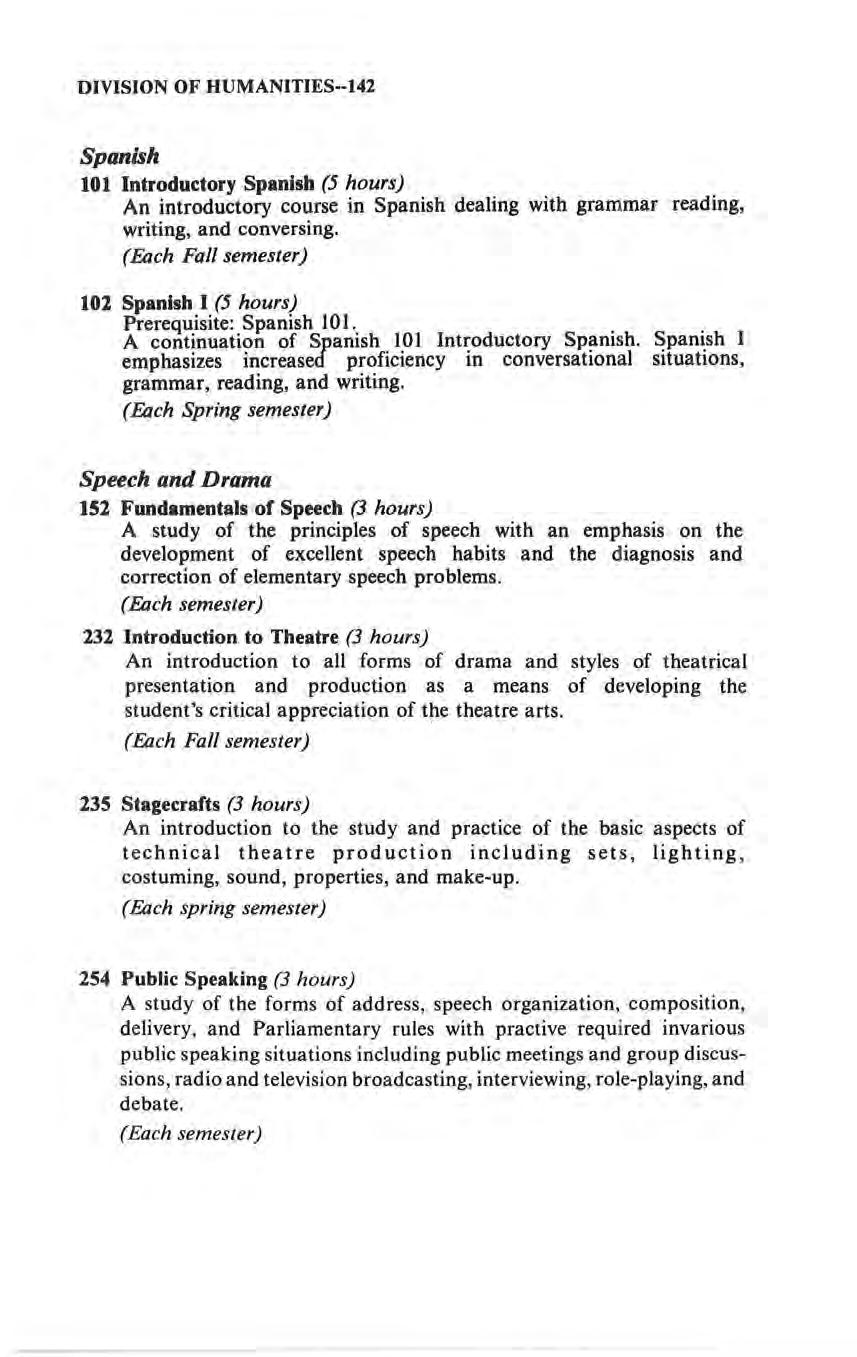
DIVISION OF HUMANITIES--142
256 Acting Techniques (3 hours)
A concentration on stage movement and pantomime with an emphasis on the development of the creative imagination and the use of stage conventions and techniques.
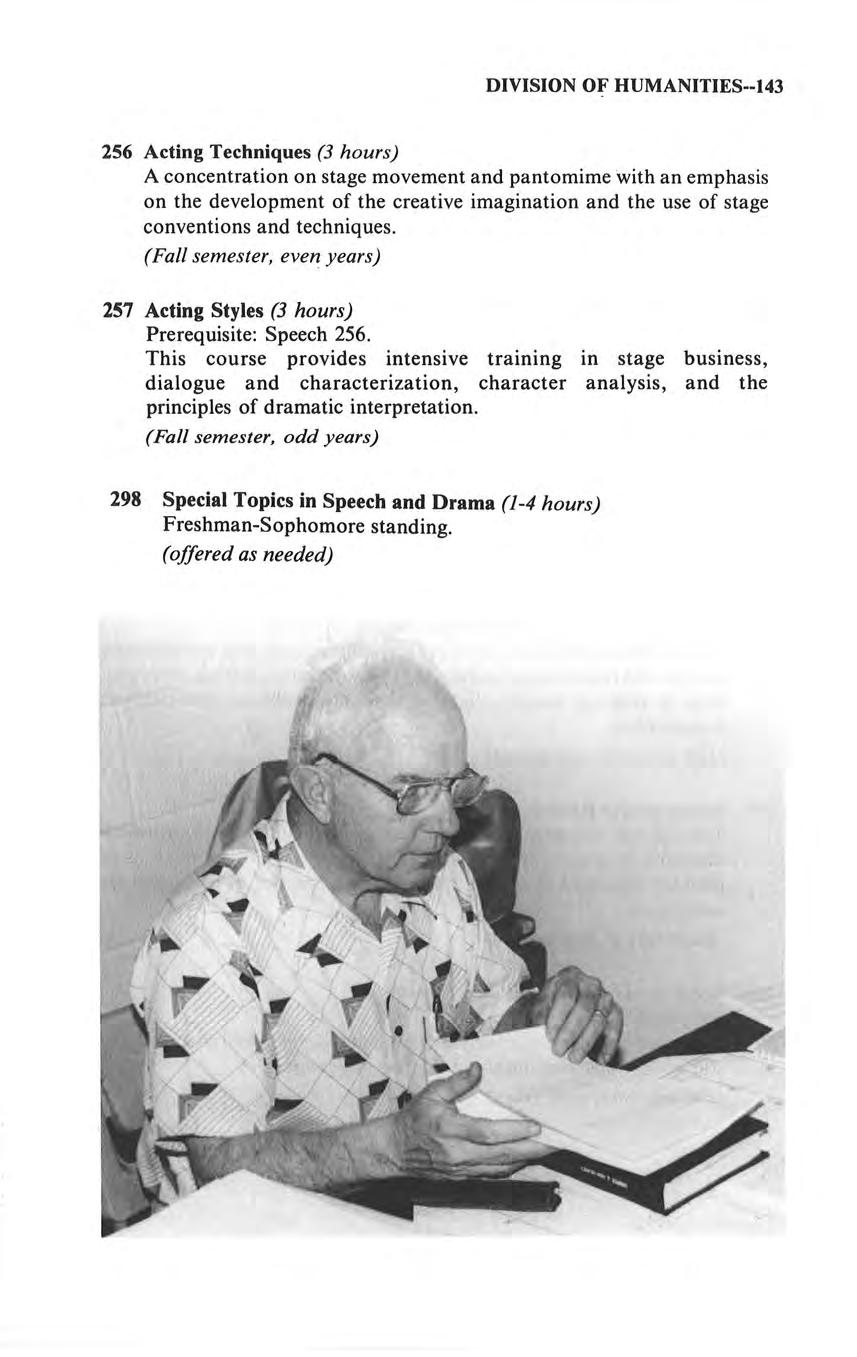
(Fall semester, even years)
257 Acting Styles (3 hours)
Prerequisite: Speech 256.
This course provides intensive training in stage business , dialogue and characterization, character analysis, and the principles of dramatic interpretation.
(Fall semester, odd years)
298 Special Topics in Speech and Drama (1-4 hours)
Freshman-Sophomore standing.
(offered as needed)
DIVISION OF HUMANITIES--143
300 Summer Theatre Workshop (3 hours)
This course offers practical training in all aspects of theatre production including acting, set design, lighting, costuming, make-up , improvisation, music, and dancing .
(Summer Session)
327 Light and Sound Design for Stage and Television (3 hours)
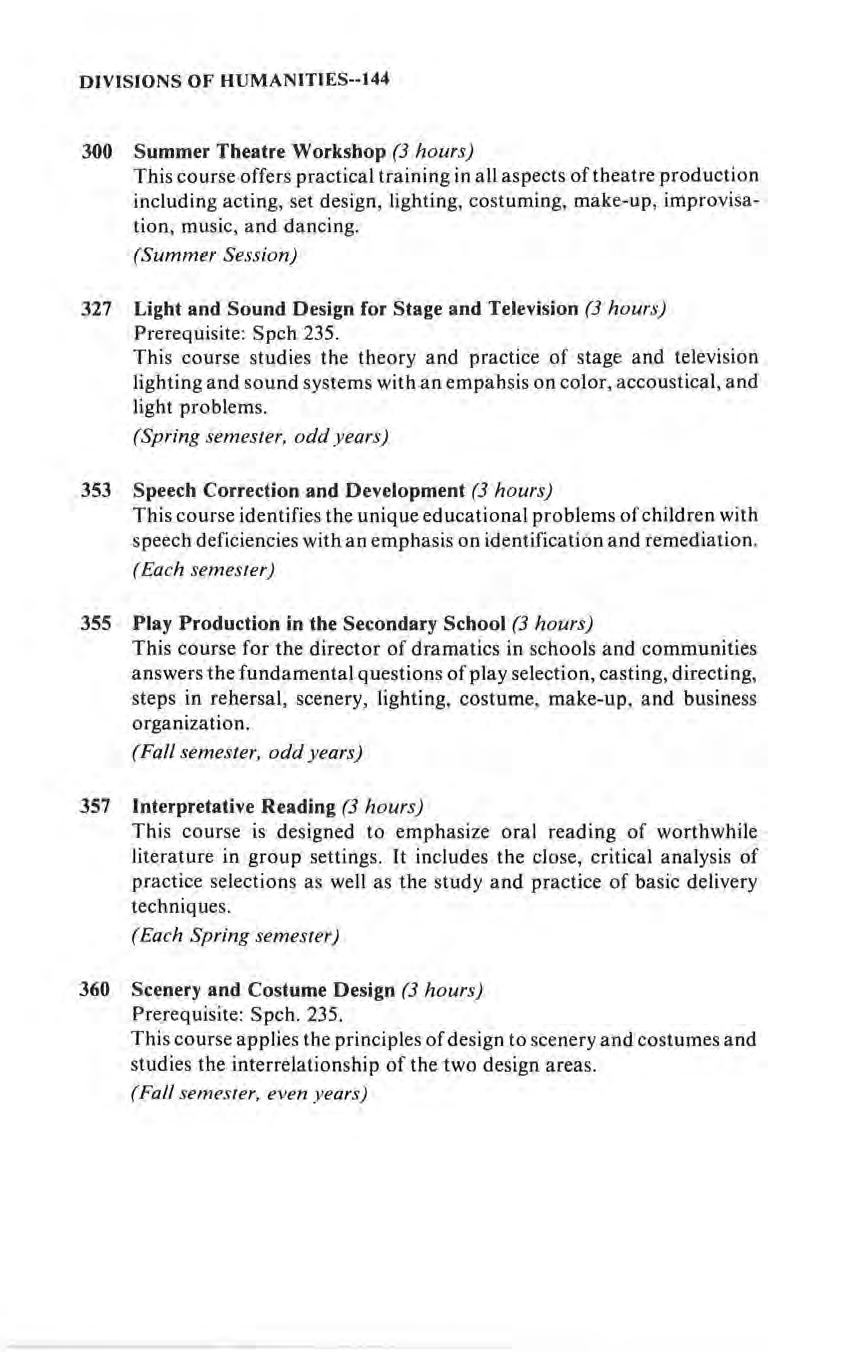
Prerequisite: Speh 235.
This course studies the theory and practice of stage and television lighting and sound systems with an empahsis on color, accoustical, and light problems.
(Spring semester, odd years)
353 Speech Correction and Development (3 hours)
This course identifies the unique educational problems of children with speech deficiencies with an emphasis on identification and remediation.
(Each semester)
355 Play Production in the Secondary School (3 hours)
This course for the director of dramatics in schools and communities answers the fundamental questions of play selection, casting, directing, steps in rehersal, scenery, lighting , costume, make-up , and business organization
(Fall semester, odd years)
357 Interpretative Reading (3 hours)
This course is designed to emphasize oral reading of worthwhile literature in group settings. It includes the close, critical analysis of practice selections as well as the study and practice of basic delivery techniques.
(Each Spring semester)
360 Scenery and Costume Design (3 hours)
Prerequisite: Speh. 235.
This course applies the principles of design to scenery and costumes and studies the interrelationship of the two design areas (Fall semester, even years)
DIVISIONS OF
HUMANITIES--144
363 Directing I (3 hours)
Prerequisite: Speh 256
This course answers the fundamental questions of play selection, casting, directing, scenery, lighting, costume, and make-up for the one-act play.
(Fall semester, odd years)
364 Directing II (3 hours)
Prerequisites: Speh 256 and 363.
Further study in the historical interpretations of action, and an intense practical application of the fundamentals learned in Directing I in staged scenes and staging a one-act play.
(Spring semester, even years)
369 Children's Theatre and Creative Dramatics (3 hours)
The study and active participation in the two different concepts of drama for young people : Creative Dramatics, in which children with the guidance of an imaginative leader create scenes or plays and perform them using improvised dialogue and action with personal development as the goal, and Children's Theatre which utilizes written scripts directed and performed as a complete production for child audiences.
(Fall Semester, even years)
400 Theatre History (3 hours)
This course will examine the nature, function, and literature of the theatre from its beginning to the present day. The approach will consist of a study of each of the major periods in theatre history and representative plays of that period.
(Fall semester, odd years)
498 Special Topics in Speech and Drama (1-4 hours)
Junior-Senior standing.
(Offered as needed)
499 Independent Study in Speech and Drama (1-3 hours)
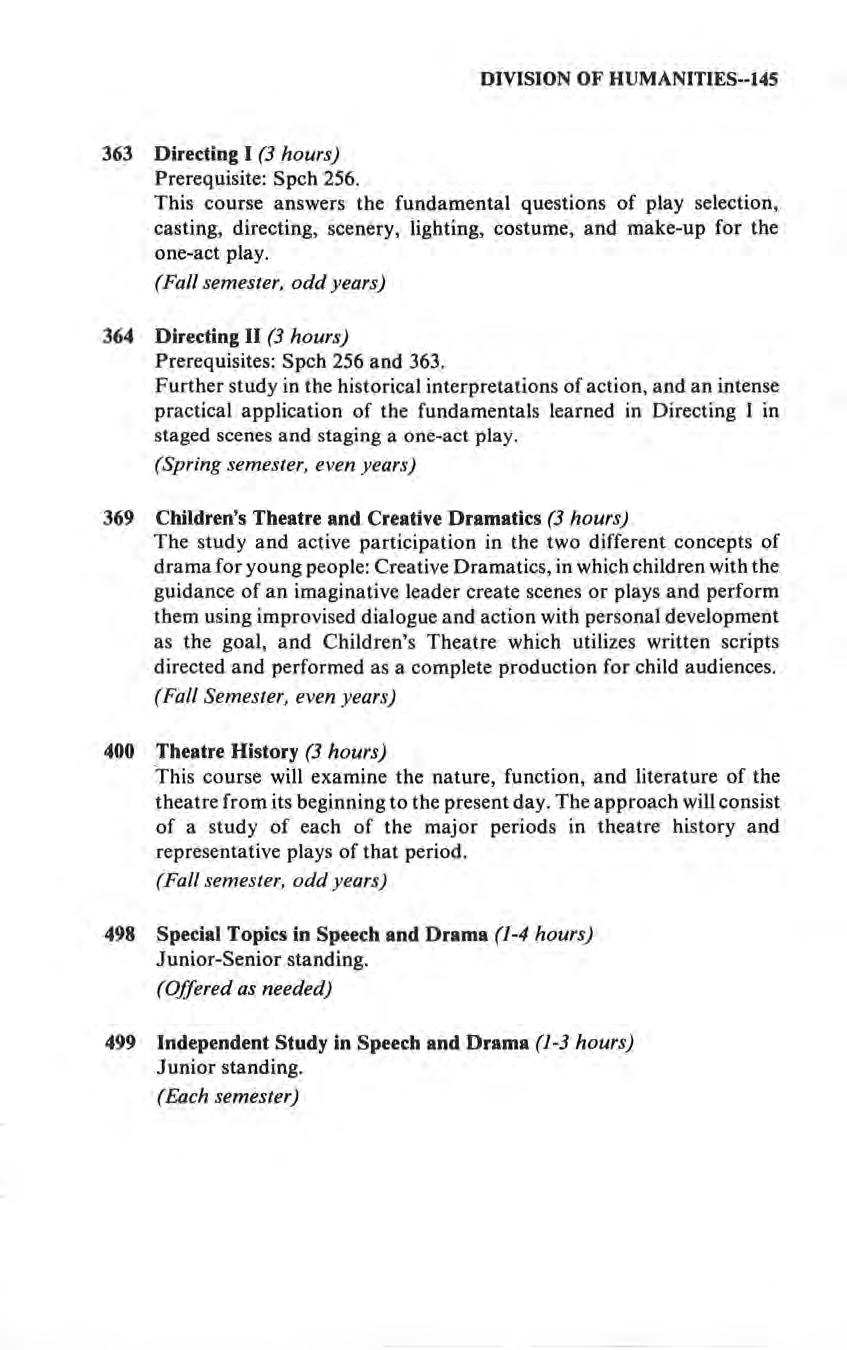
Junior standing.
(Each semester)
DIVISION OF HUMANITIES--145
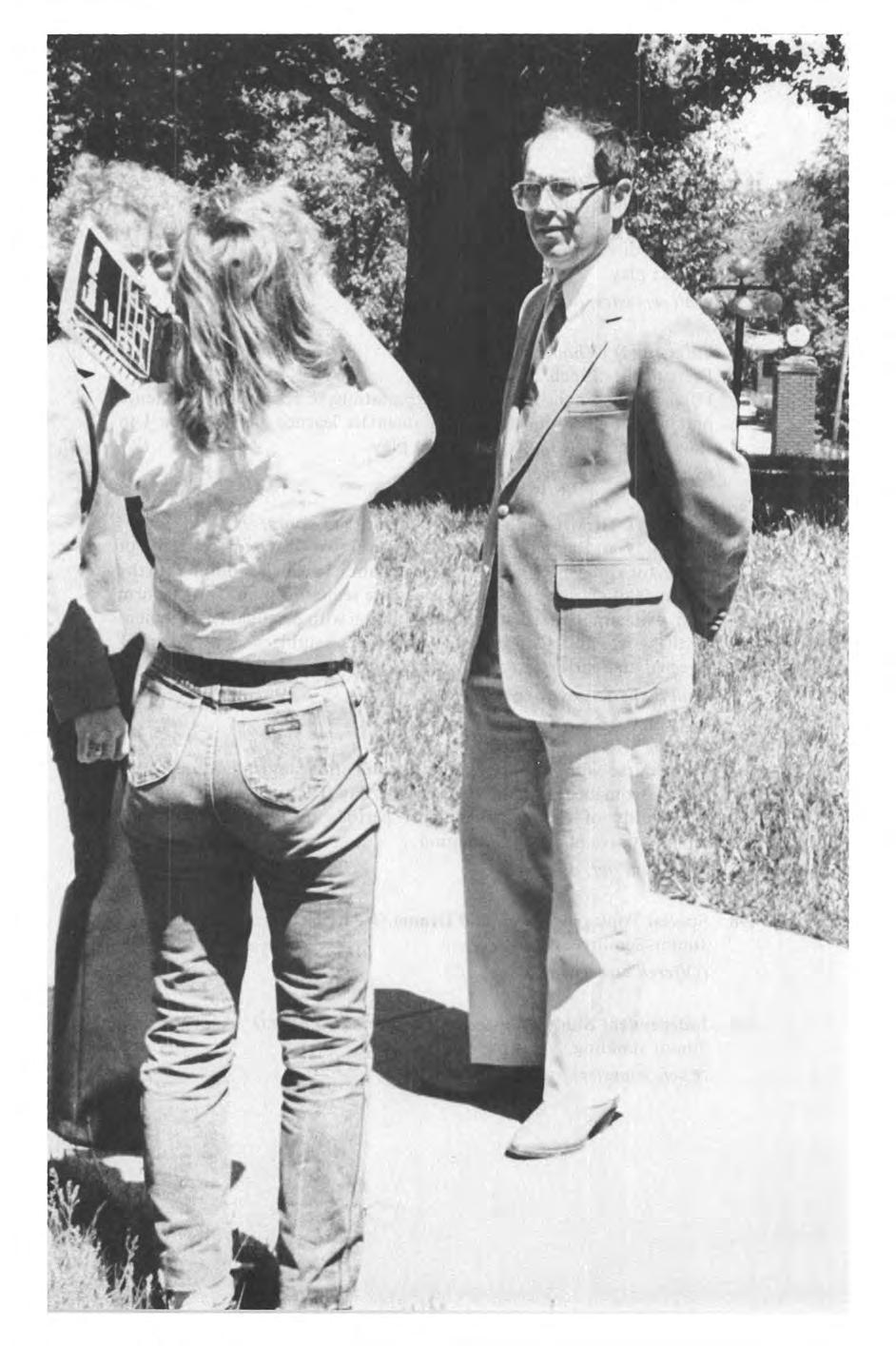
Division of Science and Technology
Dr. David L. Pippert, Chairperson
Professors: Long, Pappas, L., Pippert, Russell
Associate Professors: Longley, Pappas, C.
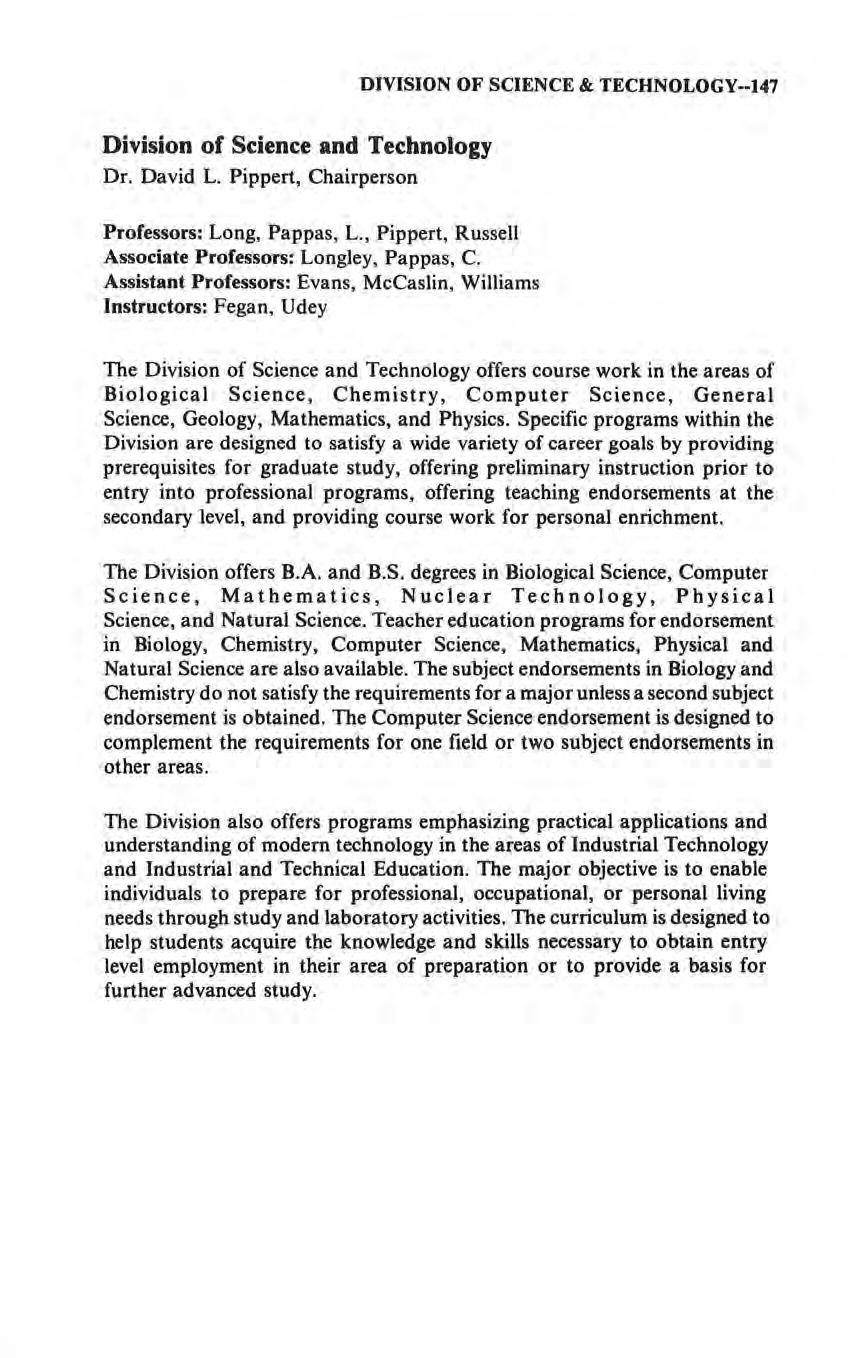
Assistant Professors: Evans, Mccaslin , Williams
Instructors: Fegan , Udey
The Division of Science and Technology offers course work in the areas of Biological Science, Chemistry, Computer Science, General Science, Geology, Mathematics, and Physics. Specific programs within the Division are designed to satisfy a wide variety of career goals by providing prerequisites for graduate study, offering preliminary instruction prior to entry into professional programs, offering teaching endorsements at the secondary level, and providing course work for personal enrichment.
The Division offers B.A. and B.S. degrees in Biological Science, Computer Science, Mathematics, Nuclear Technology, Physical Science, and Natural Science. Teacher education programs for endorsement in Biology, Chemistry, Computer Science, Mathematics, Physical and Natural Science are also available. The subject endorsements in Biology and Chemistry do not satisfy the requirements for a major unless a second subject endorsement is obtained. The Computer Science endorsement is designed to complement the requirements for one field or two subject endorsements in other areas .
The Division also offers programs emphasizing practical applications and understanding of modern technology in the areas of Industrial Technology and Industrial and Technical Education. The major objective is to enable individuals to prepare for professional, occupational, or personal living needs through study and laboratory activities. The curriculum is designed to help students acquire the knowledge and skills necessary to obtain entry level employment in their area of preparation or to provide a basis for further advanced study
DIVISION OF SCIENCE & TECHNOLOGY--147
After completing a core curriculum, three options are available to students interested in the Biological Sciences. The Biological Science option is designed for students planning to enroll in a graduate or professional school aft~r completion of the baccalaureate degree. For studen t s interested in careers as conservation officers or park rangers, the Wildlife Ecology option is available. A Biology subject endorsement is also availabl e
Requirements for Biological Science Option
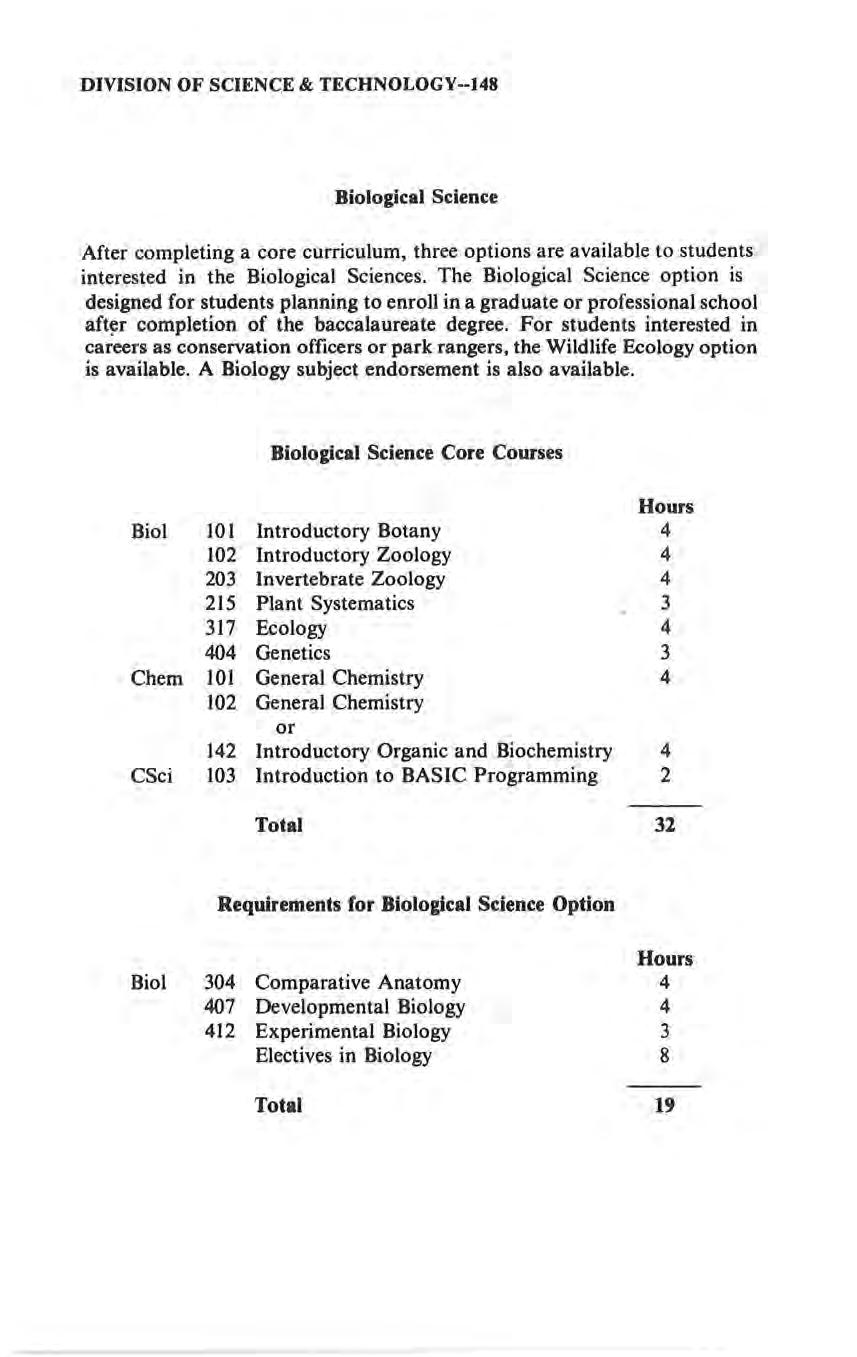
DIVISION OF SCIENCE & TECHNOLOGY--148
Science
Biological
Biological Science Core Courses Hours Biol 101 Introductory Botany 4 102 Introductory Zoology 4 203 Invertebrate Zoology 4 215 Plant Systematics 3 317 Ecology 4 404 Genetics 3 Chem 101 General Chemistry 4 102 General Chemistry or 142 Introductory Organic and Biochemistry 4 CSci 103 Introduction to BASIC Programming 2 Total 32
Hours Biol 304 Comparative Anatomy 4 407 Developmental Biology 4 412 Experimental Biology 3 Electives in Biology 8 Total 19
Suggested Program for Biological Science Option
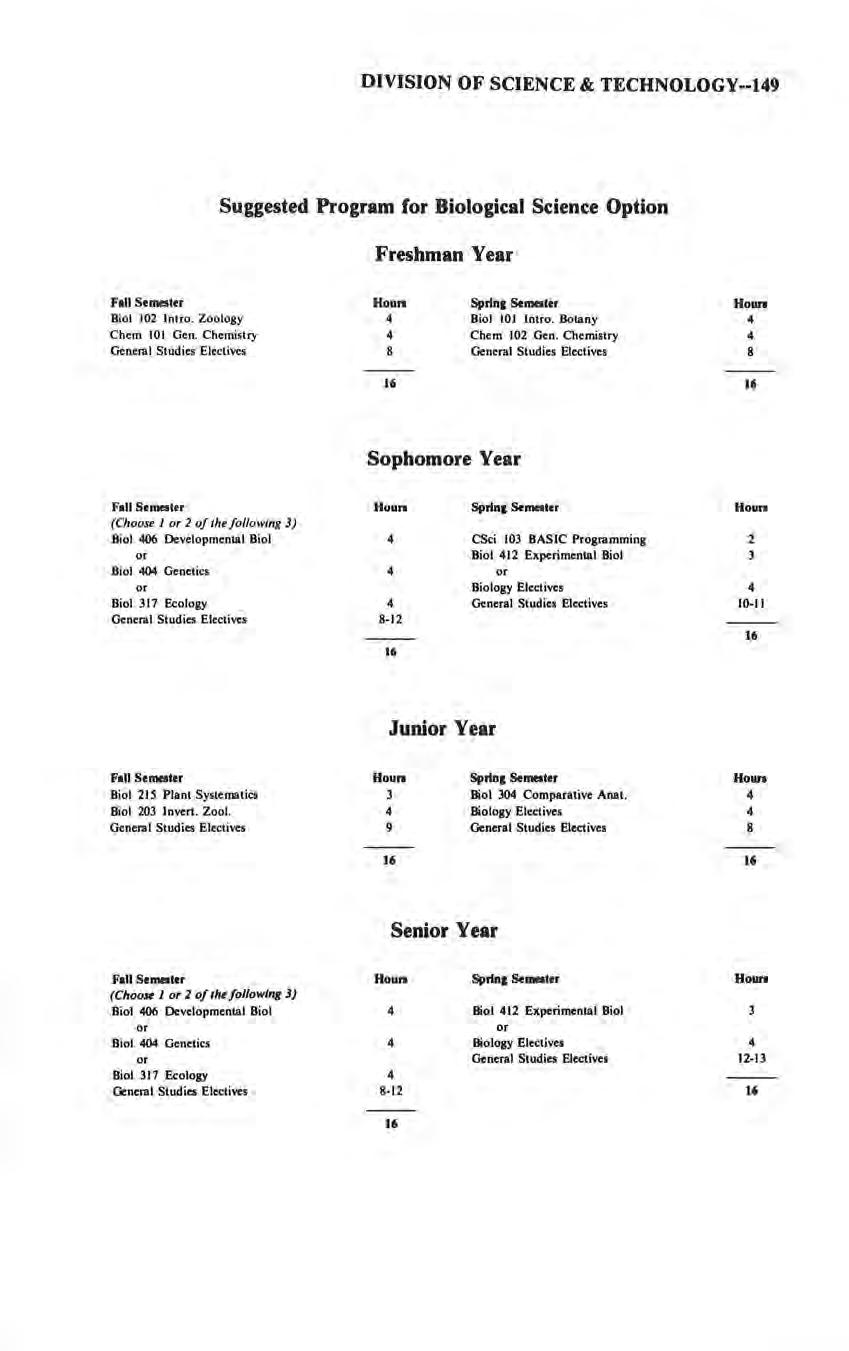
DIVISION OF SCIENCE & TECHNOLOGY--149
Fall Semester Bi o l 102 Intro. Zoology Chem 101 Gen. Chemistry General Studies Electives Fall Semester (Choose I or 2 of the following 3) Biol 406 Developmental Biol or Biol 404 Genetics or Biol 317 Ecology General Studies Elcctiv; s Fall Serneater Biol 21 S Plant Systematics Biol 203 Invert Zool. G e neral Studies Electives Fall Serneater (Choose I or 1 of the Joi/owing 3) Biol 406 Developmental Biol or Biol 404 Genetics or Biol 317 Ecology General Studies Electives Freshman Year Houn 4 4 8 16 Sprln1 Serneater Biol 10 I Intro Botany Chem 102 Gen. Chemistry General Studies Electives Sophomore Year Houn 4 4 4 8-12 16 Sprln1 Seltlflter CSci 103 BASIC Programming Biol 412 Experimental Biol or Biology Electives General Studies Electives Junior Year Houn 4 9 16 Sprlna Serneater Biol 304 Comparative Anal. Biology Electives General Studies Electives Senior Year Houn 4 8-12 16 Sprln1 Serneater Biol 412 Experimental Biol or Biology Electives General Studies Electives Houn 4 4 8 16 Houn 4 10-11 16 Houn 4 4 8 16 Houn 4 12-13 16
Suggested Program for Wildlife Ecology Option
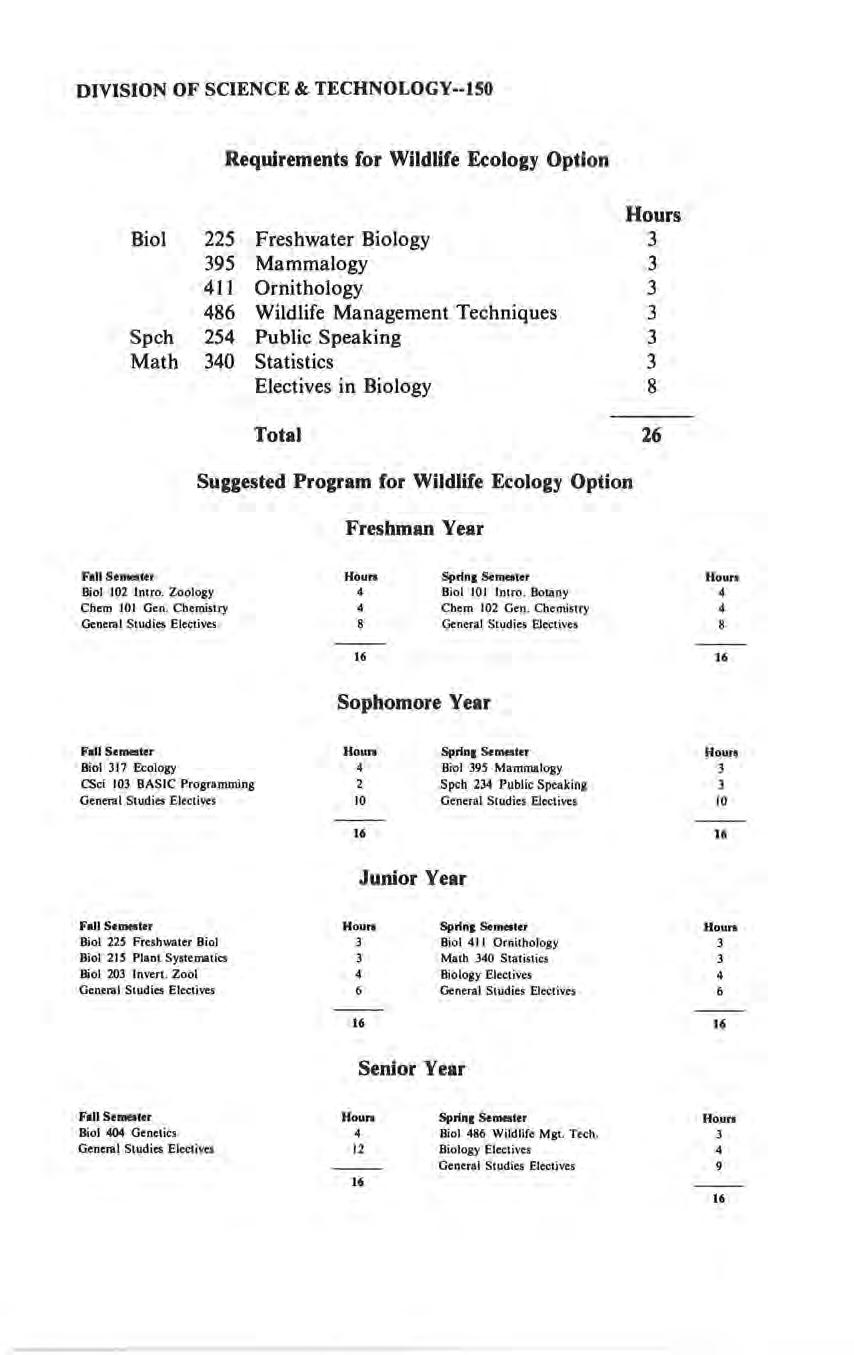
DIVISION OF SCIENCE & TECHNOLOGY--150 Biol Speh Math Requirements for Wildlife Ecology Option 225 395 411 486 254 340 Freshwater Biology Mammalogy Ornithology Wildlife Management Techniques Public Speaking Statistics Electives in Biology Total Hours 3 3 3 3 3 3 8 26
Freshman Year Semester Biol 102 Intro. Zoology Chem IOI Gen. Chemistry General Studies Electives Semester Biol 317 Ecology CSci 103 BASIC Programming General Studies Electives Semester Biol 225 Freshwater Biol Biol 215 Plant Systematics Biol 203 Invert. Zoo! General Studies Electives Semester Biol 404 Genetics General Studies Electives Houn 4 4 16 Sprlna Semester Biol IOI Intro Botany Chem 102 Gen. Chemistry General Studies Electives Sophomore Year Hours 4 IO 16 Sprlna Semester Biol 395 Mammalogy Speh 234 Public Speaking General Studies Electives Junior Year Houn 3 4 6 16 Sprlna Semester Biol 411 Ornithology Math 340 Statistics Biology Electives General Studies Electives Senior Year Hours 4 12 16 Sprln1 Semester Biol 486 Wildlife Mgt. Tech Biology Electives General Studies Electives Hours 4 4 16 Houn 3 3 IO 16 Hours 4 6 16 Houn 4 9 16
Suggested
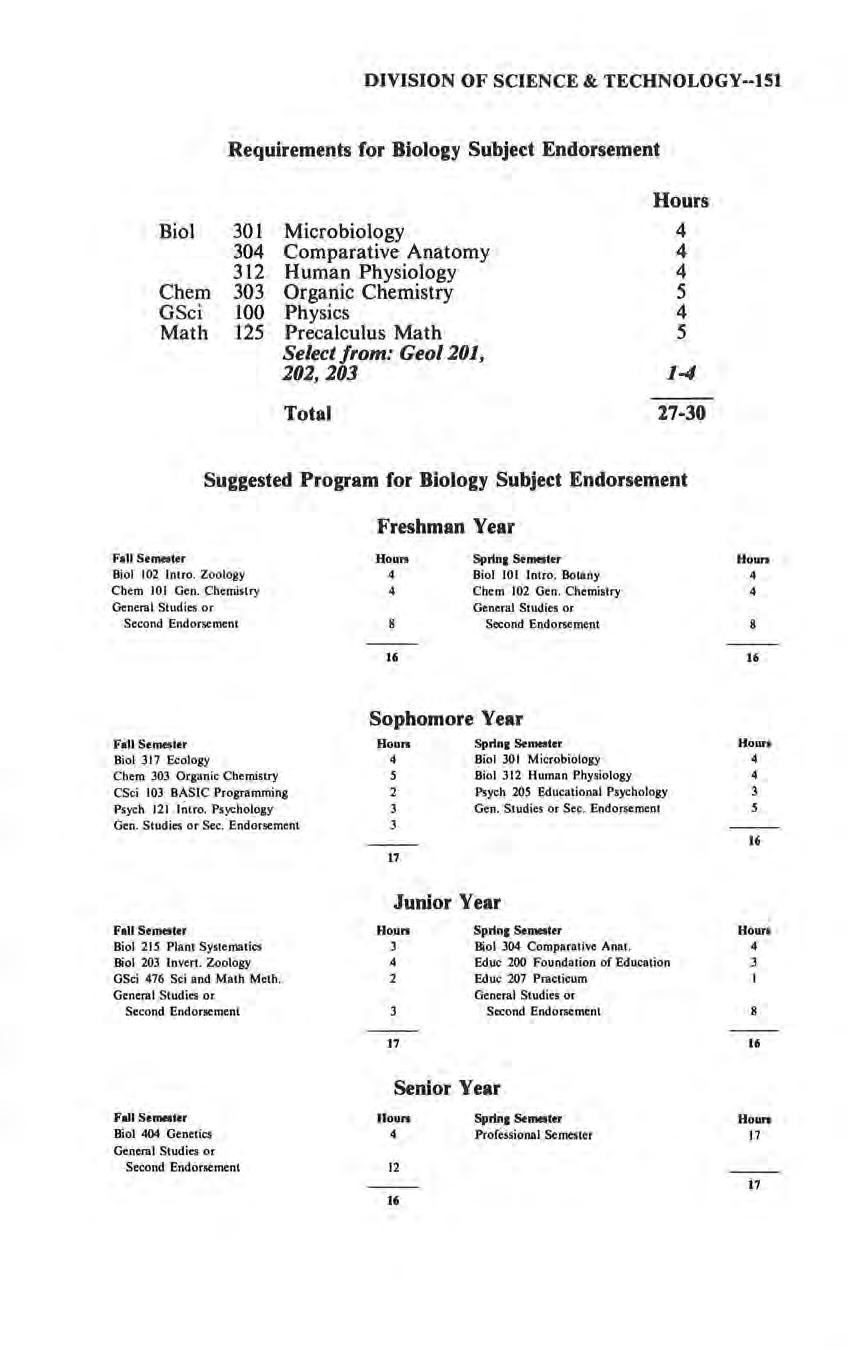
DIVISION OF SCIENCE & TECHNOLOGY--151 Requirements for Biology Subject Endorsement Hours Biol 301 Microbiology 4 304 Comparative Anatomy 4 312 Human Physiology 4 Chem 303 Organic Chemistry 5 GSci 100 Physics 4 Math 125 Precalculus Math 5 Select from: Geo/ 201, 202,203 1-4 Total 27-30
Program for Biology Subject Endorsement Freshman Year Fall Semester Biol I02 Intro Zoology Chem IOI Gen Chemistry General Studies or Second Endorsement Fall Semester Biol 317 Ecology Chem 303 Organic Chemistry CSci 103 BASIC Programming Psych 121 I~tro. Psychology Gen. Studies or Sec Endorsement Fall Semester Biol 215 Plant Systematics Biol 203 Invert. Zoology GSci 476 Sci and Math Meth General Studies or Second Endorsement Fall Semester Biol 404 Genetics General Studies or Second Endorsement Houn 4 4 16 Sprln1 Semester Biol IO I Intro Botany Chem I02 Gen Chemistry General Studies or Second Endorsement Sophomore Year Houn 4 5 2 3 3 17 Sprln1 Semester Biol 301 Microbiology Biol 312 Human Physio logy Psych 205 Educ a tional Psychology Gen Studi es or Sec Endorsement Junior Year Houn 3 4 2 17 Sprln1 Semester Biol 304 Comparative Anat. Educ 200 Foundation of Education Educ 207 Practicum General Studies or Second Endorsement Senior Year Houn 4 12 16 Sprin1 Semester Professional Semester Houn 4 4 16 Houn 4 4 3 16 Hours 4 3 16 Houn 17 17
A Chemistry subject endorsement is offered as part of the teacher education program. A second subject endorsement is required in order to satisfy the requirements for a major.
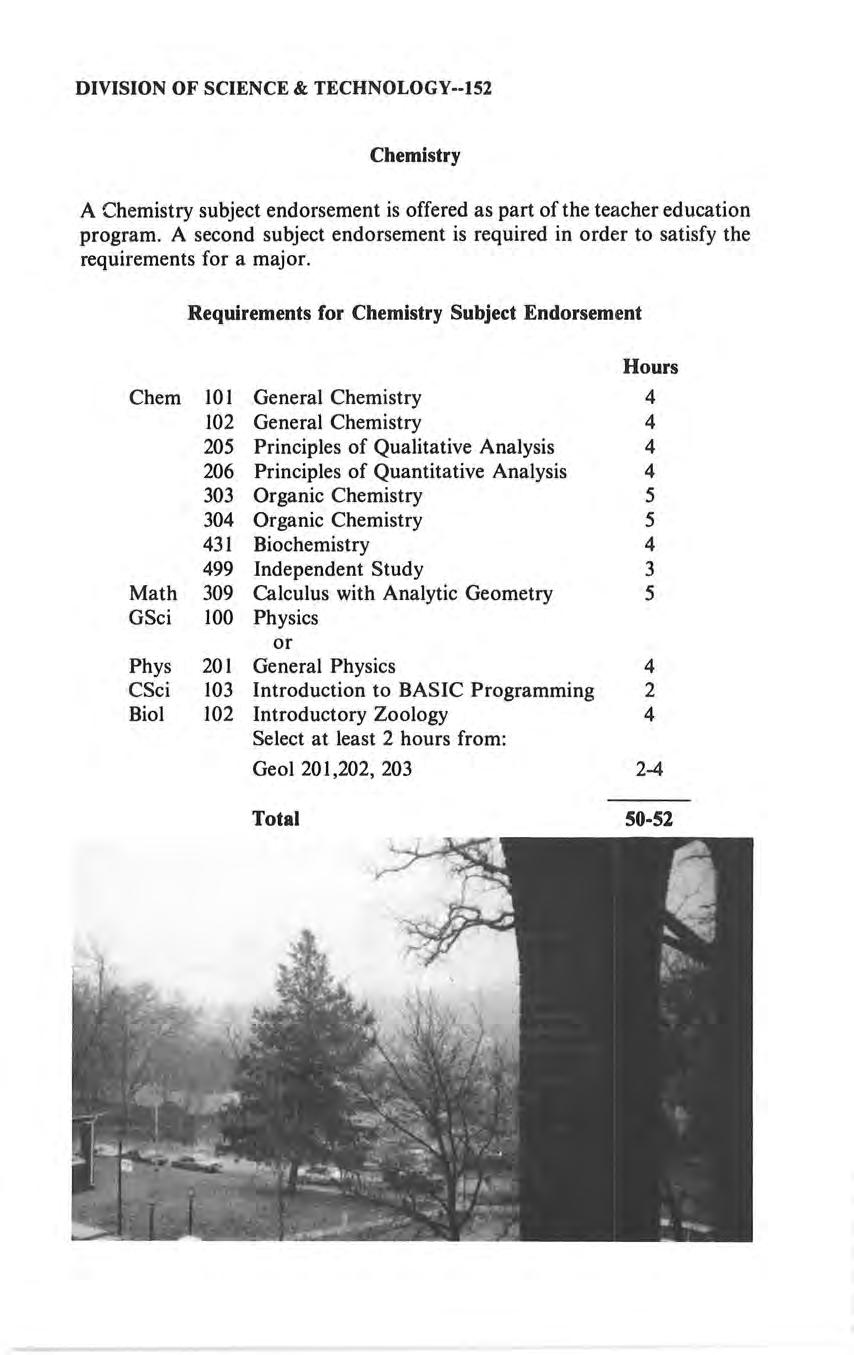
DIVISION OF SCIENCE & TECHNOLOGY--152 Chemistry
Requirements for Chemistry Subject Endorsement Hours Chem 101 General Chemistry 4 102 General Chemistry 4 205 Principles of Qualitative Analysis 4 206 Principles of Quantitative Analysis 4 303 Organic Chemistry 5 304 Organic Chemistry 5 431 Biochemistry 4 499 Independent Study 3 Math 309 Calculus with Analytic Geometry 5 GSci 100 Physics or Phys 201 General Physics 4 CSci 103 Introduction to BASIC Programming 2 Biol 102 Introductory Zoology 4 Select at least 2 hours from: Geo! 201,202, 203 2-4 Total 50-52
Suggested Program for Chemistry Subject Endorsement
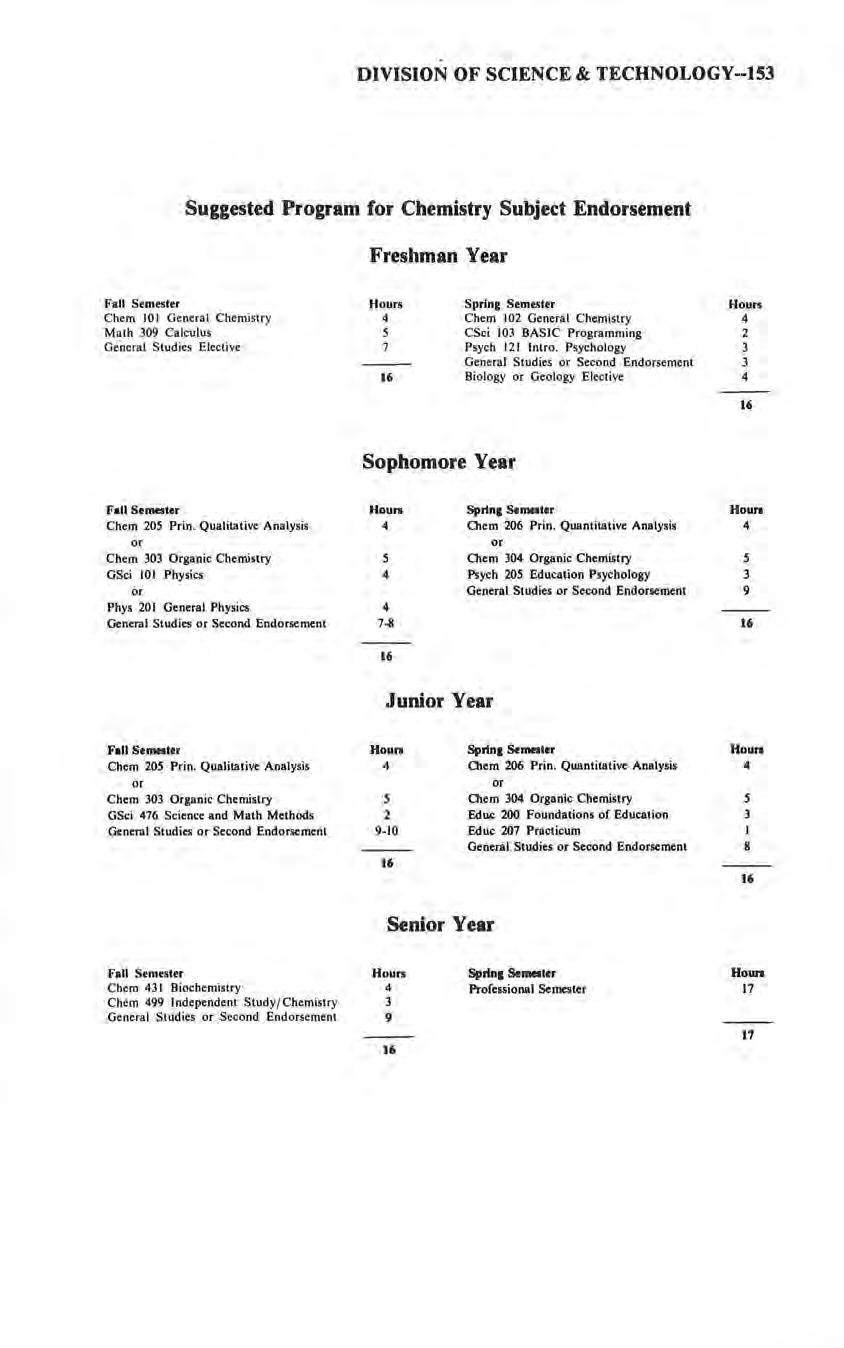
DIVISION OF SCIENCE & TECHNOLOGY--153
Fall Se mester Chem 101 General Chemistry Math 309 Calcu lu s Gerle ra l Studies Elective Fall Semester Chem 205 Prin. Qualitative Analysis or Chem 303 Organic Chemistry GSci IOI Physics or Phys 20 I General Physics General Studies or Second Endorsement F1!1Semeater Chem 205 Prin. Qualitative Analysis or Chem 303 Organic Chemistry GSci 476 Science and Math Methods General Studies or Second Endorsement Fall Semeste r Chem 431 Biochemistry C hem 499 Independent Study/Chemistry General Studies or Second Endorsement Freshman Year Hours 4 5 7 16 Spring Semester Chem 102 General Chemistry CSci 103 BASIC Programming Psych 121 Intro Psychology General Studies or Second Endorsement Biology or Geology Elective Sophomore Year Houn 4 4 16 Sprln1 Semeater 01.em 206 Prin. Quantitative Analysis or Chem 304 Organic Chemistry Psych 205 Education Psycho logy General Studies or Second Endorsement Junior Year Houn 4 2 9-IO 16 Sprln1 Semeater Oiem 206 Prin. Quantitative Analysis or Chem 304 Organic Chemistry Edw: 200 Foundations of Education Educ 207 Practicum General Studies or Second Endorsenient Senior Year Hours 4 3 9 16 Sprln1 Semeater Professional Semester Hours 4 2 3 3 4 16 Hours 4 9 16 Houn 4 16 Hours 17 17
Computer Science
After completing a core curriculum, two options are available to students interested in a Computer Science major-the technical option and the business application option. Students majoring in other areas and seeking background in computers may select the Computer Science minor.
*Students who have successfully completed mathematics courses equivalent to Math 125 and Math 126 may have these courses waived. Consent of Division Chairperson is required. If consent is given, only 54 hours are required for the major .
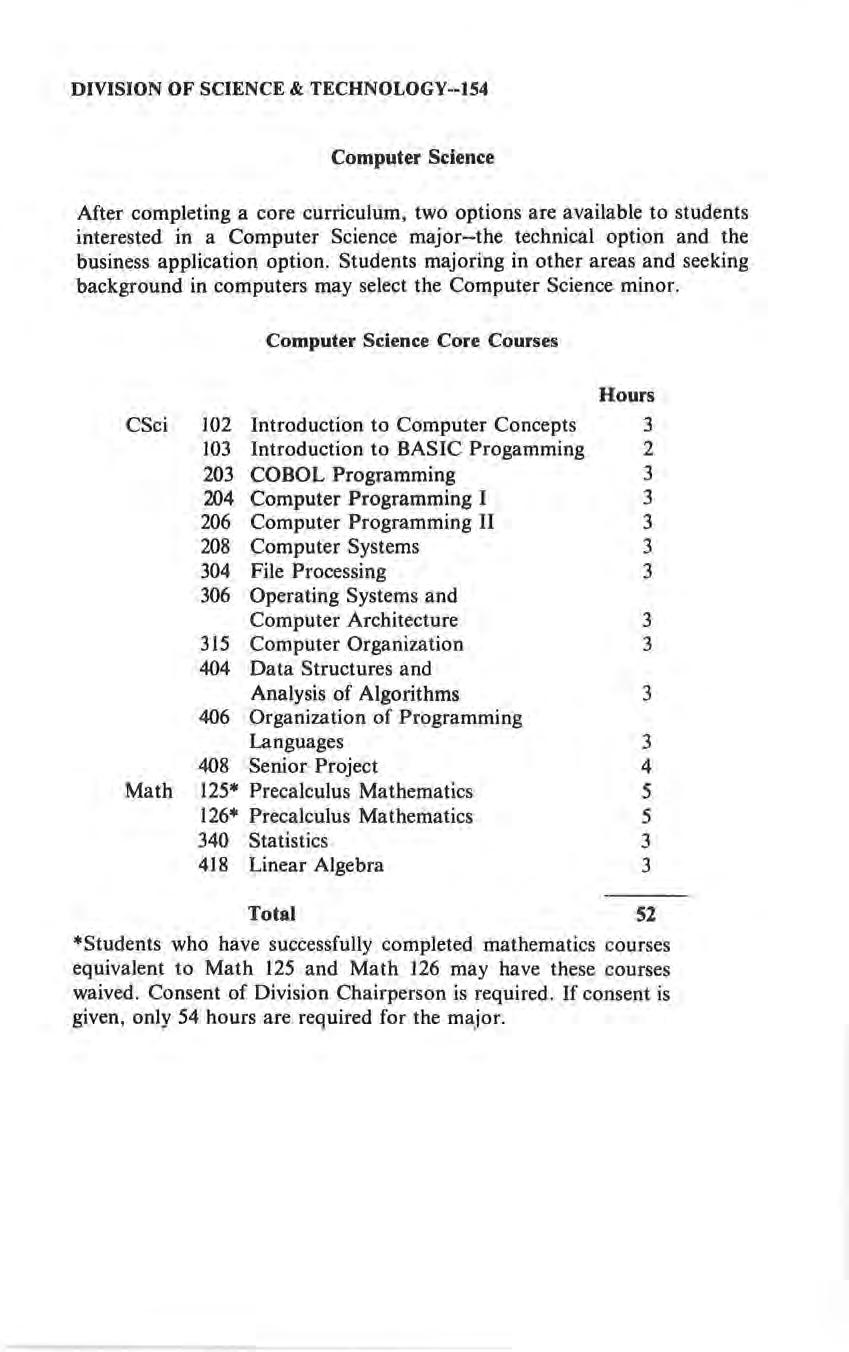
DIVISION OF SCIENCE & TECHNOLOGY--154
Computer Science Core Courses Hours CSci 102 Introduction to Computer Concepts 3 103 Introduction to BASIC Progamming 2 203 COBOL Programming 3 204 Computer Programming I 3 206 Computer Programming II 3 208 Computer Systems 3 304 File Processing 3 306 Operating Systems and Computer Architecture 3 315 Computer Organization 3 404 Data Structures and Analysis of Algorithms 3 406 Organization of Programming Languages 3 408 Senior Project 4 Math 125* Precalculus Mathematics 5 126* Precalculus Mathematics 5 340 Statistics 3 418 Linear Algebra 3 Total 52
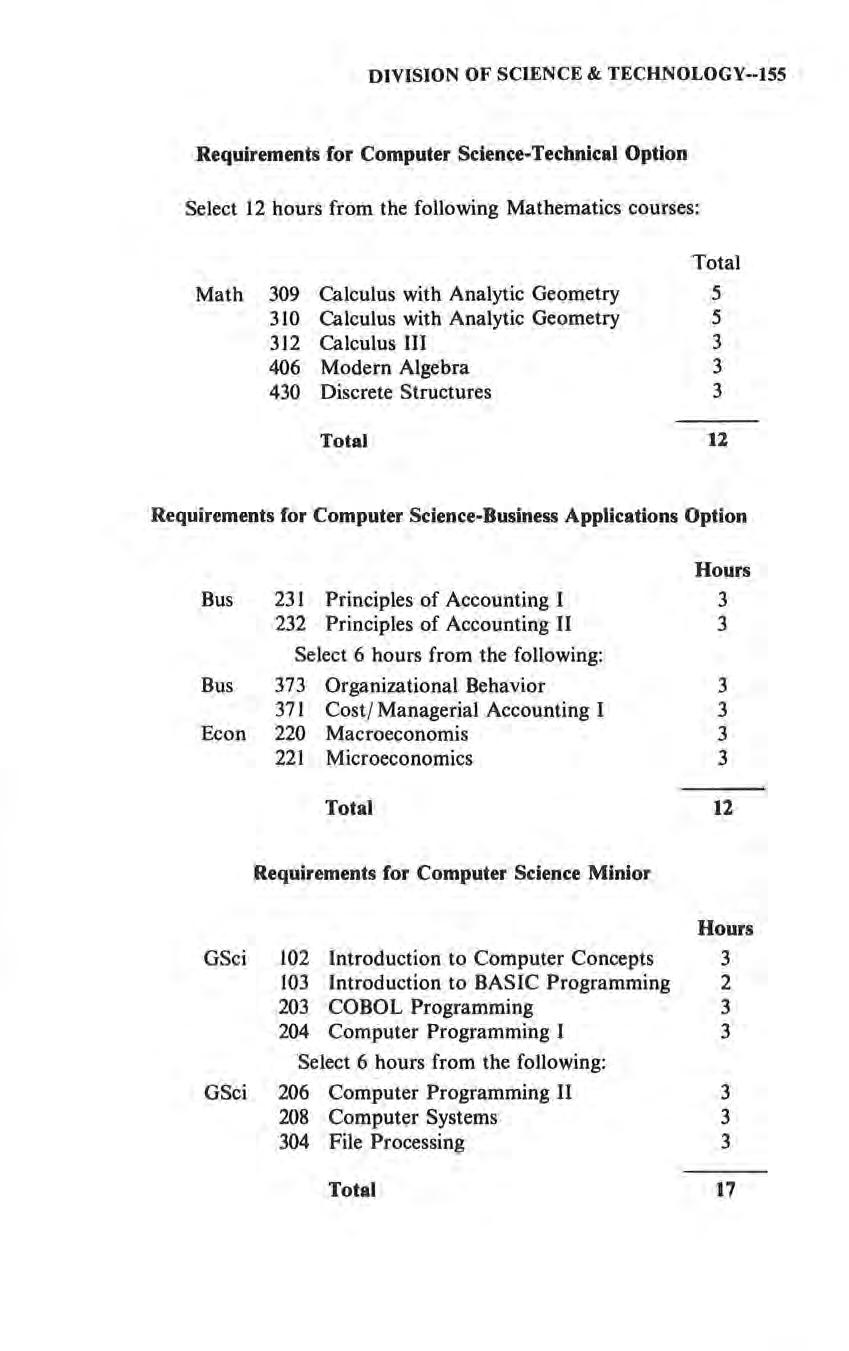
DIVISION OF SCIENCE & TECHNOLOGY--155 Requirements for Computer Science-Technical Option Select 12 hours from the following Mathematics courses: Total Math 309 Calculus with Analytic Geometry 5 310 Calculus with Analytic Geometry 5 312 Calculus III 3 406 Modern Algebra 3 430 Discrete Structures 3 Total 12 Requirements for Computer Science-Business Applications Option Hours Bus 231 Principles of Accounting I 3 232 Principles of Accounting II 3 Select 6 hours from the following: Bus 373 Organizational Behavior 3 371 Cost/ Managerial Accounting I 3 Econ 220 Macroeconomis 3 221 Microeconomics 3 Total 12 Requirements for Computer Science Minior Hours GSci 102 Introduction to Computer Concepts 3 103 Introduction to BASIC Programming 2 203 COBOL Programming 3 204 Computer Programming I 3 Select 6 hours from the following: GSci 206 Computer Programming II 3 208 Computer Systems 3 304 File Processing 3 Total 17
Requirements for Computer Science Supplemental Endorsement
To obtain the endorsement, teacher education students must also sat isfy the requi rement of a major in either one field or two subjects.
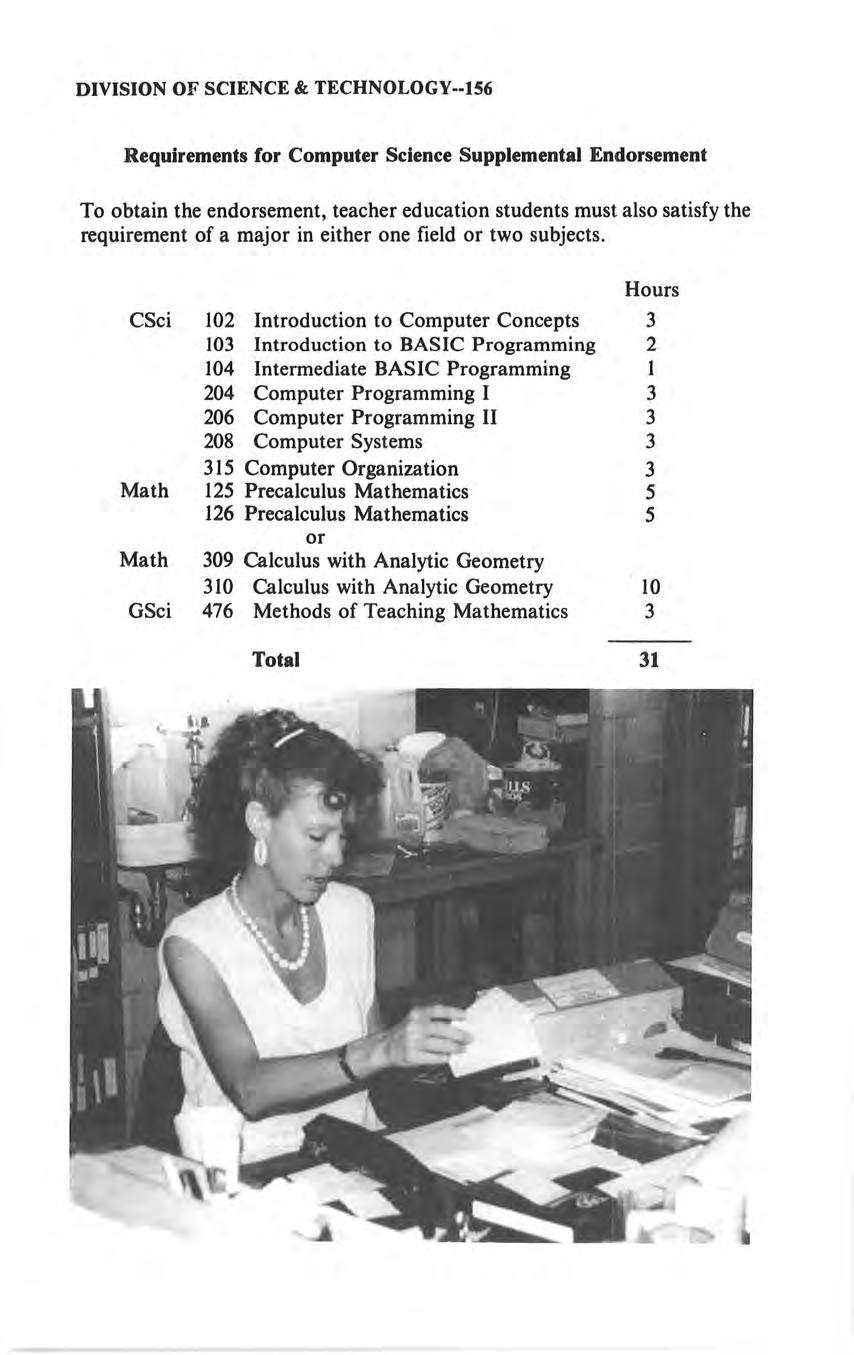
DIVISION OF SCIENCE & TECHNOLOGY--156
Hours CSci 102 Introduction to Computer Concepts 3 103 Introduction to BASIC Programming 2 104 Intermediate BASIC Programming 1 204 Computer Programming I 3 206 Computer Programming II 3 208 Computer Systems 3 315 Computer Organization 3 Math 125 Precalculus Mathematics 5 126 Precalculus Mathematics 5 or Math 309 Calculus with Analytic Geometry 310 Calculus with Analytic Geometry · IO GSci 476 Methods of Teaching Mathematics 3 Total 31
Suggested Program for Computer Science
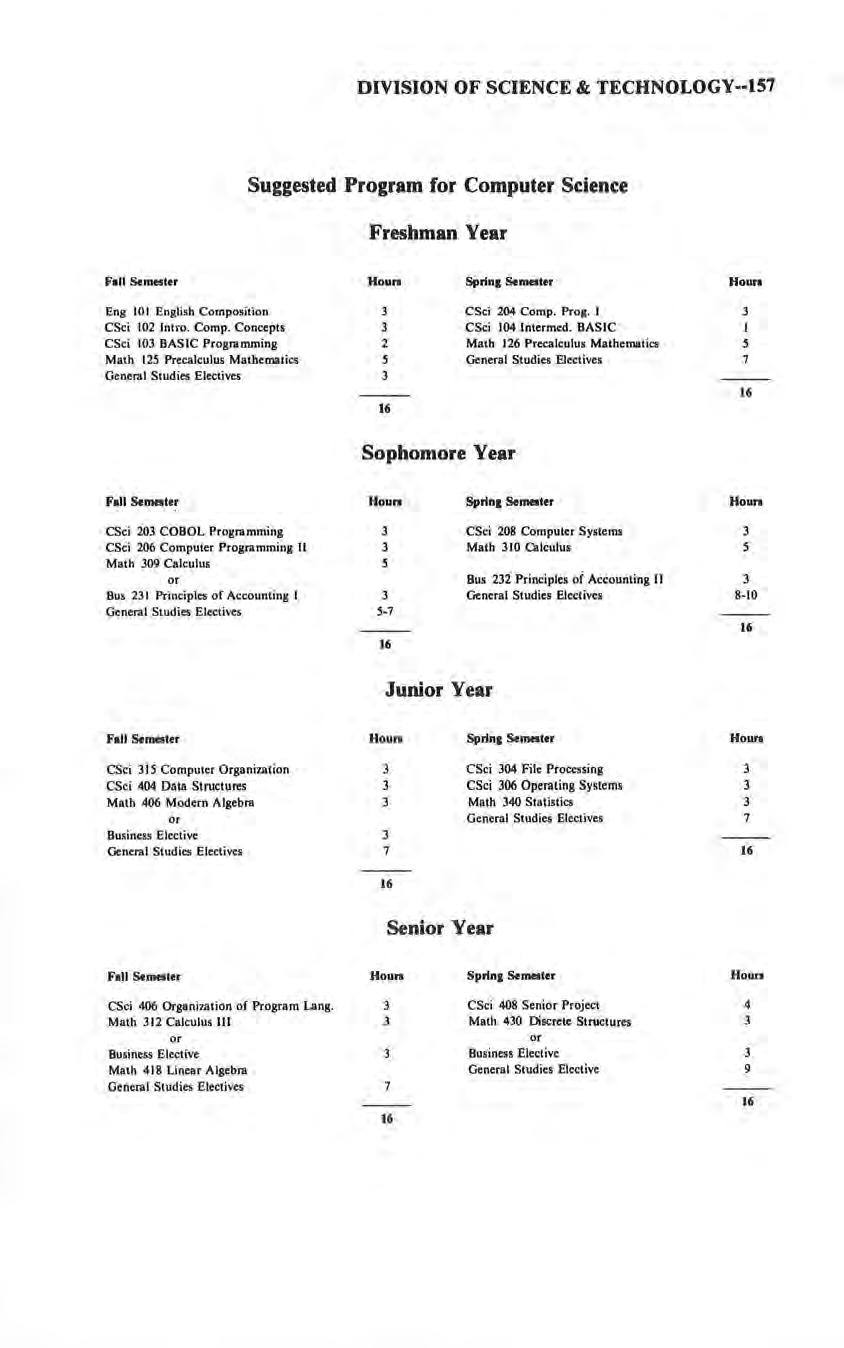
DIVISION OF SCIENCE & TECHNOLOGY--157
Fall Semester Eng IO I English Composition CSc i 102 Intro. Comp Concepts CSci 103 BASIC Programming Math 125 Precalculus Mathematics General Studies Electives Fall Semester CSci 203 COBOL Programming CSci 206 Computer Programming II Math 309 Calcu lus or Bus 231 Princ iples of Accounting 1 General Studies Electives Fall Semester CSci 315 Computer Organil1ltion CSci 404 Data Structures Math 406 Modern Algebra or Business Elective General Studies Electives Fall Semester CSci 406 OrganiZ11tion of Program Lang. Math 312 Calculus Ill or Business Elective Math 418 Linear Algebra General Studies Electives Freshman Year Houn 3 3 2 5 3 16 Sprlna Semester CSci 204 Comp Prog. CSci 104 lntermed BASIC Math 126 Precalculus Mathematics General Studies Electives Sophomore Year Houn 5-7 16 Sprlna Semester CSci 208 Computer Systems Math 3 IO Calculus Bus 232 Principles of Accounting II General Studies Electives Junior Year Houn 16 Sprlna Semester CSci 304 File Processing CSci 306 Operating Systems Math 340 Statistics General Studies Electives Senior Year Houn 16 Sprln1 Semester CSci 408 Senior Project Math 430 Discrete Structures or Business Elective General Studies Elective Houn 16 Houn 3 8-10 16 Houn 16 Hours 3 9 16
Mathematics
The requirements listed represent both the education and non-education degree programs. If the teaching endorsement is chosen, attention must be given to additional courses required for entrance into the professional semester. In the teacher education program, mathematics is a field endorsement. Those who have taken Mathematics courses equivalent to Math 125 and 126 may begin the major with Math 309. In such cases, 32 hours are needed for the major. Consent of the Division Chairperson is required.
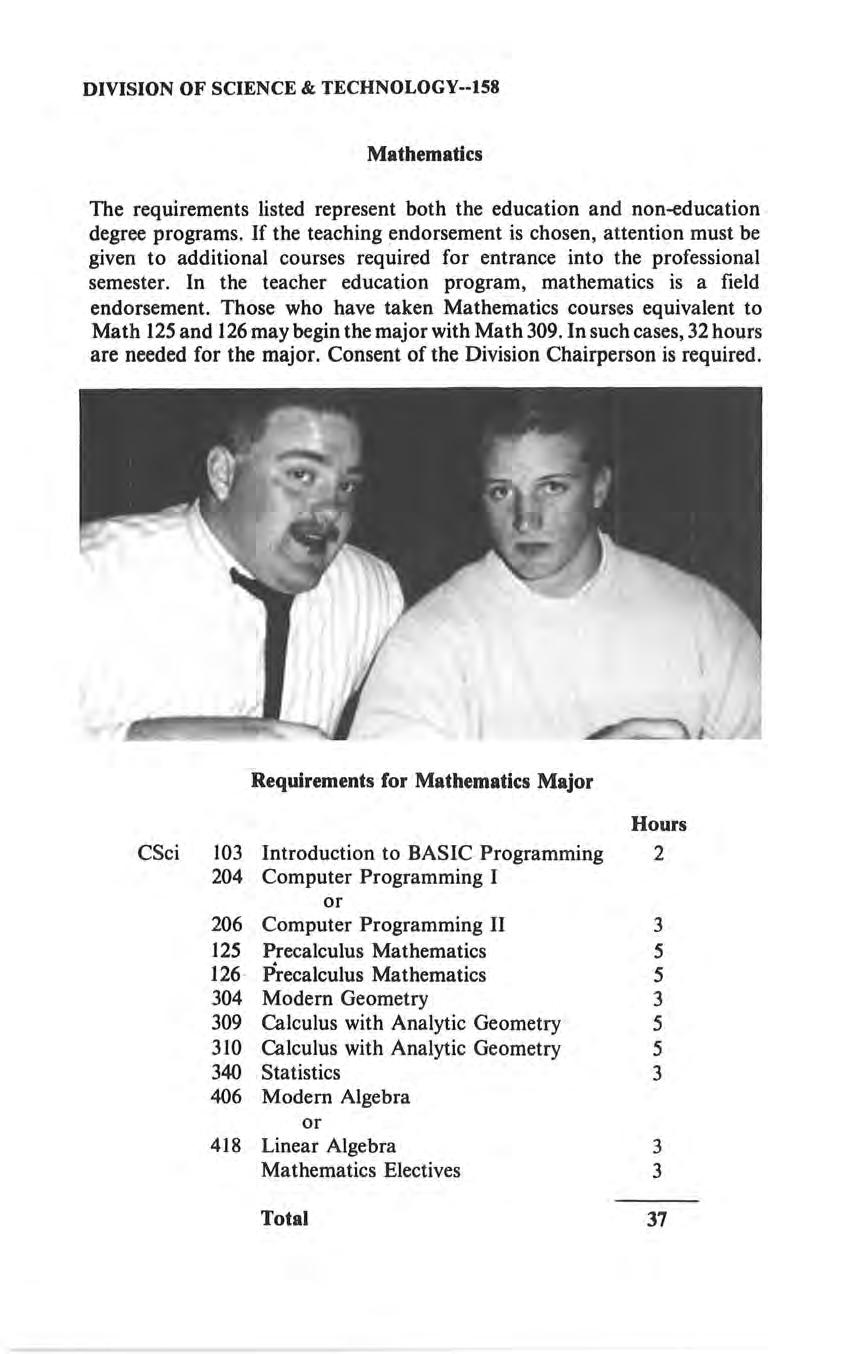
DIVISION OF SCIENCE & TECHNOLOGY--158
Requirements for Mathematics Major Hours CSci 103 Introduction to BASIC Programming 2 204 Computer Programming I or 206 Computer Programming II 3 125 Precalculus Mathematics 5 126 Precalculus Mathematics 5 304 Modern Geometry 3 309 Calculus with Analytic Geometry 5 310 Calculus with Analytic Geometry 5 340 Statistics 3 406 Modern Algebra or 418 Linear Algebra 3 Mathematics Electives 3 Total 37
Suggested Program for Mathematics Major
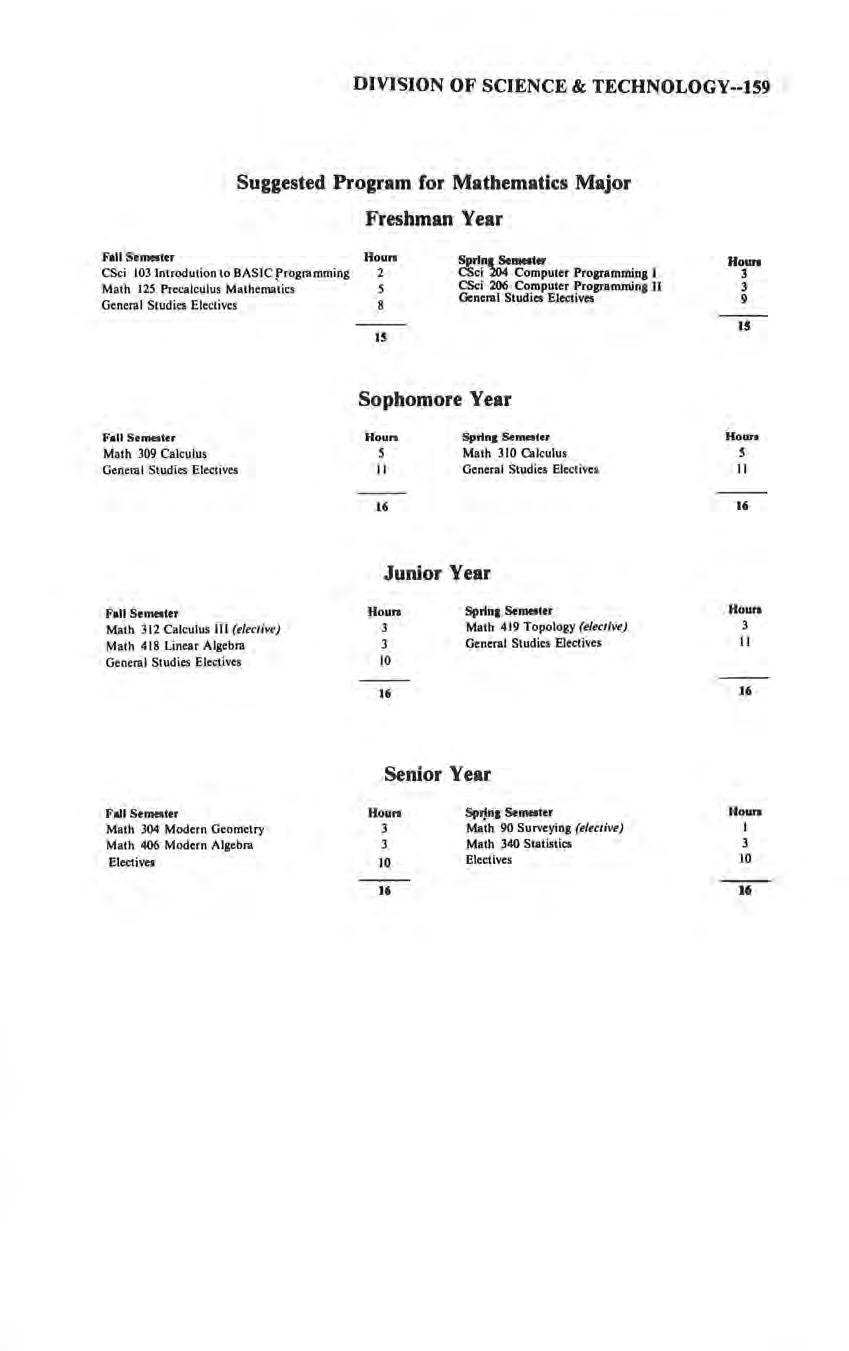
DIVI43ION OF SCIENCE & TECHNOLOGY--159
Freshman Year Fill Semester Houn CSci 103 lntrodution to BASIC programming 2 Math 125 Precalculus Mathematic s 5 General Studies Electives 8 15 Sprln1· Semeoter CSci 204 Computer Programming I CSci 206 Computer Programming II General Studies Electives Sophomore Year Fall Semester Math 309 Calculus General Studies Electives Fall Semester Math 312 Calculus Ill (elective) Math 418 Linear Algebra General Studies Electives Fall Semester Math 304 Modern Geometry Math 406 Modern Algebra Electives Houn II 16 Sprtn1 Semnter Math 310 Calculus General Studies Electives Junior Year Houn 3 10 16 Sprln1 Semester Math 419 Topology (elective) General Studies Electives Senior Year Houn 3 3 lO 16 Sprln1 Semester Maih 90 Surveying (elective) Math 340 Statistics Electives Houn 3 3 9 15 Houn II 16 Houn 3 II 16 Houn I 3 lO 16
Natural Science
The requirements listed represent both the education and non-education degree programs. If the teaching endorsement is chosen, attention must be given to the additional courses required for entrance into the professional semester. In the teacher education program,
is a field endorsement.
Additional work in either Biology , Chemistry, Physics or Earth Science is required so that the candidate has completed at least 20 semester hours in one of these subjects.
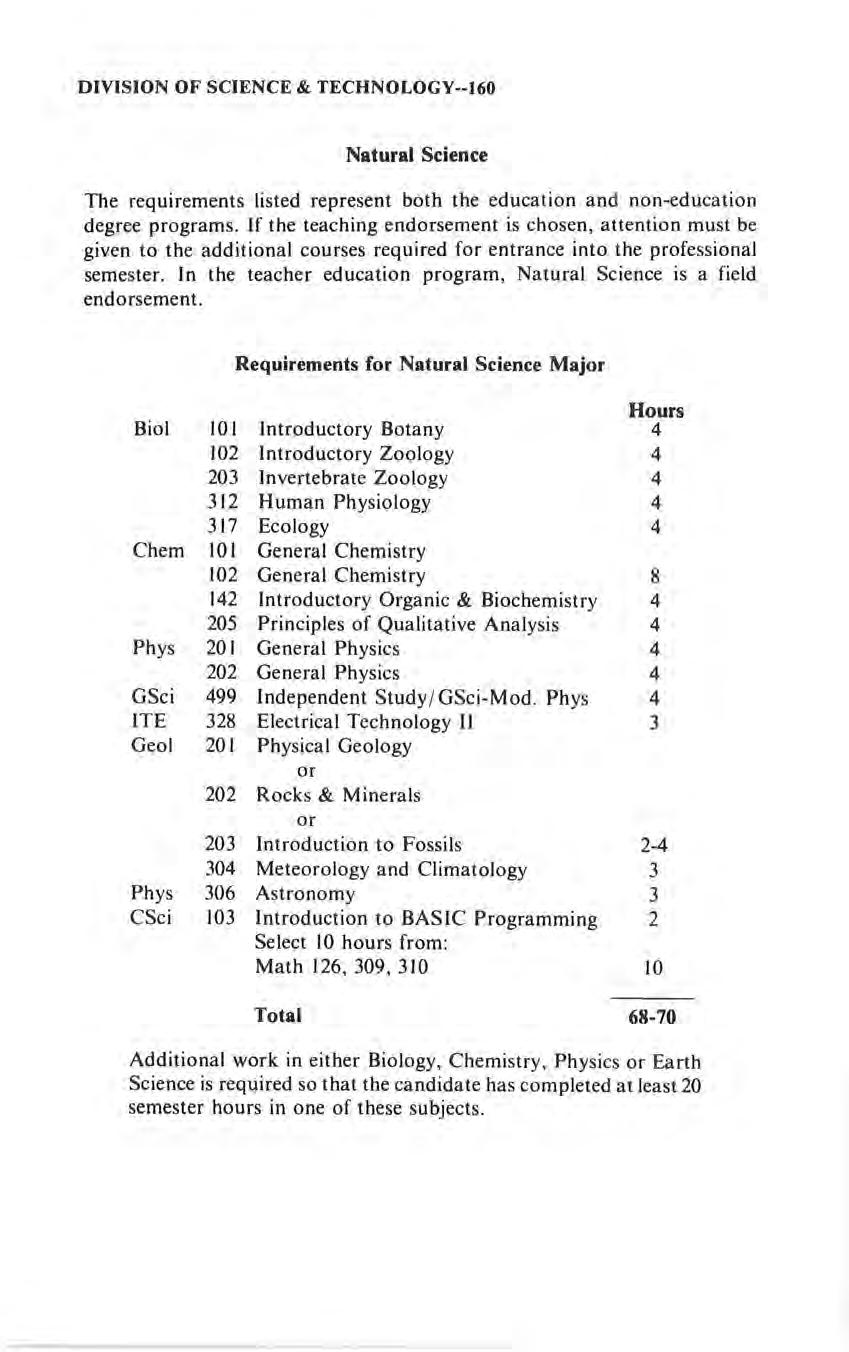
DIVISION OF SCIENCE & TECHNOLOGY--160
Science
Requirements for Natural Science Major Biol IOI Introductory Botany 102 Introductory Zoology 203 Invertebrate Zoology 312 Human Physiology 317 Ecology Chem IOI General Chemistry 102 General Chemistry 142 Introductory Organic & Biochemistry 205 Principles of Qualitative Analysis Phys 201 General Physics 202 General Physics GSci 499 Independent Study / GSci-Mod. Phys ITE 328 Electrical Technology II Geol 201 Physical Geology or 202 Rocks & Minerals or 203 Introduction to Fossils 304 Meteorology and Climatology Phys 306 Astronomy CSci 103 Introduction to BASIC Programming Select 10 hours from : Math 126, 309, 310 Total Hours 4 4 4 4 4 8 4 4 4 4 4 3 2-4 3 3 2 68 - 70
Natural
Suggested Program for Natural Science
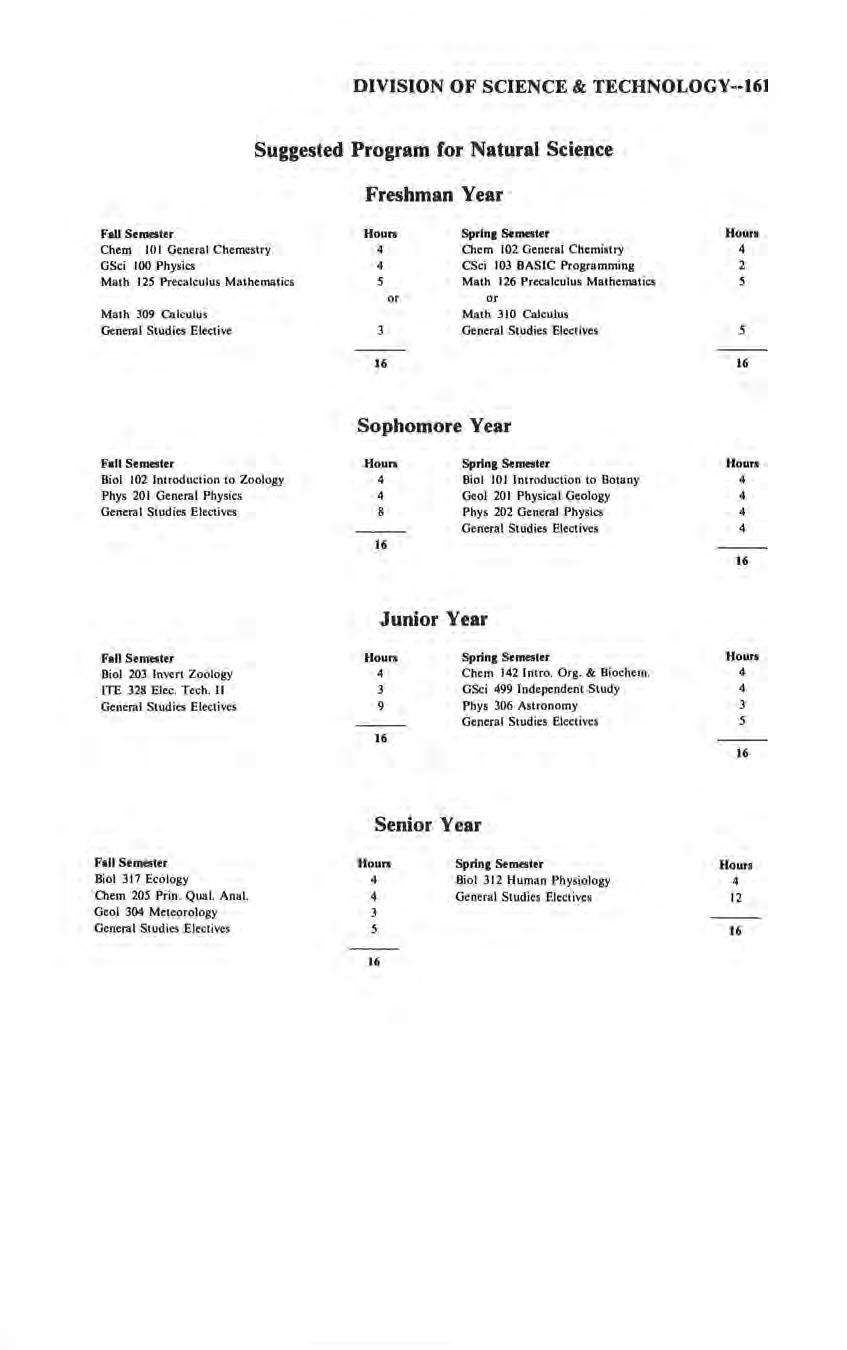
DIVISION OF SCIENCE & TECHNOLOGY--161
Freshman Year Fill Semester Chem IOI General Chemestry GSci 100 Physics Math 125 Pre calculus Mathematic s Math 309 Calculu s General Studies Elective Fall Semester Biol 102 Introduction to Zoology Phys 20 I General Physics General Studies Electives Fall Semester Biol 203 Invert Zoology ITE 328 Elec. Tech. II Genei:al Studies Electives Fall Semester Biol 3 I 7 Ecology O,em 205 Prin. Qual. Anal. Geol 304 Meteorology General Studies Electives Houn 4 4 or 16 Sprln1 Semester Olem I02 General Chemistry CSci I03 BASIC Programming Math 126 Precalculus Mathematics or Math 310 Calculus General Studies Electives Sophomore Year Hours 4 4 8 16 Sprln& Semester Biol IOI Introduction to Botany Geol 201 Physical Geology Phys 202 General Physics General Studies Electives Junior Year Hours 4 3 9 16 Sprln1 Semester Chem 142 Intro. Org. & Biochem. GSci 499 Independent Study Phys 306 Astronomy General Studies Electives Senior Year Houn 4 4 16 Sprln& Semester Bi o l 312 Human Physiology General Studies Electives Hours 4 2 16 Hours 4 4 4 4 16 Hours 4 4 3 5 16 Hours 4 12 16
In addition to the specific coursework requirements lis t ed below, the candidate for this major must also be a licensed reactor operator. Questions regarding this program should be directed to the Chairperson of the Division of Science and Technology.
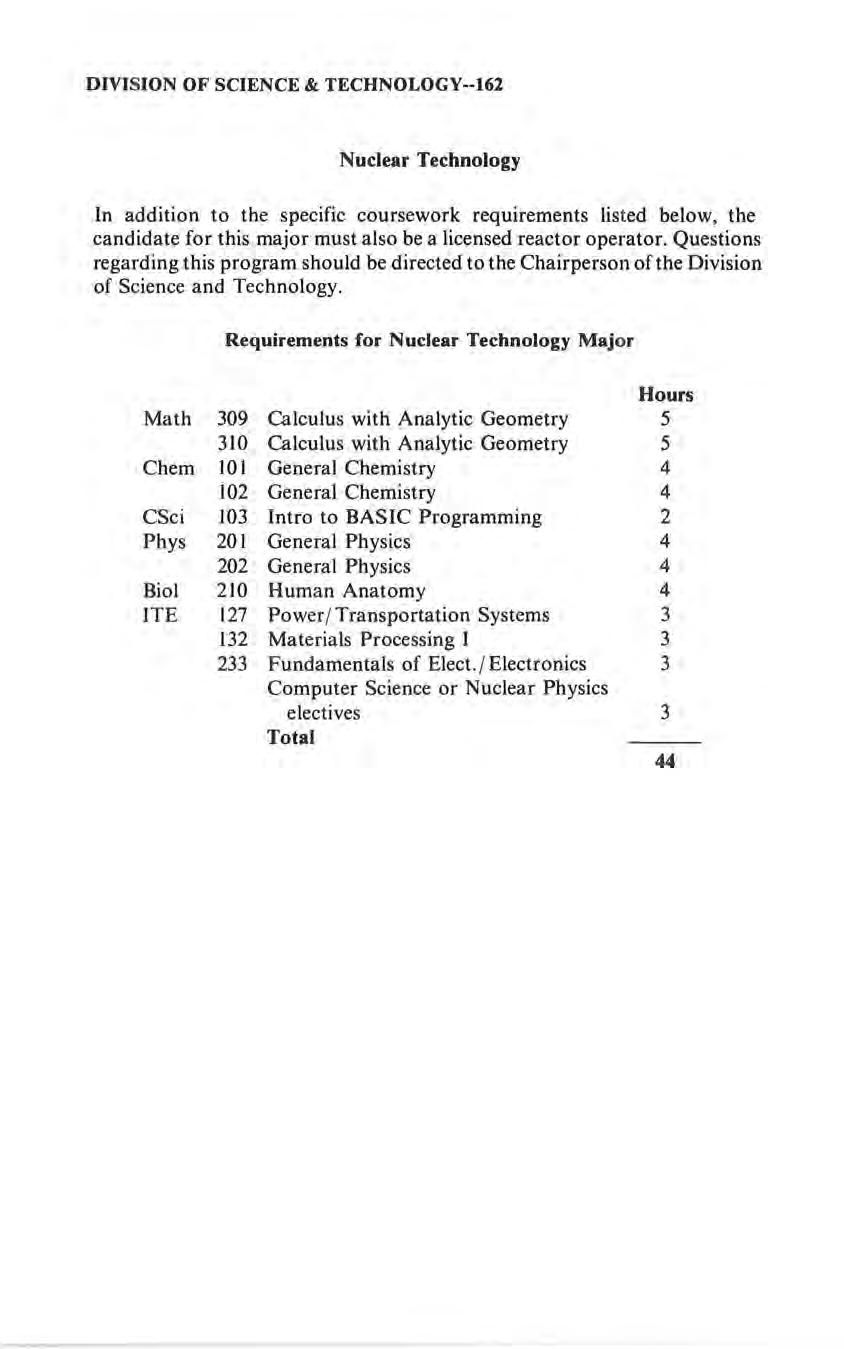
DIVISION OF SCIENCE & TECHNOLOGY--162 Nuclear Technology
Math Chem CSci Phys Biol ITE Requirements for Nuclear Technology Major 309 Calculus with Analytic Geometry 310 Calculus with Analytic Geometry 10 I General Chemistry I02 General Chemistry 103 Intro to BASIC Programming 20 I General Physics 202 General Physics 210 Human Anatomy 127 Power / Transportation Systems 132 Materials Processing I 233 Fundamentals of Elect. / Electronics Computer Science or Nuclear Physics electives Total Hours 5 5 4 4 2 4 4 4 3 3 3 3 44
Physical Science
The requirements listed represent both the education and non-education degree programs. If the teaching endorsement is chosen, attention must be given to the additional courses required for entrance into the professional semester. In the teacher education program, Physical Science is a field endorsement.
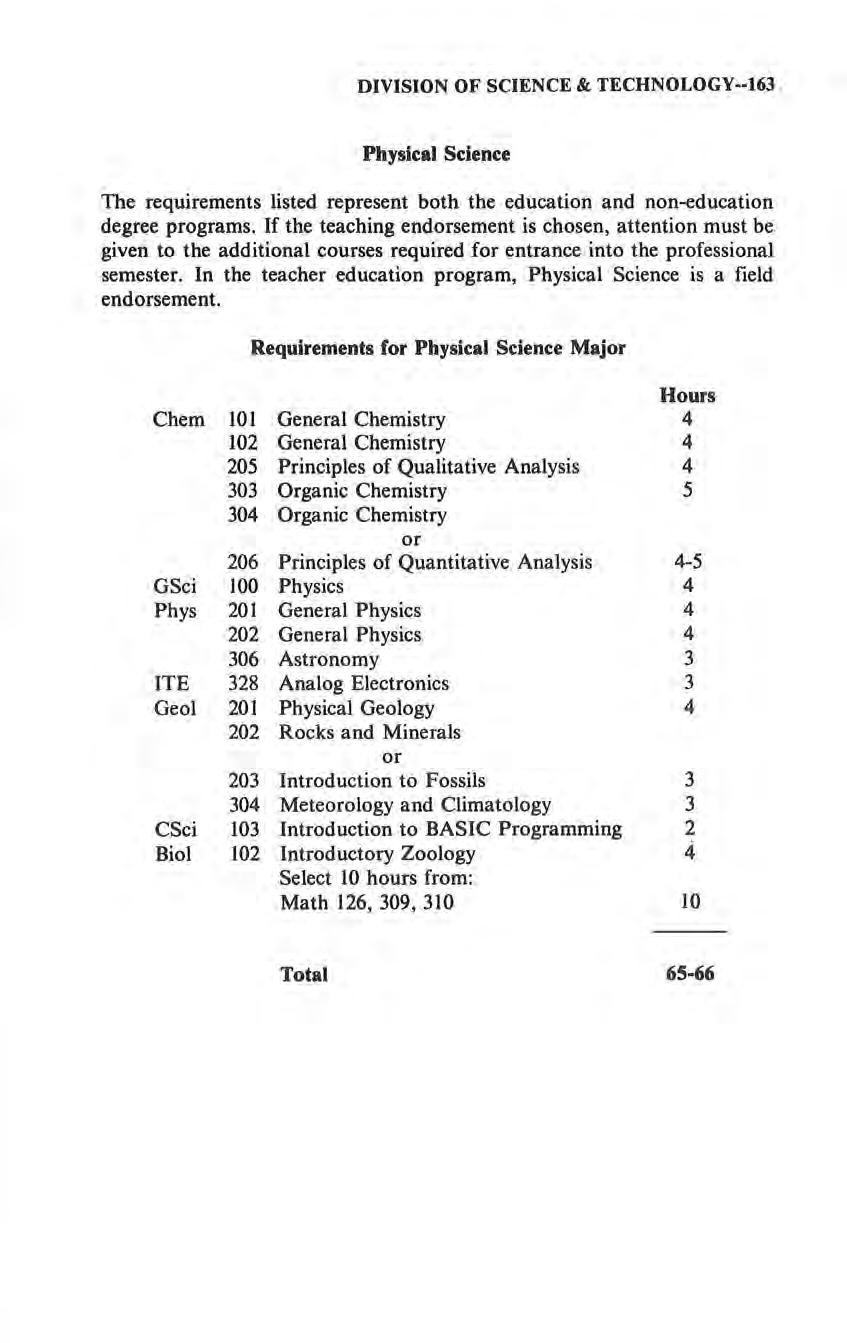
DIVISION OF SCIENCE & TECHNOLOGY--163.
Requirements for Physical Science Major Hours Chem 101 General Chemistry 4 102 General Chemistry 4 205 Principles of Qualitative Analysis 4 303 Organic Chemistry 5 304 Organic Chemistry or 206 Principles of Quantitative Analysis 4-5 GSci 100 Physics 4 Phys 201 General Physics 4 202 General Physics 4 306 Astronomy 3 ITE 328 Analog Electronics 3 Geo! 201 Physical Geology 4 202 Rocks and Minerals or 203 Introduction to Fossils 3 304 Meteorology and Climatology 3 CSci 103 Introduction to BASIC Programming 2 Biol 102 Introductory Zoology 4 Select 10 hours from: Math 126, 309, 310 10 Total 65-66
Suggested Program for Physical Science Major
. Senior Year
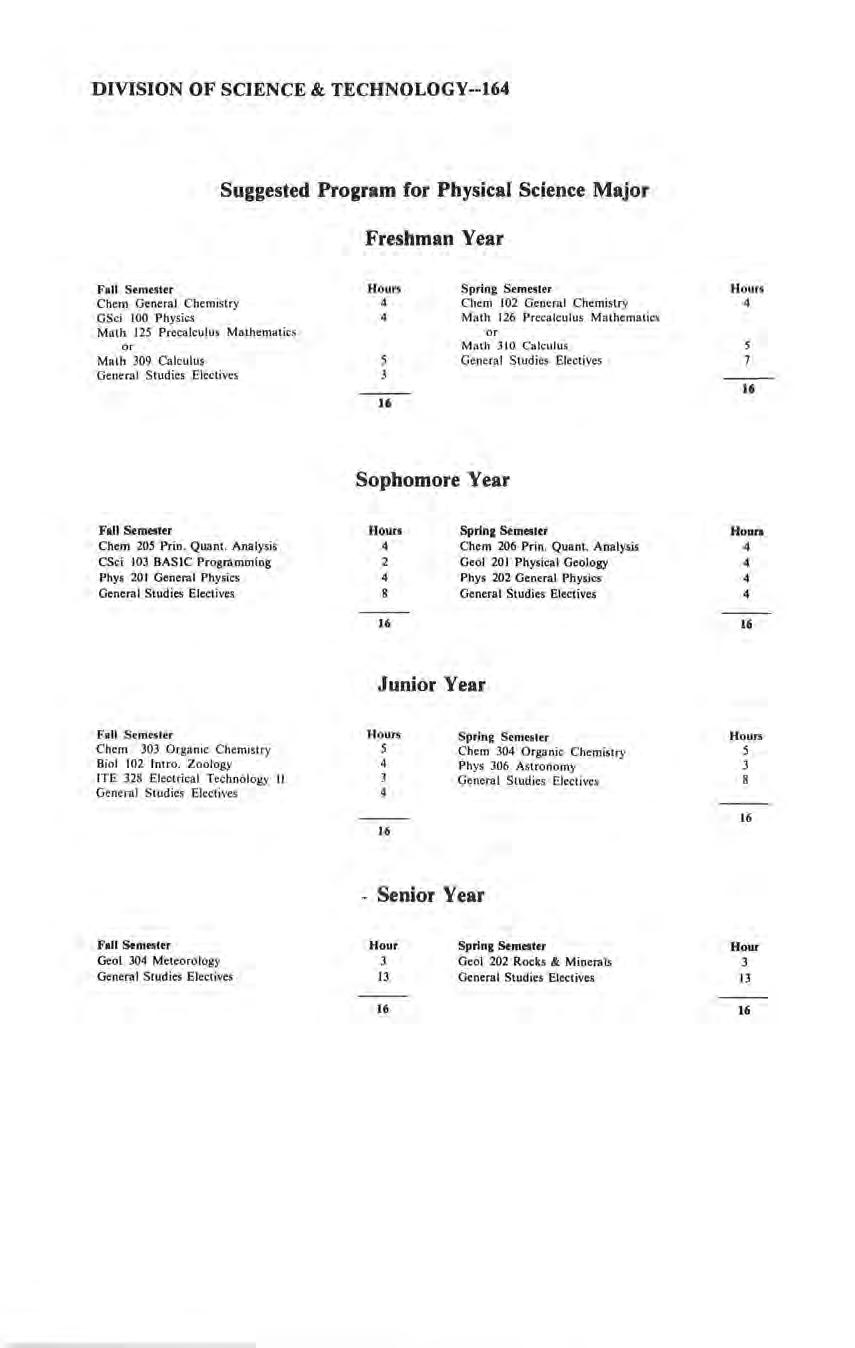
DIVISION OF SCIENCE & TECHNOLOGY--164
Fall Semester Chem General Chemistry GSci JOO Physics Math 125 Precalculus Mathematics or Math 309 Calcu lu s General Studies Electives Foll Semester Chem 205 Prin. Quant. Analysis CSci 103 BASIC Programming Phys 201 General Physics General Studies Electives Fall Semester Chem 303 Organic Chem istry Biol 10 2 Intro. Zoo logy !TE 328 E lectri ca l Technology JI General Studies Electives Foll Semester Geo) 304 Mete orology General Studies Electives Freshman Year Hours 4 4 16 S pring Semester Chem 102 General Chemistry Math 126 Precalculus Mathematics or Math 310 Ca lcu lu s General Studies Electives Sophomore Year Hours 4 2 4 8 16 Sprin1 Semester Chem 206 Prin. Quant. Analysis Geo! 201 Physical Geology Phys 202 General Physics General Studies Electives Junior Year Hours 5 4 3 4 16 Spr ing Semester Chem 304 Organic C hem istry Phys 306 Astronomy General S tudi es Electives
Hour 3 13 16 Sprin1 Semester Geo! 202 Rocks & Minerals General Studies Electives Hours 4 16 Houn 4 4 4 4 16 Hours 5 3 8 Hour 3 13 16
Pre-Professional Programs
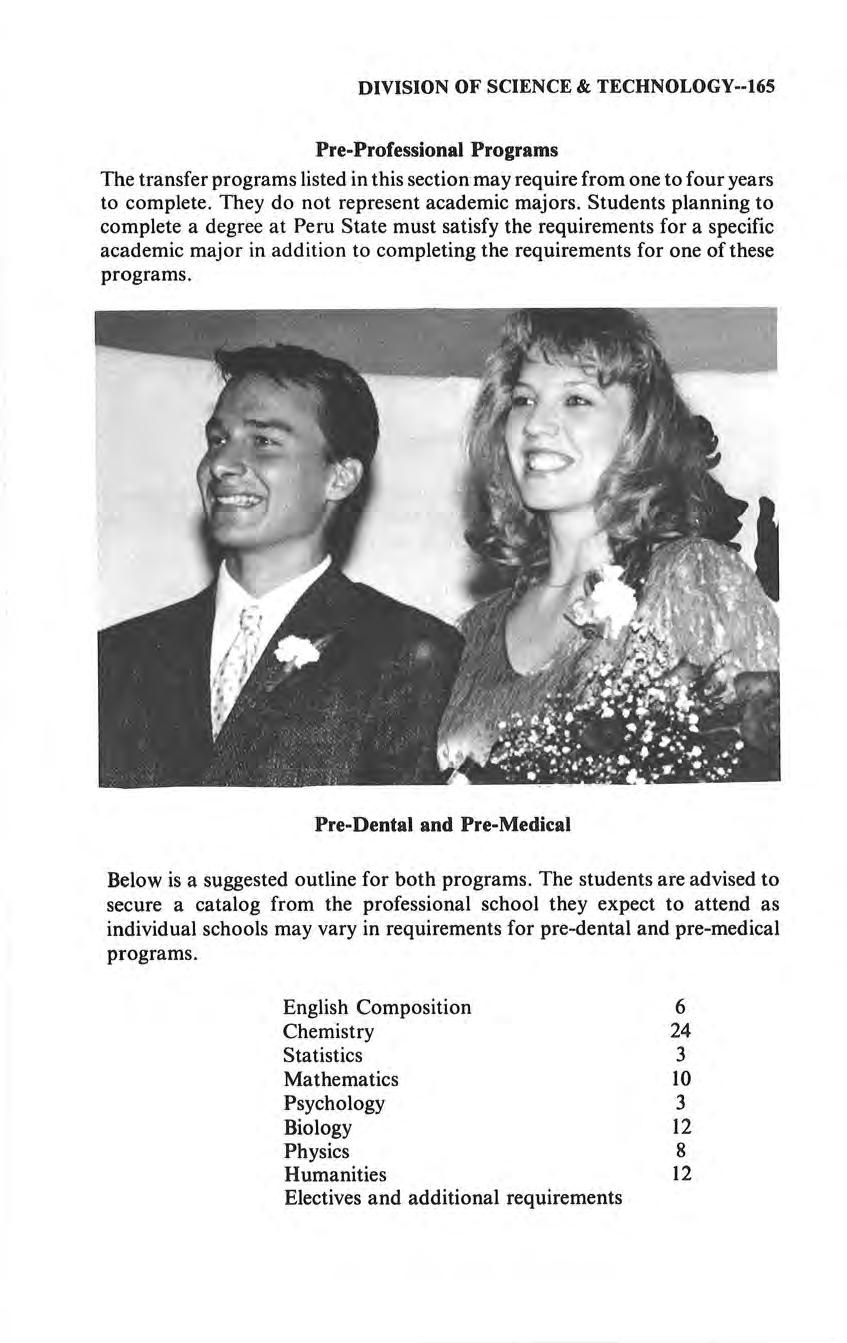
The transfer programs listed in this section may require from one to four years to complete. They do not represent academic majors. Students planning to complete a degree at Peru State must satisfy the requirements for a specific academic major in addition to completing the requirements for one of these programs.
Below is a suggested outline for both programs. The students ate advised to secure a catalog from the professional school they expect to attend as individual schools may vary in requirements for pre-dental and pre-medical programs.
DIVISION OF SCIENCE & TECHNOLOGY--165
Pre-Dental and Pre-Medical
English Composition 6 Chemistry 24 Statistics 3 Mathematics IO Psychology 3 Biology 12 Physics 8 Humanities 12 Electives and additional requirements
The requirements for forestry schools vary . Early in the pre-forestry program students should consult the catalog of the college they plan to attend later. Grades of below average will probably not transfer.
The following program is suggested as a prerequisite for entering a college of mortuary science :
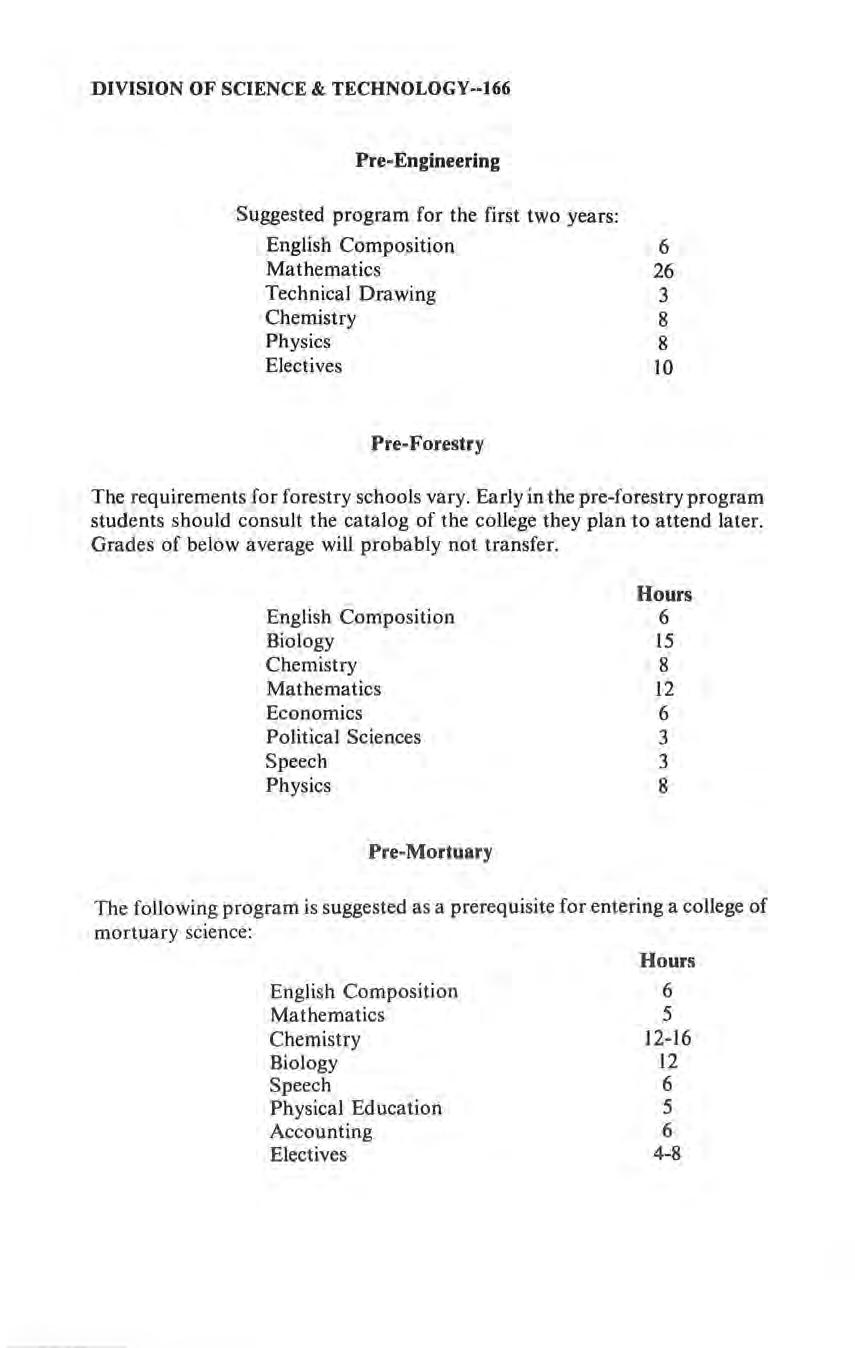
DIVISION OF SCIENCE & TECHNOLOGY--166 Pre-Engineering Suggested program for the first two years: English Composition Mathematics Technical Drawing Chemistry Physics Electives Pre-Forestry 6 26 3 8 8 IO
English Composition Biology Chemistry Mathematics Economics Political Sciences Speech Physics Pre-Mortuary Hours 6 15 8 12 6 3 3 8
English Composition Mathematics Chemistry Biology Speech Physical Education Accounting Electives Hours 6 5 12-16 12 6 5 6 4-8
Pre-Nuclear Medicine Technology
The following program is suggested for students interested in nuclear medicine technology:
Applicants for a physician assistant program must have satisfactorily completed a minimum of 60 semester hours including the following courses:
The following program is suggested:
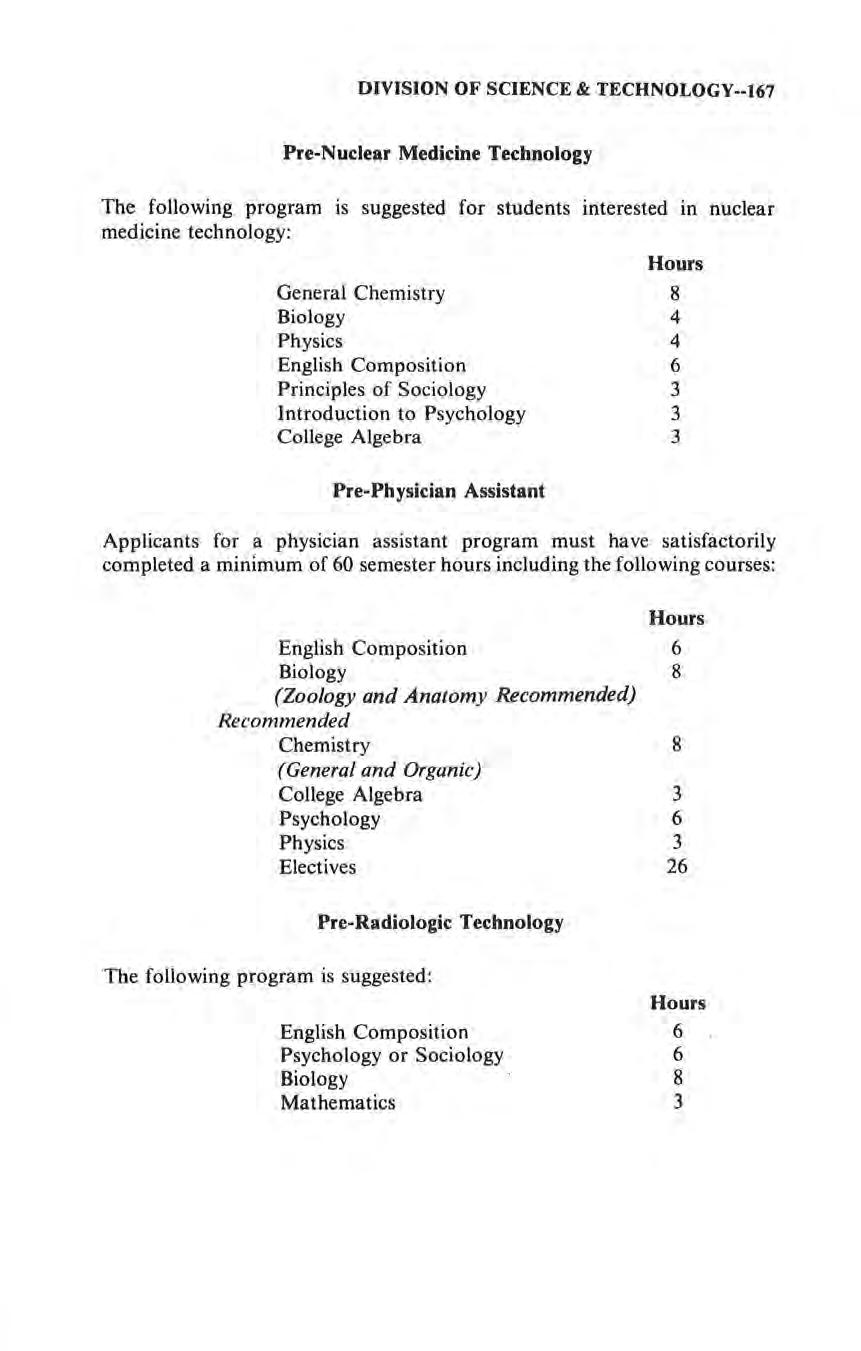
DIVISION OF SCIENCE & TECHNOLOGY--167
General Chemistry Biology Physics English Composition Principles of Sociology Introduction to Psychology College Algebra Pre-Physician Assistant Hours 8 4 4 6 3 3 3
Hours English Composition 6 Biology 8 (Zoology and Anatomy Recommended) Recommended Chemistry 8 (General and Organic) College Algebra 3 Psychology 6 Physics 3 Electives 26 Pre-Radiologic Technology
English Composition Psychology or Sociology Biology Mathematics Hours 6 6 8 3
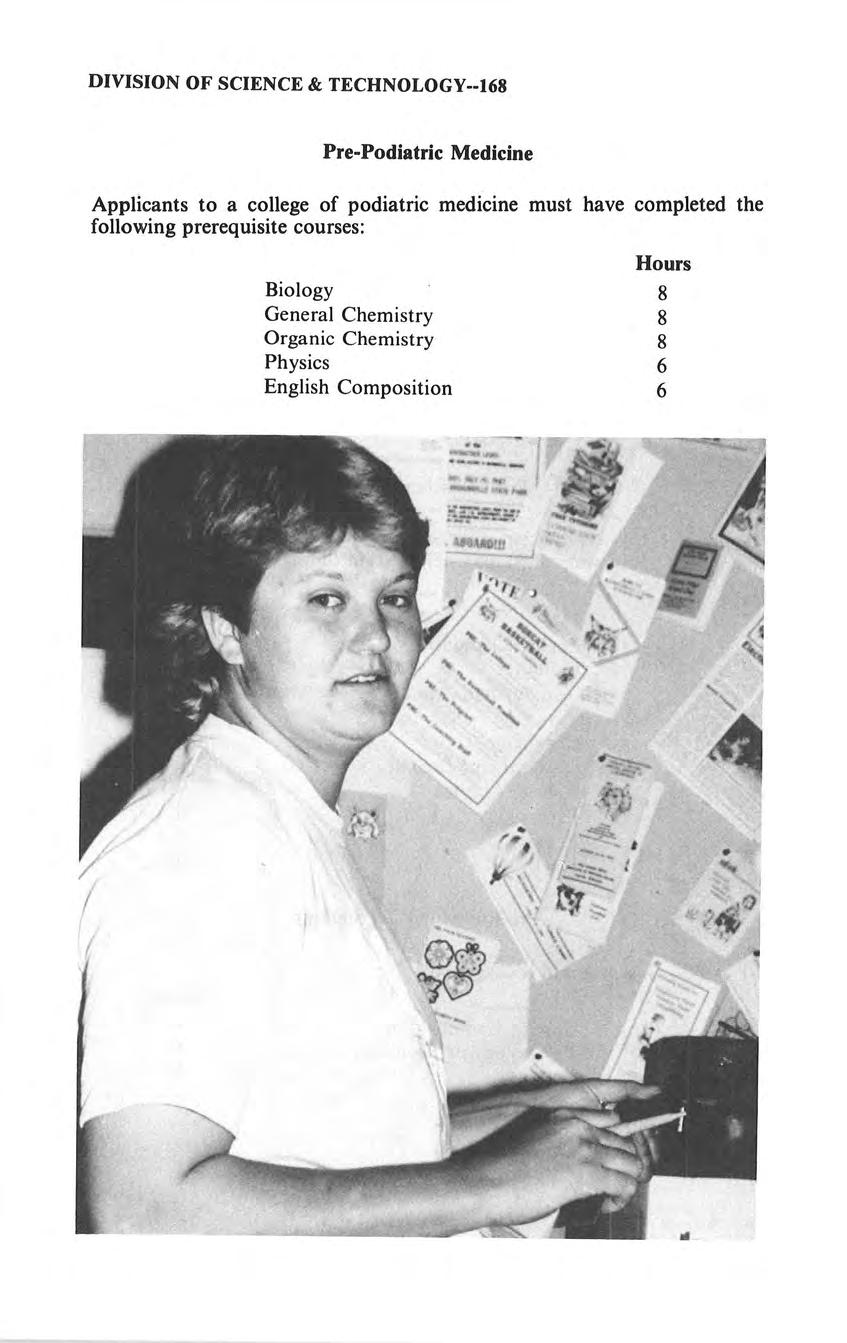
DIVISION
Pre-Podiatric Medicine Applicants to a college of podiatric medicine must have completed the following prerequisite courses: Biology General Chemistry Organic Chemistry Physics English Composition Hours 8 8 8 6 6
OF SCIENCE & TECHNOLOGY--168
The following courses are suggested for admittance into a dental hygiene program:
In addition to a total of at least 90 semester hours of credit, students accepted for admission must have completed coursework in the following specific areas:
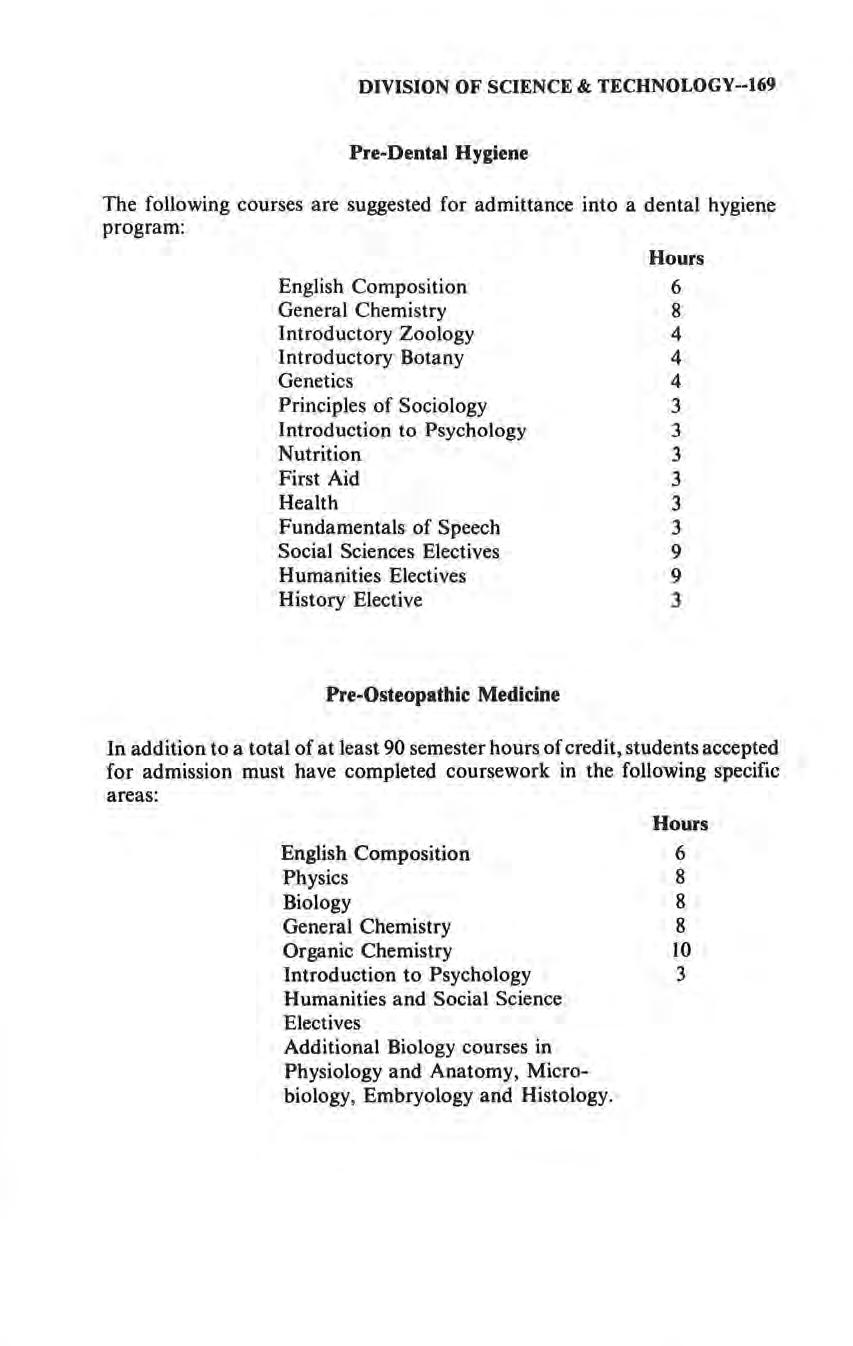
DIVISION OF SCIENCE & TECHNOLOGY--169
Pre-Dental Hygiene
Engli s h Composition General Chemistry Introductory Zoology Introductory Botany Genetics Principles of Sociology Introduction to Psychology Nutrition First Aid Health Fundamentals of Speech Social Sciences Electives Humanities Electives History Elective Pre-Osteopathic Medicine Hours 6 8 4 4 4 3 3 3 3 3 3 9 9 3
English Composition Physics Biology General Chemistry Organic Chemistry Introduction to Psychology Humanities and Social Science Electives Additional Biology courses in Physiology and Anatomy, Microbiology , Embryology and Histology Hours 6 8 8 8 IO 3
Pre-Nursing
The basic science and humanities requirements for nursing programs vary depending on the school selected and the level of training offered (i.e., diploma, associate degree or baccalaureate degree program). The pre-nursing student is urged to obtain a copy of the catalog of the nursing school se lected to insure proper planning for transfer. The following courses are suggested for a one year pre-nursing program:
Pre-Optometry
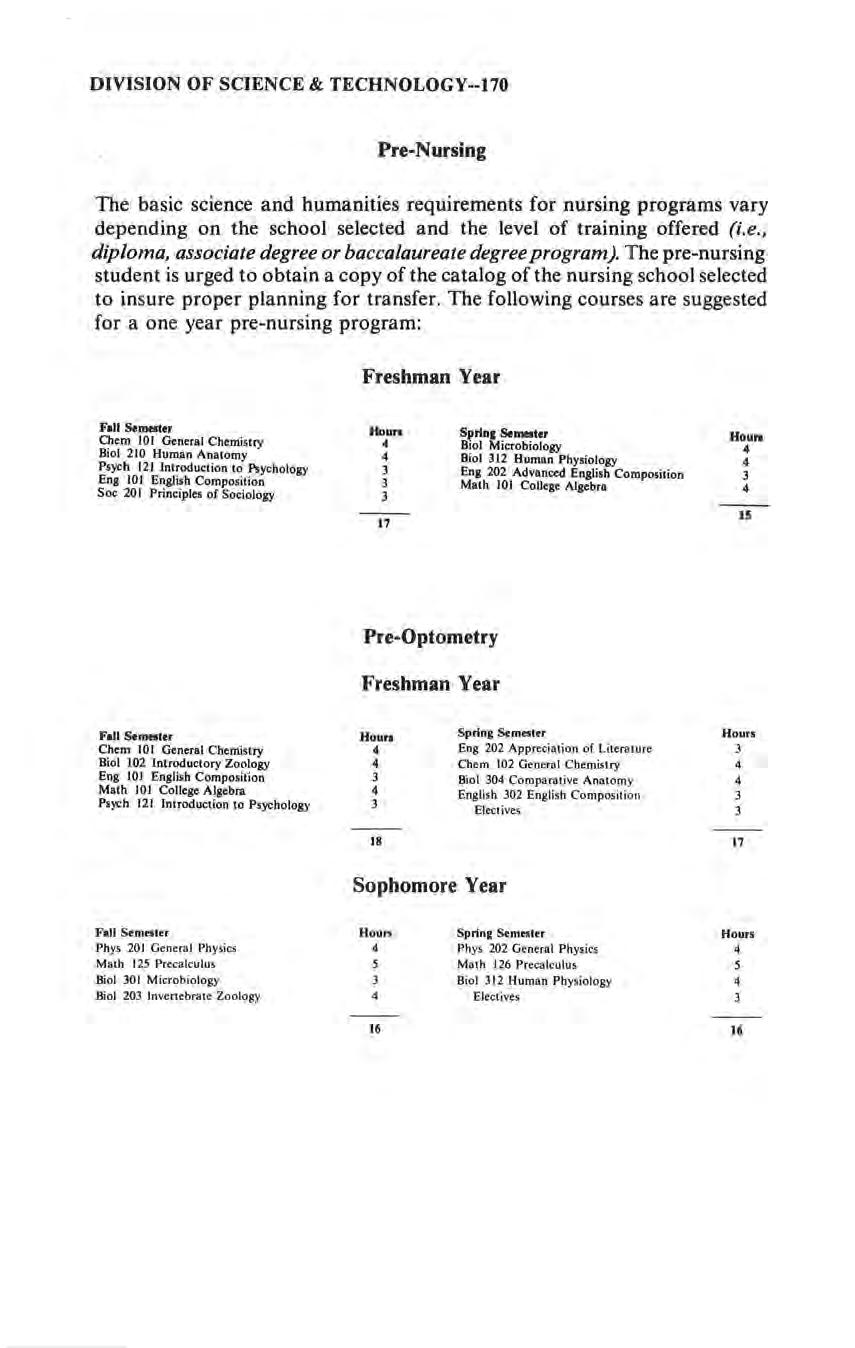
DIVISION OF SCIENCE & TECHNOLOGY--170
Fall Semater Chem IOI General Chemistry Biol 210 Human Anatomy Psych 121 Introduction to Psychology
10 I English Composition Soc 201 Principles of Socio logy Fall Semester Chem 101 General Chemistry Biol I 02 Introductory Zoology Eng 101 English Composition Math IOI College Algebra Psych 121 Introduction to Psychology Fall Semester Phys 201 General Physics Math 125 Precalculu s Biol 301 Microbiology Biol 203 In vertebra te Zoology Freshman Year Houn 4 4 3 3 3 17 S~rln1 Semester B101 Microbiology Biol 312 Human Physiology Eng 202 Advanced English Composition Math IOI College Algebra
Eng
Freshman Year Hour, 4 4 3 4 3 18 Spri ng Se m ester Eng 202 Appreciation of Litera ture Chem 102 General Chemistry Biol 304 Comparative Anatom y English 302 English Composi ti o n Electives Sophomore Year Hours Spring Se mes ter 4 Ph ys 202 General Physics Math 126 Precalculus Biol 312 Human Physiology 4 Electives 16 Houn 4 4 3 4 15 Hours 17 Hours 4 5 4 3 16
Restricted electives should be from the following areas: Humanities, Social Sciences, and Behavioral Sciences. Additional electives should be selected from the areas of Physics, Chemistry, Computer Science, Mathematics, Business Administration . Students should refer to college pharmacy catalogs for more information .
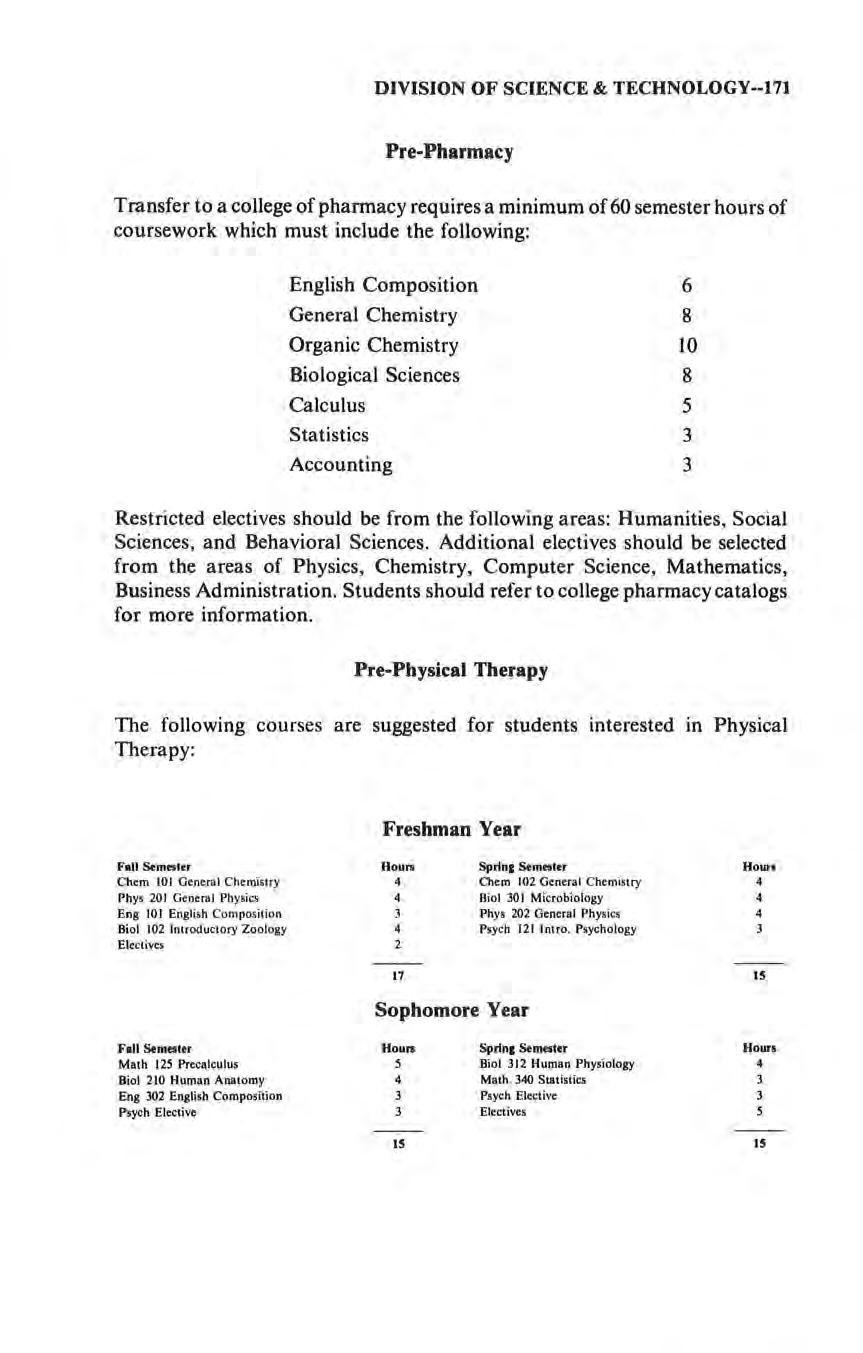
Pre-Physical Therapy
The following courses are suggested for students interested m Physical
DIVISION OF SCIENCE & TECHNOLOGY--171 Pre-Pharmacy Transfer to a college of pharmacy requires a minimum of 60 semester hours of coursework which must include the following: English Composition 6 General Chemistry 8 Organic Chemistry IO Biological Sciences 8 Calculus 5 Statistics 3 Accounting 3
Therapy: Fa ll Semester Chem IO I Genera l C hemistry Phys 20 I General Physics Eng 10 1 English Composition Biol 102 Introductory Zoology Electives Fall Semester Math 125 Precalculus Biol 210 Huma n Anatomy Eng 302 English Composition Psych Elective Freshman Year Houn 4 4 3 4 2 17 Sprin& Semester Chem 102 General Chemistry Bio l 30 I Microbiology Phys 202 Ge neral Physics Psych 12 1 Intro Psychology Sophomore Year Houn 5 4 3 3 15 Sprin& Semester Bio l 3 12 Human Physiology Math 340 Statistics Psyc h Elective Electives Hours 4 4 4 3 15 Hours 4 3 3 15
Pre-Respiratory Therapy
The following courses are suggested for students interested in entering a baccalaureate program in respiratory therapy.
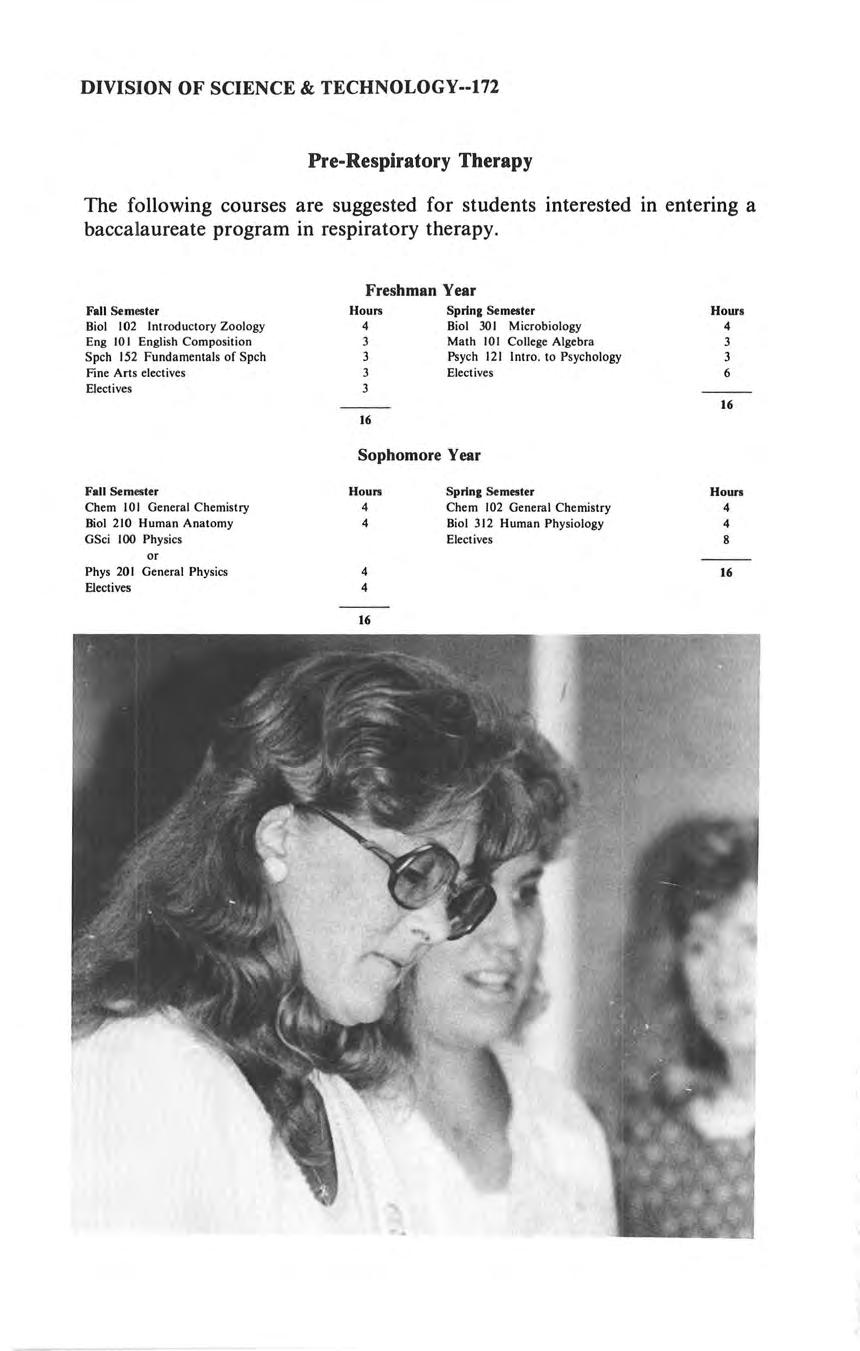
DIVISION
OF SCIENCE & TECHNOLOGY--172
Fall Semester Biol 102 Introductory Zoology Eng IO I English Co mpo sition Speh 152 Fundamentals of Speh Fine Arts elec tives Electives Fall Semester Chem IO I General Chemistry Biol 210 Human Anatomy GSci 100 Physics or Phys 20 I General Physics Electives Freshman Year Hours 4 3 3 16 Sprln1 Semester Biol 301 Microbiology Math IOI College Algebra Psych 121 Intro to Psychology Electives Sophomore Year Hours 4 4 4 4 16 Sprlna Semester Chem 102 General Chemistry Biol 312 Human Physiology Electives Hours 4 3 3 6 16 Hours 4 4 8 16
The courses listed below are suggested for Veterinary Science.
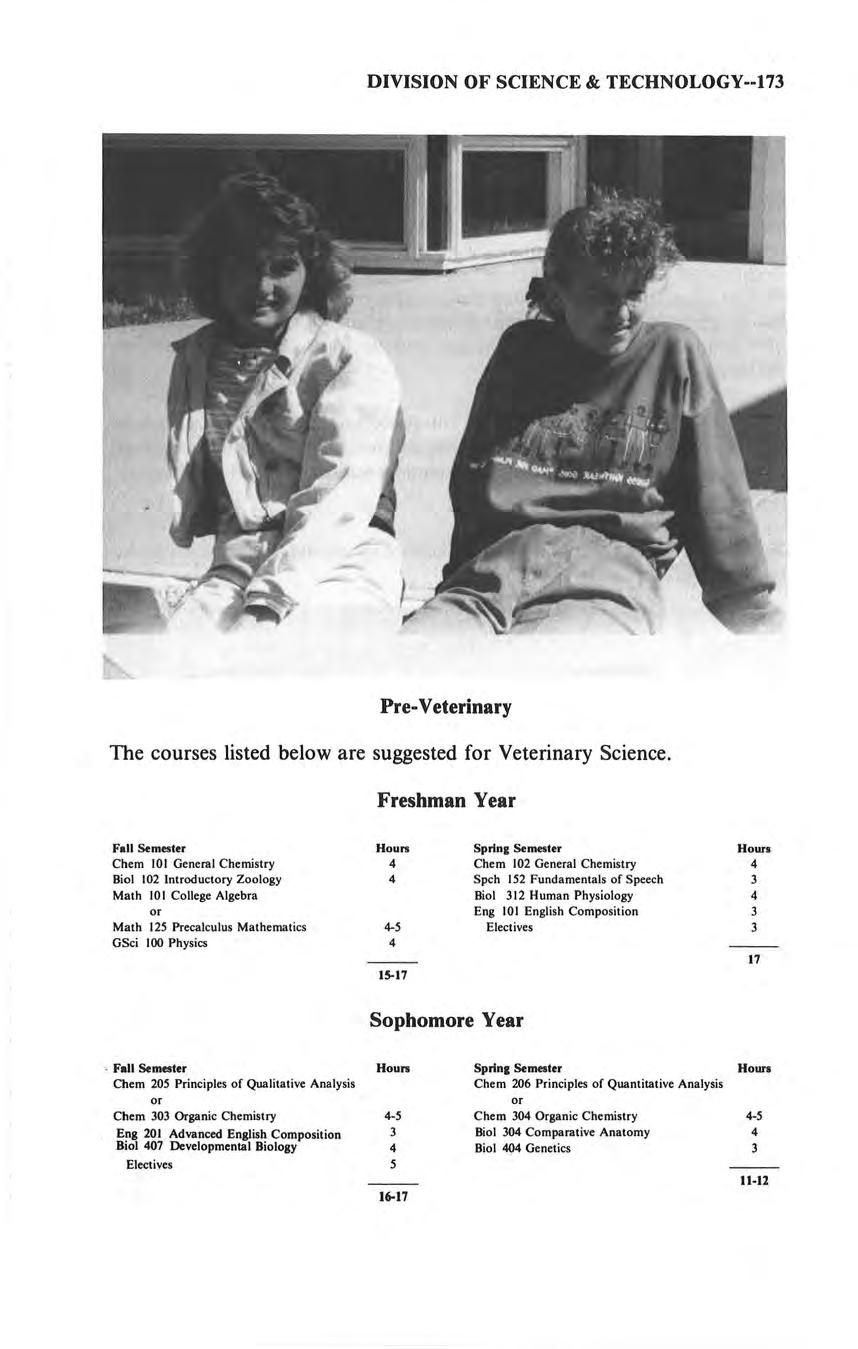
DIVISION OF SCIENCE & TECHNOLOGY--173
Pre-Veterinary
Freshman Year Fall Semester Chem 10 I General Chemistry Biol 102 Introductory Zoology Math 10 I College Algebra or Math 125 Precalculus Mathematics GSci JOO Physics Houn 4 4 4-S 4 15-17 Spring Semester Chem 102 General Chemistry Speh 152 Fundamentals of Speech Biol 312 Human Physiology Eng IOI English Composition Electives Hours 4 3 4 17 Sophomore Year Fall Semester Houn Sprin& Semester Hours Chem 205 Principles of Qualitative Analysis Chem 206 Principles of Quantitative Analysis or or Chem 303 Organic Chemistry 4-S Chem 304 Organic Chemistry 4-S Eng 201 Advanced English Composition 3 Biol 407 Developmental Biology 4 Biol 304 Comparative Anatomy 4 Biol 404 Genetics 3 Electives 5 11-12 16-17
Cooperative Medical Technology Program
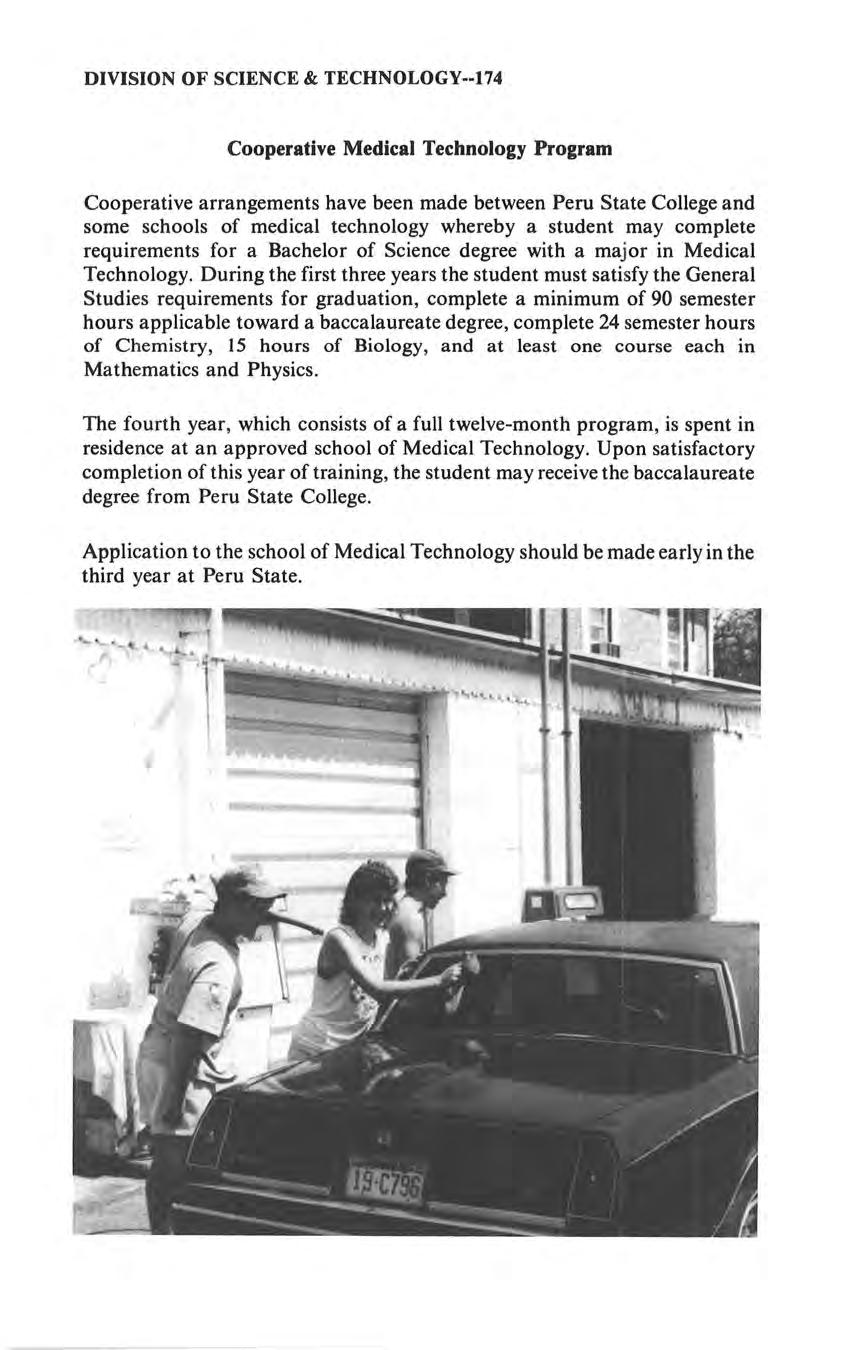
Cooperative arrangements have been made between Peru State College and some schools of medical technology whereby a student may complete requirements for a Bachelor of Science degree with a maj or in Medical Technology. During the first three years the student must satisfy the General Studies requirements for graduation, complete a minimum of 90 semester hours applicable toward a baccalaureate degree, complete 24 semester hours of Chemistry, 15 hours of Biology, and at least one course each in Mathematics and Physics.
The fourth year, which consists of a full twelve-month program, is spent in residence at an approved school of Medical Technology. Upon satisfactory completion of this year of training, the student may receive the baccalaureate degree from Peru State College.
Application to the school of Medical Technology should be made early in the third year at Peru State.
DIVISION OF SCIENCE & TECHNOLOGY--174
Suggested Program for Cooperative Medical Technology Program
Twelve month program at an approved school of Medical Technology.
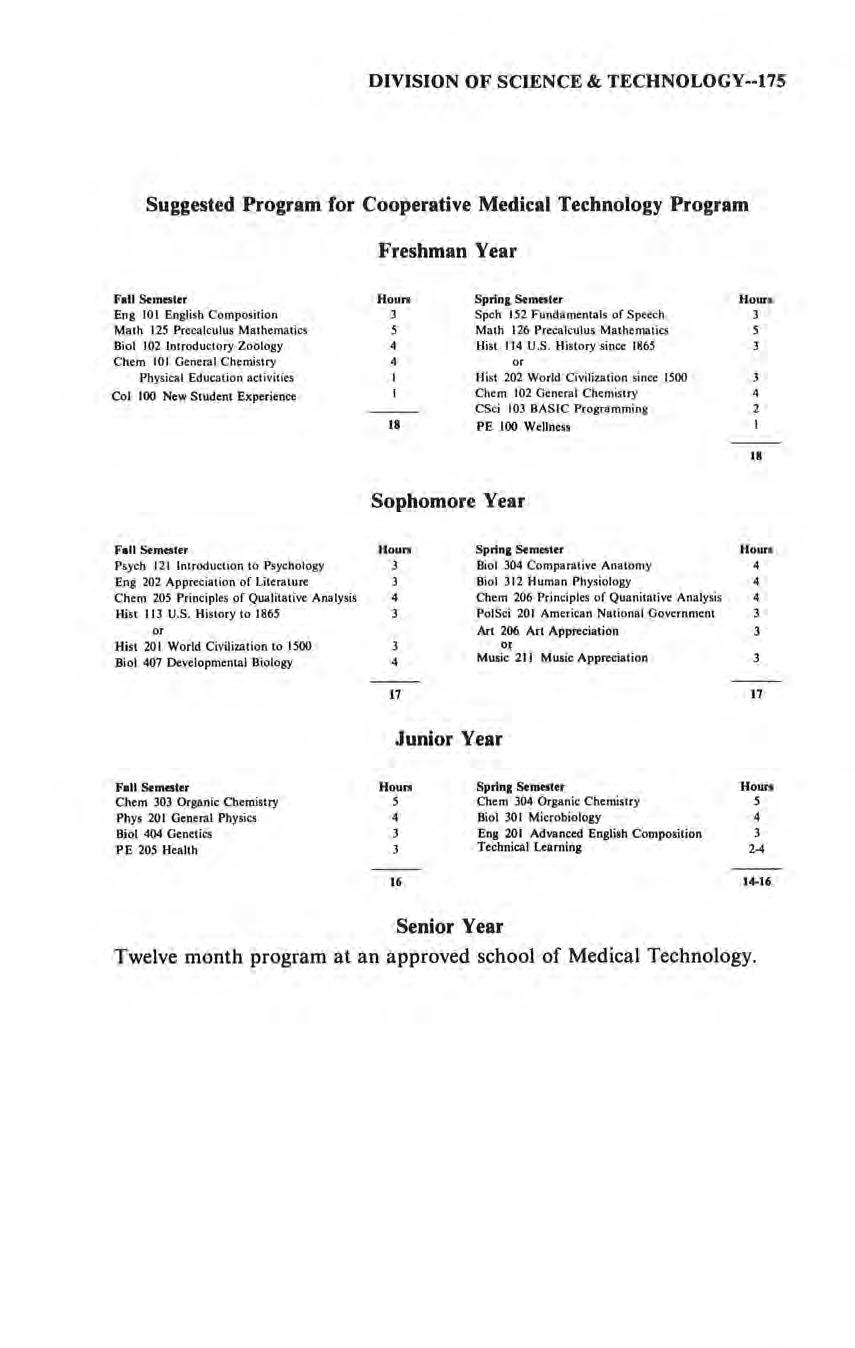
DIVISION OF SCIENCE & TECHNOLOGY--175
Fall Semester Eng 101 English Composition Math 125 Precalculus Mathematics Biol I02 Introductory Zoology Chem 101 General Chemist r y Physical Education activitie s Col 100 New Student Experience Fall Semester Psych 121 Introduction to Psychology Eng 202 Appreciation of Literature Chem 205 Principles of Qualitative Analysis Hist 113 U.S History to 1865 or Hist 201 World Civilization to 1500 Biol 407 Developmental Biology Fall Semester Chem 303 Organic Chemistry Phys 201 General Physics Biol 404 Genetics PE 205 Health Freshman Year Houn 3 5 4 4 I 18 Spring Semester Speh 152 Fundamentals of Sp eech Math 126 Precalculus Mathematics Hist 114 U.S. History since 1865 or Hist 202 World Civilization since 1500 Chem 102 General Chemi s try CSci 103 BASIC Programming PE I 00 Wellness Sophomore Year Houn 17 Sprin& Semester Biol 304 Comparative Anatomy Biol 312 Human Physiology Chem 206 Principles of Quanitative Analysis PolSci 201 American National Government Art 206 Art Appreciation or Music 211 Music Appreciation Junior Year Houn 5 4 16 Spring Semester Chem 304 Organic Chemistry Biol 30 I Microbiology Eng 201 Advanced English Composition Technical Learning Senior Year Hours 3 5 18 Hours 4 4 4 3 3 17 Hours 5 4 3 2-4 14-16
The Industrial Technology and Education Bachelors Degree Program consists of a core of technical courses to provide the student with a broad general background of technology. The several options available within the curriculum enable the student to specialize in one of a number of different occupational or professional areas.
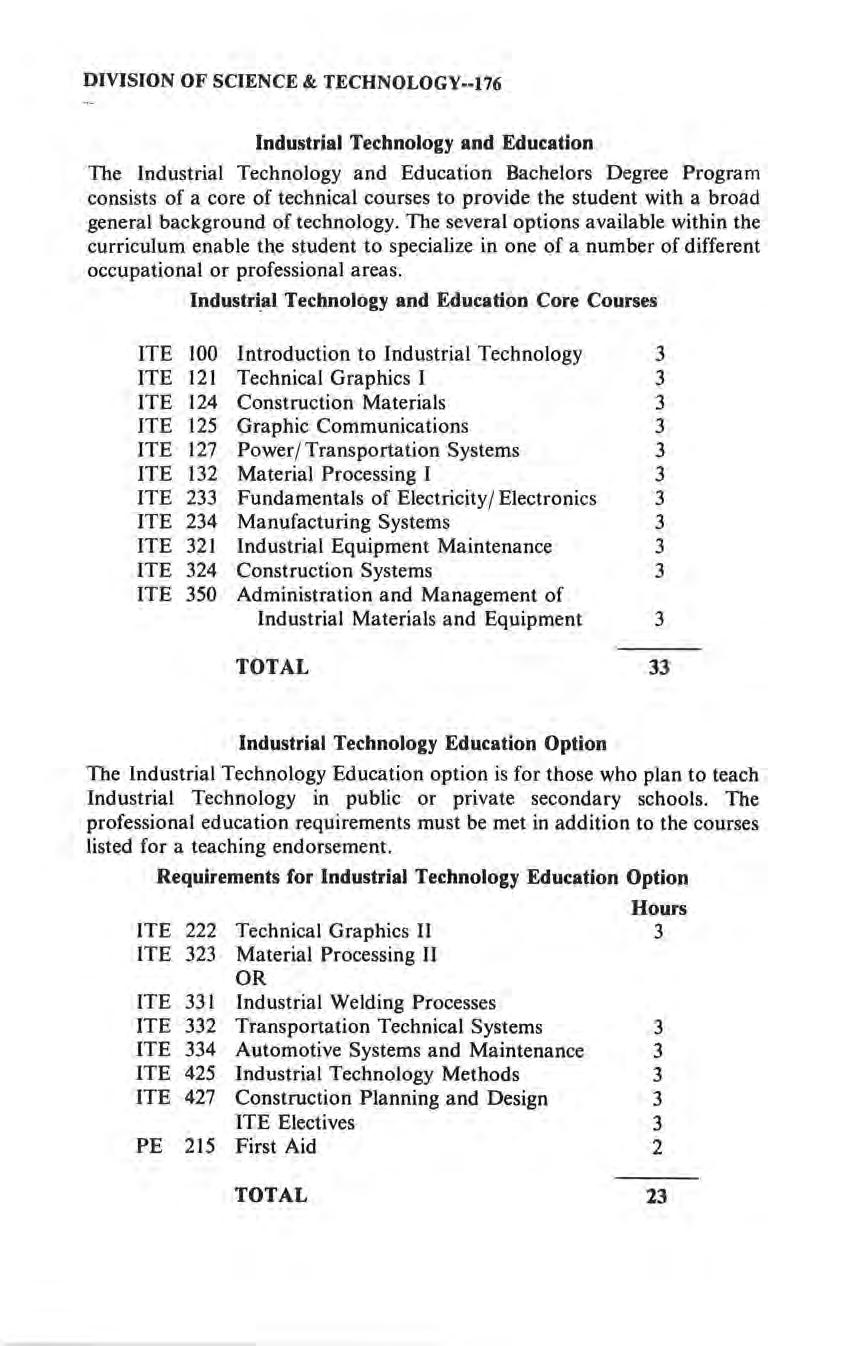
Industrial Technology Education Option
The Industrial Technology Education option is for those who plan to teach Industrial Technology in public or private secondary schools. The professional education requirements must be met in addition to the courses listed for a teaching endorsement. Requirements
DIVISION OF SCIENCE & TECHNOLOGY--176
Education
Industrial Technology and
lndustri.al Technology and Education Core Courses ITE 100 Introduction to Industrial Technology 3 ITE 121 Technical Graphics I 3 ITE 124 Construction Materials 3 ITE 125 Graphic Communications 3 ITE 127 Power/ Transportation Systems 3 ITE 132 Material Processing I 3 ITE 233 Fundamentals of Electricity/ Electronics 3 ITE 234 Manufacturing Systems 3 ITE 321 Industrial Equipment Maintenance 3 ITE 324 Construction Systems 3 ITE 350 Administration and Management of Industrial Materials and Equipment 3 TOTAL 33
for Industrial Technology Education Option ITE 222 ITE 323 ITE 331 ITE 332 ITE 334 ITE 425 ITE 427 PE 215 Technical Graphics II Material Processing II OR Industrial Welding Processes Transportation Technical Systems Automotive Systems and Maintenance Industrial Technology Methods Construction Planning and Design ITE Electives First Aid TOTAL Hours 3 3 3 3 3 3 2 23
Suggested Program for Industrial Technology Education Option
Sophomore Year
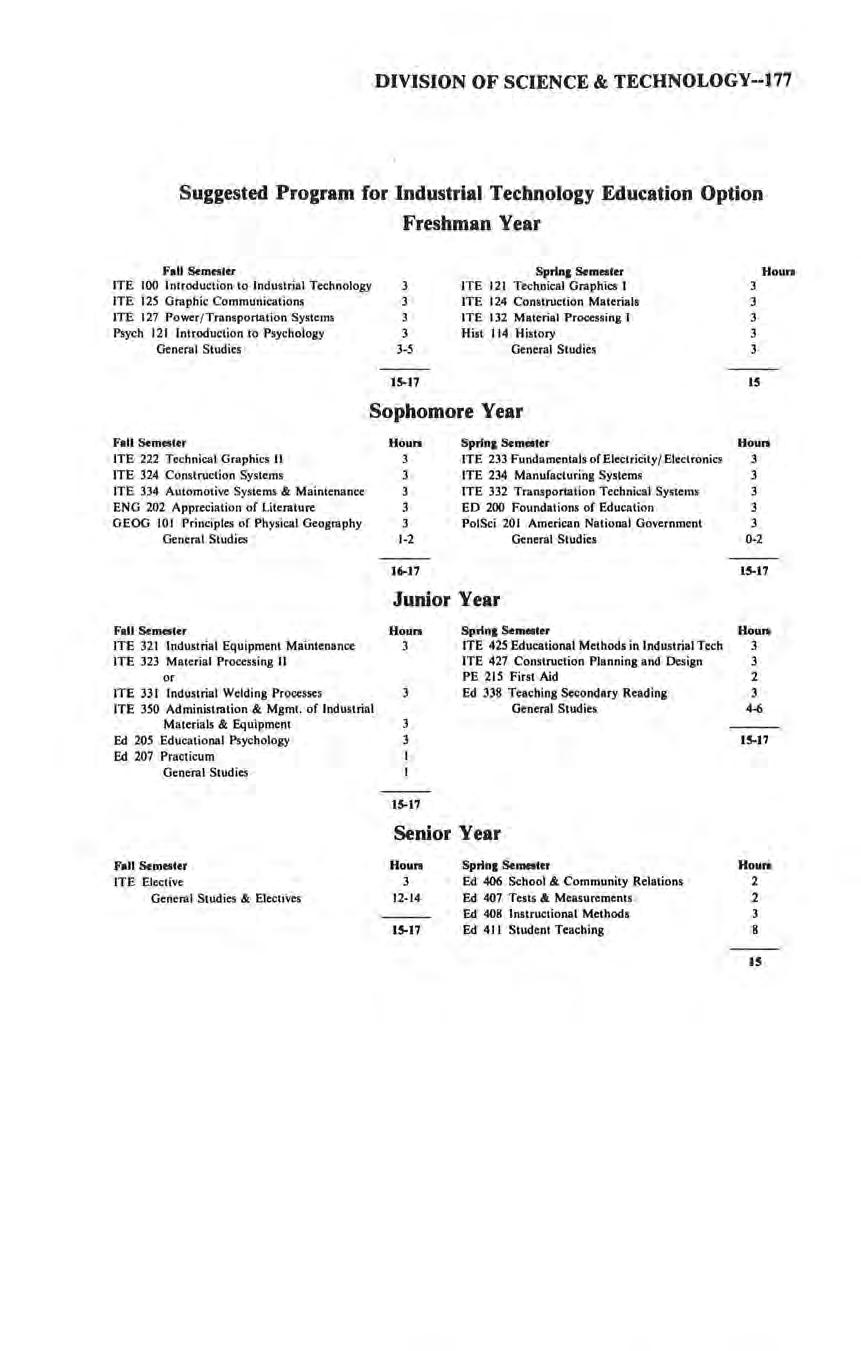
DIVISION OF SCIENCE & TECHNOLOGY--177
Freshman Year Fall Semester ITE JOO Introduction to Industrial Technology !TE 125 Graphic Communications ITE 127 Power / Transportation Systems Psych 121 Introduction to Psychology General Studies · 3 3 3-5 15-17 Sprln1 Semester !TE 121 Technical Graphics I !TE 124 Construction Materials ITE I 32 Material Processing I Hist 114 History General Studies Houn 3 3 15
Semester )TE 222 Technical Graphics II ITE 324 Construction Systems ITE 334 Automotive Systems & Maintenance ENG 202 Appreciation of Literature GEOG 101 Principles of Physical Geography General Studies Fall Semester !TE 321 Industrial Equipment Maintenance !TE 323 Material Processing II or ITE 33 I Industrial Welding Processes ITE 350 Administration & Mgmt. of Industrial Materials & Equipment Ed 205 Educational Psyc hology Ed 207 Practicum General Studies Fall Semester ITE Elective General Studies -& Electives Haun 3 3 3 3 3 1-2 16-17 Sprln1 Semeater ITE 233 Fundamentals of Electricity / Electronics ITE 234 Manufacturing Systems ITE 332 Tran sportation Technical System s ED 200 Foundations of Education PolSci 201 American National Government General Studies Houn 3 3 0-2 15-17 Junior Year Haun 3 15-17 Sprln1 Semester Houn !TE 425 Educational Methods in Industrial Tech 3 ITE 427 Construction Planning and Design 3 PE 215 First Aid 2 Ed 338 Teaching Secondary Reading 3 General Studies 4-6 15-17 Senior Year Haun 3 12-14 15-17 Sprln1 Semester Ed 406 School & Community Relations Ed 407 Tests & Measurements Ed 408 Instructional Methods Ed 411 Student Teaching Haun 2 2 3 8 15
Industrial Management Technology Option
The curriculum for the Industrial Management Technology option is designed for students whose main objective is preparation fo r technician and managerial positions in industry. The curriculum has been developed to include a combination of technical and business courses in order to prepare the graduate for employment in an industrial enterprise.
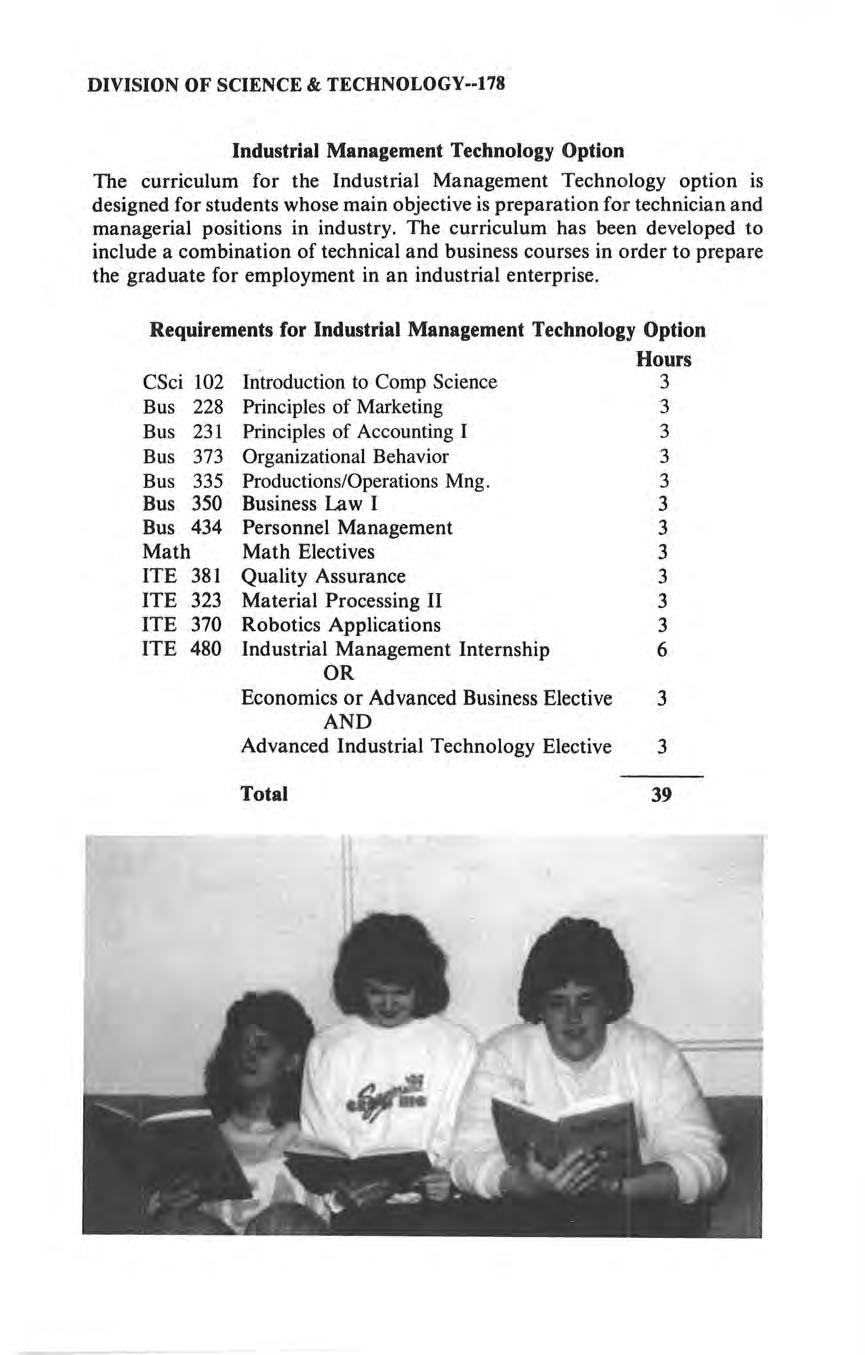
DIVISION OF SCIENCE & TECHNOLOGY--178
Requirements for Industrial Management Technology Option Hours CSci 102 Introduction to Comp Science 3 Bus 228 Principles of Marketing 3 Bus 231 Principles of Accounting I 3 Bus 373 Organizational Behavior 3 Bus 335 Productions/Operations Mng . 3 Bus 350 Business Law I 3 Bus 434 Personnel Management 3 Math Math Electives 3 ITE 381 Quality Assurance 3 ITE 323 Material Processing II 3 ITE 370 Robotics Applications 3 ITE 480 Industrial Management Internship 6 OR Economics or Advanced Business Elective 3 AND Advanced Industrial Technology Elective 3 Total 39
Suggested Program for Industrial Management Technology Option
Sophomore Year
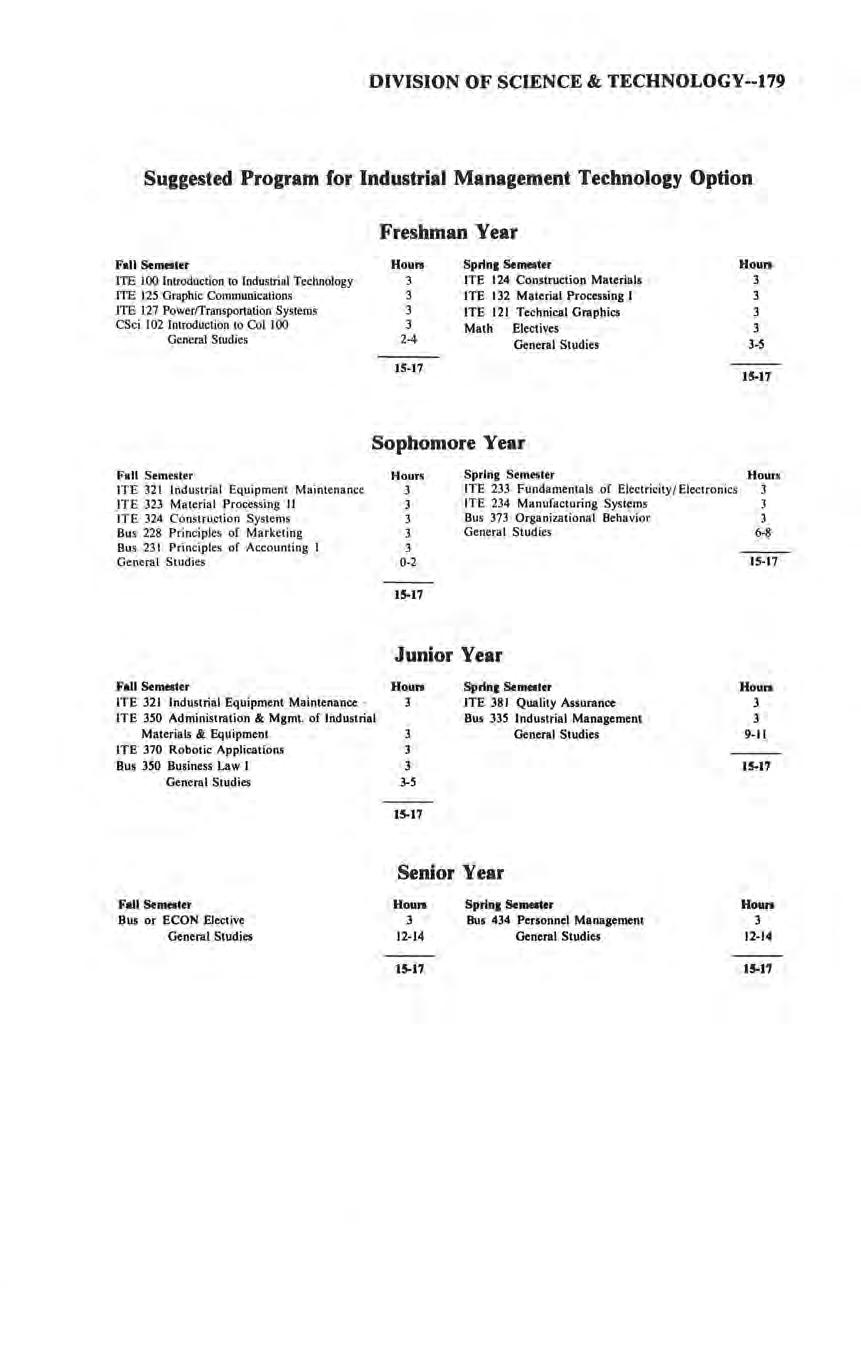
DIVISION OF SCIENCE & TECHNOLOGY--179
Fall Semester !TE 100 Introduction to Industrial Technology ITE 125 Graphic Communications ITE 127 Powerffransportation Systems CSc i !02 Introduction to Col 100 General Studies Freshman Year Haun 3 3 3 3 2-4 15-17 Sprtn1 Semester ITE 124 Construction Materials !TE 132 Material Processing I !TE 121 Technical Graphics Math Electives General Studies
Fall Semester IT E 321 Industrial Equipment Maintenance IT E 323 Material Processing II IT E 324 Co ns tructi on Systems Bus 228 Principles of Marketing Bus 231 Principle s of Accounting I General Studies Fall Semester !TE 321 Industrial Equipment Maintenance • !TE 350 Administration & Mgmt. of Industrial Materials & Equipment ITE 370 Robotic Applications Bus 350 Business Law I General Studies Fall Semester Bus or ECON Elective General Studies Hours 3 3 3 3 3 0-2 IS-17 Spring Semester !TE 233 Fundamentals of Electricity / Electronics ITE 234 Manufacturing Systems Bus 373 Organizational Behavior General Studies Junior Year Haun 3 3-5 JS-17 Sprtn1 Semester !TE 381 Quality Assurance Bus 335 Industrial Management General Studies Senior Year Haun 3 12-14 JS-17 Sprtn1 Semester Bus 434 Personnel Management General Studies Haun 3 3 3 3 3-5 IS-17 Hours 3 3 3 6-8 15-17 Houn 3 3 9-11 JS-17 Houn 3 12-14 JS-17
Electronics/Robotics Technology Option
The Electronics/ Robotics Technology option provides the graduate with a background in math and science as well as an emphasis in theory and laboratory work in electronics and robotics technology. Graduates may qualify for positions in technical sales, supervision of technicians, supervision of maintenance or similar positions dealing with electronics or robotics.
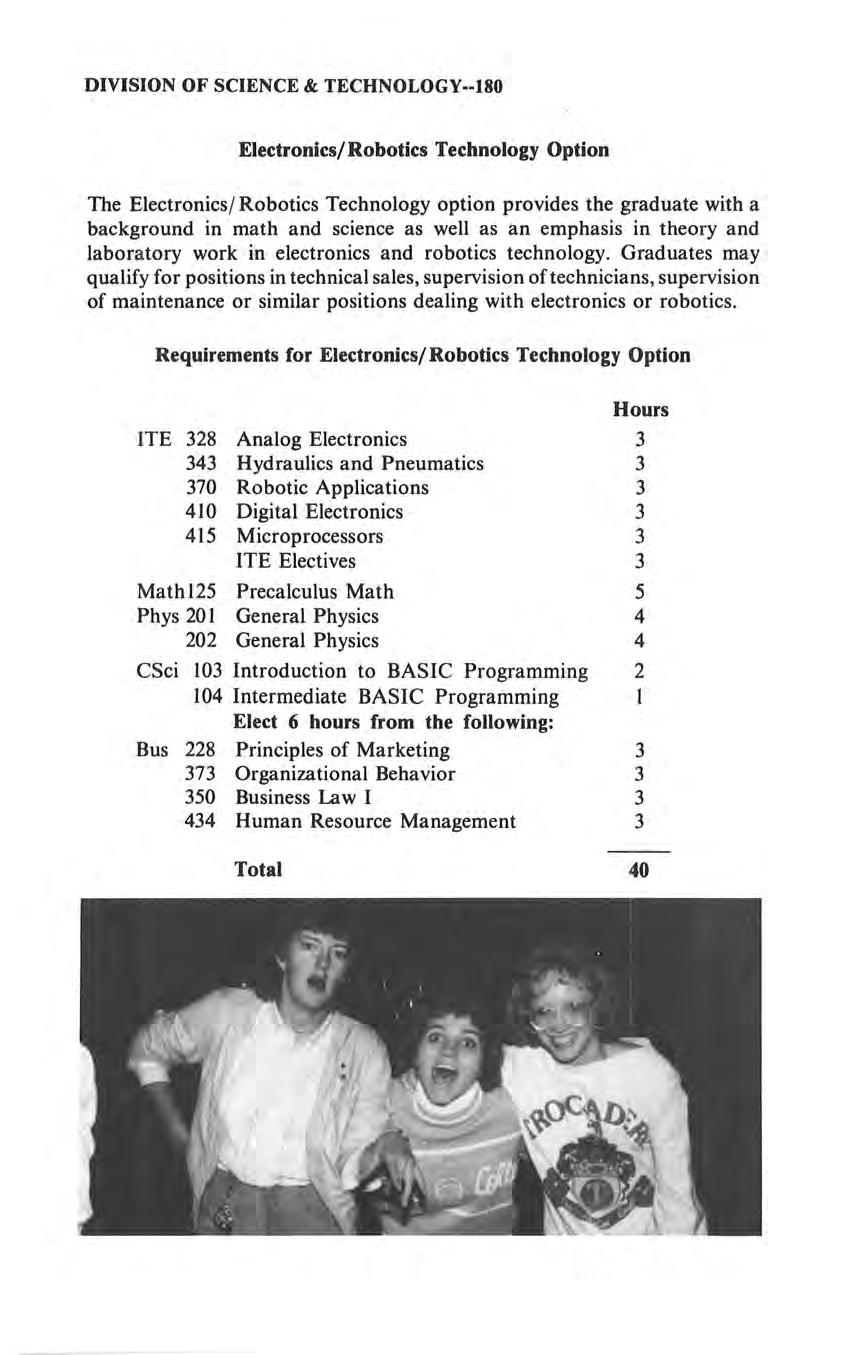
DIVISION OF SCIENCE & TECHNOLOGY--180
Requirements for Electronics/ Robotics Technology Option Hours ITE 328 Analog Electronics 3 343 Hydraulics and Pneumatics 3 370 Robotic Applications 3 410 Digital Electronics 3 415 Microprocessors 3 ITE Electives 3 Mathl25 Precalculus Math 5 Phys 201 General Physics 4 202 General Physics 4 CSci 103 Introduction to BASIC Programming 2 104 Intermediate BASIC Programming Elect 6 hours from the following: Bus 228 Principles of Marketing 3 373 Organizational Behavior 3 350 Business Law I 3 434 Human Resource Management 3 Total 40
Suggested Program for Electronics/Robotics Technology Option
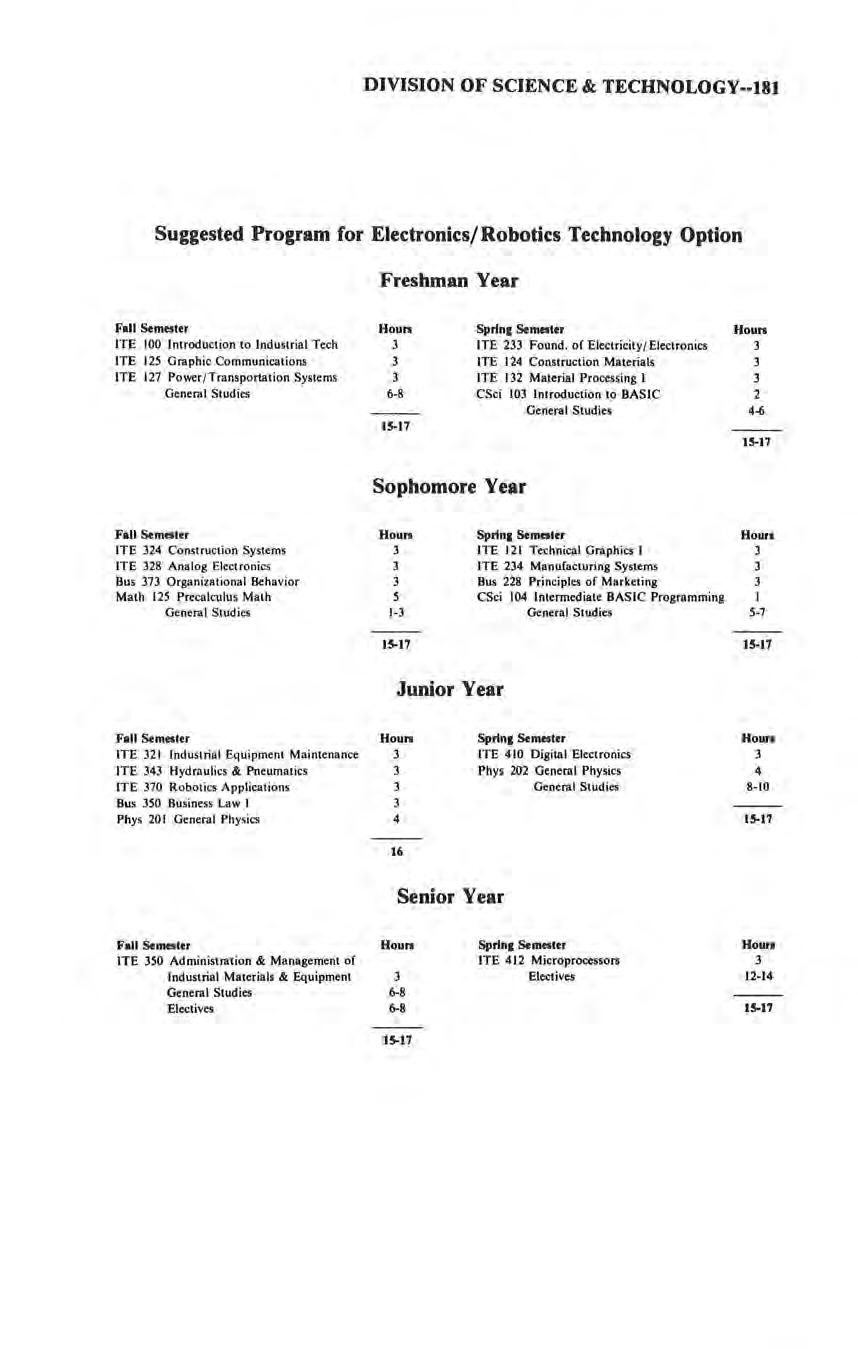
DIVISION OF SCIENCE & TECHNOLOGY--181
Fall Semester ITE 100 Introduction to Industrial Tech ITE 125 Graphic Communications ITE 127 Power / Transportation Systems General Studies Fall Semester ITE 324 Construction Systems ITE 328 Analog Electronics Bus 373 Organizational Behavior Math 125 Precalculus Math General Studies Fall Semester ITE 321 Industrial Equipment Maintenance ITE 343 Hydraulics & Pneumatics ITE 370 Robotics Applications Bus 350 Business Law I Phys 20 I General Physics Fall Semester ITE 350 Administration & Management of Industrial Materials & Equipment General Studies Electives Freshman Year Houn 3 6-8 15-17 Sprin1 Semester ITE 233 Found. of Electricity / Electronics ITE 124 Construction Materials ITE 132 Material Processing I CSci 103 Introduction to BASIC General Studies Sophomore Year Houn 3 3 3 5 1-3 15-17 Sprln1 Semester ITE 121 Technical Graphics I ITE 234 Manufacturing Systems Bus 228 Principles of Marketing CSci 104 Intermediate BASIC Programming General Studies Junior Year Houn 3 3 16 Sprln1 Semester ITE 410 Digital Electronics Phys 202 General Physics General Studies Senior Year Houn 3 6-8 6-8 15-17 Sprln1 Semester ITE 412 Microprocessors Electives Houn 3 15-17 Hours 3 5-7 15-17 Houn 3 4 8-10 15-17 Houn 3 12-14 15-17
Power and Transportation Technology Option
The Power and Transportation Technology option provides the education necessary to qualify for positions of technical supervision, and technical sales or service. The curriculum includes technical studies in power and transportation, math, science, and business.
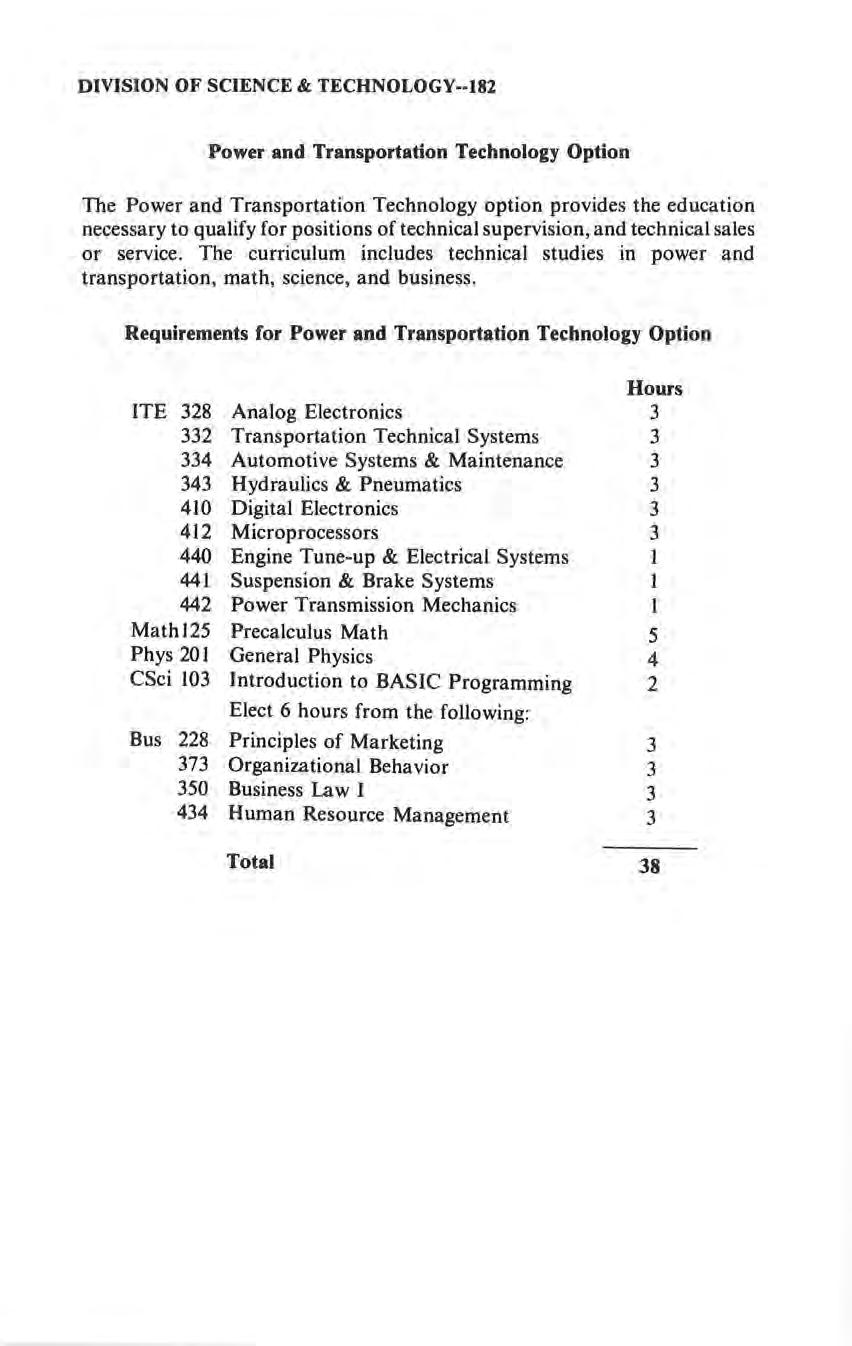
DIVISION OF SCIENCE & TECHNOLOGY--182
Requirements for Power and Transportation Technology Option Hours ITE 328 Analog Electronics 3 332 Transportation Technical Systems 3 334 Automotive Systems & Maintenance 3 343 Hydraulics & Pneumatics 3 410 Digital Electronics 3 412 Microprocessors 3 440 Engine Tune-up & Electrical Systems I 441 Suspension & Brake Systems I 442 Power Transmission Mechanics I Mathl25 Precalculus Math 5 Phys 201 General Physics 4 CSci 103 Introduction to BASIC Programming 2 Elect 6 hours from the following: Bus 228 Principles of Marketing 3 373 Organizational Behavior 3 350 Business Law I 3 434 Human Resource Management 3 Total 38
Suggested Program for Power and Transportation Technology Option
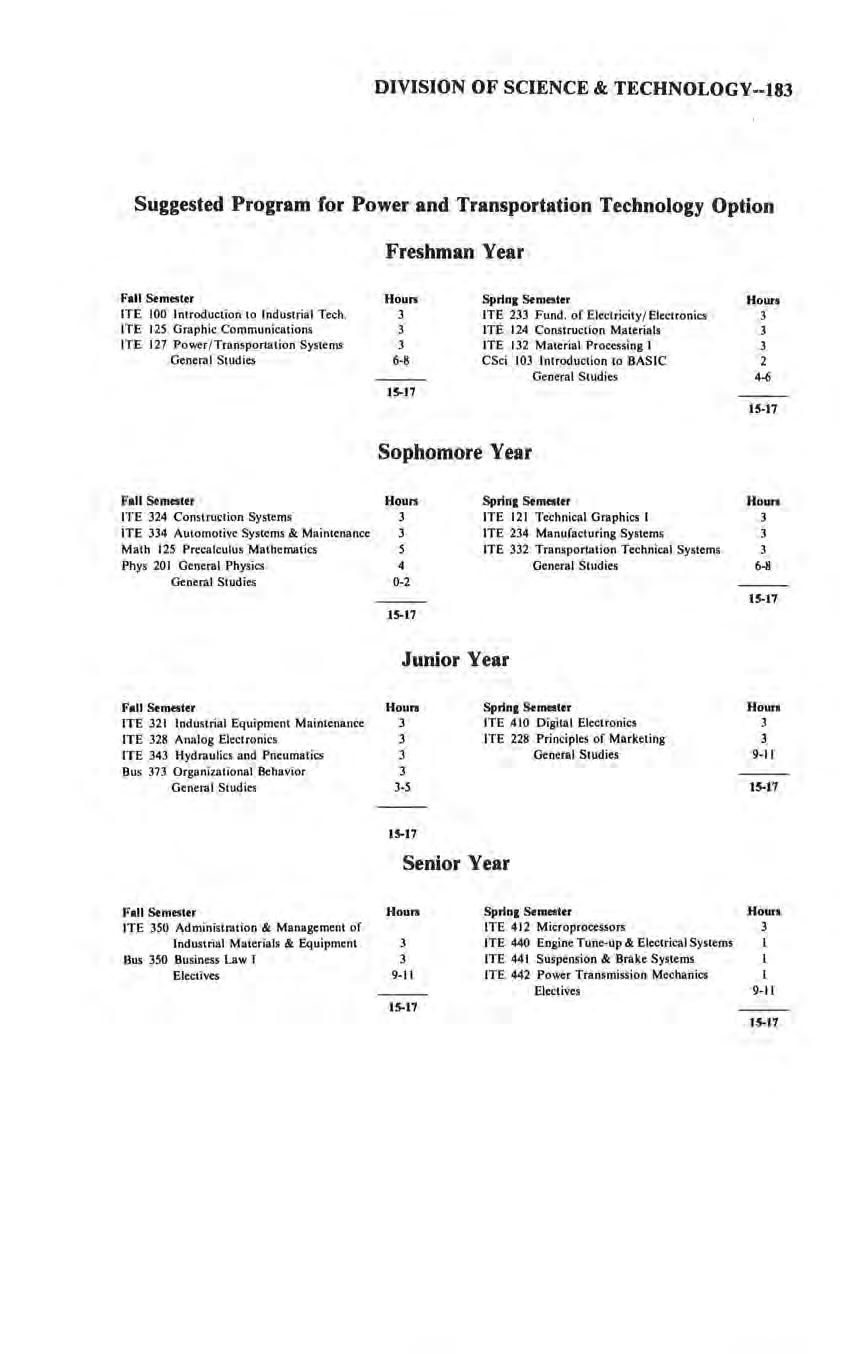
DIVISION OF SCIENCE & TECHNOLOGY--183
Freshman Year Fall Semester ITE 100 Introduction to Industrial Tech ITE 125 Graphic Communications ITE 127 Power / Transportation Systems General Studies Hours 3 3 3 6-8 IS-17 Sprin1 Semester !TE 233 Fund of Electricity / Elec tronics ITE 124 Construction Materials ITE 132 Material Processing I CSci I03 Introduction to BASIC General Studies Sophomore Year Fall Semester Houn !TE 324 Construction Systems 3 ITE 334 Automotive Systems & Maintenance 3 Math 125 Precalculus Mathemati cs Phys 20 I General Physics 4 General Studies 0-2 IS-17 Sprin& Semester !TE 121 Technical Graphics I ITE 234 Manufacturing Systems ITE 332 Trans portation Technical Systems General Studies Junior Year Fall Semester ITE 321 Indu s trial Equipment Maintenance !TE 328 Analog Electronic s ITE 343 Hydraulic s a nd Pneumatics Bus 373 Organizational Behavior General Studies Houn 3 3 3 3-5 IS-17 Sprina Semester ITE 4 IO Digital Electronics !TE 228 Principles of Marketing General Studies Senior Year Hours 3 3 3 2 4-{; 15-17 Hours 3 3 3 6-8 IS-17 Houn 3 3 9-11 IS-17 Fall Semester Houn Sprin& Semester Hours !TE 350 Administration & Management of Industrial Materials & Equipment Bus 350 Business Law I Electives 9-11 IS-17 !TE 412 Microprocessors ITE 440 Engine Tune-up & Electrical Systems !TE 441 Suspension & Brake Systems ITE 442 Power Transmission Mechanics Electives 9-11 IS-17
The Construction Technology option is designed to prepare individuals for positions in the construction industry as estimators, inspectors, technical specification writers, project managers, maintenance supervisors, quality control specialists, and labor-management relations personnel.
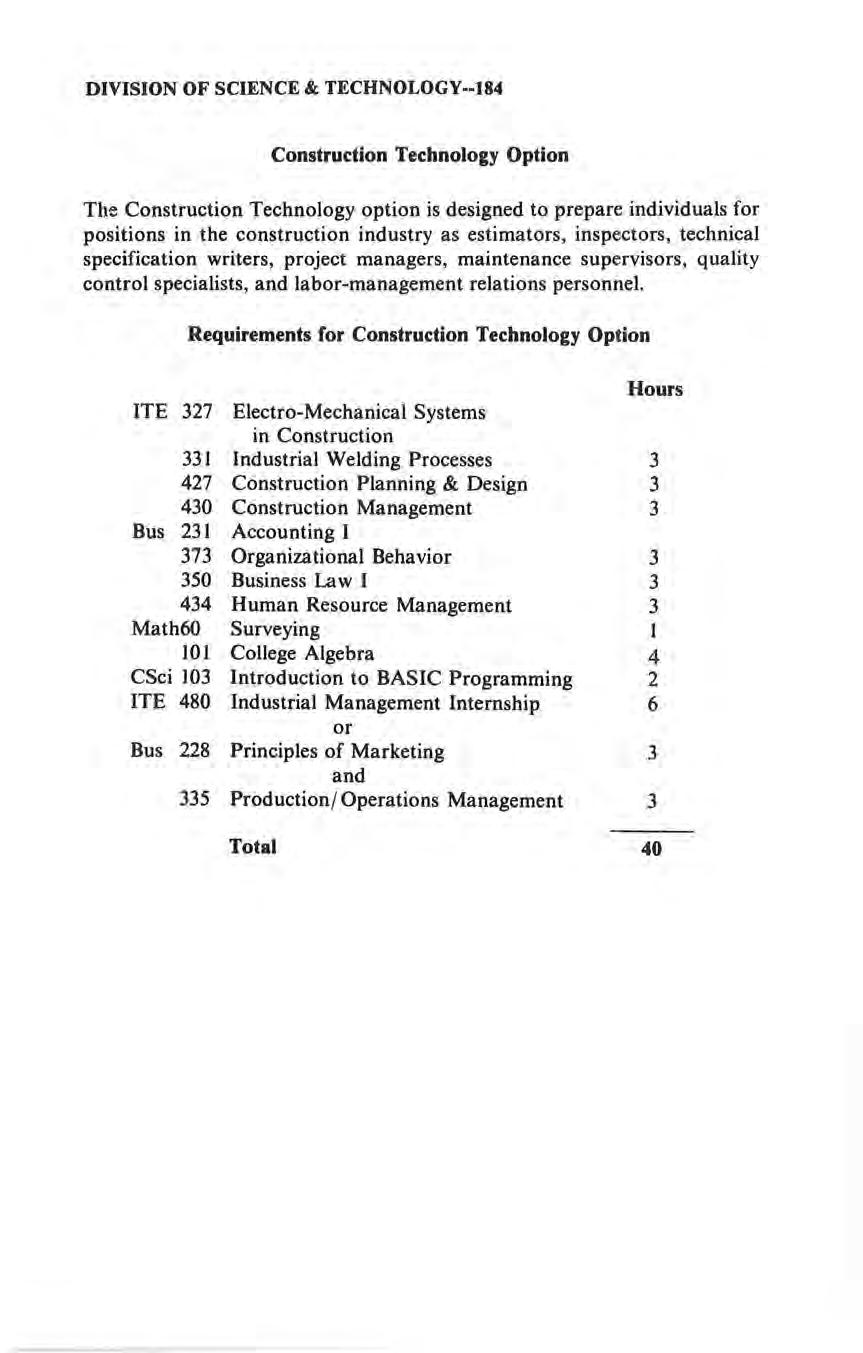
DIVISION OF SCIENCE & TECHNOLOGY--184 Construction Technology Option
Requirements for Construction Technology Op tion Hours ITE 327 Electro-Mechanical Systems in Construction 331 Industrial Welding Processes 3 427 Construction Planning & Design 3 430 Construction Management 3 Bus 231 Accounting I 373 Organizational Behavior 3 350 Business Law I 3 434 Human Resource Management 3 Math60 Surveying I IOI College Algebra 4 CSci 103 Introduction to BASIC Programming 2 ITE 480 Industrial Management Internship 6 or Bus 228 Principles of Marketing 3 and 335 Production/ Operations Management 3 Total 40
Suggested Program for Construction Technology Option
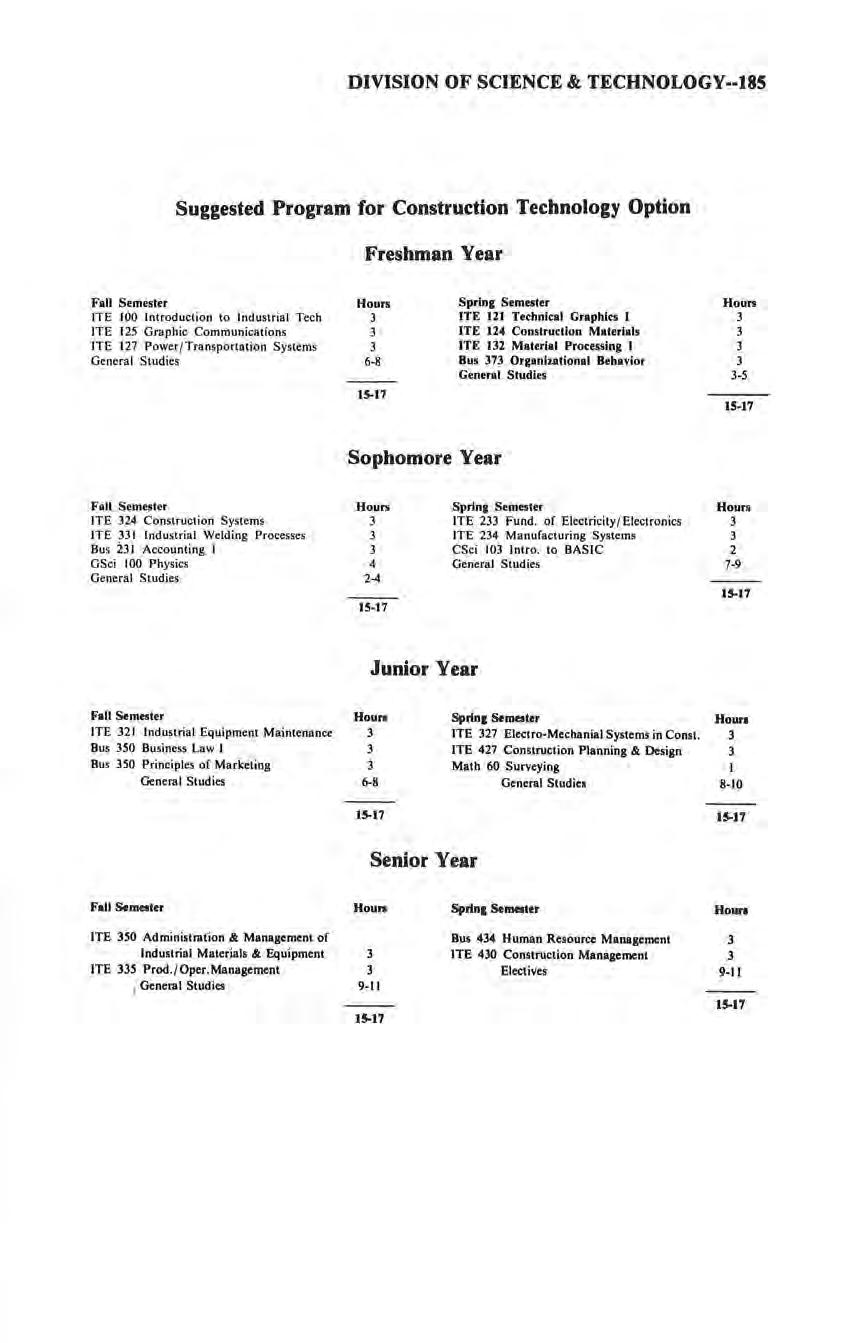
DIVISION OF SCIENCE & TECHNOLOGY--185
Freshman Year Fall Semester ITE JOO Introduction to Industrial Tech ITE 125 Graphic Communications ITE 127 Power / Transportation Systems General Studies Fall Semester ITE 324 Construction Systems ITE 331 Industrial Welding Processes Bus 231 Accounting I GSci IOO Physics General Studies Foll Semester ITE 321 Industrial Equipment Maintenance Bus 350 Business Law I Bus 350 Principles of Marketing General Studies Foll Semester ITE 350 Administration & Management of Industrial Materials & F.quipment ITE 335 Prod./Oper.Management 1 General Studies Hours 3 3 3 6-8 15-17 Spring Semester ITE 121 Technical Graphics I ITE 124 Construction Materials ITE 132 Material Processing I Bus 373 Organizational Behavior General Studies Sophomore Year Hours 3 3 3 4 2-4 15-17 Spring Semester ITE 233 Fund. of Electricity / Electronics ITE 234 Manufacturing Systems CSci 103 Intro. to BASIC General Studies Junior Year Houn 3 6-8 15-17 Sprin1 Semester ITE 327 Electro-Mechanial Systems in Const , ITE 427 Construction Planning & Design Math 60 Surveying General Studies Senior Year Houn 3 3 9-11 15-17 Sprin1 Semester Bus 434 Human Resource Management ITE 430 Construction Management Electives Hours 3 3 3 3 3-5 15-17 Hours 3 3 2 7-9 15-17 Houn 3 3 8-10 15-17 Houn 3 3 9-11 15-17
Vocational Education
For those seeking an endorsement in Vocational Trades and Industrial Education, the following is required in addition to the general degree program.
I. An emphasis in Industrial Technology Education.
2. A minimum of 12 semester hours in an area of specialization, e.g., carpentry, auto mechanics, etc.
3. Six hours from the following vocational courses:
a. Vocational Education 441/541
b. Vocational Education 442/542
c. Vocational Education 443/543
d. Vocational Education 445/545
4. Student teaching in a vocationally approvable program . If student teaching is not done in a vocational approvable program, an extra 3 semester hours of profess ional vocational courses are required.
5. The candidate shall have a minimum of 2000 hours of paid occupational experience in an area closely related to the field in which he/ she is preparing to teach.
a. If more than 5 years has elapsed since the experience , a maximum of 1000 hours of the occupational experience can be accepted and the program shall require, in addition, V.E. 444: Industrial Internship with a minimum of 360 clock hours of supervised employment in an area closely related to the field in which the candidate is preparing to teach.
The candidate shall have a minimum of 1000 clock hours of full-time employment or the equivalent in accumulated parttime employment plus completion of V.E. 444: Industrial Internship, with a minimum of 360 clock hours of supervised work experience in an area closely related to the field in which the candidate is preparing to teach.
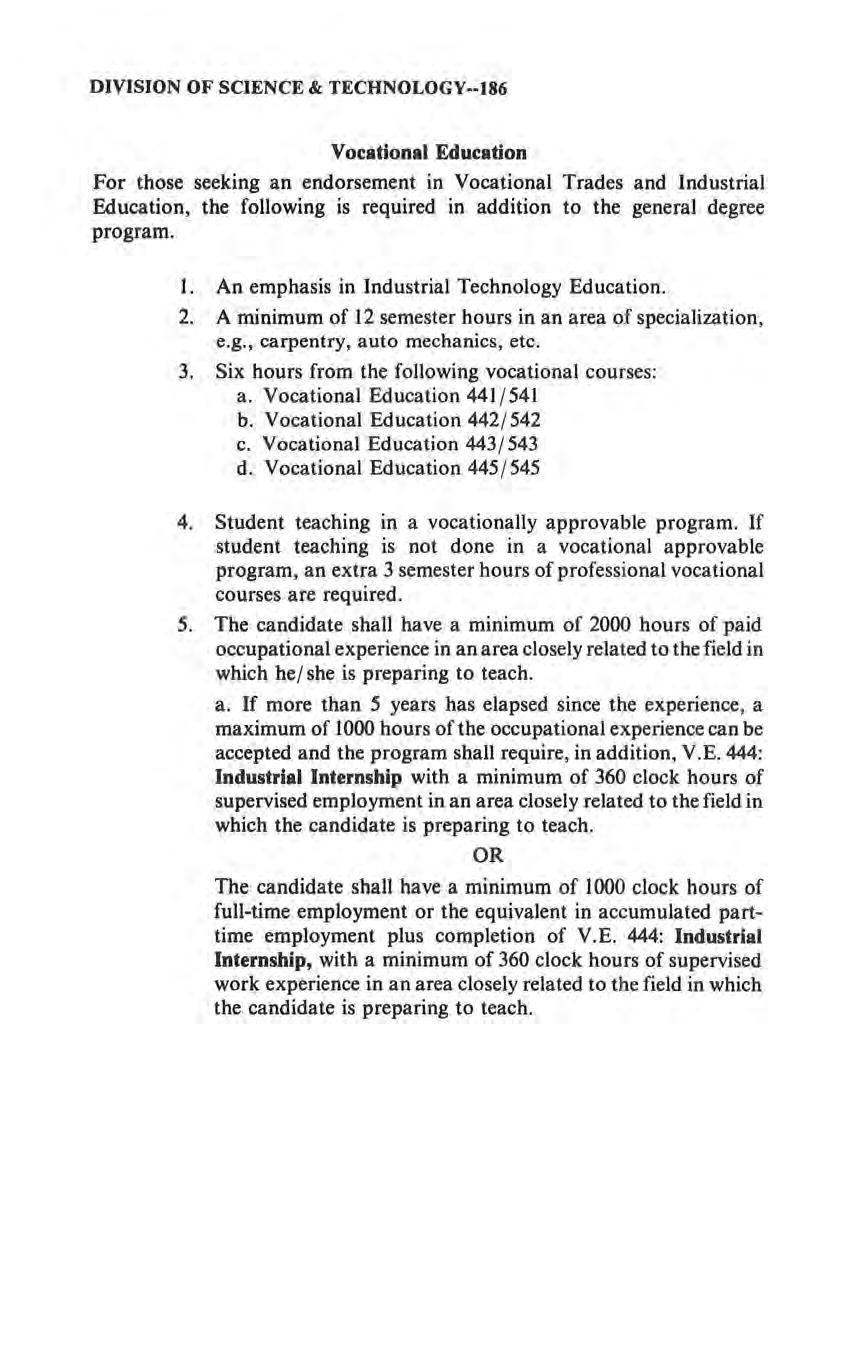
DIVISION OF SCIENCE & TECHNOLOGY--186
OR
Driver Education
To qualify for an endorsement in driver education a person must complete a field or two subject areas. An additional requirement for the endorsement is a valid Nebraska driver's license.
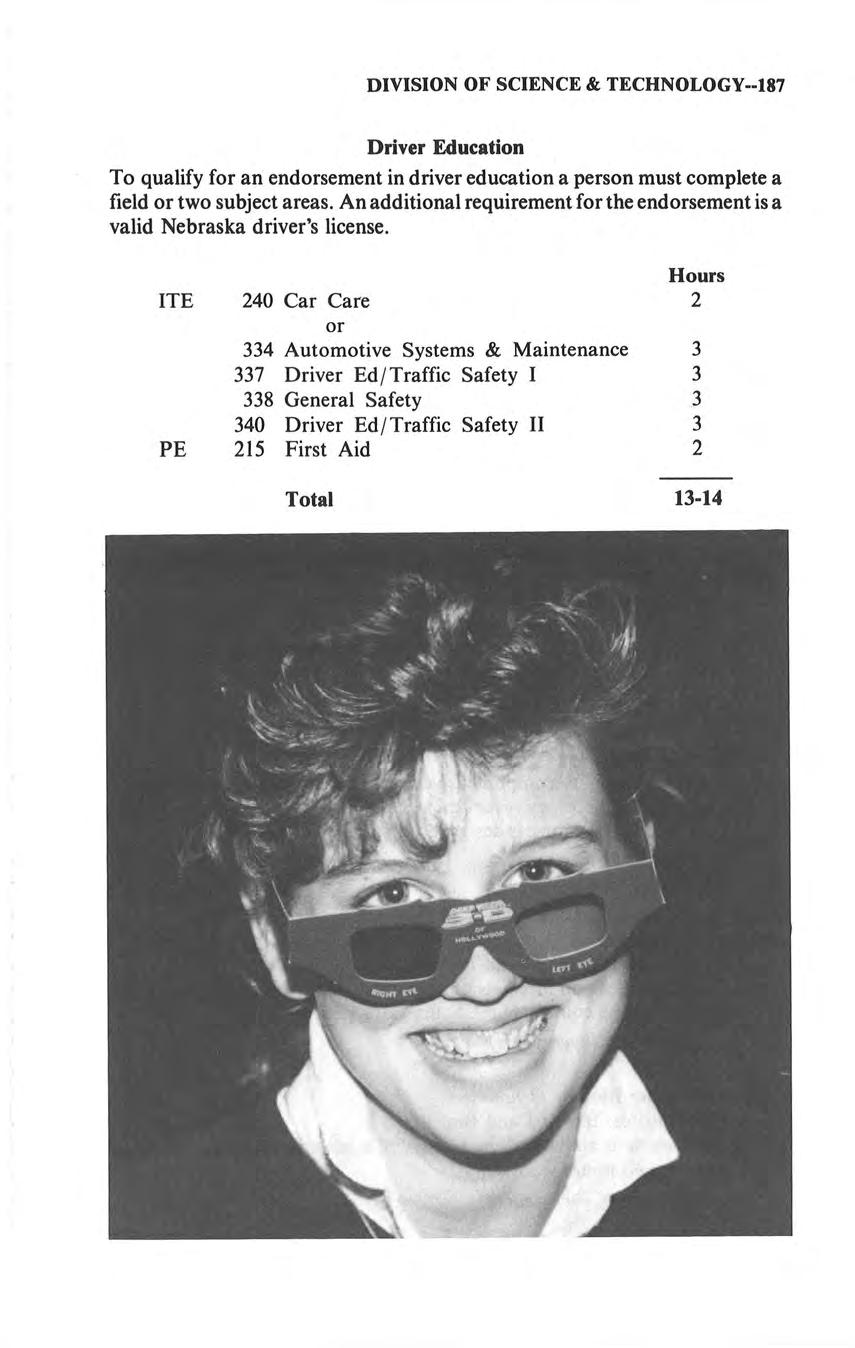
DIVISION OF SCIENCE & TECHNOLOGY--187
ITE PE 240 Car Care or 334 Automotive Systems & Maintenance 337 Driver Ed/Traffic Safety I 338 General Safety 340 Driver Ed/Traffic Safety II 215 First Aid Total Hours 2 3 3 3 3 2 13-14
Course Descriptions
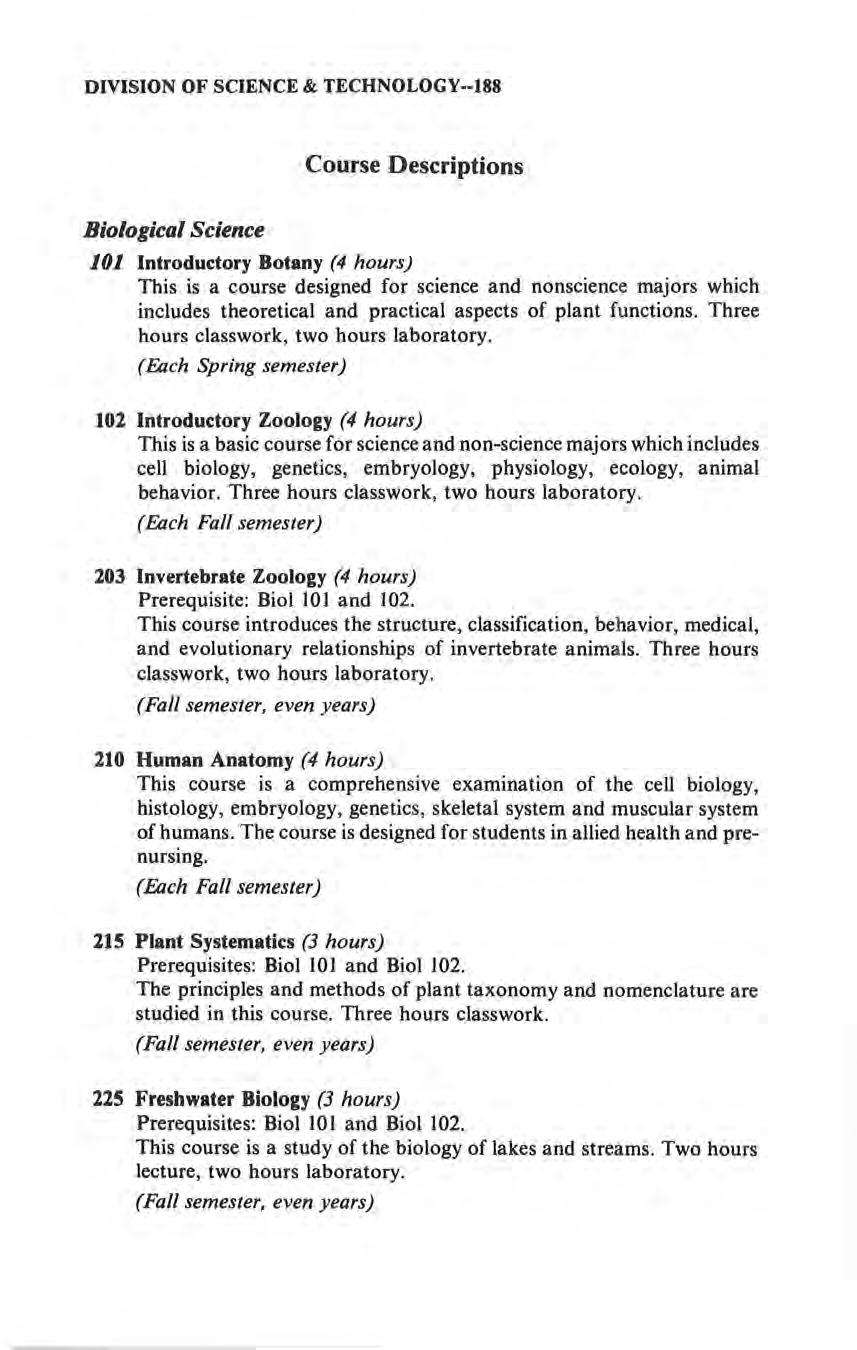
Biological Science
101 Introductory Botany (4 hours)
This is a course designed for science and nonscience majors which includes theoretical and practical aspects of plant functions. Three hours classwork, two hours laboratory.
(E:ach Spring semester)
102 Introductory Zoology (4 hours)
This is a basic course for science and non-science majors which includes cell biology, genetics, embryology, physiology, ecology, animal behavior. Three hours classwork, two hours laboratory.
(E:ach Fall semester)
203 Invertebrate Zoology (4 hours)
Prerequisite: Biol 101 and 102. This course introduces the structure, classification, behavior, medical, and evolutionary relationships of invertebrate animals. Three hours classwork, two hours laboratory.
(Fall semester, even years)
210 Human Anatomy (4 hours)
This course is a comprehensive examination of the cell biology, histology, embryology, genetics, skeletal system and muscular system of humans. The course is designed for students in allied health and prenursing.
(E:ach Fall semester)
215 Plant Systematics (3 hours)
Prerequisites: Biol 101 and Biol 102. The principles and methods of plant taxonomy and nomenclature are studied in this course. Three hours classwork.
(Fall semester, even years)
225 Freshwater Biology (3 hours)
Prerequisites: Biol 101 and Biol 102. This course is a study of the biology of lakes and streams . Two hours lecture, two hours laboratory.
(Fall semester, even years)
DIVISION OF SCIENCE & TECHNOLOGY--188
298 Special Topics in Biology (1-4 hours)
Freshman-Sophomore standing .
(Offered as needed)
301 Microbiology (4 hours)
Prerequisites : Biol 101 and Biol 102; or Biol 210
This course provides an introduction to the field of microbiology with emphasis on medical laboratory skills and microbiology technique. Two hours classwork, four hours laboratory.
(Each Spring semester)
304 Comparative Anatomy (4 hours)
Prerequisites : Biol 101 and Biol 102.
The evolutionary relationships of vertebrates are studied anatomically in this course. Three hours classwork, two hours laboratory.
(Spring semester, odd years)
312 Human Physiology (4 hours)
Prerequisties : Biol 102 or Biol 210.
This course examines the functions of the human body including the nervous , cardiovascular , respiratory , endocrine, urinogenital , digestive, and immune systems . Emphasis is placed on the body's homeostatic control mechanisms.
(Each Spring semester)
317 Ecology (4 hours)
Prerequisites : Biol 101 and Biol 102 .
Organisms including their interactions with each other and their environment are studied in this course. Three hours classroom work, two hours laboratory.
(Fall semester, odd years)
395 Mammalogy (3 hours)
Prerequisites: Biol 101 and 102.
This course is a study of mammals with an emphasis on midwestern species. Two hours lecture, two hours laboratory .
(Fall semester, odd years)
404 Genetics (3 hours)
Prerequisites: Biol IO 1 and 102
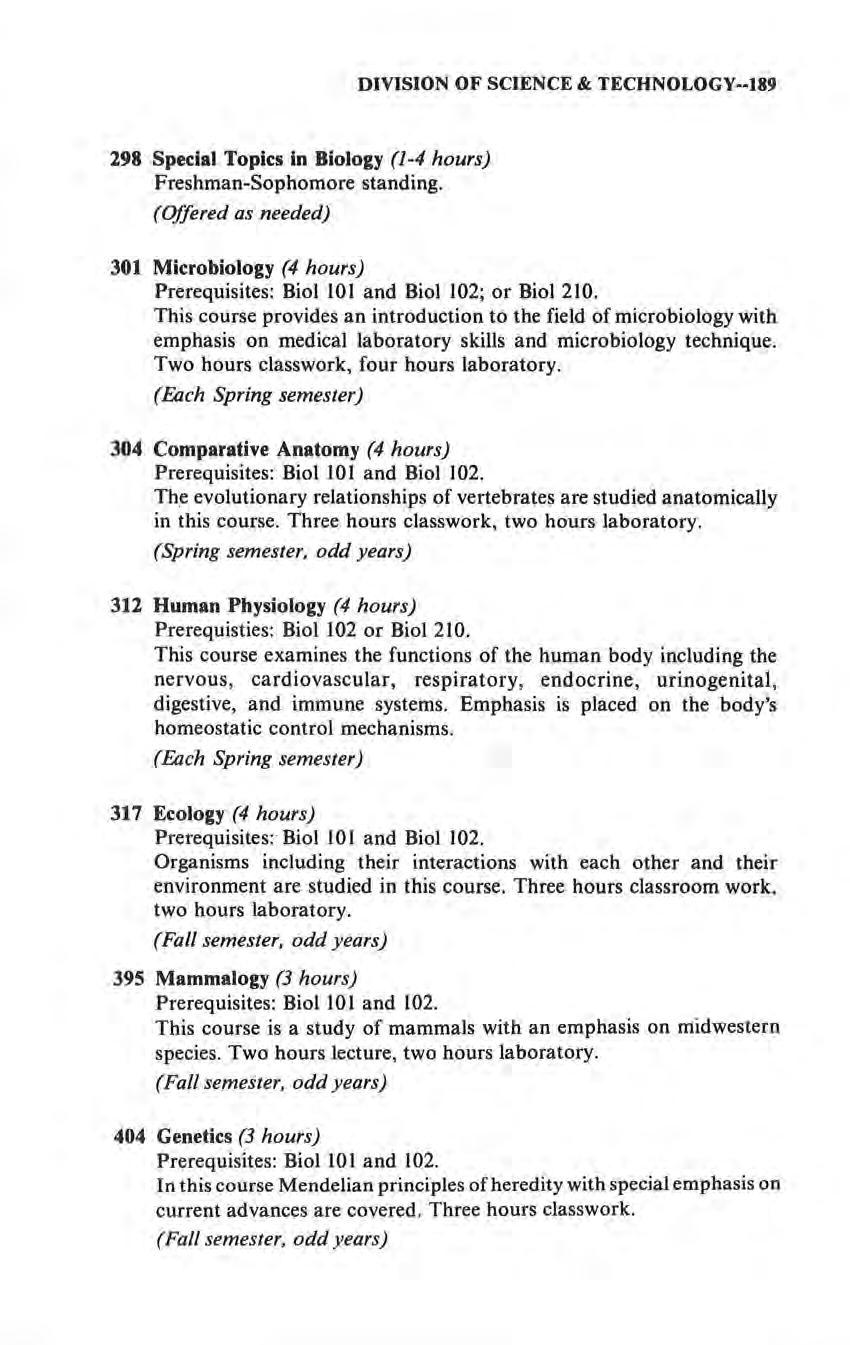
In this course Mendelian principles of heredity with special emphasis on current advances are covered. Three hours classwork.
(Fall semester, odd years)
DIVISION OF SCIENCE & TECHNOLOGY--189
405 Histology (4 hours)
Prerequisite: Biol 102.
This course studies the microscopic anatomy of mammalian tissue and organ systems with an emphasis on medical applications. Three hours classwork, two hours laboratory.
(Offered as needed)
407 Developmental Biology (4 hours)
Prerequisites: Biol 10 I and Biol 102. This course is a study of the mechanisms of development in plants and animals. Three hours classwork, two hours laborato r y.
(Spring semester, even years)
411 Ornithology (3 hours)
Prerequisites: Biol 10 I and Biol 102
This course is a study in avian biology including morphology, physiology, taxonomy, breeding, and ecology. Two hours lecture, two hours laboratory.
(Spring semester, odd years)
412 Experimental Biology (3 hours)
Prerequisites: Biol 10 I and Biol I 02, and 8 hours upper division Biology courses.
Students will examine current biological topics of interest that emphasize scientific method , interpretation, and analysis. Three hours lecture.
(Spring semester, even years)
486 Wildlife Management Techniques (3 hours)
Prerequisites: Biol WI and 102.
Contemporary techniques of conservation and management of wildlife are studied. Three hours lecture .
(Spring semester, even years)
49 7 Wildlife Biology Internship (3 hours)
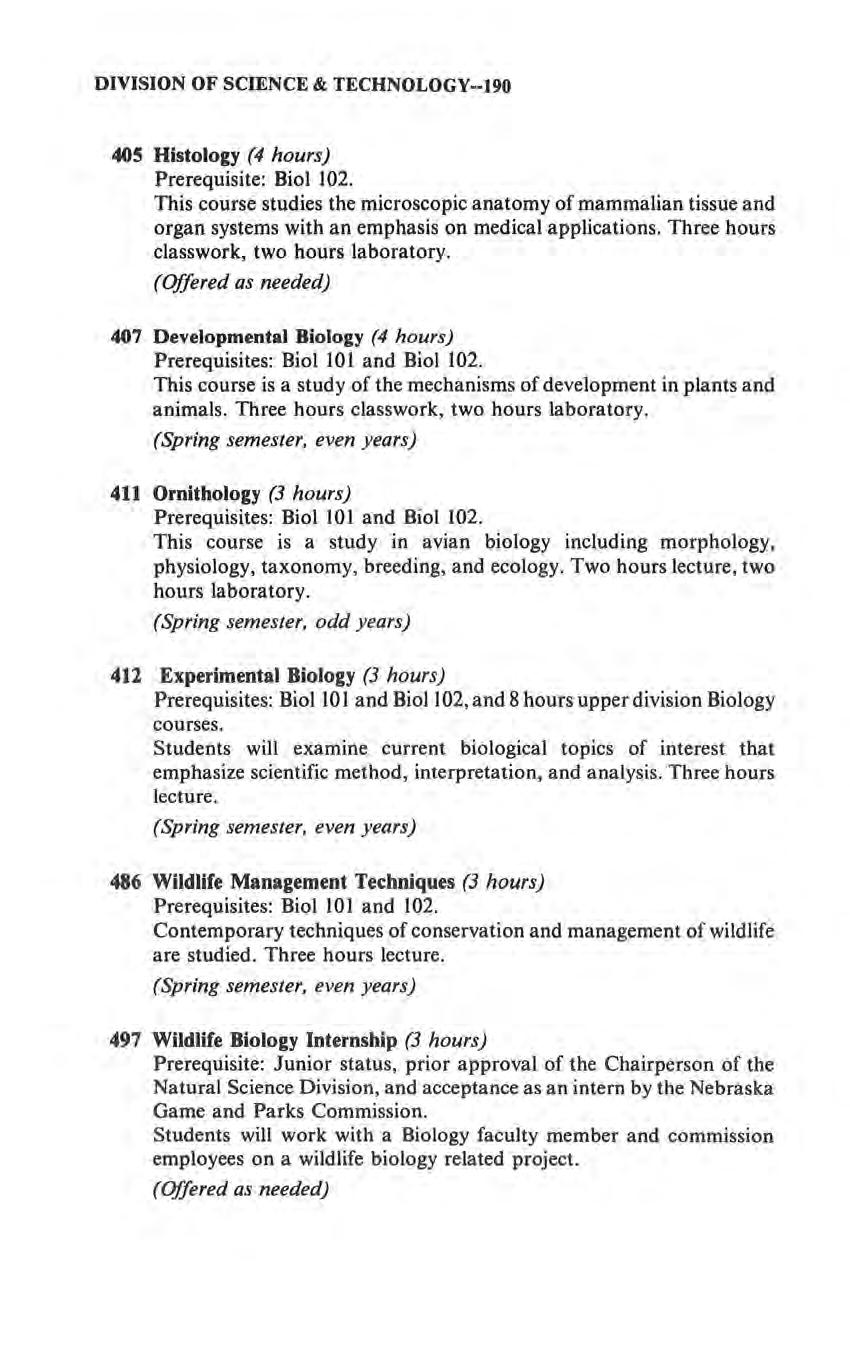
Prerequisite : Junior status , prior approval of the Chairperson of the Natural Science Division , and acceptance as an intern by the Nebraska Game and Parks Commission.
Students will work with a Biology faculty member and commission employees on a wildlife biology related project.
(Offered as needed)
DIVISION OF SCIENCE & TECHNOLOGY--190
498 Special Topics in Biology (1-4 hours)
Junior-Senior standing.
(Offered as needed)
499 Independent Study in Biology (1 -3 hours)
Junior standing.
(Each semester)
Chemistry
101 General Chemistry (4 hours)
Prerequisite: High school algebra
An introduction to the fundamentals of chemistry, topics such as atomic theory , chemical bonding, stoichiometry, solutions , and pH are covered. Three hours classwork, two hours laboratory .
(Each Fall semester)
102 General Chemistry (4 hours)
Prerequi s ite: Chem 101.
This course is an application of the fundamentals of chemistry , including states of matter, oxidation-reduction , thermochemistry , chemical equilibrium, kinetics , nuclear chemistry , and descriptive chemistry. Three hours classwork, two hours laboratory.
(Each Spring semester)
142 Introductory Organic and Biochemistry (4 hours)
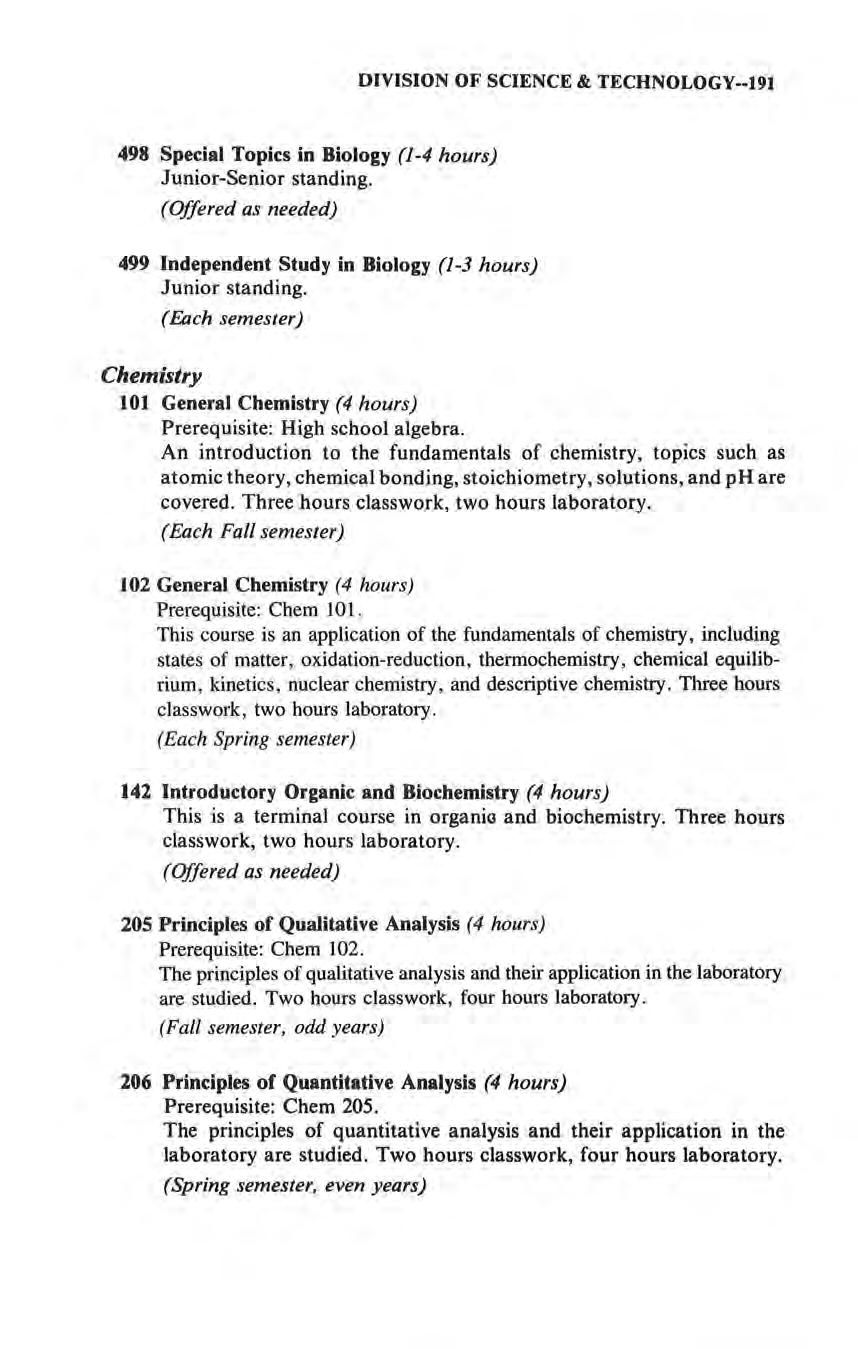
This is a terminal course in organio and biochemistry . Three hours classwork, two hours laboratory .
(Offered as needed)
205 Principles of Qualitative Analysis (4 hours)
Prerequisite: Chem 102 .
The principles of qualitative analysis and their application in the laboratory are studied. Two hours classwork , four hours laboratory .
(Fall semester, odd years)
206 Principles of Quantitative Analysis (4 hours)
Prerequisite : Chem 205.
The principles of quantitative analysis and their application in the laboratory are studied. Two hours classwork, four hours laboratory. (Spring semester, even years)
DIVISION OF SCIENCE & TECHNOLOGY--191
298 Special Topics in Chemistry (1-4 hours)
Freshman-Sophomore standing.
(Offered as needed)
303 Organic Chemistry (5 hours)
Prerequisite: Chem 102. This course introduces the chemistry of aliphatic and aromatic compounds with the mechanisms and stereochemistry. Three hours classwork, four hours laboratory.
(Fall semeser, even years)
304 Organic Chemistry (5 hours)
Prerequisite: Chem 303.
This course is a continuation of Chem 303 with emphasis on the chemistry and detection of functional groups. The laboratory emphasis is on methods of qualitative organic analysis. Three hours classwork, four hours laboratory.
(Spring semester, odd years)
431 Biochemistry (4 hours)
Prerequisite: Chem 304.
The chemical foundations of molecular biology with an emphasis on the molecular aspects of intermediary metabolism are studied. Three hours classwork, two hours laboratory.
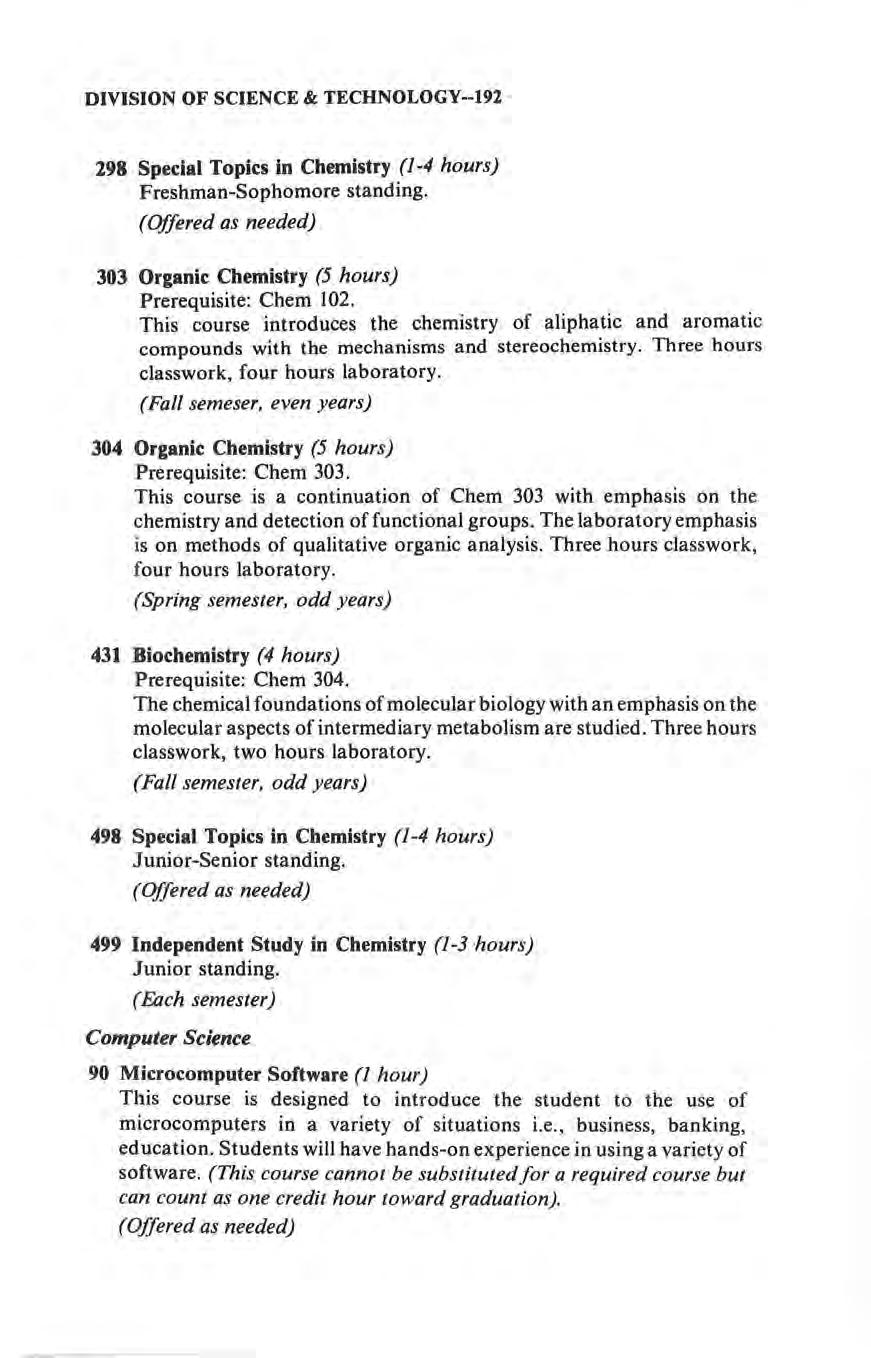
(Fall semester, odd years)
498 Special Topics in Chemistry (1-4 hours)
Junior-Senior standing.
(Offered as needed)
499 Independent Study in Chemistry (1-3 hours) Junior standing.
(Each semester)
Computer Science
90 Microcomputer Software (I hour)
This course is designed to introduce the student to the use of microcomputers in a variety of situations i.e., business, banking, education. Students will have hands-on experience in using a variety of software. (This course cannot be substituted for a required course but can count as one credit hour toward graduation).
(Offered as needed)
DIVISION OF SCIENCE & TECHNOLOGY--192
100 Introduction to Computer Applications (3 hours)
This course provides an overview of the history and evolution of computers and software. Issues such as the future of computers, their social impact, and the ethics of computer use are also considered. Students receive direct instruction and directed experience on an integrated software package that includes word processor, spreadsheet, and data file manager. Two hours lecture, two hours laboratory.
(Each semester)
102 Introduction to Computer Concepts (3 hours)
This course is designed to develop a general knowledge about computers. This includes technical knowledge about hardware and software with regard to their operation and how they are used to solve problems. The course also includes an awareness of how computers affect society. Students will use software simulation projects that demonstrate the use of the computer to solve common problems.
(Each semester)
103 Introduction to BASIC Programming (2 hours)
The BASIC language and its application to problem solving in mathematics, science, and business will be studied using the Apple II computer. One hour of classwork and two hours of laboratory per week.
(Each sen1:ester)
104 Intermediate BASIC Programming (J hour)
Prerequisite: CSci 103.
A more in-depth study of BASIC on the Apple microcomputer with subroutines, graphics, and disk file manipulation is covered.
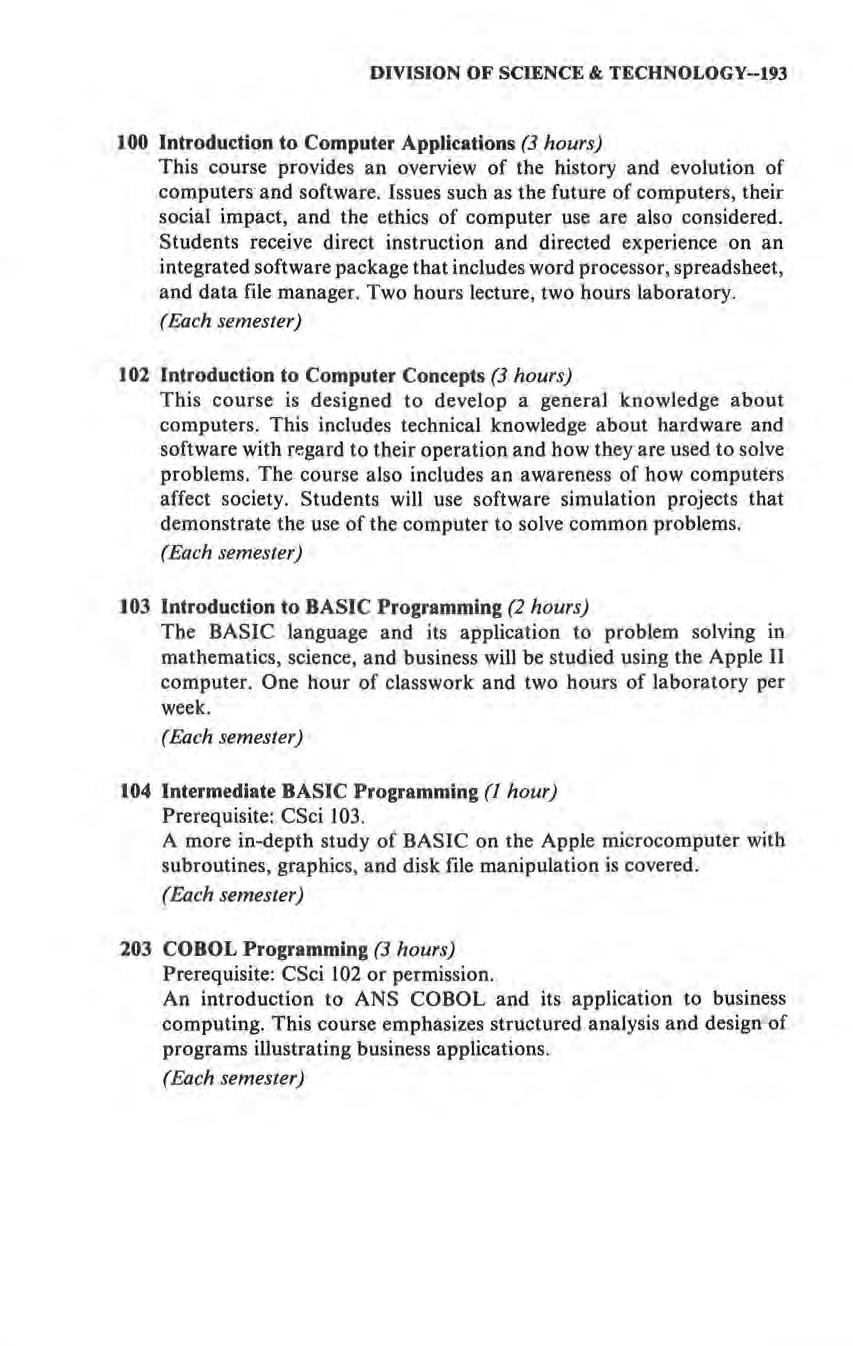
(Each semester)
203 COBOL Programming (3 hours)
Prerequisite: CSci 102 or permission.
An introduction to ANS COBOL and its application to business computing. This course emphasizes structured analysis a!)d design of programs illustrating business applications.
(Each semester)
DIVISION OF SCIENCE & TECHNOLOGY--193
204 Computer Programming I (3 hours)
This course provides an introduction to programming and algorithm development using Fortran with elements of program structure and subprogram usage. Problem solving techniques including stepwise refinement are applied to problems in mathematics and business with algorithms for searching, merging, and sorting introduced.
(Each semester)
206 Computer Programming II (3 hours)
Prerequisite: CSci 204. This course introduces programming and algorithm development using Pascal. The study of stepwise refinement and top-down programming, testing, and debugging is continued with an emphasis on string processing, internal searching and sorting, and recursion. Data structures including stacks, queues, deques, linked lists are also built and manipulated.
(Each semester)
208 Computer Systems (3 hours)
Prerequisite: CSci 203 or 206. The principles of operation and assembly programming of the IBM 370 are introduced. Topics to be studied include computer structure and machine language , addressing techniques, macros , program segmentation and linkage conventions, file input-output, assemblers, and interpreters.
(E:a ch semester)
298 Special Topics in Computer Science (1-4 hours)
Freshman-Sophomore standing.
(Offered as needed)
304 File Processing (3 hours)
Prerequisite: CSci 203. A study of the methods used to process data files including sequential file techniques and random access file methods Programming examples and exercises will stress applications of COBOL.
(Offered as needed)
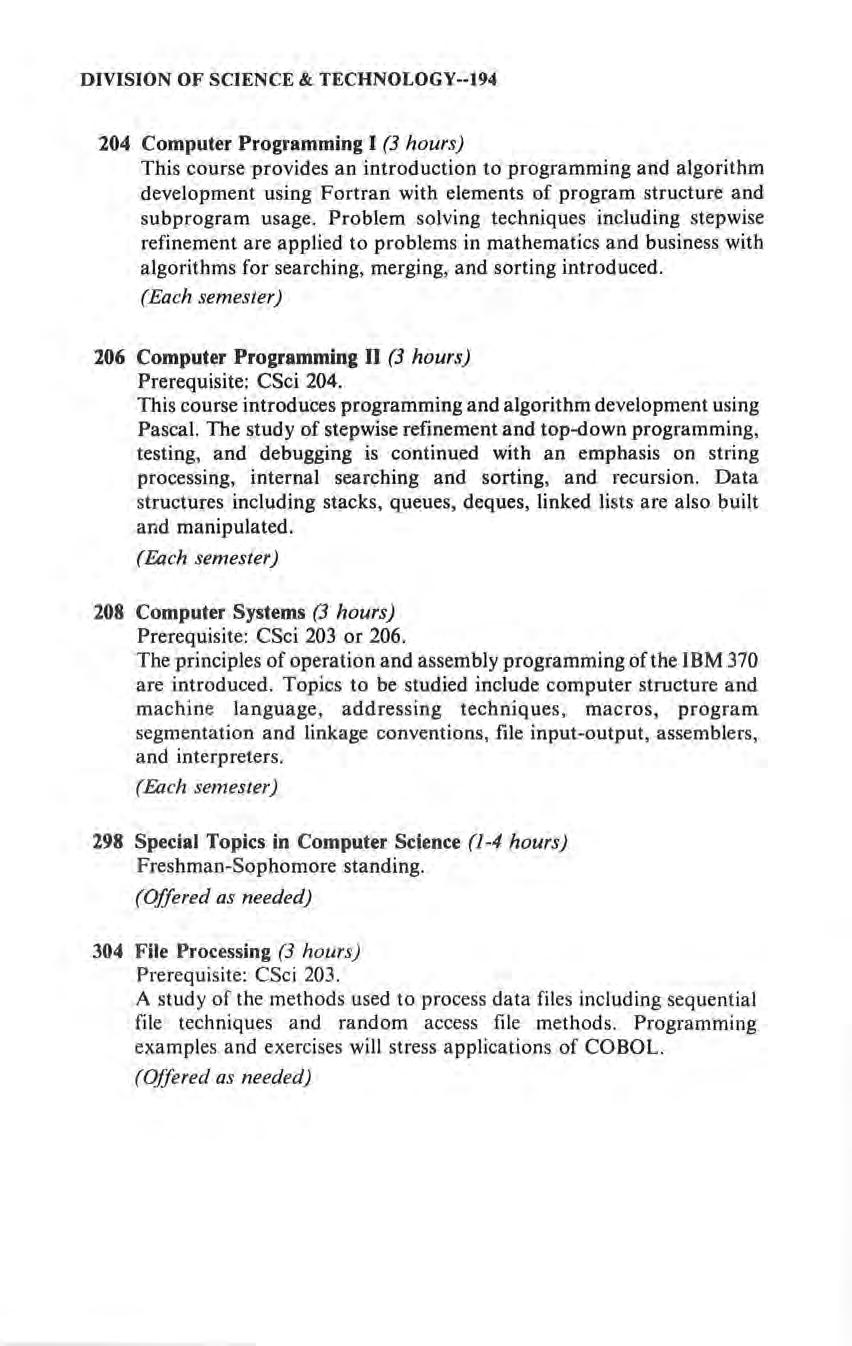
DIVISION OF SCIENCE & TECHNOLOGY--194
306 Operating Systems and Computer Architecture (3 hours)
Prerequisite: CSci 208.
Operating systems principles and relationships between operating systems and computer architecture are studied including procedure activation, system structure, system m9deling and evaluation, memory management, process management, interrupts, scheduling, and recovery procedures,
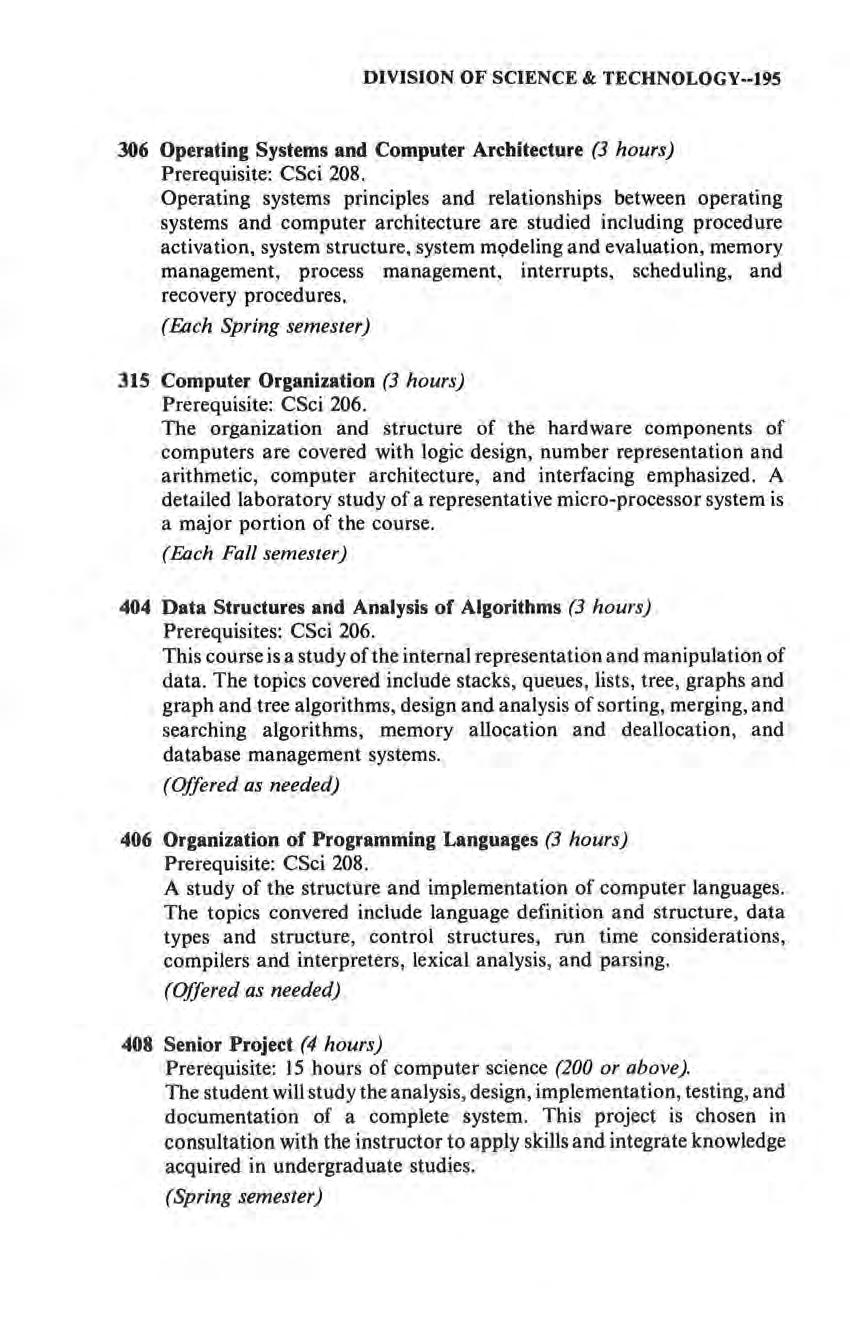
(Each Spring semester)
315 Computer Organization (3 hours)
Prerequisite: CSci 206.
The organization and structure of the hardware components of computers are covered with logic design, number representation and arithmetic, computer architecture, and interfacing emphasized. A detailed laboratory study of a representative micro - processor system is a major portion of the course .
(Each Fall semester)
404 Data Structures and Analysis of Algorithms (3 hours)
Prerequisites: CSci 206.
This course is a study of the internal representation and manipulation of data. The topics covered include stacks, queues, lists, tree, graphs and graph and tree algorithms, design and analysis of sorting, merging, and searching algorithms, memory allocation and deallocation, and database management systems.
(Offered as needed)
406 Organization of Programming Languages (3 hours)
Prerequisite: CSci 208.
A study of the structure and implementation of computer languages. The topics convered include language definition and structure , data types and structure , control structures , run time considerations, compilers and interpreters, lexical analysis , and parsing.
(Offered as needed)
408 Senior Project (4 hours)
Prerequisite : 15 hours of computer science (200 or above).
The student will study the analysis , design, implementation , testing , and documentation of a complete system . This project is chosen in consultation with the instructor to apply skills and integ rate knowledge acquired in undergraduate studies.
(Spring semester)
DIVISION OF SCIENCE & TECHNOLOGY --195
498 Special Topics in Computer Science (1-4 hours)
Junior-Senior standing.
(Offered as needed)
499 Independent Study in Computer Science (1-3 hours)
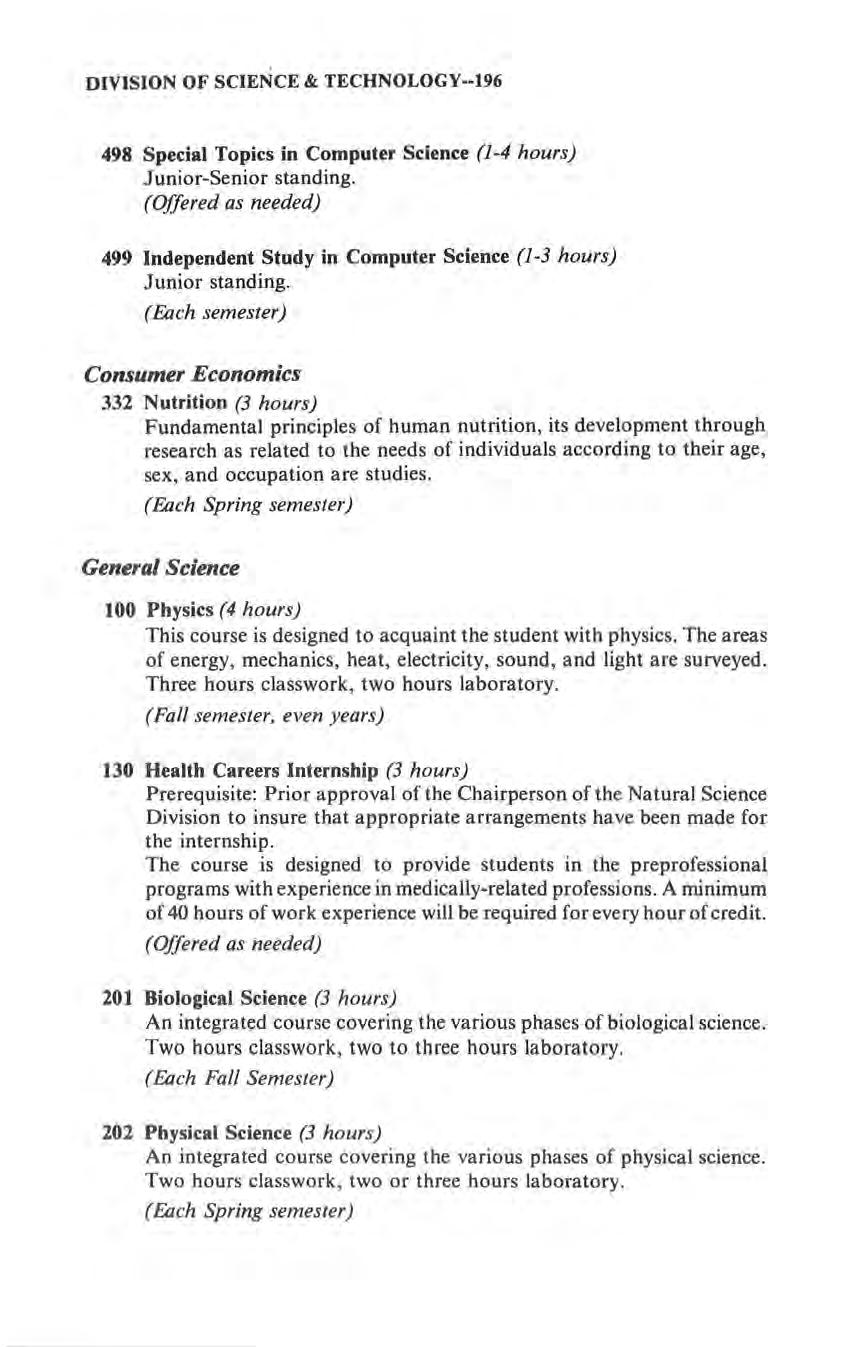
Junior standing.
(Each semester)
Consumer Economics
332 Nutrition (3 hours)
Fundamental principles of human nutrition, its development through research as related to the needs of individuals according to their age, sex, and occupation are studies.
(Each Spring semester)
General Science
100 Physics (4 hours)
This course is designed to acquaint the student with physics. The areas of energy, mechanics, heat, electricity, sound, and light are surveyed. Three hours classwork, two hours laboratory.
(Fall semester, even years)
130 Health Careers Internship (3 hours)
Prerequisite: Prior approval of the Chairperson of the Natural Science Division to insure that appropriate arrangements have been made for the internship.
The course is designed to provide students in the preprofessional programs with experience in medically-related professions. A minimum of 40 hours of work experience will be required for every hour of credit.
(Offered as needed)
201 Biological Science (3 hours)
An integrated course covering the various phases of biological science. Two hours classwork, two to three hours laboratory
(Each Fall Semester)
202 Physical Science (3 hours)
An integrated course covering the various phases of physical science. Two hours classwork, two or three hours laboratory.
(Each Spring semester)
DIVISION OF SCIENCE & TECHNOLOGY--196
205 Introductory Biology (3 hours)
An integrated course specifically designed for the non-science student covering the various phases of man's biotic world including a variety of learning experiences. Does not apply to the major or support in Biology .
(E:ach semester)
206 Principles of Physical Science (3 hours)
An integrated course specifically designed for the non-science student covering the various phases of man's physical and chemical world. Experiences with a variety of learning situations, such as demonstrations, experiments, instructional television, and other visual aids are included. Does not apply to the major or support in Physical Science.
(E:ach Spring semester)
232 Energy (3 hours)
A study of energy resources with a focus on both nuclear and conventional power stations, design operation, cost, governmental regulations, safety, and environmental effects. Field trips to nuclear arid conventional generation stations are required.
(E:ach Fall semester)
298 Special Topics in General Science (1 -4 hours)
Freshman-Sophomore standing
(Offered as needed)
411 Cooperative Education Internship (1 - 12 hours)
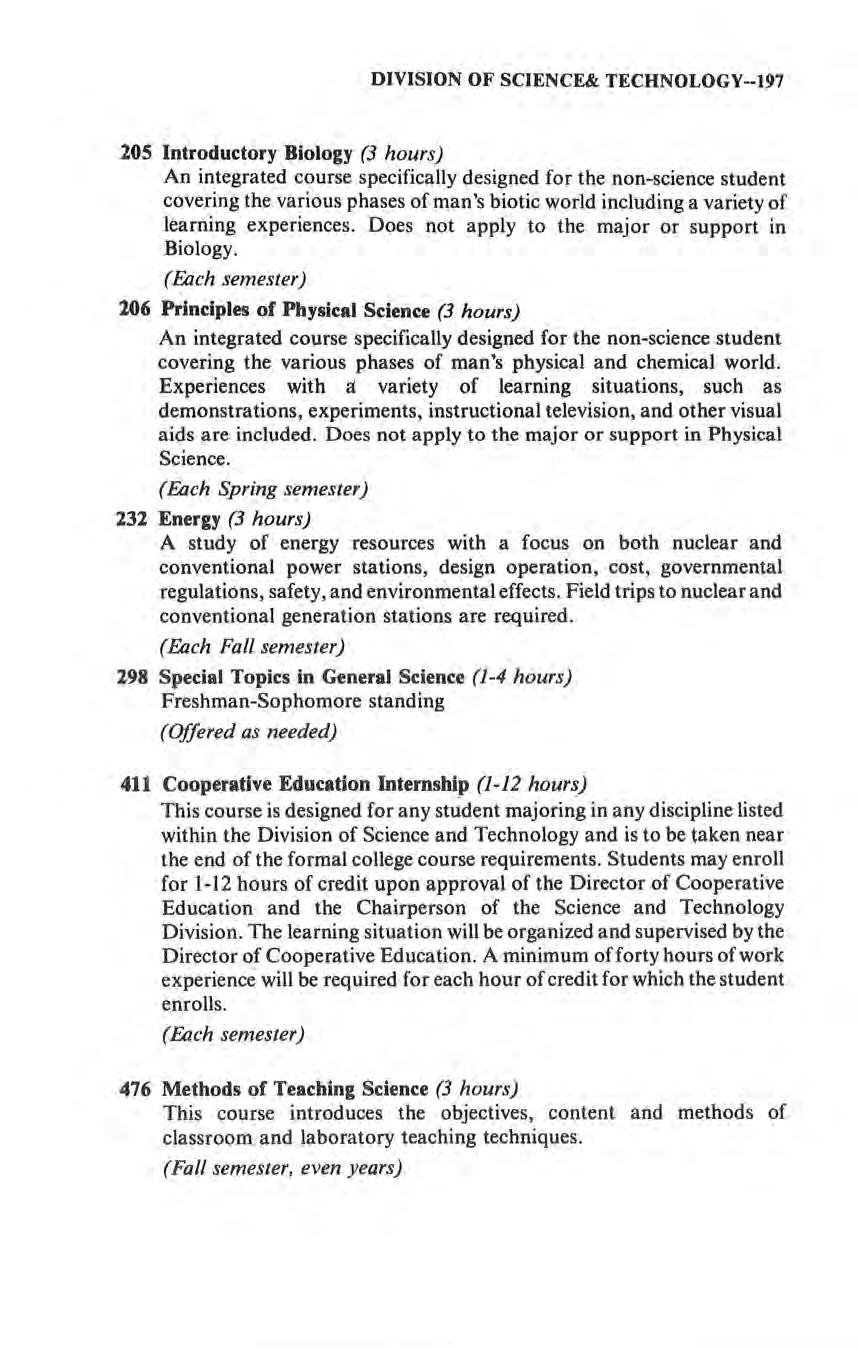
This course is designed for any student majoring in any discipline listed within the Division of Science and Technology and is to be taken near the end of the formal college course requirements . Students may enroll for 1-12 hours of credit upon approval of the Director of Cooperative Education and the Chairperson of the Science and Technology Division. The learning situation will be organized and supervised by the Director of Cooperative Education. A minimum of forty hours of work experience will be required for each hour of credit for which the student enrolls.
(E:ach semester)
476 Methods of Teaching Science (3 hours)
This course introduces the objectives, content and methods of classroom and laboratory teaching techniques.
(Fall semester, even years)
DIVISION OF SCIENCE& TECHNOLOGY--197
497 Aerospace Science (3 hours)
A workshop designed to provide an understanding of aerospace developments which are vital to our social, econom ic, and political environment.
(Summer Session)
498 Special Topics in General Science (1-4 hours)
Junior-Senior standing.
(Offered as needed)
499 Independent Study in General Science (1-3 hours) Junior standing.
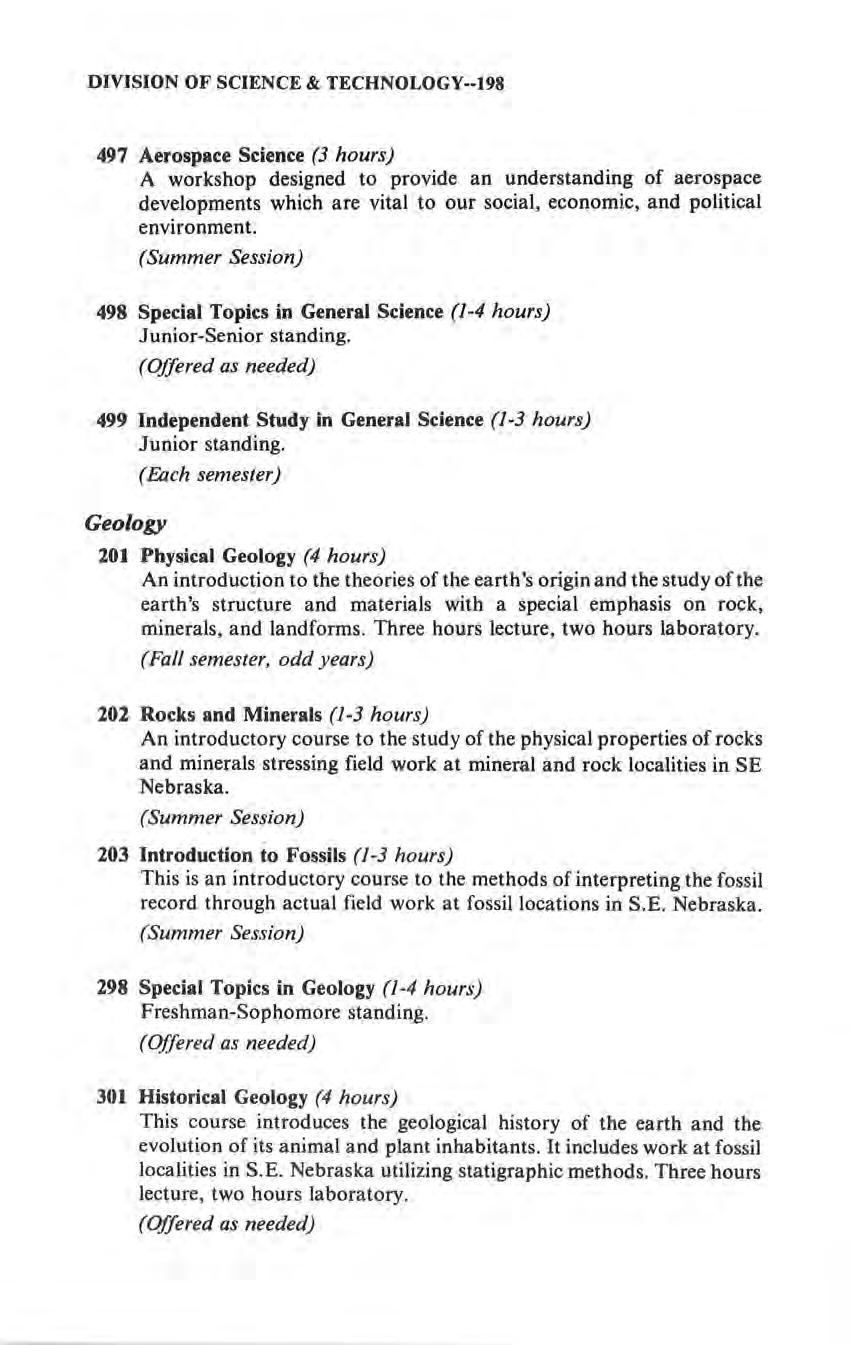
(F.ach semester)
Geology
201 Physical Geology (4 hours)
An introduction to the theories of the earth's origin and the study of the earth's structure and materials with a special emphasis on rock, minerals, and landforms. Three hours lecture, two hours laboratory
(Fall semester, odd years)
202 Rocks and Minerals (1-3 hours)
An introductory course to the study of the physical properties of rocks and minerals stressing field work at mineral and rock localities in SE Nebraska.
(Summer Session)
203 Introduction to Fossils (1-3 hours)
This is an introductory course to the methods of interpreting the fossil record through actual field work at fossil locations in S.E. Nebraska.
(Summer Session)
298 Special Topics in Geology (1-4 hours)
Freshman-Sophomore standing.
(Offered as needed)
301 Historical Geology (4 hours)
This course introduces the geological history of the earth and the evolution of its animal and plant inhabitants. It includes work at fossil localities in S.E. Nebraska utilizing statigraphic methods. Three hours lecture, two hours laboratory.
(Offered as needed)
DIVISION OF SCIENCE & TECHNOLOGY--198
304 Meteorology and Climatology (3 hours)
The physical factors influencing the climate with practical work in interpreting meteorological records and forecasting are studied. Two hours lecture, two hours laboratory.
(Spring semester, even years)
315 Physiography of the United States (4 hours)
Prerequisites: Geog IOI and l03.
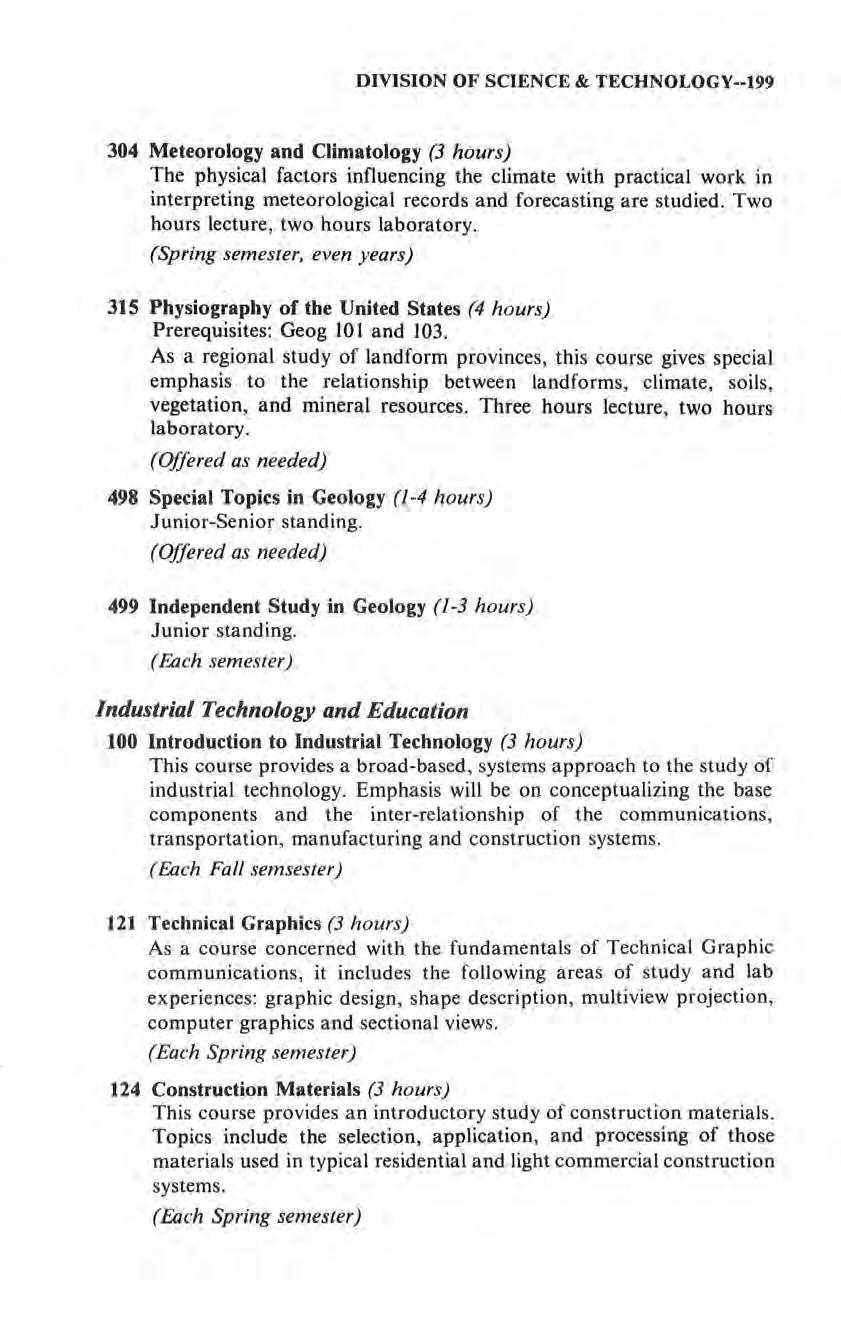
As a regional study of landform provinces, this course gives special emphasis to the relationship between landforms, climate, soils, vegetation, and mineral resources. Three hours lecture, two hours laboratory .
(Offered as needed)
498 Special Topics in Geology (1-4 hours)
Junior-Senior standing.
(Offered as needed)
499 Independent Study in Geology (1-3 hours)
Junior standing.
(F.ach semester)
Industrial Technology and Education
100 Introduction to Industrial Technology (3 hours)
This course provides a broad-based, systems approach to the study of industrial technology. Emphasis will be on conceptualizing the base components and the inter-relationship of the communications, transportation, manufacturing and construction systems.
(
F.ach Fall semsester)
121 Technical Graphics (3 hours)
As a course concerned with the fundamentals of Technical Graphic communications , it includes the following areas of study and lab experiences: graphic design, shape description, multiview projection, computer graphics and sectional views.
(Each Spring semester)
124 Construction Materials (3 hours)
This course provides an introductory study of construction materials. Topics include the selection, application, and processing of those materials used in typical residential and light commercial construction systems.
(F.ach Spring semester)
DIVISION OF SCIENCE & TECHNOLOGY--199
125 Graphic Communications (3 hours)
This course is a study and practice in the basic processes of the graphic communication industries. Lecture, discussion and demonstrations will be encountered in relief and screen printing. Student lab experience will include lithographic processes in the form of design, computer composition, process camera operation, pre-press and press operations.
(&ch Fall semester)
127 Power / Transportation Systems (3 hours)
This course is a basic study of the · production control and transportation of mechanical, electrical, and fluidic power. It deals with the interrelationships of these three factors as they are integrated into the power/ transportation systems of modern technology.
(&ch Fall semester)
132 Material Processing I (3 hours)
This course provides an introduction to the study of separating, forming, and combining of industrial materials. Areas of study will include the processing technology associated with metals, composites, and synthetic materials.
(F,ach Spring semester)
222 Technical Graphics II (3 hours)
Prerequisite: ITE 121
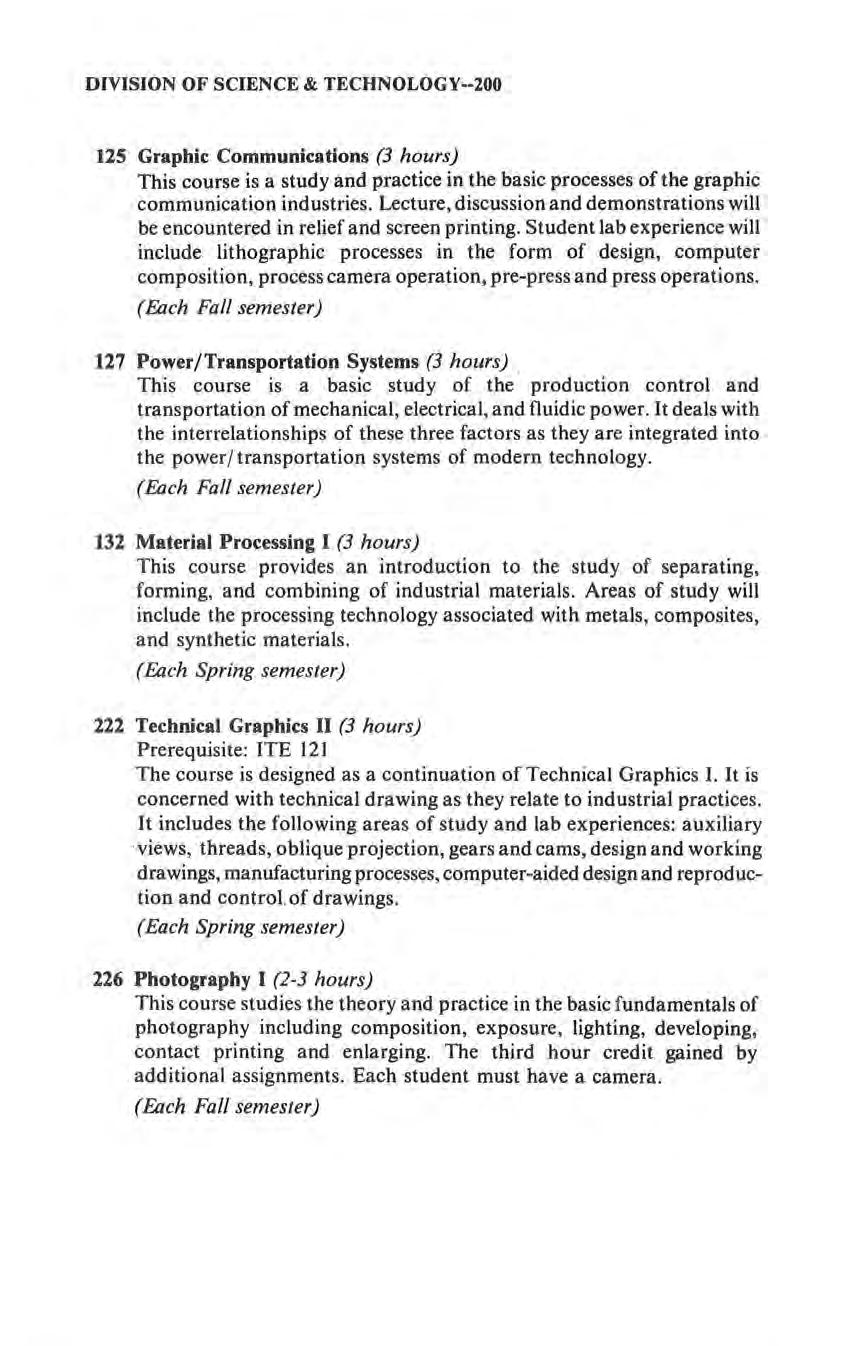
The course is designed as a continuation of Technical Graphics I. It is concerned with technical drawing as they relate to industrial practices. It includes the following areas of study and lab experiences: auxiliary ·views, threads, oblique projection, gears and cams, design and working drawings, manufacturing processes, computer-aided design and reproduction and control. of drawings.
(Each Spring semester)
226 Photography I (2-3 hours)
This course studies the theory and practice in the basic fundamentals of photography including composition, exposure, lighting, devel9ping, contact printing and enlarging. The third hour credit gained by additional assignments. Each student must have a camera .
(F,ach Fall semester)
DIVISION OF SCIENCE & TECHNOLOGY--200
233 Fundamentals of Electricity / Electronics (3 hours)
Prerequisite: ITE 127 or special permission. Principles and applications of AC and DC theory as utilized in home, business, and industry are covered . Areas of instruction include electrical/ electronic theory, lighting, heating, motors and generators, residential and industrial wiring, and basic automotive electrical systems.
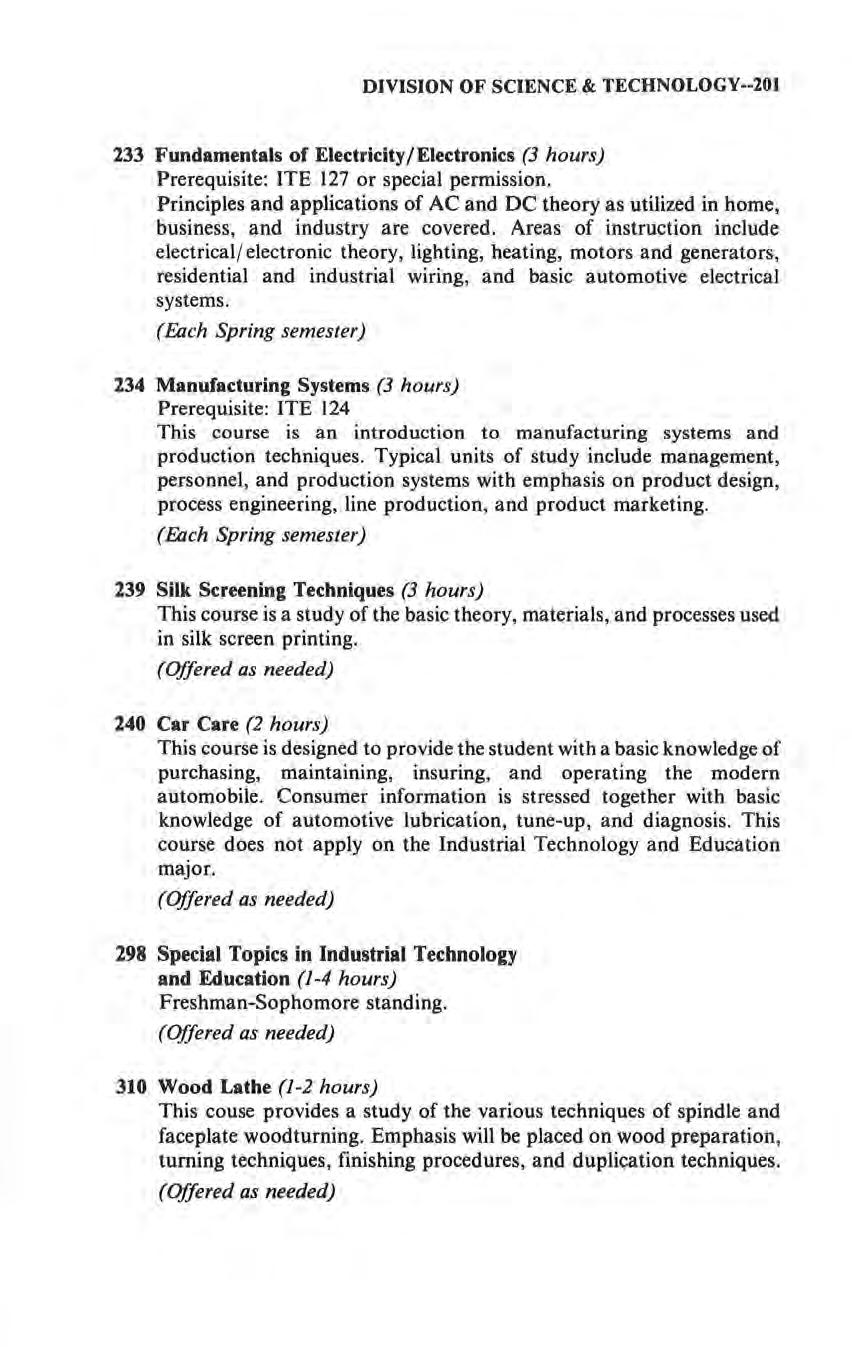
(F.ach Spring semester)
234 Manufacturing Systems (3 hours)
Prerequisite: ITE 124
This course is an introduction to manufacturing systems and production techniques. Typical units of study include management, personnel, and production systems with emphasis on product design, process engineering, line production, and product marketing.
(F.ach Spring semester)
239 Silk Screening Techniques (3 hours)
This course is a study of the basic theory, materials, and processes used in silk screen printing.
(Offered as needed)
240 Car Care (2 hours)
This course is designed to provide the student with a basic knowledge of purchasing, maintaining, insuring, and operating the modern automobile. Consumer information is stressed together with basic knowledge of automotive lubrication, tune-up, and diagnosis. This course does not apply on the Industrial Technology and Education major.
(Offered as needed)
298 Special Topics in Industrial Technology and Education (1-4 hours)
Freshman-Sophomore standing.
(Offered as needed)
310 Wood Lathe (1 -2 hours)
This couse provides a study of the various techniques of spindle and faceplate woodturning . Emphasis will be placed on wood preparation, turning techniques, finishing procedures, and duplic;ation techniques.
(Offered as needed)
DIVISION OF SCIENCE & TECHNOLOGY--201
-321 Industrial Equipment Maintenance (3 hours)
The managing, maintaining, conditioning, and repairing of tools and equipment in industrial shops and laboratori es are emphasized in this course.
(E:ach Fall semester)
322 Elementary Technology Education (3 hours)
This course is designed to develop skills and knowledge in working with ceramics, metals, plastics, wood and other craft mater ials. Instruction will include specifying and purchasing craft supp lie s and methods of incorporating these activities into schoo l and community programs
Recommended for elementary school teachers, recreation majors, and for people interested in leisur e time craft activities.
( E:ach semester)
323 Material Processing II (3 hours)
Prerequisite: ITE 132 .
Advanced techniques in manufacturing processes of machining and ca sting are covered. This course will also include the study of chemical and physical properties of metals, composite, and syn t hetic materials .
(E:ach Fall semester)
324 Construction Systems (3 hours)
Prerequisite: ITE 124
This course will examine the management and production techniques associated with residential , commercial, and civil construction projects. The course is organized upon the Construction Specifications Index (C.S.1.) concept. Emphasis will be on site preparation, and on substructure and superstructure systems.
(Fall semester, even years)
325 Photography II (2-3 hours)
Prerequisite : ITE 226
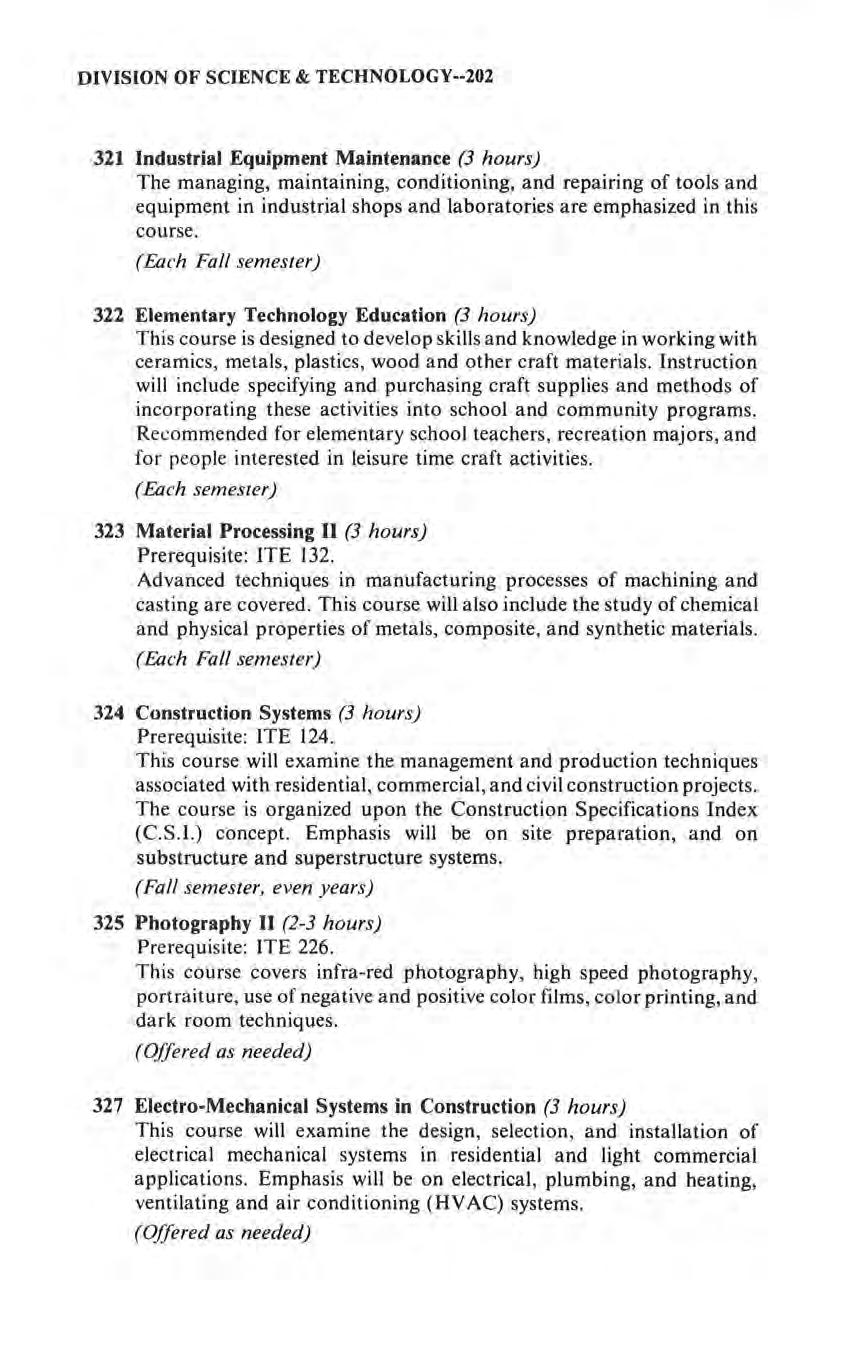
This course covers infra-red photography, high speed photography, portraiture , use of negative and positive color films, co lor printing, and dark room techniques.
(Offered as needed)
327 Electro-Mechanical Systems in Construction (3 hours)
This course will examine the design, selection, and installation of electrical mechanical systems in residential and light commercial applications. Emphasis will be on electrical, plumbing, and heating, ventilating and air conditioning (HV AC) systems.
(Offered as needed)
DIVISION OF SCIENCE & TECHNOLOGY--202
328 Analog Electronics (3 hours)
Prerequisite: ITE 233 or special permission. As a study of the principles and applications of electronics in control and communication equipment. Instruction in the theory and application of solid state and electronic devices in power supplies , amplifiers, oscillators, and various other circuits will be given .
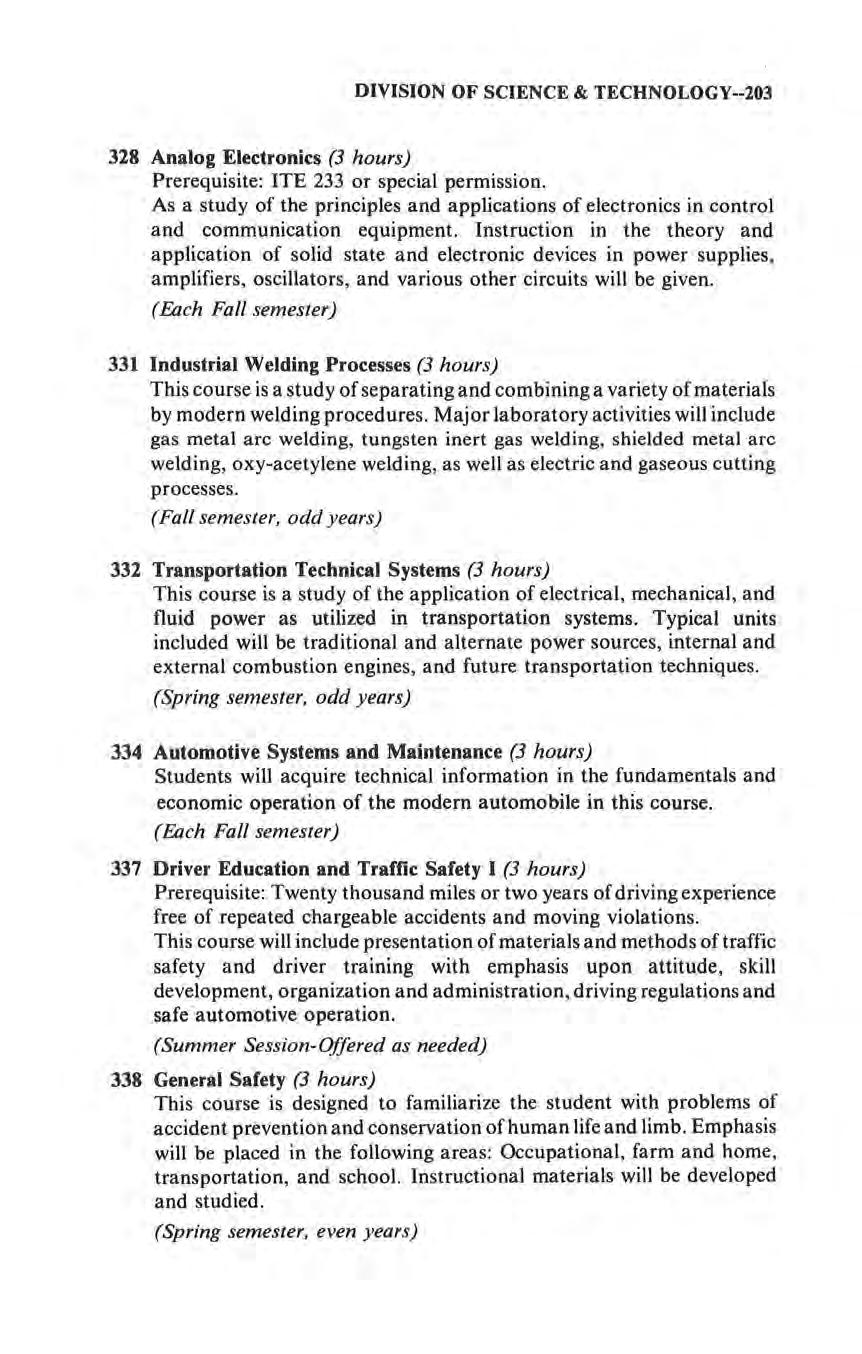
(F.ach Fall semester)
331 Industrial Welding Processes (3 hours)
This course is a study of separating and combining a variety of materials by modern welding procedures. Major laboratory activities will include gas metal arc welding, tungsten inert gas welding , shielded metal arc welding, oxy-acetylene welding, as well as electric and gaseous cutting processes.
(Fall semester, odd years)
332 Transportation Technical Systems (3 hours)
This course is a study of the application of electrical, mechanical, and fluid power as utilized in transportation systems. Typical units included will be traditional and alternate power sources, internal and external combustion engines, and future transportation techniques .
(Spring semester, odd years)
334 Automotive Systems and Maintenance (3 hours)
Students will acquire technical information in the fundamentals and economic operation of the modem automobile in thfs course.
(F.ach Fall semester)
337 Driver Education and Traffic Safety I (3 hours)
Prerequisite: Twenty thousand miles or two years of driving experience free of repeated chargeable accidents and moving violations. This course will include presentation of materials and methods of traffic safety and driver training with emphasis upon attitude, skill development, organization and administration, driving regulations and safe ·automotive operation.
(Summer Session-Offered as needed)
338 General Safety (3 hours)
This course is designed to familiarize the student with problems of accident prevention and conservation of human life and limb. Emphasis will be placed in the following areas: Occupational, farm and home, transportation, and school. Instructional materials will be developed and studied.
(Spring semester, even years)
DIVISION OF SCIENCE & TECHNOLOGY--203
339 Computer Aided Design (2 hours)
Prerequisite: ITE 121.
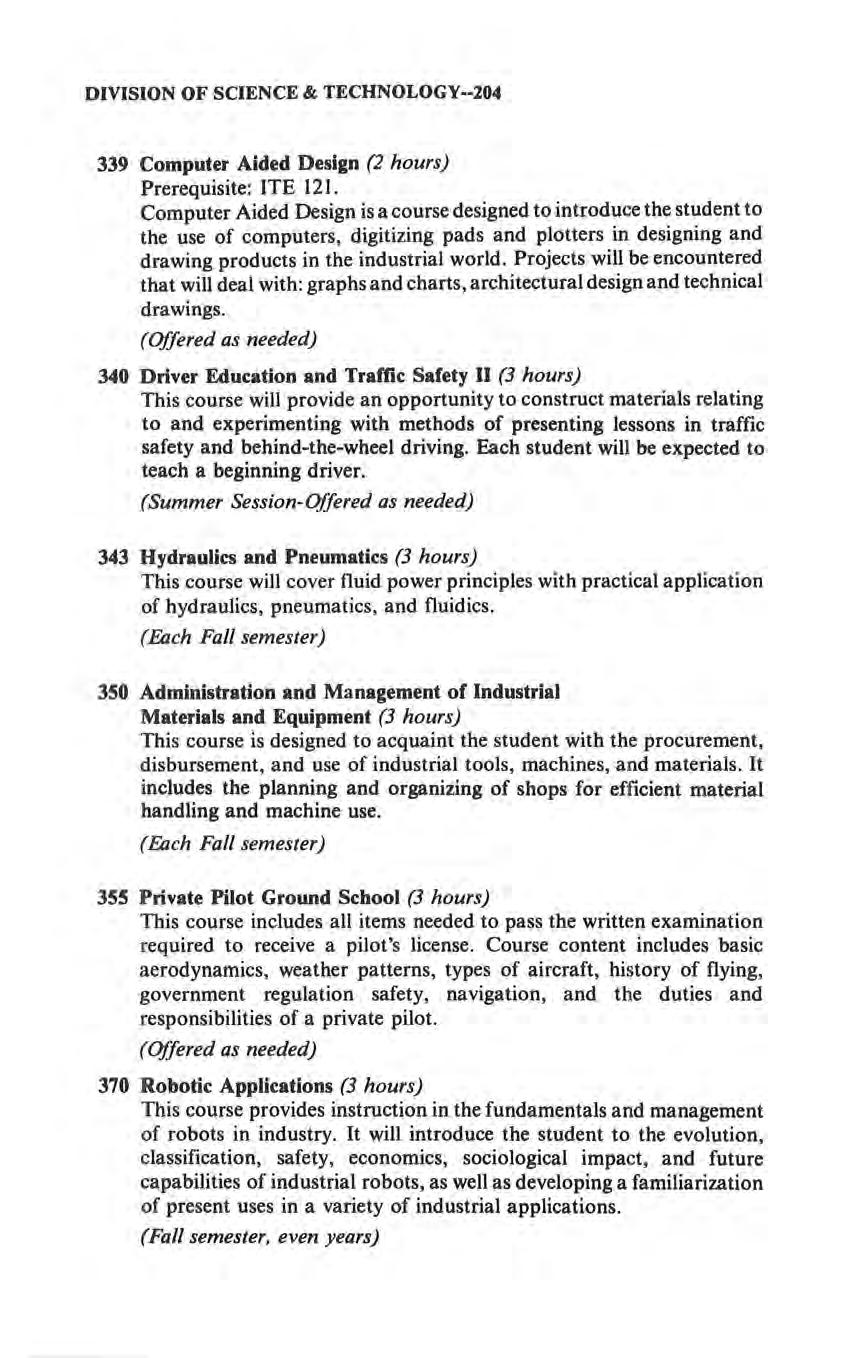
Computer Aided Design is a course designed to introduce the student to the use of computers, digitizing pads and plotters in designing and drawing products in the industrial world. Projects will be encountered that will deal with: graphs and charts, architectural design and technical drawings.
(Offered as needed)
340 Driver Education and Traffic Safety II (3 hours)
This course will provide an opportunity to construct materials relating to and experimenting with methods of presenting lessons in traffic safety and behind-the-wheel driving. Each student will be expected to teach a beginning driver.
(Summer Session-Offered as needed)
343 Hydraulics and Pneumatics (3 hours)
This course will cover fluid power principles with practical application of hydraulics, pneumatics, and fluidics .
(Each Fall semester)
350 Administration and Management of Industrial Materials and Equipment (3 hours)
This course is designed to acquaint the student with the procurement, disbursement, and use of industrial tools, machines, and materials. It includes the planning and organizing of shops for efficient material handling and machine use.
(Each Fall semester)
355 Private Pilot Ground School (3 hours)
This course includes all items needed to pass the written examination required to receive a pilot's license. Course content includes basic aerodynamics, weather patterns, types of aircraft, history of flying, government regulation safety, navigation, and the duties and responsibilities of a private pilot.
(Offered as needed)
370 Robotic Applications (3 hours)
This course provides instruction in the fundamentals and management of robots in industry. It will introduce the student to the evolution, classification, safety, economics, sociological impact, and future capabilities of industrial robots, as well as developing a familiarization of present uses in a variety of industrial applications.
(Fall semester, even years)
DIVISION OF SCIENCE & TECHNOLOGY--204
380 Time and Motion Study (3 hours)
This course is the study and application of work measurement systems and the analysis of work for methods improvement by use of motion economy, process charting, flow diagramming, operator training and suggestion systems.
(Offered as needed)
381 Quality Assurance (3 hours)
A course in the techniques and procedures of determining and maintaining the quality of industrial products, random sampling and other statistical procedures used in the manufacturing and service sector to determine if products meet specifications are covered. Also, product quality improvement by design and structural features is discovered.
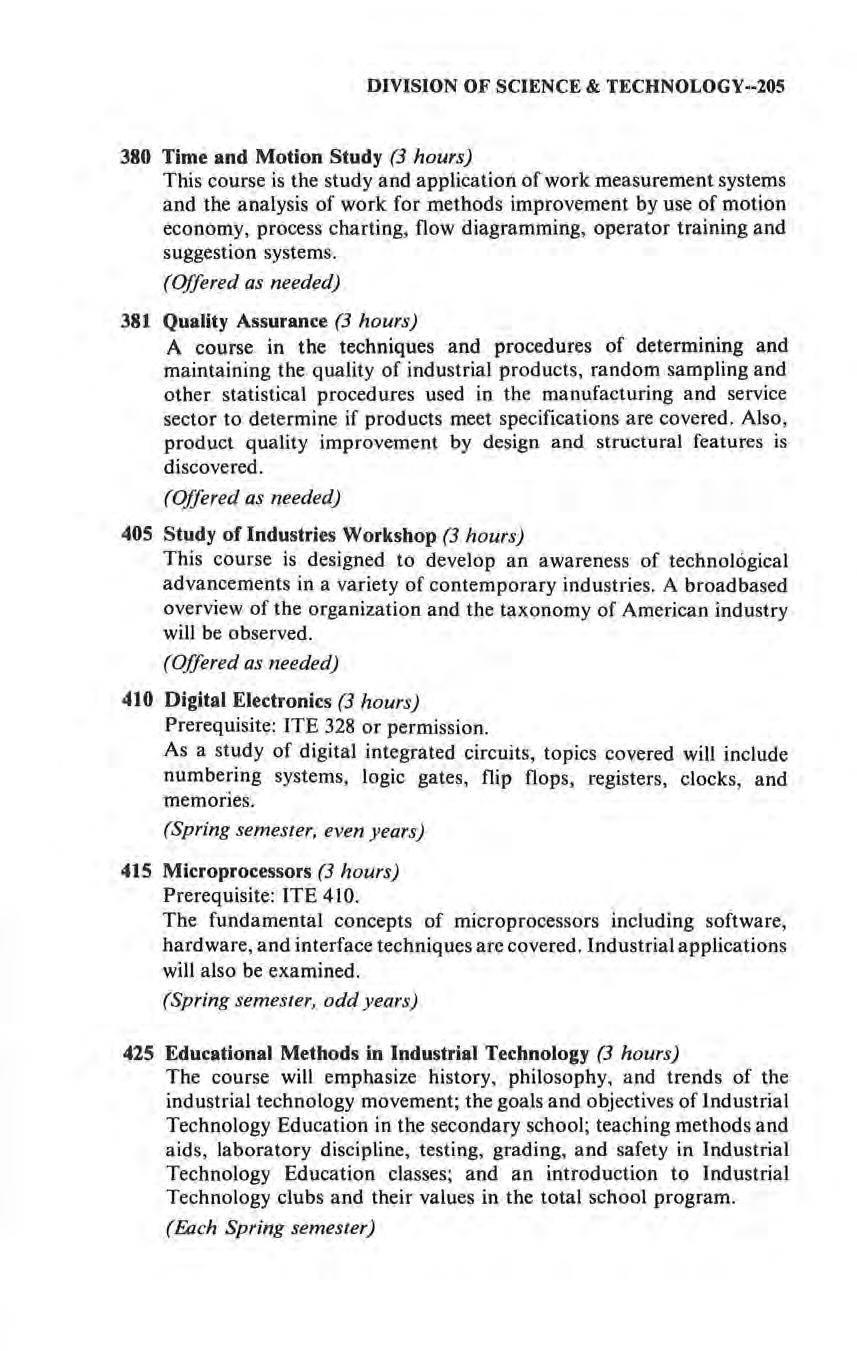
(Offered as needed)
405 Study of Industries Workshop (3 hours)
This course is designed to develop an awareness of technological advancements in a variety of contemporary industries . A broad based overview of the organization and the taxonomy of American industry will be observed.
(Offered as needed)
410 Digital Electronics (3 hours)
Prerequisite: ITE 328 or permission. As a study of digital integrated circuits, topics covered will include numbering systems, logic gates, flip flops, registers, clocks, and memories.
(Spring semester, even years)
415 Microprocessors (3 hours)
Prerequisite: ITE 410.
The fundamental concepts of microprocessors including software, hardware, and interface techniques arc covered. Industrial applications will also be examined.
(Spring semester, odd years)
425 Educational Methods in Industrial Technology (3 hours)
The course will emphasize history, philosophy, and trends of the industrial technology movement; the goals and objectives of Industrial Technology Education in the secondary school; teaching methods and aids, laboratory discipline, testing, grading, and safety in Industrial Technology Education classes; and an introduction to Industrial Technology clubs and their values in the total school program.
(&ch Spring semester)
DIVISION OF SCIENCE & TECHNOLOGY--205
427 Construction Planning and Design (3 hours)
Prerequisite: ITE 222.
The principles of planing a dwelling to fit modern needs are discussed . Drawings will include a plot plan, floor plan, four elevations, sections and details. Specifications will be determined by the student for the dwelling (Spring semester, even years)
430 Construction Management (3 hours)
Prerequisite: ITE 324
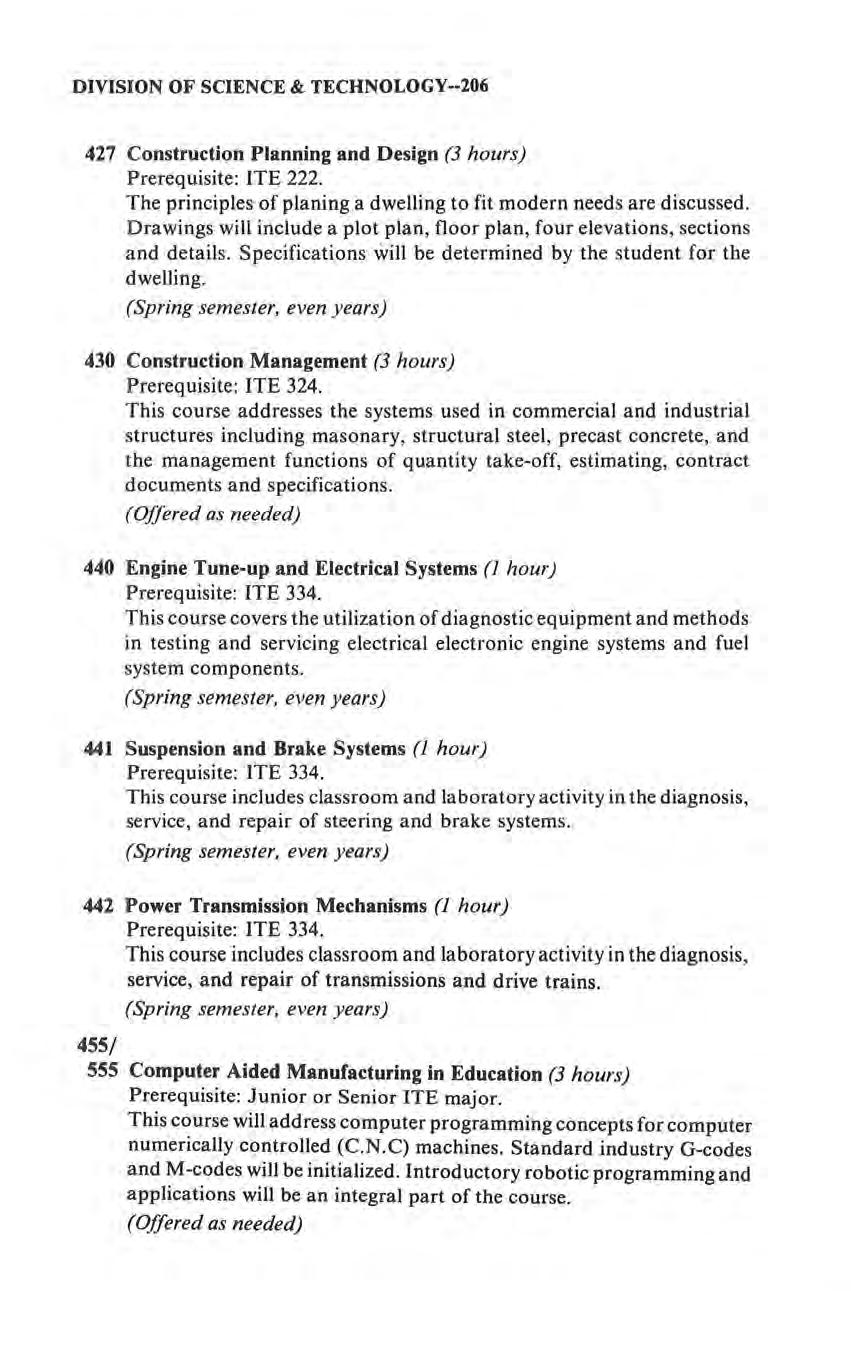
This course addresses the systems used in commercial and industrial structures including masonary, structural steel , precast concrete, and the management functions of quantity take-off, estimating, contract documents and specifications.
(Offered as needed)
440 Engine Tune-up and Electrical Systems (] hour)
Prerequisite: ITE 334.
This course covers the utilization of diagnostic equipment and methods in testing and servicing electrical electronic engine systems and fuel system components .
(Spring semester, even years)
441 Suspension and Brake Systems (] hour)
Prerequisite: ITE 334.
This course includes classroom and laboratory activity in the diagnosis, service, and repair of steering and brake systems.
(Spring semester, even years)
442 Power Transmission Mechanisms (] hour)
Prerequisite: ITE 334.
This course includes classroom and laboratory activity in the diagnosis, service, and repair of transmissions and drive trains. (Spring semester, even years)
455/
555 Computer Aided Manufacturing in Education (3 hours)
Prerequisite: Junior or Senior ITE major.
This course will address computer programming concepts for computer numerically controlled (C . N.C) machines. Standard industry G-codes and M-codes will be initialized Introductory robotic programming and applications will be an integral part of the course.
(Offered as needed)
DIVISION OF SCIENCE & TECHNOLOGY--206
450/
550 Flexible Manufacturing Systems (3 hours)
Prerequisite: Junior or Senior ITE major. This course will address computer programming concepts for computer numerically controlled (C.N.C.) machines. Standard industry G-codes and M-codes will be untilized. Introductory robotic programming and applications will be an integral part of the course.
(Offered as needed)
480 Industrial Management Internship (6 hours)
Prerequisite: Junior or Senior ITE major with approval of the Science and Technology Chairperson.
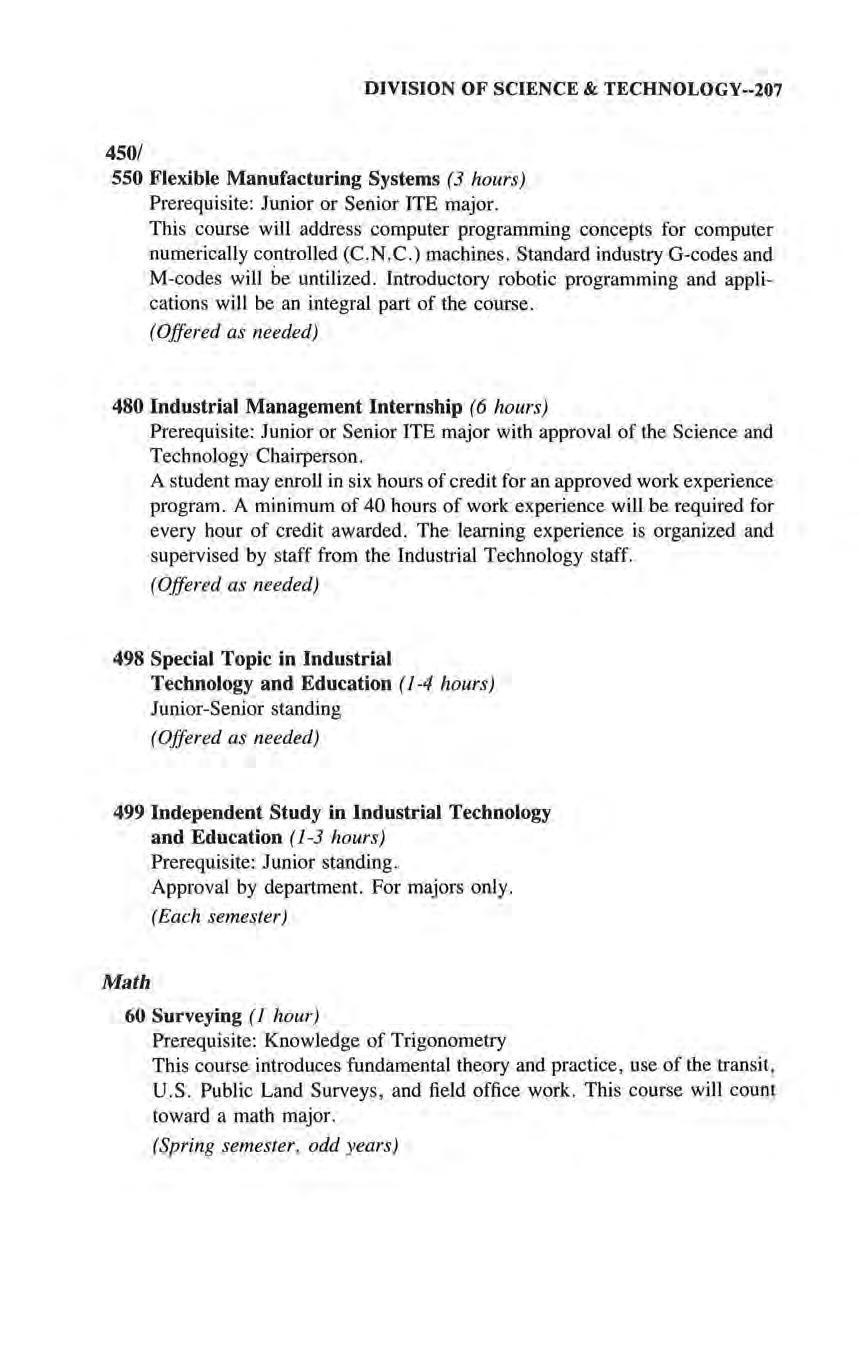
A student may enroll in six hours of credit for an approved work experience program . A minimum of 40 hours of work experience will be required for every hour of credit awarded. The learning experience is organized and supervised by staff from the Industrial Technology staff.
(Offered as needed)
498 Special Topic in Industrial Technology and Education (1-4 hours)
Junior-Senior standing
(Offered as needed)
499 Independent Study in Industrial Technology and Education (1-3 hours)
Prerequisite: Junior standing. Approval by department. For majors only.
(Each semester)
Math
60 Surveying (1 hour)
Prerequisite: Knowledge of Trigonometry
This course introduces fundamental theory and practice, use of the transit, U.S. Public Land Surveys, and field office work. This course will count toward a math major.
(Spring semester, odd years)
DIVISION OF SCIENCE & TECHNOLOGY--207
101 College Algebra (4 hours)
Prerequisite: One year of high school algebra. T his course is for students who specifically need algebra in certain preprofessional programs . It covers fundamental algebraic principles and processes and is not to be taken for credit by stud e nts who have completed Math 125.
(Offered as needed)
l07 Algebra/Trigonometry (4 hours)
This course is a study of basic algebraic and trigonometric concepts with an emphasis on linear and quadratic equation s and systems . Trigonometric concepts will be studied from the right triangle and the oblique triangle approach
(F.ach Spring semester)
110 Elements of Mathematics (3 hours)
This course is designed to give the non-mathematical student the opportunity to use basic operations , succeed in mathematical modeling and understand deductive and inductive reasoning. The general concepts covered will include sets , logic , numeration sysems, the number system (natural numbers through the reals) , metric system , equations , inequalities , problem solving , graphs , functions and geometry .
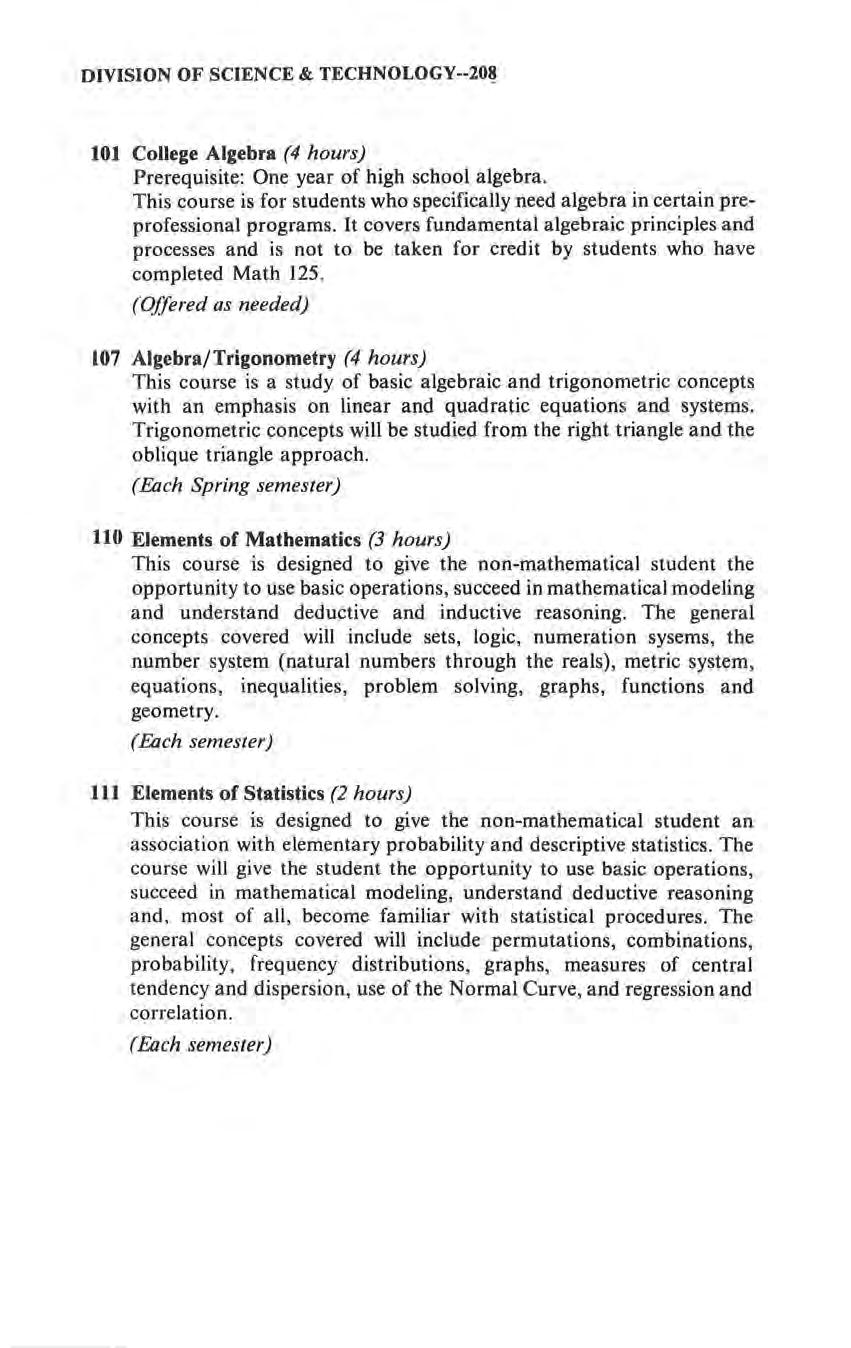
(F.ach semester)
111 Elements of Statistics (2 hours)
This course is designed to give the non-mathelllati cal student an association with elementary probability and descriptive stat istics. The course will give the student the opportunity to use basic operations, succeed in mathematical modeling, understand deductive reasoning and , most of all , become familiar with statistical procedures The general concepts covered will include permutations, combinations, p robability, frequency distributions, graphs, measures of central t endency and dispersion , use of the Normal Curve, and regression and correlation.
(F.ach semester)
DIVISION OF SCIENCE & TECHNOLOGY--20~
125 Precalculus Mathematics (5 hours)
This course is intended for students who plan to pursue a college program requiring a substantial amount of training in mathematics. The content of the course includes an introduction to symbolic logic and set theory of applications, a study of the number sys tem , elementary theory of groups and fields, an introduction to the function concept , and the study of algebraic exponential and logarithmic functions.
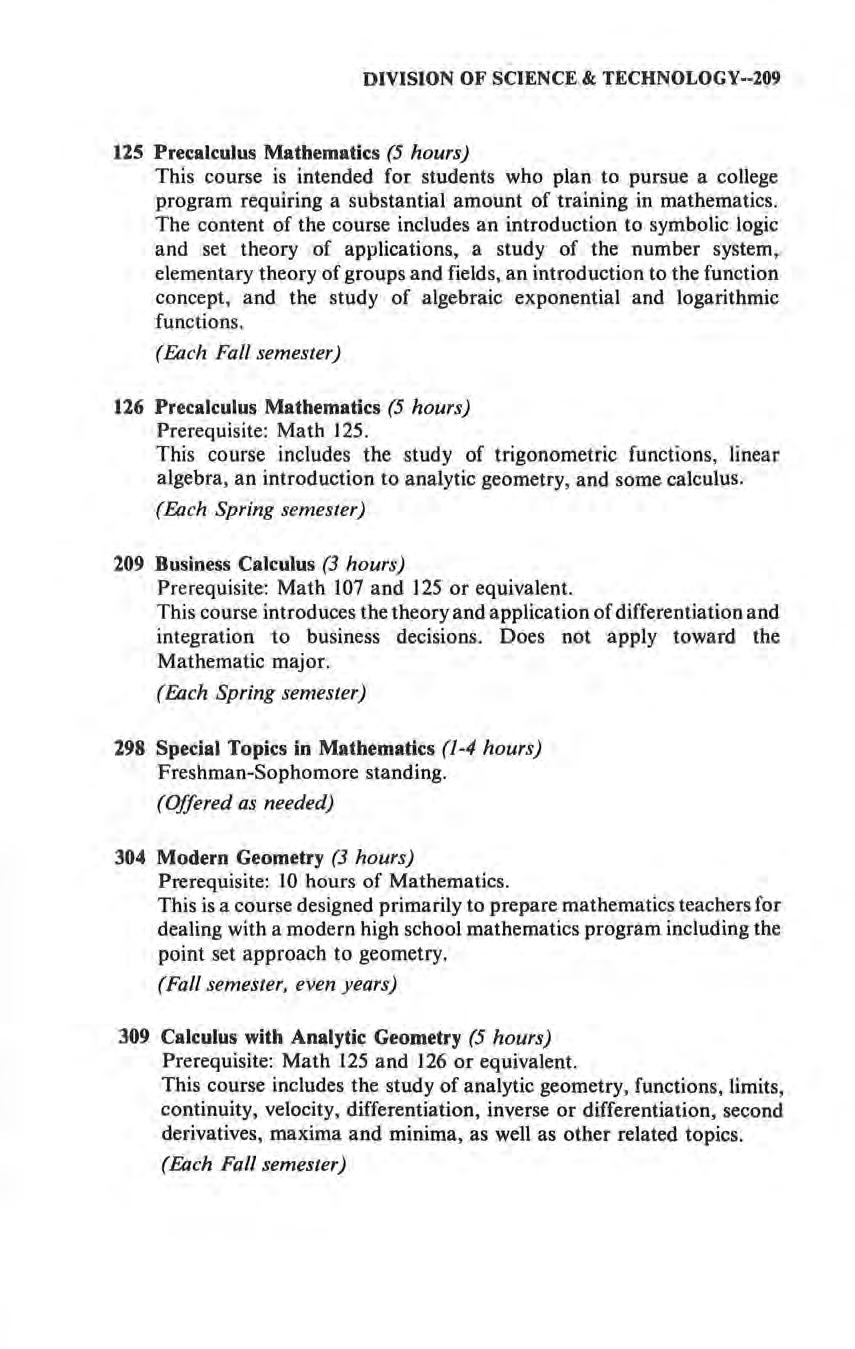
(&ch Fall semester)
126 Precalculus Mathematics (5 hours)
Prerequisite : Math 125.
This course includes the study of trigonometric functions, linear algebra , an introduction to analytic geometry , and some calculus.
(&ch Spring semester)
209 Business Calculus (3 hours)
Prerequisite: Math 107 and 125 or equivalent .
This course introduces the theory and application of differentiation and integration to business decisions. Does not apply toward the . Mathematic major.
(&ch Spring semester)
298 Special Topics in Mathematics (1-4 hours)
Freshman-Sophomore standing.
(Offered as needed)
304 Modern Geometry (3 hours)
Prerequisite : IO hours of Mathematics. This is a course designed primarily to prepare mathematics teachers for dealing with a modern high school mathematics program including the point set approach to geometry .
(Fall semester, even years)
309 Calculus with Analytic Geometry (5 hours)
Prerequisite: Math 125 and 126 or equivalent .
This course includes the study of analytic geometry, functions, limits , continuity, velocity , differentiation, inverse or differentiation, second derivatives, maxima and minima, as well as other related topics.
(&ch Fall semester)
DIVISION OF SCIENCE & TECHNOLOGY--209
310 Calculus with Analytic Geometry (5 hours)
Prerequisite: Math 309 or equivalent. The topics covered in this course include trigonometric function s, antideriva t ives, the definite integral, three-dimensional figures , integration , polar coordinates , and related topics .
(Ea ch Spring semester)
312 Calculus III (3 hours)
Prerequisites: Math 309 and 310 or equivalent. This course is designed to give the student a review of calculus and to apply it to complex problems in mathematics.
(Fall semester, odd y ears)
340 Statistics (3 hours)
A study of the methods of summanzmg and in t erpreting data, elementary probability , and its relation to distribution s . The meanings, importance , and applications of the normal and binormical di stribution and the methods of random sampling, testing of hypotheses, an a lysis of paired data, and interpretation of standardized test scores are covered. (&ch semester)
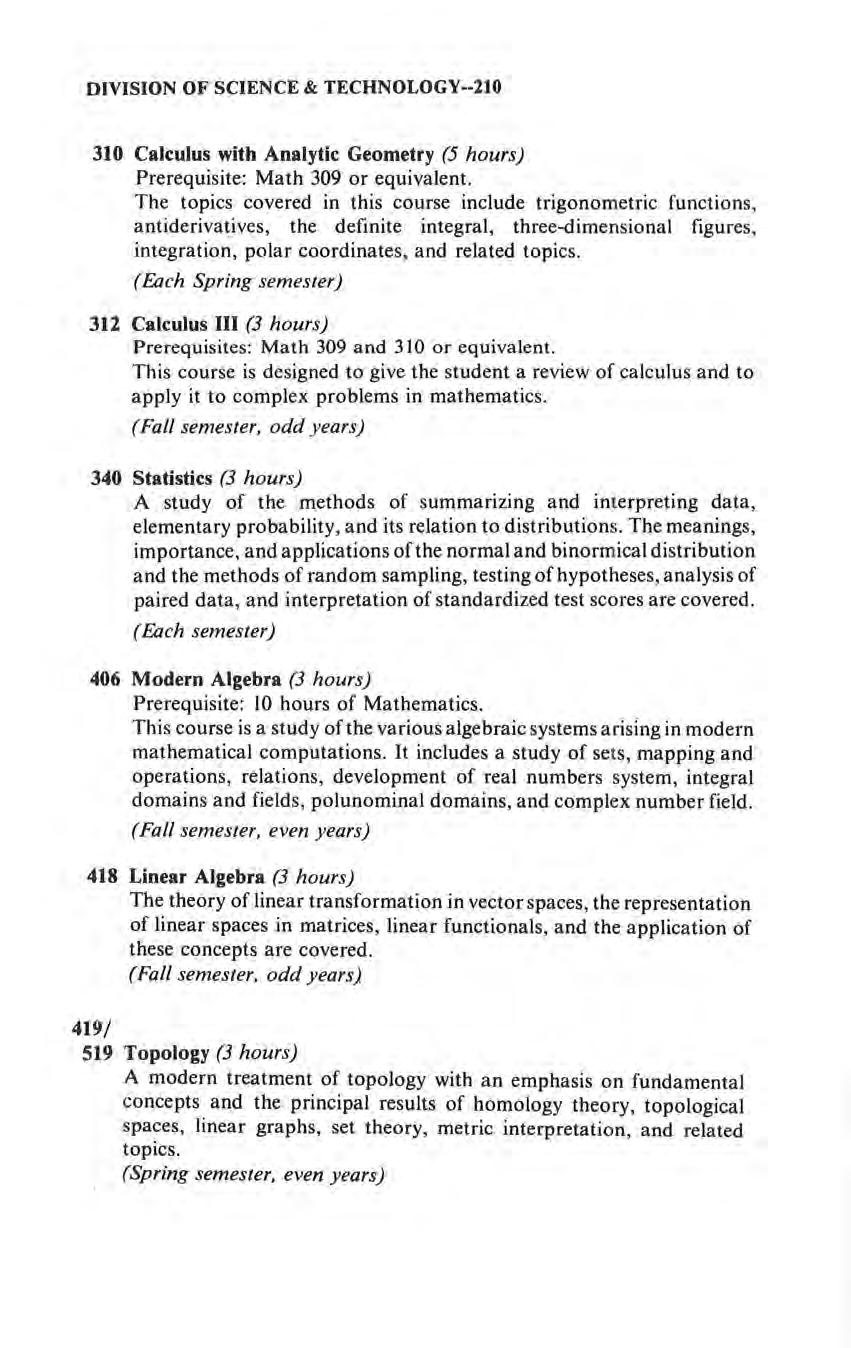
406 Modern Algebra (3 hours)
Prerequisite: IO hours of Mathematics. This course is a study of the various algebraic systems arising in modern mathematical computations . It includes a study of se t s, mapping and operations, relations, development of real numbers system , integral domains and fields, polunominal domains, and compl e x number field . (Fall semester, even years)
418 Linear Algebra (3 hours)
The theory of linear transformation in vector spaces , the representation of linear spaces in matrices, linear functionals , and the application of these concepts are covered (Fall semester, odd years)
419/
519 Topology (3 hours)
A modern treatment of topology with an emphasis on fundamental c oncepts and the principal result s of homology theory, topological spaces , linear graphs , set theory , metric interpretation , and relat ed t opics.
(Spring semester, even years)
DIVISION OF SCIENCE & TECHNOLOGY --210
430 /
530 Discrete Structures (3 hours)
Prerequisite: Math 126
A study of some of the mathematical concepts useful to the computer sciences including number systems, logic, truth tables, sets and relations, boolean algebra, logic circuits, vectors, matrices, determinants, graphs, directed graphs, finite state machines, and automata.
(Offered as needed)
440 Advanced Statistics (3 hours)
Prerequisite: Math 340
This course continues the study of methods of summarizing and interpreting data, with special emphasis on non-normally distributed statistics, hypothesis testing, multivariate analysis and non-linear analysis of data.
(Offered as needed)
476 Methods of Teaching Mathematics (3 hours)
This course introduces the objectives, content and methods of classroom teaching in Mathematics.
(Fall semester, even years)
498 Special Topics in Mathematics (1-4 hours)
Junior-Senior standing.
(Offered as needed)
499 Independent study in Mathematics (1-3 hours)
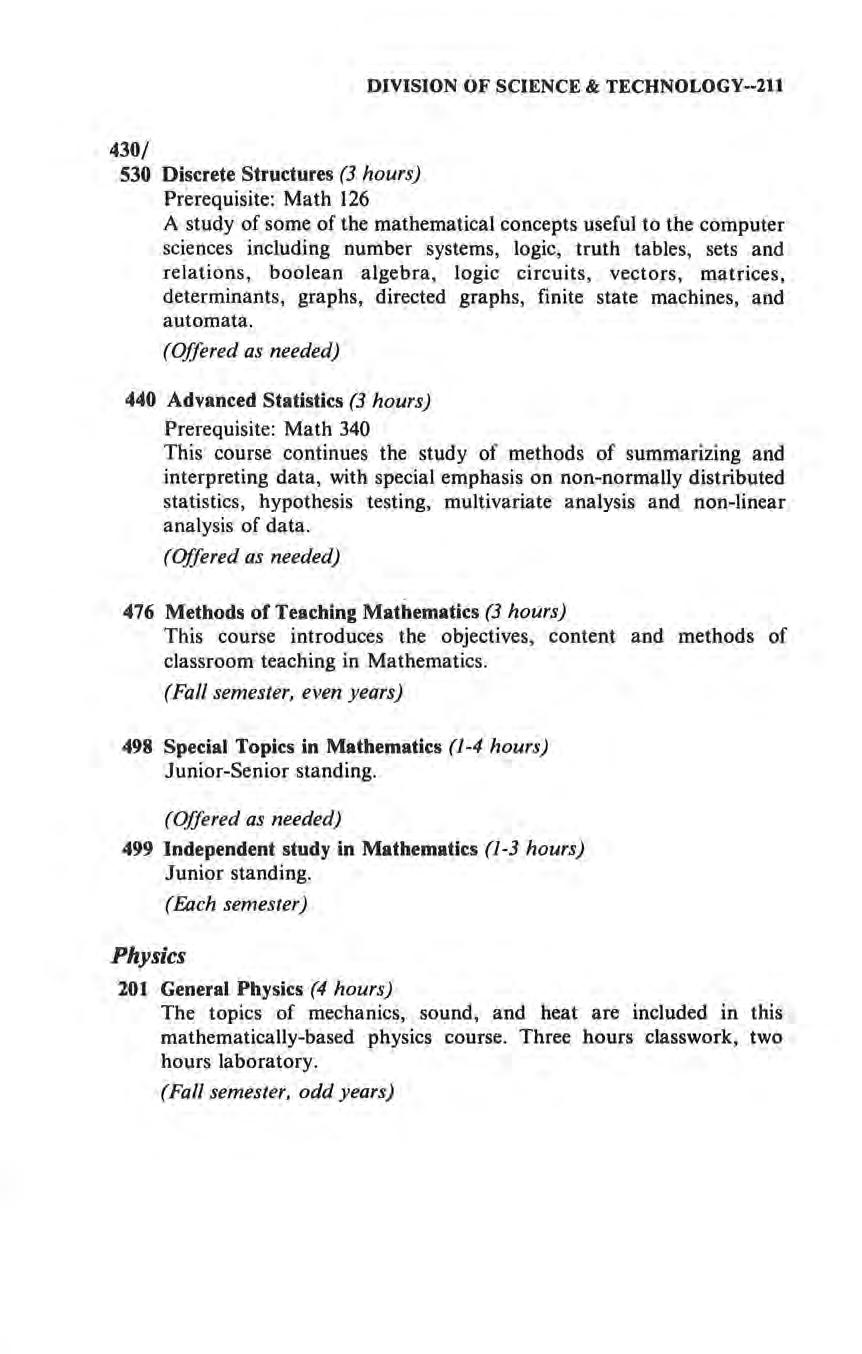
Junior standing.
(F,ach semester)
Physics
201 General Physics (4 hours)
The topics of mechanics, sound, and heat are included in this mathematically-based physics course. Three hours classwork, two hours laboratory.
(Fall semester, odd years)
DIVISION OF SCIENCE & TECHNOLOGY--211
202 General Physics (4 hours)
Prerequisite : Physics 201 or permission .
The topics of light, electricity, and magnetism are included in this mathematically-based physics class. Three hours classwork, two hours laboratory.
(Spring semester, even years)
206 Great Ideas in Astronomy (3 hours)
This course is an introduction to astronomy, with emphasis on those ideas and discoveries which have had, and continue to have, strong influence on our modern culture and world view.
(Offered as needed)
211 General Physics (Calculus) (4 hours)
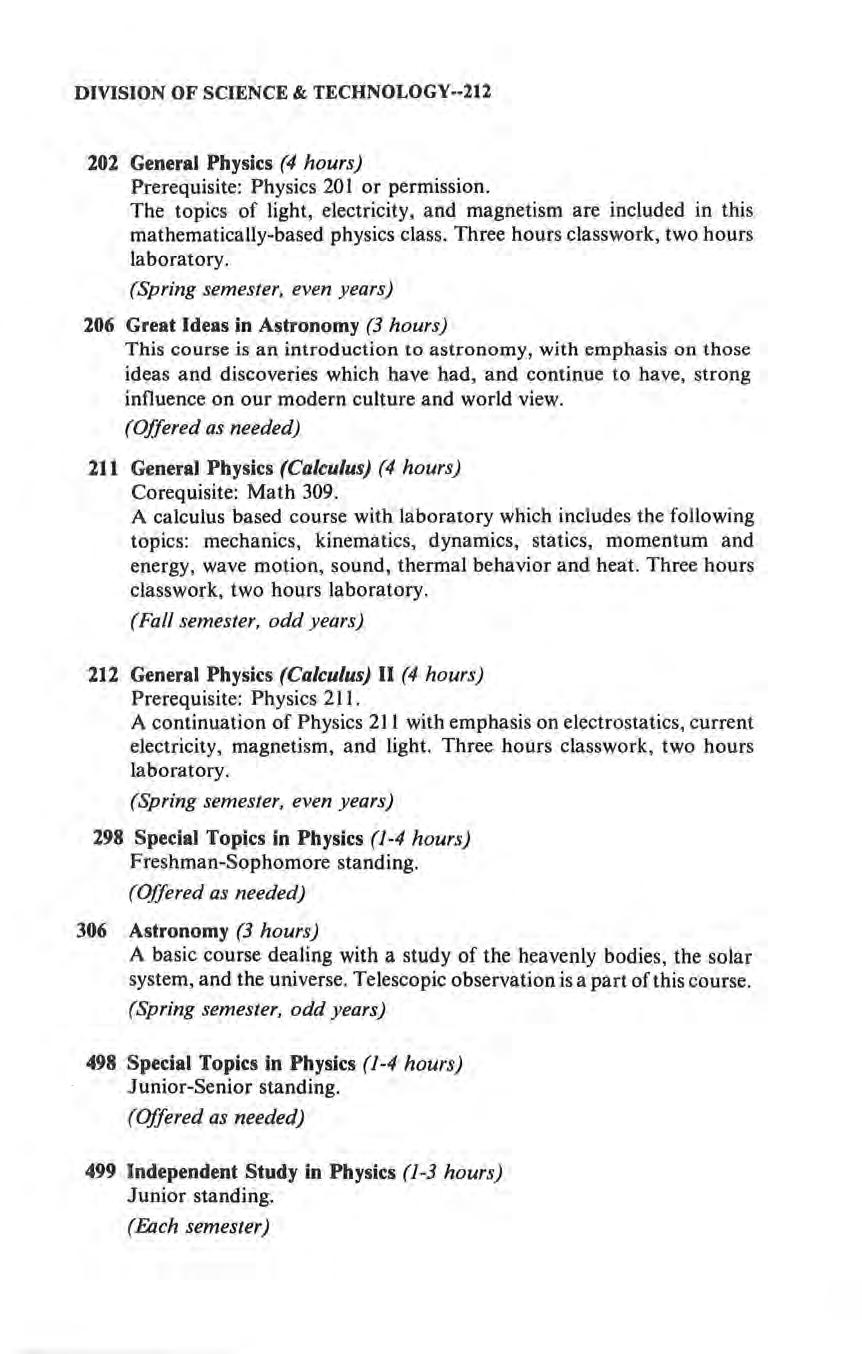
Corequisite: Math 309 .
A calculus based course with laboratory which includ es the following topics: mechanics, kinematics, dynamics, statics , momentum and energy , wave motion, sound, thermal behavior and heat. Three hours classwork, two hours laboratory. (Fall semester, odd years)
212 General Physics (Calculus) II (4 hours)
Prerequisite: Physics 211.
A continuation of Physics 211 with emphasis on electrostatics, current electricity, magnetism, and light. Three hours classwork, two hours laboratory
(Spring semester, even years)
298 Special Topics in Physics (1-4 hours) Freshman - Sophomore standing .
(Offered as needed)
306 Astronomy (3 hours)
A basic course dealing with a study of the heavenly bodies, the solar system, and the universe. Telescopic observation is a pa r t of this course. (Spring semester, odd years)
498 Special Topics in Physics (1-4 hours) Junior-Senior standing.
(Offered as needed)
499 Independent Study in Physics (1-3 hours) Junior standing. (Each semester)
DIVISION OF SCIENCE & TECHNOLOGY- -212
Vocational Education
441/ History and Philosophy of Vocational Education (3 hours)
541 The origins and philosophy of vocational education and its relationship to the school curriculum are covered. This course is required for vocational certification and recommended as an elective for school administrators.
(&ch Fall semester)
442/ Organization and Administration of Vocational Education
542
(3 hours)
This course provides a study of the principles and policies governing the administration of vocational educational programs in high schools, technical schools, junior colleges, and adult education programs.
(Spring semester, even years)
443/ Coordination Techniques in Vocational Education Programs
543
(3 hours)
This course analyzes Vocational Cooperative Programs and their relationship to the high school, junior college, and adult vocational programs. The emphasis is on the organization and supervision of cooperative programs, duties and responsibilities of the coordinator, selection and placement of students, and evaluation of students, training stations and the cooperative program.
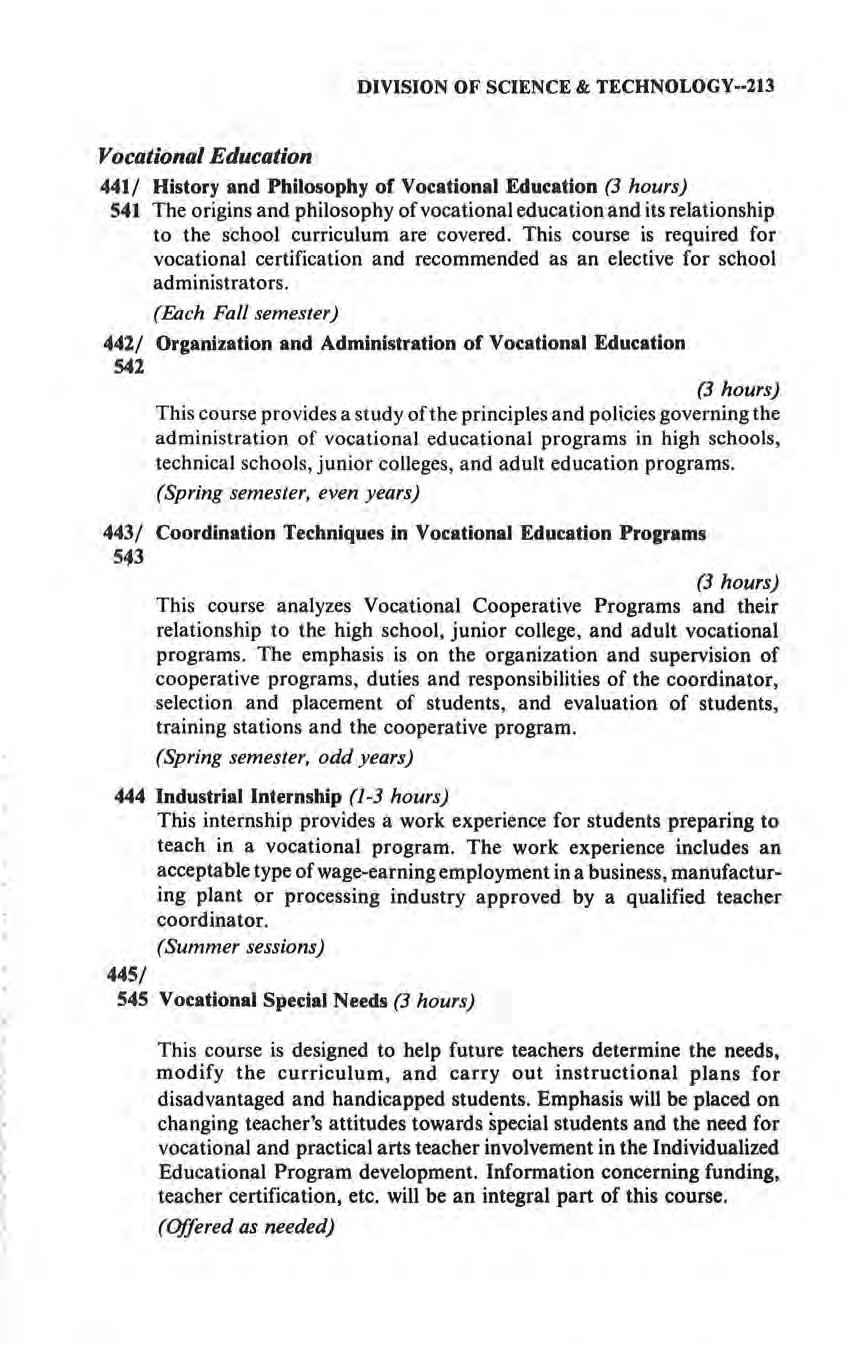
(Spring semester, odd years)
444 Industrial Internship (1-3 hours)
This internship provides a work experience for students preparing to teach in a vocational program . The work experience includes an acceptable type of wage-earning employment in a business, manufacturing plant or processing industry approved by a qualified teacher coordinator.
(Summer sessions)
445/
545 Vocational Special Needs (3 hours)
This course is designed to help future teachers determine the needs, modify the curriculum, and carry out instructional plans for disadvantaged and handicapped students. Emphasis will be placed on changing teacher's attitudes towards special students and the need for vocational and practical arts teacher involvement in the Individualized Educational Program development. Information concerning funding, teacher certification, etc. will be an integral part of this course.
(Offered as needed)
DIVISION OF SCIENCE & TECHNOLOGY--213
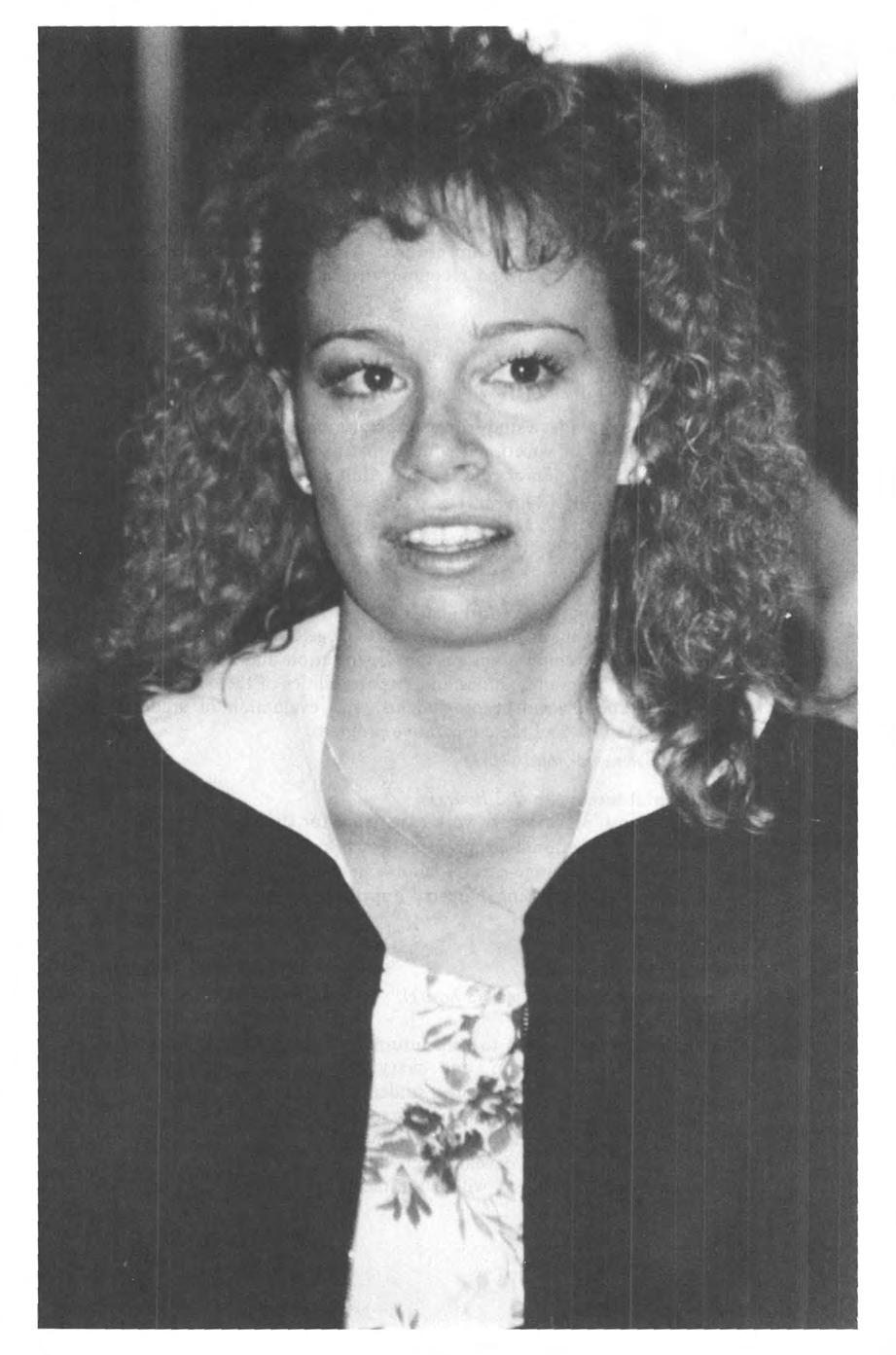
ACADEMIC REGULATIONS, POLICIES, AND PROCEDURES
Admission to the College
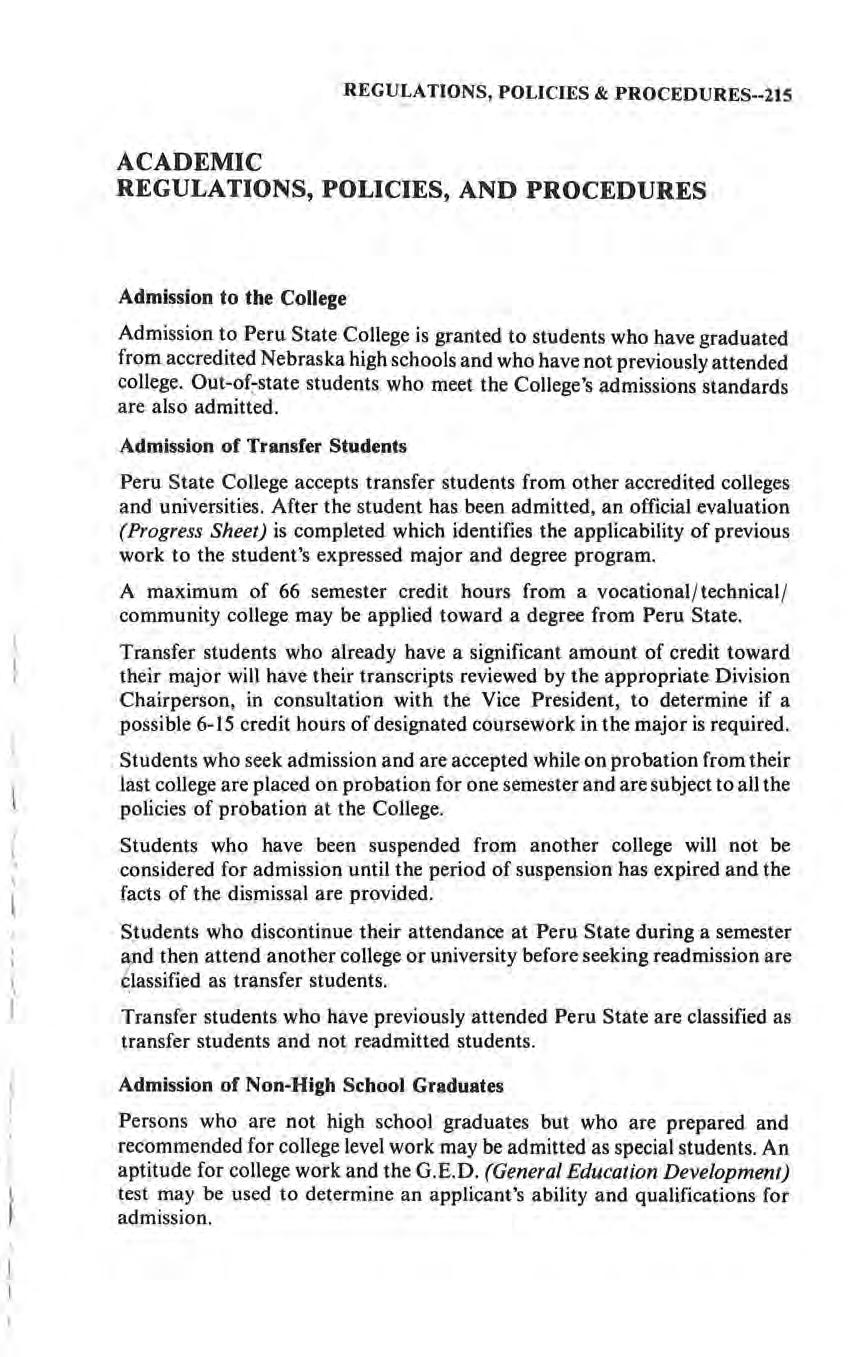
Admission to Peru State College is granted to students who have graduated from accredited Nebraska high schools and who have not previously attended college. Out-of:-state students who meet the College's admissions standards are also admitted .
Admission of Transfer Students
Peru State College accepts transfer students from other accredited colleges and universities. After the student has been admitted, an official evaluation (Progress Sheet) is completed which identifies the applicability of previous work to the student 's expressed major and degree program.
A maximum of 66 semester credit hours from a vocational/technical/ community college may be applied toward a degree from Peru State.
Transfer students who already have a significant amount of credit toward their major will have their transcripts reviewed by the appropriate Division Chairperson, in consultation with the Vice President, to determine if a possible 6- 15 credit hours of designated coursework in the major is required.
Students who seek admission and are accepted while on probation from their last college are placed on probation for one semester and are subject to all the policies of probation at the College .
Students who have been suspended from another college will not be considered for admission until the period of suspension has expired and the facts of the dismissal are provided
. S,tudents who discontinue their attendance at Peru State during a semester and then attend another college or university before seeking readmission are ~lassified as transfer students.
Transfer students who have previously attended Peru State are classified as transfer students and not readmitted students.
Admission of Non-High School Graduates
Persons who are not high school graduates but who are prepared and recommended for college level work may be admitted as special students . An aptitude for college work and the G.E D (General Education Development) test may be used to determine an applicant 's ability and qualifications for admission.
REGU!:'.A TIONS, POLICIES & PROCEDURES--215
Admission of International Students
Peru State College is authorized to admit international students.
Admission from Non-Accredited Colleges
Students who seek admission to Peru State from non-accredited colleges must meet all the requirements of a first time student. Each application must be accompanied by an official transcript of all previous college work. The credits earned at non-accredited institutions will be accepted provisionally and validated upon the satisfactory completion of 30 semester credit hours at Peru State. Satisfactory completion is defined as a cumulative grade point average of 2. 00 or higher .
Mid-year Admissions
Students who complete high school at mid-year may enter Peru State at the beginning of the Spring semester. Transfer students will find the transition to Peru State at mid-year minimally disruptive to their educational plans .
Admission to Advanced Standing
Advanced standing is a status beyond the minimum for a d mission to the College. It is attained by presenting work completed at another college or by demonstrating proficiency in a field that removes certain prerequisites. The removal of prerequisites may be with or witho~t credit. ·
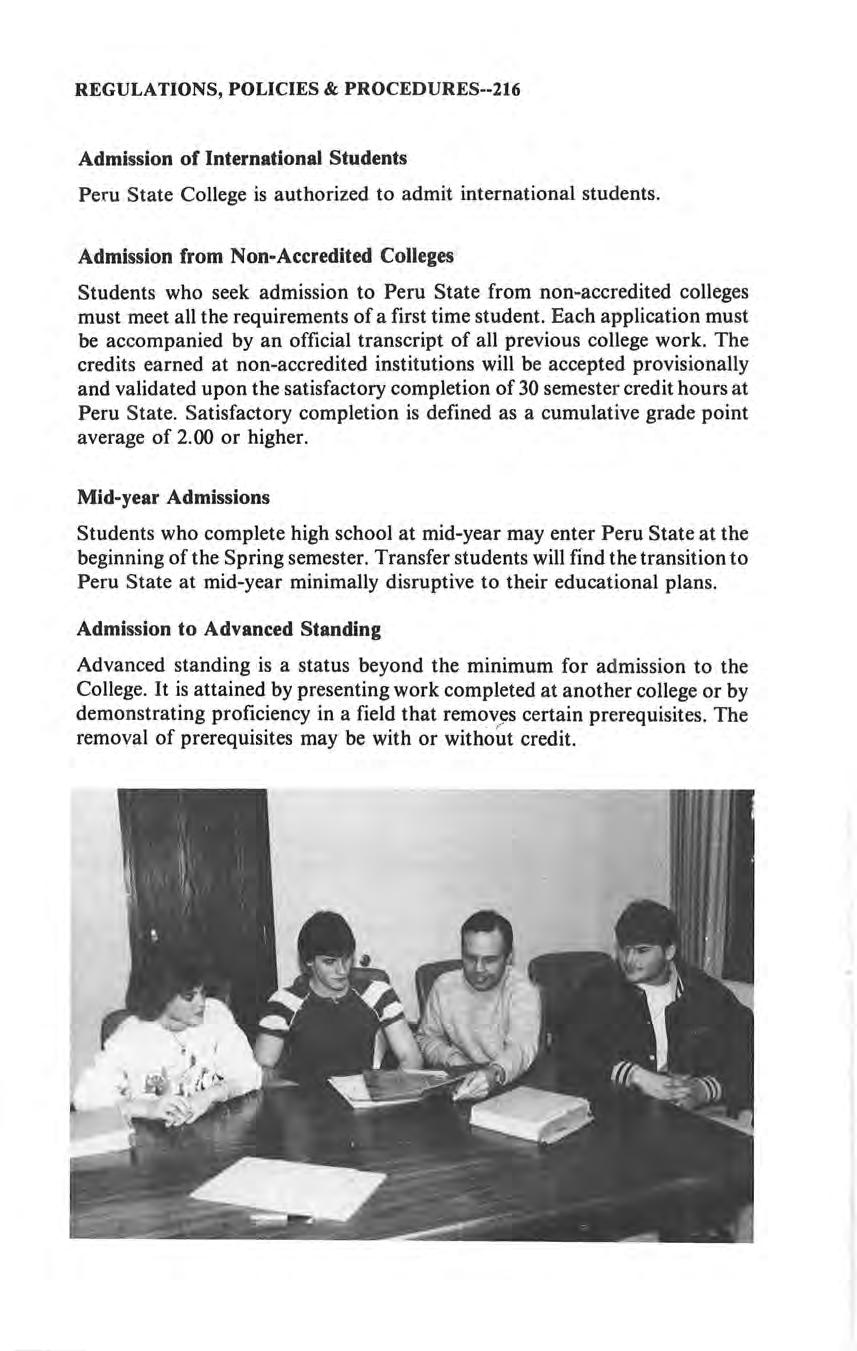
REGULA TIO NS, POLICIES & PROCEDURES--216
Readmission to the College
All undergraduate students who have previously attended Peru State and were admitted to an academic program, students who withdrc::w during a semester or discontinued their studies for a semester or more (summer session excluded), and all post-graduates seeking an additional academic program must apply to the Office of Admissions for readmission. Students suspended for academic or social reasons must also re-apply to the Office of Admissions.
Students are generally readmitted for the semester or summer term they wish, provided they left the College in good standing.
Students who interrupted their studies and who were on academic probation will generally be readmitted for the semester or. summer term they wish, provided they are in good standing throughout the College.
Students who are academically suspended will not be considered for readmission for two semesters (summer session excluded).
Previously suspended students who are readmitted will generally be subject to permanent suspension if they are suspended a second time.
Students readmitted following academic suspension must maintain an average of 2.0 or higher for the re-entry term and for each successive term until the required cumulative grade point average of 2.0 has been achieved. Failure to meet the above conditions will result in academic ~uspension. A student who has been suspended twice is generally not considered for readmission.
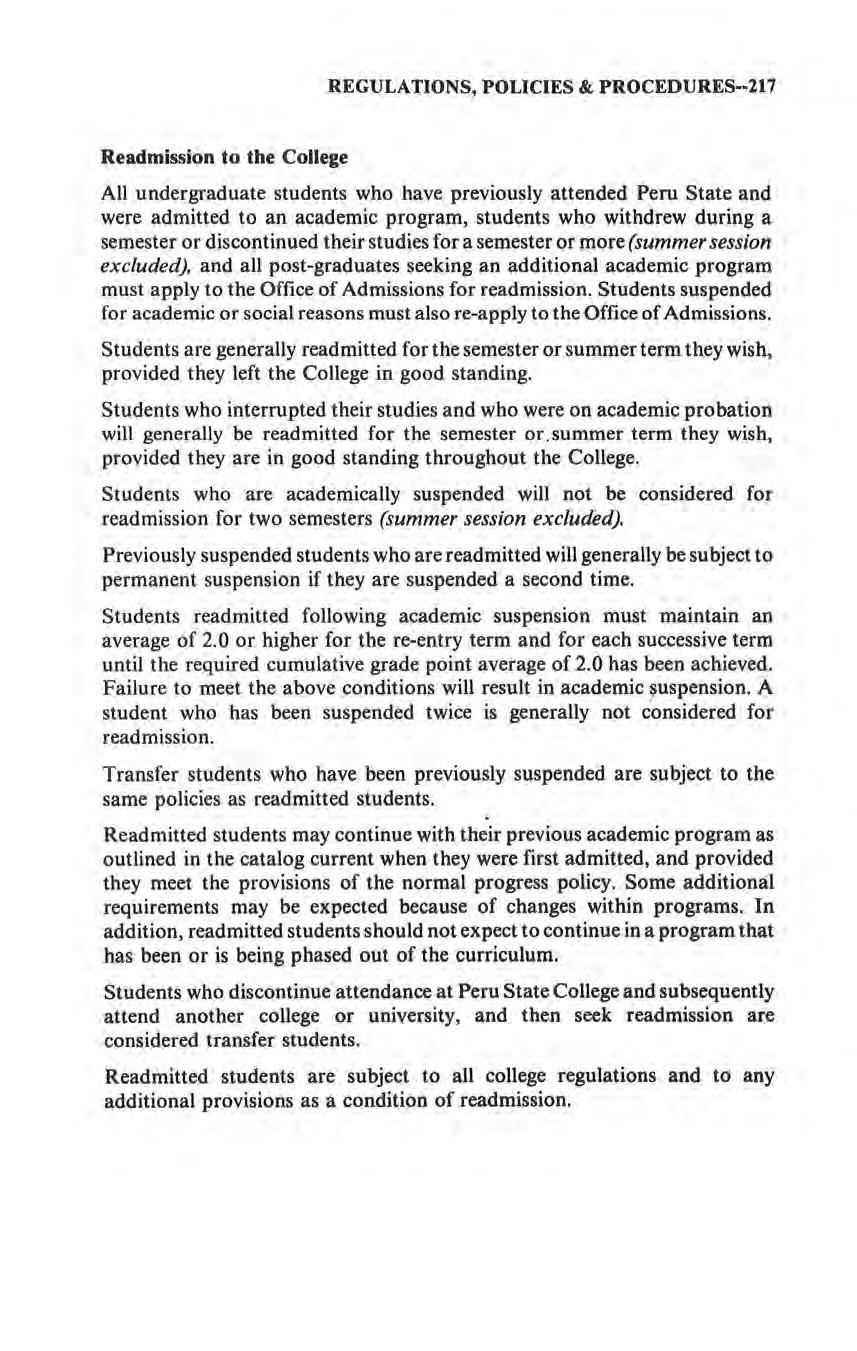
Transfer students who have been previously suspended are subject to the same policies as readmitted students.
Readmitted students may continue with their previous academic program as outlined in the catalog current when they were first admitted, and provided they meet the provisions of the normal progress policy. Some additional requirements may be expected because of changes within programs. In addition, readmitted students should not expect to continue in a program that has been or is being phased out of the curriculum.
Students who discontinue attendance at Peru State College and subsequently attend another college or university, and then seek readmission are considered transfer students.
Readmitted students are subject to all college regulations and to any additional provisions as a condition of readmission.
REGULATIONS, POLICIES & PROCEDURES--217
Determining College Credit
Peru State credit is expressed as semester credit hours . One credit hour is awarded to a student who satisfactorily completes (I) a course that meets one hour per week for a semester, or (2) a laboratory that meets for two hours per week for a semester, or (3) a laboratory that meets for three hours per week for a semester, or any combination of these depending upon the type of instruction and material covered in the course. Credit for internships, student teaching, and other instructional formats is determined using other appropriate standards.
Transfer Credits
Peru State College accepts credit hours successfully completed at other accredited colleges and universities provided they are reported on the official transcript of each previously attended insitution and in credit hours. This policy also applies to Peru State College students who earn credits on an interim basis at another college and provided they have the prior approval of the appropriate Division Chairperson. The required form s for reporting transfer credits are available at the Registrar's Office .
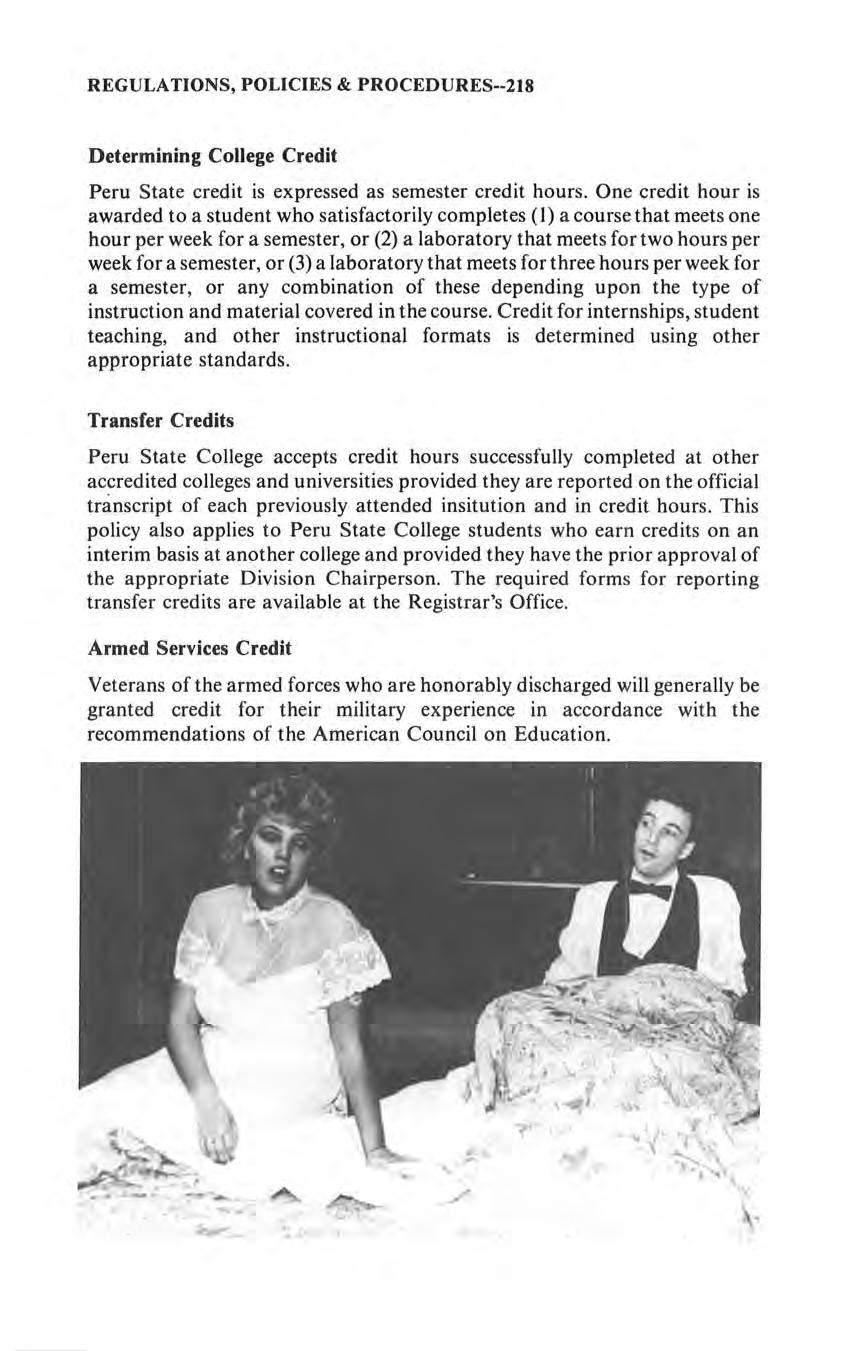
Armed Services Credit
Veterans of the armed forces who are honorably discharged wi ll generally be granted credit for their military experience in accordance with the recommendations of the American Council on Education.
REGULATIONS, POLICIES & PROCEDURES--218
Extra-institutional Credit
Students may earn college credit for experiences and accomplishments attained outside of the normal college setting. Credit may be granted through standardized examination programs or the credit recommendations of the Guide to the Evaluation of Educational Experiences in the Armed Services and The National Guide to Eductional Credit for Training Programs.
The College's general policy for awarding credit for extra-institutional learning is:
I. Only individuals who have not participated in scheduled coursework are eligible to receive extra-institutional credit.
2. extra-institutional credits are considered transferred credits and are subject to the same policies as other transfer credits.
3. A maximum of 66 semester credit hours earned through extrainstitutional validation may be applied to the 125 semester hour minimum required for a bachelor's degree, unless otherwise specified.
4. Credit examinations may be earned only once in a single subject. A similar subject test in another testing program will not earn additional credits.
Institutional Examinations
Students may earn credit in lower division courses by successfully passing comprehensive, written institutional examinations. To do so, students must register for the course, pay the tuition charges, and satisfy a faculty committee that their formal or informal experiences may have met the courses's content. A copy of the examination must be on file in the Vice President's office prior to giving the exam.
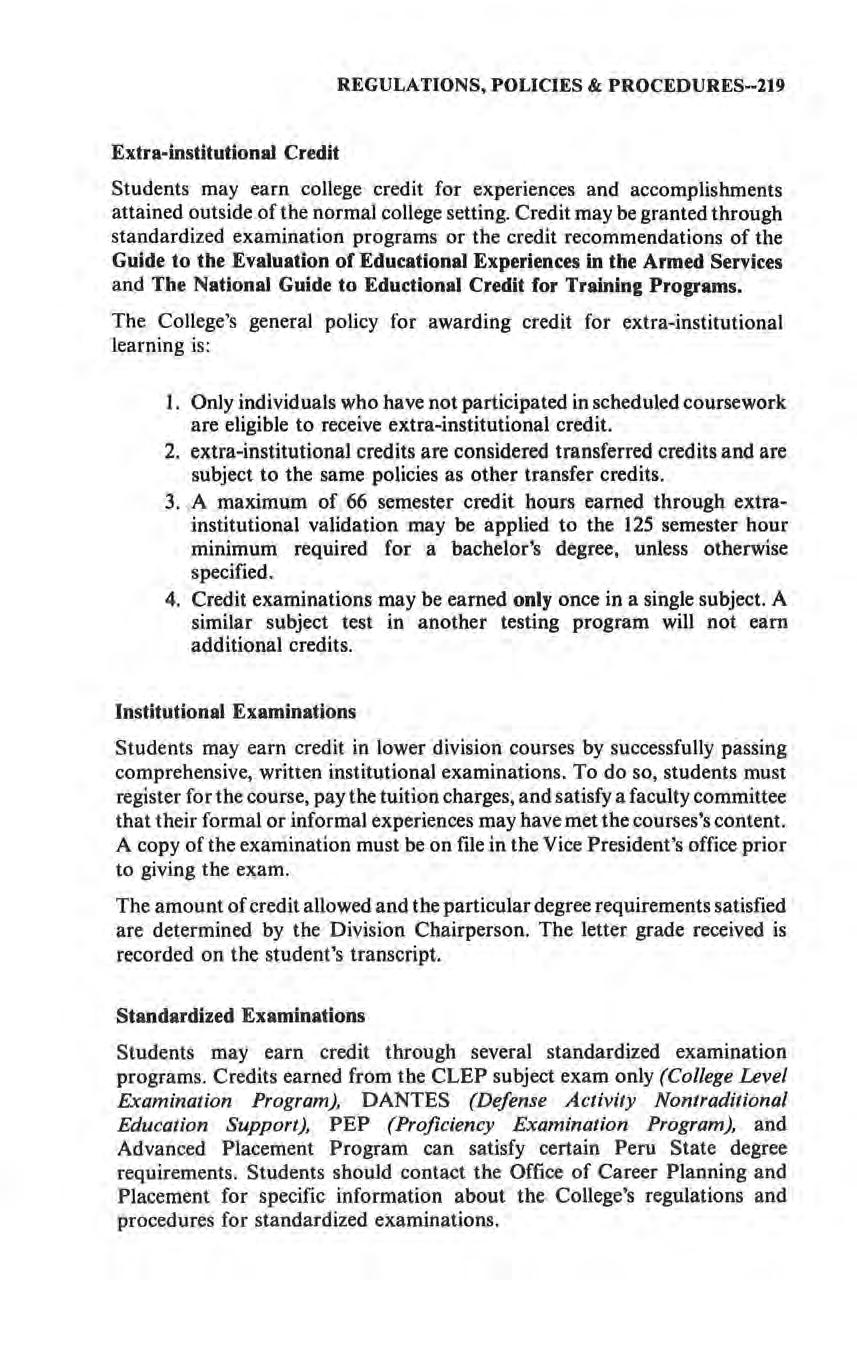
The amount of credit allowed and the particular degree requirements satisfied are determined by the Division Chairperson. The letter grade received is recorded on the student 's transcript.
Standardized Examinations
Students may earn credit through several standardized examination programs Credits earned from the CLEP subject exam only (College Level Examination Program), DANTES (Defense Activity Nontraditional Education Support), PEP (Proficiency Examination Program), and Advanced Placement Program can satisfy certain Peru State degree requirements. Students should contact the Office of Career Planning and Placement for specific information about the College's regulations and ·procedures for standardized examinations.
REGULATIONS, POLICIES & PROCEDURES--219
Credit for High School Students
In high schools where Peru State has a formal early entry agreement, the principal will decide which students are qualified to take college courses. High school students who have not completed their junior year and wish to enroll in a Peru State credit course must have the recommendation of their principal and the approval of the College's Vice President before enrolling. Any high school student approved to register for a college credit course will have the appropriate information compiled on a college transcript.
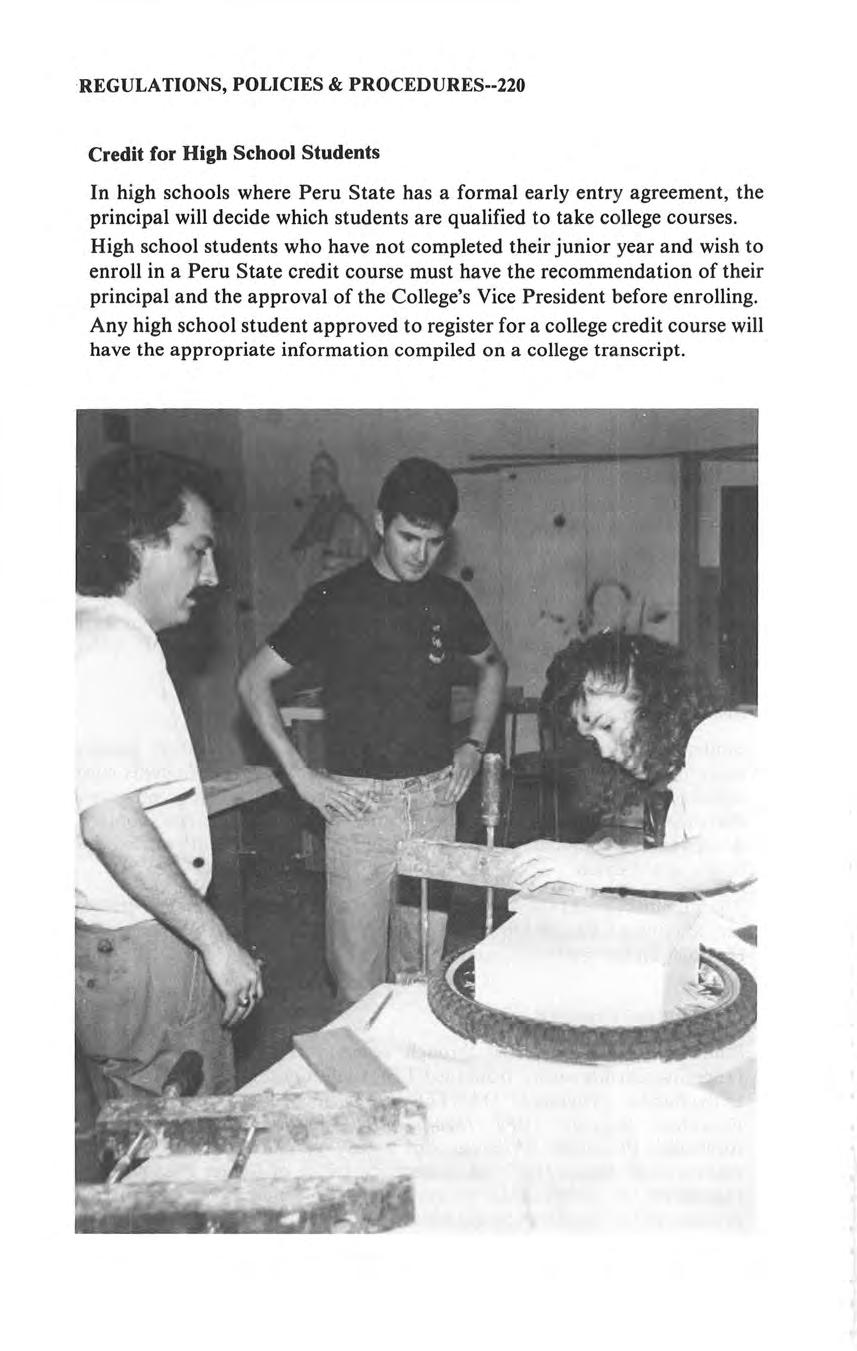
REGULATIONS, POLICIES & PROCEDURES--220
Independent Study
Independent study courses are available in nearly every subject area and are numbered 499. They require at least junior standing and are only for students who are capable of independent research, work, or study. An Independent Study is a carefully crafted learning activity with specific objectives and methods of evaluation developed in consultation with a faculty member. The following regulations apply to independent study courses:
I. No more than six hours of Independent Study may be counted toward a degree.
2. No more than three hours of Independent Study may be taken each semester.
3. ' Independent study courses should not be used to replace required courses. In hardship cases, the final decision will be made by the Division Chairperson of the course affected.
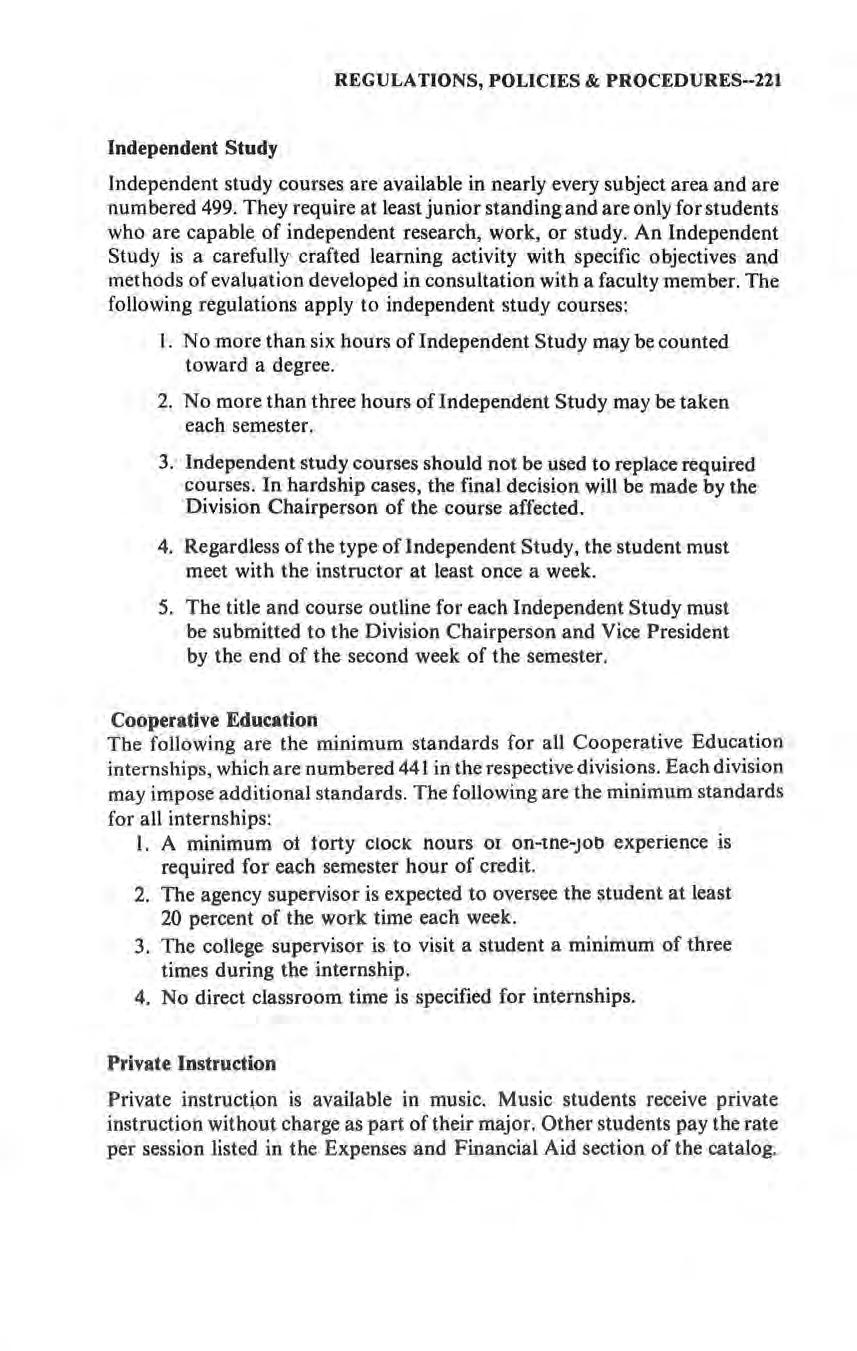
4. Regardless of the type of Independent Study, the student must meet with the instructor at least once a week.
5. The title and course outline for each Independent Study must be submitted to the Division Chairperson and Vice President by the end of the second week of the semester.
Cooperative Education
The fallowing are the minimum standards for all Cooperative Education internships, which are numbered 44 I in the respective divisions. Each division may impose additional standards. The following are the minimum standards for all internships:
l. A minimum ot torty clock nours 01 on-me-Job experience is required for each semester hour of credit.
2. The agency supervisor is expected to oversee the student at least 20 percent of the work time each week.
3. The college supervisor is to visit a student a minimum of three times during the internship.
4. No direct classroom time is specified for internships.
Private Instruction
Private instruction is available in music. Music students receive private instruction without charge as part of their major. Other students pay the rate per session listed in the Expenses and Financial Aid section of the catalog.
REGULA TIO NS, POLICIES & PROCEDURES--221
Telecourses
Peru State offers televised courses for credit on a state-wide basis. The courses count as resident credit and are offered in the Fall, Spring, and Summer terms. For current information on televised course offerings, contact the Office of Continuing Education .
Correspondence Courses
Peru State does not offer correspondence courses, but is a correspondence testing center. Inquiries about testing should be directed to the Office of Continuing Education .
Variable Credit Courses
The credit hours to be earned and the coursework to be completed are determined at the time of registration. Students do not have the option of reducing or increasing credit hours or coursework after the free drop/ add period at the beginning of the term.
Repeat Courses
Students may and are urged to repeat courses they have failed. The initial course title and F grade are not removed from the student's permanent record, but the repeat grade is used to determine the new grade point average. There may also be occasions when students repeat a course for review on an audit basis without a change of grade
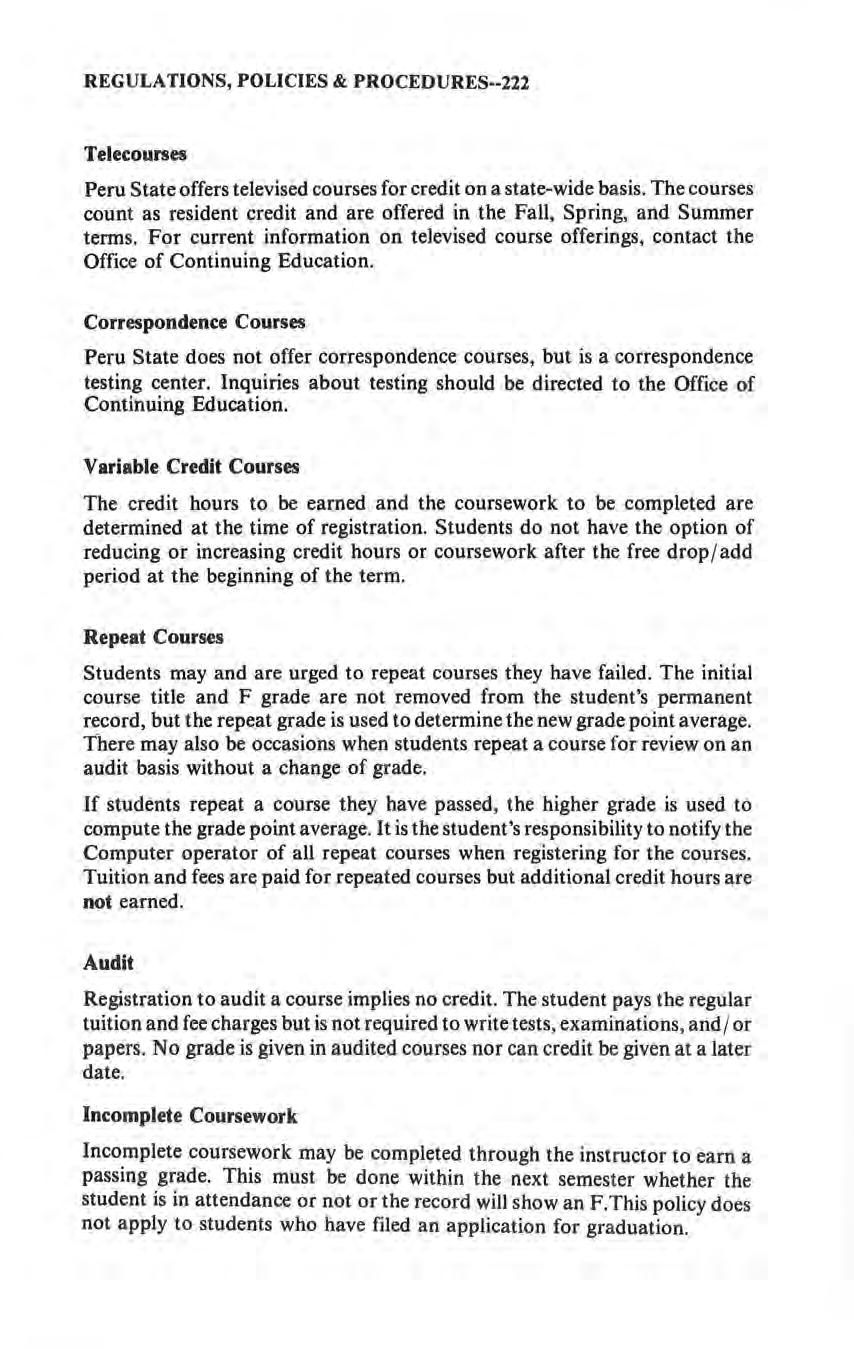
If students repeat a course they have passed, the higher grade is used to compute the grade point average . It is the student's responsibility to notify the Computer operator of all repeat courses when registering for the courses Tuition and fees are paid for repeated courses but additional credit hours are not earned.
Audit
Registration to audit a course implies no credit. The student pays the regular tuition and fee charges but is not required to write tests , examinations, and/ or papers. No grade is given in audited courses nor can credit be given a t a later date.
Incomplete Coursework
Incomplete coursework may be completed through the instructor to earn a passing grade. This must be done within the next semes t er whether the student is in attendance or not or the record will show an F.This policy does not apply to students who have filed an application for graduation .
REGULATIONS, POLICIES & PROCEDURES--222
Classification of Students
Students are classified according to the number of semester credit hours earned:
0 to 29 credits
30 to 59 credits
60 to 89 credits
90 and over
Post-graduate students have earned a bachelor's degree or higher and are earning additional undergraduate credit.
Non-degree students are qualified persons who are enrolled primarily to satisfy an occupational need or personal interest.
Academic Progress Sheet
Academic progress sheets guide and record a student's progress to graduation and are maintained by the Registrar and student. The sheets are normally issued during the second semester of attendance for freshman; transfer students' sheets are initiated as soon as possible following full admission to the College.
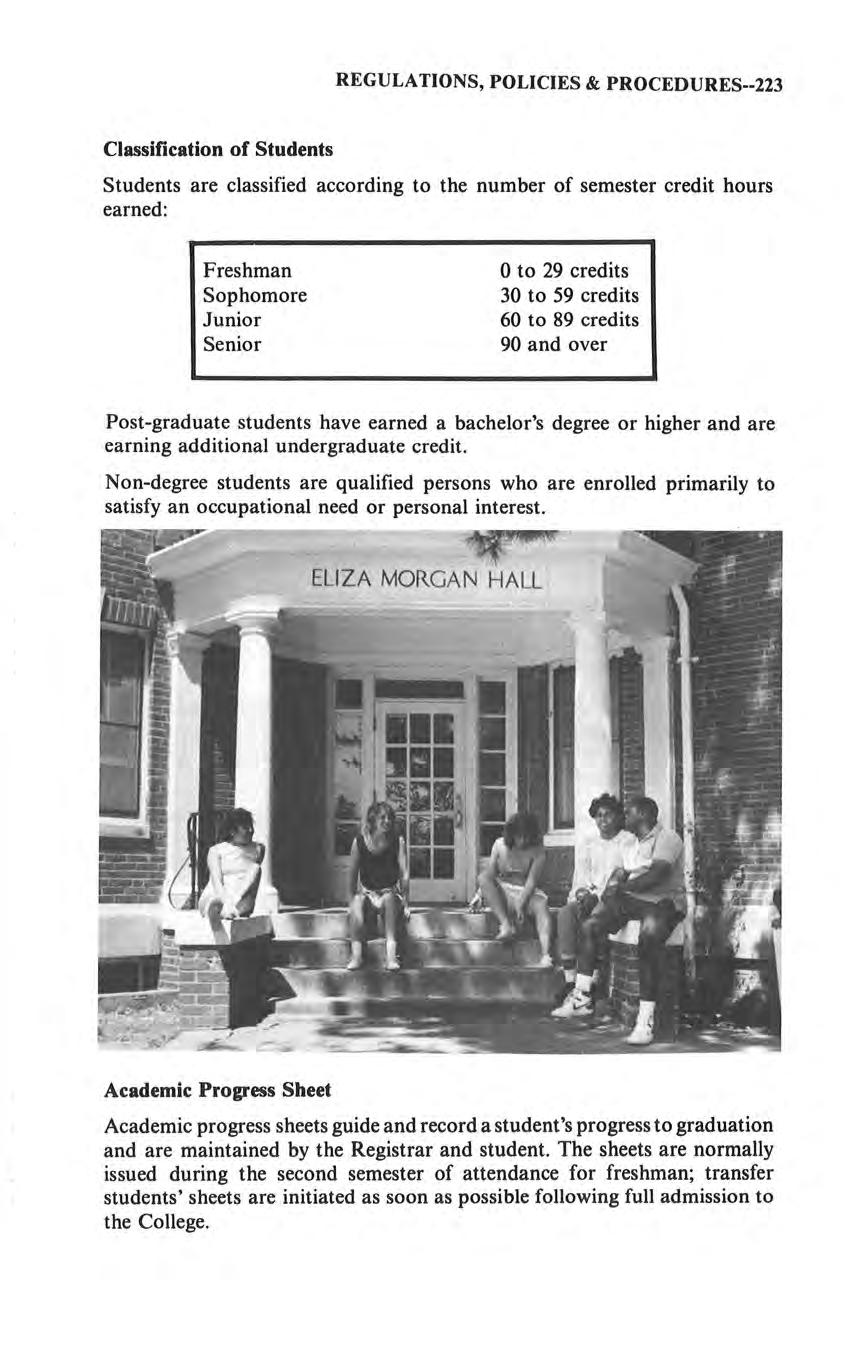
REGULATIONS, POLICIES & PROCEDURES--223
Freshman Sophomore Junior Senior
ELIZA MORGAN HALL
Academic Load
Peru Campus Students
Students who are enrolled for 12 credit hours or more during a semester are considered full-time students. However, the normal course load for a student who expects to complete a bachelor's degree within eight semesters (4 years) is I 5-16 hours. The maximum load without special permission is 17 hours; more than 17 hours requires the approval of the Chairperson of the division in which the student is majoring. The Registrar may approve 18 credit hours provided the student obtained a minimum 3.5 grade point average the previous semester. The maximum credit hour load is 21 and may not be exceeded. Class withdrawals subsequent to the add/ drop period are included in the credit hour load.
Veterans and other eligible persons attending Peru State under the benefits of Chapter 34 and 35, Title 38, U.S.C., as full-time students must be enrolled for at least 12 semester hours, or the equivalent.
Offutt Air Force Base and Southeast Community College Students
Courses at these sites are scheduled on an eight-week cycle. The academic load for an eight-week session is:
For each eight-week session when students are not registered for student teaching, they may register for a maximum of 12 semester credit hours with Peru State. The 12 hours include any independent study courses.
For the eight-week session when students are registered for student teaching, they may register for a maximum of I I hours with Peru State. The I I hours include any independent study courses.
Change in Registration
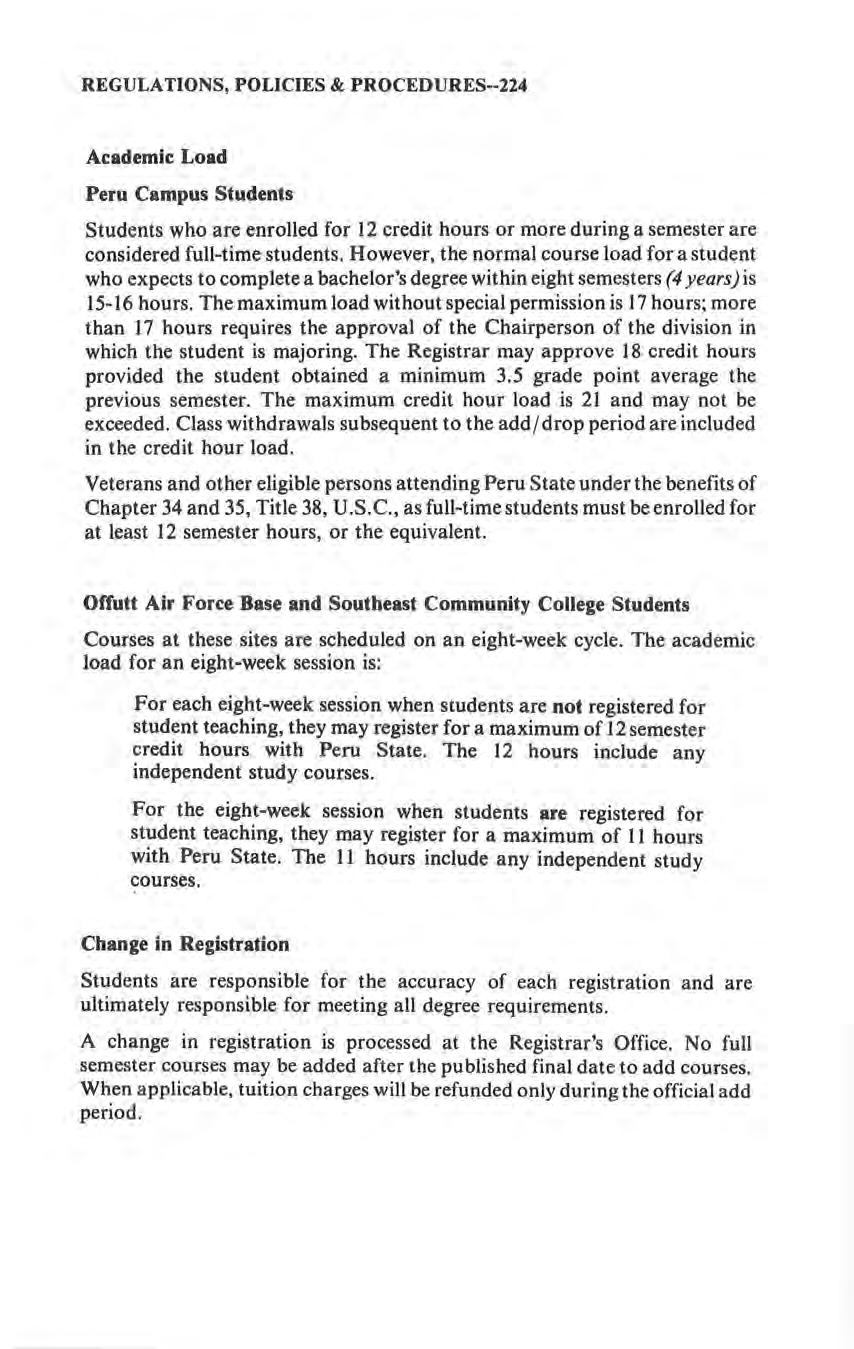
Students are responsible for the accuracy of each registration and are ultimately responsible for meeting all degree requirements.
A change in registration is processed at the Registrar's Office. No full semester courses may be added after the published final date to add courses. When applicable, tuition charges will be refunded only during the official add period.
REGULATIONS, POLICIES & PROCEDURES--224
Change in Major
Students who elect to change majors after their sophomore year should be aware that their graduation may be delayed. Also, if students change their major, they may have to follow the requirements in the current catalog rather than the one in effect at the time they were admitted to the College to pursue a degree program .
Attendance and Scholastic Attitude
Students are expected to attend classes regularly, to arrive punctually, and to complete all assigned work . Attendance is a privilege and a responsibility represented by not only the student's investment, but also by a significant investment by the State.
When it is necessary for students to miss class, they have the responsibility to notify their instructor in advance whenever possible. Faculty members have the prerogative of allowing students to make up and complete work missed during the absence.
Instructors have the right to base a portion of a student's grade on attendance. They must present their grading practices in writing to both students and their Division Chairperson during the first week of the semester.
Grading System
CR and NCR do not affect grade point average; CR is applicable to graduation hours.
X work must be completed within the next semester or the record will show an F. Work is to be completed whether the student is in attendance or not.
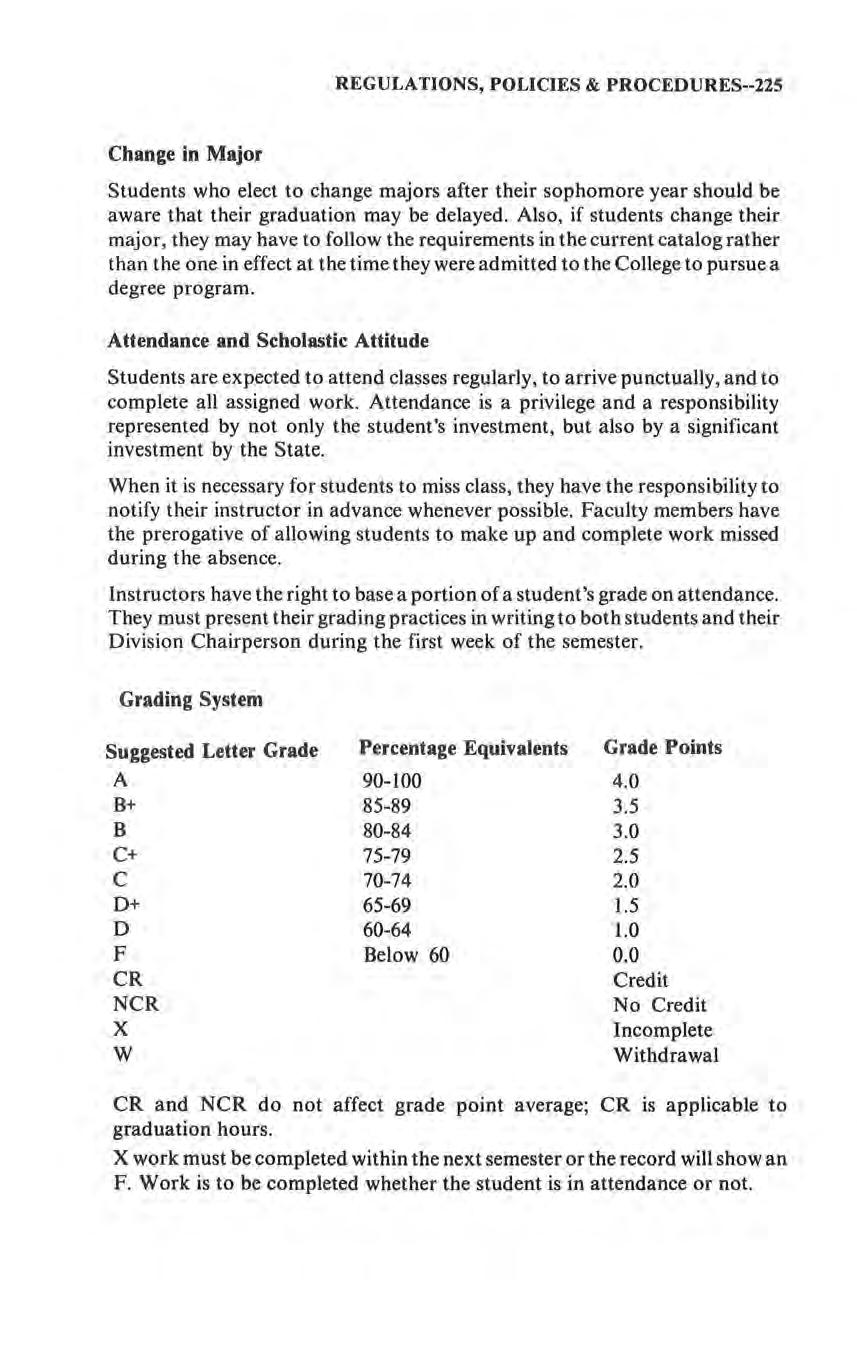
REGULATIONS, POLICIES & PROCEDURES--225
Suggested Letter Grade A B+ B C+ C D+ D F CR NCR X w Percentage Equivalents 90-100 85-89 80-84 75-79 70-74 65-69 60-64 Below 60 Grade Points 4.0 3.5 3.0 2.5 2.0 1.5 1.0 0.0
Withdrawal
Credit No Credit Incomplete
Academic Progress (six week review of grades)
Students are expected to review their academic progress with their professors during the eighth week or mid-term week of the academic session. Students doing below average or failing work should immediately confer with their advisor and / or the Dean of Student Affairs.
Withdrawal from Class
Students who wish to withdraw from a class must notify their advisor, instructor, and officially withdraw through the Registrar's Office. Students withdrawing after the last day to add classes which is one week after the midpoint of the term (as stipulated in the catalog) will receive a W. After one week past the mid-point date, students who initiate a withdrawal receive an F for the class.
Withdrawal from the College
Students who wish to withdraw from the College must initiate their withdrawal with the Dean of Student Affairs and complete all the appropriate paperwork. Proportional tuition refunds are made in accordance with the refund schedule (see the Expenses and Financial Aid section) to students who officially withdraw from the College.
After one week past the mid-point of the term, the Dean of Student Affairs will determine if unusual or extenuating circumstances surround a ' withdrawal request and recommend either Withdrawal (W) or Failing (F) grades for all coursework. Poor academic performance alone is not sufficient reason to receive all W's.
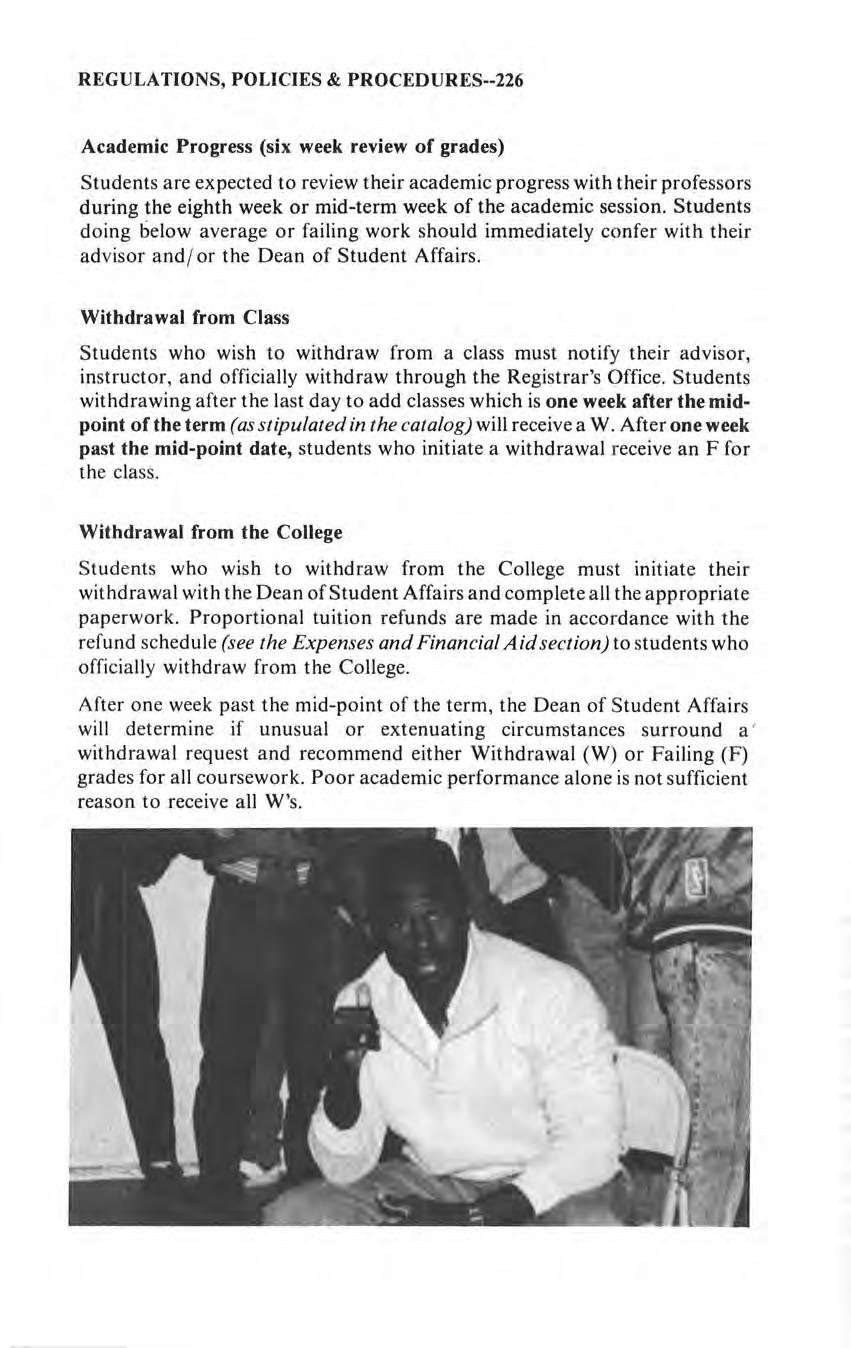
REGULATIONS, POLICIES & PROCEDURES--226
Academic Standards
(See cooperative agreements for extended campus degree program requirements.)
Students with a cumulative grade point average of l .00-1 . 99 at the close of a semester, regardless of the number of attempted hours, are placed on academic probation. Probationary students must obtain a minimum of 3.00 average for each successive semester of attendance until the required cumulative grade point average of 2.00 or higher has been achieved. Failure to meet the above condition will result in academic suspension.
Students who have attempted 21 credit hours or less (including transfer record) and have a cumulative grade point average below 1.00 at the close of a semester are placed on academic probation and may continue attendance under the above requirements provided the following additional requirements have been satisfied
The student must petition the Academic Affairs Commission. The specifics of the petition process are outlined in a letter of probation from the Vice President.
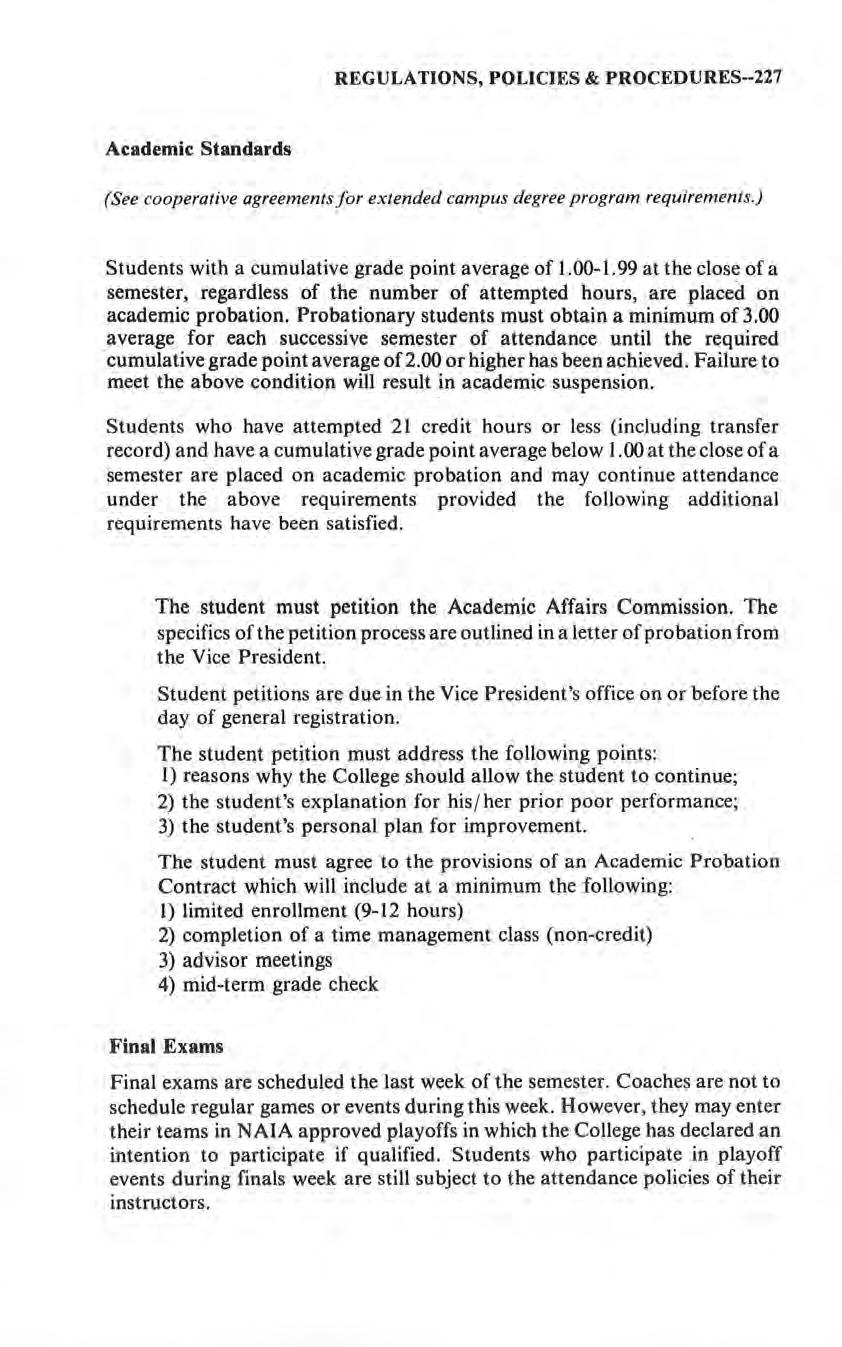
Student petitions are due in the Vice President's office on or before the day of general registration.
The student petition must address the following points:
l) reasons why the College should allow the student to continue;
2) the student's explanation for his / her prior poor performance;
3) the student's personal plan for improvement.
The student must agree to the provisions of an Academic Probation Contract which will include at a minimum the following:
1) limited enrollment (9-12 hours)
2) completion of a time management class (non-credit)
3) advisor meetings
4) mid-term grade check
Final Exams
Final exams are scheduled the last week of the semester. Coaches are not to schedule regular games or events during this week However, they may enter their teams in NAIA approved playoffs in which the Coll ege has declared an intention to participate if qualified Students who participate in playoff events during finals week are still subject to the attendance policies of their instructors.
REGULA TIO NS, POLICIES & PROCEDURES--227
Statement on Plagiarism and Cheating
The academic community considers the utterances and original ideas of an individual to be the property of that individual. Plagiarism is the theft of such property. It is the usage of specific words and vocabulary, or a paraphrase thereof without acknowledging their origin or source. This definition includes but is not restricted to theft from a published, printed, or oral source, or the use of purchased or borrowed papers. Copying during an examination and the use of illicit memoranda (e g. "crib notes") during an examination constitutes cheating.
Academic Appeals
Students who wish to appeal an academic decision made by the College may petition the Academic Affairs Commission . The appeal is submitted in writing to the Vice President and should clearly and spec ifically state the grounds for the appeal.
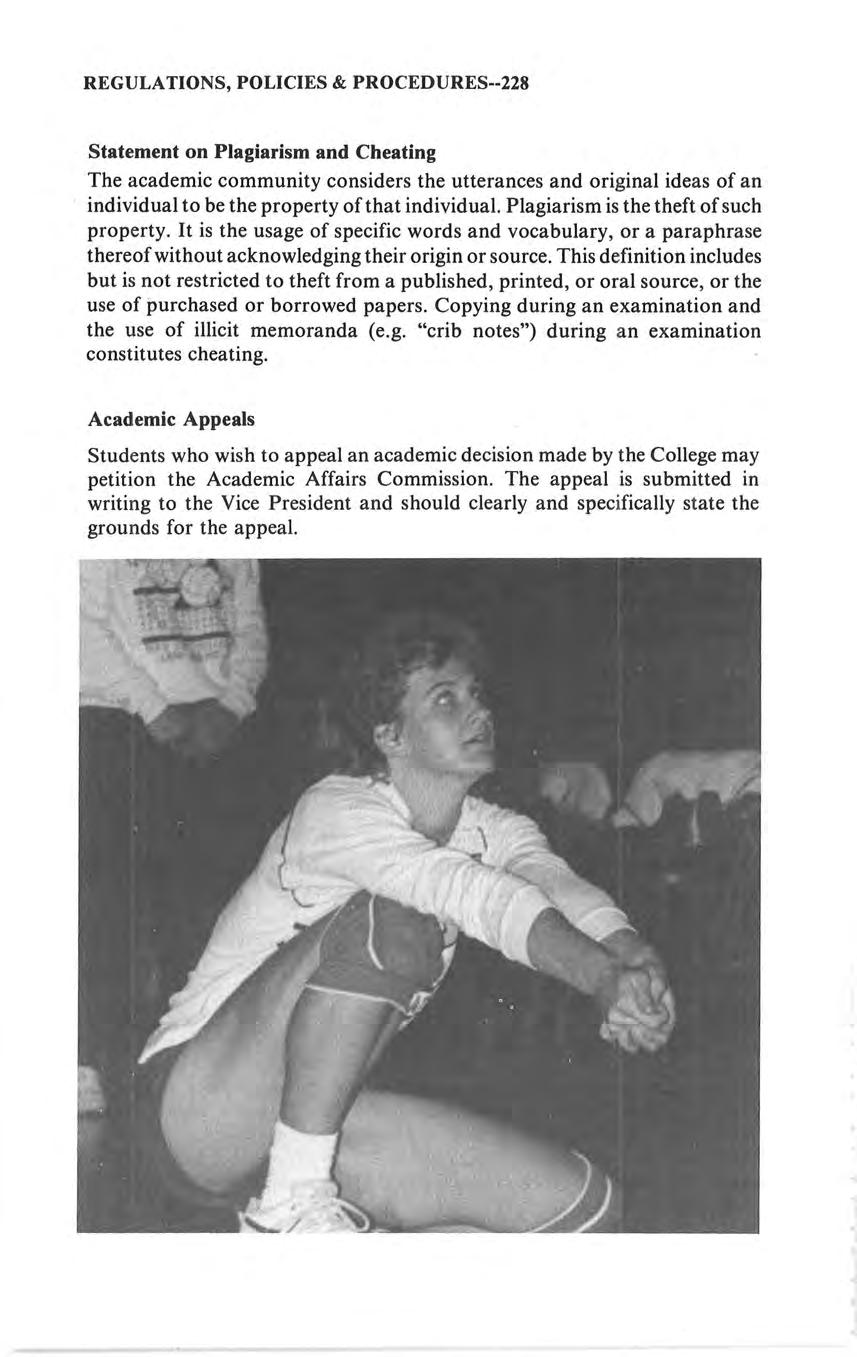
REGULA TIO NS, POLICIES & PROCEDURES--228
Academic Honors List
At the end of each semester the Vice President publishes the Academic Honors List. Students on the Academic Honors List must have a grade point average of 3.75 or higher for the semester, have completed at least 12 hours (credit/no credit not included), have no incomplete grades for the semester, and have no "holds" on their academic record.
Graduation Regulations
In general, students follow the graduation requirements outlined in the catalog current at the time of their admission to the College to pursue a degree program. Students with a Progress Sheet who are making normal progress toward a degree will continue under their original catalog. Students whose progress toward a degree has been irregular to the point that normal progress has not been maintained will meet the graduation requirements in the most recent catalog.
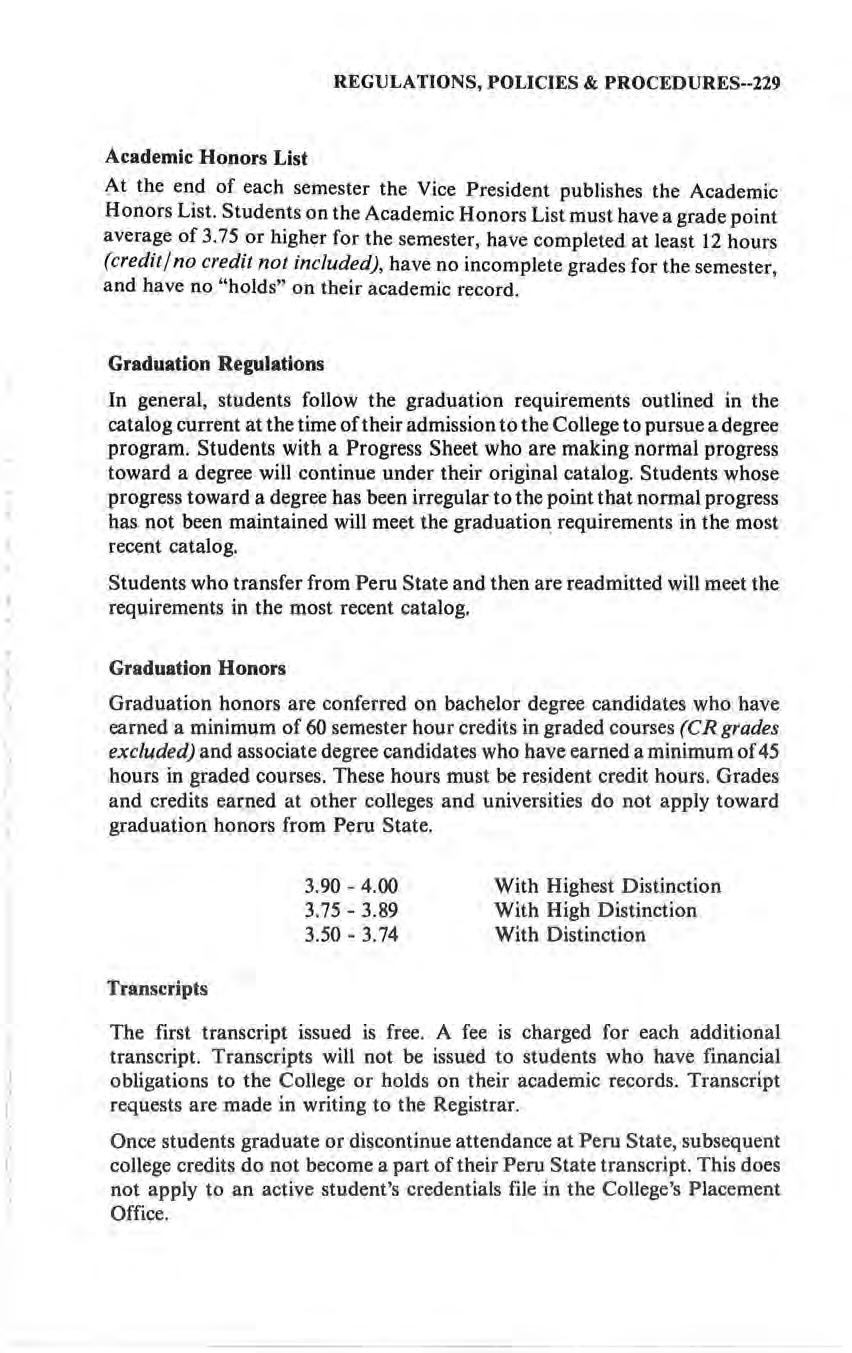
Students who transfer from Peru State and then are readmitted will meet the requirements in the most recent catalog.
Graduation Honors
Graduation honors are conferred on bachelor degree candidates who have earned a minimum of 60 semester hour credits in graded courses (CR grades excluded) and associate degree candidates who have earned a minimum of 45 hours in graded courses. These hours must be resident credit hours. Grades and credits earned at other colleges and universities do not apply toward graduation honors from Peru State.
With Highest Distinction With High Distinction
Transcripts
The first transcript issued is free. A fee is charged for each additional transcript. Transcripts will not be issued to students who have financial obligations to the College or holds on their academic records. Transcript requests are made in writing to the Registrar.
Once students graduate or discontinue attendance at Peru State, subsequent college credits do not become a part of their Peru State transcript. This does not apply to an active student's credentials file in the College's Placement Office.
I ' REGULATIONS, POLICIES & PROCEDURES--229
3.90 - 4 . 00 3.75 - 3.89 3.50 - 3.74
Distinction
With
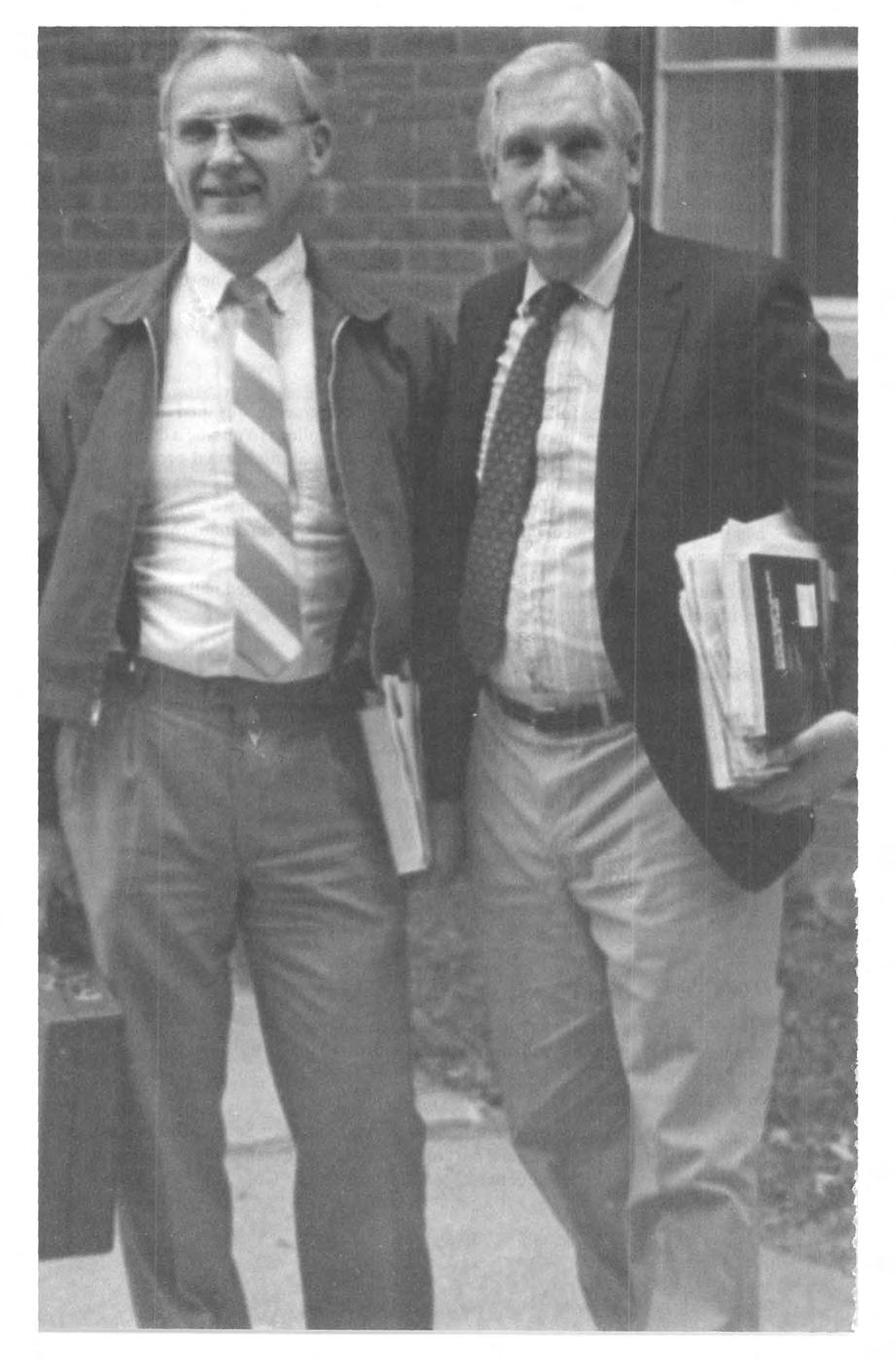
NON-ACADEMIC POLICIES Policy on Racism
Peru State College believes that fostering diversity and respect for difference is a fundamental goal of higher educational institution. Therefore, the College takes the unequivocal structure that has for its purpose the subordination of a person or a group based on race, color, creed, disability, marital status, national origin, race, sex, or sexual orientation, cannot be tolerated.
Peru State College will take strong and effective steps to achieve a diverse learning environment and a workplace respectful of differences. Clear, fair and effective policies will be formulated and communicated to all members of the campus community, and will respond promptly and consistently to complaints about any acts that violate those policies.
AIDS Policy
The purpose of this policy is to establish a plan which will be followed in the event any student, employee, or other school contact has contracted AIDS (Acquired Immune Deficiency Syndrome), ARC(Aids Related Complex), or has been diagnosed by a physician as being infected with the HIV virus : (SP , Sero Positivity)
The goals of Peru State College are to:
I. Provide an appropriate and least restrictive work/ study setting as feasible for AIDS, ARC, and SP persons.
2. Provide a safe environment for the College community.
3. Maintain and protect all rights and privacy of AIDS, ARC, and SP persons.
4. Continue to observe non-discriminatory guidelines for all areas of campus life (i.e. social, academic, and cultural).
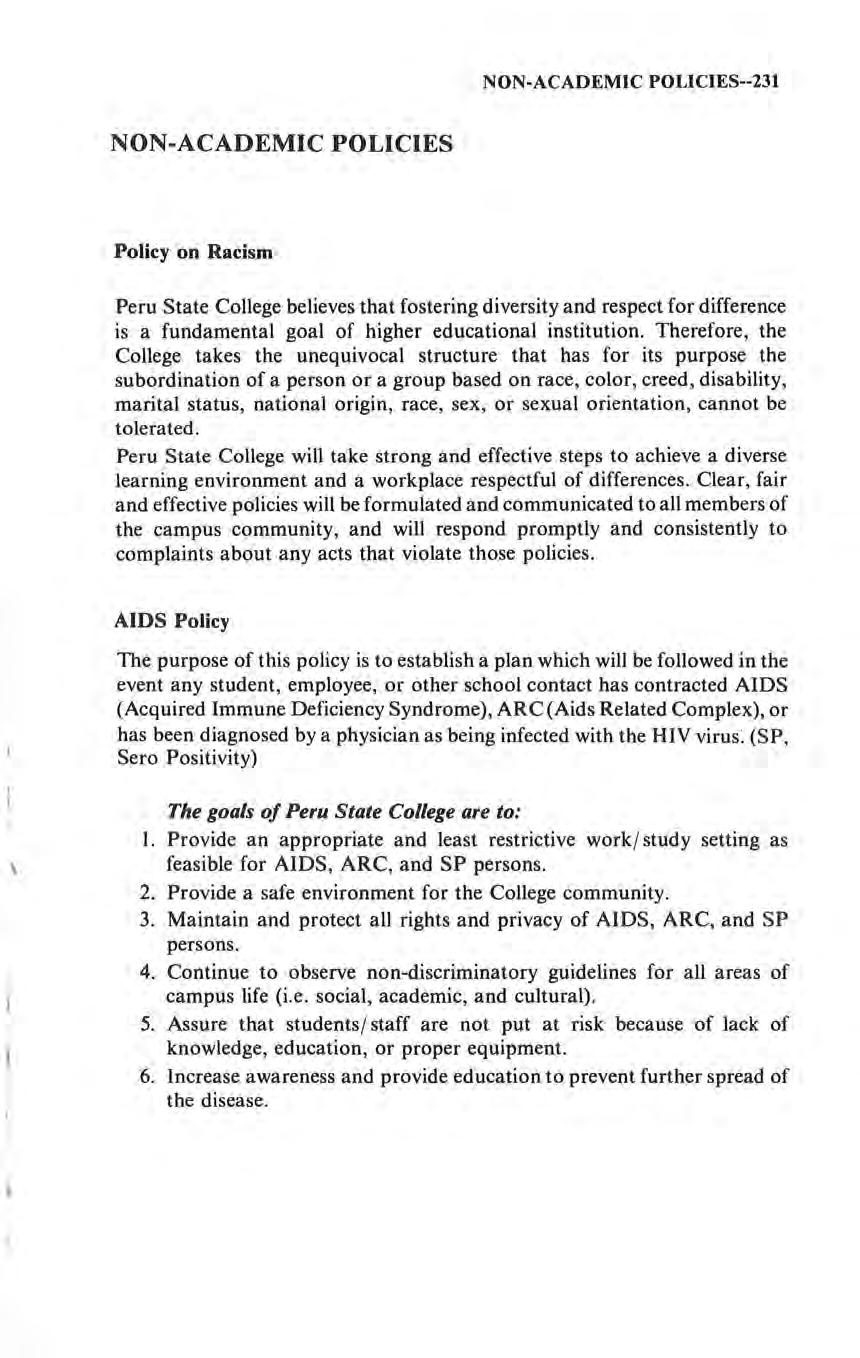
5. Assure that students/ staff are not put at risk because of lack of knowledge, education, or proper equipment.
6. Increase awareness and provide education to prevent further spread of the disease.
NON-ACADEMIC POLICIES--231
Admissions Policy
1. Peru State College admits all students in accordance with academic regulations, policies, and procedures as stated in the College Catalog. No student, faculty, or staff member will be excluded because of AIDS, ARC, or SP: The existence of AIDS, ARC, and SP will not be part of the initial admissions decision for those applying to attend Peru State College.
2. Any student infected with AIDS, ARC, or SP, will have the same rights as any other student on the campus and will have use of all services.
3, This policy has the approval of the College Affairs Commission.
4. In accordance with the above purpose and goals, and considering that there is no current evidence that persons who are infected with the HIV virus spread the infection by casual, ordinary contact, there is no medical justification to exclude students/ faculty/ employees with AIDS, ARC, or SP from campus academic, social, cultural activities, or from common areas (i.e. student unions, theatres, restaurants, cafeterias, snack bars, gymnasiums, swimming pools, recreational facilities, shared classrooms, study areas, or libraries.)
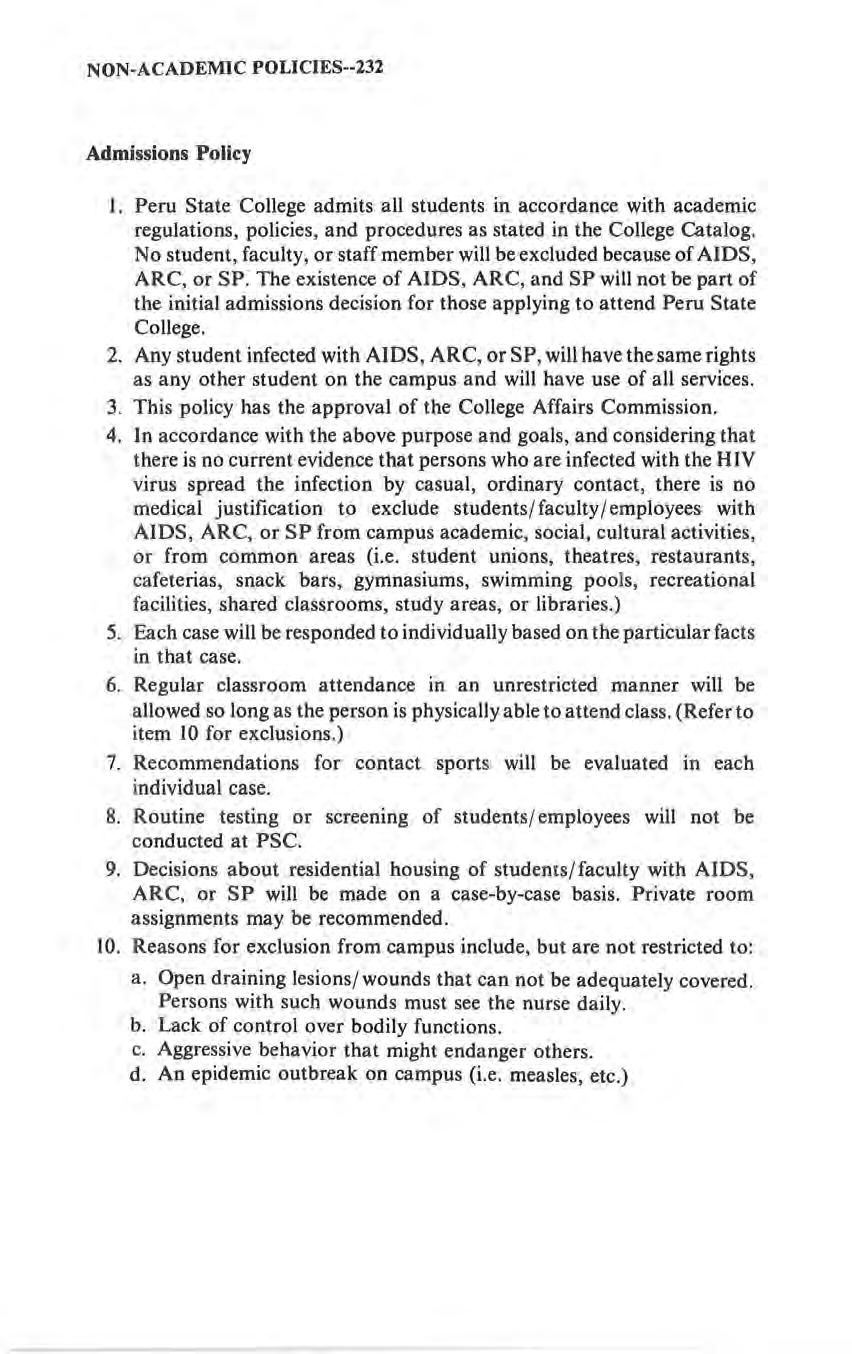
5. Each case will be responded to individually based on the particular facts in that case.
6. Regular classroom attendance in an unrestricted manner will be allowed so long as the person is physically able to attend class. (Refer to item IO for exclusions.)
7. Recommendations for contact sports will be evaluated in each individual case.
8. Routine testing or screening of students/ employees will not be conducted at PSC.
9. Decisions about residential housing of students/faculty with AIDS, ARC, or SP will be made on a case-by-case basis. Private room assignments may he recommended.
10. Reasons for exclusion from campus include, but are not restricted to:
a. Open draining lesions/wounds that can not be adequately covered. Persons with such wounds must see the nurse daily.
b. Lack of control over bodily functions.
c. Aggressive behavior that might endanger others.
d. An epidemic outbreak on campus (i .e. measles, etc.)
NON-ACADEMIC POLICIES--232
Medical Procedures
l. New students are encouraged to inform campus health authorities if they have AIDS, ARC or SP and this information will be handled in a strictly confidential manner in accordance with the Buckley Amendment.
2. It is the responsibility of individuals who know they have AIDS, ARC, or SP, to take appropriate precautions to protect their own health and that of others. Individuals seeking assistance on campus should consult the campus nurses or doctor, Dean of Student Affairs, or Director of Housing.
3. Health Services and team members should be familiar with sources of testing for AIDS, ARC, and SP for people requesting such testing.
4. If a student asks for a test, the procedure as recommended by the State Department of Health will be followed. Each team member should know the location of the testing centers.
5. Protection of confidential medical information will be superseded only by the necessity to protect others in very specific threatening circumstances.
6. Those who are known to be immunologically compromised will be excused from the Peru State College requirements for certain vaccinations.
7. Peru State College will strictly observe public health reporting requirements for AIDS, ARC, or SP.
8. Cleaning supplies will be made available to all buildings on campus and appropriate personnel notified on the location of these supplies.
9. Health forms will be required of all entering students:
a. If the health form is not turned in, the student will not be fully accepted into the institution.
b. A question regarding hemophilia will be added to the form.
10. Counseling Recommendations:
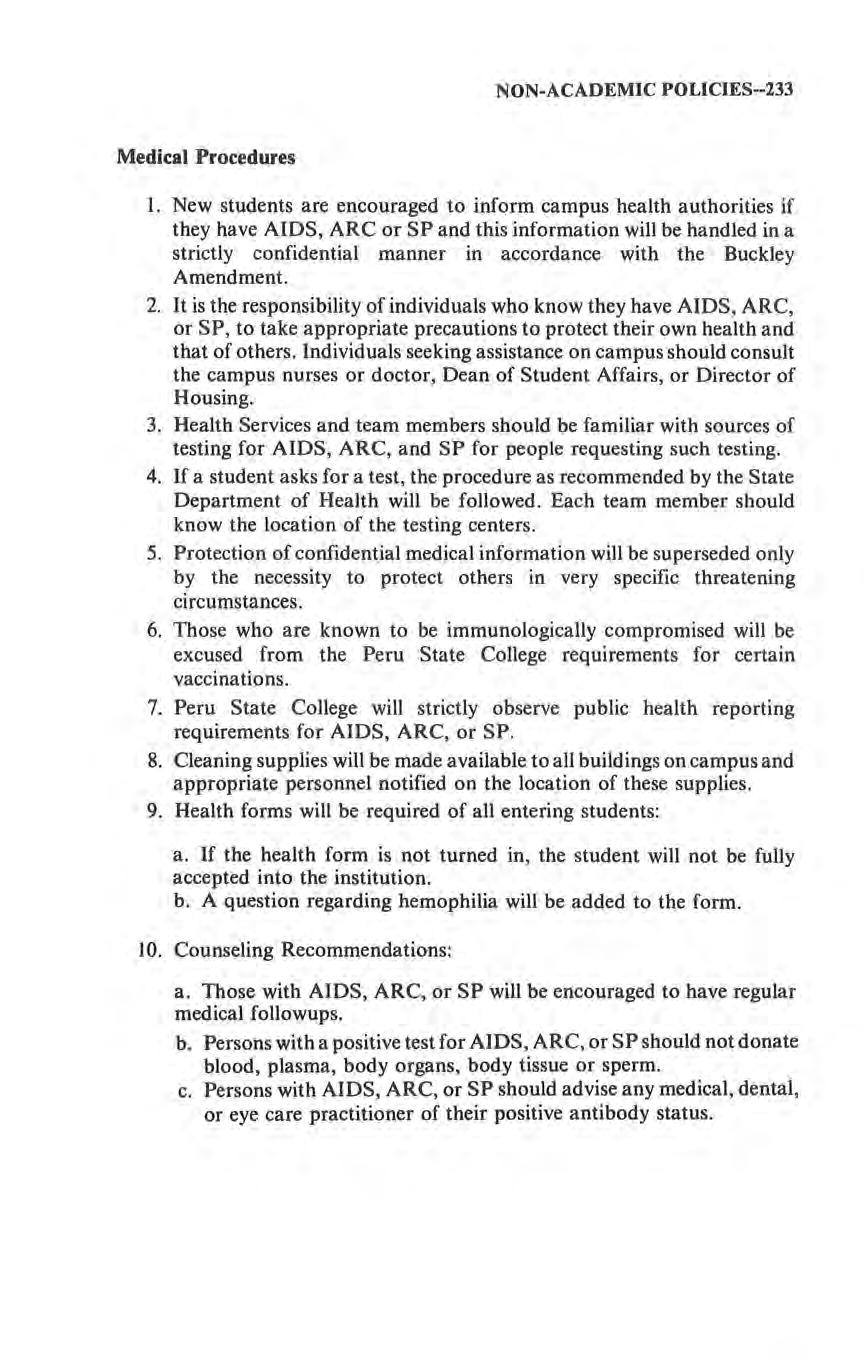
a. Those with AIDS, ARC, or SP will be encouraged to have regular medical followups.
b. Persons with a positive test for AIDS, ARC, or SP should not donate blood, plasma, body organs, body tissue or sperm.
c. Persons with AIDS, ARC, or SP should advise any medical, dental, or eye care practitioner of their positive antibody status.
NON-ACADEMIC POLICIES--233
Educational Program
Educational programs should emphasize:
I. Asymptomatic SP persons may transmit infestion to to others (not through casual contact)
2. Consistent use of condoms may help reduce transmission of infection.
3. Implements that become contaminated with blood should not be shared: razors, toothbrushes , etc.
4. Gloves should be worn in any case where contact is made with blood, emesis, or other bodily excretions .
5. Accidents involving persons with confirmed AIDS, ARC , or SP that involve bleeding , emesis, or other bodily excretions should be properly c leaned. The procedure will be to use household bleach freshly diluted 1: IO with water on all contaminated surfaces. All materials will be placed in double plastic bags, and the bags burned in the incinerator under the direction of the Director of Maintenance.
6. Every person on the faculty and staff, especially Resident Hall Staff, should receive education about AIDS, ARC, and SP.
7. Saftey guidelines for handling blood and body fluids of every person with AIDS, ARC, or SP will be adopted by every area of Peru State College. Organizations connected with Peru State College, but not necessarily under PSC authority, will be encouraged to adopt saftey guidelines.
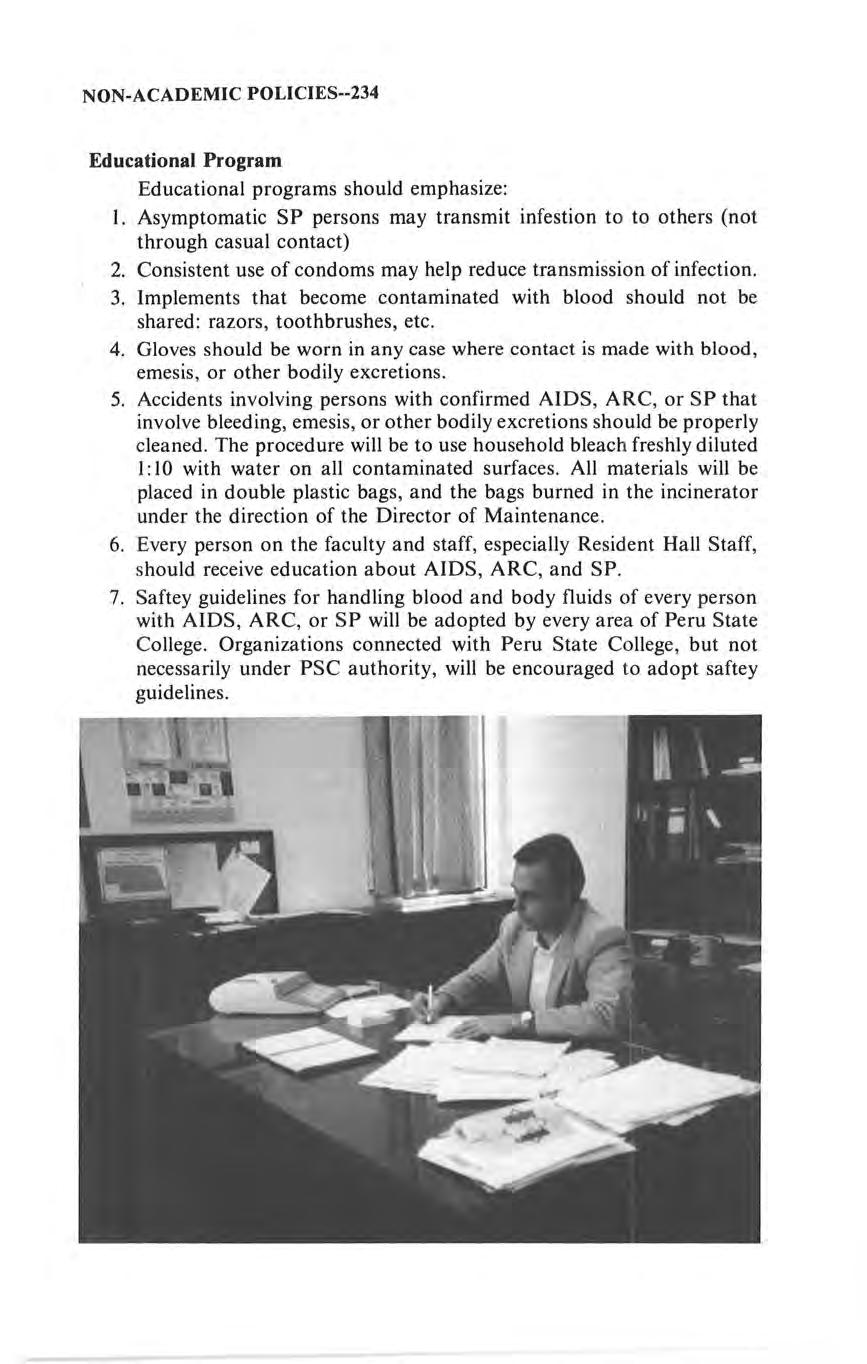
NON-ACADEMIC POLICIES--234
Team Responsibility
I. A team will be formed to assess the circumstances and make recommendations concerning the individual student, faculty , or staff member.
2. Though no disclosure is required of persons with AIDS, ARC, or SP, information that is voluntarily disclosed will be held strictly confidential.
3. The team will be responsible for making recommendations based on the most recent, accurate, medical information available
5. The team will meet when it has knowledge of a case and the guidelines will be followed . The name of the case need not necessarily be revealed.
6. The nurse with permission of the doctor or Dean of Students c a n exclude a person until the team meets if that person meets any of the exclusion criteria.
Recommendations
1. An education program will be implemented immediately involving all faculty and staff.
2. An education program for students will be printed in the college newspaper and student handbook.
3. Each division of the college will determine specific policies for their areas in accordance with this policy.
The Family Education Rights and Privacy Act of 1974
The primary purpose for maintaining student records at Peru State is to assist students with their educational endeavors and to record institutional actions. It is the policy of the College to allow students to inspect, review and challenge their educational records as provided by the Family Education Rights and Privacy Act of 1974 (Buckley Amendment).
The publication, "Acces s to and Dissemination of Information about Students at Peru State College", contains detailed information about the Buckley Amendment and is available from the Office of Student Affairs . Complaints about the alleged failure of the College to comply with the requirements of the Buckley Amendment should be addressed to: The Family Education Rights and Privacy Act Office , Department of Health and Human Services , 330 Independence Avenue , S .W ., Washington , D.C . 20201.
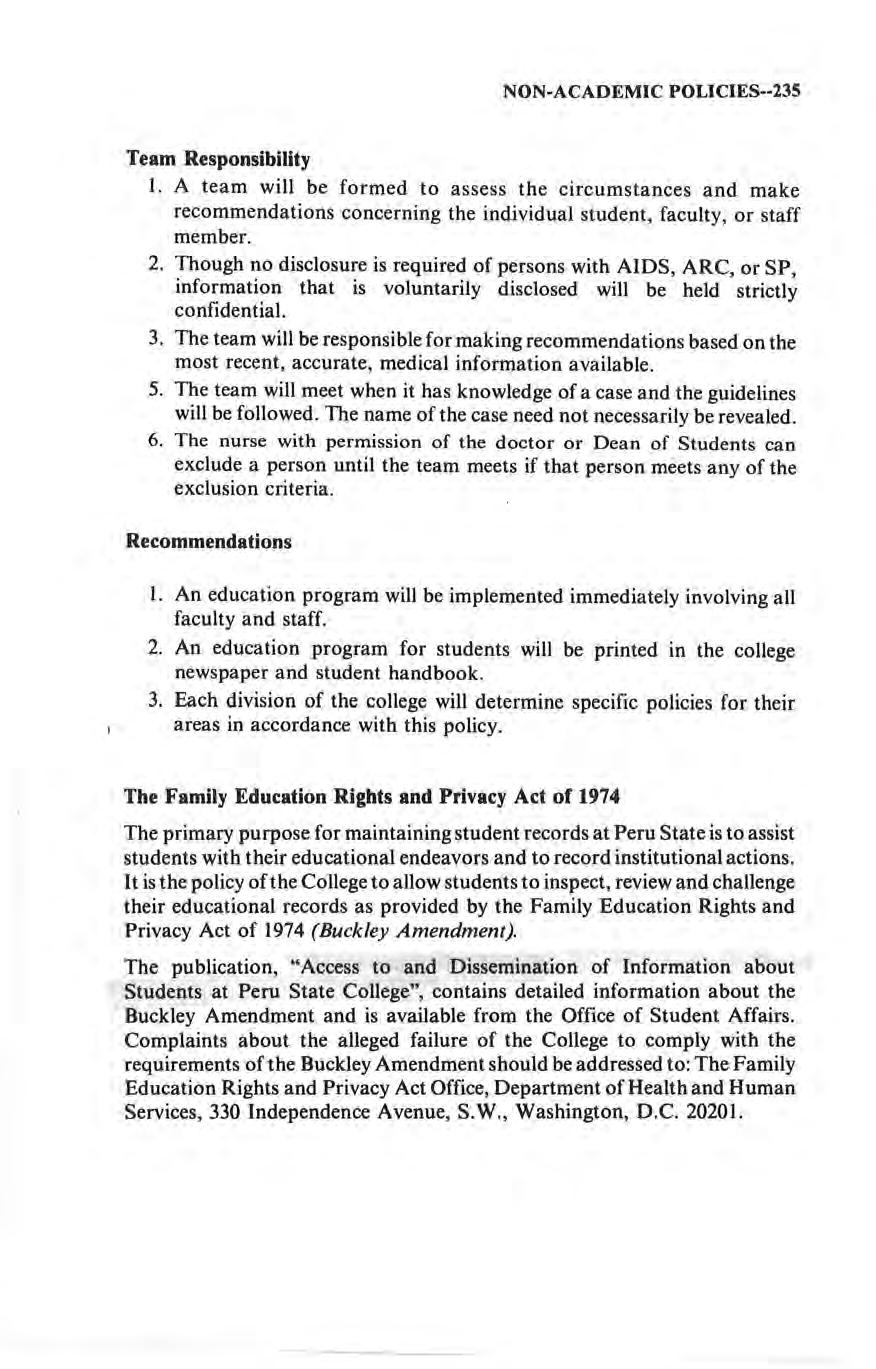
NON-ACADEMIC POLICIES --235
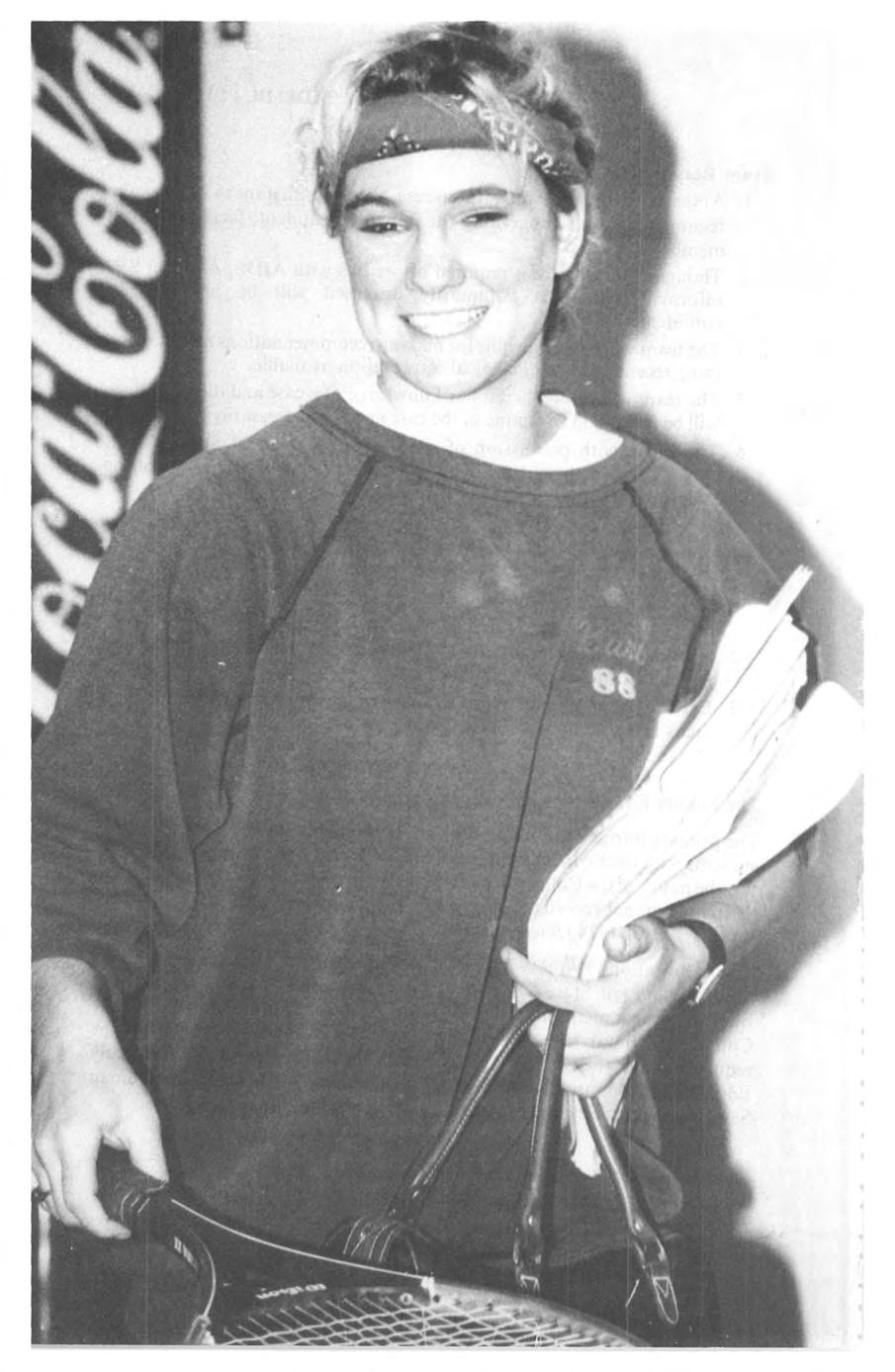
STUDENT SERVICES
The College's goal is to adapt its educational opportunities and services to the interests, needs and abilities of each student . The Office of Student Affairs provides a wide variety of activities to assist the students in realizing their educational objectives and enjoying their college experience.
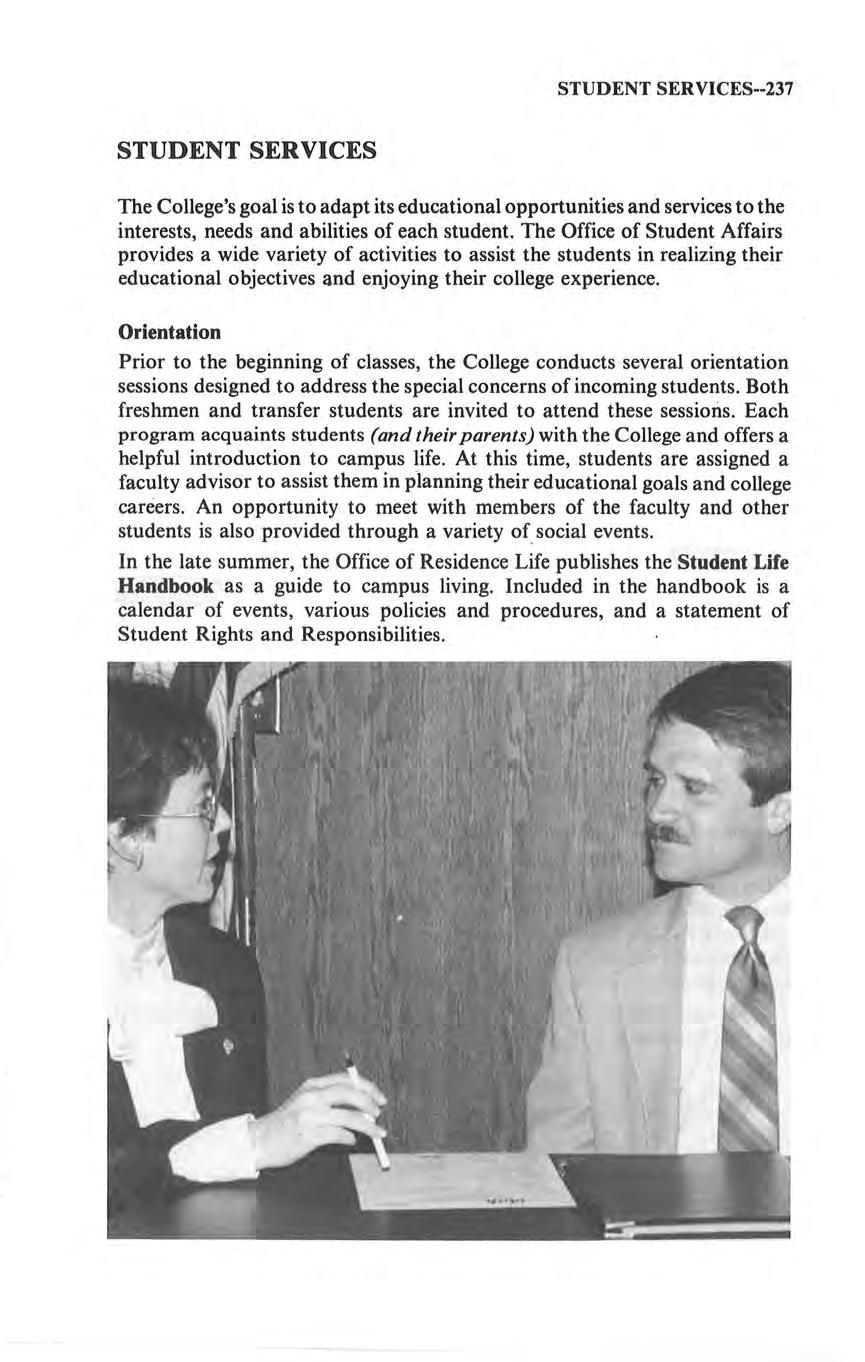
Orientation
Prior to the beginning of classes, the College conducts several orientation sessions designed to address the special concerns of incoming students. Both freshmen and transfer students are invited to attend these sessions. Each program acquaints students (and their parents) with the College and offers a helpful introduction to campus life . At this time, students are assigned a faculty advisor to assist them in planning their educational goals and college careers. An opportunity to meet with members of the faculty and other students is also provided through a variety of _ social events .
In the late summer, the Office of Residence Life publishes the Student Life Handbook as a guide to campus living . Included in the handbook is a calendar of events, various policies and procedures, and a statement of Student Rights and Responsibilities.
STUDENT SERVICES--237
Counseling and Testing Services
During college, students sometimes feel the need to seek assistance in dealing with their problems whether they are personal, vocational, educational, or social. To help students cope with these concerns, personnel in the Office of Student Affairs may counsel students or refer them to other campus services . Advisors in both the Offices of Student Affairs and Career Planning and Placement help students to make informed educational and vocational choices Students with social or psychological problems are seen by the Director of Residence Life. In certain cases, students with special problems are referred to a clinical psychologist or psychiatric social workers available through the area Mental Health Association. Pastoral counseling is also available through the auspices of the United Ministries of Higher Education .
The Office of Career Planning and Placement rout inely administers the American College Testing Program (ACT) , the College Level Examination Progra m (CLEP), the National Teachers Examination (NTE) , and the PreProfes s ional Skills Test (PPST).
Career Planning and Placement Services
The Office of Career Planning and Placement offers a wide variety of services to all students and alumni . It assists students with campus interviews, job referrals, job-seeking techniques, and supports their applications by helping to develop their credential files. The Office also provides informal assistance to students who seek summer employment or part-time work by helping to identify potential employers.
The career / occupational library in the Placement Center offers students information about graduate study and job prospects in their field of study. Assistance is also provided through brochures and pamphlets on how to develop a resume and letters of application.
Peru State receives the Placement Vacancy Bulletin in cooperation with the Nebraska Association of Schools, Colleges, and University Staffing ,(NASCUS). The bulletin is issued through the Career Plac ement Service (CPS) in Lincoln and reports vacancies sent to Peru State as well as those r eported to other colleges and universities in Nebraska . The CPS also hosts employer recruiting visits at its Lincoln office
There is a nominal fee for processing credentials and mailing vacancy list s for tthe year September I to August 31 .
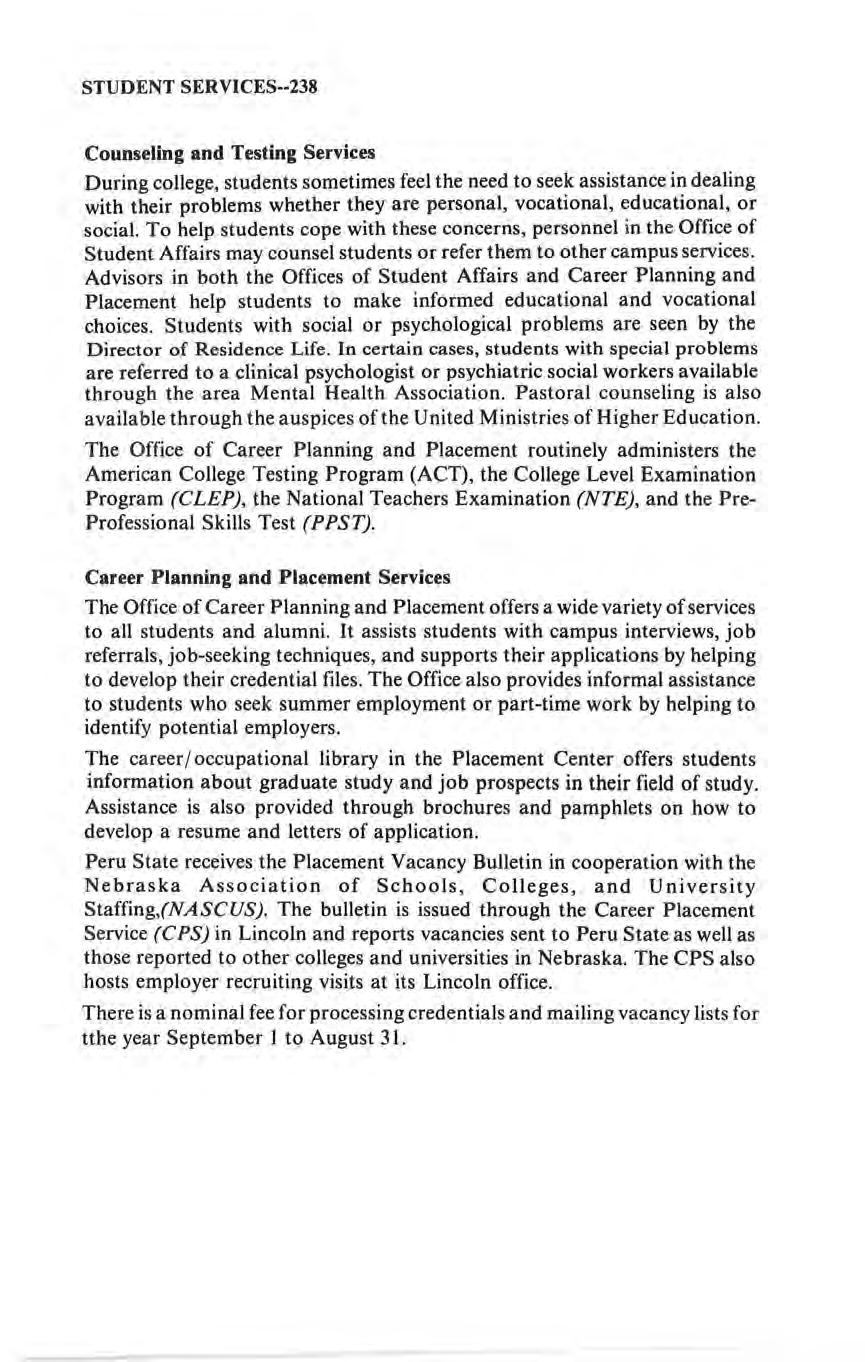
STUDENT SERVICES--238
Communication Skills Center
The Communications Skills Center offers a variety of services to students who want to improve their academic skills. The Center is located in the Education Building 307 and includes a writing lab , reading lab, and tutoring services
Both on-campus and commuter students of all abilities can take advantage of the Center's services. Skilled tutors assist in the Writing Lab while tutors for other classes are available upon request. Tutoring appointments are held at convenient times for both parties. The Center is open daily from 9:00 a.m. to 5:00 p.m. Courses for college credit are also offered through the Center.
Residence Halls and Living Accommodations
All requests for information about living accommodations should be directed to the Office of Residence Life. The schedule of room and board rates is listed in the Expenses and Financial Aid section of the catalog.
Living in a residence hall is not like living at home; it is an experiment in group behavior where give-and-take are constant, but where the best possible environment for a variety of student experiences has been created. There are many advantages to living in the residence halls with the most obvious being their proximity to the College's educational and recreational facilities. The library, laboratories, music practice rooms, workrooms, and the campus recreational centers are only a short walk from any residence hall. Residence hall living affords students considerable freedom. Part-time paraprofessional staff members supervise and assist students while educational and social programs augment the academic program. These programs provide assistance that may be needed to adjust to college life.
Peru State offers a variety of alternative living accommodations for students to choose. There are men and women residence halls as well as coeducational halls . Each residence hall has its own visitation policies and unique physical layout. Students are responsible for supplying their own linen and bedding including pillows and mattress pads. Residents are welcome to bring other personal items from home such as radios, stereos, etc. Hot plates and air conditioners are not permitted. The lower level of each hall is equipped with kitchen facilities, washers and dryers, and recreational equipment such as pool and ping pong tables .
All unmarried freshman and sophomore students under the age of 22, except those living with their parents or guardians, must live in college residence halls. Exceptions to this policy are handled by the College on .an individual basis. The specific terms and conditions of the residence hall contract are contained in the Housing Handbook which may be obtained from the Office of Residence Life.
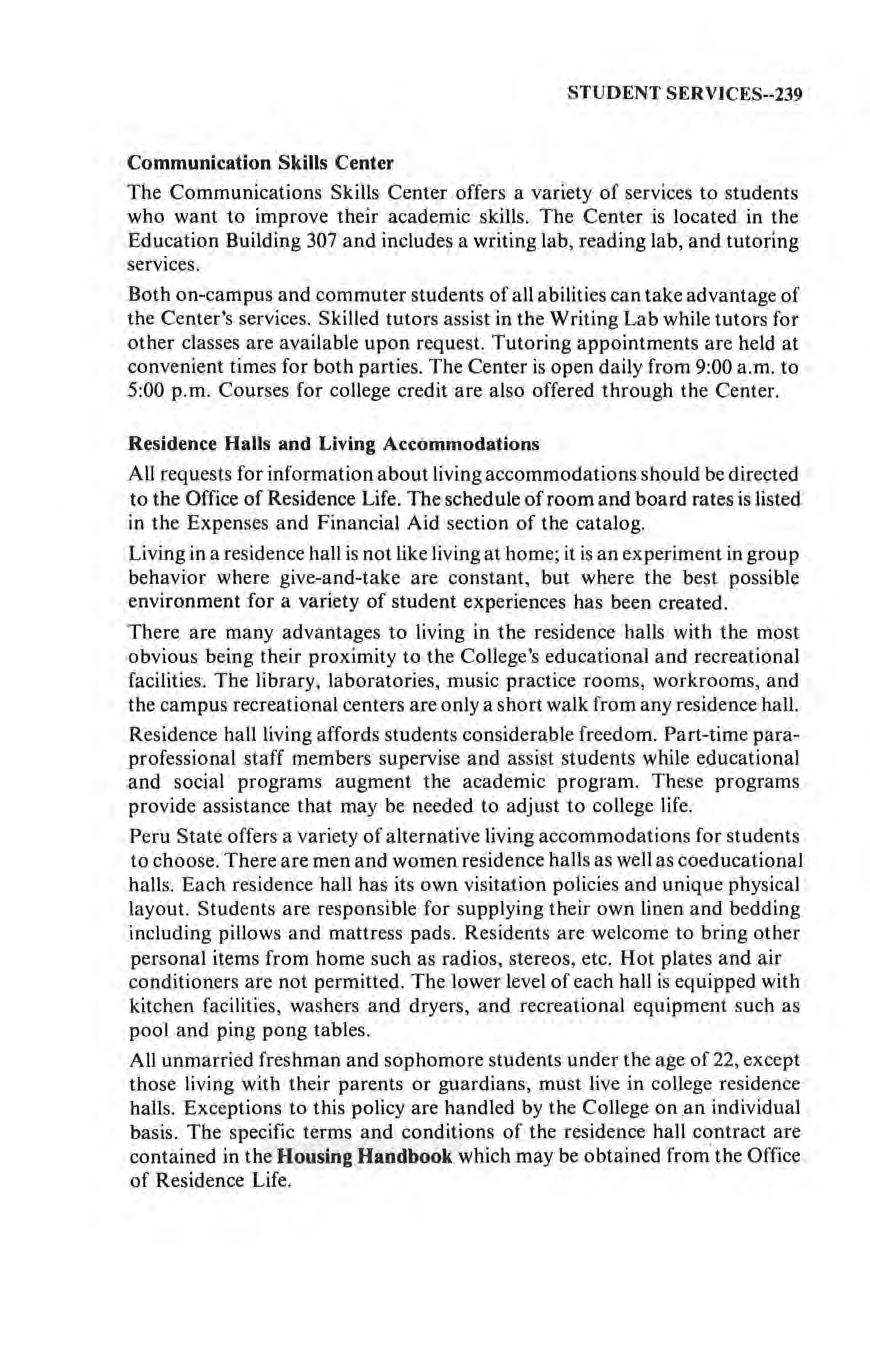
STUDENT SERVICES--239
Centennial Complex
In the fall of 1967, a new coeducational residence hall complex was opened to commemorate Peru State's first one hundred years of service. The Centennial Complex consists of three groups of two residence halls each, joined by glass walkways. Davidson/ Palmer Hall houses both men and women; Palmer houses women, and Davidson houses men. Clayburn/ Mathews Hall is coeducational. Nicholas/Pate Hall has both family and single student accomodations.
The rooms in the Complex are arranged as suites. Each suite is complete with a living room, two or three bedrooms, and bath facilities for four to six people. Wall-to-wall carpeting in the living room is complemented by a sofa, chairs, coffee table, end tables, lamps, draperies, and a large picture window. Each bedroom features built-in desks, study lights, bookcases, dressers, chairs, twin beds, drapes, and closets with shelves which provide ample storage space.
Delzell Hall
Gothic-styled Delzell Hall houses approximately 150 men. The spacious living room is furnished with sofas, chairs, a television, and a fireplace.
There are four floors of rooms arranged as combination sleeping and study rooms with each room housing two students. A built-in combination dresser and desk, bookcase, bulletin board, twin bed, draperies, and waste basket are furnished each student.
In addition to a large walk-in closet, lavatory, and medicine cabinet which are shared, each student is provided with an individual built-in wardrobe. There is a large shower room of ceramic tile and marble located on each floor.
Eliza Morgan Hall
Located in the northwest corner of the campus, Eliza Morgan Hall was opened in 1929. This recently renovated building has four floors and houses approximately 170 women. The carpeted living room is furnished with sofas and chairs.
Each room is arranged as a combination sleeping and study room for two students with each furnished a desk, twin bed, and draperies. In addition, each student shares with her roommate a large walk-in closet, lavatory, and medicine cabinet. There is a large shower room centrally located on each floor.
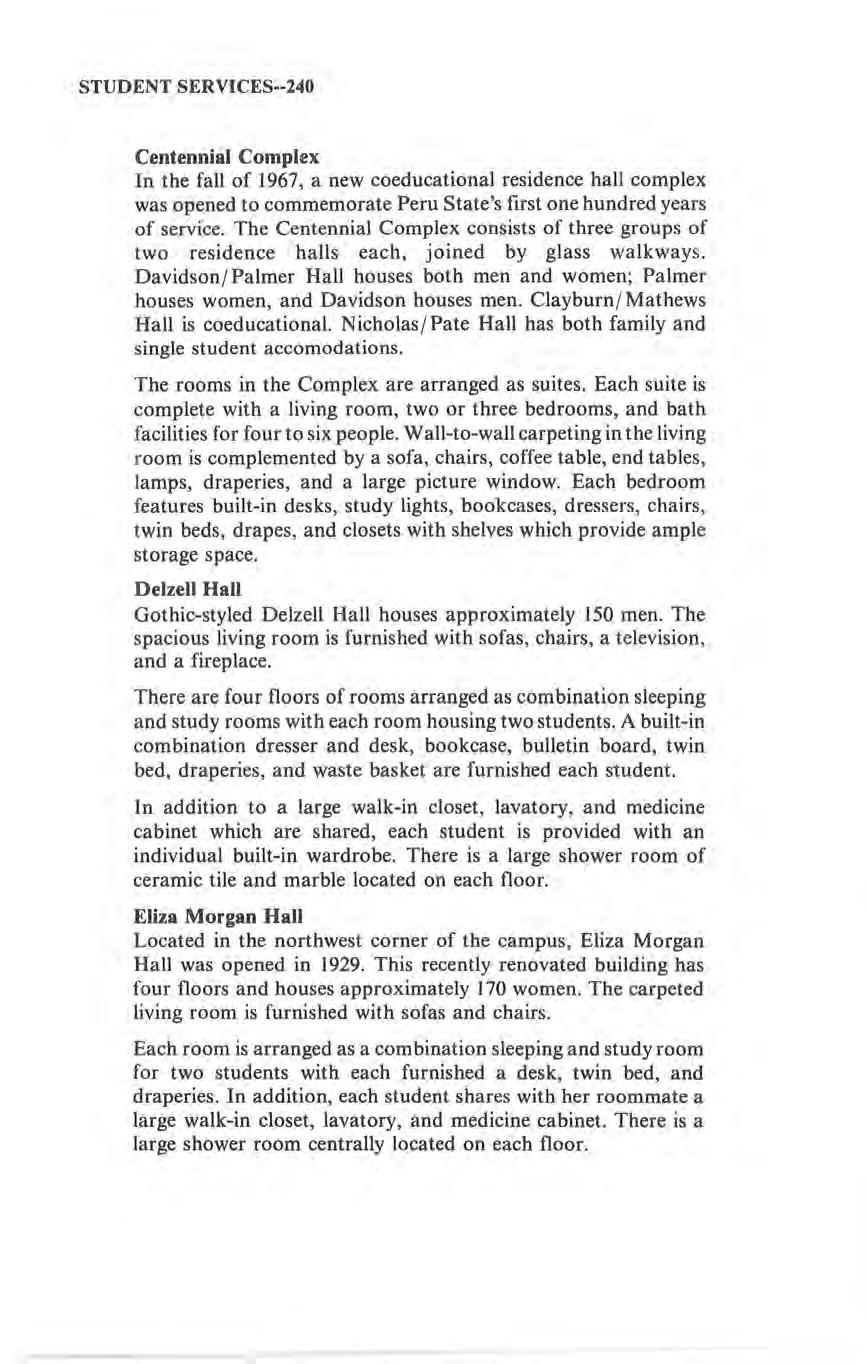
STUDENT SERVICES--240
Oak Hill Married Student Housing
One and two bedroom units are available in Oak Hill Housing. Each unit is equipped with a stove and refrigator. Laundry facilities are centrally located for use by all residents.
Married student housing is leased on an annual basis with the rent payable a month in advance. A deposit is required and is refundable at the end of the lease period provided the property is left in good condition. Inquiries about married student housing should be directed to the Office of Residence Life.
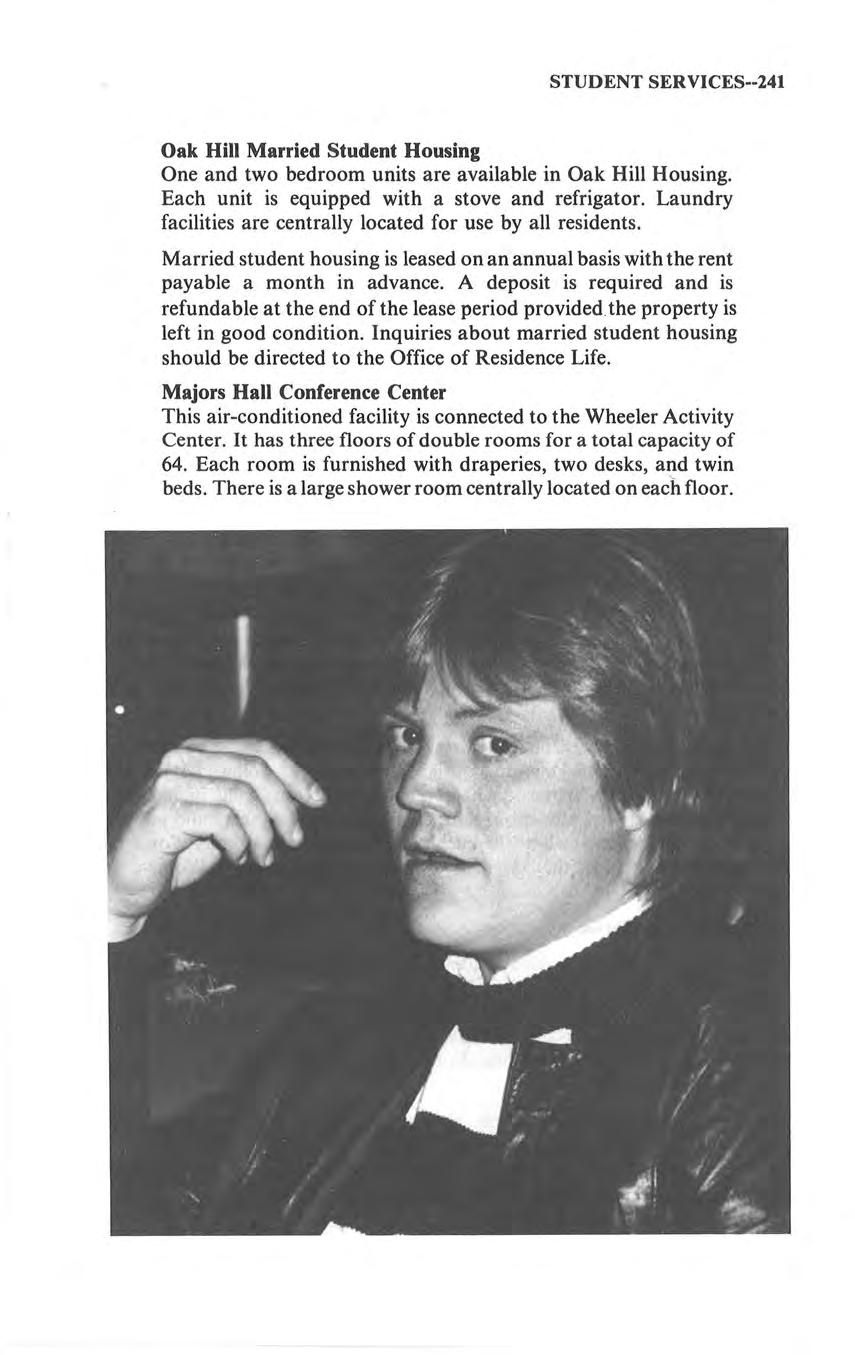
Majors Hall Conference Center
This air-conditioned facility is connected to the Wheeler Activity Center. It has three floors of double rooms for a total capacity of 64 . Each room is furnished with draperies, two desks, and twin beds There is a large shower room centrally located on each floor.
STUDENT SERVICES--241
Dining Services
Air-conditioned dining areas are located in the Student Center. The main dining room is open seven days a week for regular meal service to students, faculty, staff, guests, and visitors. All meals are designed with variety, nutrition, and good taste in mind.
There are three meal plans available to Peru State students. The Mini Plan provides for 15 meals beginning with breakfast on Monday and ending with dinner on Friday. The Maxi Plan offers 20 meals with three meals a day Monday through Saturday, and a noon dinner and evening soup and sandwich bar on Sunday. The Commuter Plan offers breakfast, lunch or dinner tickets at a reduced cost per meal.
Recreational, Cultural, and Social Life
Throughout the school year, concerts, plays, lectures, and recitals are presented by students , faculty members, and professional artists. Studentplanned and student-directed productions are also an important part of the College's entertainment schedule.
Besides the extensive intramural program and excellent recreational facilities, Peru's location in the rolling hills of southeast Nebraska offers many opportunities for hikes and outings. Indian Cave State Park and Nebraska City's Arbor Lodge State Park are enjoyable diversions for students and staff alike.
The social season at the College centers around Homecoming, Thanksgiving, Christmas, Valentine's Day, and Spring Week when all-college dances are held. Other social activities such as parties, receptions, and picnics are sponsored by various student organizations for their members and guests. Faculty organizations include the Faculty Association, the Faculty Women's Club, and a branch of the American Association of University Women.
Student Health Services
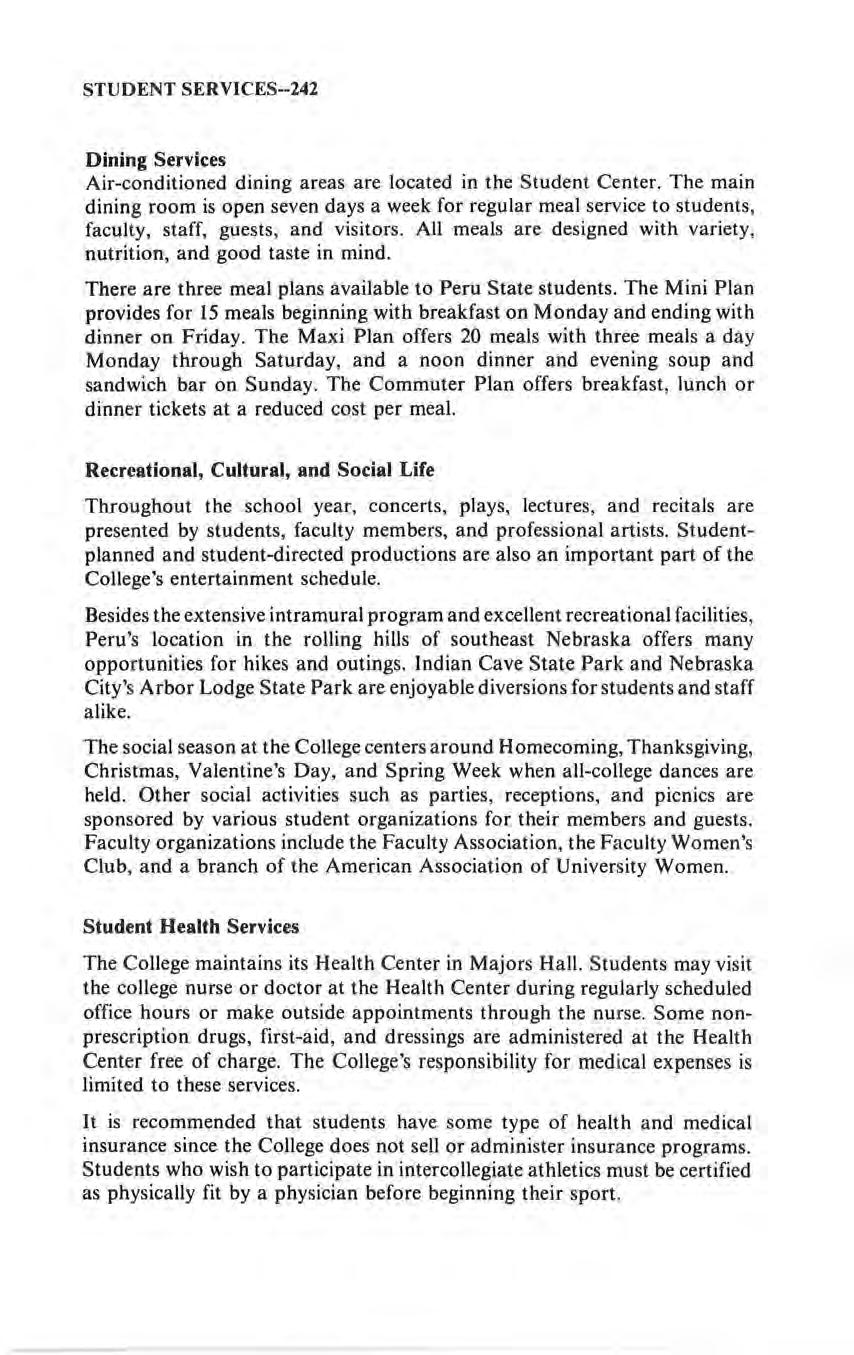
The College maintains its Health Center in Majors Hall. Students may visit the college nurse or doctor at the Health Center during regularly scheduled office hours or make outside appointments through the nu r se. Some nonprescription drugs, first-aid, and dressings are administered at the Health Center free of charge. The College's responsibility for med ical expenses is limited to these services.
It is recommended that students have some type of health and medical insurance since the College does not sell or administer insurance programs. Students who wish to participate in intercollegiate athletics must be certified as physically fit by a physician before beginning their sport.
STUDENT SERVICES--242
Transportation Services
Daily bus service to Omaha and Kansas City with connections to more distant destinations is available in Auburn, 12 miles from Peru. College transportation is provided to and from Auburn at the beginning and end of semesters, summer sessions, and spring recess.
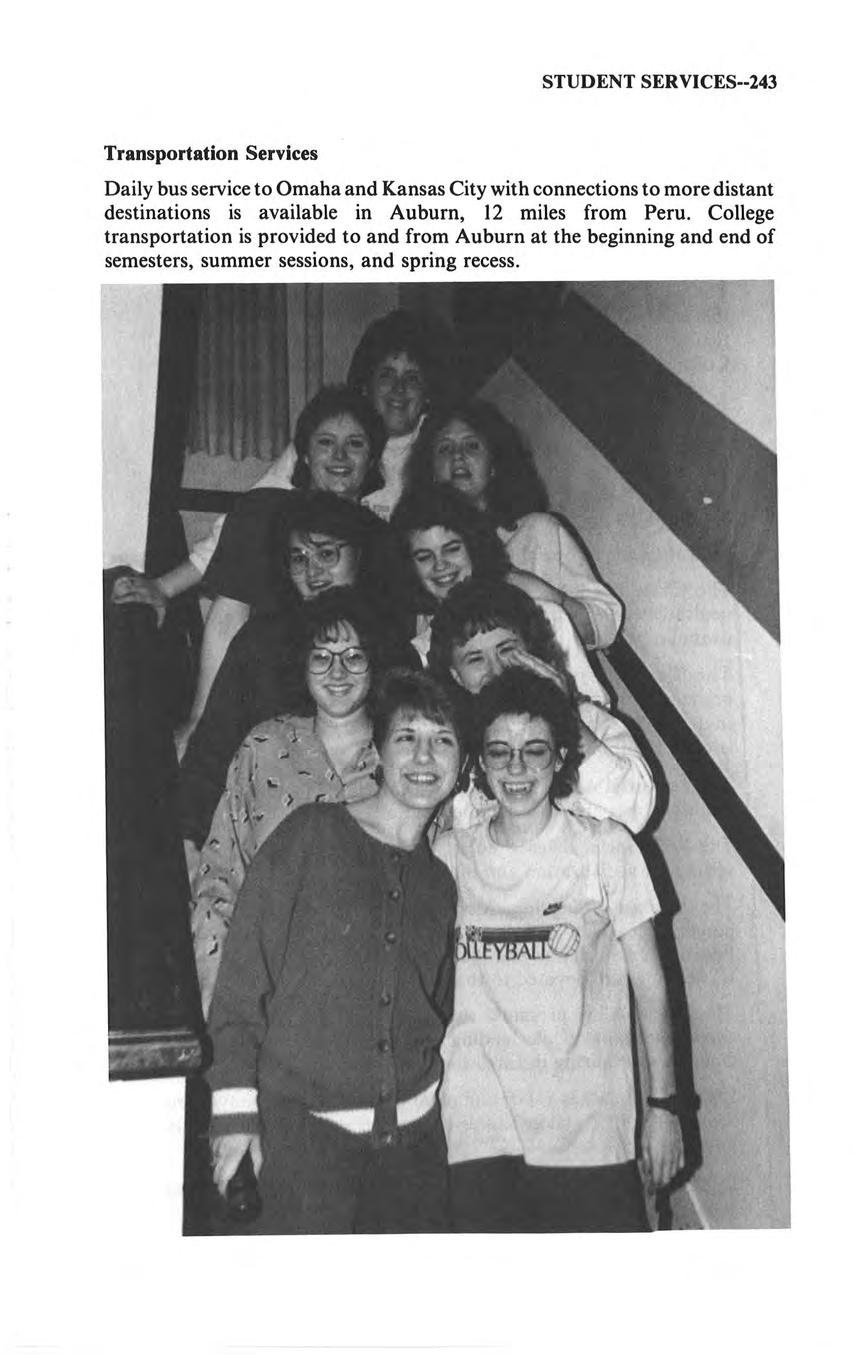
STUDENT SERVICES--243
Student Organizations
Students at Peru State may participate in a wide variety of student organizations for their personal, social, academic, or professional benefit.
Student Government
The Student Senate of Peru State College consists of elected representatives froni a variety of constituencies and is dedicated to focusing student interests and opinions in the operation of the College. The Senate has voting members on the College Affairs Council, Academic Affairs Commission, Library Committee, Teacher Education Committee, and Student Affairs Commission.
Residental Hall Councils are representative councils selected by the members ot the men's and women's residence halls. These governing bodies handle problems and plan social activities for hall residents.
Educational and Social Organizations
The Circle K Club is a Kiwanis-affiliated service organization dedicated to the betterment and advancement of the campus and community.
The Peru Players is the state's oldest college dramatic organization. The members assist in presenting the best in drama t o the College and the community. The Peru Players membership is open to all interested students.
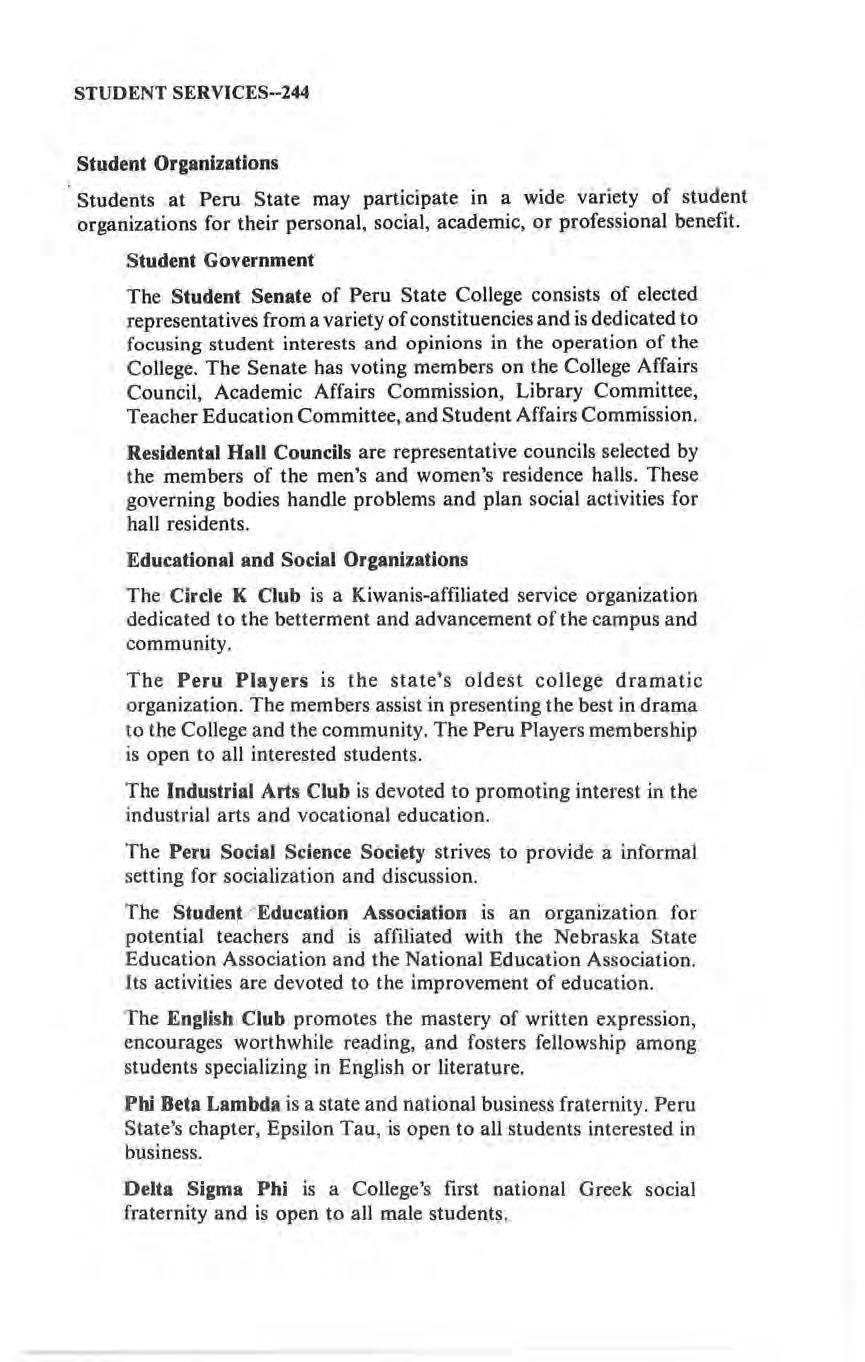
The Industrial Arts Club is devoted to promoting interest in the industrial arts and vocational education.
The Peru Social Science Society strives to provide a informal setting for socialization and discussion.
The Student/\ Education Association is an organization for potential teachers and is affiliated with the Nebra s ka Stat e E ducation Association and the National Education Association. Its activities are devoted to the improvement of education .
The English Club promotes the mastery of written e x pression, e ncourages worthwhile reading, and fosters fellowship amon g students specializing in English or literature.
P hi Beta Lambda is a state and national business fraternity Peru State's chapter, Epsilon Tau , is open to all students int erested in business.
D elta Sigma Phi is a College's first national Gree k social fraternity and is open to all male students.
STUDENT SERVICES --244
The Accounting Association is affiliated with the National Association of Accountants. Its purpose is to increase student awareness of careers in accounting and to increase employers' awareness of Peru State graduates.
Peru State Management Association is open to all students and provides a wide range of activities to enhance members' knowledge in the field of Business Management.
Pi Sigma Chi is a local Greek social organization open to all female students.
The Art Club is a social club for art majors and students interested in art.
The Agriculture Club promotes the importance of agriculture throughout the College and community.
The Wildlife Club stresses the importance of maintaining wildlife in the region.
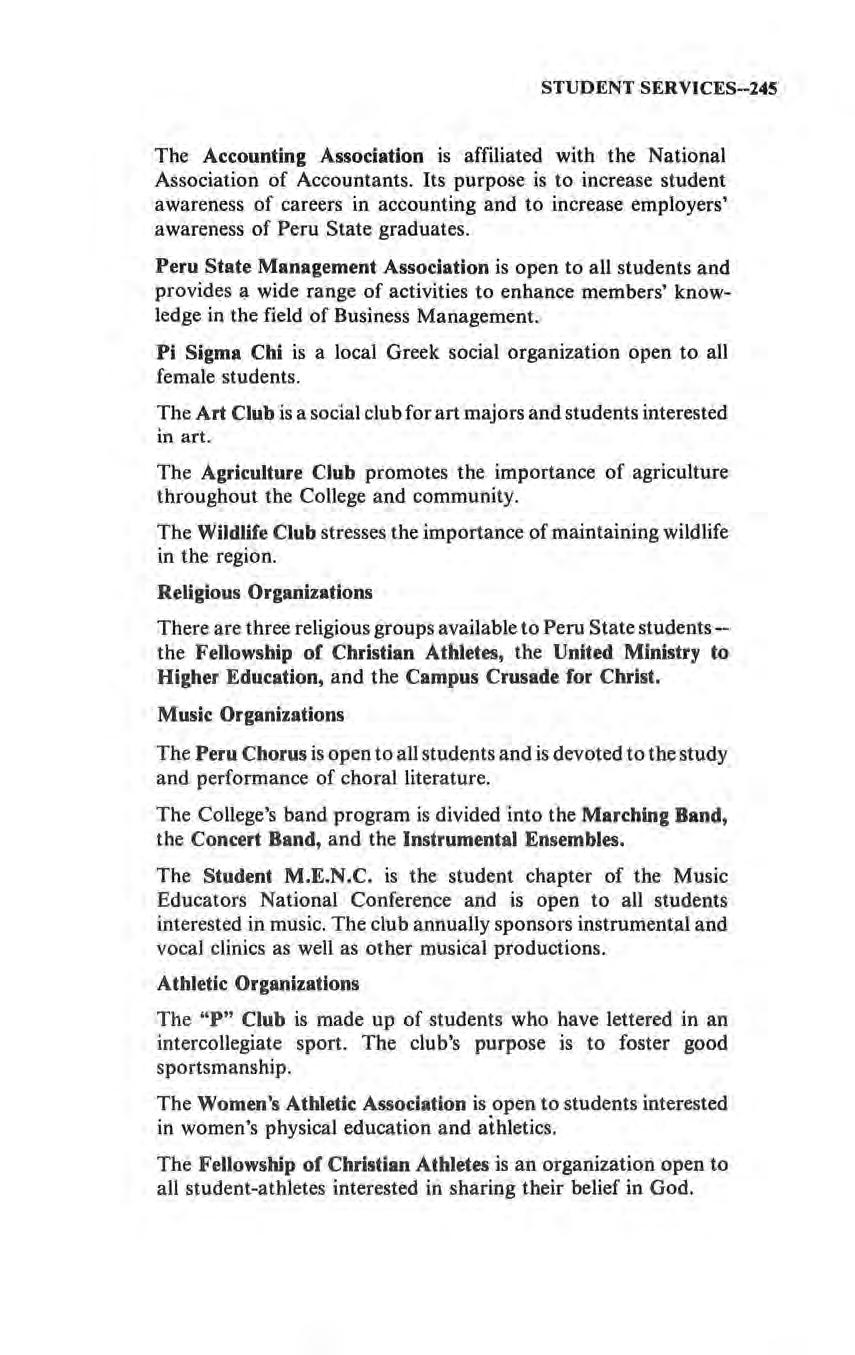
Religious Organizations
There are three religious groups available to Peru State students the Fellowship of Christian Athletes, the United Ministry to Higher Education, and the Campus Crusade for Christ.
Music Organizations
The Peru Chorus is open to all students and is devoted to the study and performance of choral literature.
The College's band program is divided into the Marching Band, the Concert Band, and the Instrumental Ensembles.
The Student M.E.N.C. is the student chapter of the Music Educators National Conference and is open to all students interested in music. The club annually sponsors instrumental and vocal clinics as well as other musical productions.
Athletic Organizations
The "P" Club is made up of students who have lettered in an intercollegiate sport. The club's purpose is to foster good sportsmanship.
The Women's Athletic Association is open to students interested in women's physical education and athletics.
The Fellowship of Christian Athletes is an organization open to all student-athletes interested in sharing their belief in God.
STUDENT SERVICES--245
The Peru State College Cheerleaders are chosen after a tryout before a panel of faculty and staff members. The squad leads chants and boosts school spirit at athletic events.
Honorary Societies
Alpha Chi is the College's national honorary scholarship society. It recognizes academic scholarship, good reputation, and character. The society's members are selected from the top ten percent of the junior and senior classes
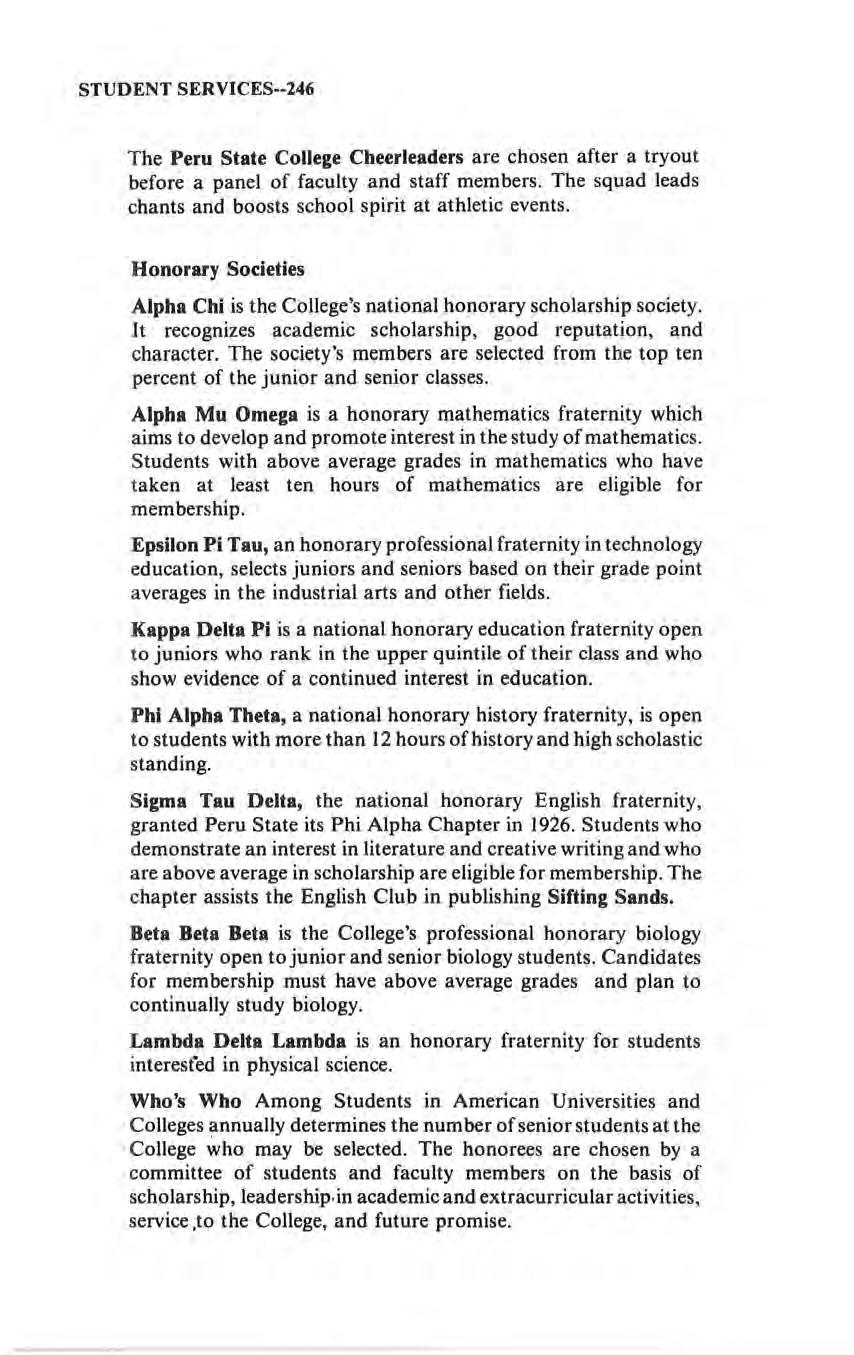
Alpha Mu Omega is a honorary mathematics fraternity which aims to develop and promote interest in the study of mathematics . Students with above average grades in mathematics who have taken at least ten hours of mathematics are eligible for membership.
Epsilon Pi Tau, an honorary professional fraternity in technology education, selects juniors and seniors based on their grade point averages in the industrial arts and other fields.
Kappa Delta Pi is a national honorary education fraternity open to juniors who rank in the upper quintile of their class and who show evidence of a continued interest in education.
Phi Alpha Theta, a national honorary history fraternity, is open to students with more than 12 hours of history and high scholastic standing.
Sigma Tau Delta, the national honorary English fraternity, granted Peru State its Phi Alpha Chapter in 1926. Students who demonstrate an interest in literature and creative writing and who are above average in scholarship are eligible for membership. The chapter assists the English Club in publishing Sifting Sands.
Beta Beta Beta is the College's professional honorary biology fraternity open to junior and senior biology students. Candidates for membership must have above average grades and plan to continually study biology.
Lambda Delta Lambda is an honorary fraternity for students interested in physical science.
Who's Who Among Students in American Universities and Colleges annually determines the number of senior students at the College who may be selected. The honorees are chosen by a committee of students and faculty members on the basis of scholarship, leadership-in academic and extracurricular activities, service ,tp the College, and future promise.
STUDENT SERVICES--246
Alpha Psi Omega, the national honorary theater fraternity, is represented on the Peru State campus by the Zeta Lambda Chapter. Scholastic ability and active theater participation are the criteria for membership
Student Publications
The Peru State Times is the official college newspaper. h is published during the school year under the supervision of an academic advisor. Student contributions are welcomed.
Sifting Sands is a magazine of student writing that is published in the spring by the English Club and Sigma Tau Delta.
The Peruvian is the student yearbook that is published during the school year under the supervision of an advisor.
Student Conduct
Students are expected to conduct themselves in accordance with the College's regulations and the city, state, and federal laws that apply to matters of personal conduct. The College reserves the right to exclude students, at any time, whose conduct is deemed to be undesirable or injurious to the best interests of the College or the student. Detailed information about student conduct is contained in the Student Life Handbook.
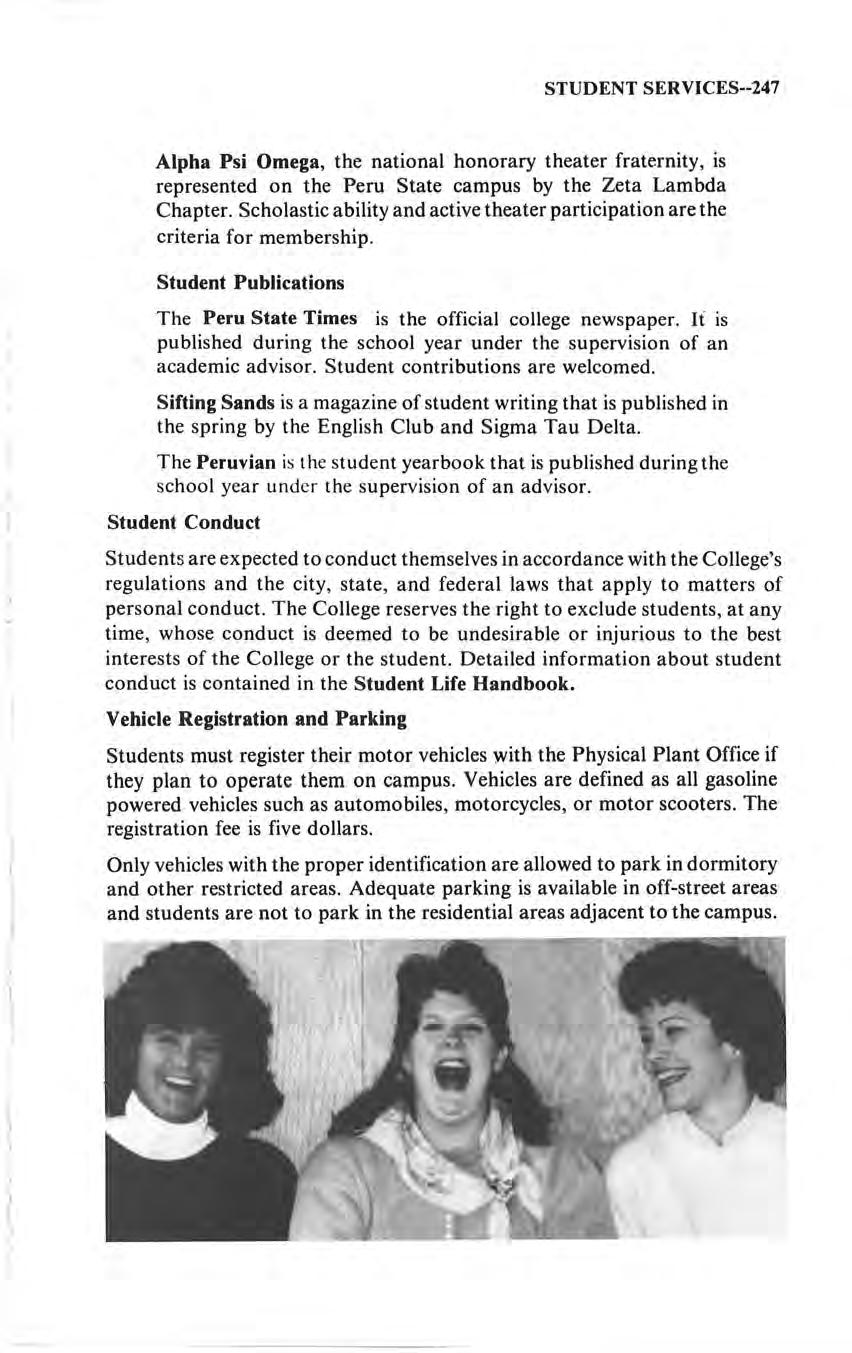
Vehicle Registration and Parking
Students must register their motor vehicles with the Physical Plant Office if they plan to operate them on campus. Vehicles are defined as all gasoline powered vehicles such as automobiles, motorcycles, or motor scooters. The registration fee is five dollars.
Only vehicles with the proper identification are allowed to park in dormitory and other restricted areas. Adequate parking is available in off-street areas and students are not to park in the residential areas adjacent to the campus.
STUDENT SERVICES--247
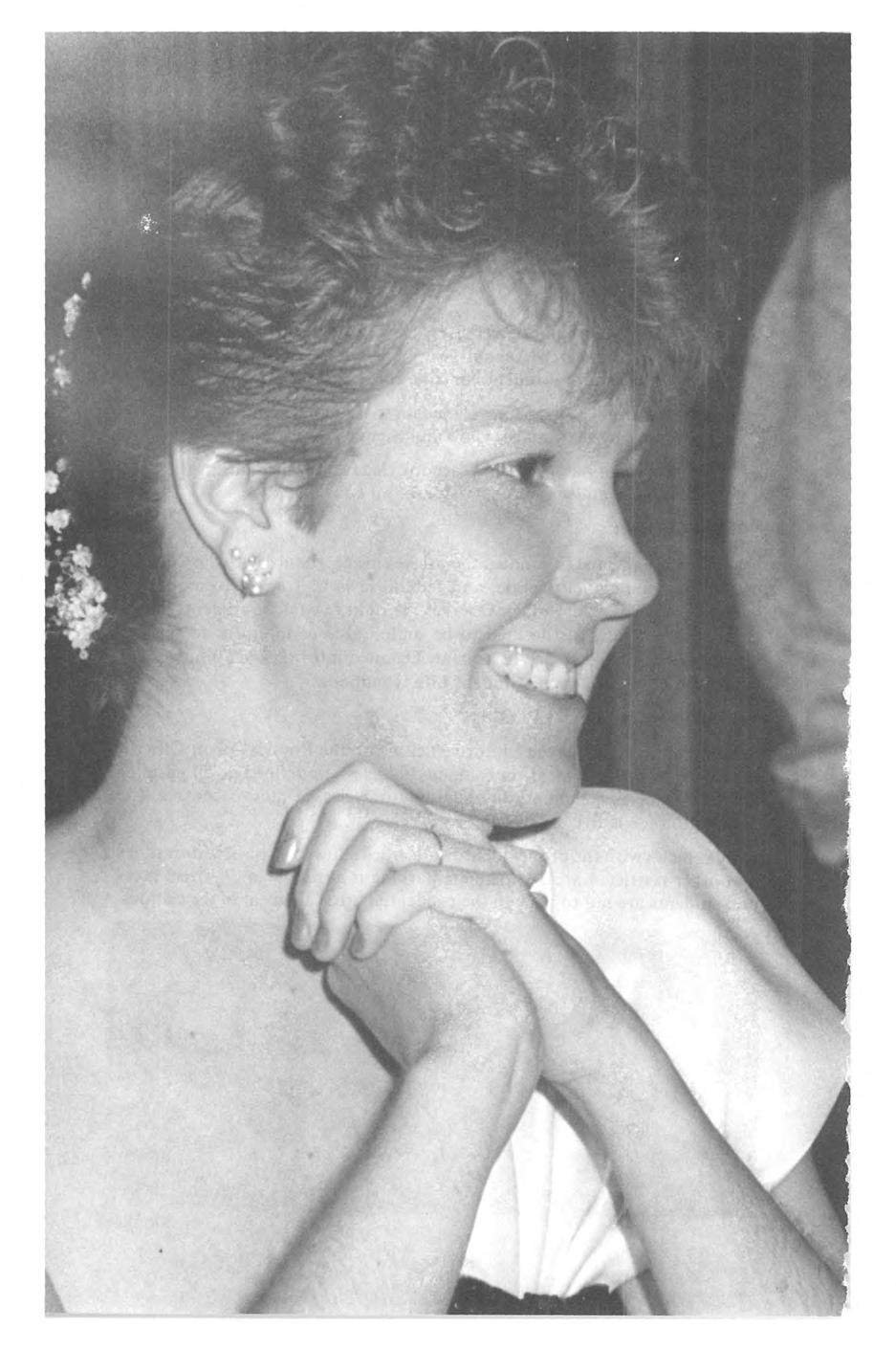
EXPENSES AND FINANCIAL AID
The expenses for attending Peru State College are set by the Board of Trustees of the Nebraska State Colleges and Peru State . Even though every effort is made to keep expenses down, the College reserves the right to change its tuition, fees , and other charges at any time. Additional expenses for books and supplies, travel, and personal items will vary for individual students.
Nebraska residency for tuition purposes is determined in accordance with Nebraska statutes and the policies of the Board of Trustees. Residency status is based upon evidence provided in a student's application for admission and related documents. The Office of Admissions classifies all new students
A currently enrolled non-resident student. who seeks Nebraska residency status must officially apply through the Office of the Registrar. The completed application and supporting documents must be submitted on or before the final date to drop and add courses without penalty. This date is published in the catalog and class schedule. A change in residency status is determined by the Registrar.
Students who gain resident status from non-resident status qualify for a specific term and subsequent terms. Students do not qualify as residents for any term of attendance prior to the initial resident term. In addition, a change in resident classification that occurs during a term, but prior to the application deadline, does not entitle a student to a tuition refund for that term .
Students are responsible for promptly notifying the Registrar if their resident status changes. A student's residency classification may be reviewed if there is evidence to indicate a change in legal residence.
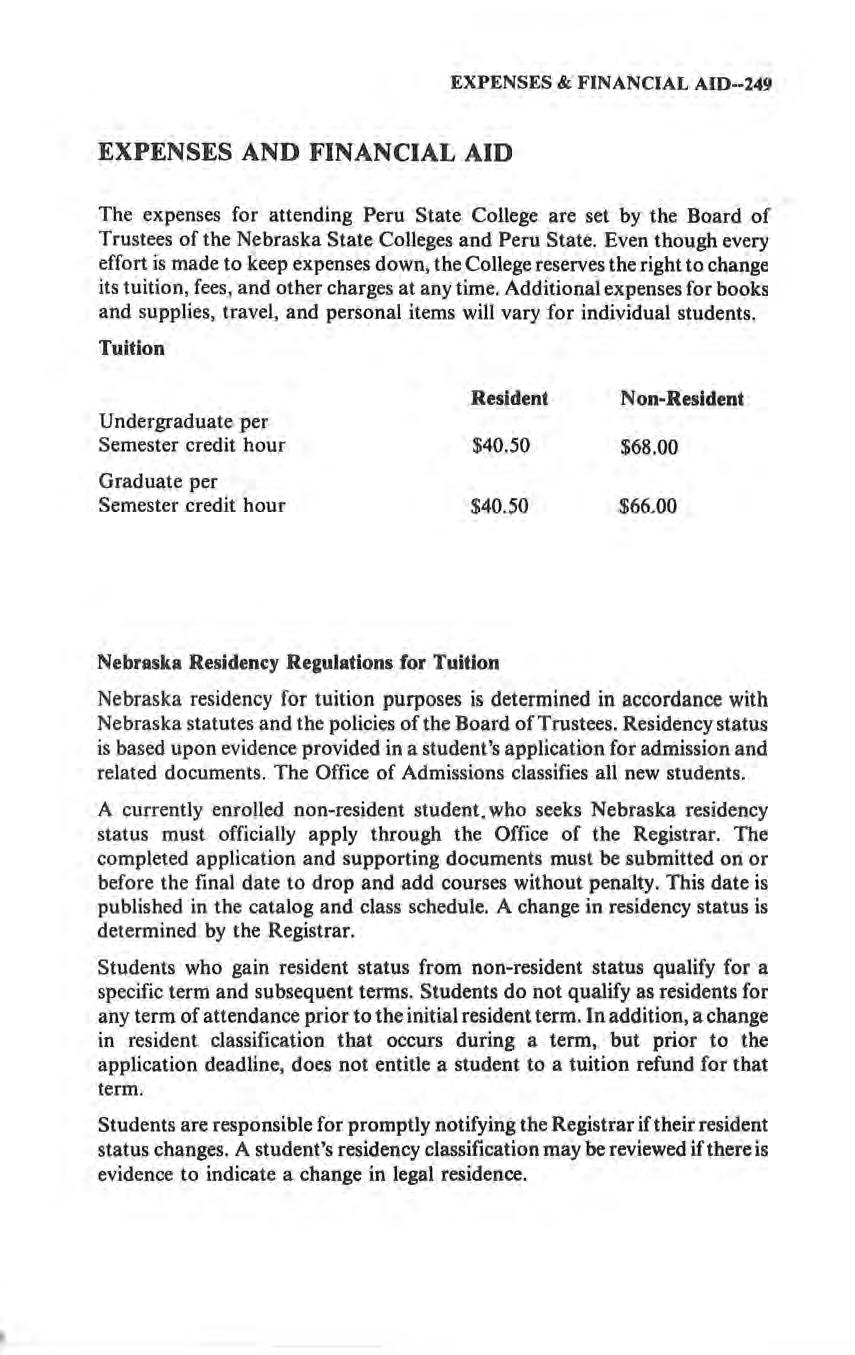
EXPENSES &'FINANCIAL AID--249
Tuition Undergraduate per Semester credit hour Graduate per Semester credit hour Resident $40 . 50 $40 50 Nebraska Residency Regulations for Tuition Non-Resident $68 00 $66.00
EXPENSES & FINANCIAL AID--250
Fees
Fees must be paid each semester at the time indicated in the academic calendar. Course credit will not be awarded unless fees have been paid, or arrangements for late payment have been approved by the Business Office.
Student Center Fee
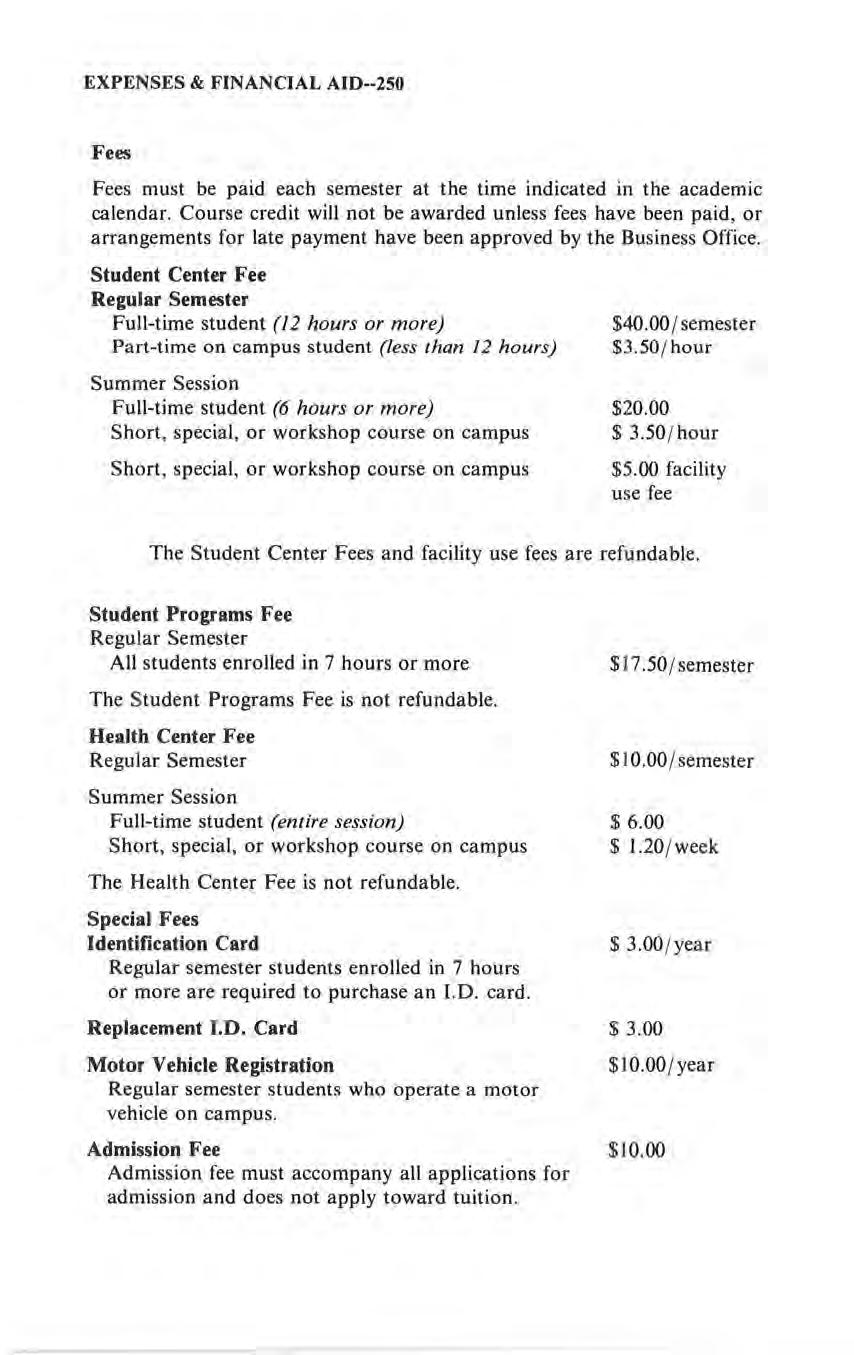
Regular Semester
Full-time student (12 hours or more)
Part-time on campus student (less than 12 hours)
Summer Session
Full-time student (6 hours or more)
Short, special , or workshop course on campus
Short, special, or workshop course on campus
The Student Center Fees and facility use fees are refundable.
Student Programs Fee
Regular Semester
All students enrolled in 7 hours or more
The Student Programs Fee is not refundable.
Health Center Fee
Regular Semester
Summer Session
Full-time student (entire session)
Short, special, or workshop course on campus
The Health Center Fee is not refundable.
Special Fees
Identification Card
Regular semester students enrolled in 7 hours or more are required to purchase an l.D. card
Replacement I.D. Card
Motor Vehicle Registration
Regular semester students who operate a motor vehicle on campus.
Admission Fee
$ 17 .50 / semester
/ semester
/ week
$3.50
$20.00 $ 3.50
$5 00 facility u se fee
$40.00 / semester
/ hour
/ hour
$10.00
$ 6.00 $ 1.20
$ 3.00
$ 3.00 $ 10 .00
Admission fee must accompany all applications for admission and does not apply toward tuition. $10.00
/ year
/ year
Late Registration Fee
Late Tuition Fee
Administration of CLEP test
Private Music Lessons
Charged to non-Music majors.
Off-Campus Service Fee
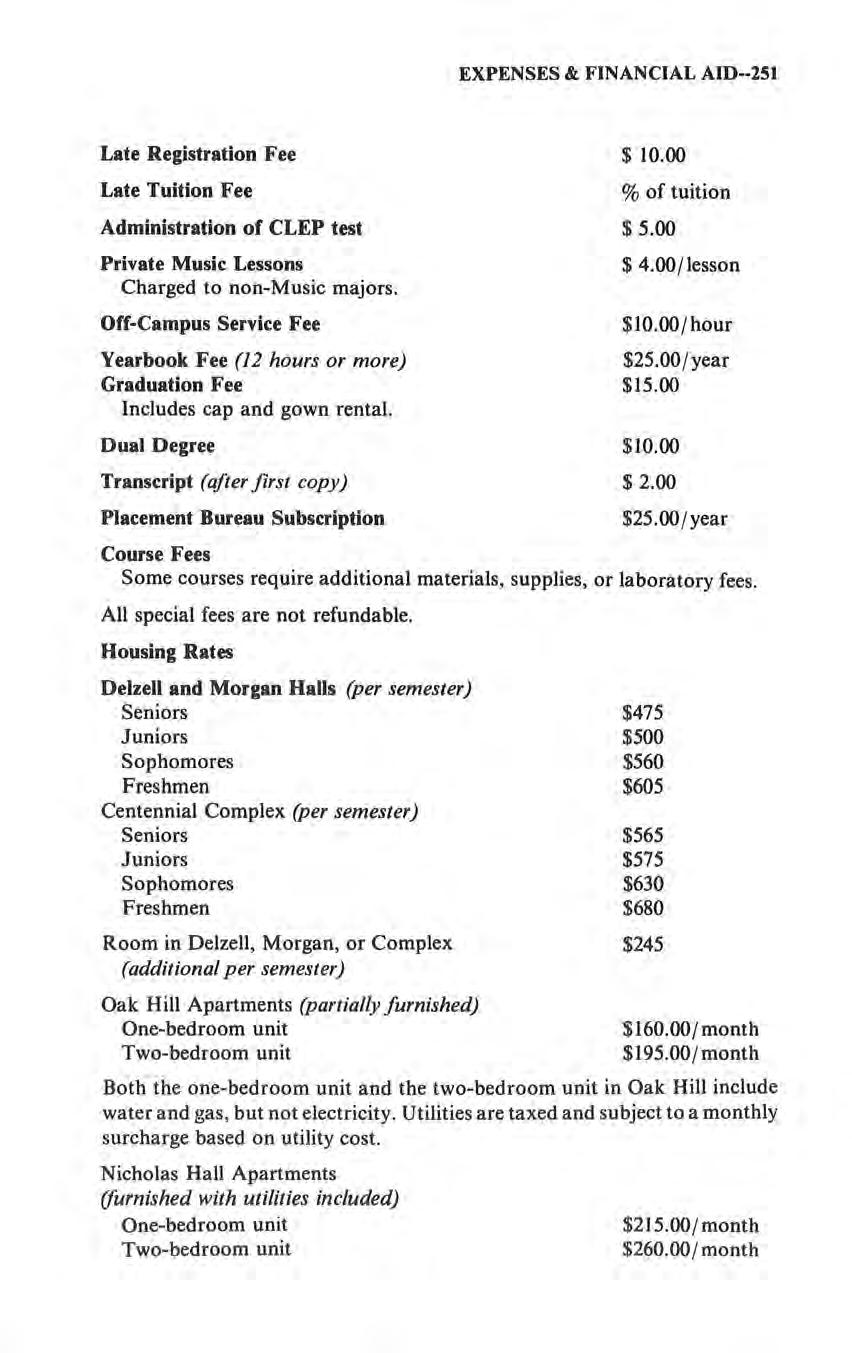
Yearbook Fee (12 hours or more)
Graduation Fee
Includes cap and gown rental.
Dual Degree Transcript (after first copy)
Placement Bureau Subscription
Course Fees
$ 10.00
of tuition
Some courses require additional materials, supplies, or laboratory fees. All special fees are not refundable.
Housing Rates
Delzell and Morgan Halls (per semester)
Seniors
Juniors
Sophomores
Freshmen
Centennial Complex (per semester)
Seniors
Juniors
Sophomores
Freshmen
Room in Delzell, Morgan, or Complex (additional per semester)
Oak Hill Apartments (partially furnished) One-bedroom unit
Both -the one-bedroom unit and the two-bedroom unit in Oak Hill include water and gas , but not electricity. Utilities are taxed and subject to a monthly surcharge based on utility cost.
Nicholas Hall Apartments (furnished with utilities included)
EXPENSES & FINANCIAL AID--251
$15.00 $10.00
$25.00/year
%
$ 5.00 $ 4.00/lesson $10.00/hour $25.00/year
$ 2.00
Two-bedroom
$475 $500 $560 $605 $565 $575 $630 $680 $245 $160.00/month $195.00/month
unit
$215.00/month $260 .00
One-bedroom unit Two-bedroom unit
/ month
EXPENSES & FINANCIAL AID--252
Housing Contracts
Students who reside in college housing enter into a contract with the College Advanced reservations are required and a $75 / year deposit must accompany each housing request. The deposit is refundable, less any deductions for damage to buildings and/ or equipment, if the student resides in the housing for the full year of the contract or withdraws for College-approved reasons.
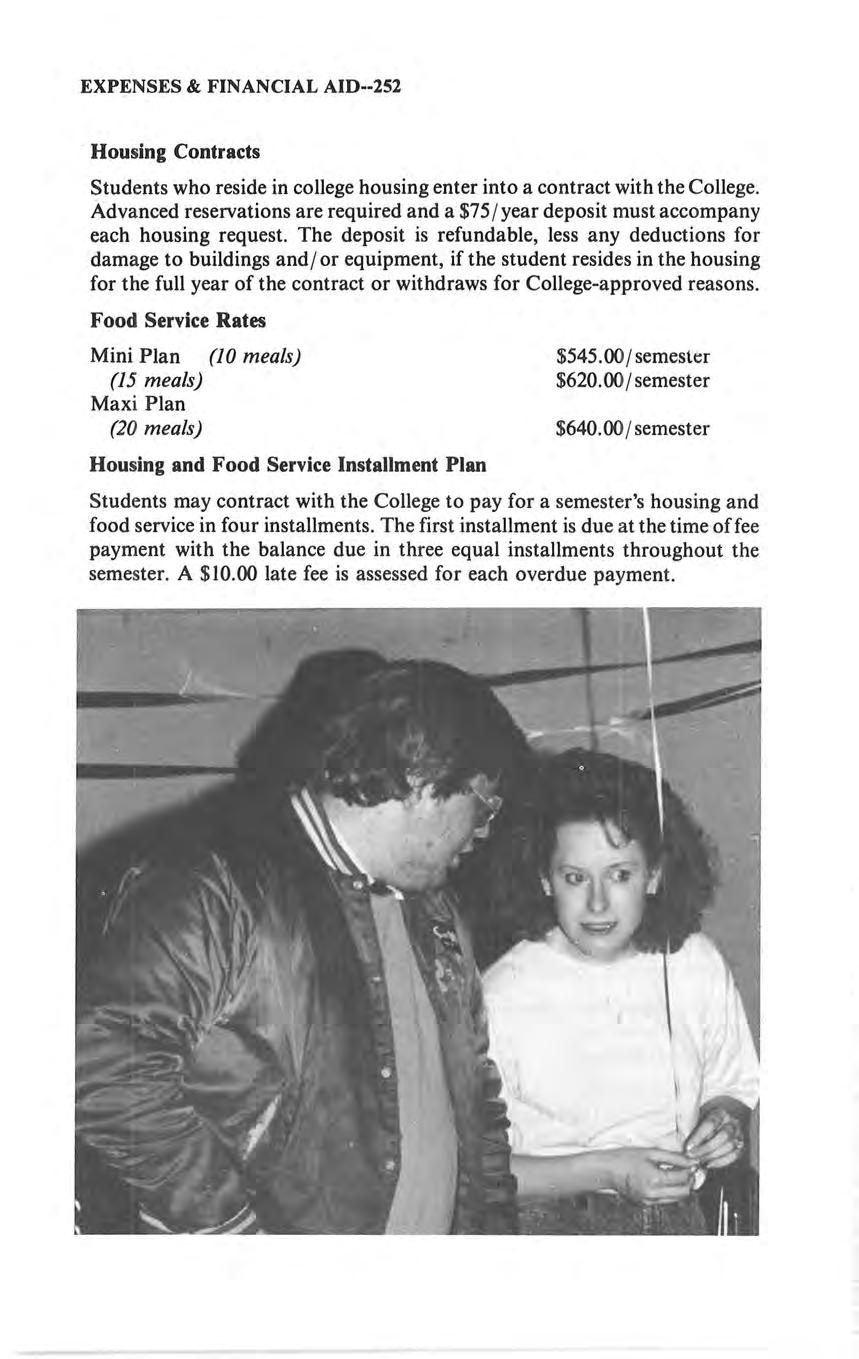
Food Service Rates
Mini Plan (10 meals) (15 meals)
Maxi Plan (20 meals)
Housing and Food Service Installment Plan
$545 00 / semestt:r
$620.00/ semester
$640. 00 / semester
Students may contract with the College to pay for a semester's housing and food service in four installments . The first installment is due at the time of fee payment with the balance due in three equal installments throughout the semester. A $10 00 late fee is assessed for each overdue payment.
tuition Refunds
Tuition is refunded in accordance with College policies and the schedules that follow. In addition, refunds may not go directly to the student, but to the source of the original payment.
Withdrawal from Class
Tuition refunds are granted for a reduction in semester credit hours through the final date to add regular semester courses as indicated in the catalog. The final date to withdraw from class during the summer session is a proportional period of time .
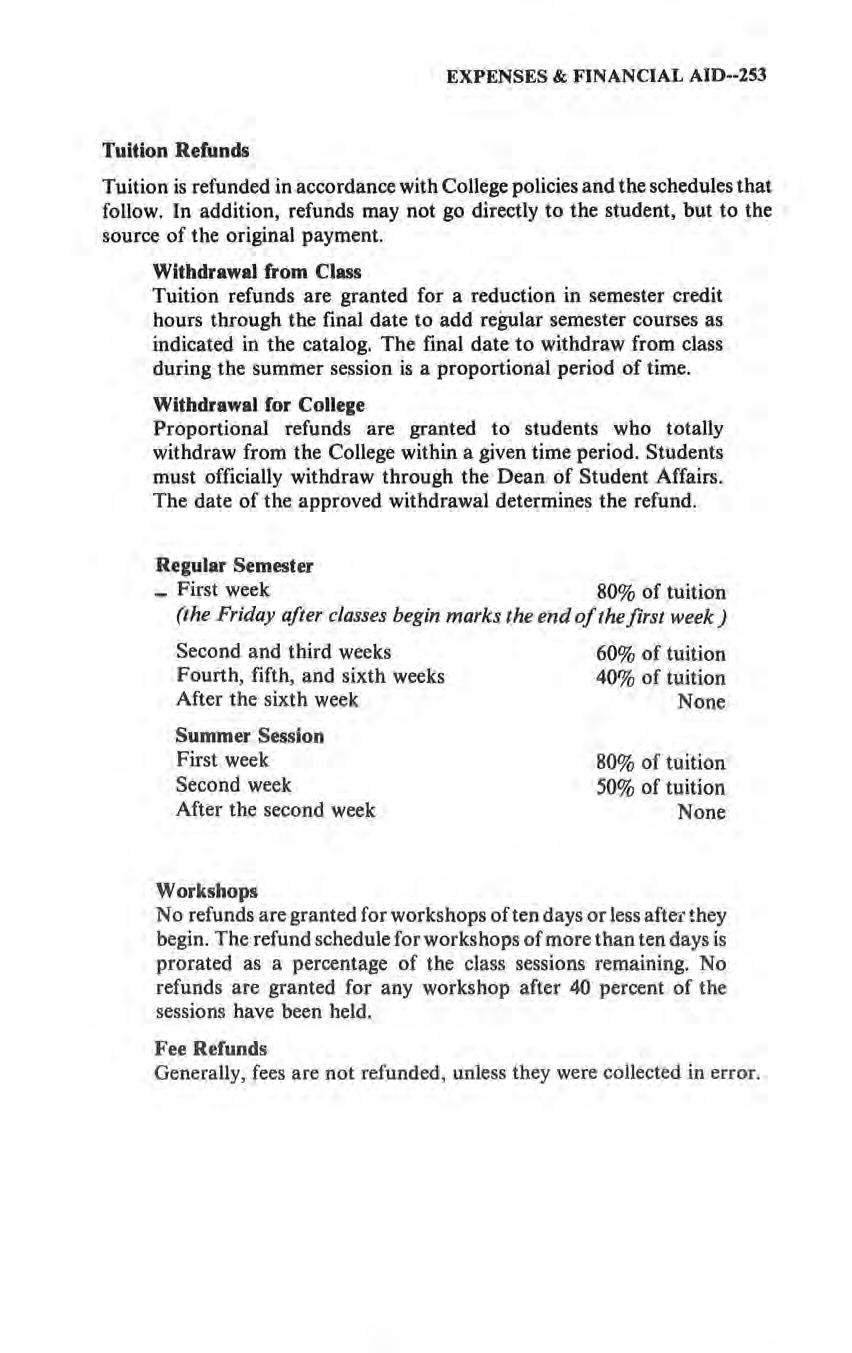
Withdrawal for College
Proportional refunds are granted to students who totally withdraw from the College within a given time period. Students must officially withdraw through the Dean of Student Affairs. The date of the approved withdrawal determines the refund.
Regular Semester
- First week 80% of tuition (the Friday after classes begin marks the end of the first week)
Second and third weeks
Fourth, fifth, and sixth weeks
After the sixth week
Summer Session
First week
Second week
After the second week Workshops
No refunds are granted for workshops often days or less after they begin. The refund schedule for workshops of more than ten days is prorated as a percentage of the class sessions remaining. No refunds are granted for any workshop after 40 percent of the sessions have been held.
Fee Refunds
Generally, fees are not refunded, unless they were collected in error.
EXPENSES & FINANCIAL AID--253
60%
40% of tuition None 80% of tuition 50% of tuition None
of tuition
EXPENSES & FINANCIAL AID--254
Housing and Food Service Refunds
Refunds are granted to students who totally withdraw from the College or . who move out of college housing and remain a commuter student within a given time period or who cancel food service. Students must officially withdraw through the Dean of Student Affairs and must officially leave campus housing or cancel food service through the Director of Residence Life. The date of the approved withdrawal or cancellation determines the refund.
Regular Semester
First Week
(The Friday after classes begin marks the end of the first week.)
Second & third weeks
Fourth, fifth, & sixth weeks
After the sixth week
Summer Session
First Week - Second Week
After Second Week
Financial Aid
Financial need should not discourage any student from attending Peru State. The College provides a variety of ways for students with limited resources to meet the costs of their education. An extensive program of grants, scholarships, loans, and jobs is available to students with financial need. Financial need is defined as the difference between the support students are expected to provide and the costs of their education. To be considered for aid, students must demonstrate financial need.
"Financial packaging" allows the Director of Financial Aid to tailor a program of assistance to meet a student's financial need. The aid package is developed on the basis of the applicant's estimated resources and educational costs for one academic year. It usually consists of two or more types of aid which cannot exceed the student's need and which may include a Pell grant, student loans, College Work Study, or scholarships. Students who qualify for one program of financial aid may not necessarily qualify for another.
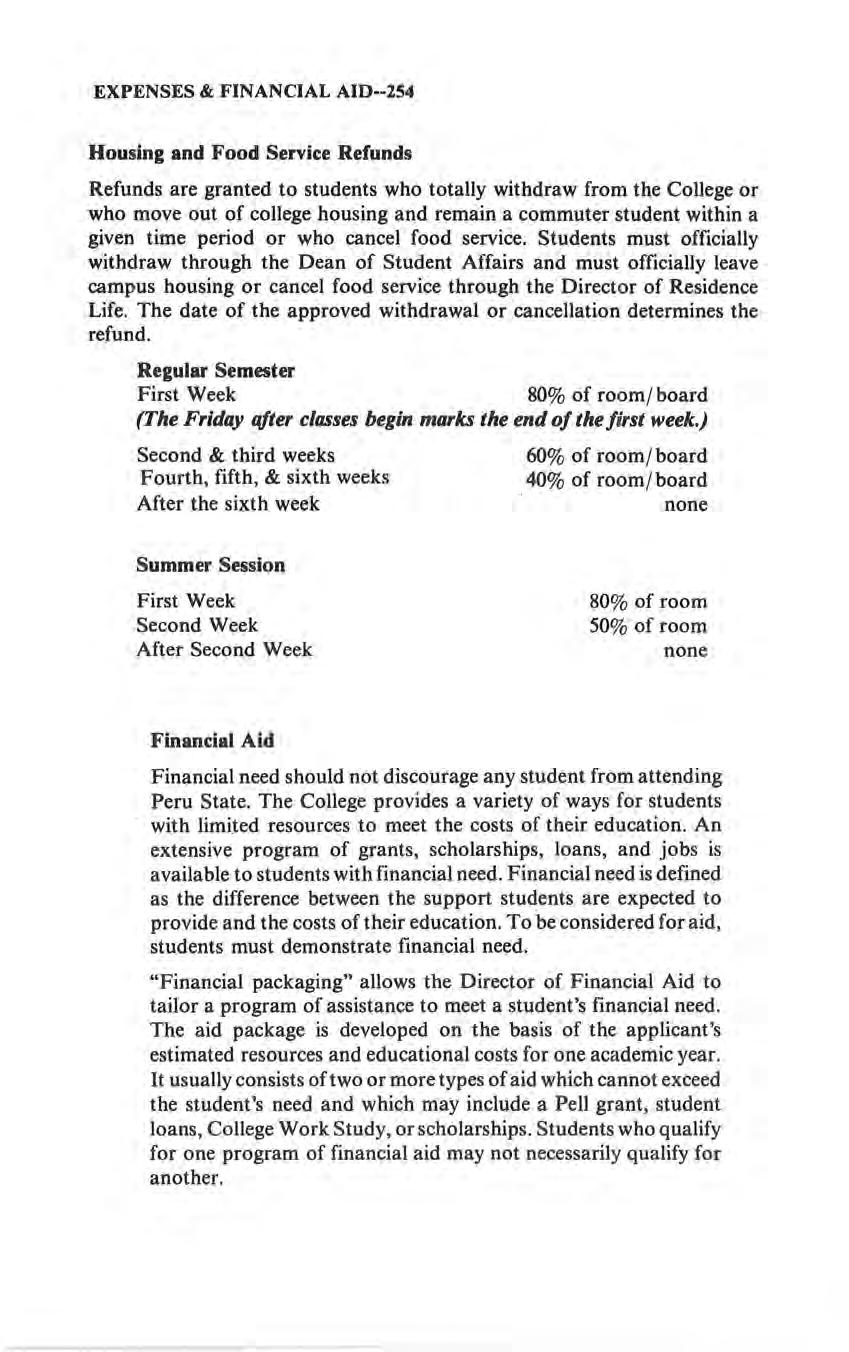
80% of room/board
60% of room/ board 40% of room/ board none 80% of room 50% of room none
Applying for Financial Aid
Students who need financial aid or wish to apply for a scholarship should contact the Director of Financial Aid. It is recommended that students apply well before the deadline because establishing financial need is often a lengthy process. Applications for financial aid should be submitted to the Office of Financial Aid by April I for the upcoming academic year. Students are required to apply each academic year.
Federally-Funded Programs
Pell G~ants
Formerly called Basic Educational Opportunity Grants, Pell Grants are determined after considering college costs and the Pell Grant Index. This index is calculated from the financial statement on the student's financial aid application .
Supplementary Educational Opportunity Grahts (SEOG)
These grants are awarded to students who have exceptional financial need. The grants range from $200 to $1,000 a year , and can be no mor e than one-half of a student's total assistance. Each grant is "matched" with other financial aid to meet the student's need All grants are awarded yearly for a maximum of eight semesters .
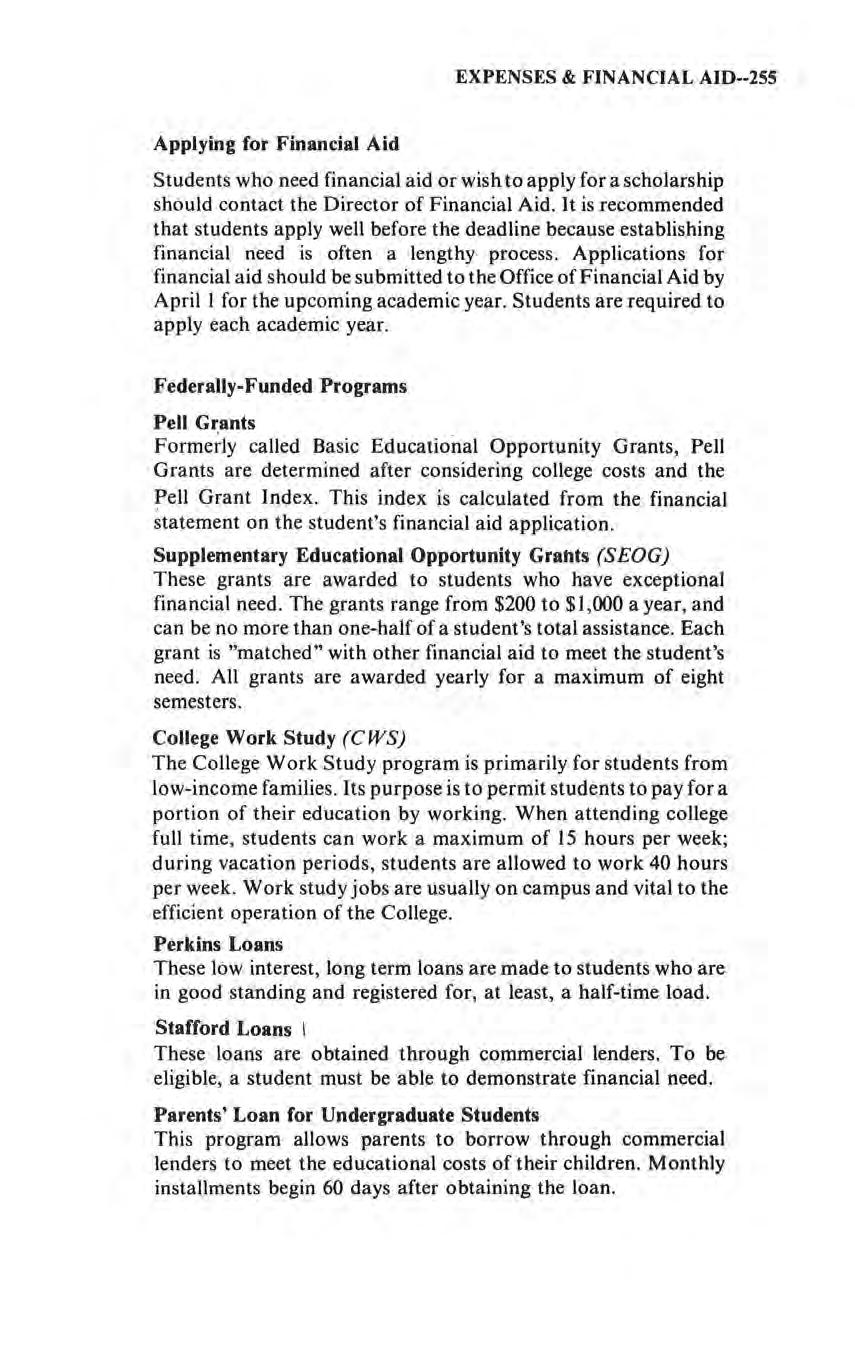
College Work Study (CWS)
The College Work Study program is primarily for students from low-income families. Its purpose is to permit students to pay for a portion of their education by working When attending college full time , students can work a maximum of 15 hours per week ; during vacation periods , students are allowed to work 40 hours per week . Work study jobs are usually on campus and vital to the efficient operation of the College.
Perkins Loans
These low interest , long term loans are made to students who are in good standing and registered for, at least , a half-time load.
Stafford Loans I
These loans are obtained through commercial lenders . To be eligible , a student must be able to demonstrate financial need
Parents ' Loan for Undergraduate Students
This program allows parents to borrow through .commercial lenders to meet the educational costs of their children Monthly in sta!Jments begin 60 days after obtaining the loan .
EXPENSES & FINANCIAL AID--255
State-Funded Programs
Nebraska State Loan for Math and Science Teachers
This loan was established by the State of Nebraska to assist Nebraska students studying to be Math and Science teachers in Nebraska. Information and applications may be obtained from the Nebraska Department of Education.
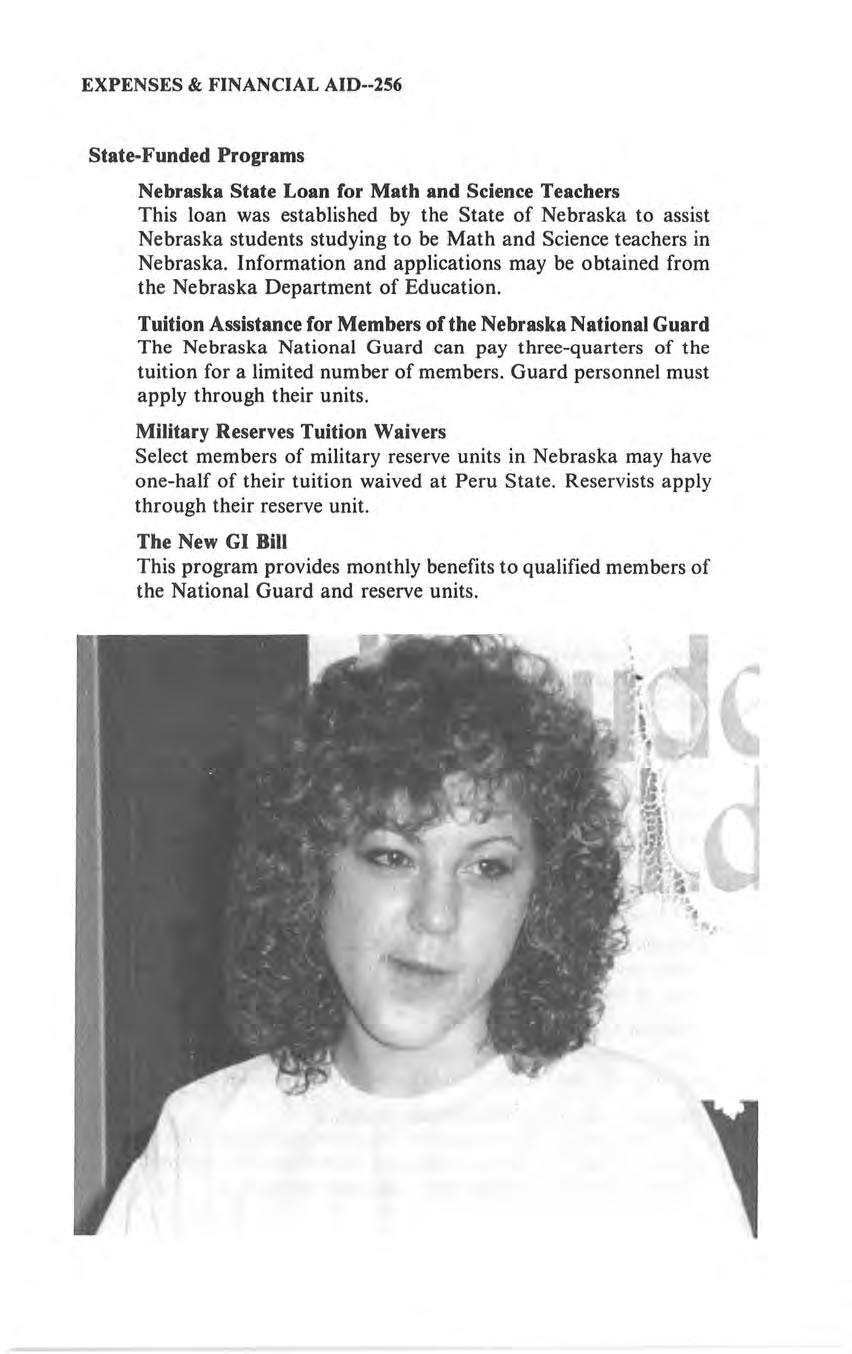
Tuition Assistance for Members of the Nebraska National Guard
The Nebraska National Guard can pay three-quarters of the tuition for a limited number of members. Guard personnel must apply through their units.
Military Reserves Tuition Waivers
Select members of military reserve units in Nebraska may have one-half of their tuition waived at Peru State. Reservists apply through their reserve unit.
The New GI Bill
This program provides monthly benefits to qualified members of the National Guard and reserve units.
EXPENSES & FINANCIAL AID--256
Institutionally-Funded Programs
College Work Jobs
These jobs are similar to College Work Study jobs in pay, type of work, and hours worked.
Sheridan Livermore Loan Fund
These loan funds are provided at current bank interest rates to students who have completed a minimum of 60 hours at Peru State, have demonstrated financial responsibility , and need a short term loan to meet unexpected expenses or the expenses related to employment relocation
Board of Trustees Scholarships
The Board of Trustees of the Nebraska State Colleges provides full tuition scholarships for current graduates of Nebraska high schools who have demonstrated outstanding academic achievement based on class rank and entrance examinations. The scholarships are renewable to cover four regular academic years. The application deadline is January 15.
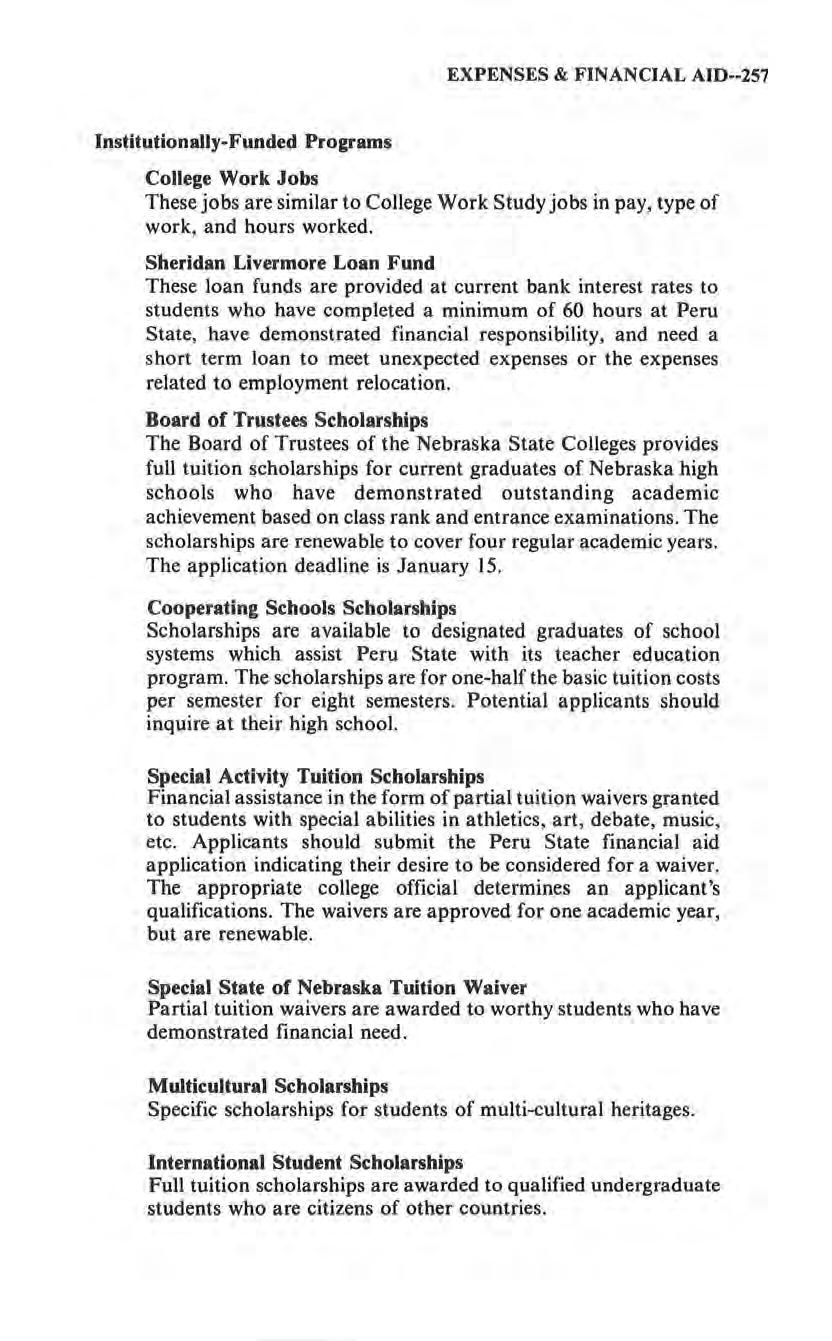
Cooperating Schools Scholarships
Scholarships are available to designated graduates of school systems which assist Peru State with its teacher education program. The scholarships are for one - half the basic tuition costs per semester for eight semesters. Potential applicants should inquire at their high school.
Special Activity Tuition Scholarships
Financial assistance in the form of partial tuition waivers granted to students with special abilities in athletics, art, debate, music , etc. Applicants should submit the Peru State financial aid application indicating their desire to be considered for a waiver . The appropriate college official determines an applicant's qualifications. The waivers are approved for one academic year, but are renewable .
Special State of Nebraska Tuition Waiver
Partial tuition waivers are awarded to worthy students who have demonstrated financial need
Multicultural Scholarships
Specific scholarships for students of multi-cultural heritages
International Student Scholarships
Full tuition scholarships are awarded to qualified undergraduate students who are citizens of other countries .
EXPENSES & FINANCIAL AID--257
Peru State College Foundation Scholarships
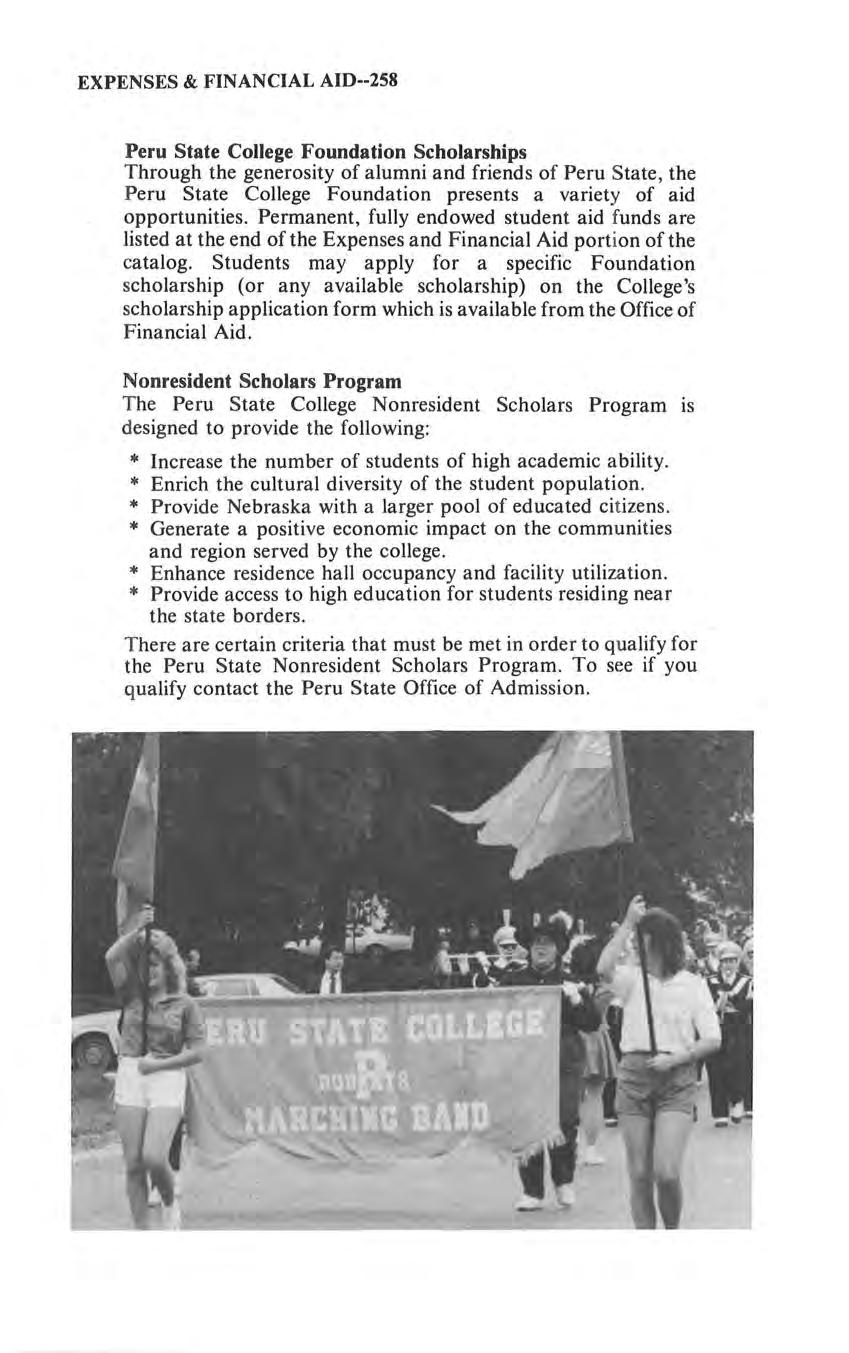
Through the generosity of alumni and friends of Peru State , the Peru State College Foundation presents a variety of aid opportunities. Permanent, fully endowed student aid funds are listed at the end of the Expenses and Financial Aid port i on of the catalog. Students may apply for a specific Foundation scholarship (or any available scholarship) on the College's scholarship application form which is available from the Office of Financial Aid.
Nonresident Scholars Program
T he Peru State College Nonresident Scholars Program is designed to provide the following:
* Increase the number of students of high academic ability.
* Enrich the cultural diversity of the student population.
* Provide Nebraska with a larger pool of educated ci t izens .
* Generate a positive economic impact on the communities and region served by the college .
* Enhance residence hall occupancy and facility utilization.
* Provide access to high education for students residing near the state borders.
T here are certain criteria that must be met in order to qualify for the Peru State Nonresident Scholars Program. To see if you qualify contact the Peru State Office of Admission.
EXPENSES & FINANCIAL AID--258
Other Sources of Financial Aid
Nebraska Congress of Parents and Teachers Scholarships
The Nebraska Congress of Parents and Teachers awards scholarships to full-time students of the Nebraska State Colleges who are Nebraska residents studying to be teachers. To be eligible, students must have a pleasing personality , high moral and social standards , and show an aptitude for teaching. Applications are available at the Office of Financial Aid shortly after the beginning of the Fall semester.
State Vocational Rehabilitation Aid
Students with physical disabilities that constitute a vocational handicap are eligible for financial assistance to meet their ,c osts of tuition and other financial needs through the Division of Vocational Rehabilitation. Potential applicants should contact the Office of Financial Aid for more information.
Veteran's Benefits
Peru State is an approved institution under the provisions of Chapter 36, Title 38 of the U.S. Code where any eligible veteran or dependent may receive VA benefits while attending College.
Any student receiving benefits through the Veteran ' s Administration is required to meet the Scholastic Standards outlined in the catalog . In addition, these students are required to make normal progress toward their educational objectives as defined in the catalog.
Academic Requirements for Financial Eligibility
Students who receive financial aid from any federally-funded and / or Collegeadministered financial aid program are required to maintain satisfactory academic standing and progress. The standards for satisfactory academic standing are published under the Academic Standards portion of the catalog; the standards for satisfactory academic progress for financial aid are published in the Student Handbook.
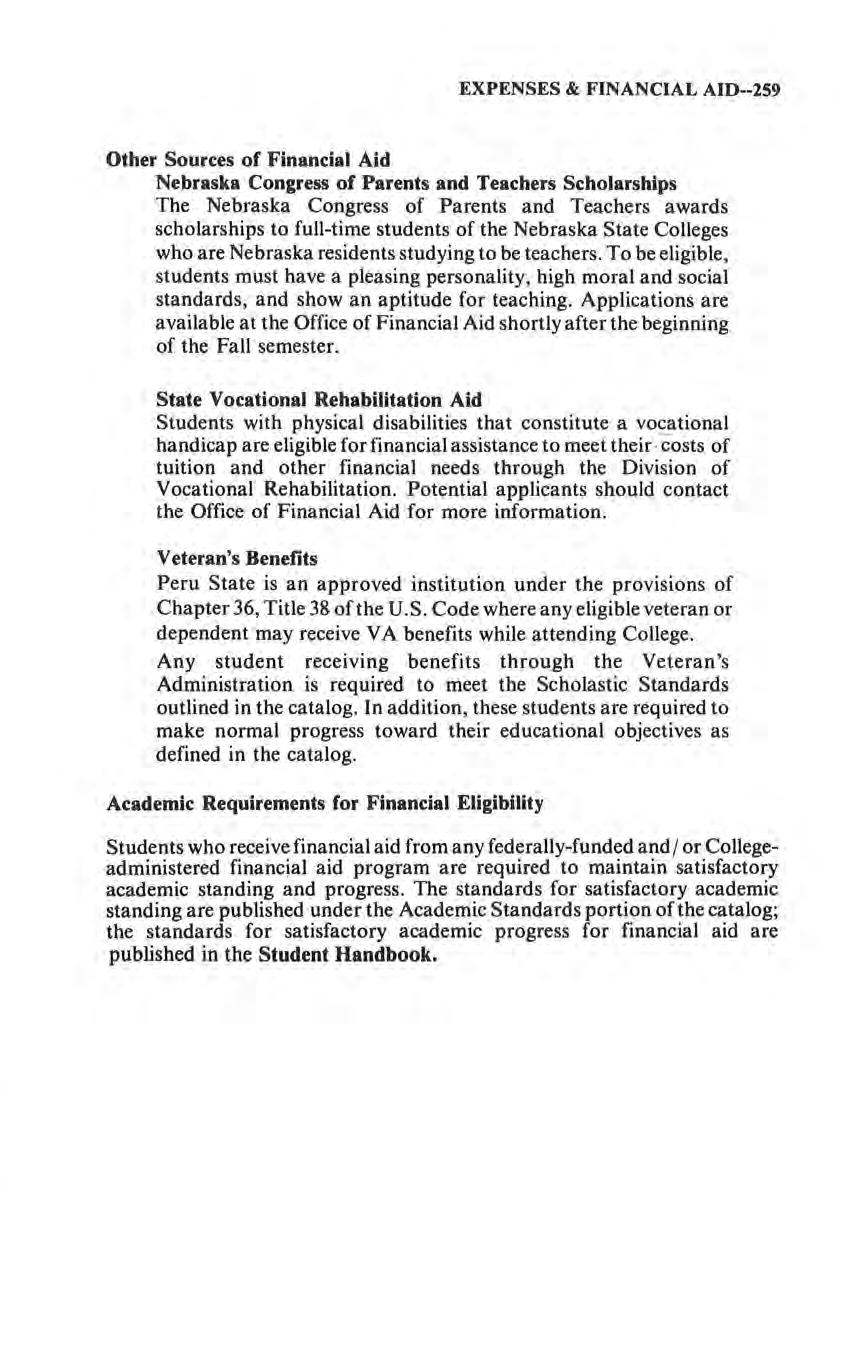
EXPENSES & FINANCIAL AID--259
EXPENSES & FINANCIAL AID--260
Scholarships
The Peru State College Foundation administers several scholarship funds. Scholarships are awarded on the basis of academic achievement, financial need and/ or a combination of both. Scholarships and other financial aid are available to deserving students because of the generous contributions of alumni, friends, corporations and foundations.
Hanson and Amber Aldrich Scholarship
This scholarship is provided to an incoming freshman from Nemaha County planning to enroll in Education at PSC. Amber Jodry Aldrich was a 1923 graduate of Peru State.
Laurine Anderson Tri Beta Scholarship
The recipient of this scholarship is selected by the Natural Science Division and must be a Biology major and member of Tri Beta. The scholarship was established by Laurine Anderson, class of 1928, and a charter member of the Peru chapter of Tri Beta.
Charles Andrews Memorial Scholarship
This fund was established as a memorial to Charles Andrews, a 1914 graduate of the College. The scholarship is awarded to an incoming freshman who shows academic promise and may be renewed depending on the student's grade point average.
Bath Family Memorial Scholarship
These scholarships were established in 1967 by Mrs. M innie Bath in memory of her husband John Bath and her two sons, Edward J. and Robert L. Bath. They are awarded for academic achievement.
Lillian Jewell Barnes and Alice Jewell Warnock Memorial Scholarship
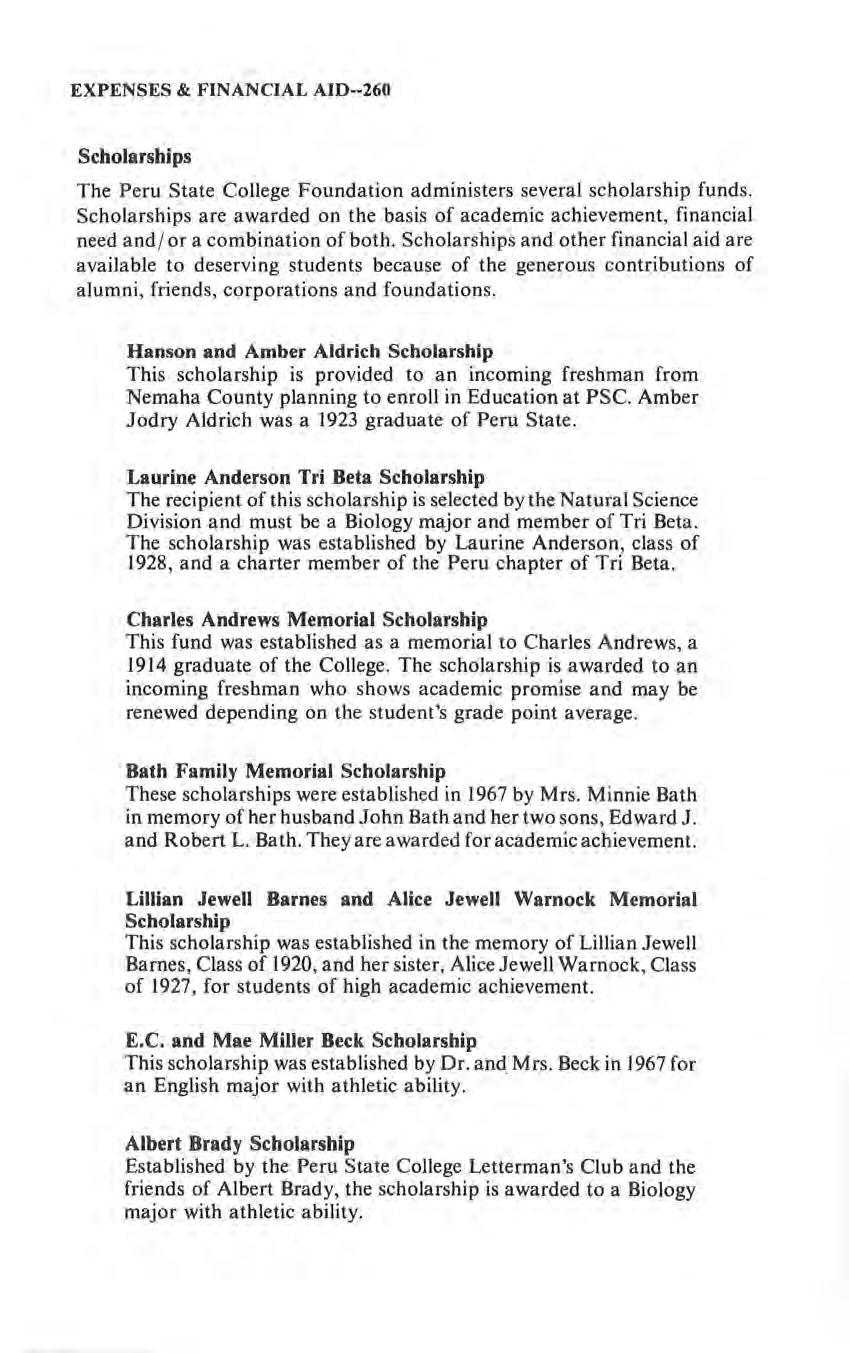
This scholarship was established in the memory of Lillian Jewell Barnes, Class of 1920, and her sister, Alice Jewell Warnock, Class of I 927, for students of high academic achievement.
E.C. and Mae Miller Beck Scholarship
This scholarship was established by Dr. and. Mrs. Beck in I 967 for an English major with athletic ability.
Albert Brady Scholarship
Established by the Peru State College Letterman's Club and the friends of Albert Brady, the scholarship is awarded to a Biology major with athletic ability.
Pearl Morgan Butler Memorial Scholarship
The scholarship provides for all tuition and fees as the fund allows . It was established by Joy Elmer Morgan in the memory of his sister who attended the College in 1905.
Dr. Edward Camealy Scholarship
Mrs. Edward (Ruth) Camealy provided funds for this scholarship , memorializing her late husband who served Peru State College from 1960 through 1984 . The recipient must be a sophomore or beyond and a declared Music major, with preference given to vocal music students .
Roy Chamberlain Scholarship
The Roy Chamberlain Scholarship was provided by Mrs. Chamberlain in memory of her husband Roy, a 1927 Alumni of Peru State College Any full-time male student is eligible to apply
C.C. and Erma Wilson Choyce Scholarship
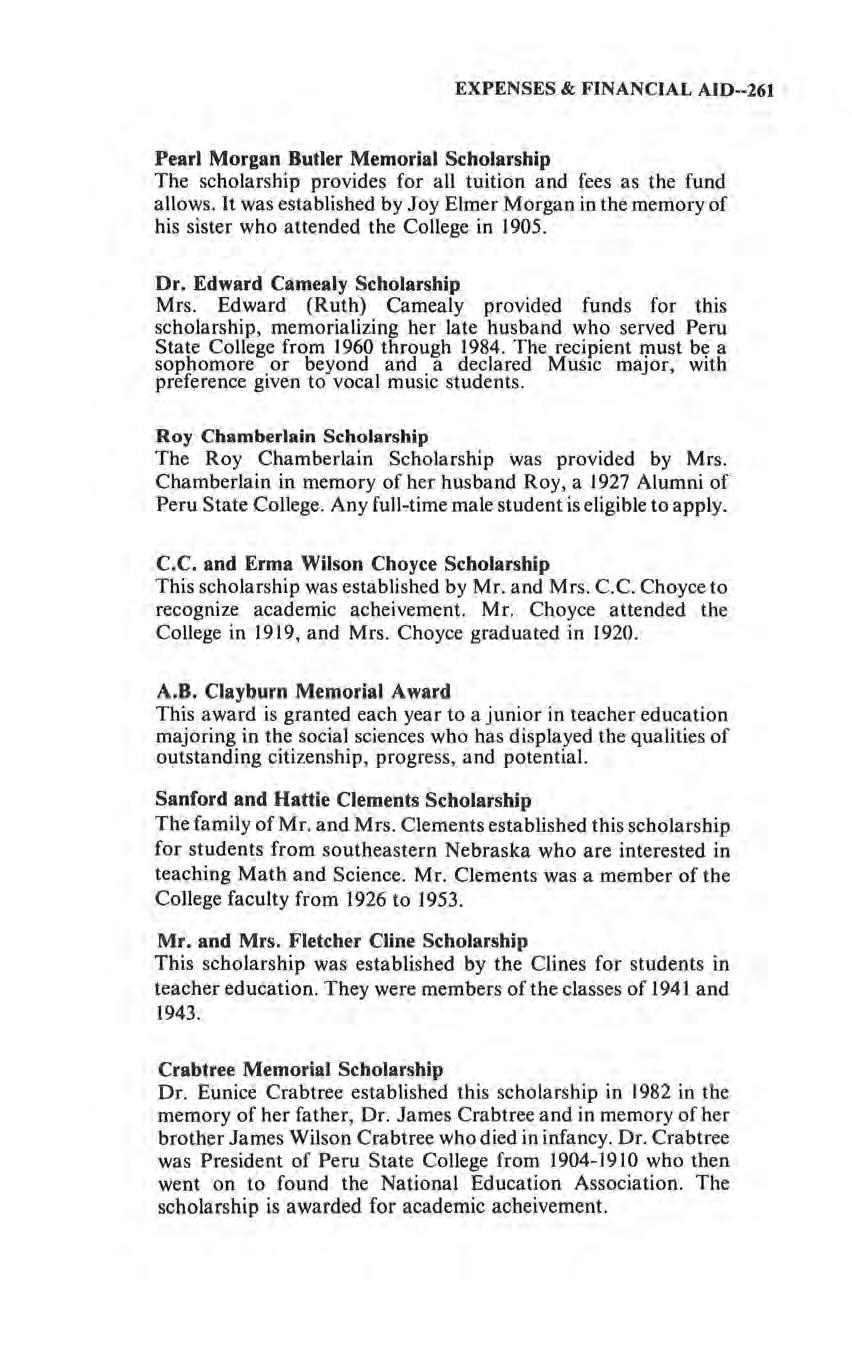
This scholarship was established by Mr . and Mrs . C.C. Choyce to recognize academic acheivement. Mr. Choyce attended the College in 1919 , and Mrs. Choyce graduated in 1920.
A.B. Clayburn Memorial Award
This award is granted each year to a junior in teacher education majoring in the social sciences who has displayed the qualities of outstanding citizenship, progress, and potential.
Sanford and Hattie Clements Scholarship
The family of Mr. and Mrs. Clements established this scholarship for students from southeastern Nebraska who are interested in teaching Math and Science. Mr. Clements was a member of the College faculty from 1926 to 1953.
Mr. and Mrs. Fletcher Cline Scholarship
This scholarship was established by the Clines for students in teacher education. They were members of the classes of 1941 and 1943
Crabtree Memorial Scholarship
Dr Eunice Crabtree established this scholarship in 1982 in the memory of her father, Dr. James Crabtree and in memory of her brother James Wilson Crabtree who died in infancy. Dr. Crabtree was President of Peru State College from 1904 - 1910 who then went on to found the National Education Association. The scholarship is awarded for academic acheivement.
EXPENSES & FINANCIAL AID--261
Ada Crooker Memorial Scholarship
This scholarship was established in the memory of Ada Crooker who taught business at Auburn High School. The recipient must be a female graduate of Auburn High School majoring in Business at the College.
Phyllis Davidson Memorial Scholarship
This scholarship was established by Dr. Lois Christensen, a 1948 alumna in the memory of Phyllis Davidson who served Peru State from 1929 to 1957 as professor of women's Physical Education.
Hobart Davidson Scholarship
The brother of long-time women's Physical Education instructor Phyllis Davidson funded serveral scholarships to be awarded to both traditional and non-traditional students, including some scholarships specified for out-of-state students. Phyllis Davidson served Peru State College from 1929 until 1957 Hoba r t Davidson was an attorney in Oklahoma.
Lura Hendricks Eichler Memorial Kindergarten Education Award
This award is presented annually to a student who has demonstrated ability, aptitude, and interest in kindergarten education.
Mac Dunning Industrial Arts Award
This is an annual cash grant given to an outstanding student in Industrial Technology and Education.
First Federal Savings and Loan of Lincoln Scholarship
This scholarship is provided to students of Peru State College by First Federal Savings and Loan of Lincoln.
Elsie I. Fisher Memorial Scholarship
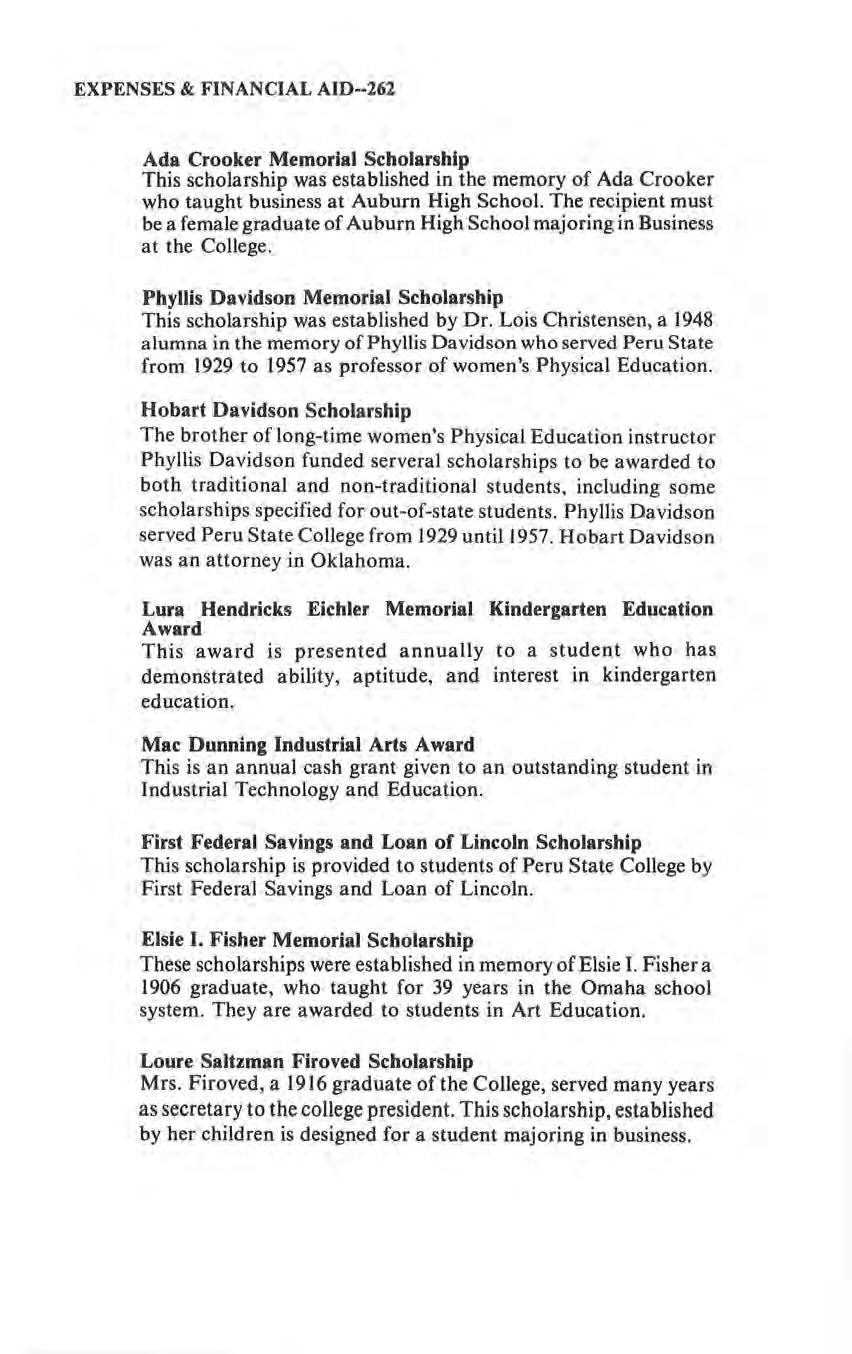
These scholarships were established in memory of Elsie I. Fisher a 1906 graduate, who taught for 39 years in the Omaha school system. They are awarded to students in Art Education.
Loure Saltzman Firoved Scholarship
Mrs. Firoved, a 1916 graduate of the College, served many years as secretary to the college president. This scholarship, established by her children is designed for a student majoring in business.
EXPENSES & FINANCIAL AID--262
Esther Cole Franklin Memorial Scholarship
Dr. Franklin was a 1920 graduate of the College who was recognized as a distinguished a lumna in 1977. This scholarship was established in her memory and is awarded to an outstanding student.
Glen and Verda Frary Scholarship
Glen and Verda Hauptman Frary were both 1927 graduates of Peru State who devoted their careers to educating youth. This scholarship is to be awarded to a sophomore or junior Education major.
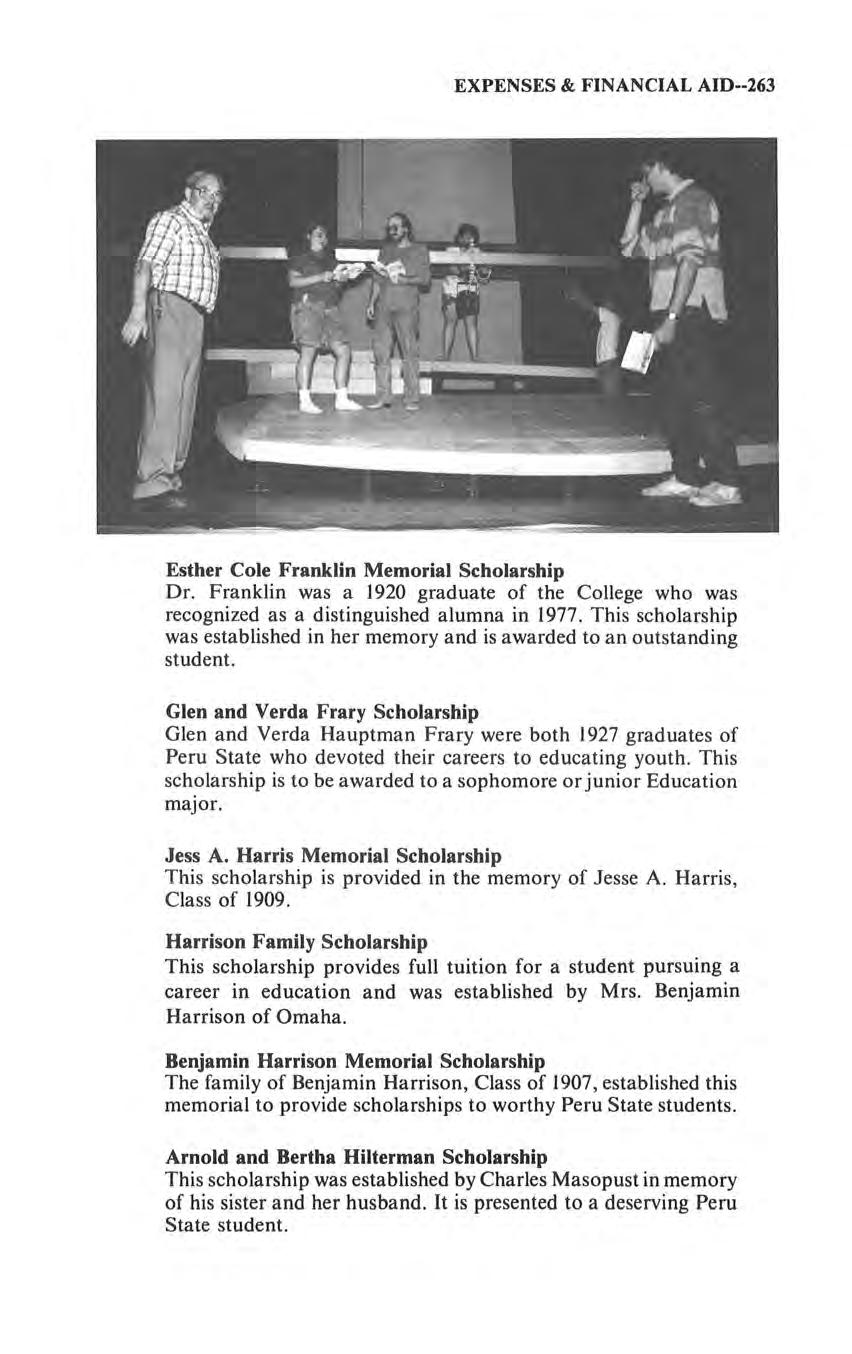
Jess A. Harris Memorial Scholarship
This scholarship is provided in the memory of Jesse A Harris, Class of 1909.
Harrison Family Scholarship
This scholarship provides full tuition for a student pursuing a career in education and was established by Mrs . Benjamin Harrison of Omaha.
Benjamin Harrison Memorial Scholarship
The family of Benjamin Harrison , Class of 1907, established this memorial to provide scho larships to worthy Peru State students .
Arnold and Bertha Hilterman Scholarship
This scho larship was estab li shed by Charles Masopust in memory of his sister and her husband . It is presented to a deserving Peru State student.
EXPENSES & FINANCIAL AID--263
Lena Huff Memorial Scholarship
This scholarship is awarded for scholastic excellence m the memory of Lena Huff, a 1909 graduate of the College.
Harry and Mary Hutchinson Memorial Scholarship
This scholarship is provided by Charles Masopust in memory of Hollis Masopust's parents. It is to be given to an outstanding sophomore or junior who has excellent potential to be an outstanding teacher. The recipient should demonstrate campus leadership and a need for financial assistance.
Dee V. and Kathleen Jarvis Industrial Education Scholarship
Dee V. and Kathleen Jarvis provide a scholarship for a student majoring in Industrial Arts Education. Mr. Jarvis, a 1948 graduate of the College served on the staff as a professor of Industrial Education for 30 years before retiring in 1978.
Glenn D. Jenkins Memorial Scholarship
The family and friends of Glen D. Jenkins, Class of 1909, established this scholarship for students from Humboldt and Richardson County.
Victor H. Jindra Memorial Scholarship
This scholarship for students in Music was established from the estate of Victor H. Jindra, a professor of Music at the College from 1923 to I 961.
Johnson County Bank Scholarship
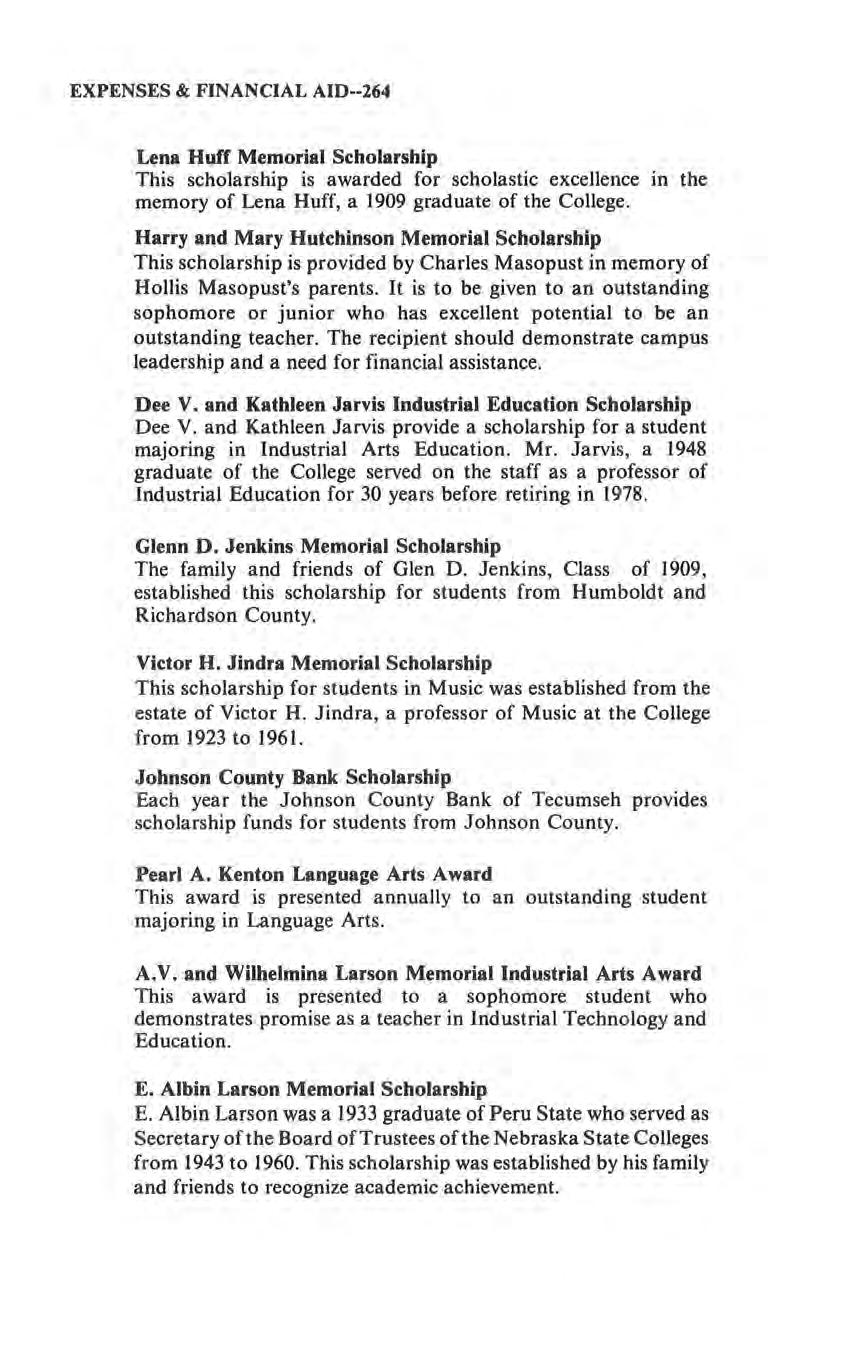
Each year the Johnson County Bank of Tecumseh provides scholarship funds for students from Johnson County.
Pearl A. Kenton Language Arts A ward
This award is presented annually to an outstanding student majoring in Language Arts.
A.V. and Wilhelmina Larson Memorial Industrial Arts Award
This award is presented to a sophomore student who demonstrates promise as a teacher in Industrial Technology and Education.
E. Albin Larson Memorial Scholarship
E. Albin Larson was a 1933 graduate of Peru State who served as Secretary of the Board of Trustees of the Nebraska State Colleges from 1943 to 1960. This scholarship was established by his family and friends to recognize academic achievement.
EXPENSES & FINANCIAL AID--264
Arthur R. Majors Memorial Scholarship
This scholarship was established in the memory of Arthur R. Majors, a 1926 graduate of Peru State, who was an active educator for 43 years. Mr. Majors was a strong supporter of the College and the Peru Achievement Foundation. The scholarship is awarded to a student majoring in Biology, Chemistry, or Physics .
L.B. and Ruth Mathews Memorial Scholarship
This scholastic award is made in the memory of Mr. and Mrs. L.B . Mathews Mr. Mathews was a professor of Physics and Principal of the Training School from 1927 to 1961. Mrs. Mathews was a faculty member at the Coliege from 1943 to 1960.
Jack McIntire Scholarship
Jack McIntire, a graduate of the College, served Peru State for many years as a professor of Physical Education, head coach in several sports, and as Athletic Director. He provides a scholarship for a freshman football player from Auburn, Nebraska City, or Falls City.
John J. McIntire II Memorial Scholarship
This scholarship is awarded to a freshman basketball player from Auburn, Nebraska City, or Falls City in memory of John J . McIntire II, a Peru State graduate and son of Mr. and Mrs.Jack McIntire.
Charles Masopust Scholarship
This scholarship is donated by Charles Masopust. Having never attended Peru State or any other college, Mr. Masopust developed an interest in Peru State through his brother Joe, a supporter of the College and Peru resident. This award is given to a deserving student who may not qualify for other scholarship funds based on outstanding academic accomplishments, but demonstrates personal qualities that are a credit to the College and student body and who distinguishes himself through involvement in co-curricular activities
Joe Masopust Memorial Scholarship
This scholarship is donated by Charles Masopust in memory of his brother, a friend and benefactor of Peru State College. The scholarship is to be given to the outstanding sophomore or junior student who has contributed the most to Peru State College in non-scholastic activities (not sports), has good scholastic potential and to whom this assistance will make a difference in achieving their education.
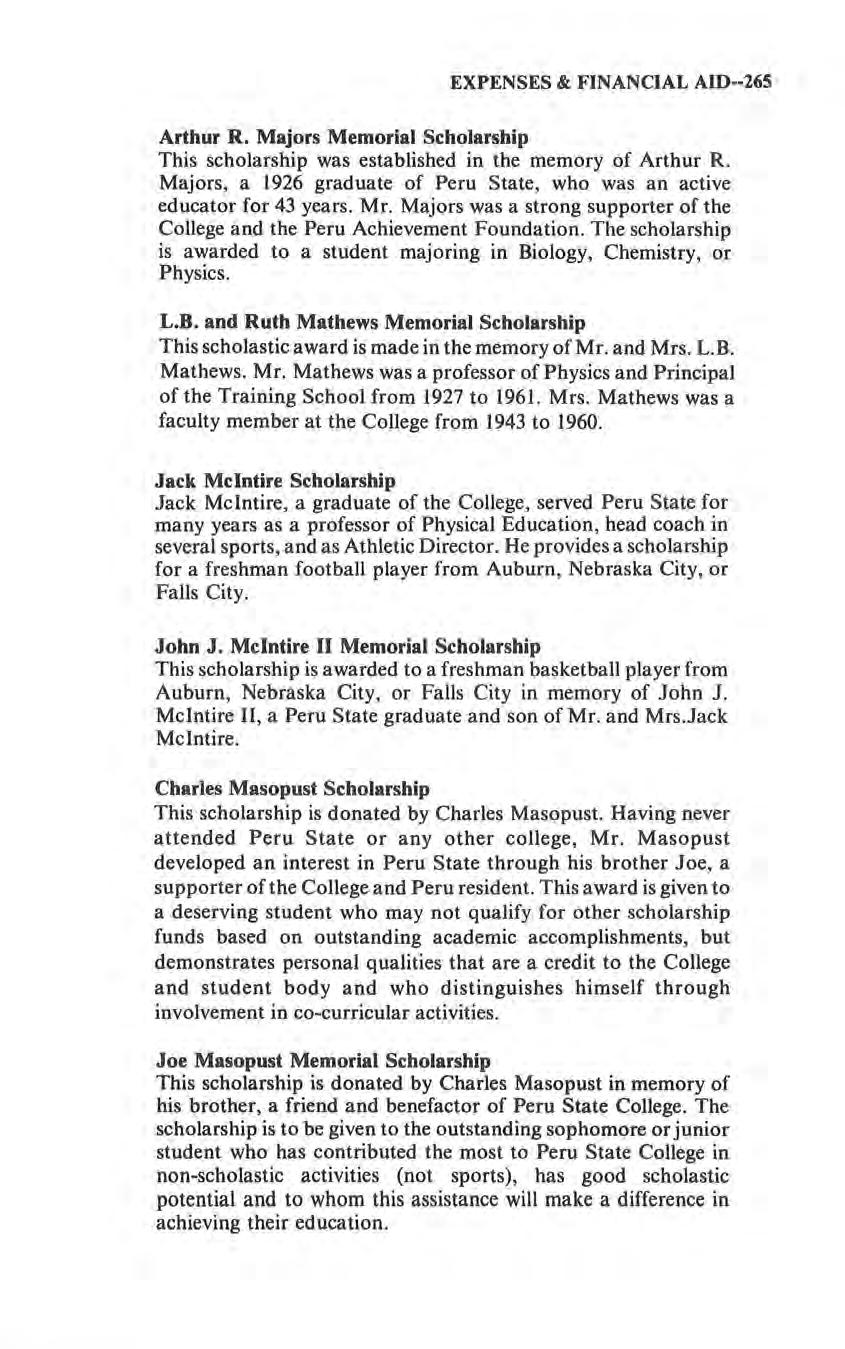
EXPENSES & FINANCIAL AID--265
John and Francis Schima Masopust Scholarship
This scholarship was donated by Charles Masopust in memory of his parents and is awarded to a student who knows the value of hard work.
Hollis Hutchinson Masopust Memorial Scholarship
This scholarship is donated by Charles Masopust in memory of his sister-in-law, a 1933 graduate of Peru State College. The award is to be given to an outstanding sophomore or junior student who has participated above and beyond normal in math and science and to whom this award will make a difference in achieving their education.
Dr. Joy Elmer Morgan Memorial Scholarship
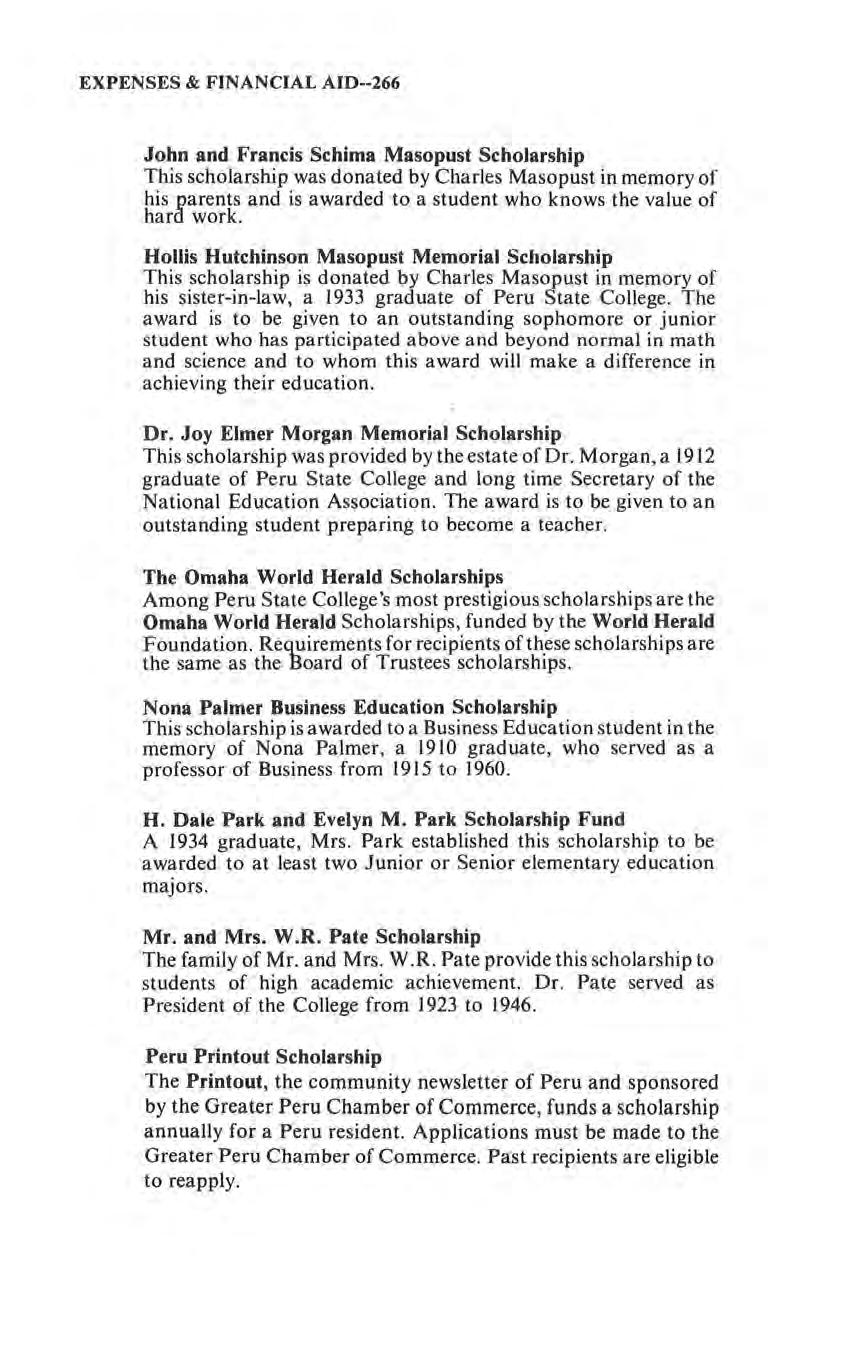
This scholarship was provided by the estate of Dr. Morgan, a 1912 graduate of Peru State College and long time Secretary of the National Education Association. The award is to be given to an outstanding student preparing to become a teacher.
The Omaha World Herald Scholarships
Among Peru State College's most prestigious scholarships are the Omaha World Herald Scholarships, funded by the World Herald Foundation. Requirements for recipients of these scholarships are the same as the Board of Trustees scholarships.
Nona Palmer Business Education Scholarship
This scholarship is awarded to a Business Education student in the memory of Nona Palmer, a 1910 graduate, who served as a professor of Business from 1915 to 1960.
H. Dale Park and Evelyn M. Park Scholarship Fund
A 1934 graduate, Mrs. Park established this scholarship to be awarded to at least two Junior or Senior elementary education majors.
Mr. and Mrs. W.R. Pate Scholarship
The family of Mr. and Mrs . W . R. Pate provide this scholarship to students of high academic achievement. Dr. Pate served as President of the College from 1923 to 1946.
Peru Printout Scholarship
The Printout, the community newsletter of Peru and sponsored by the Greater Peru Chamber of Commerce, funds a scholarship annually for a Peru resident. Applications must be made to the Greater Peru Chamber of Commerce. Past recipients are eligible to reapply.
EXPENSES & FINANCIAL AID--266
Helen E. Cole Pollard Founders Award
An award presented at the Spring Honors Convocation to the senior who has demonstrated loyalty and service to the College .
Elaine Gerdes Pratt Scholarship
A student of non-traditional age hailing from Nemaha County in Nebraska is to be the recipient of the Elaine Gerdes Pratt Scholarship. The scholarship was established by her husband , Charles Pratt, a 1967 PSC graduate, in memory of his wife, a 1964 alumna who was extremely active in college affairs.
Ernest J. Rawson Memorial Industrial Education Scholarship
This scholarship was established by the family of Ernest J. Rawson, Class of 1938. Mr. Rawson taught Industrial Education in high school and college before retiring in the late 1970's.
Wiley and Maxine Remmers Scholarship
Wiley Remmers, a 1938 graduate, and his wife, the former Maxine Aufenkampp ('39), have established this scholarship to be awarded to a freshman student in Nebraska's first legislative district. Applicants for this scholarship must take a competitive examination on government.
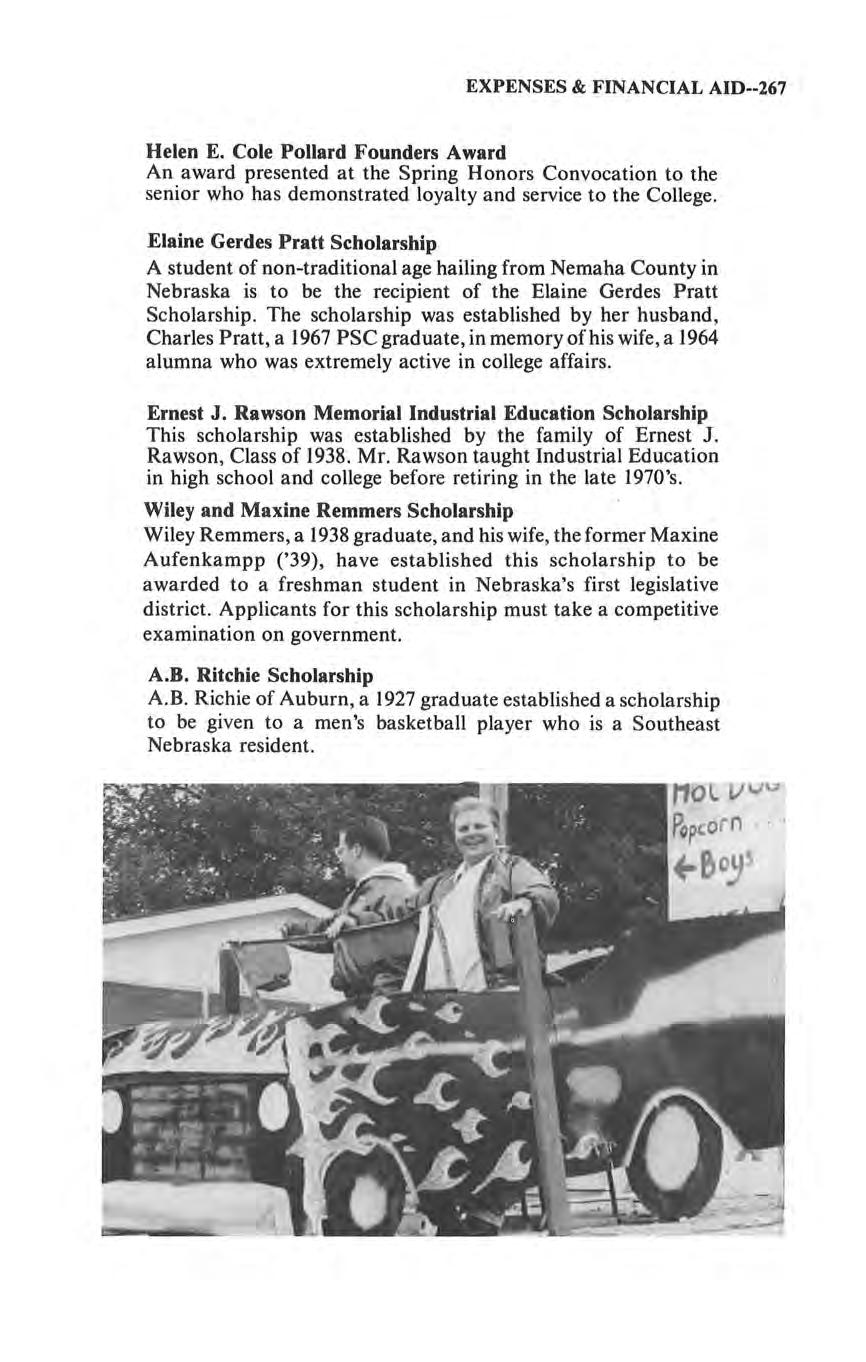
A.B. Ritchie Scholarship
A B Richie of Auburn, a 1927 graduate established a scholarship to be given to a men's basketball player who is a Southeast Nebraska resident.
EXPENSES & FINANCIAL AID--267
Clarence L. and Mildred Russell Memorial Scholarship
This scholarship was established in memory of the Russells. Mr. Russell was a 1917 graduate of Peru State , and the Russells were long time supporters of the College. The recipient of the scholarship is to be in the Industrial Technology and Education program and is selected by the faculty of the department.
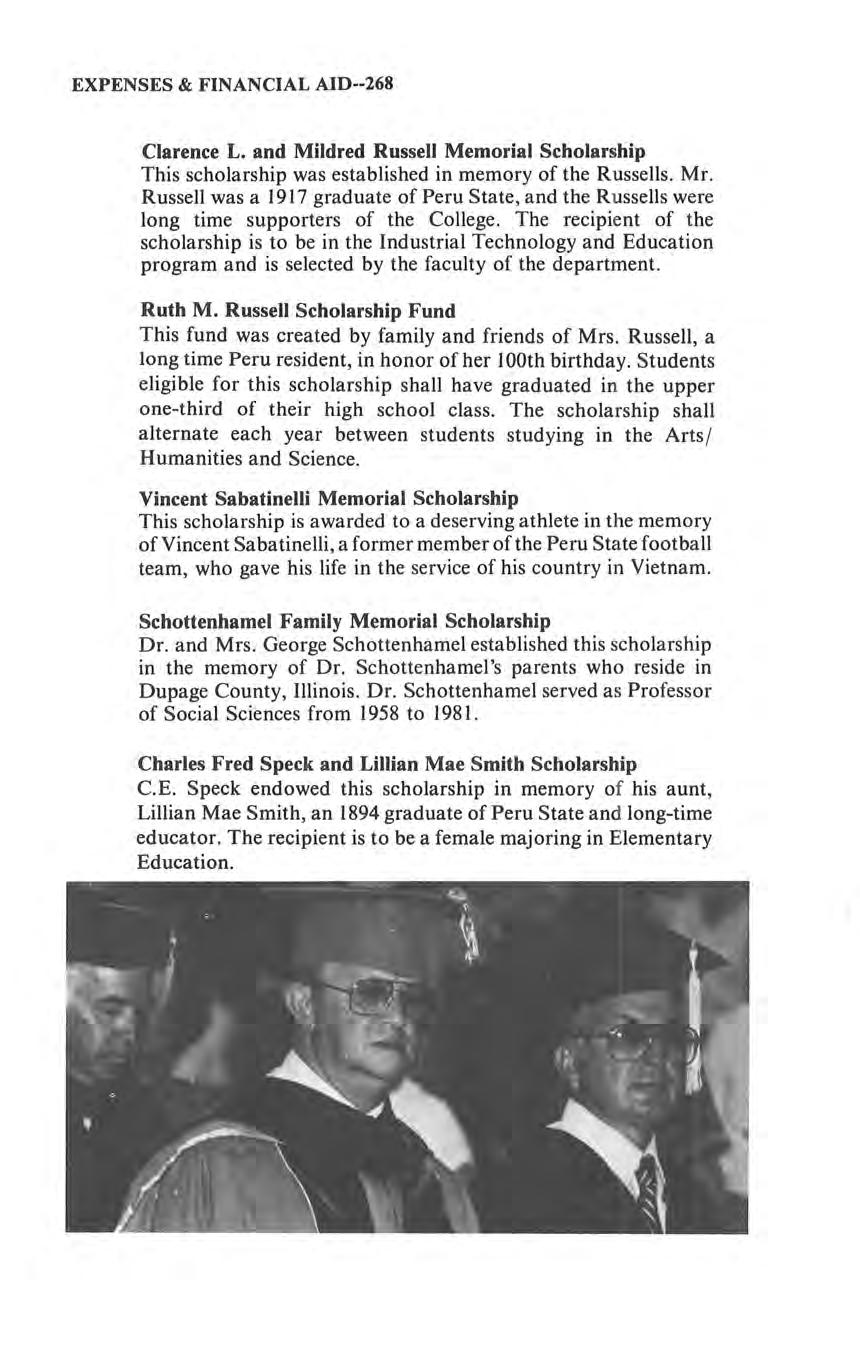
Ruth M. Russell Scholarship Fund
This fund was created by family and friends of Mrs. Russell, a long time Peru resident, in honor of her 100th birthday. Students eligible for this scholarship shall have graduated in the upper one - third of their high school class. The scholarship shall alternate each year between students studying in the Arts/ Humanities and Science.
Vincent Sabatinelli Memorial Scholarship
This scholarship is awarded to a deserving athlete in the memory of Vincent Sabatinelli, a former member of the Peru State football team, who gave his life in the service of his country in Vietnam.
Schottenhamel Family Memorial Scholarship
Dr. and Mrs. George Schottenhamel established this scholarship in the memory of Dr. Schottenhamel's parents who reside in Dupage County, Illinois. Dr. Schottenhamel served as Professor of Social Sciences from 1958 to 1981.
Charles Fred Speck and Lillian Mae Smith Scholarship
C E Speck endowed this scholarship in memory o f his aunt, Lillian Mae Smith, an 1894 graduate of Peru State and long-time educator. The recipient is to be a female majoring in Elementary Education .
EXPENSES & FINANCIAL AID--268
G. Holt "Pop" Steck Memorial Scholarship
G. Holt "Pop" Steck served as Professor of Music at Peru State from 1928 to 1943. The scholarship is awarded to a Music student with preference for vocal music.
Oliver Stevenson Memorial Scholarship
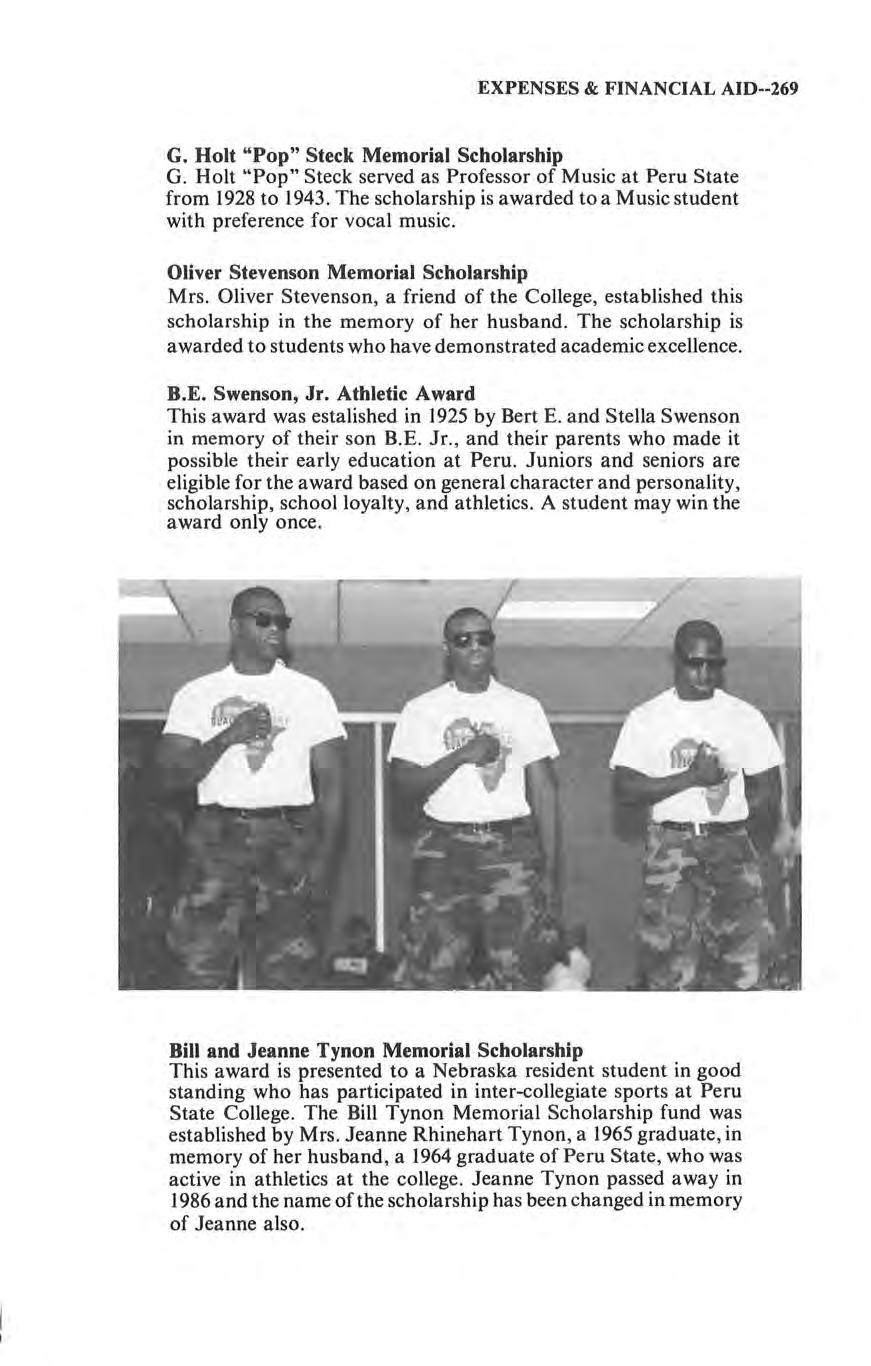
Mrs. Oliver Stevenson, a friend of the College, established this scholarship in the memory of her husband. The scholarship is a warded to students who have demonstrated academic excellence.
B.E. Swenson, Jr. Athletic Award
This award was estalished in 1925 by Bert E . and Stella Swenson in memory of their son B.E Jr., and their parents who made it possible their early education at Peru. Juniors and seniors are eligible for the award based on general character and personality, scholarship, school loyalty, and athletics. A student may win the award only once.
Bill and Jeanne Tynon Memorial Scholarship
This award is presented to a Nebraska resident student in good standing who has participated in inter-collegiate sports at Peru State College. The Bill Tynon Memorial Scholarship fund was established by Mrs. Jeanne Rhinehart Tynon, a 1965 graduate, in memory of her husband, a 1964 graduate of Peru State, who was active in athletics at the college. Jeanne Tynon passed away in 1986 and the name of the scholarship has been changed in memory of Jeanne also.
EXPENSES & FINANCIAL AID--269
John and Daisy Clark Wear Scholarship
Established by the family and friends of Dr. John Wear, Class of 1914, this scholarship assists a pre-medical student at the College. A copy of Dr. Wear's book "My Life and My Work" is in the college library.
Bereniece McHiron Weigand Scholarship
The recipient of this scholarship is to be a female majoring in education at Peru State. Established by Bereniece Weigand Woodworth, this scholarship is in memory of the 1906 Peru State graduate. Berniece M. Weigand was the wife of Charles Weigand, for whom another scholarship has been established.
Lisa Jo Weis Scholarship
The Lisa Jo Weis Scholarship is awarded to a freshman, volleyball player who is not recruited, who has not been recruited for any other sport, and who would be primarily a setter. The value is $200 each year.
Charles Weigand Memorial Scholarship
This scholarship was established in 1956 by the Class of 1906 in the memory of Charles Weigand, a member of the class . The scholarship is awarded to a rising senior.
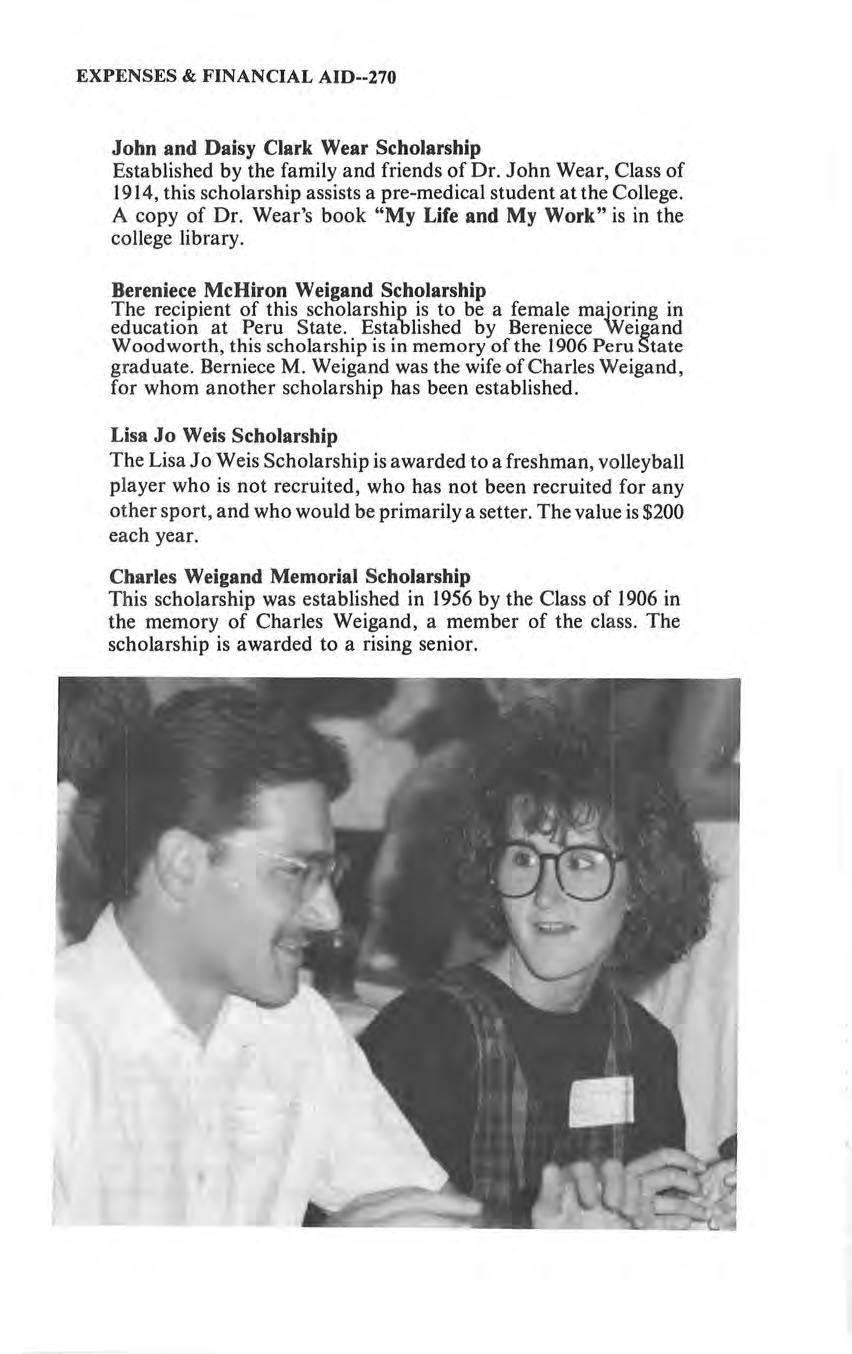
EXPENSES & FINANCIAL AID--270
Wheeler Language Arts Scholarship
Mr. and Mrs. Dennis Wheeler provide a scholarship that 1s awarded to a Language Arts major at the College.
The Al Wheeler Scholarship
Funds for this scholarship have been provided by Fran Wheeler Kendrick, their son Dr. Al Wheeler, Jr. , and friends of the longtime coach and athletic administrator who served Peru State from 1938 to 1965. The recipient is to be a male majoring in Physical Education who participates in intercollegiate athletics, with preference given to a football player.
Dr. Gilbert Wilson Scholarship
Students majoring in or planning to major in Music at Peru State College are eligible to apply for this scholarship. Dr. Gil Wilson served Nebraska's first College in the music department from 1957 through his retirement in 1982, and holds emeriti rank at PSC. He remains active in college and community affairs .
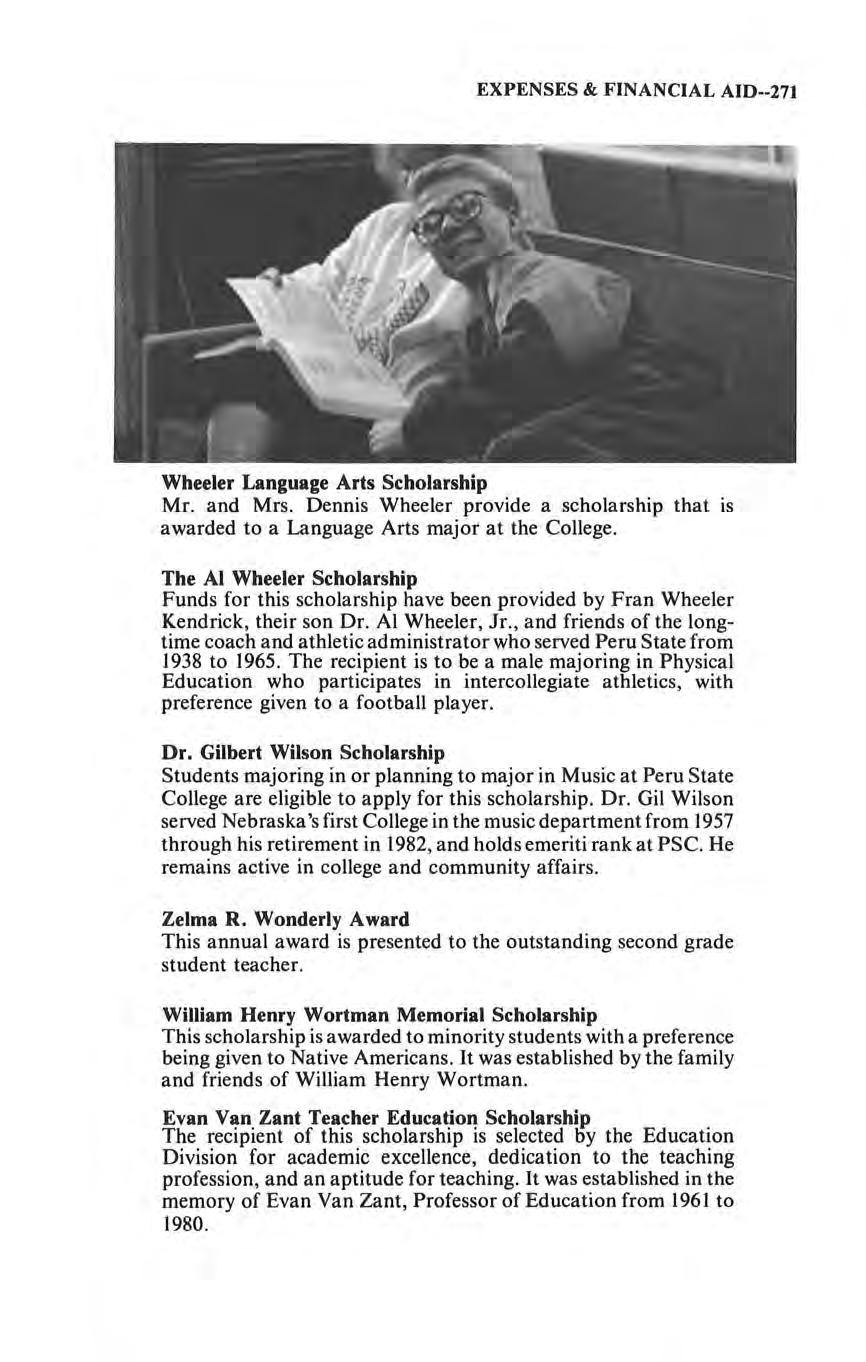
Zelma R . Wonderly Award
This annual award is presented to the outstanding second grade student teacher.
William Henry Wortman Memorial Scholarship
This scholarship is awarded to minority students with a preference being given to Native Americans. It was established by the family and friends of William Henry Wortman.
Evan Van Zant Teacher Education Scholarship
The recipient of this scholarship is selected 6y the Education Division for academic excellence, dedication to the teaching profession, and an aptitude for teaching. It was established in the memory of Evan Van Zant, Professor of Education from 1961 to 1980
EXPENSES & FINANCIAL AID--271
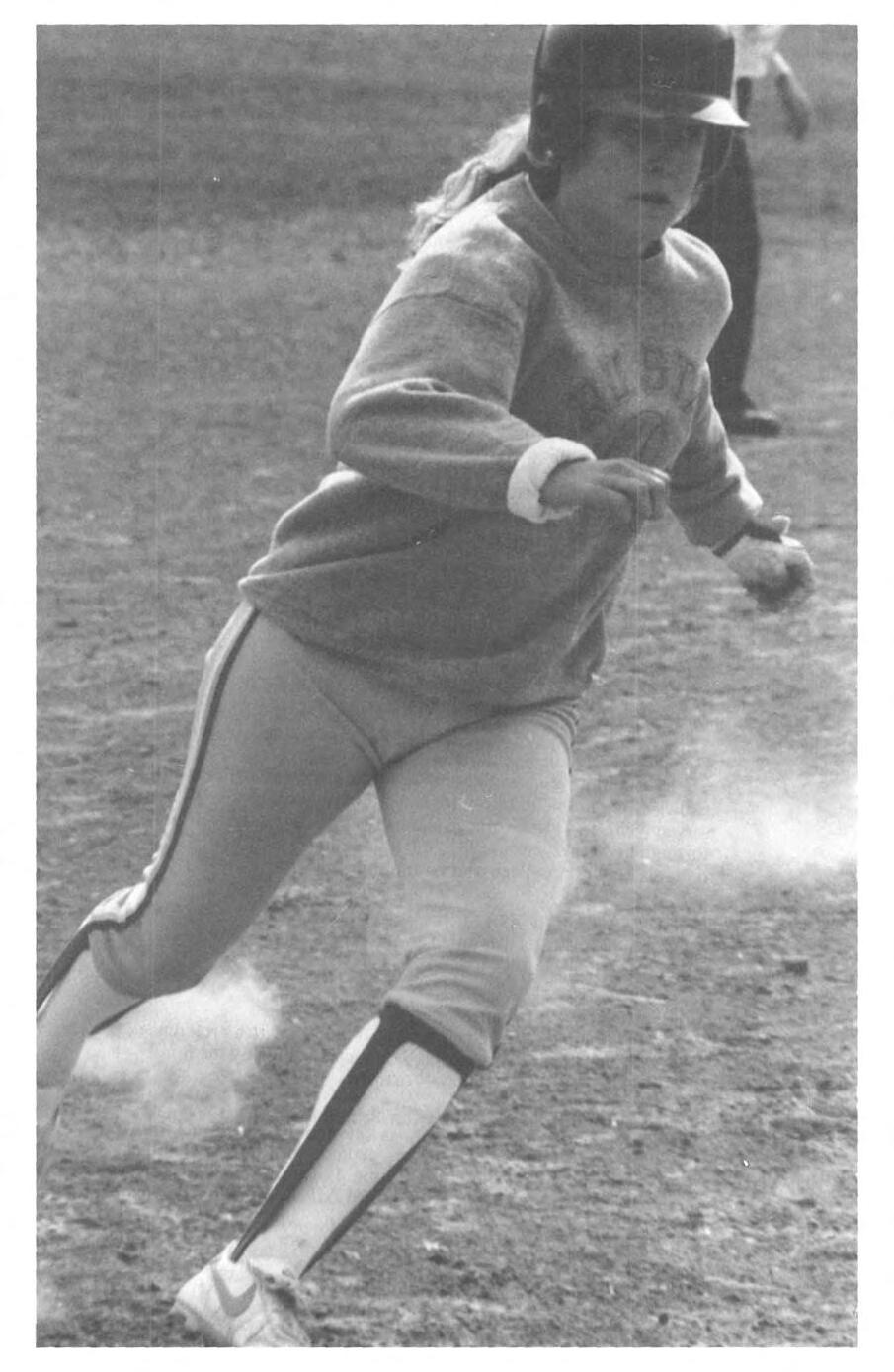
COLLEGE AND PUBLIC SERVICES
Conferences and Clinics
During the academic year, the College hosts conferences, workshops, and clinics for high school students, special interest groups, and a variety of educational and business concerns. The campus also serves as a convenient location for retreats of fraternal and civic groups throughout the summer.
Speaker and Entertainment Services
Schools, civic, and educational organizations are invited to use the speakers, programs, and entertainment that are available from the College. Faculty and staff members often speak, lecture, and provide in-service training to area schools and businesses. Music and drama programs, demonstrations, and judges may also be arranged through the College.
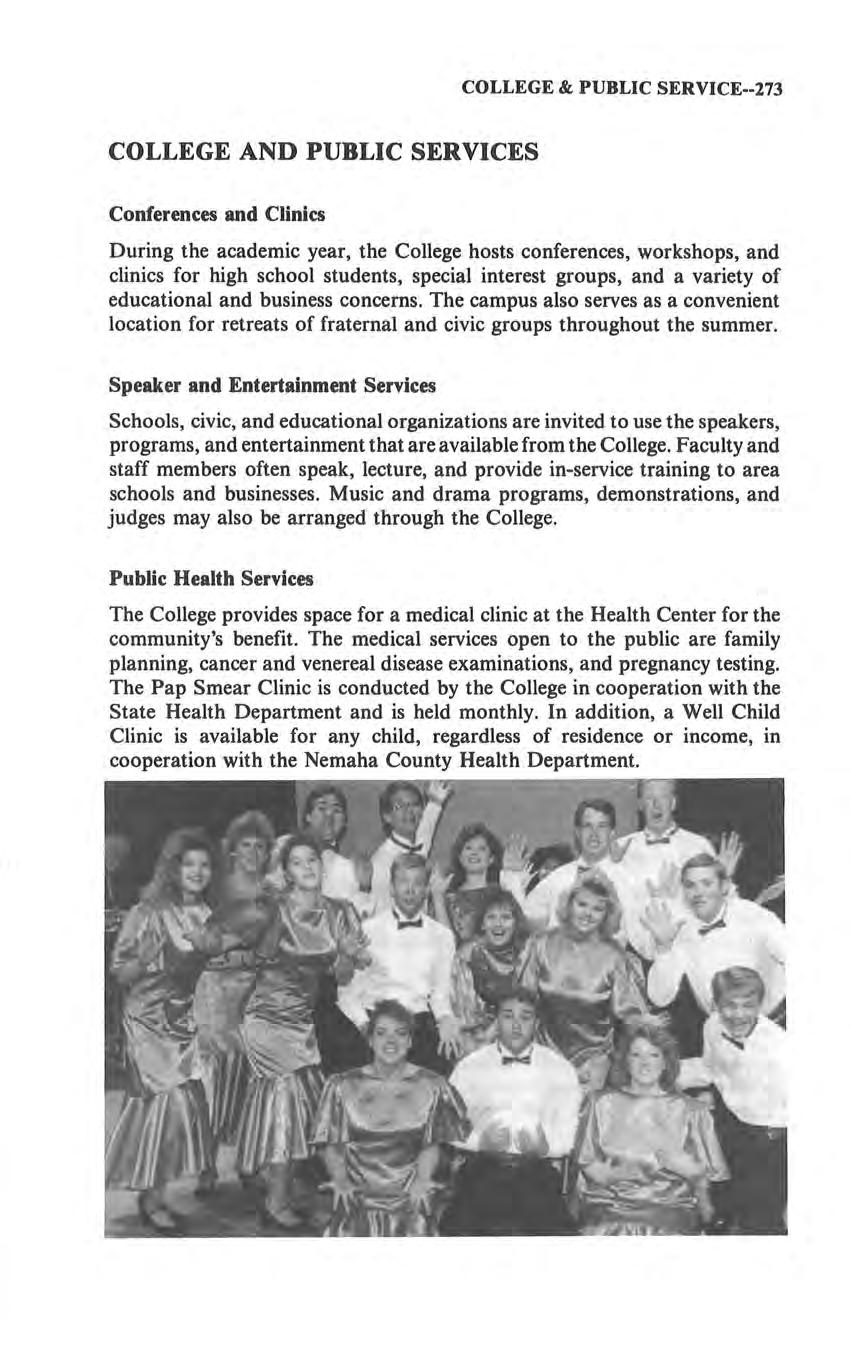
Public Health Services
The College provides space for a medical clinic at the Health Center for the community's benefit. The medical services open to the public are family planning, cancer and venereal disease examinations, and pregnancy testing. The Pap Smear Clinic is conducted by the College in cooperation with the State Health Department and is held monthly. In addition, a Well Child Clinic is available for any child, regardless of residence or income, m cooperation with the Nemaha County Health Department.
COLLEGE & PUBLIC SERVICE--273
Adult Basic Education/ General Educational Development Services
Peru State offers courses for adults who wish to complete a program of study in Adult Basic Education (ABE) and/ or in General Educational Development (GED) at several sites throughout the region. Adults may take the GED test either on campus or at an extension site. No tuition is charged for enrolling in either the ABE or GED program; a fee is charged for the GED examination and certificate.
Peru Achievement Foundation
The Peru Achievement Foundation was organized in June , 1955 and incorporated as a non-profit corporation for educational and charitable purposes in May 1962.
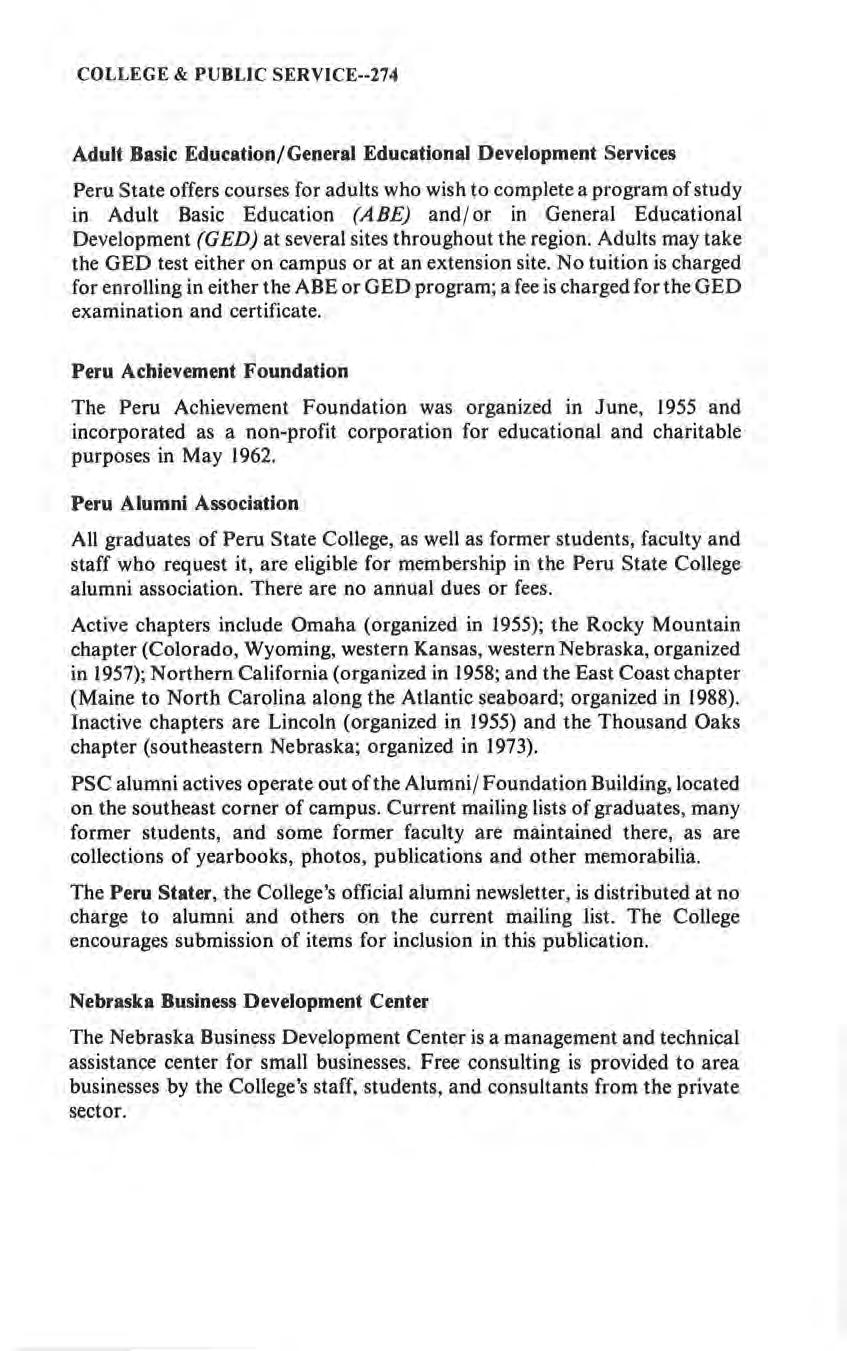
Peru Alumni Association
All graduates of Peru State College, as well as former students, faculty and staff who request it, are eligible for membership in the Peru State College alumni association. There are no annual dues or fees .
Activ e chapters include Omaha (organized in 1955); the Rocky Mountain chapter (Colorado, Wyoming, western Kansas , western Nebraska, organized in 1957); Northern California (organized in 1958; and the East Coast chapter (Maine to North Carolina along the Atlantic seaboard; orga nized in 1988) . Inactive chapters are Lincoln ( organized in 1955) and the Thousand Oaks chapter (southeastern Nebraska; organized in 1973).
PSC alumni actives operate out of the Alumni / Foundation Building, located on the southeast corner of campus. Current mailing lists of graduates , many former students, and some former faculty are maintained there, as are collections of yearbooks, photos, publications and other memorabilia.
The Peru Stater, the College's official alumni newsletter , is d istributed at no charge to alumni and others on the current mailing list. The College encourages submission of items for inclusion in this publication.
Nebraska Business Development Center
The Nebraska Business Development Center is a management and technical assistance center for small businesses. Free consulting is provided to area businesses by the College's staff, students, and consultants from the private sector.
COLLEGE & PUBLIC SERVICE--274
Peru State College Library and Media Center
The library at Peru State College contains more than 100,000 volumes and subscribes to nearly 800 periodicals . Special collections include the original manuscripts of authors Marion Marsh Brown, E.P. Conkle, Ruth Crone, and Louise Mears. The library assists patrons through its extensive interlibrary loan services and provides typewriters and microcomputers for student use.
The Media Center houses a large variety of audio-visual equipment and materials including an abundant supply of films, filmstrips, slides, videotapes, records, and computer programs. A computer and wordprocessor are also available for student use. The Center's satellite dish and television studio provide a wide range of educational and recreational opportunities for students and community.
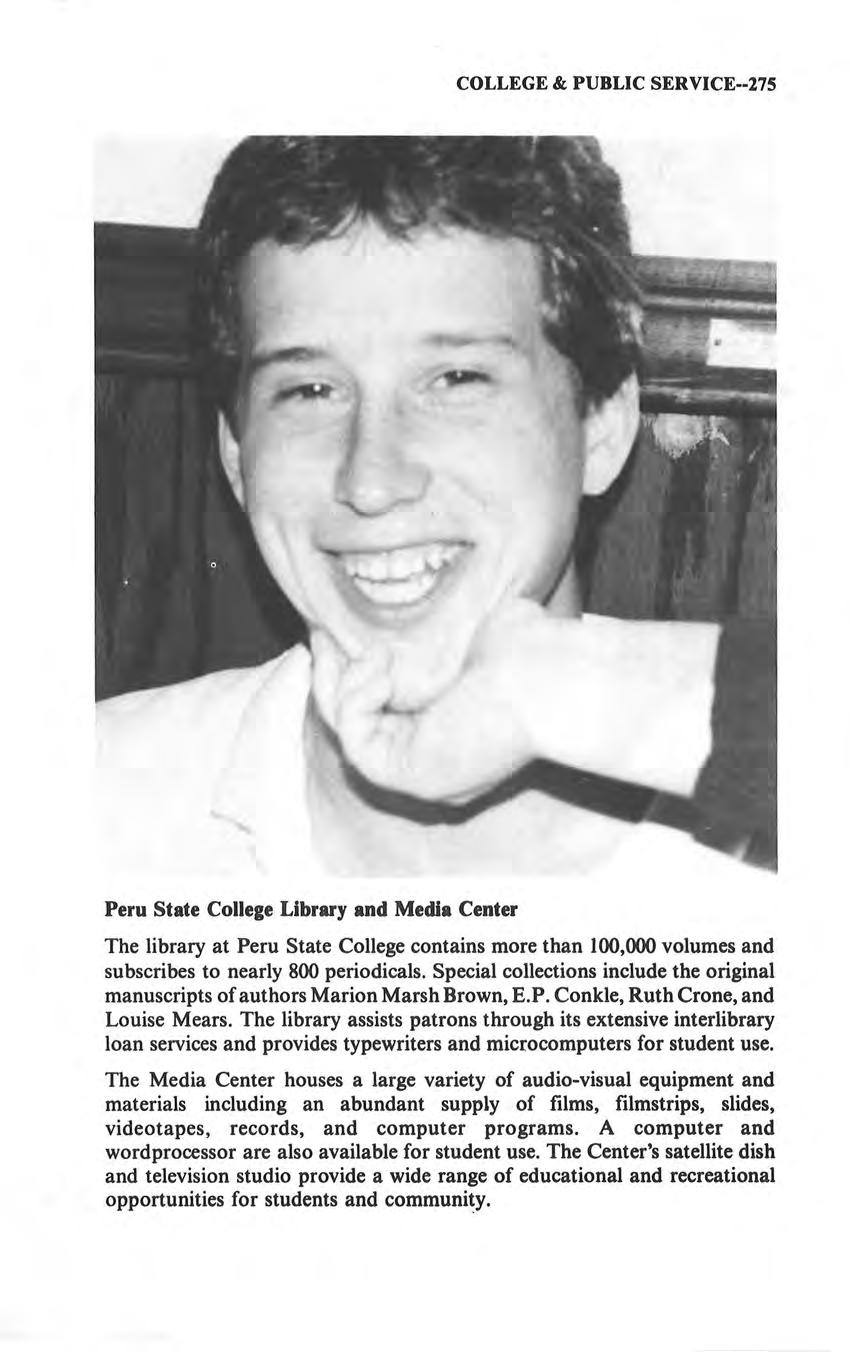
COLLEGE & PUBLIC SERVICE--275
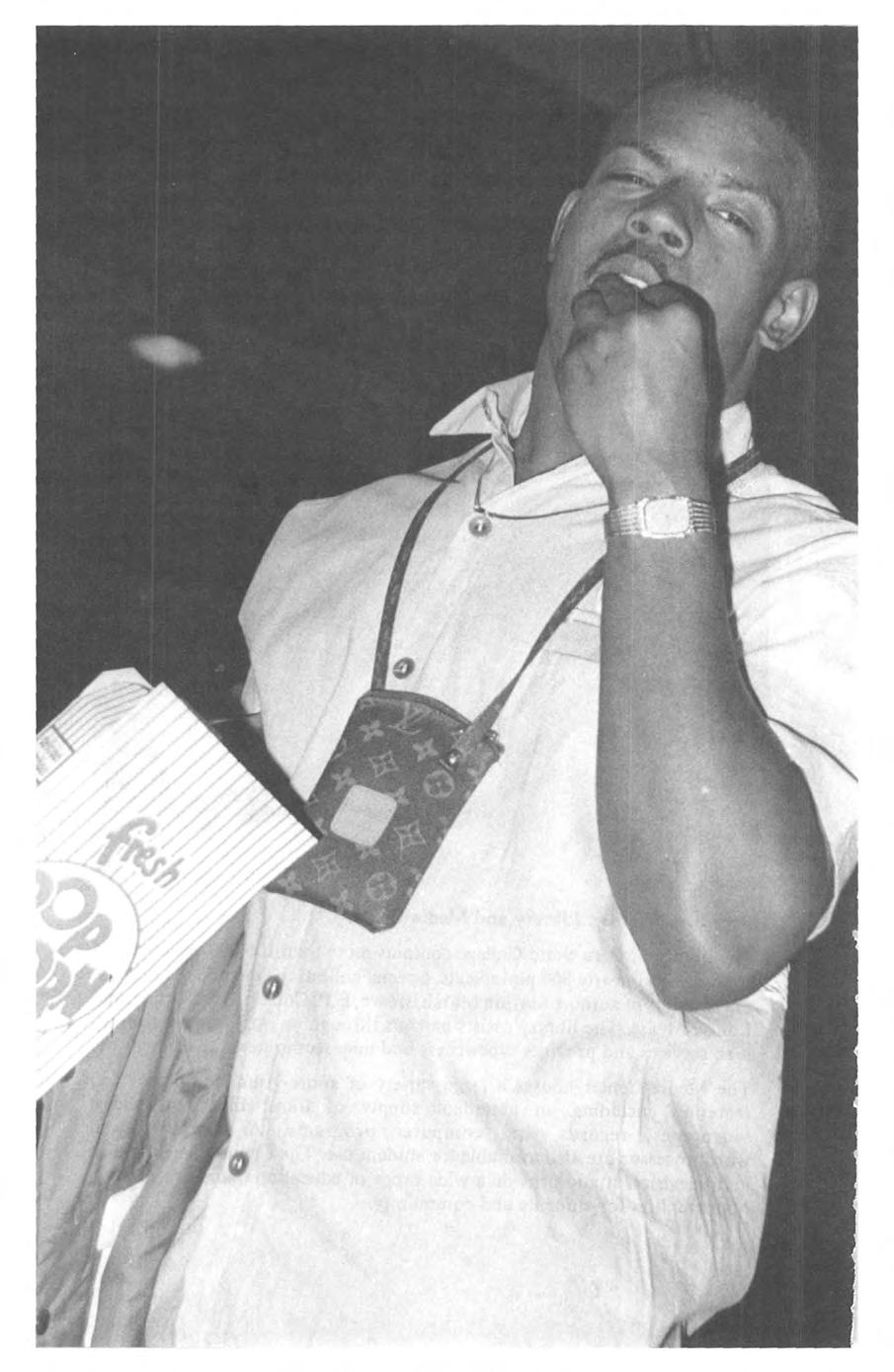
Board of Trustees Of The Nebraska State Colleges
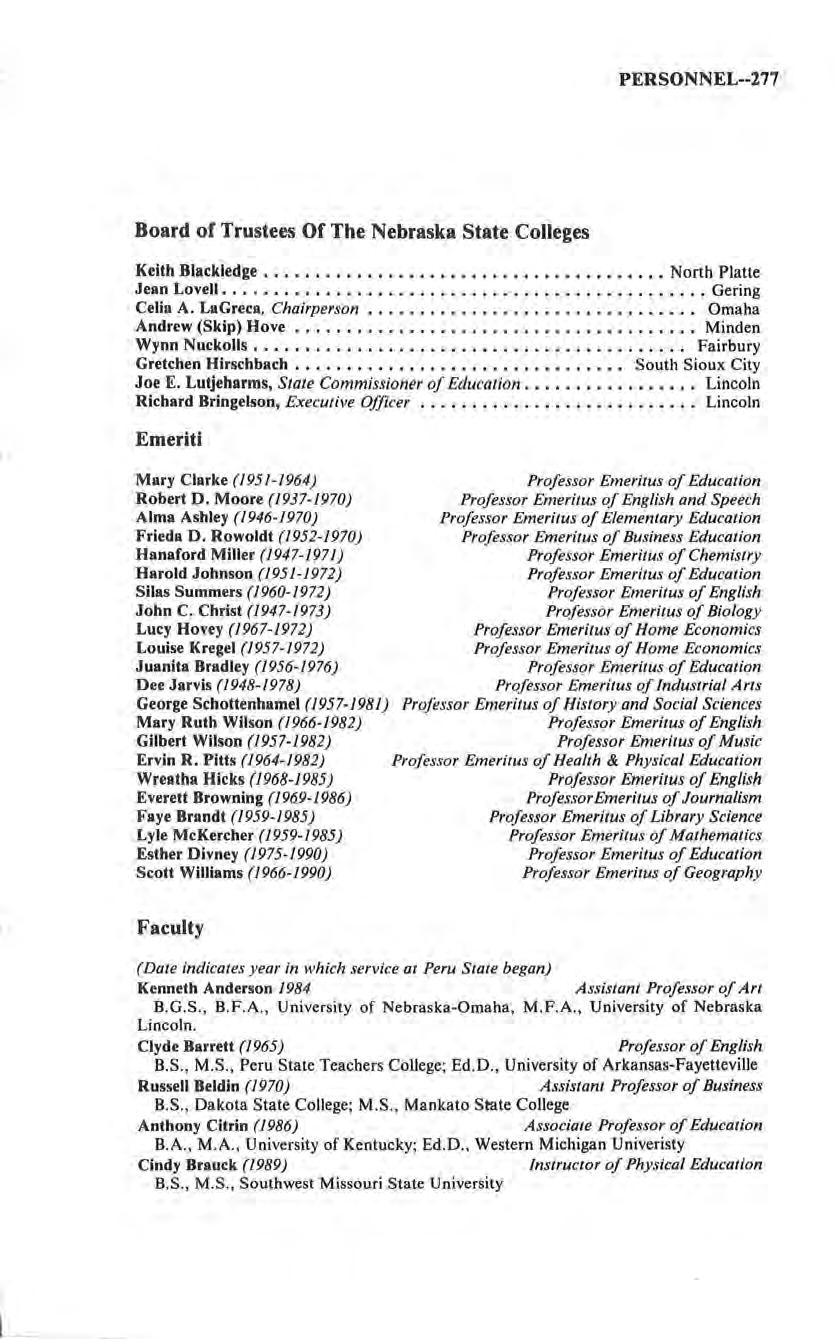
Keith Blackledge .............. .... ..................... North Platte
Jean Lovell . Gering
Celia A. LaGreca, Chairperson • Omaha
Andrew (Skip) Hove Minden
Wynn Nuckolls Fairbury
Gretchen Hirschbach South Sioux City Joe E. Lutjeharms, State Commissioner of Education
Richard Bringelson , Executive Officer .
Emeriti
Mary Clarke (1951-1964)
Robert D. Moore (1937-1970)
Alma Ashley (1946-1970)
Frieda D. Rowoldt (1952-1970)
Hanaford Miller (1947-1971)
Harold Johnson (1951-1972)
Silas Summers (1960 - 1972)
John C. Christ (1947-1973)
Lucy Hovey (1967-1972)
Louise Kregel (1957-1972)
Juanita Bradley (1956 - 1976)
Dee Jarvis (1948 - 1978)
George Schottenhamel (1957-1981)
Mary Ruth Wilson (1966-1982)
Gilbert Wilson (1957-1982)
Ervin R. Pitts (1964-1982)
Wreatha Hicks (1968-1985)
Everett Browning (1969-1986)
Faye Brandt (1959-1985)
Lyle McKercher (1959-1985)
Esther Divney (1975-1990)
Scott Williams (1966-1990)
Faculty
Professor Emeritus of Education
Professor Emeritus of English and Speech
Professor Emeritus of Elementary Education
Professor Emeritus of Business Education
Professor Emeritus of Chemistry
Professor Emeritus of Education
Professor Emeritus of English
Professor Emeritus of Biology
Professor Emeritus of Home Economics
Professor Emeritus of Home Economics
Professor Emeritus of Education
Professor Emeritus of Industrial Arts
Professor Emeritus of History and Social Sciences
Professor Emeritus of English
Professor Emeritus of Music
Professor Emeritus of Health & Physical Education
Professor Emeritus of English
Professor Emeritus of Journalism
Professor Emeritus of Library Science
Professor Emeritus of Mathematics
Professor Emeritus of Education
Professor Emeritus of Geography
(Date indicates year in which service at Peru State began)
Kenneth Anderson 1984 Assistant Professor of Art
B.G.S., B.F.A ., University of Nebraska-Omaha, M.F.A., University of Nebraska
Lincoln
Clyde Barrett (1965) Professor of English
B.S., M.S , Peru State Teachers College; Ed D., University of Arkansas-Fayetteville
Russell Beldin (1970) Assistant Professor of Business
B.S ., Dakota State College ; M.S. , Mankato State College
Anthony Citrin (1986) Associate Professor of Education
B.A., M .A. , University of Kentucky; Ed.D., Western Michigan Univeristy
Cindy Brauck (1989) Instructor of Physical Education
B.S., M.S , Southwest Missouri State University
PERSONNEL--277
• . • • • • • • • • • . • • • • • Lincoln
• • • • . • . • . • • • • • • • . • . • • . • • Lincoln
Daniel Cox (1988) Assistant Professor of Educat ion
B.A., Tarkio College; M.A., University of Nebraska-Omaha
Wayne Davidson (1982)
Associate Professor of Phy sical Education
B.A., Anderson College; M.A., Kansas State College-Emporia; Ed.D., University of Missouri-Columbia
Spencer Davis (1983) Associate Professor of History
B.A., Brown University; M .A., University of Nebraska-Lincoln; Ph.D., University of Toronto
Royal Eckert (19 75 ) Professor of Speech/ Theatre
B.A ., University of Minnesota; M.A., Ph.D., University of Nebraska-Lincoln
Thomas Ediger (1979) Associate Professor of Music Director of Choral Activities
A.M., University of Nebraska-Lincoln; M.A., D.A., University of Northern Colorado
David Edris (1974) Professor of Music; Chairperson of Humanities
B.M.A., M.M., University of Tulsa; D.M.A., University of Missouri-Kansas City
Nancy Emerson (1977) Instructor of Social Work/ Sociology
B.S., M.S., Kansas State College-Pittsburg
Robley Evans (19 78) Assistant Professor of Industrial Arts
B.S., Western Kentucky University; M S ., Indiana University
Victor Ferre (1978) Professor of Education
B.A., Weber State College; M S , Utah State University; Ed.D., New Mexico State University
Jody Ford (1990) Director of Title Ill Teaching/ Learning Center
B.S., Chadron State College; M.E , University of Nebraska-Lincoln
John Gibbs (1981) In structor of Physical Education
B.S., William Jewell College; M.S ., Central Missouri State University
Norma Gilmore (1988) Associate Professor of Education
B.S., University of Northern Arizona; M.A., Michigan State University; Ed D., University of Northern Colorado
Charles Haddad (1990) Instructor of Computer Science
B.A., American University in Beirut, Lebanon, M.S. Moorhead State University
John Hahn (1968) Professor of Political Science
LL.B. Chuo University; M.A , University of Minnesota; Ph.D , University of Cincinnati
Jack Hamilton (19 72) Assistant Professor of Business
B.S., M.S., Kansas State College-Pittsburg
Charles Harper (1978) Associate Professor of Speech/ Theatre
B.A., Tarkio College; M.A , Ph.D., University of Nebraska-Lincoln
Dan Holtz (1987) Assistant Professor of English
B.A., Kearney State College; M S., Ph.D., University of Nebraska, Lincoln
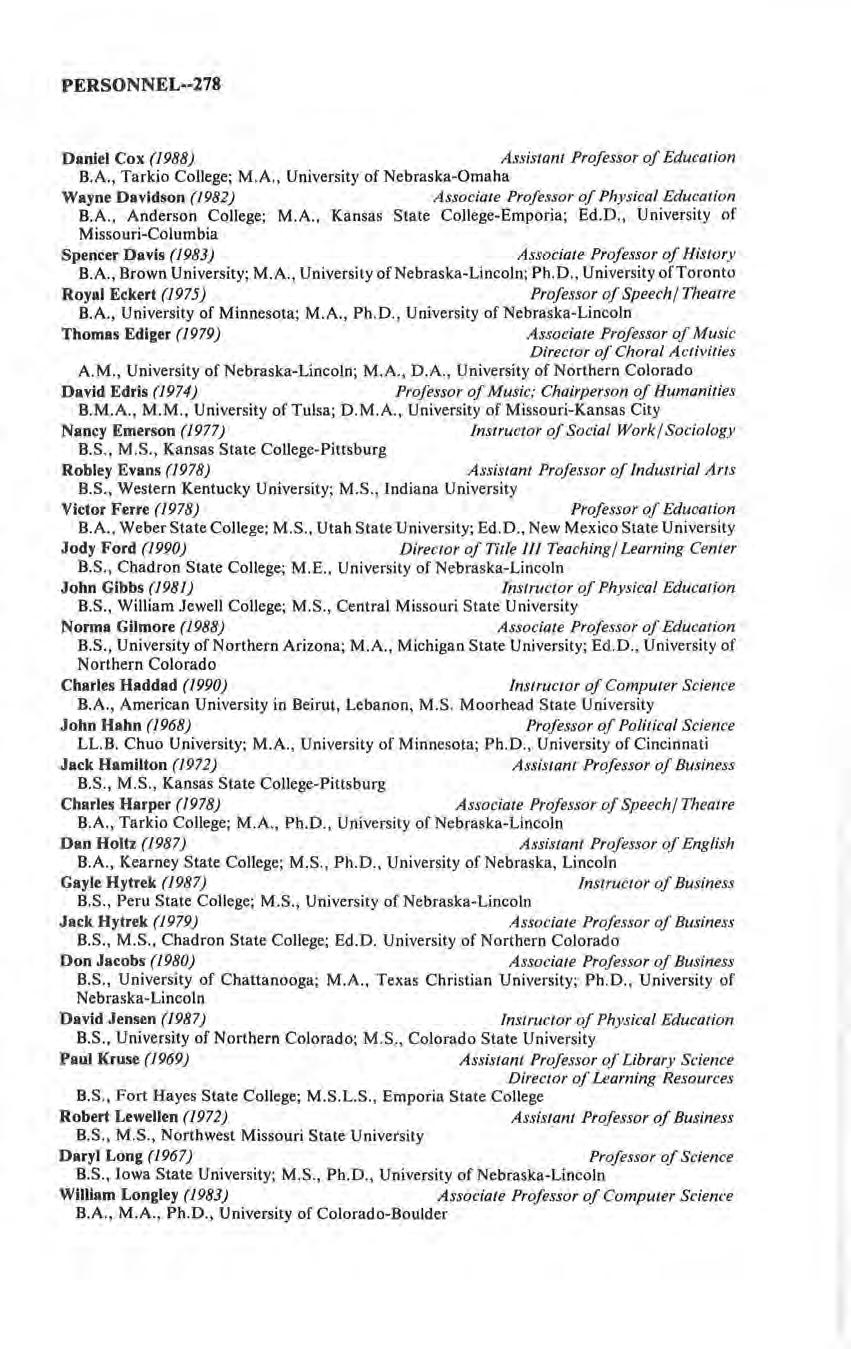
Gayle Hytrek (198 7) Instructor of Business
B.S., Peru State College; M.S., University of Nebraska-Lincoln
Jack Hytrek (1979)
Associate Professor of Business
B.S., M.S., Chadron State College; Ed.D University of Northern Colorado
Don Jacobs (1980)
Associate Professor of Business
B.S., Unive rsity of Chattanooga; M.A., Texas Christian University; Ph . D., University of Nebraska-Lincoln
David Jensen (198 7)
Instructor of Physical Education
B.S , University of Northern Colorado; M S., Colorado State University
Paul Kruse (1969)
Assistant Professor of Library Science
Director of Learning Resources
B.S ., Fort Hayes State College; M.S.L.S , Emporia State College
Robert Lewellen (1972)
B.S., M.S., Northwest Missouri State University
Assistant Professor of Business
Daryl Long (1967) Pr ofessor of Science
B.S., Iowa State University ; M.S , Ph.D., University of Nebraska-Lincoln
William Longley (1983)
Associate Professor of Co mputer Science
B.A., M.A., Ph.D., University of Colorado-Boulder
PERSONNEL--278
Kermit Mowbray (1989)
M A., Ph.D., University of Kansas
Joel Lundak (1989)
B.A., M.A., Ph.D ., University of Nebraska-Lincoln
Associate Professor of Business
Assistant Professor of Psychology
Stanley Mccaslin (19 7 I) Assistant Professor of Computer Science
B.A., Macalester College; M.S., California Institute of Technology; M.S. University of Nebraska-Lincoln
Anthony McCrann (1988) Assistant Professor of English
B.A., Villanova University ; M.A., D.A ., Ph.D., University of Oregon
Carol Pappas (1985) Assistant Professor of Natural Science
B.A., Florida State University; M.S., Ph D. , University of Illinois-Urbana
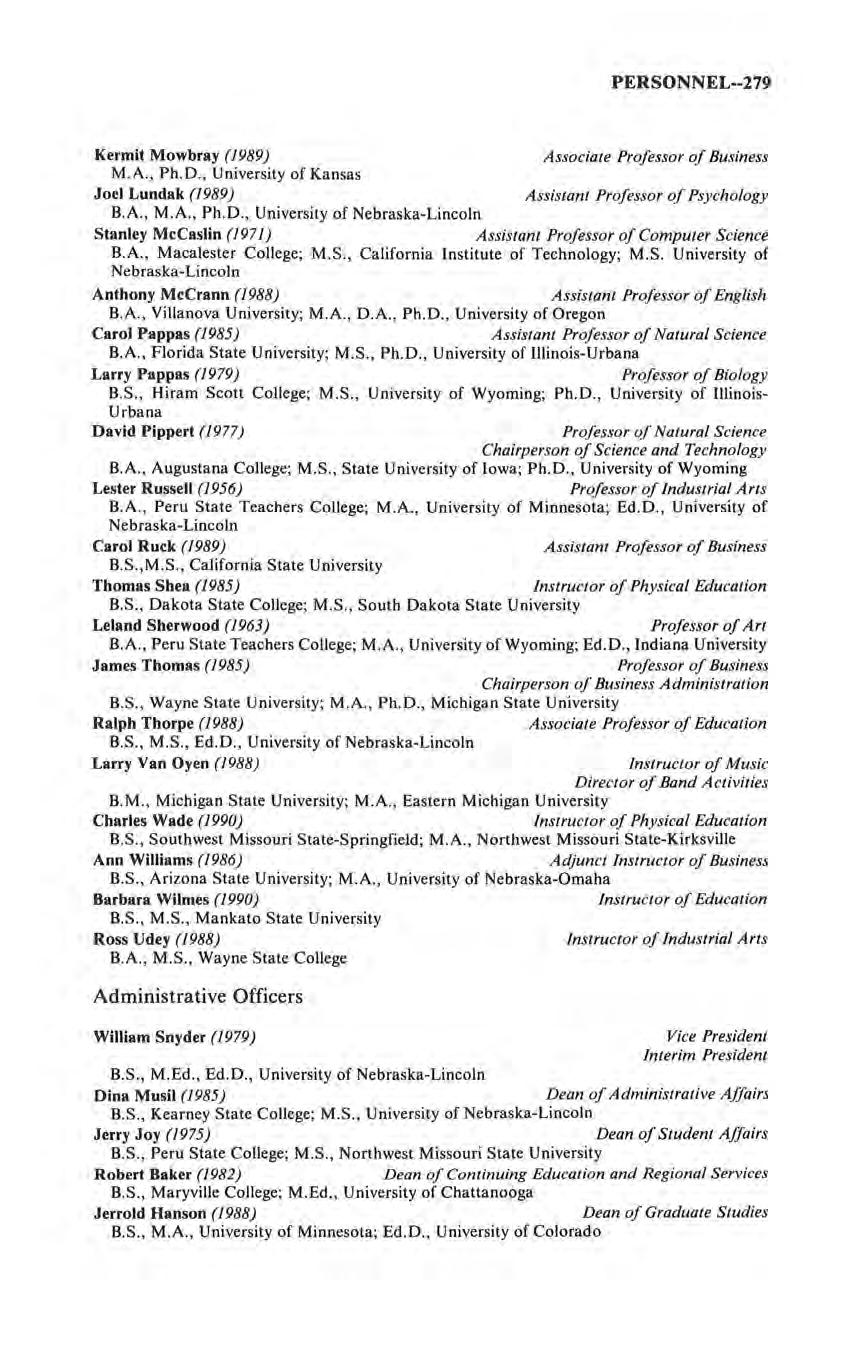
Larry Pappas (19 79) Professor of Biology
B.S. , Hiram Scott College; M . S ., University of Wyoming; Ph . D . , University of Illinoi sUrbana
David Pippert (19 77) Professor of Natural Science Chairperson of Science and Technology
B.A . , Augustana College; M.S., State University of Iowa; Ph.D ., University of Wyoming
Lester Ru~sell (1956) Professor of Industrial Arts
B.A., Peru State Teachers College; M A., University of Minnesota; Ed.D., University of Nebraska-Lincoln
Carol Ruck (1989) Assistant Professor of Business
B.S.,M . S . , California State University
Thomas Shea (1985) Instru cto r of Physical Education
B.S., Dakota State College; M.S . , South Dakota State University
Leland Sherwood (1963) Professor of Art
B.A., Peru State Teachers College ; M.A., University of Wyoming; Ed.D , Indiana University
James Thomas (1985) Professor of Business Chairperson of Business Administration
B.S., Wayne State University; M.A ., Ph.D., Michigan State University
Ralph Thorpe (/988) Associate Professor of Education
B.S., M . S ., Ed.D., University of Nebraska-Lincoln
Larry Van Oyen (/988) Instru cto r of Music Director of Band Activities
B.M., Michigan State University; M . A., Eastern Michigan University
Charles Wade (/990) Instructor of Physical Education
B.S , Southwest Missouri State -Springfield; M A ., Northwest Missouri State-Kirksville
Ann Williams (19 86) Adjunct Instructor of Business
B.S . , Arizona State University; M.A., University of Nebraska-Omaha
Barbara Wilmes (1990) Instructor of Education
B.S., M S., Mankato State University
Ross Udey (1988) Instructor of Industrial Arts
B.A , M.S ., Wayne State College
Administrative Officers
William Snyder (/979)
B.S , M.Ed., Ed.D., University of Nebraska-Lincoln
Vice President Interim Presid~nt
Dina Musil (1985) Dean of Administrative Affairs
B.S., Kearney State College; M S., University of Nebraska-Lincoln
Jerry Joy (1975) Dean of Student Affairs
B.S., Peru State College; M.S. , Northwest Missouri State University
Robert Baker (1982) Dean of Continuing Education and Regional Services
B.S ., Maryville College; M.Ed ., University of Chattanooga
Jerrold Hanson (1988) Dean of Graduate Studies
B.S., M.A., University of Minnesota; Ed.D. , University of Colorado
PERSONNEL--279
Professional Staff
Don Anderson (1988) Admissions Counselor
B.S., Peru State College
Kevin Cosgrove (1989) Computer Center Manager
B.S., Peru State College
Pam Cosgrove (1987) Coordinator of Admissions
B.S ., Peru State College
Ron Fabry (1986) Director of Physical Plant
Dwight Garman (1980) Director of Financial Aid
B.A., Creighton University; M A., University of Nebraska-Lincoln
Lori Gottula (1987) Program Development Coordinator
B.S ., Peru State College
Diane Groff (1989) Admissions Counselor
B.S Peru State College
Ted Harshbarger (1989) Director of Cooperative Education
B.S., Peru State College; M.S., University of Nebraska-Lincoln
Dan Haugland (1984) Director of Residence Life
B.S., Dakota State College; M.Ed., South Dakota State University
Vince Henzel (1983) Sports Information Director
B.S , Peru State College
Dottie Holliday (1987) Director PSC NBDC
B.S., Peru State College
Steve Johnson (1987) Business Office Manager
B.S., Creighton University
Chris Joy (1985) Bookstore Manager
B.S., Peru State College
Paul Kruse (1969) Director of Learning Resources
B.S., Fort Hayes State College; M.S.L.S., Emporia State College
Barb Lewellen (1989) Student Programs Coordinator
B.S., Northwest Missouri State University
Kelly Liewer (1968) Registrar; Director of Institutional Research
B.S , Peru State College; M Ed. , Ed.D., University of Nebraska-Lincoln
Sharon Mccaslin (1971) Technical Services Librarian
B.A., Kansas State University; M.L., Kansas State Teachers College; Ph . D., University of Nebraska-Lincoln
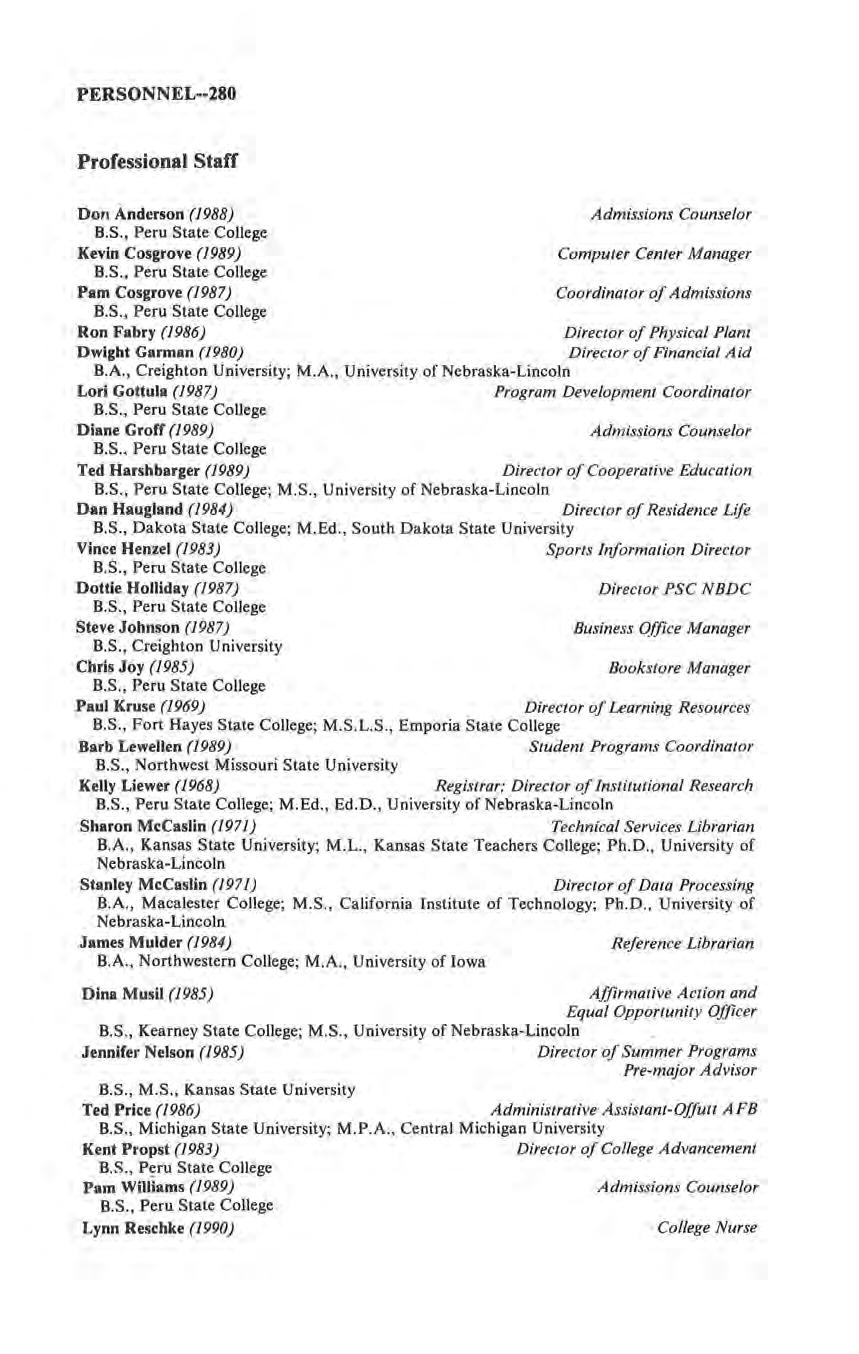
Stanley McCaslin (1971) Director of Data Processing
B.A., Macalester College; M.S , California Institute of Technology; Ph.D., University of Nebraska-Lincoln
James Mulder (1984) Reference Librarian
B.A , Northwestern College; M . A . , University of Iowa
Dina Musil (1985) Affirmative Action and Equal Opportunity Officer
B.S., Kearney State College; M.S., University of Nebraska-Lincoln
Jennifer Nelson (1985) Director of Summer Programs
Pre-major Advisor
B.S , M.S., Kansas State University
Ted Price (1986) Administrative Assistant-Offu/1 AFB
B.S., Michigan State University; M.P A ., Central Michigan University
Kent Propst (1983) Director of College Advancement
B.S., Peru State College
Pam Williams (1989) Admissions Counselor
B.S., Peru State College
Lynn Reschke (1990) College Nurse
PERSONNEL--280
Patsy Shea (1988) Director of Intramurals
B.S. , Dakota State College
Thomas Shea (1985) Director of Athletics
B.S., Dakota State College; M S. , South Dakota State University
Linda Warren (19 77) Director Career Planning and Placement
B.A., M . A ., Kearney State College
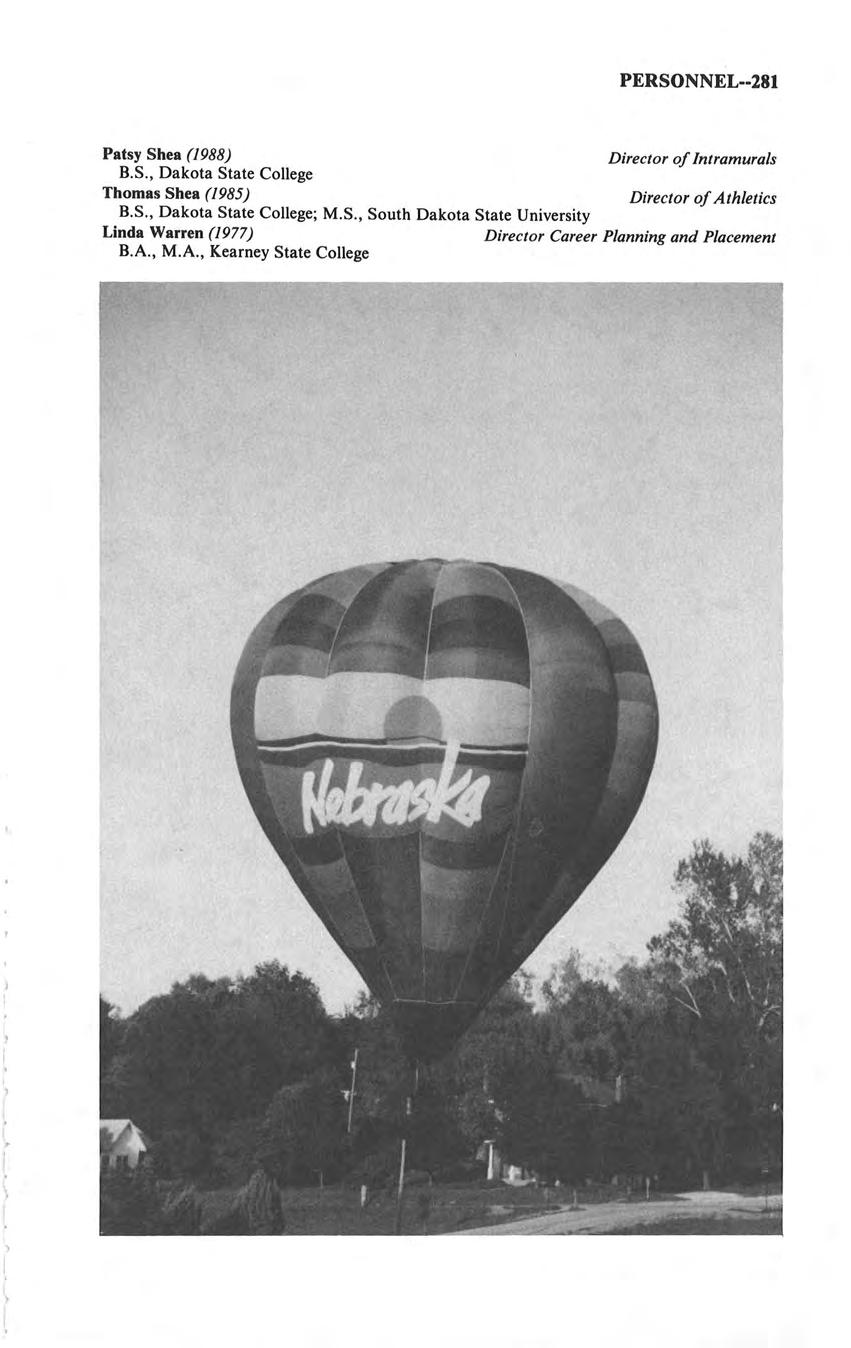
PERSONNEL--281
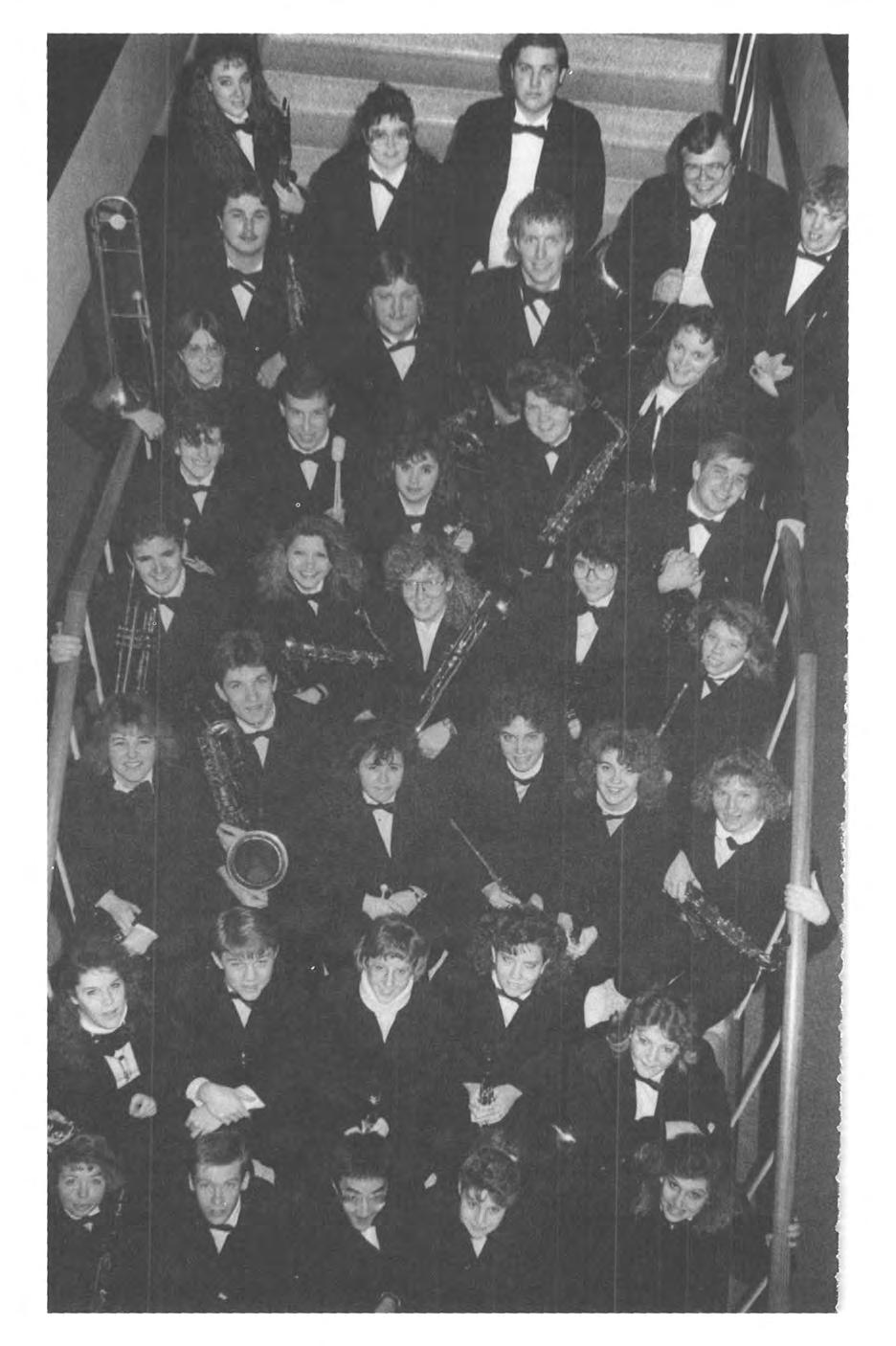
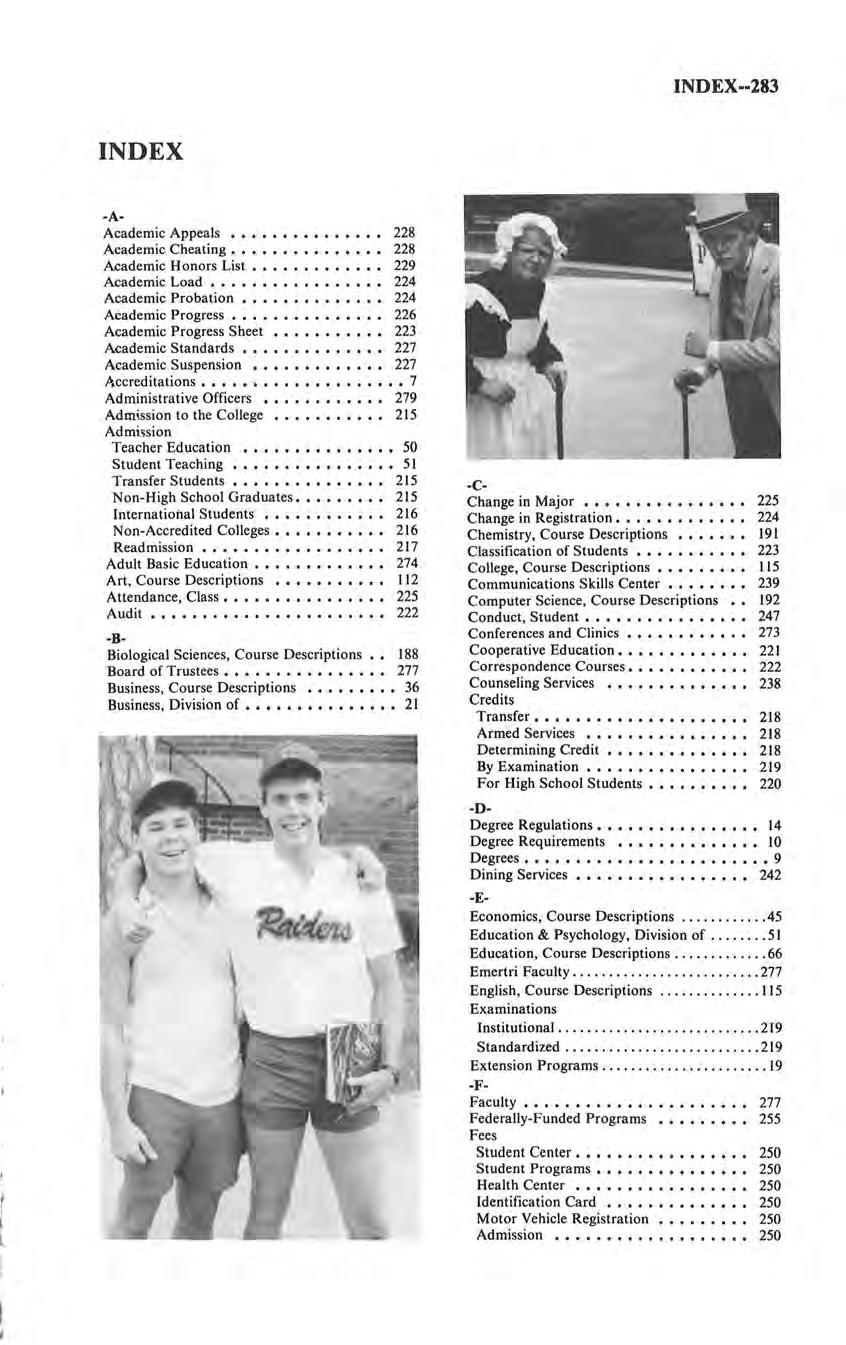
INDEX ·A· Academic Appeals • • • • • • • • • • • • • • • 228 Academic Cheating • • • • • • • • • • • • • • • 228 Academic Honors List • • • • • • • • • • • • • 229 Academic Load • • • • • • • • • • • • • • • • • 224 Academic Probation • • • • • • • • • • • • • • 224 Academic Progress • • • • • • • • • • • • • • • 226 Academic Progress Sheet • • • • • • • • • • • 223 Academic Standards • • • • • • • • • • • • • • 227 Academic Suspension • • • • • • • • • • • • • 227 Accreditations •••••••••••••••••••• 7 Administrative Officers • • • • • • • • • • • • 279 Admission to the College • • • • • • • • • • • 2 I 5 Admission Teacher Education • • • • • • • • • • • • • • • 50 Student Teaching • • • • • • • • • • • • • • • • 51 Transfer Students • • • • • • • • • • • • • • • 215 Non-High School Graduates ••••••••• 215 International Students •• • ••••••••• 216 Non-Accredited Colleges ••••••••••• 216 Readmis sion • • • • • • • • • • • • • • • • • • 217 Adult Basic Education • • • • • • • • • • • • • 274 Art , Course Descriptions • • • • • • • • • • • 112 Attendance, Class • • • • • • • • • • • • • • • • 225 Audit ••••••••••••••••••••••• 222 ·B· Biological Sciences, Course Descriptions • • 188 'Board of Trustees • • • • • • • • • • • • • • • • 277 Business, Course Descriptions • • • • • • • • • 36 Business, Division of ••••••••••••••• 21 INDEX--283 ·C· Change in Major • • • • • • • • • • • • • • • • 225 Change in Registration • • • • • • • • • • • • • 224 Chemistry, Course Descriptions ••••• · , • 191 Classification of Students • • • • • • • • • • • 223 College, Course Descriptions • • • • • • • • • 115 Communications Skills Center • • • • • • • • 239 Computer Science, Course Descriptions • • 192 Conduct, Student • • • • • • • • • • • • • • • • 247 Conferences and Clinics • • • • • • • • • • • • 273 Cooperative Education. • • • • • • • • • • • • 221 Correspondence Courses • • • • • • • • • • • • 222 Counseling Services • • • • • • • • • • • • • • 238 Credits Transfer ••••••••••••••••••• , , 218 Armed Services • • • • • • • • • • • • • • • • 218 Determining Credit • • • • • • • • • • • • • • 218 By Examination ••••• • •••••••••• 219 For High School Students • • • • • • • • • • 220 -D· Degree Regulations. • • • • • • • • • • • • • • • 14 Degree Requirements • • • • • • • • • • • • • • 10 Degrees •••••••••••••••••••••••• 9 Dining Services • • • • • • • • • • • • • • • • • 242 ·E· Economics, Course Descriptions 45 Education & Psychology, Division of .. . . ... . 51 Education, Course Descriptions 66 Emertri Faculty .......•... 277 English , Course Descriptions 115 Examinations Institutional . . ....... . . . •... . .. . . . .. . ... 219 Standardized 219 Extension Programs .•..• 19 -F· Faculty • • • • • • • • • • • • • • • • • • • • • • 277 Federally-Funded Programs • • • • • • • • • 255 Fees Student Center •••• , • • • • • • • • • • • • 250 Student Programs • , • • • • • • • • • • • • • 250 Health Center • • • • • • • • • • • • • • • • • 250 Identification Card • • • • • • • • • • • • • • 250 Motor Vehicle Registration • • • • • • • • • 250 Admission • • • • • • • • • • • • • • • • • • • 250
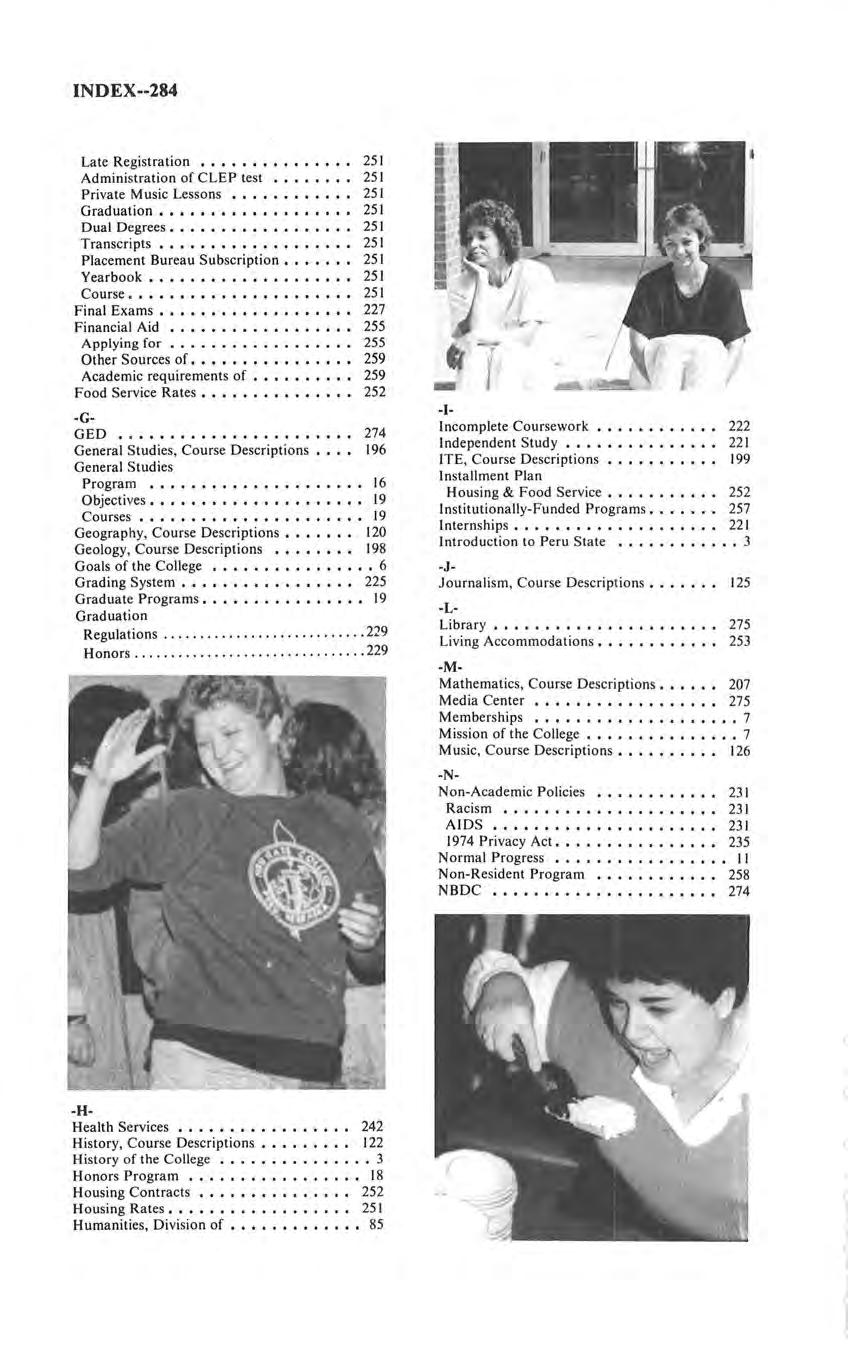
Late Registration , , , , , , , , , , , , , , , 251 Adm ini stra tion of CLEP test , , , , , , , , 251 Private Music Lessons , , , , , , , , , , , , 251 Graduation , , , , , , , , , , , , , , , , , , , 251 Dual Degrees , , , , •••••••••• , • • • 251 Transcripts • , ••• , • • • • • • • • • • • • • 251 Placement Bureau Subscription • • • • • • • 251 Yearbook • • • • • • • • • • • • • • • • • • • • 251 Co urse •• •• , ••••••••••••••• , • 251 Final Exams •••••••••••• , , , ••• , 227 Financial Aid ••• , •••••••••••• , , 255 App lying for . • . • • • • • • • • • • • • • • 255 Other Sources of. , • • • • • • • • • • • • • • 259 Academic requirements of • • • • • • • • • • 259 Food Service Rates • • • • • • • • • • • • • • • 252 -GOW rn Generai ;,;udi~; c~~;s; D~s~;i~tto~; : : : : 196 General S tudi es Program , •••••••••••••••••• , , 16 Objectives , , , ••• , •••••• , ••••• , • I9 Cou rse s •• • , •••••••••• , ••••••• 19 Geography, Course De scr iption s , , •• , • • 120 Geology , Course Descriptions • , , • • • • • I 98 Goals of the College ••••••••••••• , •• 6 Grading System •• , •••• , • • • • • • • • • 225 Graduate Programs ••••••••••• , , •• • 19 Graduation Regulations •..• .• ..•.. , 229 Honors .•.. ..•.. 229 .ff. Health Services , • • • • • • • • • • • • • • • • 242 History, Course Descriptions ••• , • • • • • 122 History of the College ••••••••• , ••••• 3 Honors Program ••••••••••••••••• 18 Housing Contracts ••••••• , , • • • • • • 252 Housin g Rates •• , • • • • • • • • • • • • • • • 251 Humanitie s, Division of •••••• , •• , , •• 85 -(Incompl e te Coursework • • • • • • • • • • • • 222 Indep en dent Study • • • • • • • • • • • • • • • 22 I ITE, Course Descriptions • • • • • • • • • • • 199 Installm e nt Plan Housing & Food Service • • • • • • • • • • • 252 Instituti ona lly-Funded Programs •••••• , 257 Intern sh ip s • • • • • • • • • • • • • • • • • • • • 221 Introdu ction to Peru State • • . • . • • • • • • 3 -JJournalism, Course Descriptions • • • 125 ·L· Library ••• , •••• , , • • • • • • • • • • • • 275 Living Accommodations • • • • • • • • • • • • 253 -MMathematics, Course Descriptions •••• , • 207 Media Center •••••••• , • • • • • • • • • 275 Memberships , , • •• , , •••• , •••• , ••• 7 Mission of the College ••••••••••••••• 7 Music, Course Descriptions ••••••• , 126 -NNon-Academic Policies ••••••• •• , • • 231 Racism •• , •••••••••• , ••••••• 231 AIDS •• •• • , , ••••••• , • , •• ••• 231 I974 Privacy Act, •••••• , , • • • • • • • 235 Normal Progress •• , •••• •••• , ••• , • 11 Non-Resident Program ••• , • • • • • • • • 258 NBDC • , ••••••• , , , •••••••• , • 274
INDEX--284
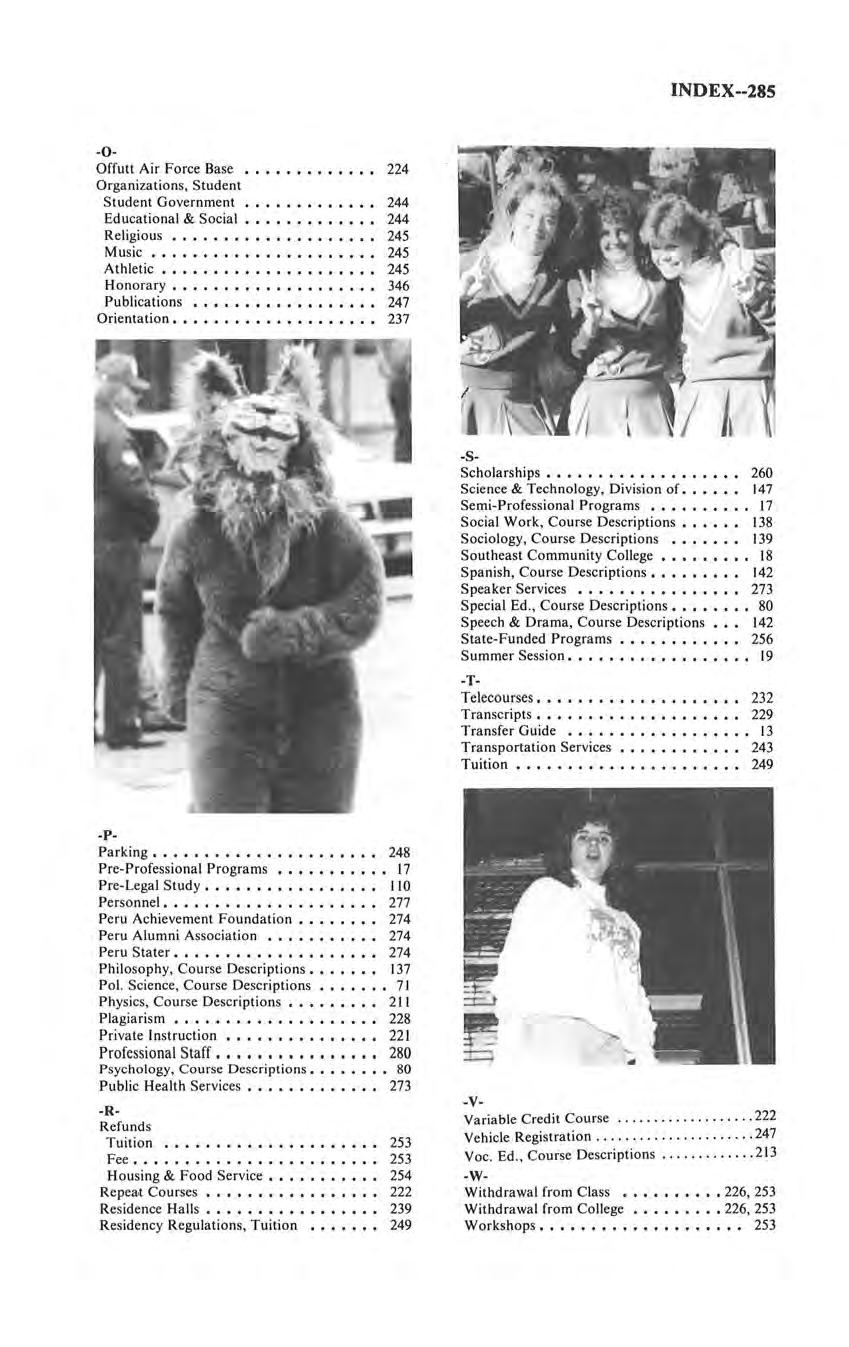
-0Offutt Air Force Base 224 Organizations, Student Student Government •••••• , • , • • • • 244 Educational & Social , , , , ••••• , , , , 244 Religious •••• , •••••• , , , , , • • • • 245 Music •••••••••••••••••• , , , , 245 Athletic •• , , •• , , •• , •••••• , , , , 245 Honorary • • • • • • • • • • • • • • • • • • • • 346 Publications ••••••••• , , • , , • , , , 247 Orientation , , , , • , , , , , , , , , , , , , , , 237 -PParking •• , , •• , •••••• , ••• , , , , , 248 Pre - Professional Programs , •••• , • , , , • 17 Pre-Legal Study, • , •••••••••• , , , , 110 Personnel •• , , ••• , • • • • • • • • • • • • • 277 Peru Achievement Foundation • • • • • • • • 274 Peru Alumni Association ••••••• , , • , 274 Peru Sta te r •••••• , , , , , •••• , • • • • 274 Philosophy , Course Descriptions. • • • • • • 137 Pol. Science, Course Descriptions • , • • • • • 71 Physics, Course Description s , , , ••••• , 211 Plagiarism , , , , , , , • , ••••••••• , • 228 Private Instruction ••••• , ••••• , , , , 22 1 Professional Staff • , , • , • • • • • • • • • • • 280 Psychology, Co urse De sc riptions, , , , , , , , 80 Public Health Services • • • • • • • • • • • • • 273 -RRefunds Tuition •••••••••••• , , ••• , • • • 253 Fee, • • • • • • • • • • • • • • • • • • • • • • • 253 Housing & Food Service •• , • • • • • • • • 254 Repe at Courses ••• , , , , , , , , , , , , , , 222 Re s idence Halls ••• , • , , , , • , • , , , • • 239 Residency Regulations, Tuition • • • • • • • 249 INDEX--285 -SScholarships ••• , , ••••• , • , • , • • • • 26 0 Science & Technology, Divi s ion of, , , , , , 147 Semi-Professional Program s • • • • • • • • • • 17 Social Work , Course Descriptions • , • • • • 138 Sociology, Course Descriptions , , , , • , , I 39 Southeast Community College ••• , , , , , , 18 Spanis h , Course Descriptions, , , , , • • • • 14 2 Speaker Services , , , ••••••••• , , • , 273 Specia l Ed., Co ur se Descriptions, , , , • , , , 80 Speec h & Drama, Course Descriptions • • • 14 2 State-Funded Programs , , , •••••• , • • 256 Summer Session. , ••••• , , , , , , • • • • • 19 -TTelecourses, ••••••• , • , , • , , • • • • • 232 Transcripts •••• , ••••• , , • , , , • • • • 229 Transfer Guide ••••••• , , , • • • • • • • • 13 Transportation Services •• , • • • • • • • • • 243 Tuition ••••••••••••••• , • • • • • • 249 -VVariable Credit Course 222 Vehicle Registration 247 Voe. Ed., Course D esc riptions 2 13 -WWithdrawal from C lass , , , , , , , , , • 226, 253 Withdrawal from College • , ••••••• 226, 253 Workshops, • • • • • • • • • • • • • • • • • • • 253

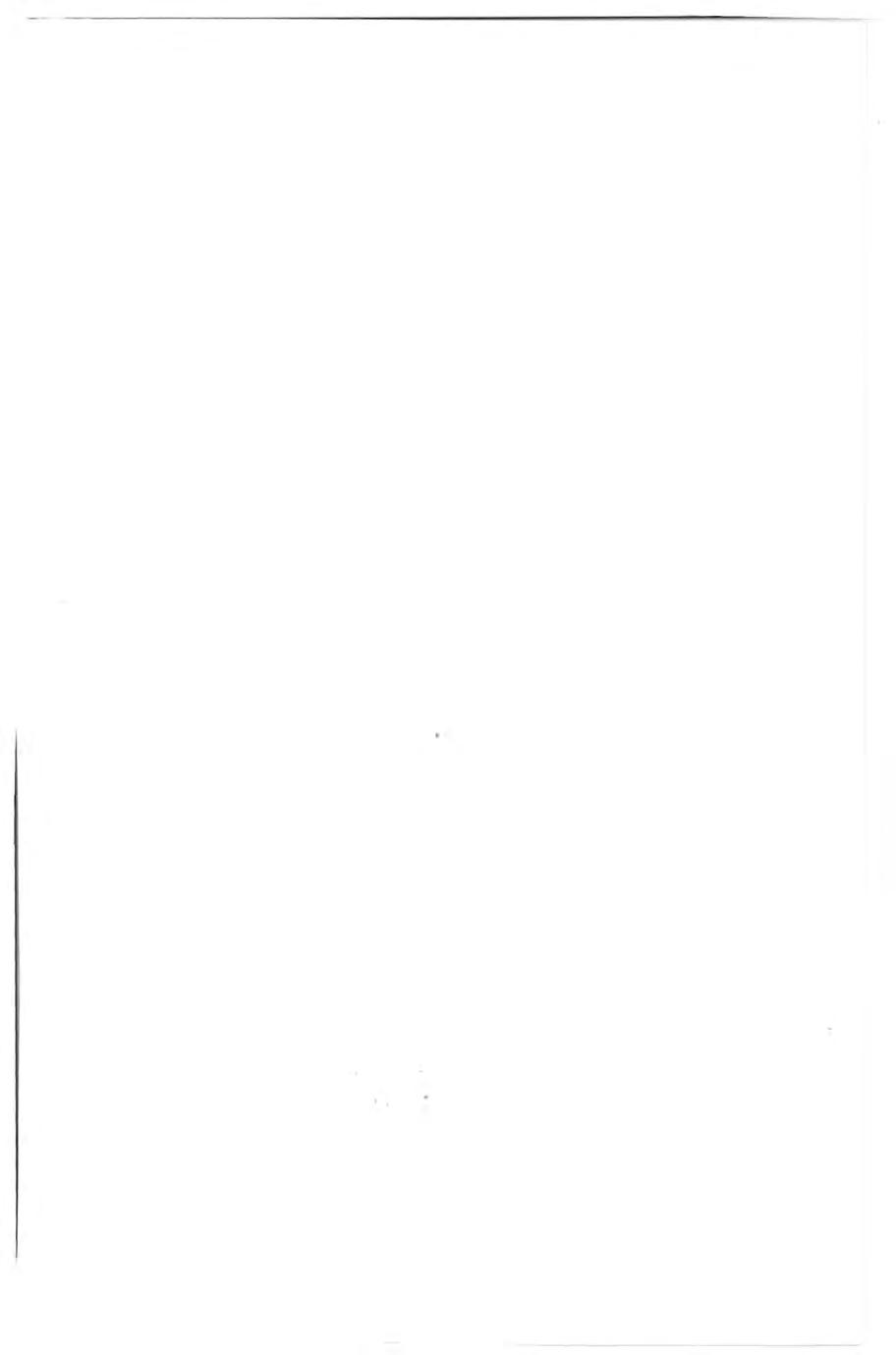
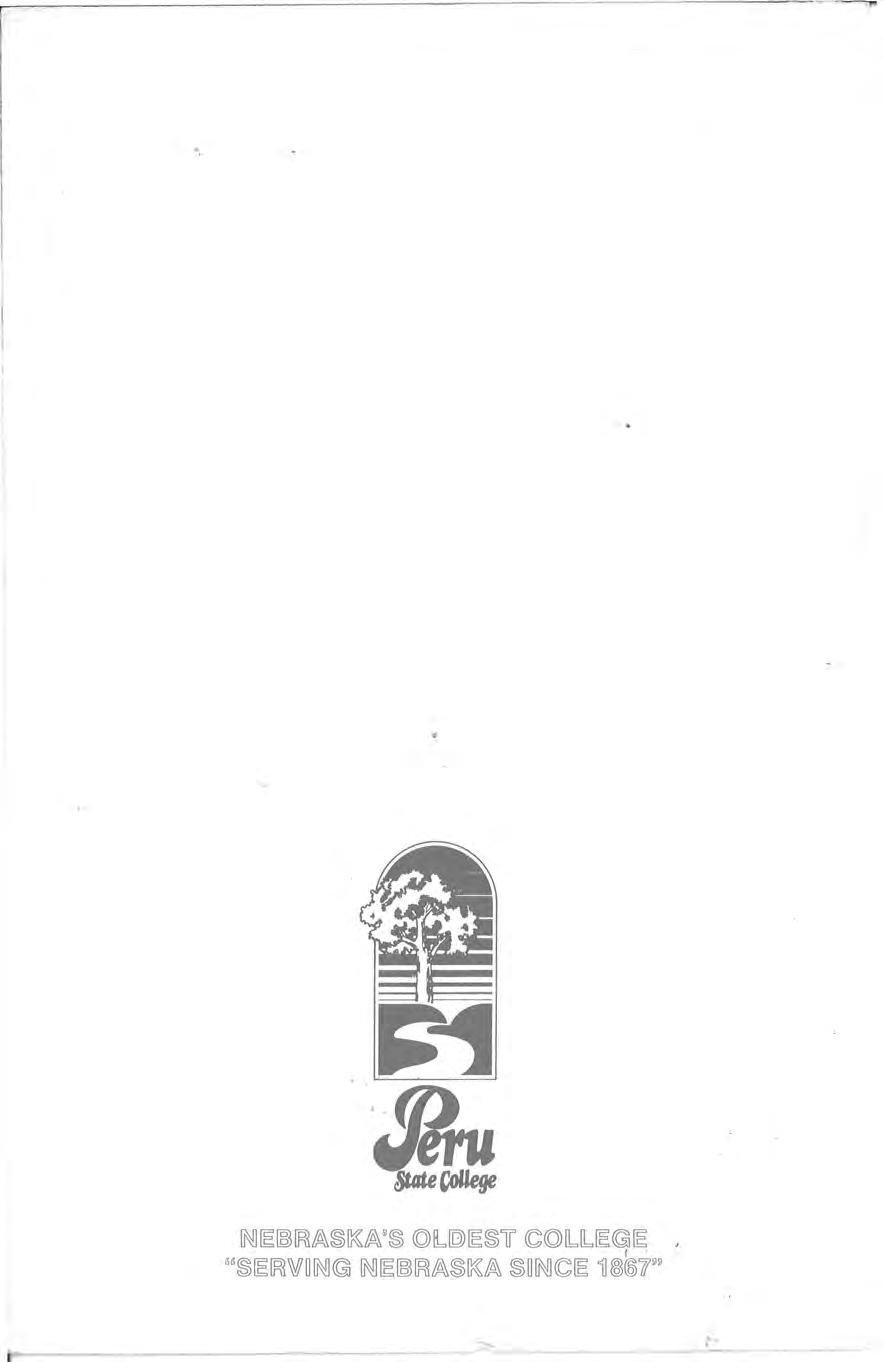
.. .





































































































































































































































































































